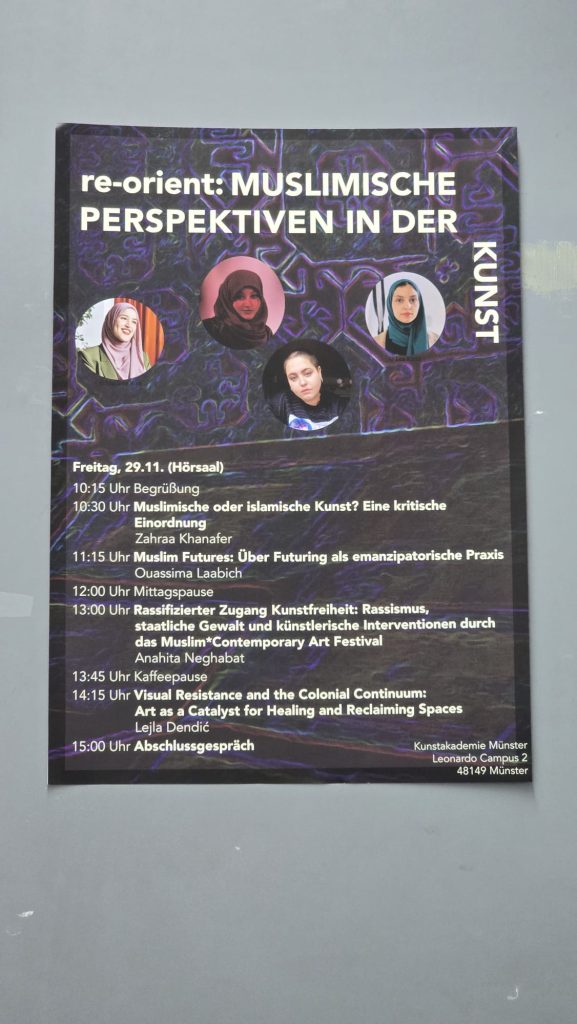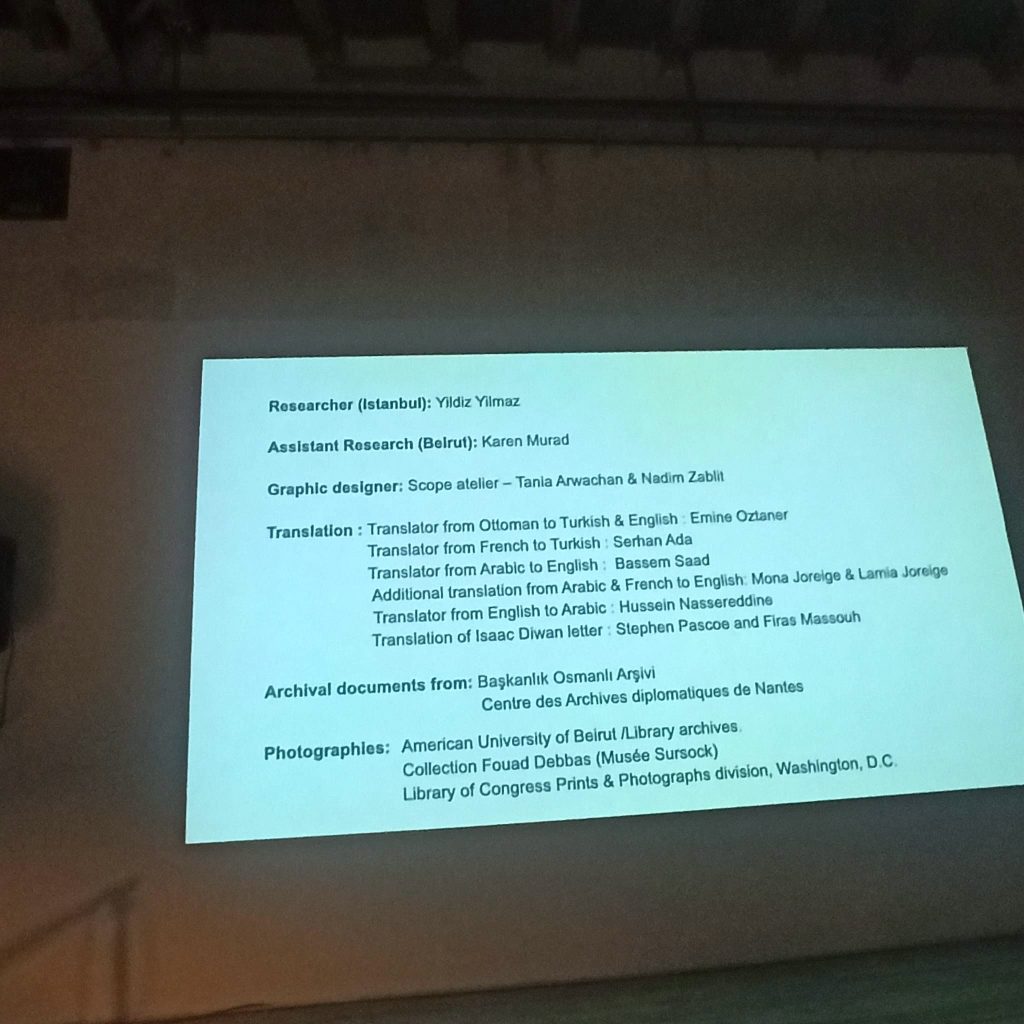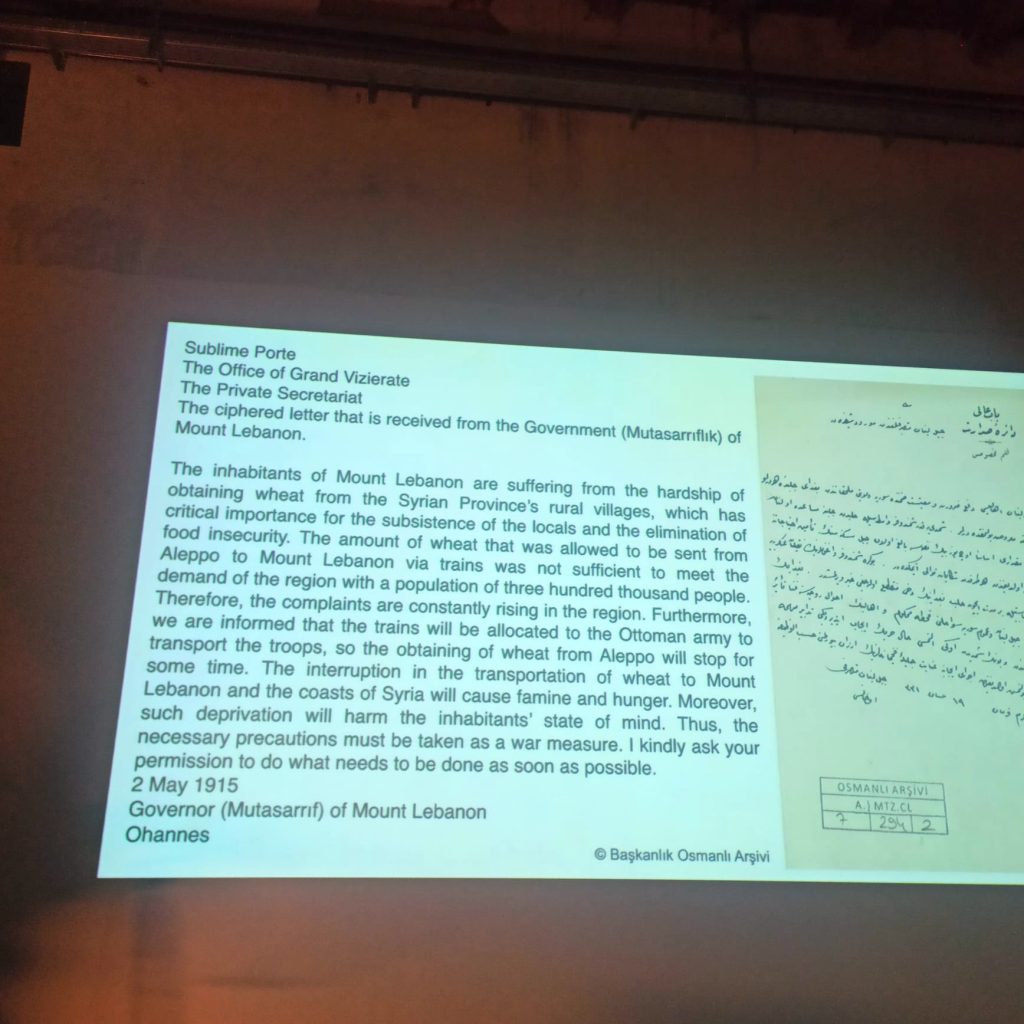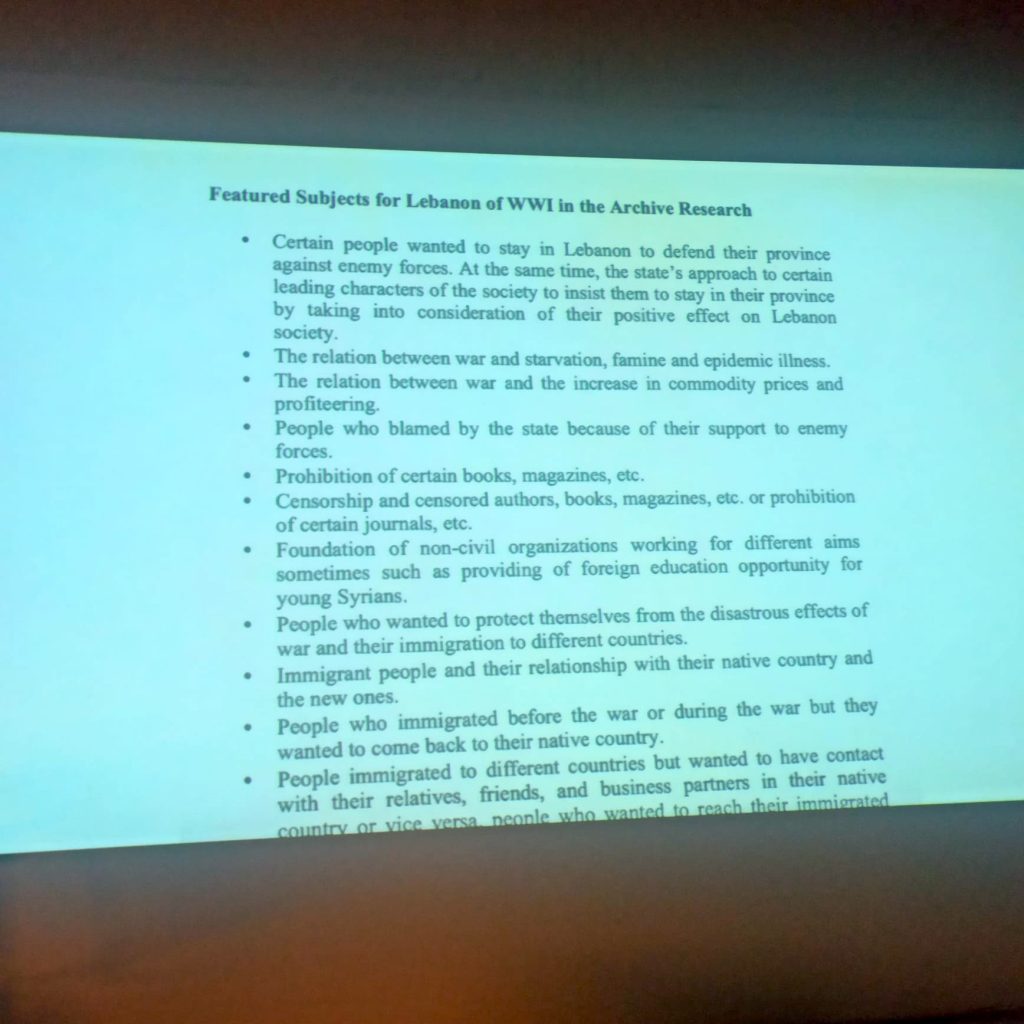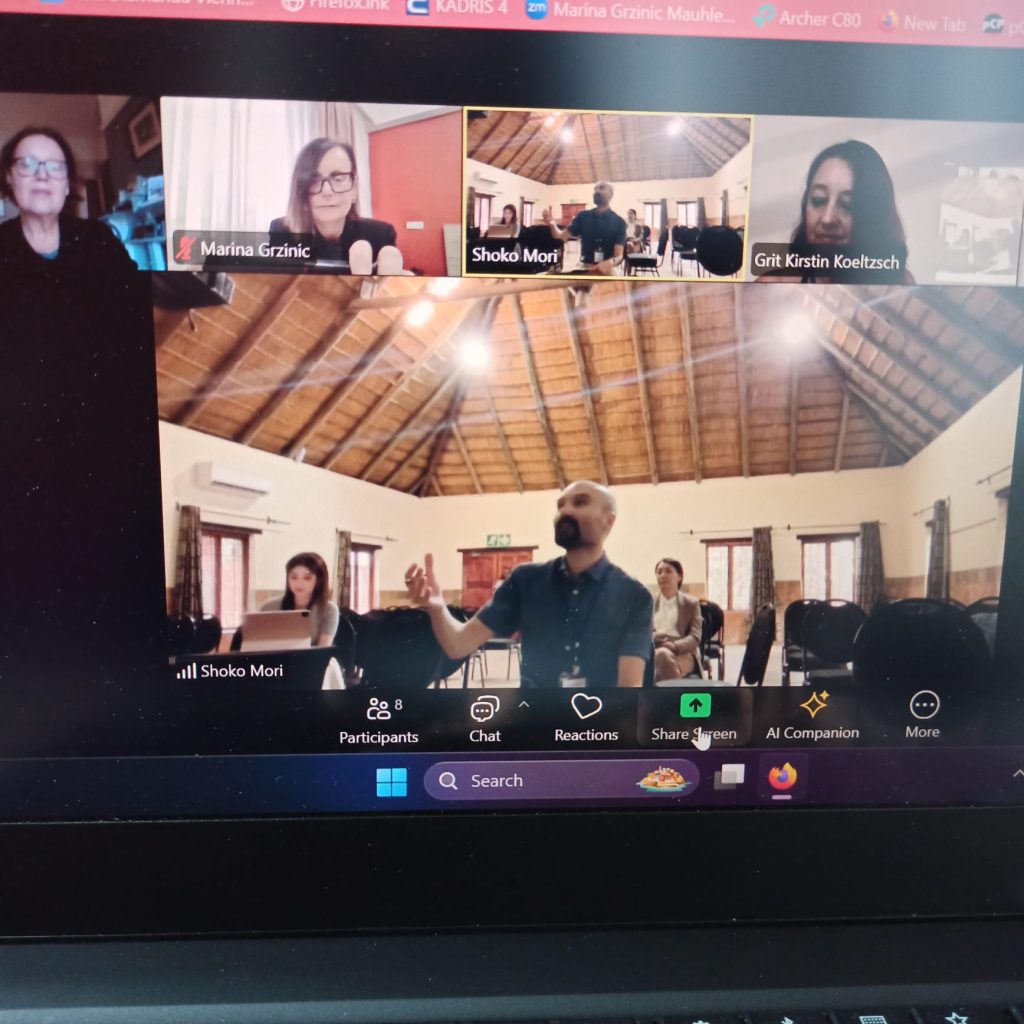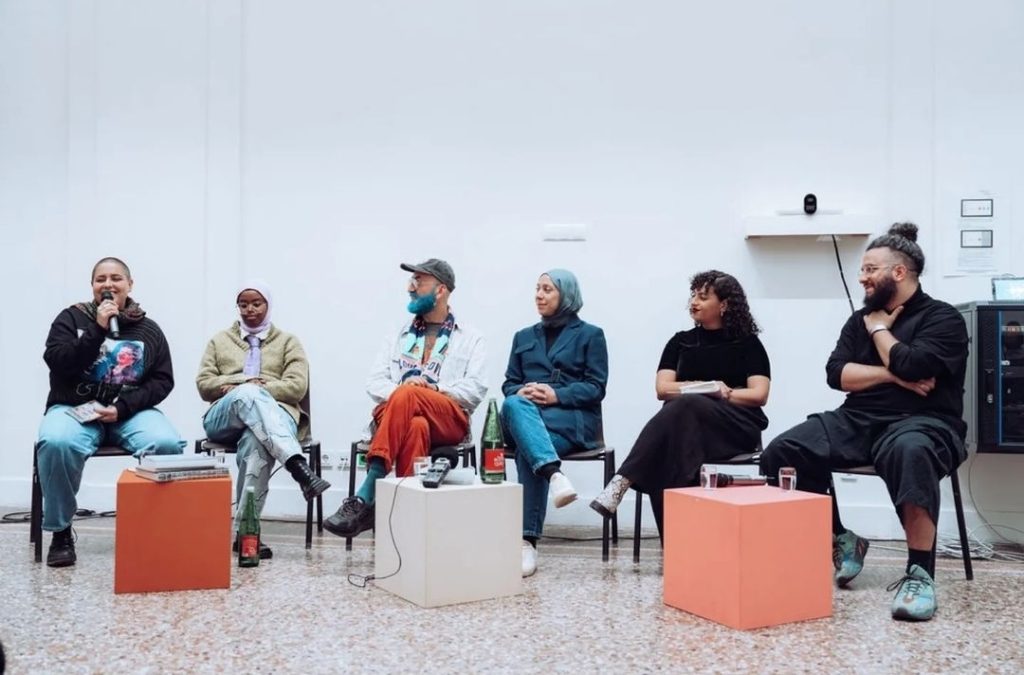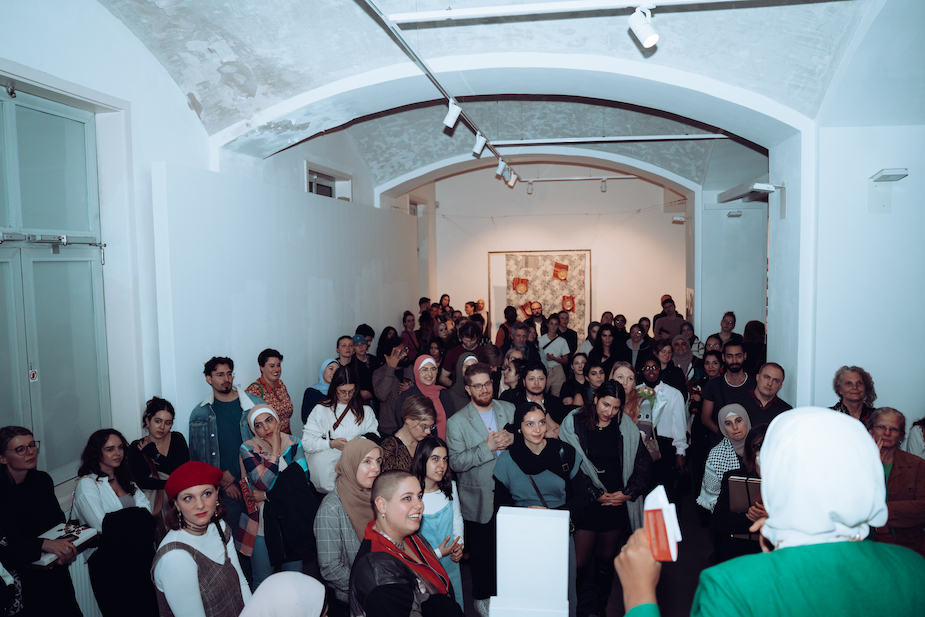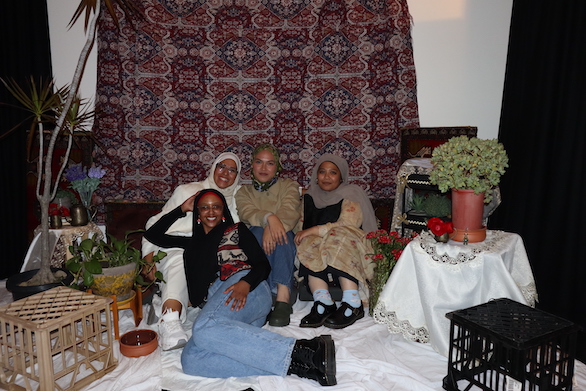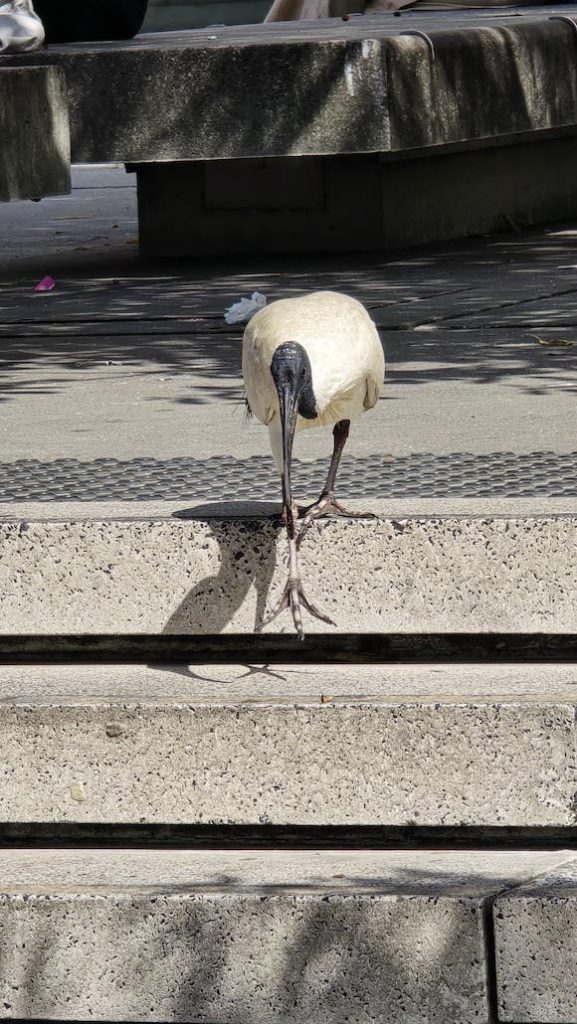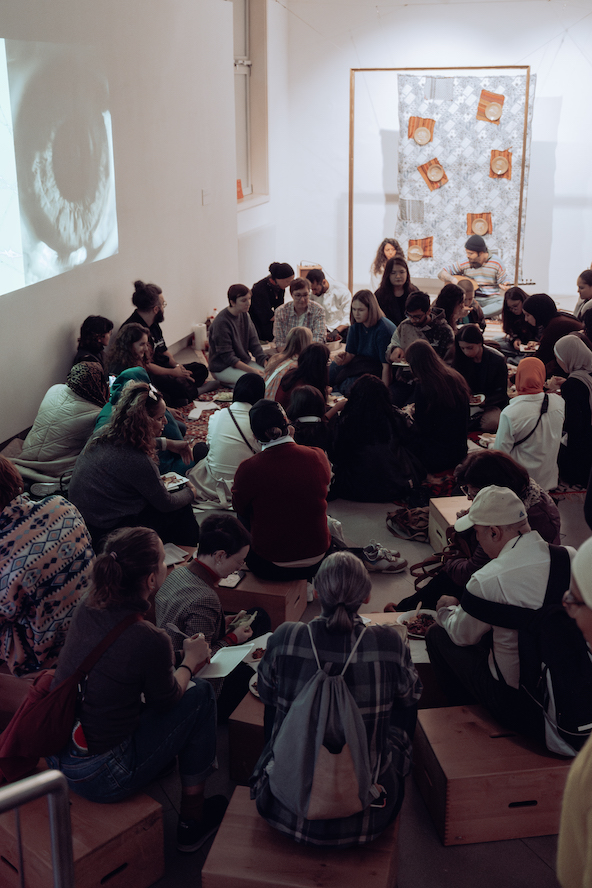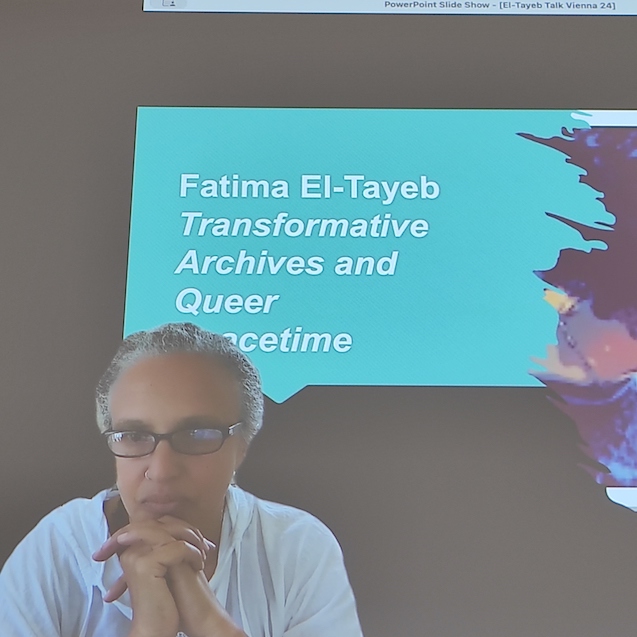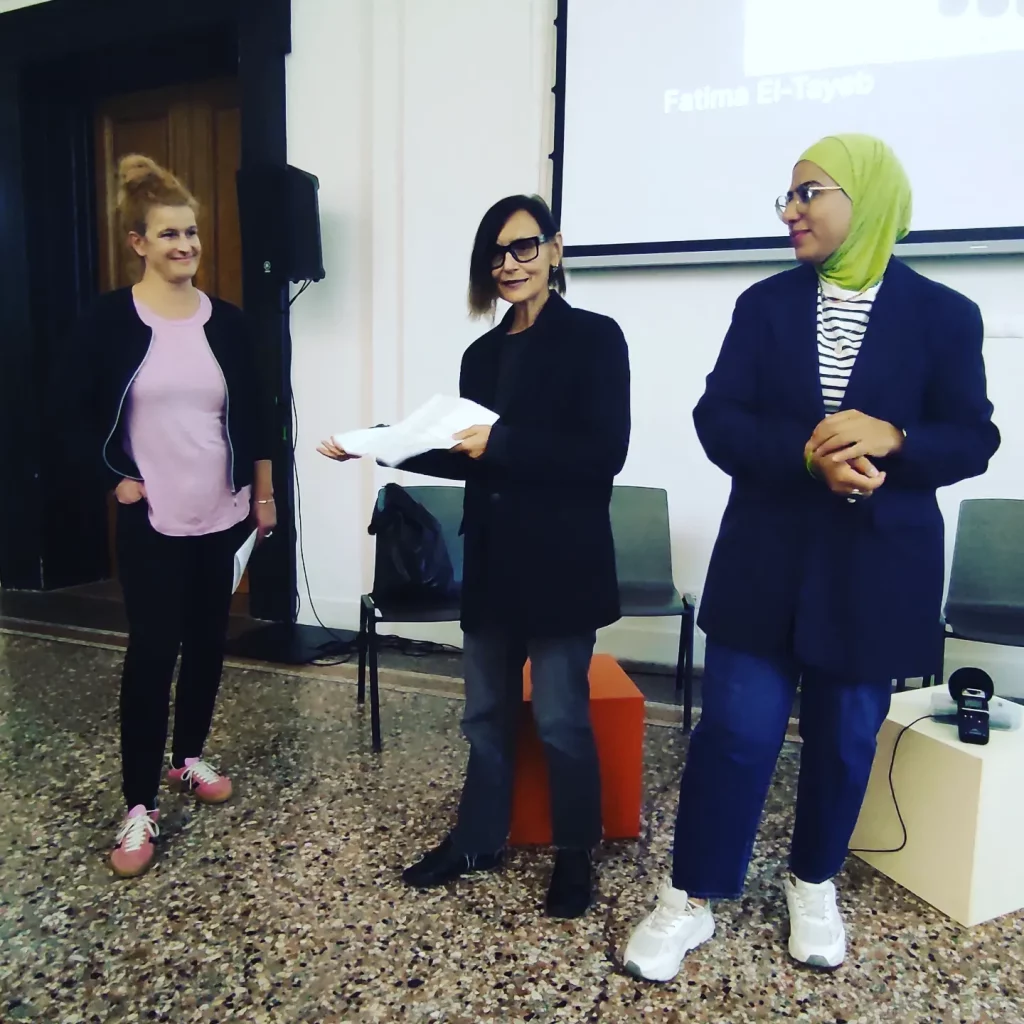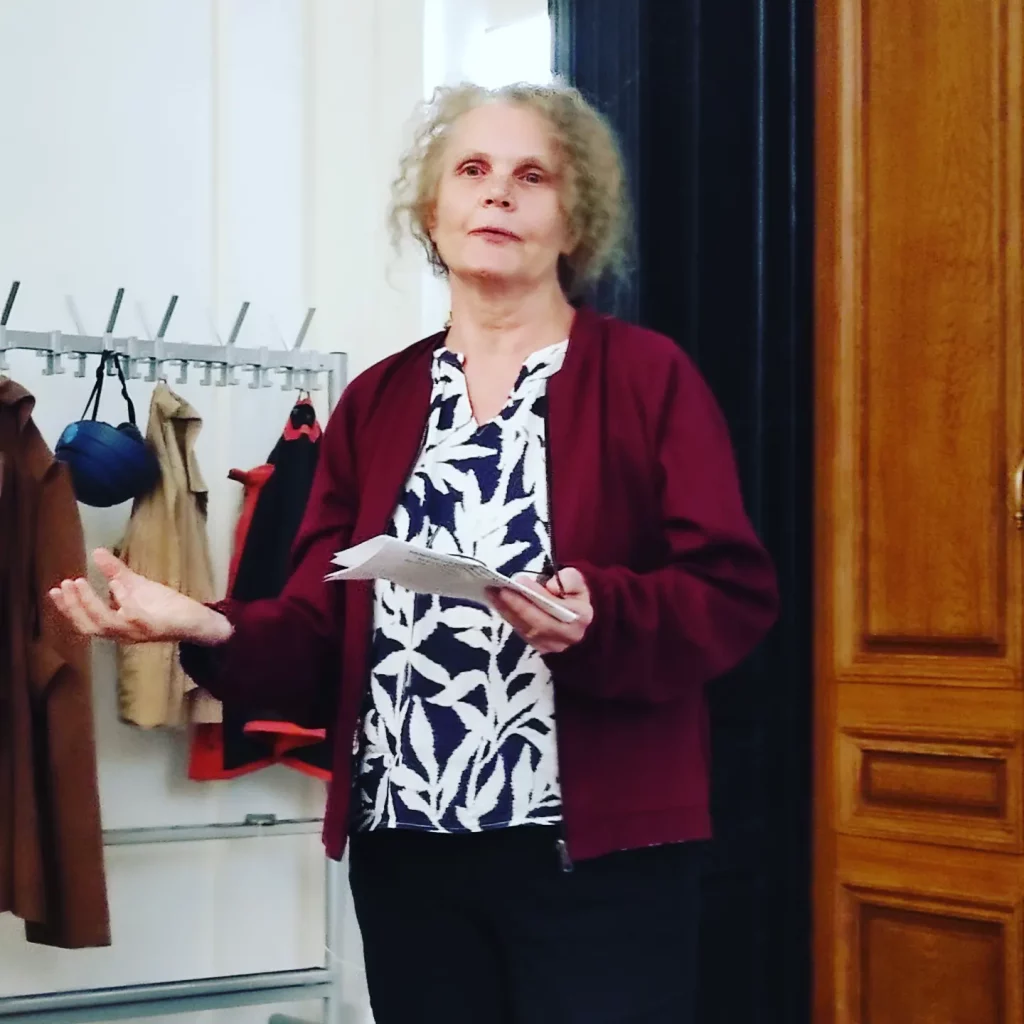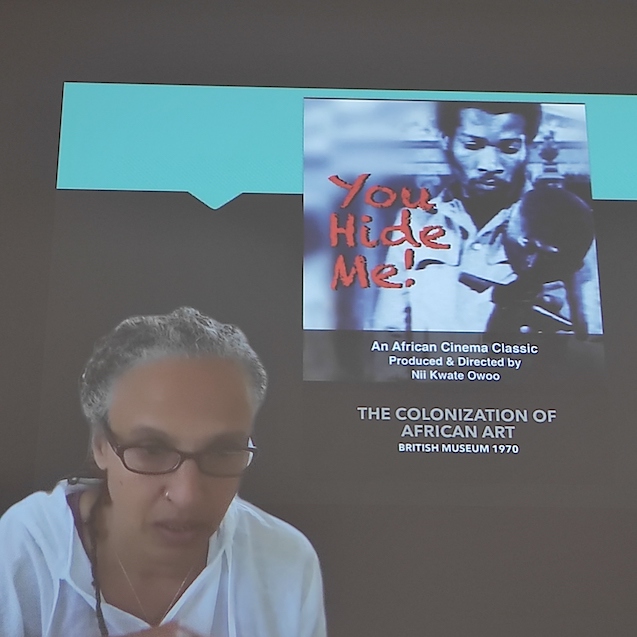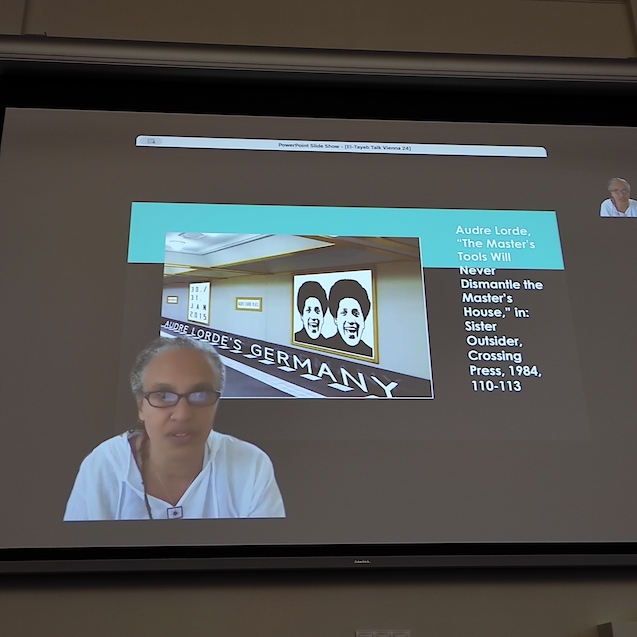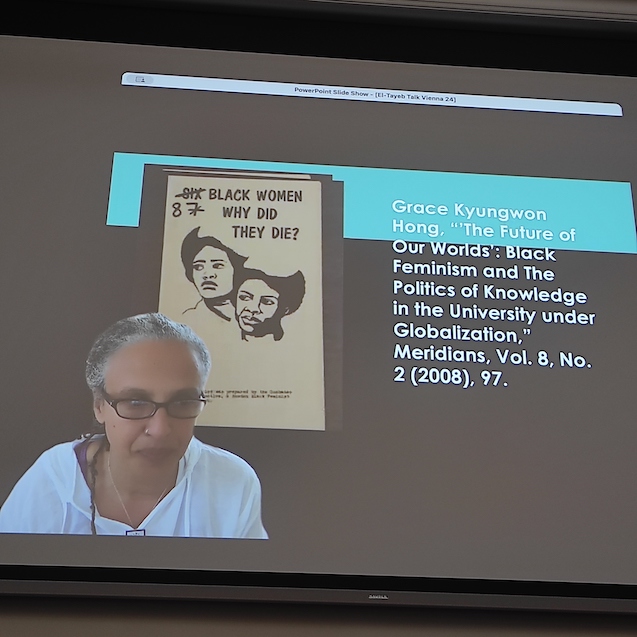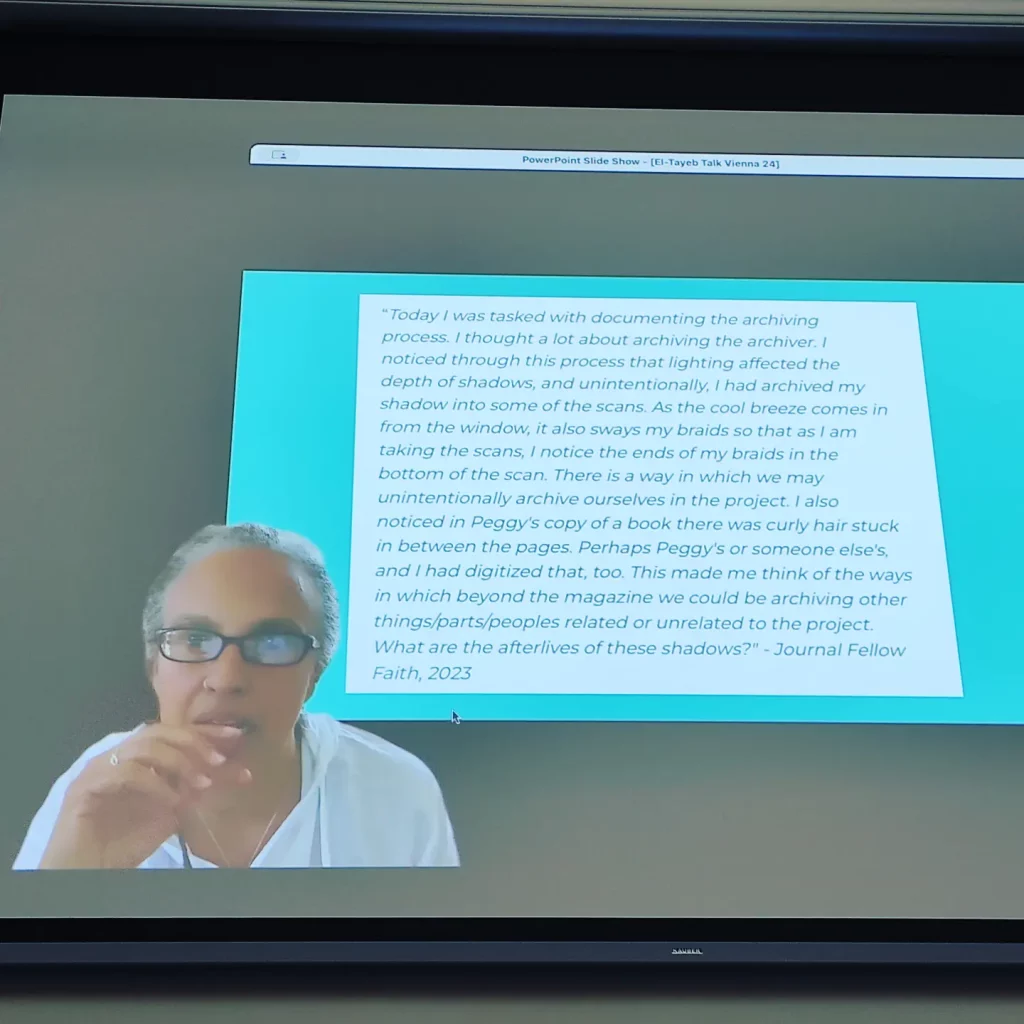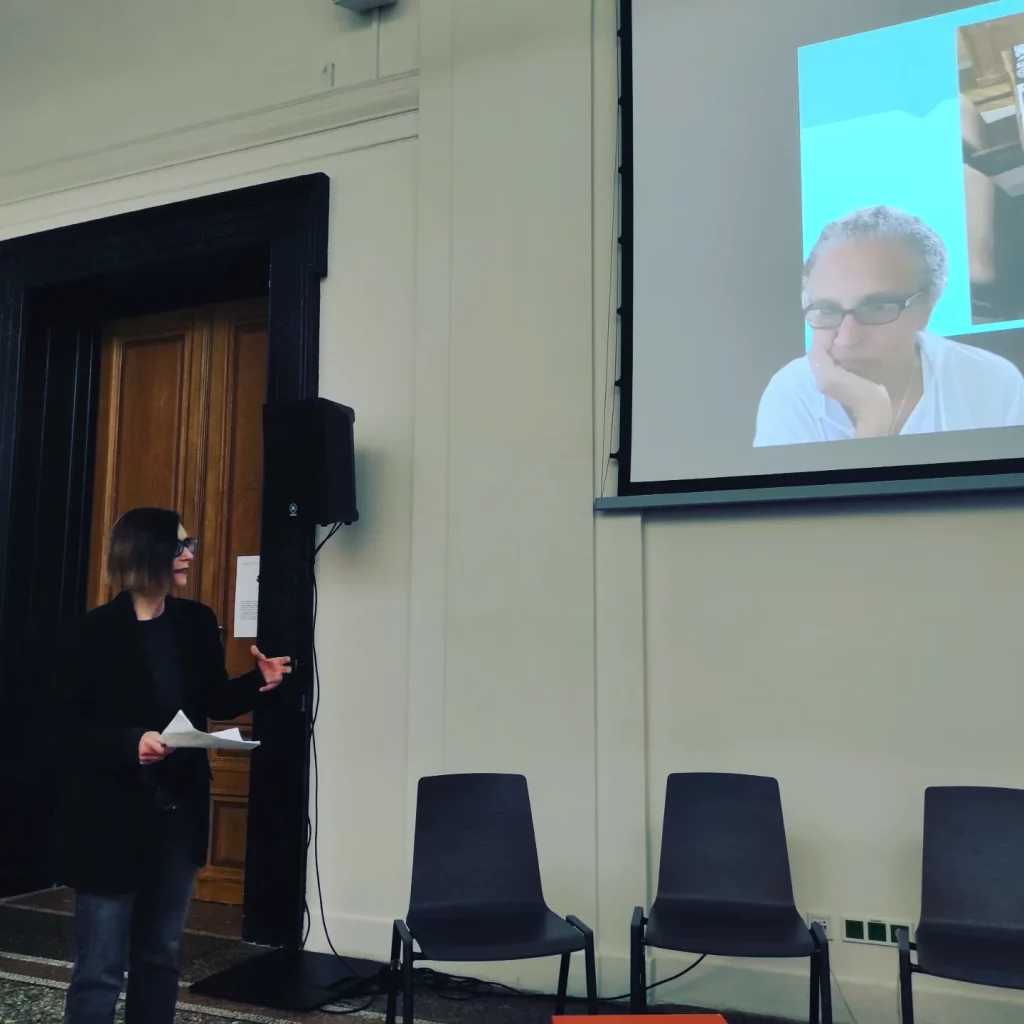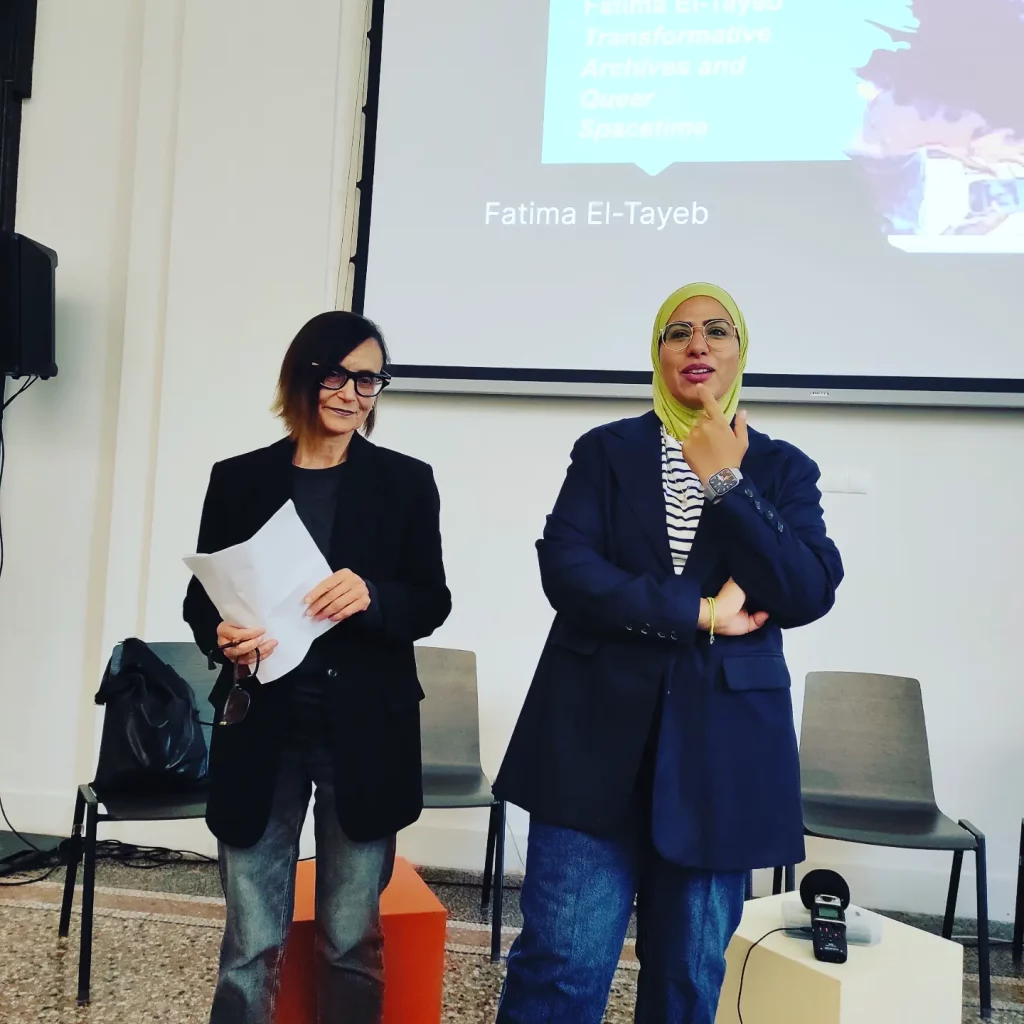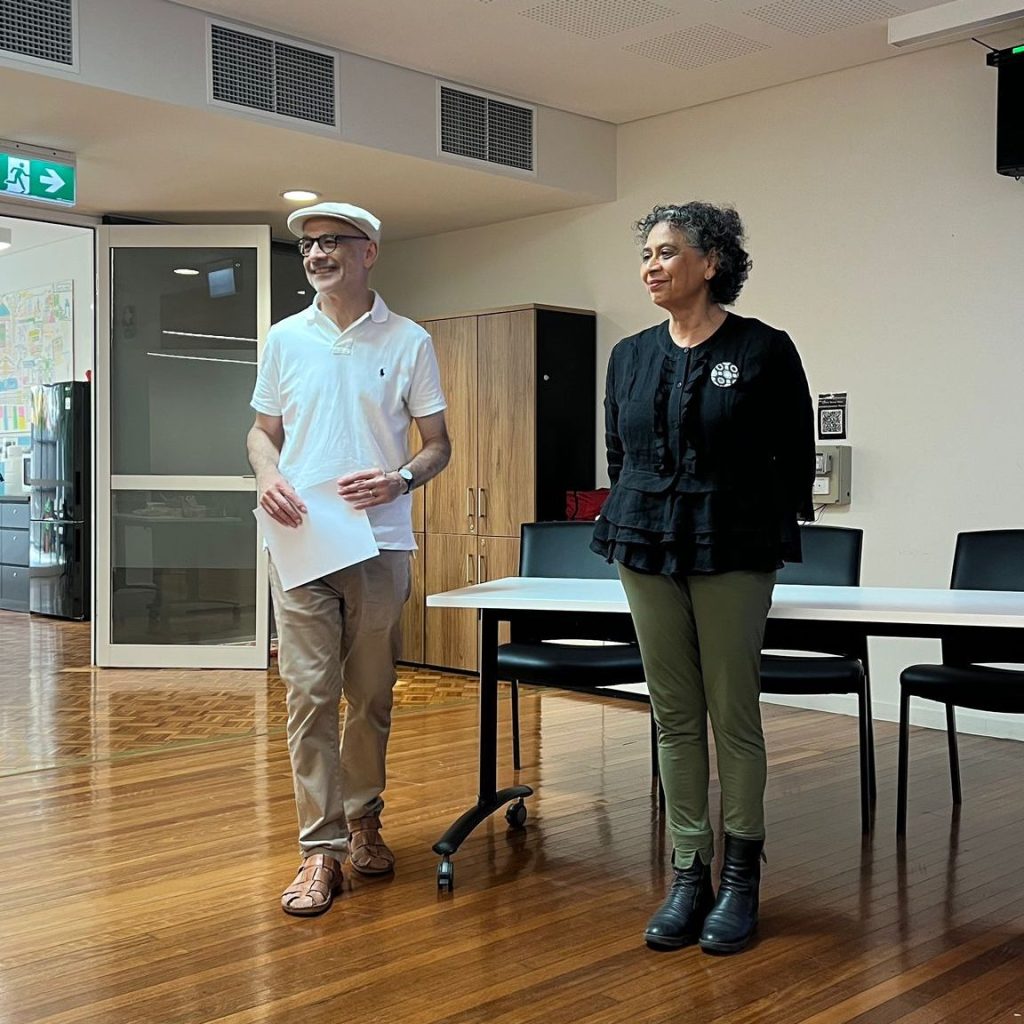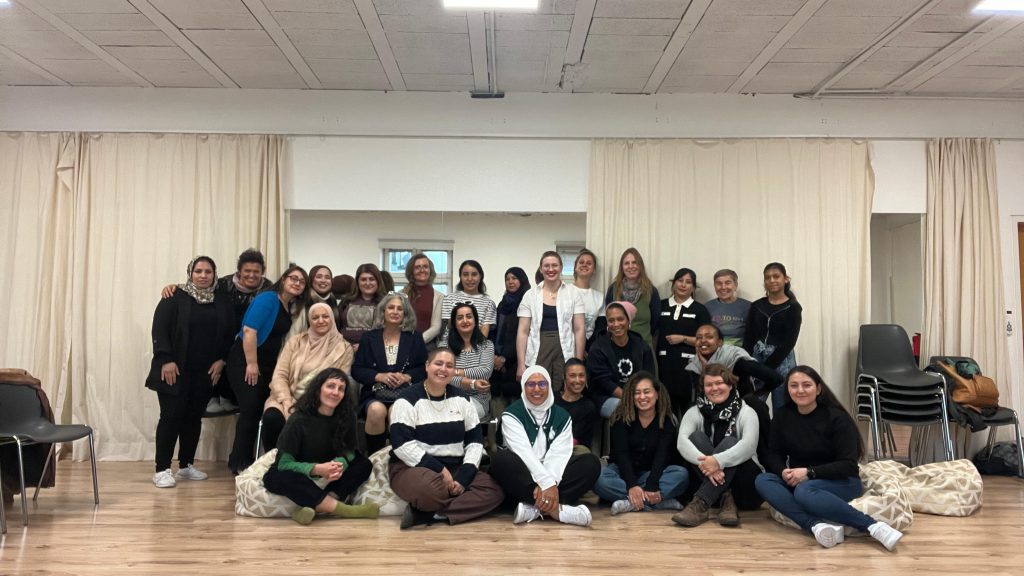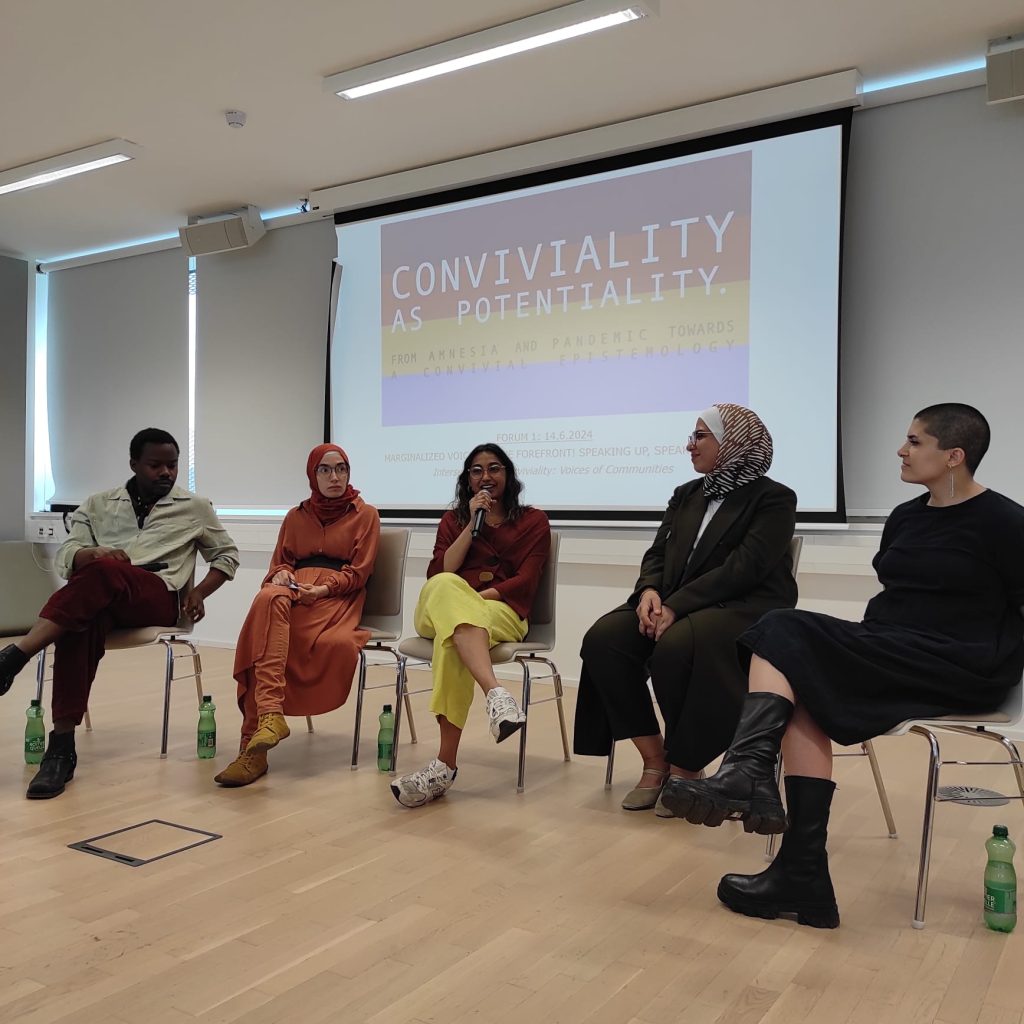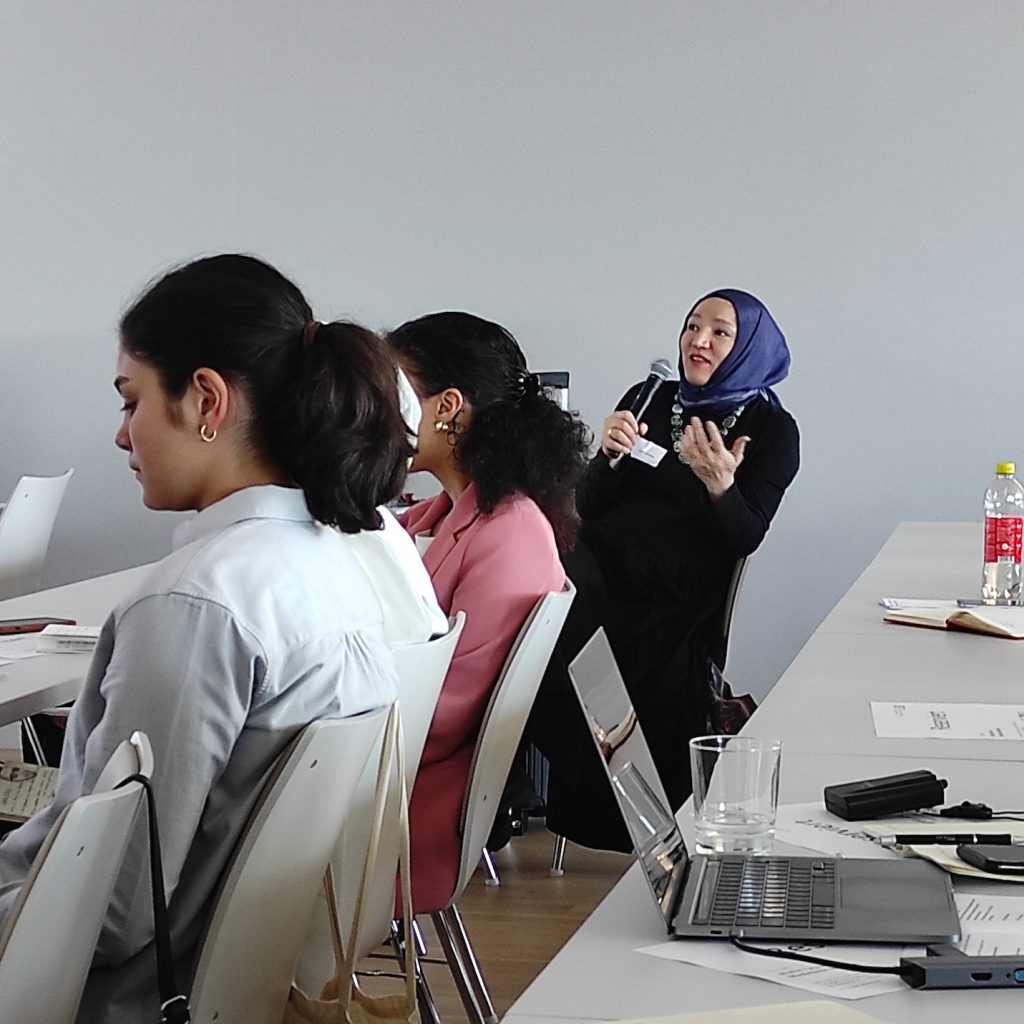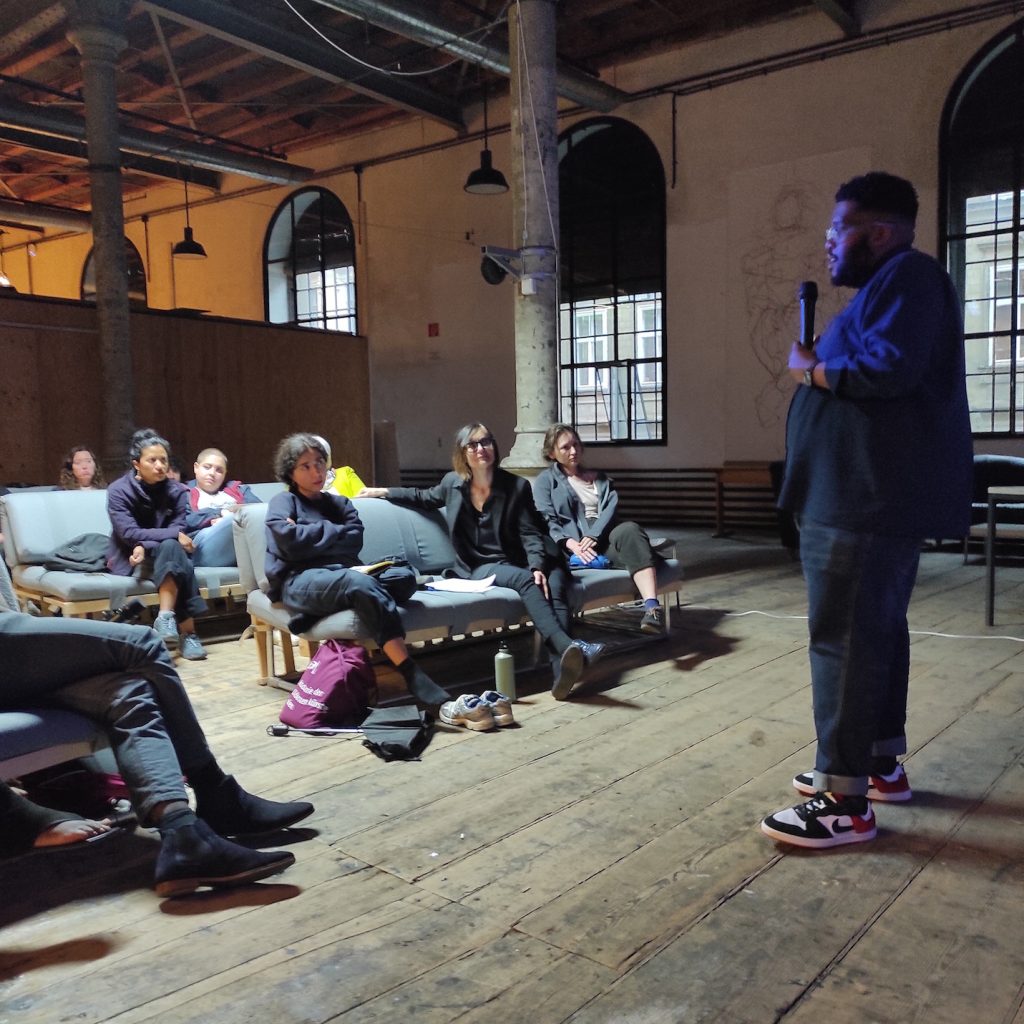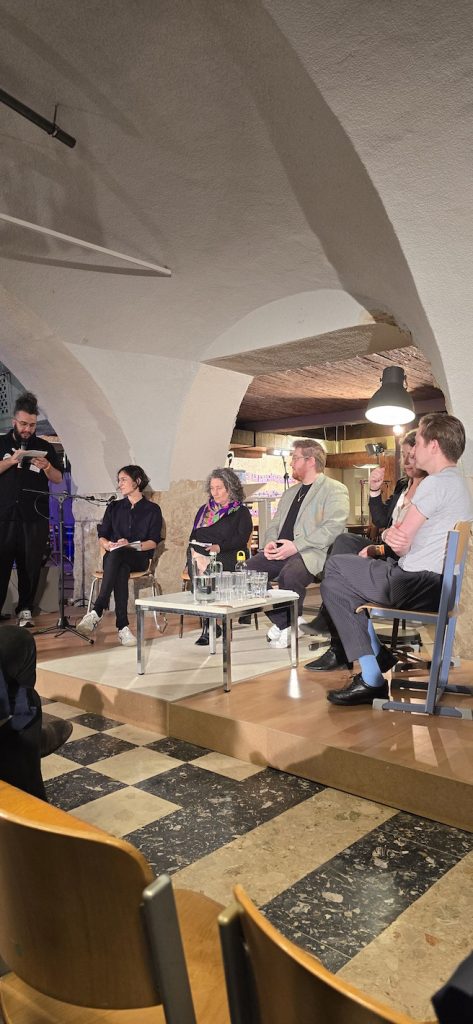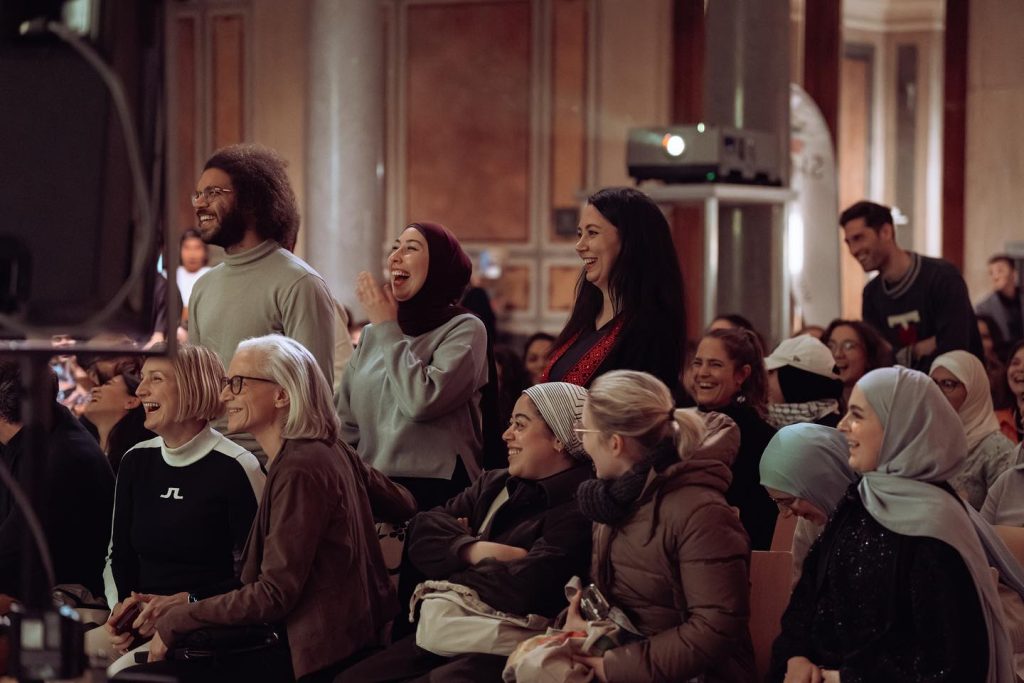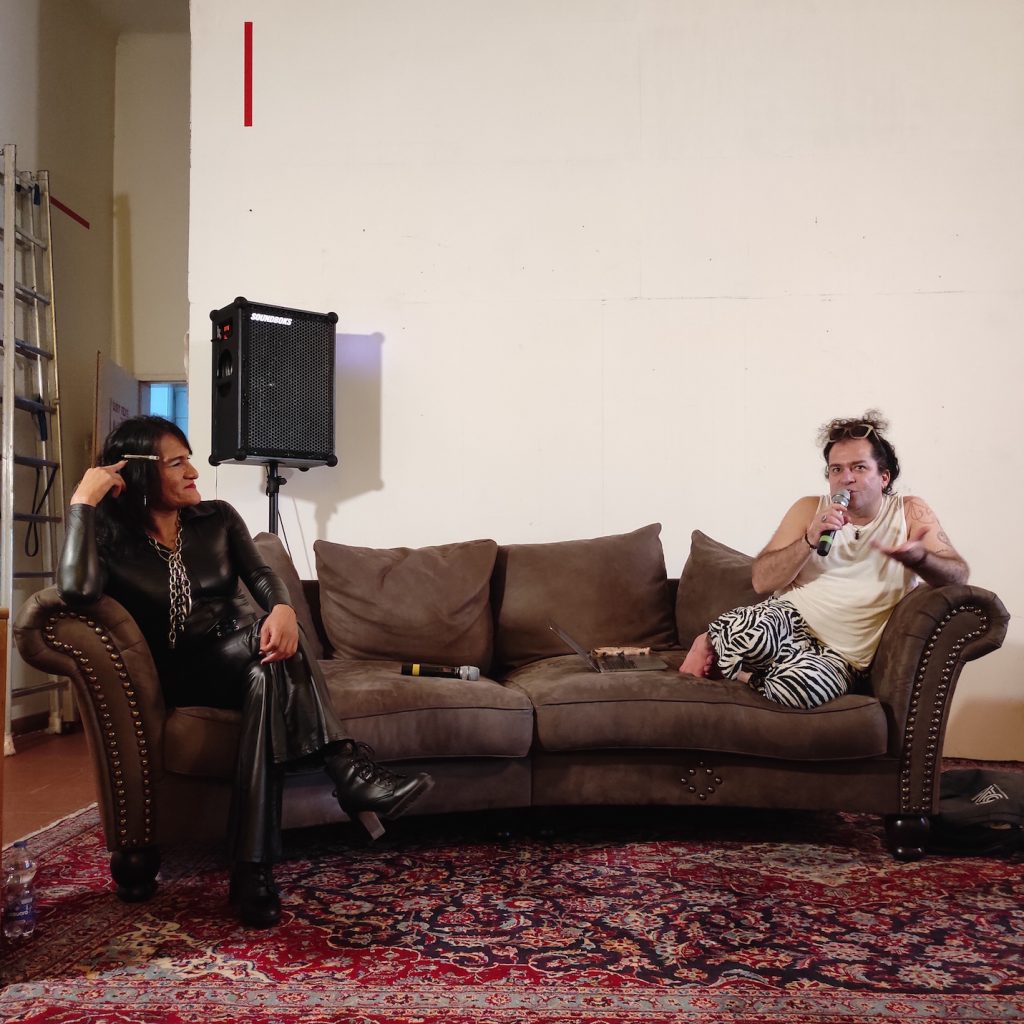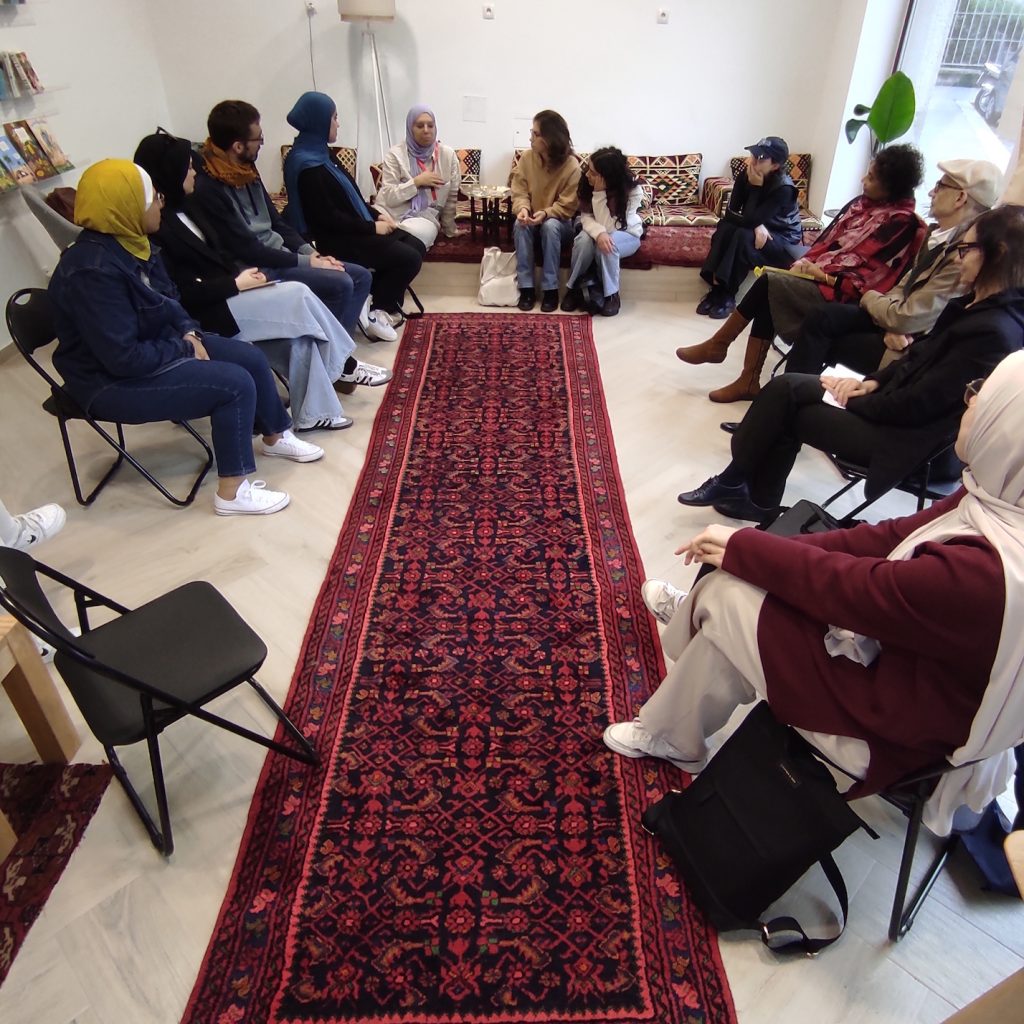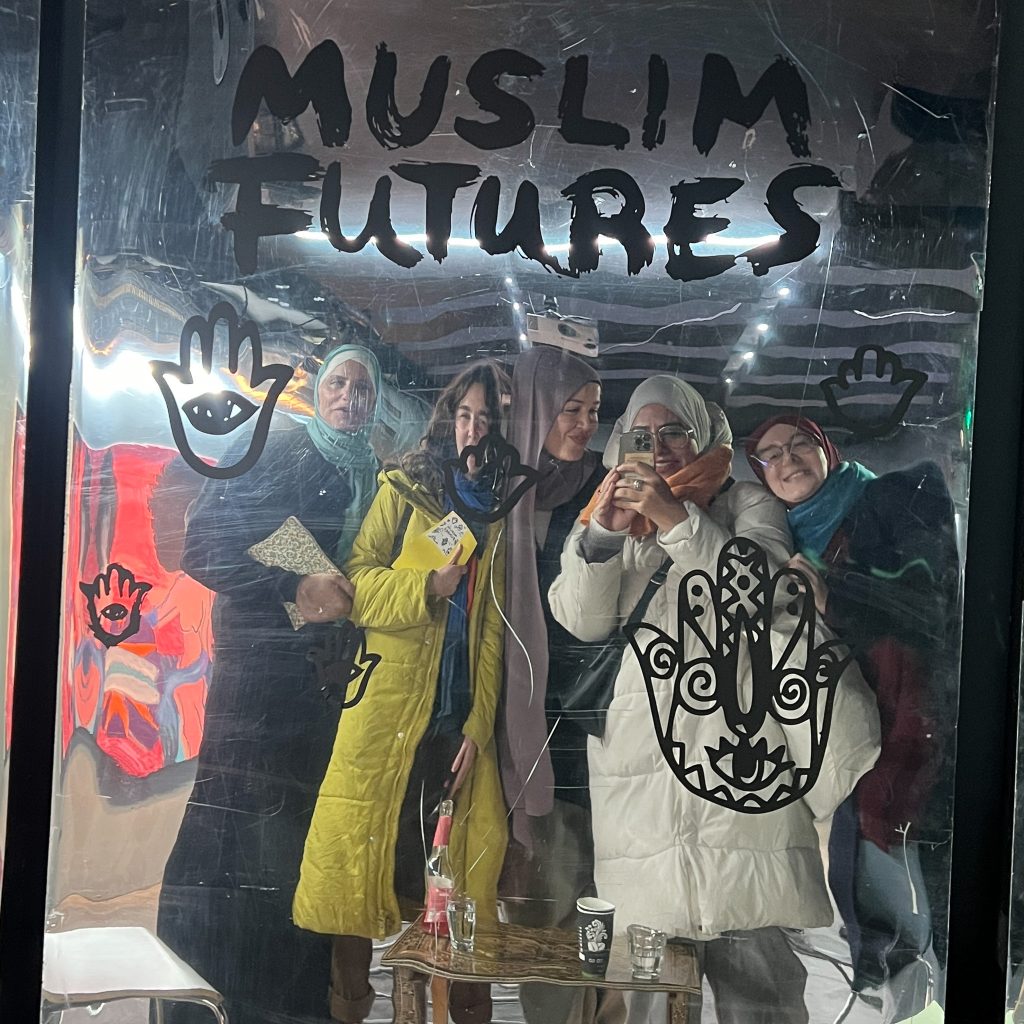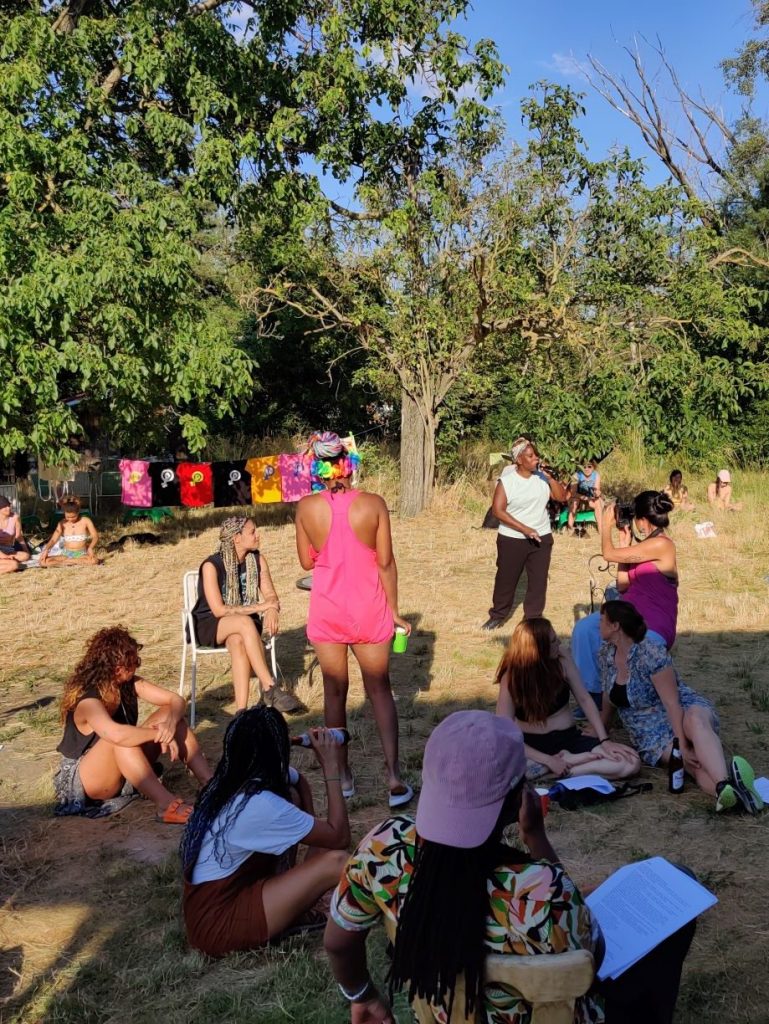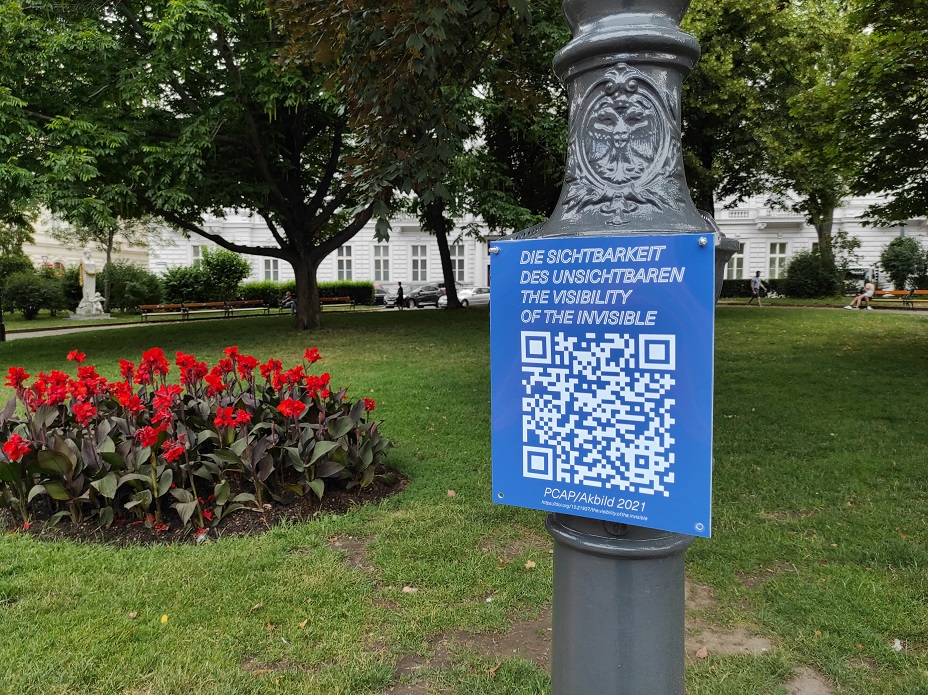
conviviality in times of pandemic …
… and conflicts.
a collaborative diary
29/1/2025
Zoom lecture by Slavcho Dimitrov: Skopje Pride Weekend
Report of the Archive Skopje Pride Weekend
By Marina Gržinić
On January 29, 2025, after an intensive week of Coalition Margins preparing the archive of Skopje Pride Weekend—a festival that has been running for several years and is exceptional in its socially and artistically oriented approach to queerness as an emancipatory project—a lecture presentation took place. The archive, presented by curator and theorist Slavcho Dimitrov, highlights Skopje as an important space for queer studies and community building.
Skopje Pride Weekend is a festival dedicated to queer arts, culture, and theory, aiming to create a space for the presentation and promotion of non-normative forms of world-making. This includes relationships, affects, identity positions, bodily styles, and sensibilities that have been marginalized by the heteronormative, nationalistic, and neoliberal capitalist context as queer or eccentric failures.
For our project on Conviviality as Potentiality, the layers uncovered by Slavcho Dimitrov revealed an immense number of perspectives. Below is a rough and incomplete list of this political anti-archive—an opposition to heteronormative institutional and curatorial spaces that stifle, regulate, and erase positions. Against these forces, the possibility of conviviality emerges as a shared existence across species, realized through artistic performance and theoretical engagement—resisting all odds and the forces of neoliberal commodification.
Slavcho Dimitrov concluded his compelling talks with this beautiful thought: “Arising from sensibility and relationality, the signifiers and political identities we affectively invest in promise no plenitude nor fullness, but the desire for relationality, for staying in the trouble of the “with,” with others. The desire to be more-than-One, to be outside-oneself.”
THANK YOU!
Artists, Performers, Theoreticians, Activists:
- Cassils (b. Montreal, Quebec, Canada) – A visual and performance artist, bodybuilder, and personal trainer now based in Los Angeles, whose work integrates feminism, body art, and gay male aesthetics, using their own body as sculptural material.
- Vaginal Davis (b. Los Angeles, California, USA) – A genderqueer artist, performer, and cultural agitator of Afro-Mexican and German heritage, known for pioneering work in punk drag, DIY aesthetics, and the creation of radical queer spaces. Her work explores themes of race, gender, and sexuality through performance, film, and zine culture.
- Boryana Rossa (b. Bulgaria) – A Bulgarian interdisciplinary artist, filmmaker, and curator working with performance art, video, and photography, often exploring themes of biotechnology, gender, and the politics of the body. She is also a professor and researcher in new media arts.
- Hélène Barriere & Victor Marzouk – Victor Marzouk aka Victor Lemaure is a Franco-Tunisian performance artist and a queer icon in Europe. A pioneer of the drag king community in France and an early queer performer, his work explores the paradoxes of femininity and masculinity through failure and repetition. Starting in 2001, he collaborated with Paul B. Preciado on drag king workshops, which he took over solo in 2006. He has also worked with Diane Torr, Del LaGrace Volcano, and Annie Sprinkle. A committed activist down to the last hair, he has organized numerous drag king workshops across Europe, recently celebrating his 364th workshop and inspiring hundreds of “king brothers” throughout the continent. He has appeared in various documentaries and films, including Mutantes and Bye Bye Blondie by Virginie Despentes, Mon sexe n’est mon genre by Valérie Mitteaux, Drag King, le docu by Chris Lag, and Orlando, ma biographie politique by Paul B. Preciado.With a unique perspective on masculinities, he has since expanded his interventions to address the political and social alternatives of new masculinities. By deconstructing norms while calling for a profound reassessment of the social privileges granted to cis men in public spaces, Victor Lemaure has become a central figure in the European queer scene. Together with Hélène Barrier (the artist ICONOKLASTES), he co-founded KING VITAM AETERNAM. Since 2020, they have organized cabaret events under the banner of JERK OFF, and since 2012, they have run workshops blending butoh and drag king performance
- Dominic Johnson – A British performance art scholar, curator, and writer specializing in body art, queer performance, and radical live art. He is a professor at Queen Mary University of London and has written extensively on experimental performance.
- Aérea Negrot (Venezuela) – A Berlin-based Venezuelan singer, DJ, and performer blending electronic music, opera, and performance art, known for collaborations with Hercules & Love Affair and her avant-garde solo work.
- Ephemeral Confessions – conceptual or performance project;
- Del LaGrace Volcano (USA) – A genderqueer intersex photographer and performance artist whose work explores queerness, gender fluidity, and the intersex experience through portraiture and live performance.
- David Hoyle & The Lipsinkers – David Hoyle is a British avant-garde cabaret performer known for his politically charged drag performances. The Lipsinkers are a London-based drag and lip-syncing cabaret collective known for their irreverent, high-energy shows.
- Ivo Dimchev (b. Bulgaria) – A Bulgarian choreographer, performer, and visual artist whose experimental work merges contemporary dance, theater, and live art with a provocative queer aesthetic.
- Travis Alabanza (UK) – A Black trans-femme writer, performer, and artist whose work explores trans identity, race, and class through theatre, poetry, and performance art.
- Ron Athey (USA) – A pioneering performance artist known for extreme body modifications, ritualistic performances, and explorations of HIV/AIDS, queer identity, and pain as a transformative force.
- boychild – A non-binary visual and performance artist whose work involves movement-based lip-syncing performances that disrupt gender expectations, often collaborating with artists like Wu Tsang.
- Rachael Young – A UK-based performance artist and writer whose work blends live art, sound, and socio-political commentary, often exploring Black and queer identities.
- David M. Halperin (USA) – A cultural theorist and historian specializing in queer theory, known for Saint Foucault and How to Be Gay, influential in LGBTQ+ studies.
- Felix Gonzalez-Torres (1957–1996, Cuba/USA) – A Cuban-American conceptual artist known for minimalist installations and sculptures addressing love, loss, and queer identity, often using candy, clocks, and lightbulbs as metaphors.
- Renate Lorenz & Pauline Boudry – A Berlin-based artistic duo known for their films and installations exploring queer histories, performativity, and resistance.
- Karin Michalski – A filmmaker, curator, and scholar working in feminist and queer video art, often addressing social justice and gender politics.
- Federica Dauri & Hermes Pittakos – A performance duo known for experimental body-based performances exploring pain, intimacy, and the limits of the human form.
- Keijaun Thomas – A New York-based performance artist whose work explores Blackness, labor, and the performance of care, often using material-heavy, durational performances.
- STEAM ROOM – An experimental art and performance collective.
- Lauren Berlant (1957–2021, USA) Lauren Gail Berlant was an American scholar, cultural theorist, and author who is regarded as “one of the most esteemed and influential literary and cultural critics in the United States. A literary theorist and cultural critic known for works on affect theory, intimacy, and public emotions, including Cruel Optimism.
- FRANKO B (Italy) – A London-based performance artist known for endurance-based works using blood, pain, and vulnerability to challenge notions of power and suffering.
- Nao Bustamante & Marcus Kuiland-Nazario – Nao Bustamante is a multidisciplinary artist known for provocative performances blending humor, identity, and experimental media. Marcus Kuiland-Nazario is a performance artist and cultural producer engaging with Latinx and queer narratives.
- SVETLOST, SPIT! Manifesto Collective – A queer/feminist performance and artistic collective.
- Julie Tolentino & Stosh Fila – Julie Tolentino is a dancer, choreographer, and artist known for intimate, durational performances focused on queer archives and care. Stosh Fila is a genderqueer artist working in performance and installation.
- Matthieu Hocquemiller – A French choreographer and performance artist exploring the intersection of dance, sexuality, and queerness.
- Julischka Stengele – A queer feminist performance artist and scholar based in Austria, working with themes of body politics, representation, and resistance.
- Wolfgang Tillmans (Germany) – A Turner Prize-winning photographer known for his intimate portraits, queer aesthetics, and socio-political engagement in visual culture.
- Viktorija Ilioska – A performance and visual artist.
- Shirley Harthey Ubilla – A Chilean-German performance artist known for works exploring identity, migration, and decolonial feminism.
- Malik Nashad Sharpe (UK/USA) – A choreographer and dancer known for their work in Black queer movement practices, subverting mainstream dance narratives, and fostering radical community-building through performance.

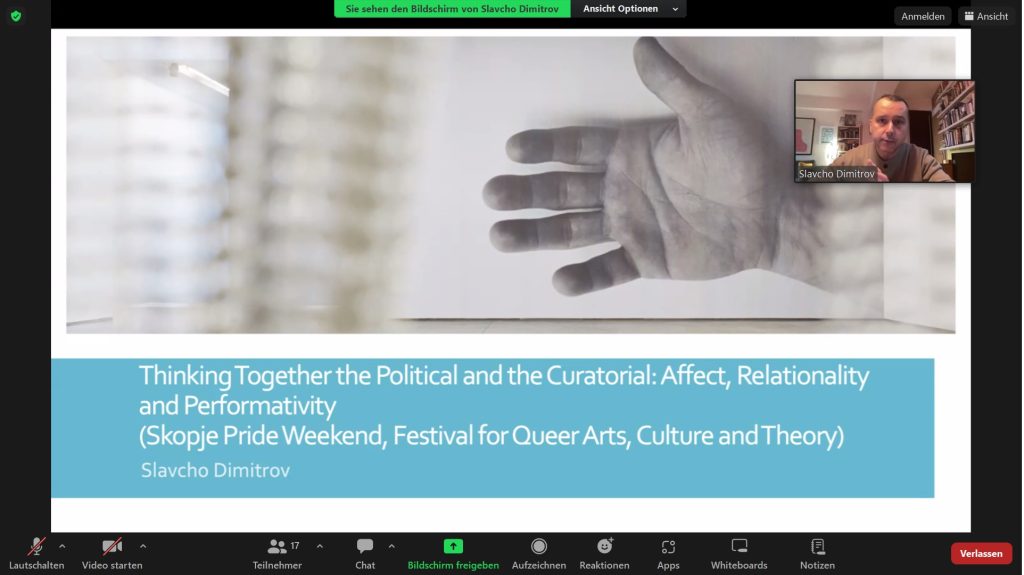
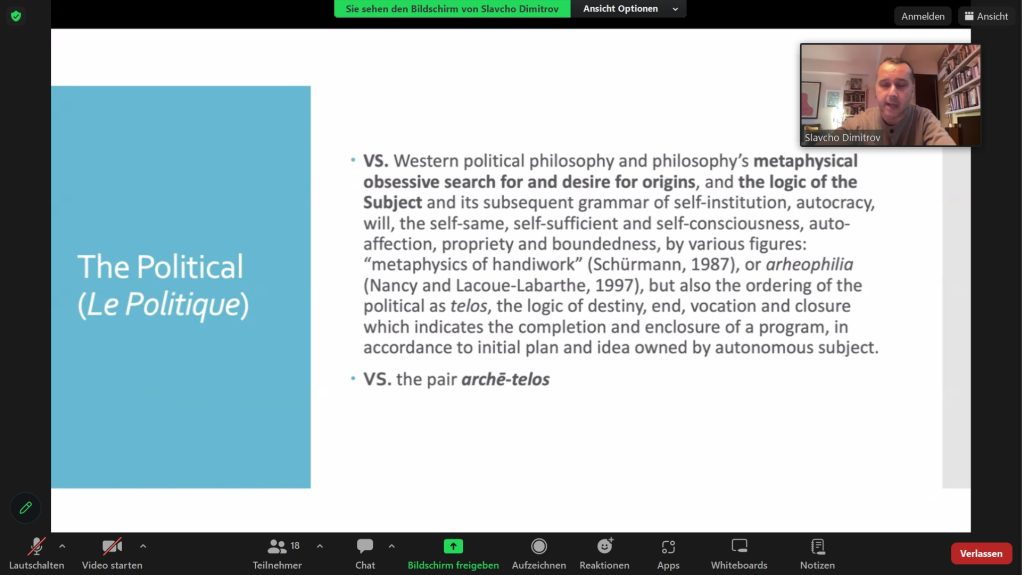
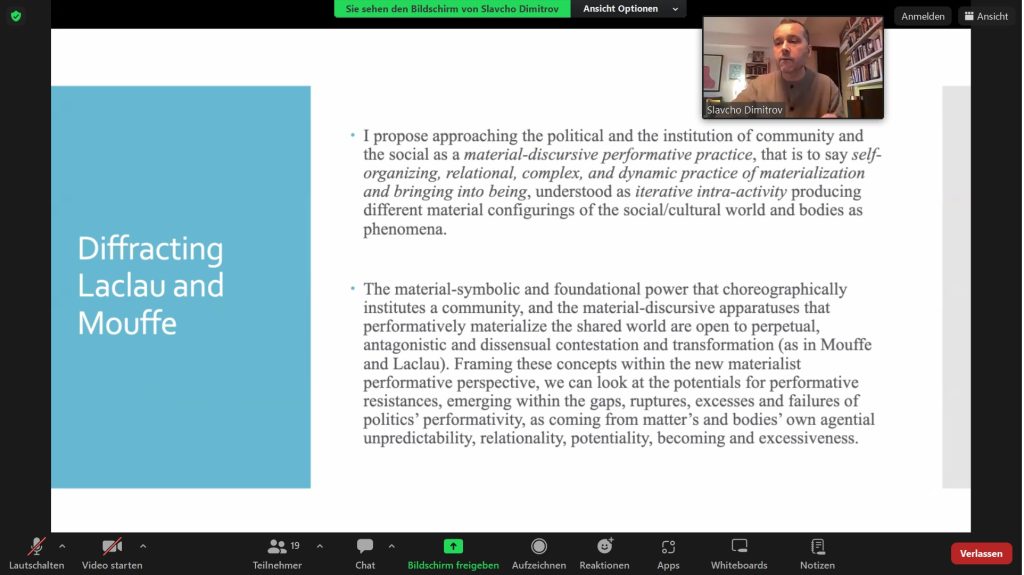


11/1/2025
Deutsche Islam Akademie, Berlin
ReKUNSTruktion: Art as a Bridge to Identity and Social Participation
By Asma Aiad
On January 11, 2025, the Deutsche Islam Akademie in Berlin invited to be part of a space of dialogue, creativity, and empowerment during the kick-off event of “ReKUNSTruktion: Art as a Bridge to Identity and Social Participation” (Kunst als Brücke zur Identität und gesellschaftlichen Teilhabe). This workshop marked the beginning of a series aimed at exploring the intersections of art, cultural identity, and political education. Targeted at young adults navigating post-migrant realities, the day invited participants to reflect on their personal journeys, engage in collective artistic expression, and reimagine art as a tool for societal change.
The day commenced with a warm welcome from the Deutsche Islam Akademie, an institution dedicated to fostering pluralism, dialogue, and empowerment through education and culture. Participants, ranging from curious newcomers to engaged creatives, were asked to reflect on the question, “What is art?” using a Mentimeter-based word cloud. Responses painted a broad spectrum—from “expression” and “resistance” to “beauty” and “identity”—setting the stage for a critical examination of art’s role in shaping and reflecting societal narratives.
The day continued with lecture by Asma Aiad titled “Voices of Art & Culture: Creative Pathways to Empowerment” (Stimmen von Kunst & Kultur: Kreative Wege des Empowerments), exploring the intersection of art and societal transformation. Aiad shared the compelling origins of SalamOida and Muslim*Contemporary, two initiatives that leverage creative work and digital platforms to amplify marginalized voices. She recounted the challenges faced by artists navigating systemic exclusion, stereotypes, and limited representation in the mainstream art world. Yet, her stories brimmed with hope, illustrating how art and culture can become vehicles for empowerment, resistance, and community building.
Aiad also posed thought questions to the audience, to reflected about their personal experiences of navigating identity and inclusion.
The afternoon transitioned into an immersive creative session centered on the theme of identity. Participants began by mapping out their personal “identity molecules” (Identitätsmoleküle), reflecting on key elements that define them—such as cultural heritage, personal values, and lived experiences. They translated these reflections into the design of individual masks. Using vibrant colors, intricate patterns, and symbolic shapes, each participant’s mask became a unique visual narrative of their identity.
The creative process fostered a sense of introspection and vulnerability, while the collective act of assembling the masks into a shared collage symbolized the strength found in diversity and community. This collaborative artwork stood as a testament to the workshop’s ethos: that art has the power to weave individual stories into a broader tapestry of solidarity and shared humanity.
The workshop also delved into critical discussions about the structural biases embedded in the art world. Participants explored questions such as “Who decides what is art?” and analyzed how classism, racism, and colonial legacies shape artistic narratives and representation. These conversations underscored the urgency of creating more inclusive artistic spaces that celebrate diverse voices and challenge hegemonic structures.
“ReKUNSTruktion” was more than a workshop; it was a catalyst for self-discovery, a celebration of collective creativity, and a bold affirmation of art’s transformative power. As participants departed, their masks in hand and spirits ignited, the event left an indelible mark—both as an artistic journey and as a call to action for a more inclusive, equitable future.
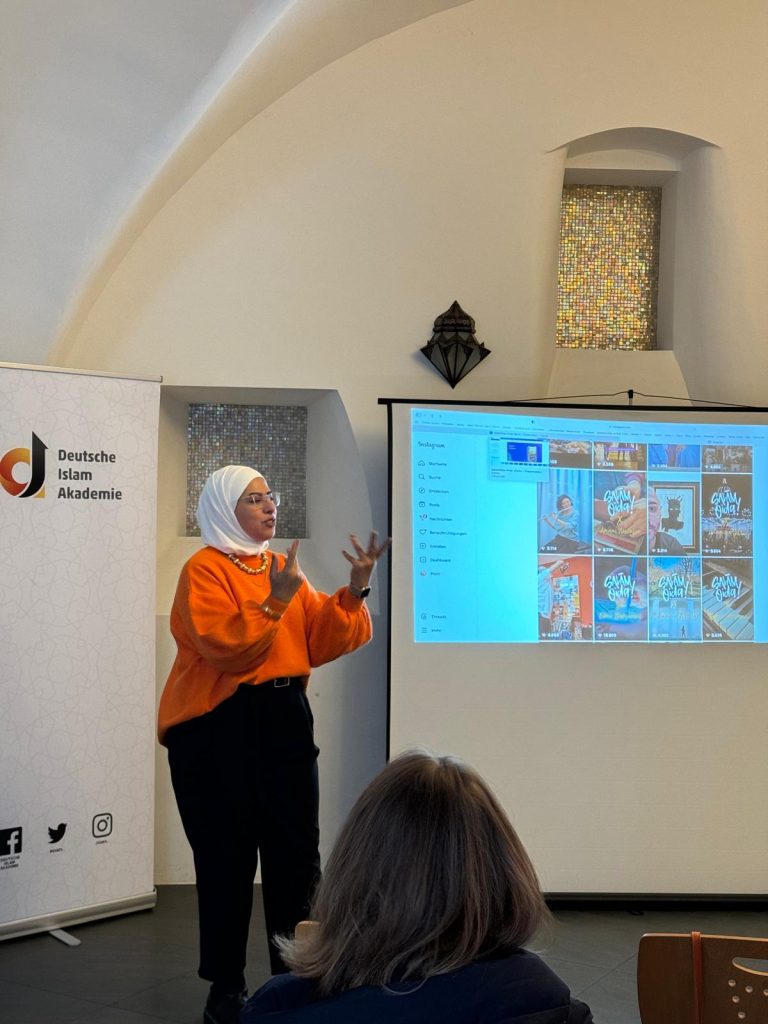
7-9/1/2025
Belfast, Northern Ireland
The Troubles and Beyond: Exploring Northern Ireland’s Complex Legacy
Part 1: The Troubles and Beyond
The Troubles were a long-running conflict that took place mainly in Northern Ireland and lasted for some 30 years, from the late 1960s until 1998. This period ended with the signing of the Good Friday Agreement in 1998. The Northern Ireland peace process, which culminated in the Good Friday Agreement, marked a turning point. This agreement established a framework for power-sharing, reaffirmed the principle of consent to the constitutional future of Northern Ireland, and addressed civil liberties, police reform, the disarmament of paramilitaries, and the early release of prisoners. It remains a cornerstone of Northern Ireland’s political landscape.
The Troubles, describes a time of deep-rooted political, nationalist, and sectarian divisions. The central issue was the constitutional status of Northern Ireland. Unionists and Loyalists, predominantly Ulster Protestants, wanted to remain in the United Kingdom. In contrast, Irish nationalists and republicans, predominantly Irish Catholics, advocated a united Ireland. Although religious identities were at stake, the conflict was essentially political and not religious. The origins of the conflict lay in the civil rights movement, led by the Northern Ireland Civil Rights Association, which opposed the Protestant Unionist government’s systematic discrimination against the Catholic nationalist minority.
Events such as the 1969 riots and the deployment of British troops marked important turning points. While some initially saw the British Army as a neutral force, its role became increasingly controversial, especially after incidents such as Bloody Sunday in 1972. “Peace walls” were erected to physically separate the two communities, highlighting the deepening divisions. Key players in the conflict included republican paramilitary groups such as the Provisional Irish Republican Army (IRA) and the Irish National Liberation Army (INLA), loyalist paramilitaries such as the Ulster Volunteer Force (UVF) and British forces, including the British Army and the Royal Ulster Constabulary (RUC). Paramilitary violence, sectarian attacks, riots, and acts of civil disobedience were pervasive. Collusion between the British armed forces and loyalist groups further complicated the conflict, as did feuds within and between paramilitary groups.
Over 3,500 people lost their lives during the Troubles, with 52% of the casualties being civilians. Republican paramilitaries were responsible for 60% of the deaths, loyalist paramilitaries for 30%, and British security forces for 10%. Loyalist groups were responsible for almost half of all civilian deaths, followed by Republican groups and security forces.
The exhibition The Troubles and Beyond at the Ulster Museum in Belfast looks at this period and explores the interplay of politics, conflict, and their impact on daily life, people, and communities. Through its collections and exhibitions, the Ulster Museum captures the lived experiences, personal memories, and evolving narratives of Northern Ireland. The exhibition engaging with history, art, and culture, promotes a deeper understanding of a region shaped by its past while looking to the future.
The exhibition includes broader aspects of contemporary history—Northern Ireland’s social, cultural, and economic narratives are woven throughout the collection (M. Grzinic).



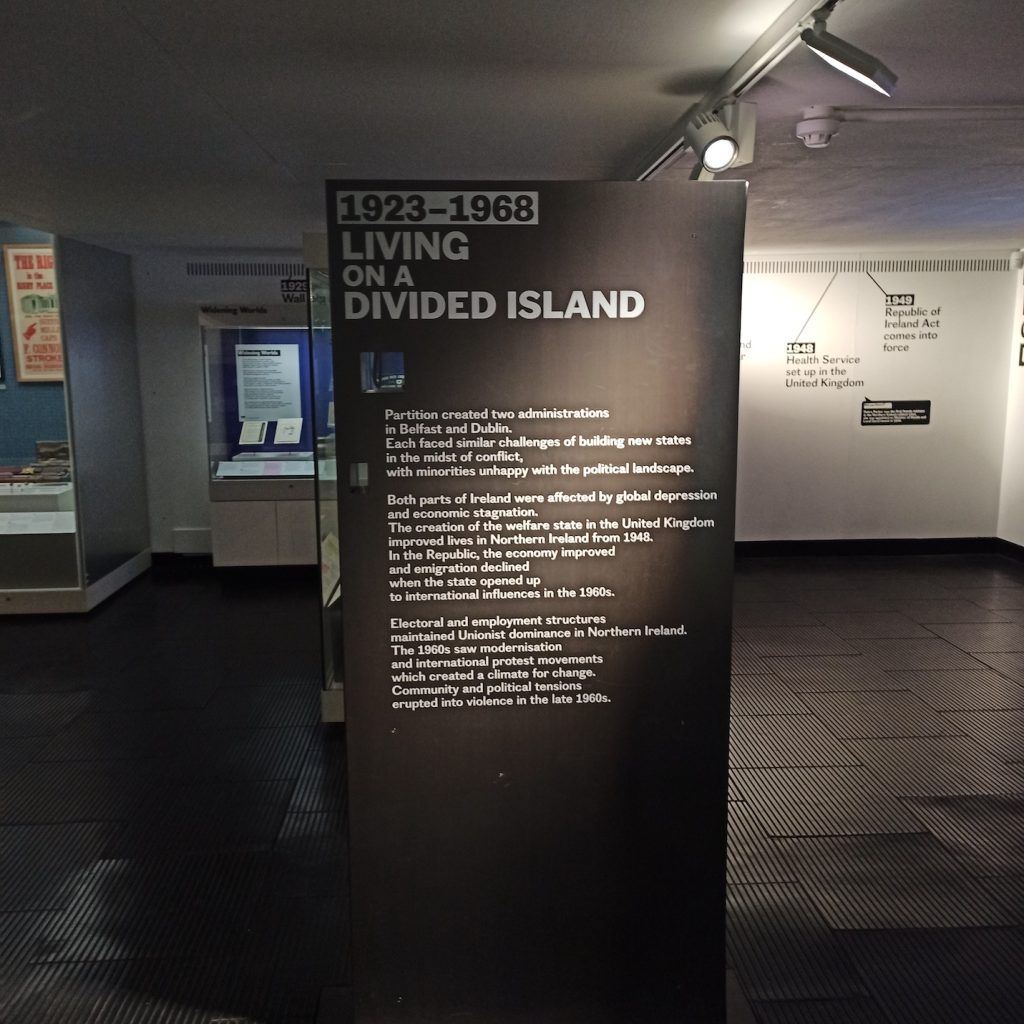
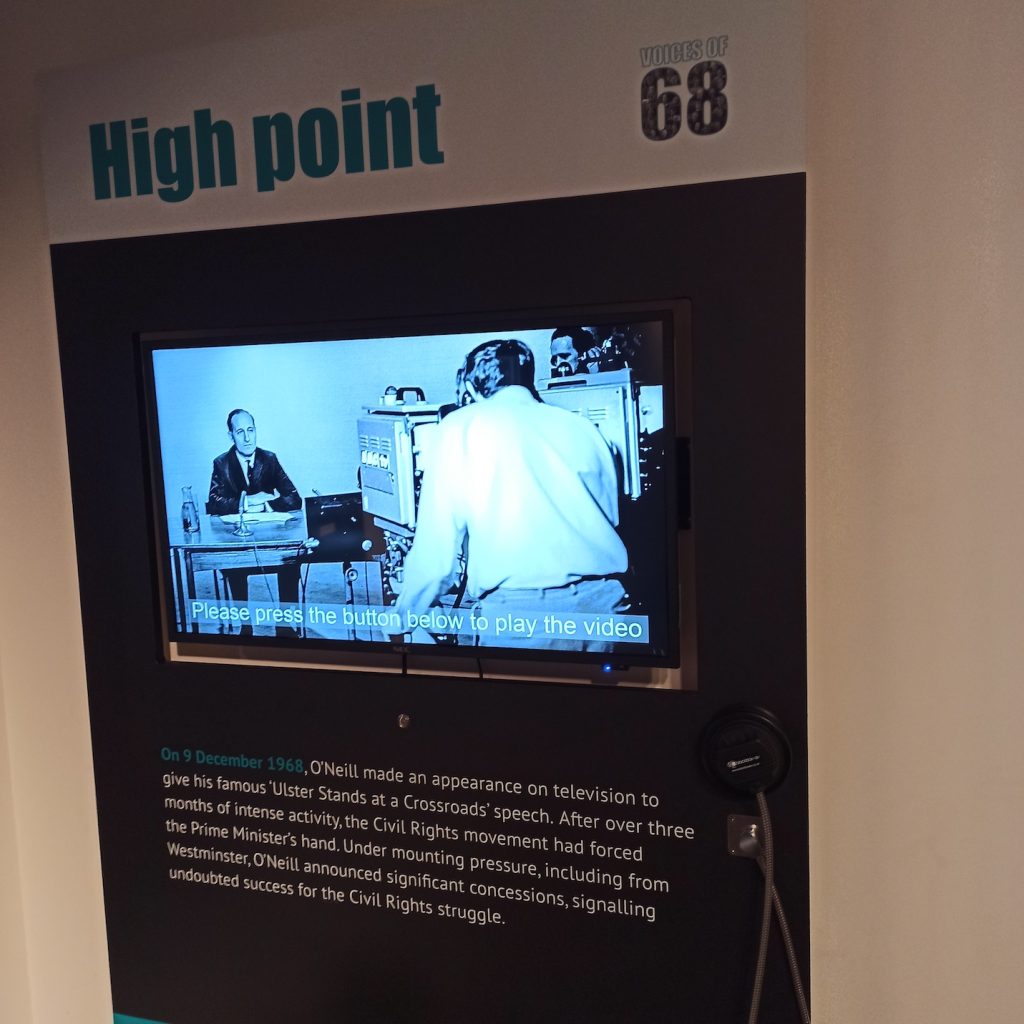
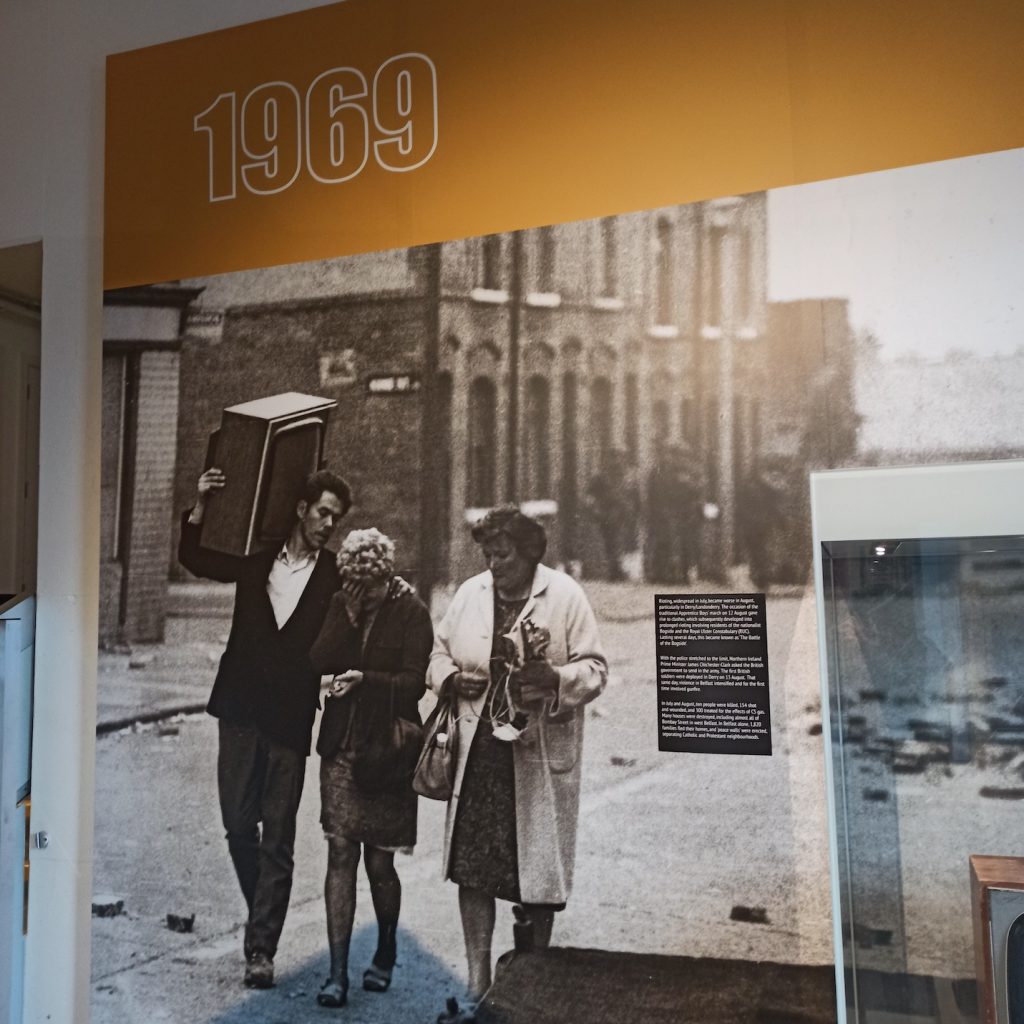

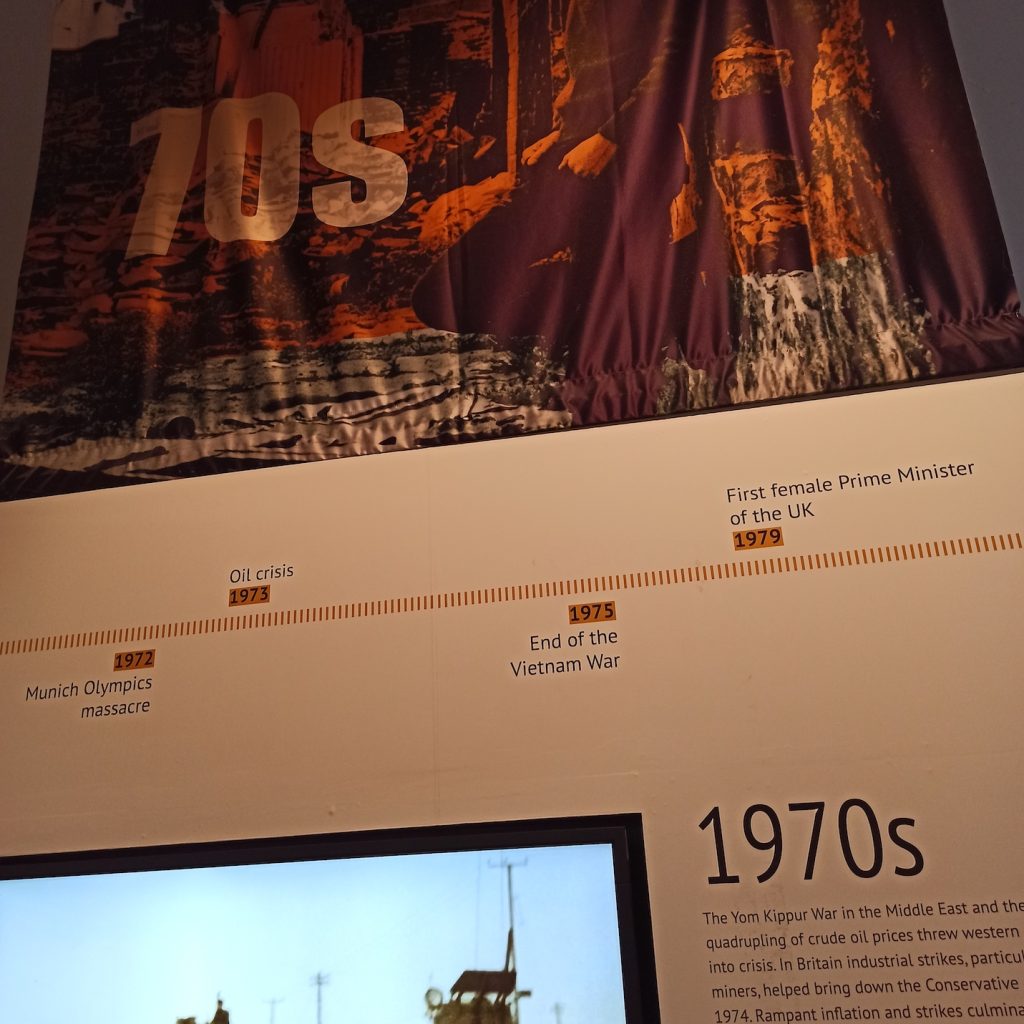
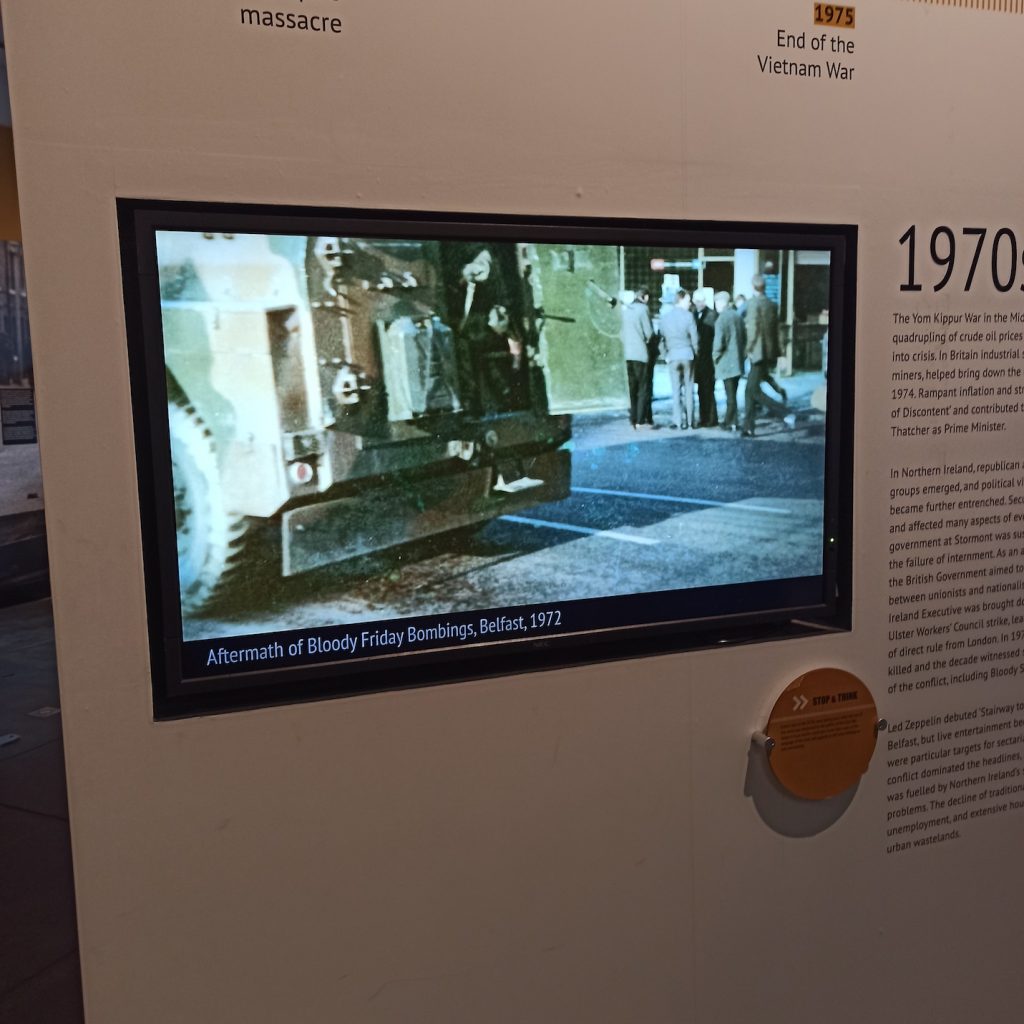
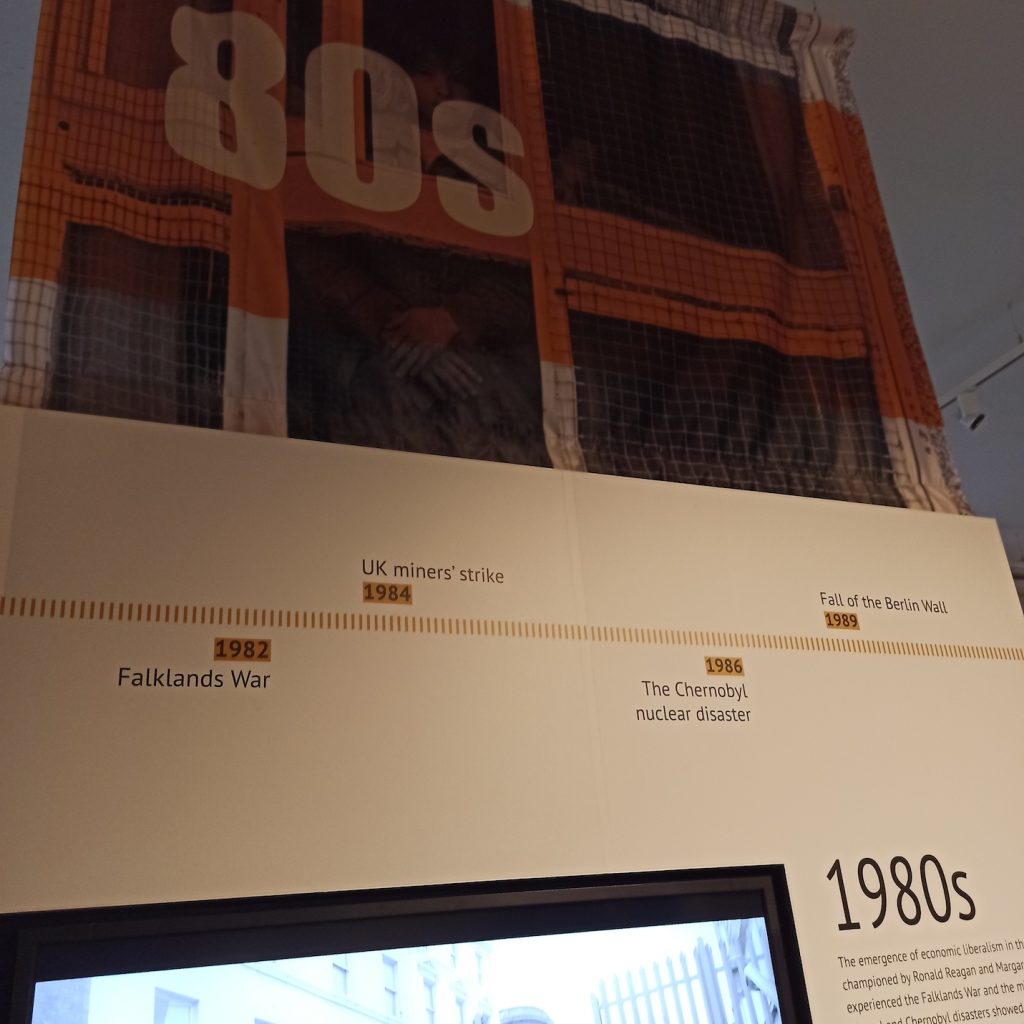
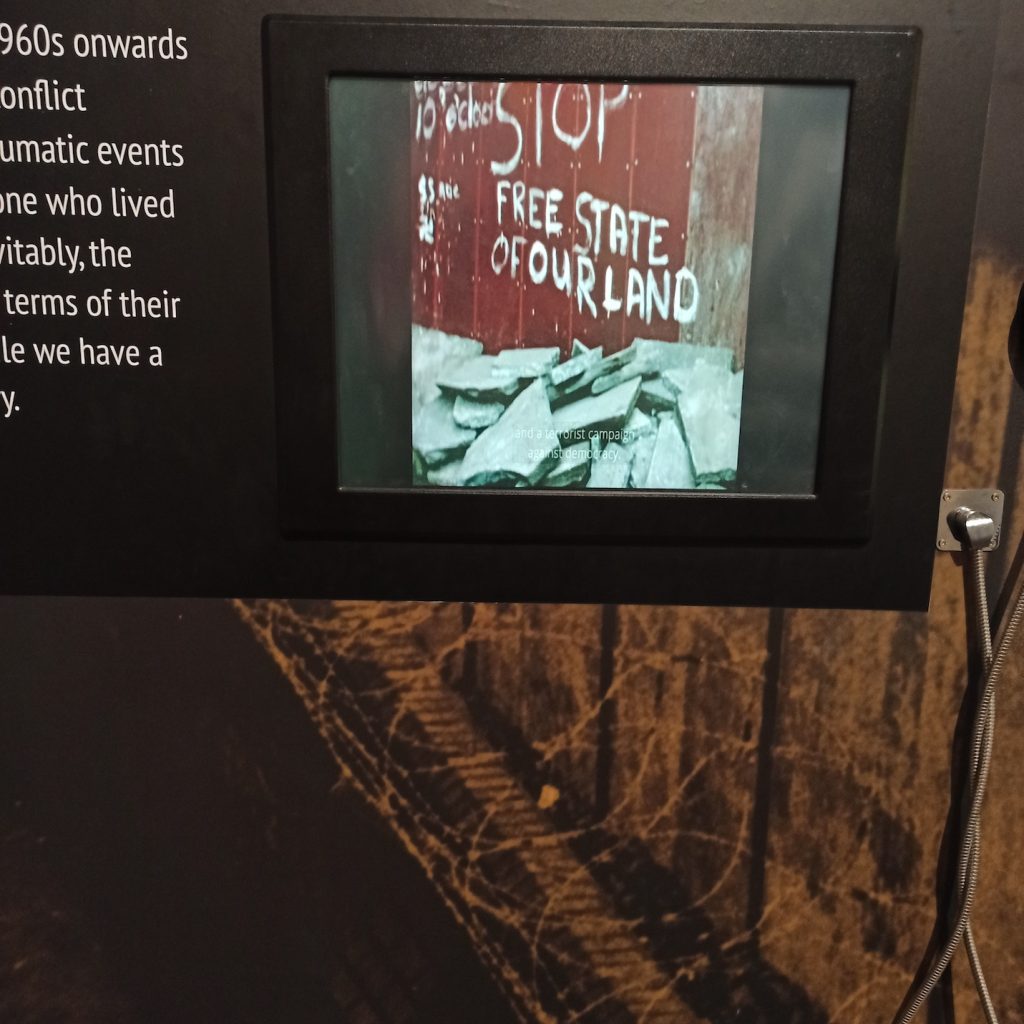
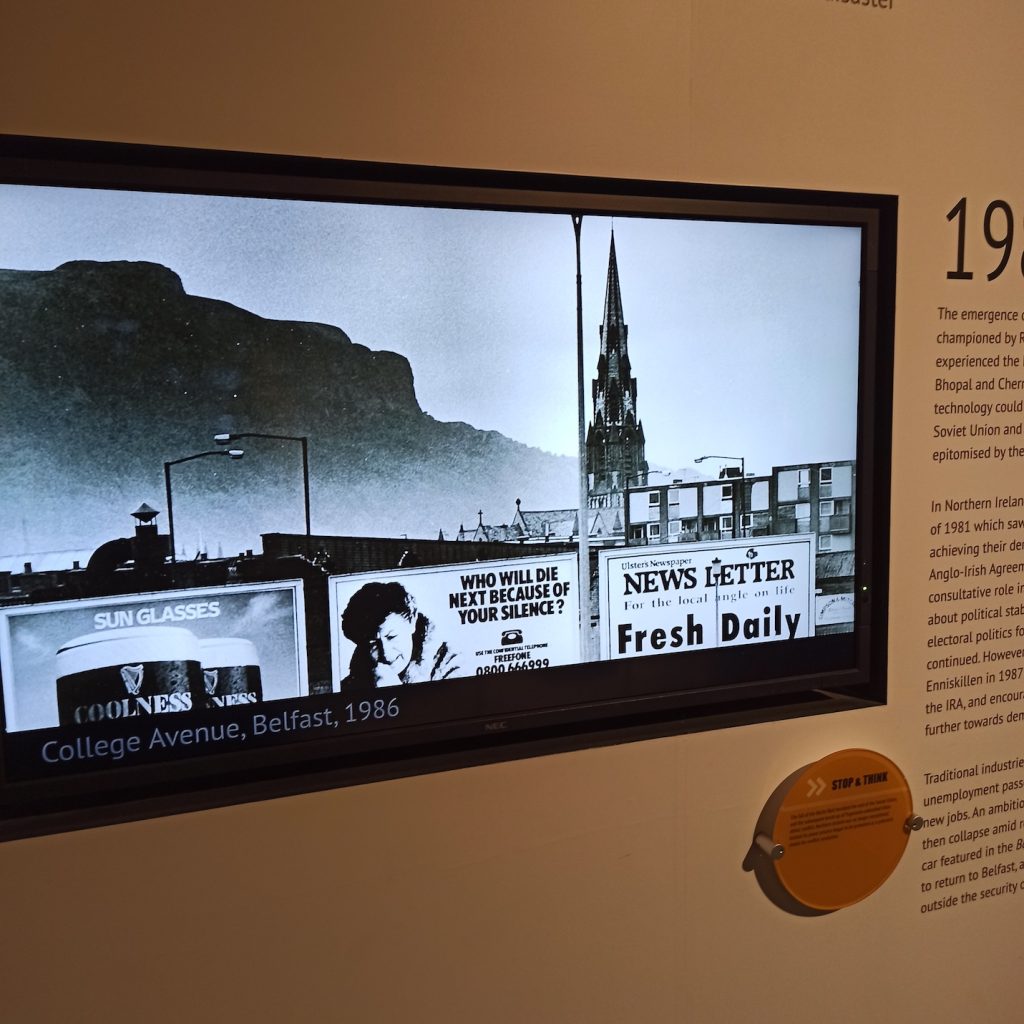






Photographs (1 to 15) taken by Marina Gržinić, research trip to Belfast, Northern Ireland, January 7-9, 2025. Source: The exhibition The Troubles and Beyond at the Ulster Museum, Belfast.
Part 2: Conflicts, Murals, Memories
Murals in Belfast have long served as a canvas for political and social narratives. During the Troubles, they served as a means of establishing identity, protest, and community solidarity. Murals in Unionist areas often depicted symbols of British loyalty, murals on the Republican side celebrated Irish culture, republican struggles, and solidarity with global liberation movements.
Bill Rolston, a leading authority on Northern Ireland’s political murals, has documented this art form since 1981. His photographs have been collected into five volumes titled Drawing Support (1991–2022), showcasing the murals’ evolution and their critical role in reflecting and shaping communal memory.
Drawing Support: Murals, Memory and Identity is the exhibition that presents Rolston’s work at the Ulster Museum in Belfast.
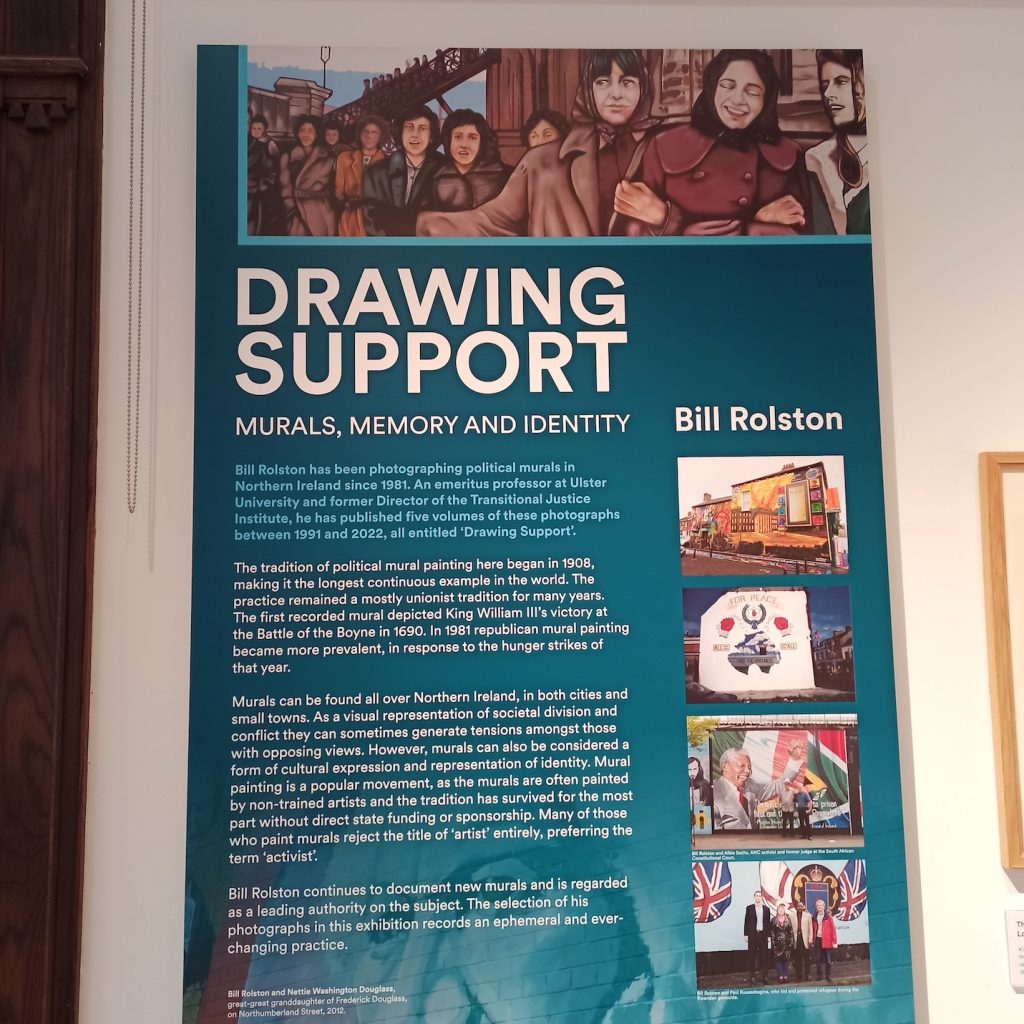
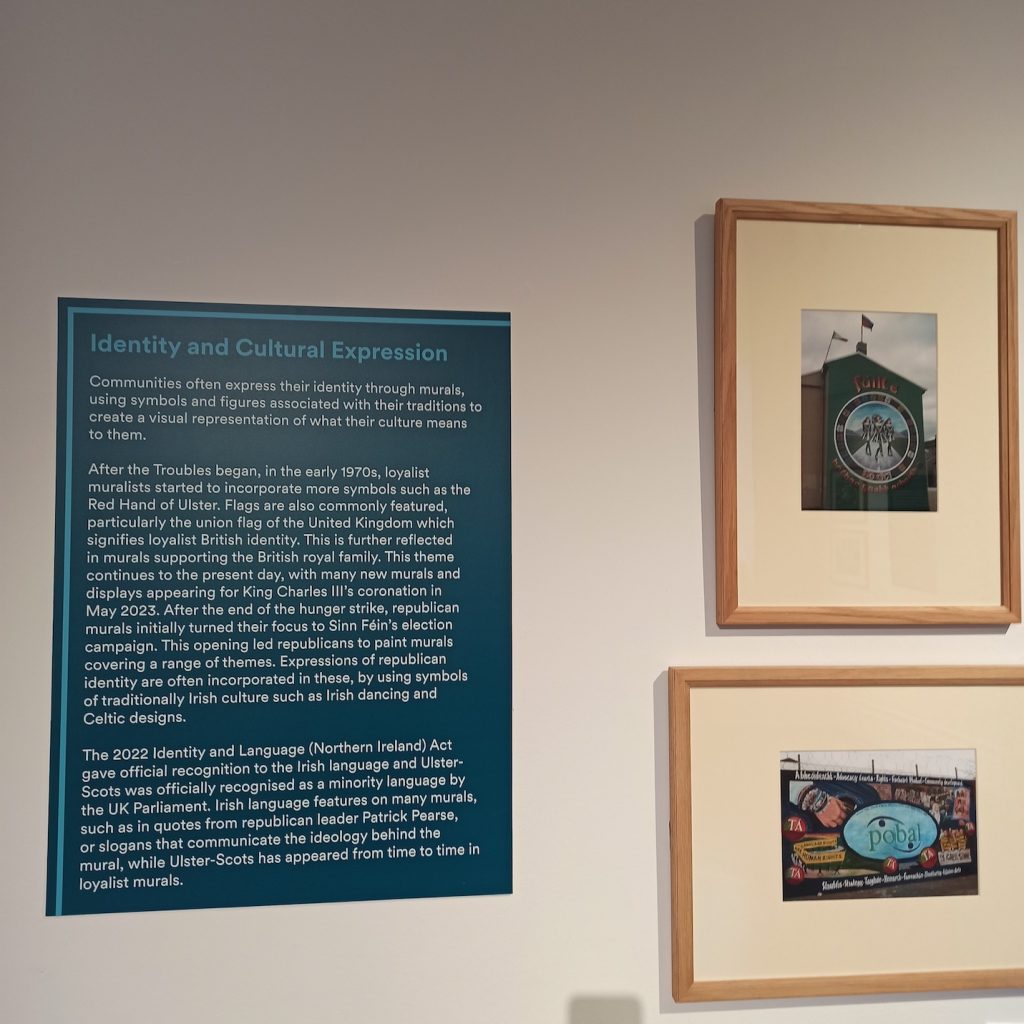
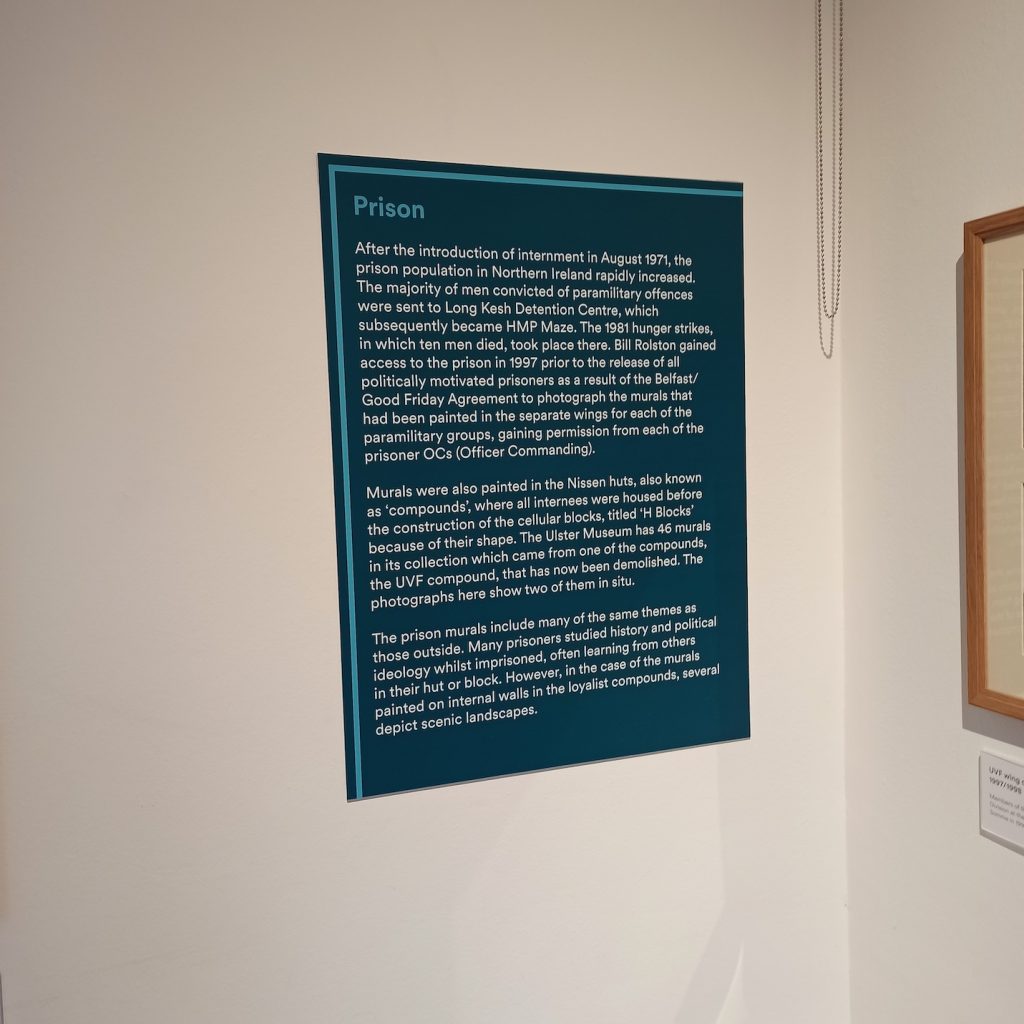
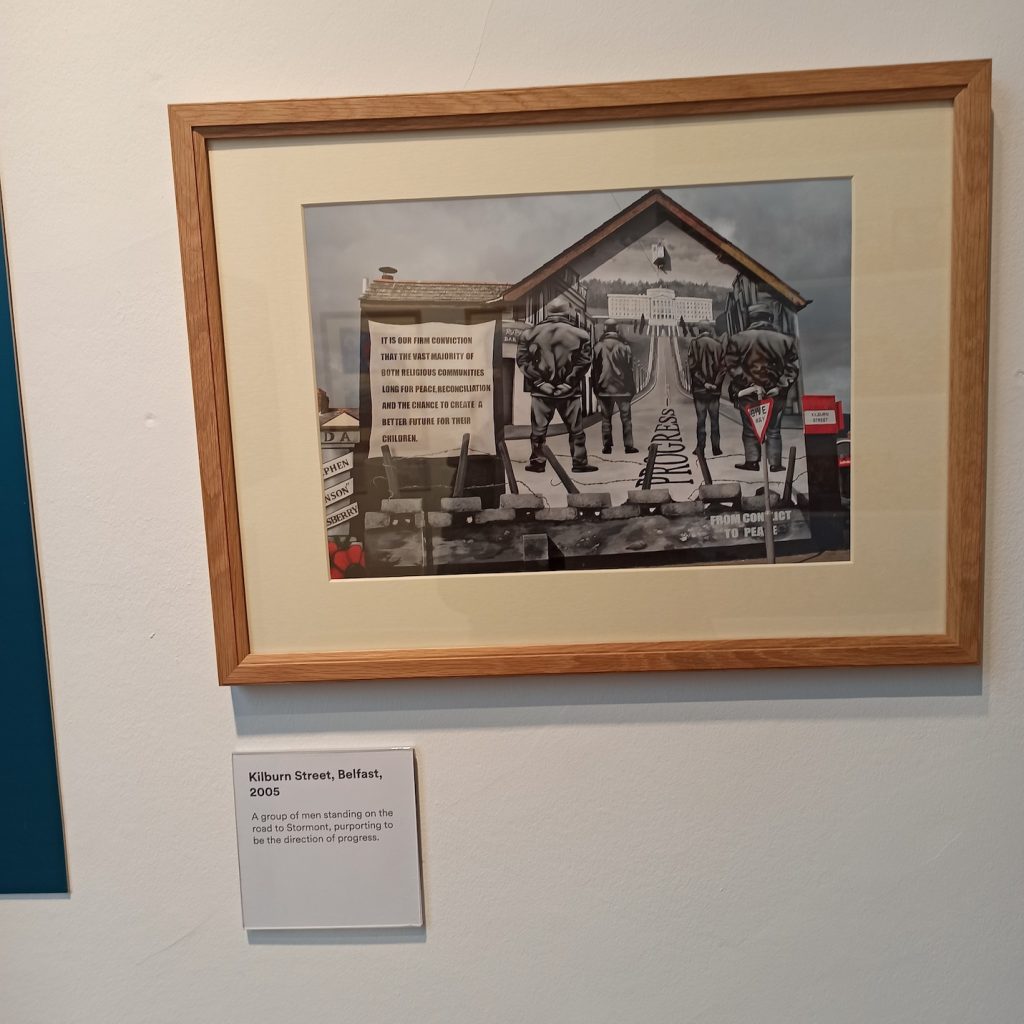
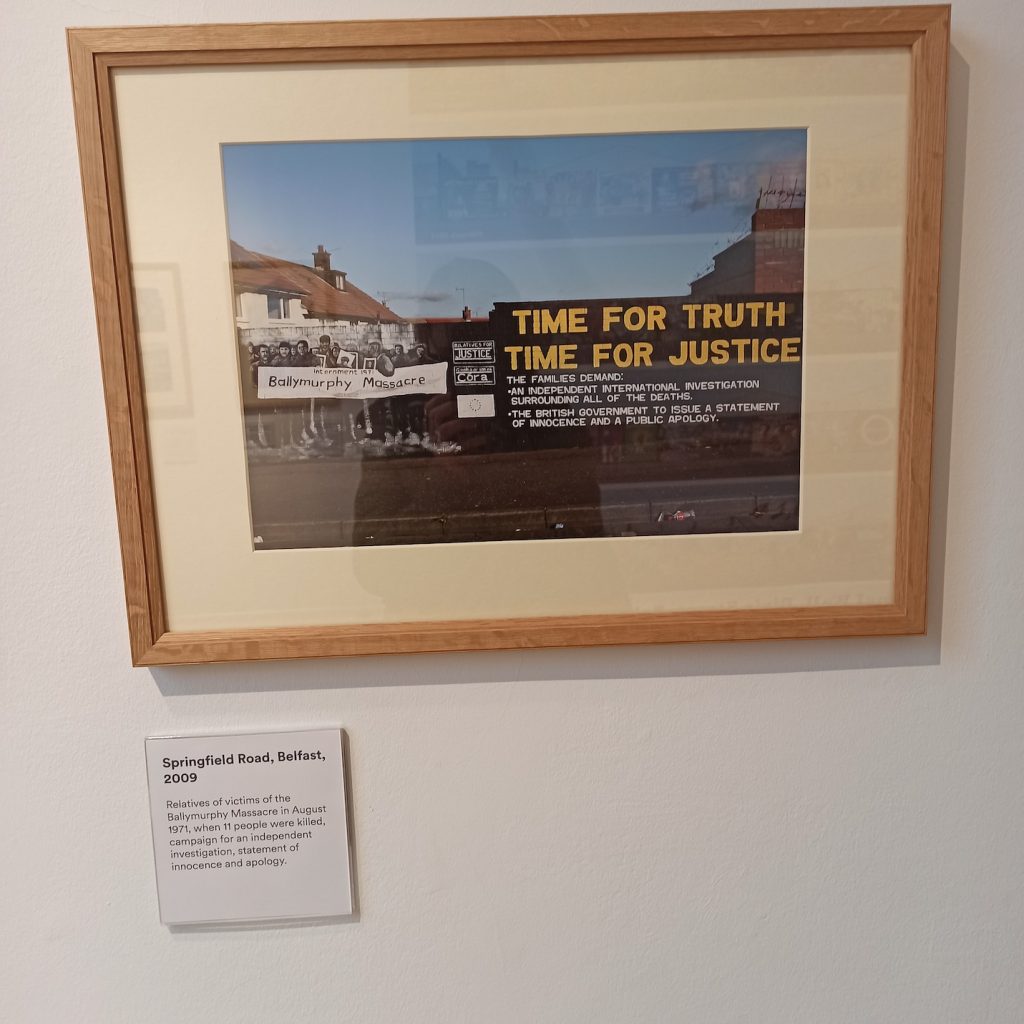
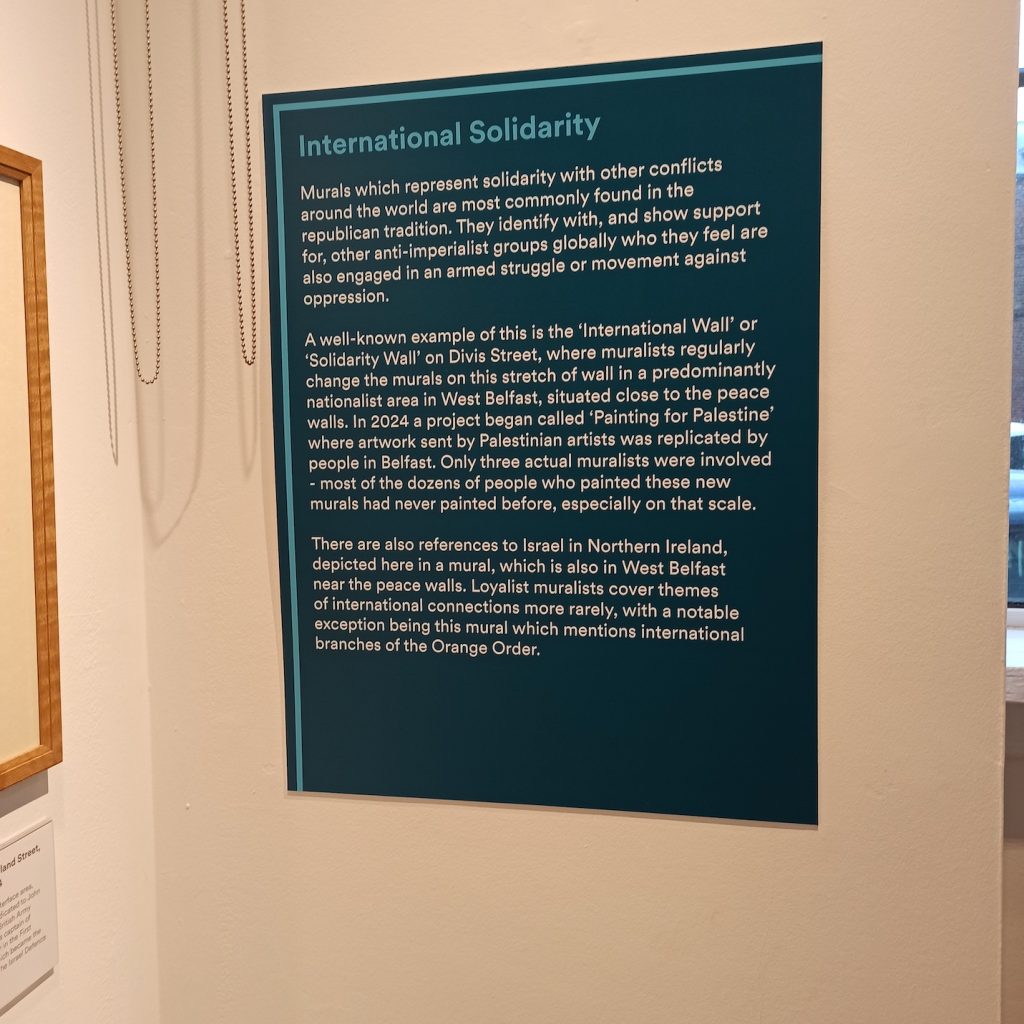
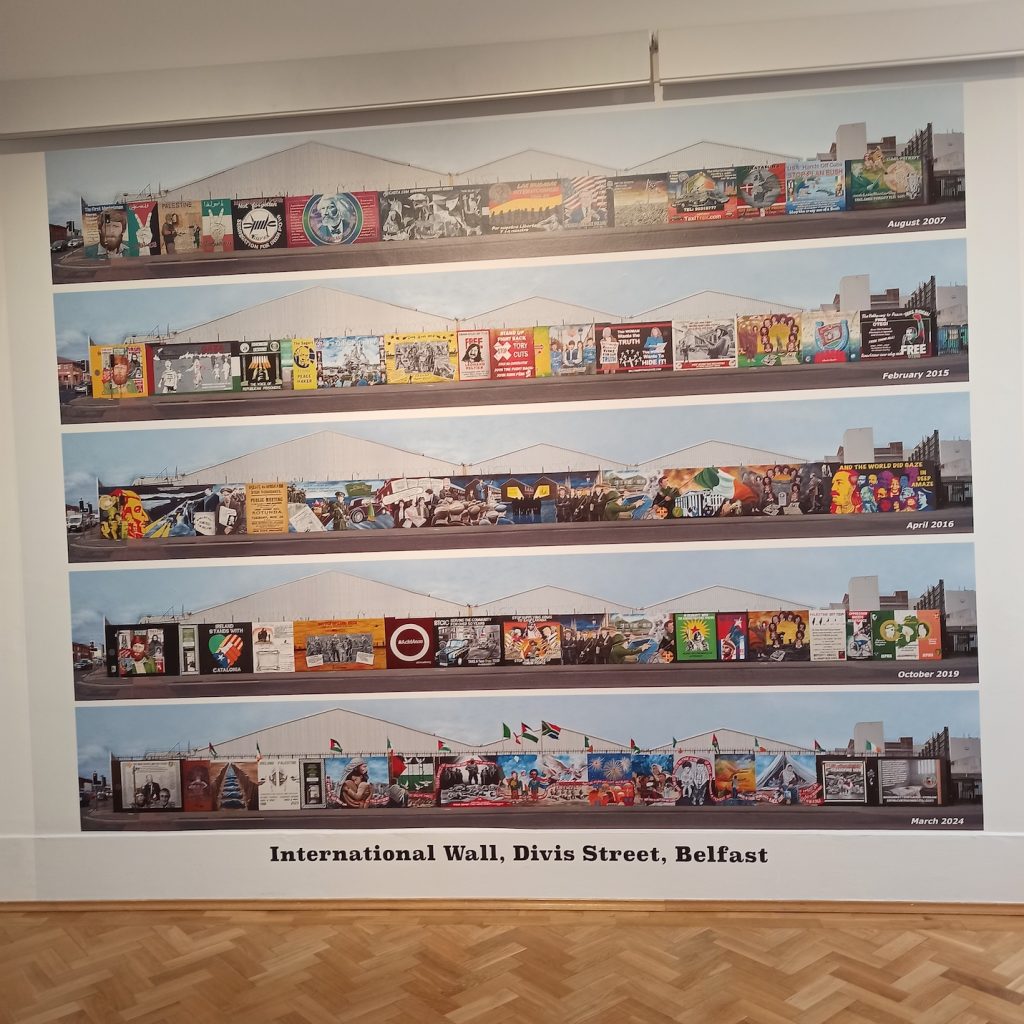
Photographs (16 to 22) taken by Marina Gržinić, research trip to Belfast, Northern Ireland, January 7-9, 2025. Source: Drawing Support: Murals, Memory and Identity exhibition presents Rolston’s work as well at the Ulster Museum in Belfast.
Part 3: The walk through the city of Belfast, shaped by times of the Troubles
This part is inspired by a key panel in the Ulster Museum’s exhibition The Troubles and Beyond. The period we are reflecting on is the period after the Good Friday Agreement of 1998, hence the comment in the exhibition that what comes after that year in 2000 is the legacy of darkness.
A typical tourist tour in today’s Belfast tries to capture the time of the Troubles, and maybe the stories that want to be retold. Donegall Place, Castle Lane, and Ann Street may be central to the life of the city, but behind their buildings are layers of oppression. Ann Street is next to the largest police station in Belfast, prompting us to research how Northern Ireland was policed during the Troubles.
Graffiti and murals are still powerfully present in public places in Belfast.
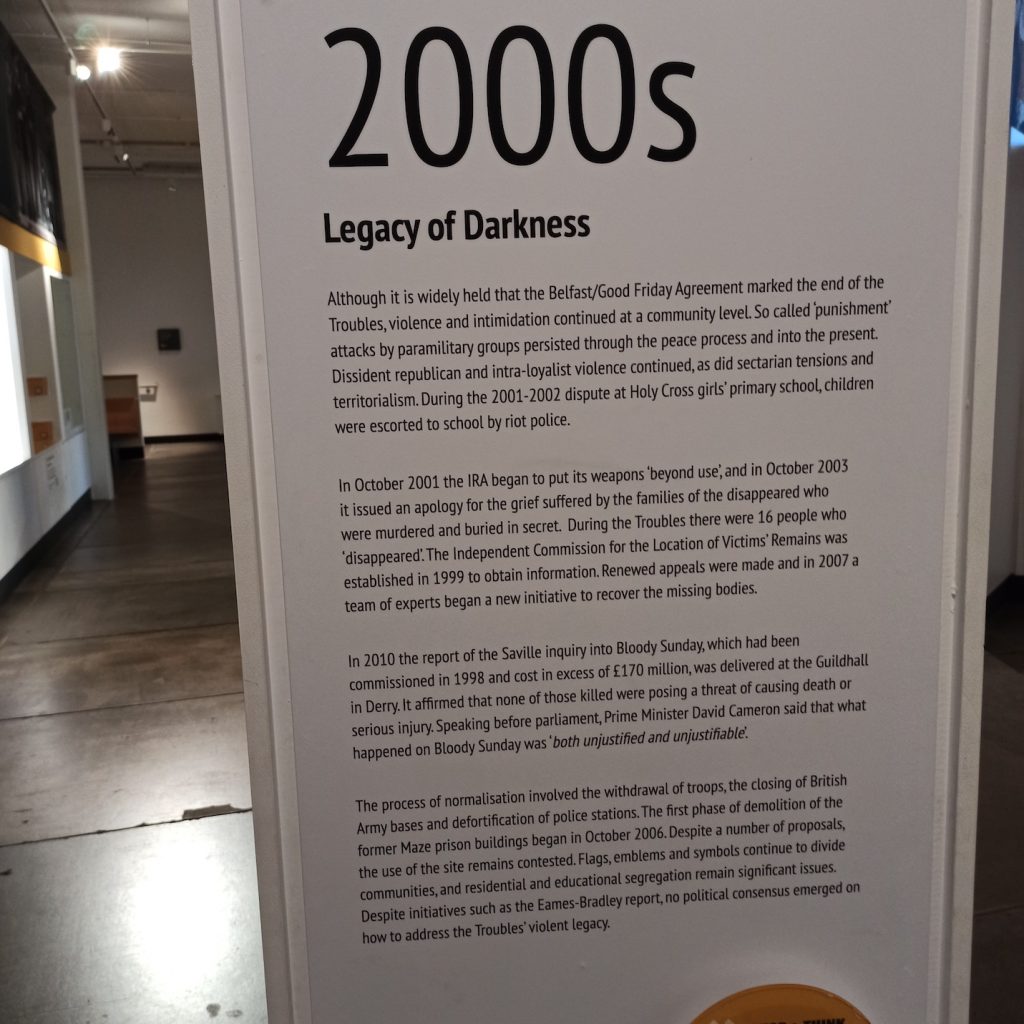
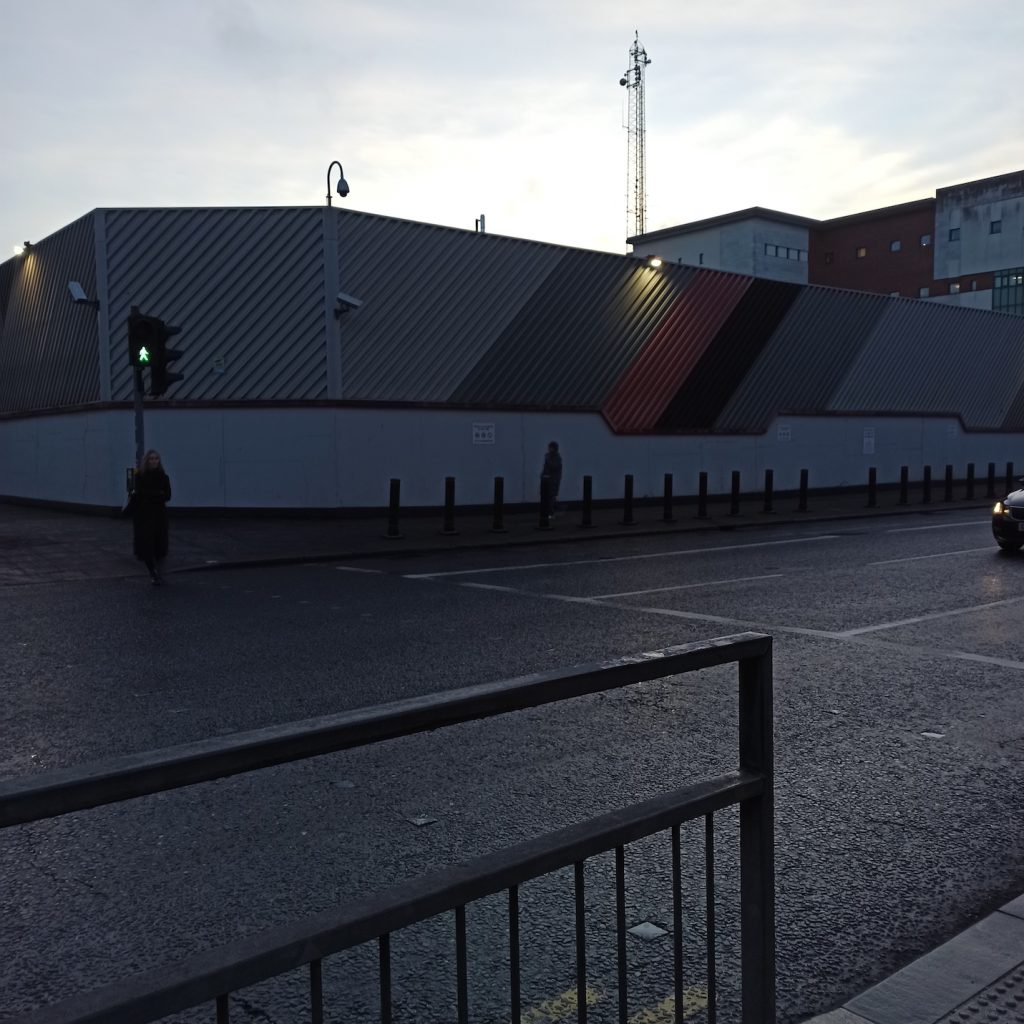
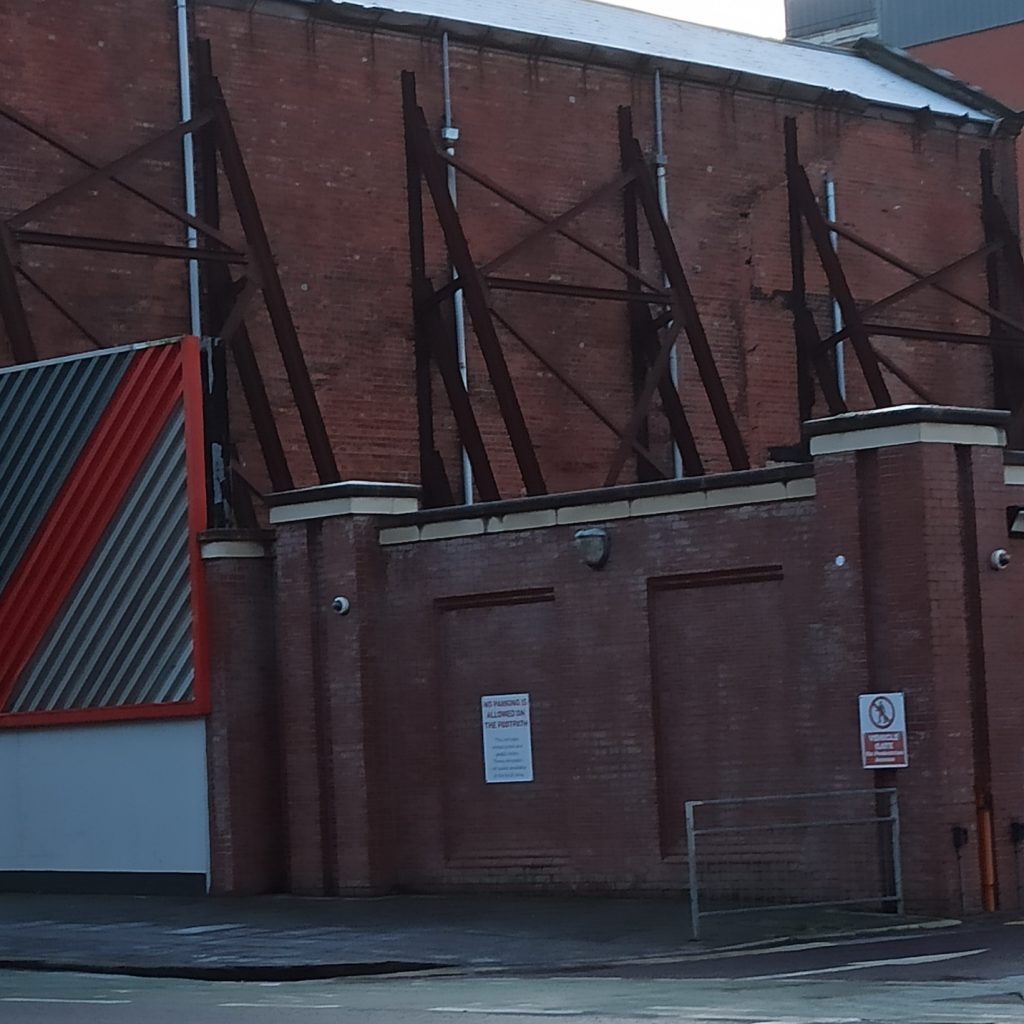
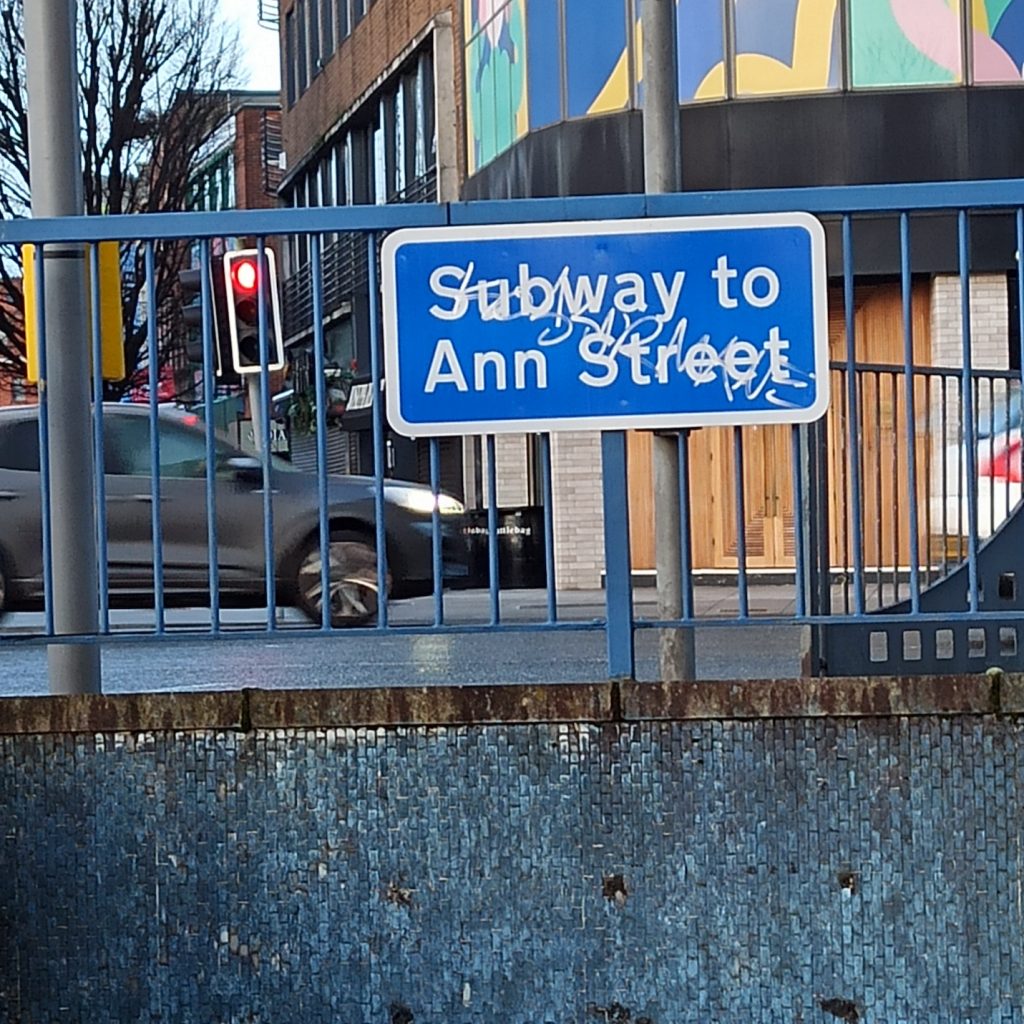
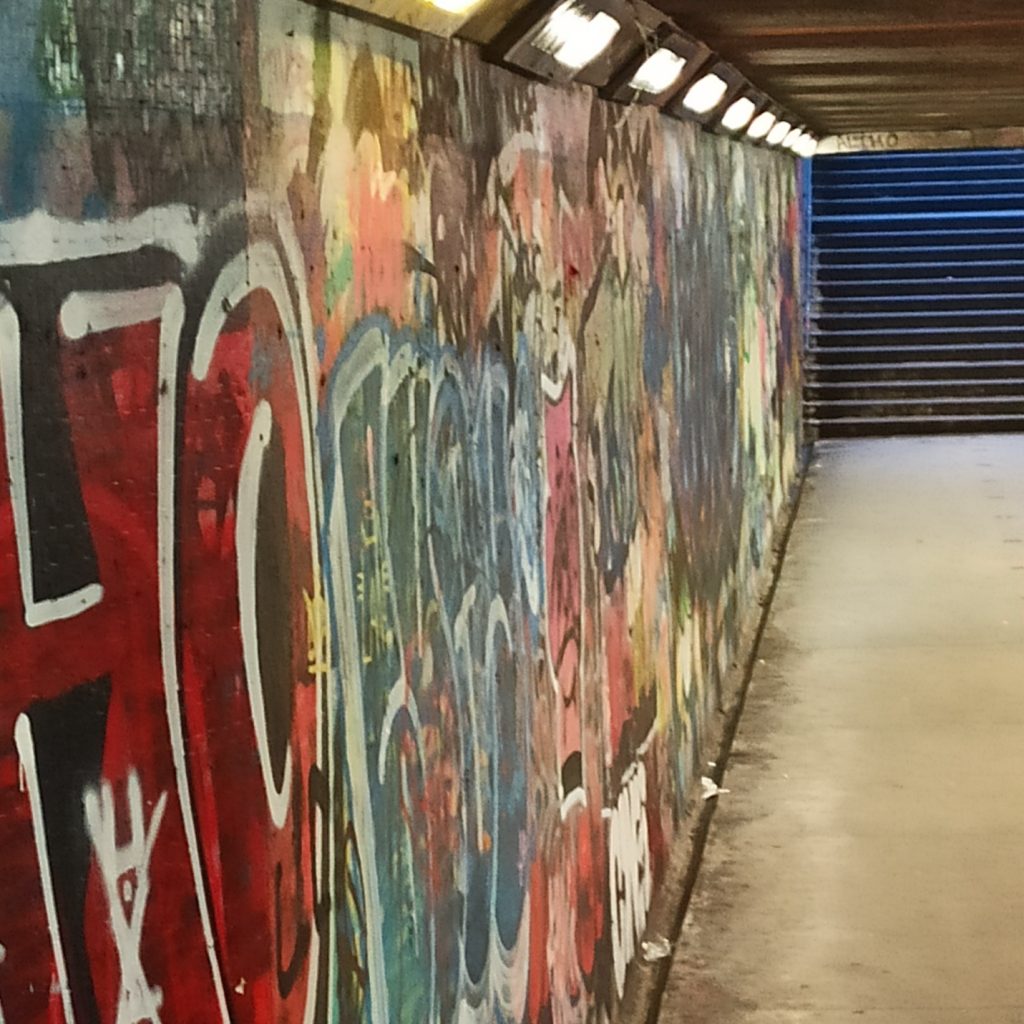
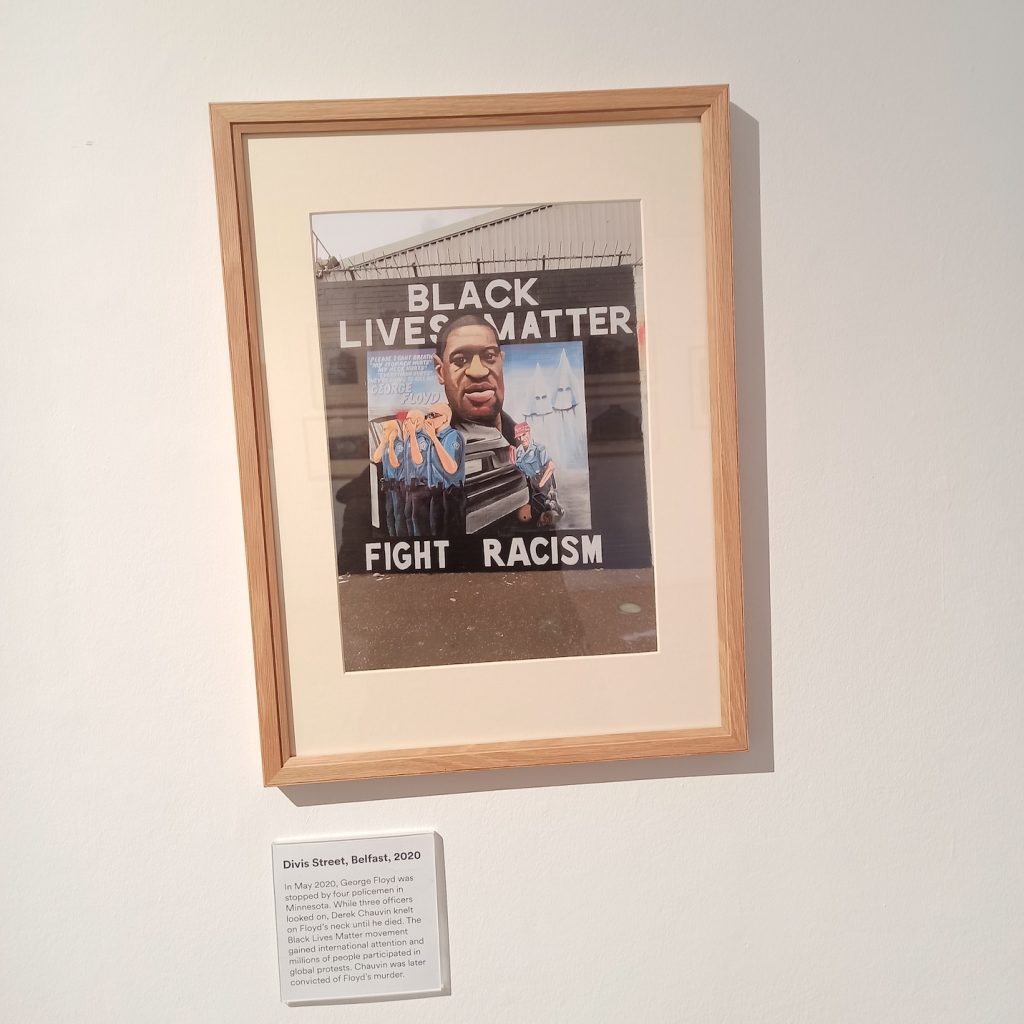
Photographs (23 to 28) taken by Marina Gržinić, research trip to Belfast, Northern Ireland January 7-9, 2025. Source: The Ulster Museum in Belfast (23 and 28) and 24, 25, 26, and 27 (public space in Belfast).
On November 29, 2024, the Kunstakademie Münster became a hub of critical discourse, imagination, and community as Zahraa Khanafer hosted the conference “Re-Orient: Muslim Perspectives in Contemporary Art.” The event provided a platform to question hegemonic structures in contemporary art, reflect on othering and post-migrant as well as Muslim perspectives on contemporary art. It also explored postcolonial, identity-political, and other socio-political questions, focusing on the visibility of Muslim artists and the responsibilities of institutions in fostering inclusive artistic spaces.
The conference opened with a lecture by organizer Zahraa Khanafer titled “Muslimische oder islamische Kunst? Eine kritische Einordnung”. She critically examined the Eurocentric and Orientalist implications of labeling art as “Islamic” rather than understanding it as art by Muslims or from Muslim contexts. Highlighting examples of contemporary critical art, she confronted biases in the art world, urging for a more complex understanding of artistic narratives. Her lecture set the stage for the event’s broader discussions about the recent emergence of more and more self-initiated exhibitions and festivals who self-identify as Muslim creatives.
One highlight of the conference was a Zoom lecture by Ouassima Laabich, founder of Muslim Futures in Berlin. Drawing from the principles of Afrofuturism, Laabich described Muslim Futures as a project and movement that translates futurist imaginations into art installations, performances, and intellectual discourse. Her talk demonstrated how Muslim Futures challenges hegemonic narratives while offering a space for empowerment and disruption.
Following the lectures, participants shared a meal and engaged in lively discussions in the academy’s lobby. Critical insights were shared about the parallels and differences in studying or working in art as racialized individuals. These informal moments underscored the shared experiences of racialized individuals navigating art spaces and academia, as well as the necessity to exchange emotional implications and strategies.
The afternoon session began with my (Anahita Neghabat’s) contribution: “Rassifizierter Zugang zu künstlerischer Freiheit: Rassismus, staatliche Gewalt und künstlerische Freiheit durch Muslim*Contemporary.” My lecture focused on Austria, tracing the genealogies of state and police violence against racialized communities (from the violence against Rom*nja people in Oberwart, to the killing Marcus Omofuma and Operation Spring against the Black community, and policies and police operations like Operation Luxor against the Muslim community). This is the backdrop against which I contextualized the work of the Salam Oida collective, founded by Ines Mahmoud and my colleague Asma Aiad. I then introduced Salam Oida’s Muslim*Contemporary art festival, highlighting communities it has brought to existence, challenges it has faced and its role in using art as a form of resistance against systemic oppression.
Lejla Dendić from Stuttgart followed with her lecture: “Visual Resistance and the Colonial Continuum: Art as a Catalyst for Healing and Reclaiming Space.” Dendić delivered a thought-provoking presentation. She bridged theoretical insights from bell hooks, Baldwin, Gramsci, and Haraway with her own counterhegemonic artworks, which expose and subvert colonial realities and mechanisms, historical and contemporary.
The day concluded with a heartfelt speech by Zahraa Khanafer, who expressed gratitude to the speakers, participants, and her colleague Tuğba Durukan, who Khanafer described as someone who has paved the way for her at the academy. This again emphasizes the collective spirit underpinning such events. This ethos carried into the evening, as attendees continued their conversations over Çay, envisioning future collaborations. re-orient was more than a conference; it was a testament to the power of collective imagination and the vital role of art in resisting oppressive narratives and building inclusive futures.
18/11/2024
Lebanon/Austria diary
17/11/2024
WAU Congress
The WAU Congress in Johannesburg
The WAU Congress in Johannesburg (11.11. to 15.11.2024) has come to an end and the panel in which Marina Grzinic participated to assess the results of the PEEK research trip to South Africa (with Dr Jovita Pristovšek)—which focused on the academic space in Cape Town—proved to be extremely fruitful. The panel picked up on some points from Grzinic’s presentation that critically addressed engagement in the specific academic environment in South Africa, be it hybrid or on-site, and emphasized the importance of conviviality and potentiality as key research objectives.
One of the key achievements of the panel was the exploration of connections to feminism, which shed light on plurality and power relations in post-apartheid constellations. Importantly, the session was recorded and will be available as an archive so that these valuable insights can reach a wider audience. Grzinic’s presentation sparked a lively debate that followed on from the previous presentations in the first part of Panel 51, both between panellists and between the audience and panelists.
We could summarise the results as follows: (a) stimulate a broader discussion on the intersection of science, feminism, and post-apartheid social structures and lead to a more critical dialogue on colonialism and capitalism (b) stimulate interdisciplinary reflection, including the exposure of positions directly from South Africa and colonial extractivism in education and research, (c) encourage researchers to critically interrogate their roles and methodologies when engaging in post-apartheid contexts, (d) address inequalities (e) and finally address feminism and power relations, the panel could stimulate further studies that explore the nuanced interactions between social justice, academic spaces and historical legacies (M. Grzinic).
17/11/2024
M*C Diary
INTERSECTIONS OF CONVIVIALITY: VOICES OF COMMUNITIES. Forum 2: panel “Transformative Archives: Art, Belonging, and the Marginalized Experience”
The panel on 22.10.2024 at the Academy of Fine Arts Vienna as a joint work of Salam Oida, Muslim* Contemporary, and other partners, developed a way to conceive a transformative archive on art, belonging, and marginalized experiences in the concrete structure of Austrian society. The impetus for this panel was a direct response to Prof. El-Tayeb’s powerful talk in which she discussed how marginalized, racialized and diasporic communities and voices challenge dominant narratives and create spaces for connection and possibility.
Well moderated by Anahita Neghabat, several key positions participated: Kader Bağlı – Lead VFX Artist, RISE Visual Effects Studios; Muhammet Ali Baş – Curator & Cultural Mediator, Tangente St. Pölten; Munira Mohamud – Artist; Keyvan Paydar – Artist & Curator, Freies Atelierhaus – Schaumbad Graz and Farah Saad – Clinical Social Worker and Political Scientist, Wir Sind Auch Wien. The effect of the audience was extremely self-reflective.
The central point was that the panelists reworked the idea of a transformative archive and defined it through their concrete practice and principles for creating, maintaining, and sharing inclusive archives. They emphasized the need for participatory practices, technological experimentation, and an ethic of care when working with marginalized histories. An important moment was the practical, affective exchange, which emphasizes that when we speak of a transformative archive, family members also play a central role. Their potential as narrators of oral history is crucial. This is not always easy, as diasporic realities have stories and memories in the background that are characterized by the painful experience of being forced to leave, to cut one’s ties to a place where one lives and where one was born. On the other hand, the diaspora is made up of the experiences of second and third generations who were born as citizens in a different environment. Their education and upbringing is different from that of the other generation, so double reflections are the key when thinking of Diaspora communities. Family members can therefore construct not only a community archive but also an archive of the next generations’ lives, as all participants were predominantly Austrians or citizens from neighboring countries such as Germany; they want to know the unknown histories. It was truly a panel of an archive of storytelling and affective sociality, as in the case of Munira Mohamud. She presented a work that was about exploring the origins of archives that institutions simply do not want to ask about, while she tries to preserve her mother’s oral tradition.
Kader Bağlı reflects on her work in visual effects and imagines how digital tools can reinvent forgotten narratives. Muhammet Ali Baş gives insights into the concrete challenges of curating spaces that not only exhibit art but also promote belonging. Keyvan Paydar brings an experimental approach and emphasizes how collective art spaces such as Schaumbad Graz can act as living archives of a community’s resilience. Farah Saad offers a socio-political perspective, highlighting the need for trauma-informed practice in creating spaces for marginalized voices. The energy of the panel discussion was dedicated to storytelling, belonging, and the politics of memory. Such initiatives not only enrich the cultural fabric of Austria but also serve as a model for transformative archives around the world. (M. Grzinic)
4/11/2024
M*C Diary
Muslim*Contemporary 2024
As I sit down to capture my thoughts about this year’s Muslim*Contemporary, I’m flooded with a mix of pride, relief, and wonder. It’s surreal how far we’ve come from our early conversations – just a handful of us envisioning a space for Muslim, Black, and migrant and much more voices to be celebrated, not sidelined. Now, in our fourth edition, with “Spieglein, Spieglein an der Wand. Sind wir zu muslimisch für dieses Land?” as our theme, we’re holding up a mirror to Austrian society and asking questions that are uncomfortable but deeply necessary. Are we “too much”? Who decides that, and why do we even have to ask?
This year, we wanted the festival to reflect all the contradictions and nuances of what it means to exist in Austria as Muslim women, migrants, artists, marginalized community members. This question of “belonging” – whether we’re accepted, respected, or simply tolerated – lingers around every corner of this festival. But more than that. We created spaces where be unapologetically simply exist. As we are. Through exhibitions, workshops, readings, and concerts, we’ve tried to give voice to these questions, layering stories of resilience, humor, heartbreak, and pride. Each event, every installation, and all the discussions hold fragments of the lives we lead. They speak to those shared experiences of feeling both at home and foreign, of fighting to be seen and respected for who we are, not as caricatures or stereotypes.
Co-curating with Anahita Neghabat and Esma Bošnjaković has been a gift. We each bring different perspectives and histories to the table, challenging one another to see beyond our own experiences. Together, we created a program that celebrates these layers of identity but also invites everyone to think critically and feel deeply. We knew from the beginning that we wanted more than just a showcase; we wanted conversations that would ripple beyond these walls, questions that would stay with people long after they leave. So, we designed events across five cities – Vienna, Graz, Linz, Vorarlberg and Klagenfurt – ensuring that Muslim*Contemporary isn’t just felt in the capital but throughout Austria.
The exhibitions this year are especially close to my heart. They cover everything from intimate, personal reflections on faith and identity to bold installations that critique societal structures. Each piece is a story, a small act of courage, inviting the viewer to see the world through our eyes. Here, we can connect, laugh, share vulnerabilities, and recharge. It’s these spaces that, in many ways, make this festival a form of healing as much as it is a form of resistance.
Hearing community members speak with raw honesty about their lives and struggles – unfiltered and unapologetic – is powerful. It’s a reminder that our stories are not here for consumption; they’re here for connection and understanding. These conversations are real, refusing to flatten out the complexity of what it means to be Muslim, Black, migrant, a former refugee or marginalized in Austria today.
Every artist, volunteer, and collaborator has poured their heart into making this space possible, into creating a festival that belongs to all of us.
Looking back at what we’ve built together, I’m so grateful. Muslim*Contemporary has become a force, something larger than any of us imagined. It’s a platform, yes, but more than that, it’s a reminder that we don’t have to shrink ourselves to fit in. We belong here, fully and unapologetically, and we’re here to stay. To everyone who has been part of this journey – thank you. This is just the beginning (A. Aiad).
4/11/2024
Sydney Diary
Sydney Reflections about Community, Belonging and Creating Art
Sydney, it’s been a whirlwind of new faces, conversations, and profound reminders of why I do what I do. Stepping into this vibrant world of art, identity, and activism here, I felt an uncanny familiarity—a connection that crossed oceans and made me feel right at home. So many of the struggles, dreams, and ideas here echo those we face as marginalized communities in Austria, with the same battles for visibility, representation, and a space to thrive as ourselves, unapologetically.
I spent an inspiring time with the incredible minds behind an.other collective, a creative think tank that uses art as a platform to explore and dissect intersections of faith, identity, and culture. Their work felt like an extended hand, showing how art can embody resistance, storytelling, and healing simultaneously. One of their recent projects engaged directly with community members on social issues often swept under the rug—Islamophobia, race, and the nuances of what it means to be a Muslim today. Their approach is raw, unapologetic, and full of heart, exactly what’s needed to challenge and change perceptions.
Together with my new soul sister Wasielah, I attended an event hosted by machleebazaar, a platform centered on all things Brown, Muslim, and Woman. Their energy was contagious, and their voices so necessary. With spaces like machleebazaar, there’s a deliberate and joyful celebration of cultures, an affirmation of the beauty in being “too much” or “too different.” They’ve become a home base for so many, uniting people across experiences but connected by a shared pride in our identity. With their podcast there are not only reaching people online but also offline.
It reminded me of a lot of our work of Salam Oida and Muslim*Contemporary—a place for solidarity, for the right to express ourselves in all our complexity. But also about the research I am doing since one year at our project “Conviviality as Potentiality.”
Each conversation with an artist or organizer reminded me of the challenges we face: lack of visibility, tokenization, and the constant need to explain ourselves, to justify our right to take up space. Yet, there’s also the strength that emerges from these shared struggles. Meeting these artists, activists, and change-makers strengthened my resolve to keep pushing, keep creating, and keep supporting one another in this global network of solidarity.
Each face, story, and initiative here felt like a mirror, reflecting back a deeper understanding of my own journey and our shared struggles, regardless of geography. It’s heartening to see such communities everywhere, and I’m carrying these experiences with me back to Austria – with an even stronger determination to build bridges and work toward a more inclusive society (A. Aiad).
30/10/2024
LECTURE & TALK: Prof. Dr. RUHA BENJAMIN
30/10/2024
REFLECTION ON OUR RESEARCH TRIP TO SYDNEY, SEPTEMBER 2024
Reflections from Sydney: Entangled Relations
During our recent research trip to Sydney, I had the opportunity to engage deeply with the narratives of displacement, resilience, and cultural survival that define both the urban landscape and Indigenous experiences in Australia. One striking symbol of this interplay is the white ibis, pejoratively dubbed the “bin chicken.” As Professor Emeritus Suvendrini Perera aptly noted, the ibis embodies the true migrant experience. Forced from its natural habitat due to environmental degradation, the ibis has adapted to city life, rummaging through waste while often facing disdain and outbursts of violence from residents. Its journey reflects the broader narratives of communities displaced and forced to navigate urban spaces marked by both opportunity and rejection.
The plight of the ibis resonates with the historical struggles of Aboriginal peoples, the First Nations people, the owners of the land who have faced centuries of dispossession, land grabbing and cultural and social erasure. During our field exploration day at the botanical garden, we learned about a pivotal moment in the Aboriginal civil rights movement—the significant gathering on January 26, 1988, which marked 200 years of colonization. This event saw around 40,000 people converge in Sydney, symbolizing not just a protest against historical injustices but a celebration of the enduring strength of Aboriginal culture that has thrived and survived for over 40,000 years. The number of attendees was poignant: one for every year that Aboriginal communities have resisted, adapted, and survived despite ongoing marginalization.
This spirit of survival was encapsulated in the music of the band No Fixed Address (NFA), whose 1982 album “We Have Survived” includes the powerful song “40,000 Years.” The lyrics celebrate resilience against the backdrop of colonial oppression, echoing the shared experience of the ibis and the Aboriginal and Torres Strait Islander peoples. With an upbeat reggae tune the lyrics go as follows:
*“You can’t change the rhythm of my soul
You can’t tell me just what to do
You can’t break my bones by putting me down, woah
Or taking the things that belong to me
All the years has just passed me by
I’ve been hassled by the cops nearly all my life
People trying to keep me so blind
But I can see whats going on in my mind
‘Cause we have survived the white man’s world
And the horror and the torment of it all
We have survived the white man’s world
And you know, you can’t change that.”*
From the 1980s, the Art Gallery of New South Wales took us to contemporary expressions of Aboriginal and Torres Strait Islander resistance. The contemporary art exhibited powerfully depicted various realities of Aboriginal existence today. One piece that struck me was “Old man sleep outside … Sally feeding little cat … Two police came around …” by Sally M Nangala Mulda, which vividly portrays life in Abbott’s Camp in Mparntwe/Alice Springs. The artwork juxtaposes the mundane with the constant presence of authority, echoing the experiences of those we had heard from Aboriginal feminist activists at the conference.
Additionally, Blak Douglas’s artwork “Moby Dickens,” created in response to the devastating floods in Australia, spoke to me in a moment when floods were also affecting Austria. This piece in this moment captured for me the interconnectedness of our world and its violent exploitative structurs while highlighting the disproportionate impact of climate change on Indigenous and marginalized communities, who bear the brunt of these crises despite contributing the least to their causes.
In this whirlwind of experiences, I couldn’t help but reflect on the profound connections between the ibis, as a survivor in the urban landscape, and the enduring legacy of Aboriginal culture. Both embody stories of resilience amid adversity, challenging us to reconsider our narratives around belonging and survival in a world often indifferent to the struggles of those brutally deemed “other.” (A. Neghabat)
26/10/2024
LINZ IN VIENNA DIARY
Muslim*Contemporary welcomes teenagers from maiz – Autonomes Zentrum von & für Migrantinnen, Linz
On the 26th of October, we had the honor and pleasure of welcoming a group of teenagers and young adults from our long-time partner maiz — Autonomes Zentrum von & für Migrantinnen in Linz to the Muslim*Contemporary exhibition at Exhibit Eschenbachgasse in Vienna.
My colleague Asma Aiad and I, Anahita Neghabat, met the group at the train station and introduced them to a local Bosnian Burek spot, where maiz generously provided lunch for the teens. Afterward, we headed to the exhibition, where we gave the teens an introduction to the Muslim*Contemporary festival and the Salam Oida collective behind it. Asma and I, — who together with Esma Bošnjaković, curated this edition of Muslim*Contemporary, — explored with the teens questions of representation in the arts, experiences of tokenism, and how Muslim*Contemporary was envisioned as a political intervention and a safer space for racialized artists to express themselves.
Following our introductory talk, we began a guided tour through the exhibition. Many of the artists were present, sharing personal insights into their creative journeys, the stories behind their works, and the experiences and stances that fuel their artistic practices. They encouraged the teens to explore their own creative paths, inspiring them to consider art as a means of self-expression and empowerment.
The tour culminated in an interactive performance titled Sofra Hazır, curated by Eşim Karakuyu and Khashajar Hani. They invited participants, including the teens, to take off their shoes, settle on Kelim rugs, and eat small dishes (Mezze) while listening to Kurdish songs sung by Sezen Aksu and Seçkin Taygun Aydoğan, as well as poetry about belonging and womanhood, written and performed by Munira Mohamud. As we all sat together, Khashajar Hani—a trained chef—hand-kneaded Çiğ Köfte, a traditional dish, while participants listened and shared in the ritual. This ritualistic preparation of Çiğ Köfte, known as Sıra gecesi, blends food, song, and togetherness. Once the Çiğ Köfte was ready, we passed portions around, savoring them along with the Mezze. This powerful, sensory experience evoked memory, family, tradition, and a shared vulnerability, with several participants moved to tears.
Afterward, the teens had time to explore the exhibition on their own. Later, as I accompanied them back to the train station, we shared reflections on how the artworks had stirred memories and resonated with personal experiences.
The day was one of connection and reflection. It reminded us that art is more than expression; it’s a vessel for histories and community that shape and heal us in ways words alone cannot. We want to express special gratitude to Homa, an employee at maiz, who accompanied the teens to Vienna, as well as to Martyna who coordinated the travel with us. (A. Neghabat)
22/10/2024
Talk by Prof. Dr. FATIMA EL-TAYEB
If one were to describe the Conviviality as Potentiality (FWF-PEEK Project AR 679) research experience in Sydney that our hosts, Professor Emeritus Suvendrini Perera and Professor Joseph Pugliese with their team and colleagues, prepared for us, it was about creating safe spaces. Creating safe spaces as means rather than an end, with immense ongoing care for communities, scholars, students, and friends; spaces opened to critical and challenging debates that rarely find their place today.
Firstly, it was a process of creating a safe space for critical reflection on systemic, war, and legal violence in the Australian and European context and beyond.
Secondly, it was on creating safe spaces in which we could learn the ways and strategies with which this critical reflection is enacted through direct theoretical and community mobilizations, as an on-site materialization.
Thirdly, about safe spaces created for and by the communities, who generously opened their doors to us as guests.
Such an encounter would not have been possible without the long history of Perera and Pugliese’s work and their commitment to building a network of people who endorse community-based research and activism, that is to say, a community of people who combine their academic careers with their engagement in politics, public life, and activism.
Although safe spaces seem like small islands of utopia when one thinks of the massive femicides of Australian Aborigines and Torres Strait Islanders, of the offshore immigration detention centres encircling the vast continent once conquered by settlers, and also against the backdrop of global necrospaces, they are an important part of the construction of the “world otherwise” precisely because they create space for engagement with these issues.
While it may seem paradoxical to speak of “safe” spaces, since safety (especially of whites) has a co-constitutive relationship to the war machine of racial capitalism, to carceral geographies worldwide, and the vast oceanic graveyards, one must ask how many safe places are there left in the world today? There are wars on every corner, devastation at every step, extraction with every breath, and dispensability of life at every level of economic, legal, institutional, and social relations.
It is precisely the insistence on the creation of safe spaces as encounters between academics, theorists, and practitioners that bring histories, present, and futures into light that can teach us that the construction of “geographies otherwise” is possible. Space is always a junction of histories, the past, and those in the making.
We would like to endorse professors Perera and Pugliese for their unconditional respect for Elders, past, present, and future, and for recognizing the continuity of knowledge that nurtures Country and community.
5/10/2024
VIENNA IN LINZ DIARY
Celebrating 30 years of maiz – Autonomes Zentrum von & für Migrantinnen – „Die Welt braucht uns!—30 Jahre Jubiläum“
Our long-standing cooperation partner “maiz – Autonomes Zentrum von & für Migrantinnen” in Linz celebrated its 30th anniversary.
On October 5, 2024, my colleague Asma Aiad and I, Anahita Neghabat, had the honor of partaking in the vibrant day filled with discussions, workshops, music, food, and memories. This celebration was more than just a gathering—it was a collective reflection on the organization’s journey and a look toward maiz future.
In their own words, maiz describes their work as bridging the intersections of multiple inequalities and injustices, forging alliances against systemic oppression. Celebrating this milestone, they stressed that the event was not just about joy but a chance to honor memories, reflect on past struggles, and amplify the visibility of movements on which maiz is founded.
My colleague Asma Aiad and I arrived early to join the festivities. We started with a lunch for all workshop leaders and artists, which was cooked by the managing director, Letícia Carneiro—a tangible reminder of the everyday practices of care that are central to maiz’s work. Following this, two workshops ran in parallel.
The first, “Community Care & Empowerment Space,” was held by Parissima Taheri-Maynard and Farah Saad of “Wir sind auch Wien,” a Vienna-based center for BIPoC psychosocial health. This session created a safer space for BIPoC FLINTA, fostering healing, validation, and empowerment.
Meanwhile, Asma and I led our workshop, “Meme the Pain Away.” We opened with a conversation on our artistic and political practices, then invited the participants to use memes to transform their experiences with racism, sexism, and queerphobia into satire. The energy was palpable as around thirty women and nonbinary individuals of various ages (including some mother-daughter pairs) gathered to create memes about topics ranging from their experiences with maiz to political issues in Austria and beyond.
Later, we attended a moving performative intervention by the youth participants of maiz’s project “Ungehorsame Formen.” It was a reunion for me, as I had previously collaborated with the teens through a meme workshop around body image. Afterward, Asma and I shared news of our upcoming Muslim*Contemporary festival with the teenagers. Their excitement and passion were infectious, and it became clear that we needed to include them in the festival and invite them to share their perspectives on our work—a story that is told in a separate diary entry.
The afternoon continued with a public panel, “Kollektive Verantwortung: Die Welt braucht uns!” Moderated by Rubia Salgado, the discussion featured my colleague Asma Aiad, along with Gina Disobey, and a representative from BigSibling Kollektiv, who remained anonymous.
The panelists shared insights on the challenges and potential of collective work, addressing systemic racism, abolitionist work, and more. Each perspective was a powerful reminder of the global processes shaping our collective action.
The evening closed with Armenian-Kurdish food and performances. The first performance, was an intervention by maiz staff, but also children and other people attached to maiz. Playing samba rhythms, the group made their way through the party location “Stadtwerkstatt” rhytmically shouting “Wir wollen leben, nicht nur überleben”—”We wanna live, not just survive” while holding protest banners reflecting the themes maiz has been fighting for. Artists Bella Diablo and Mina Mora concluded the event with music, infusing the night with energy and spirit.
This celebration was a beautiful tribute to maiz’s commitment to social justice. It was a day full of joy, reflection, and connection—a living testament to maiz’s vision and the communities they continue to mobilize, support and connect. (A. Neghabat)
23.09.2024, UNSW Kensington, Sydney: Participation in the Symposium
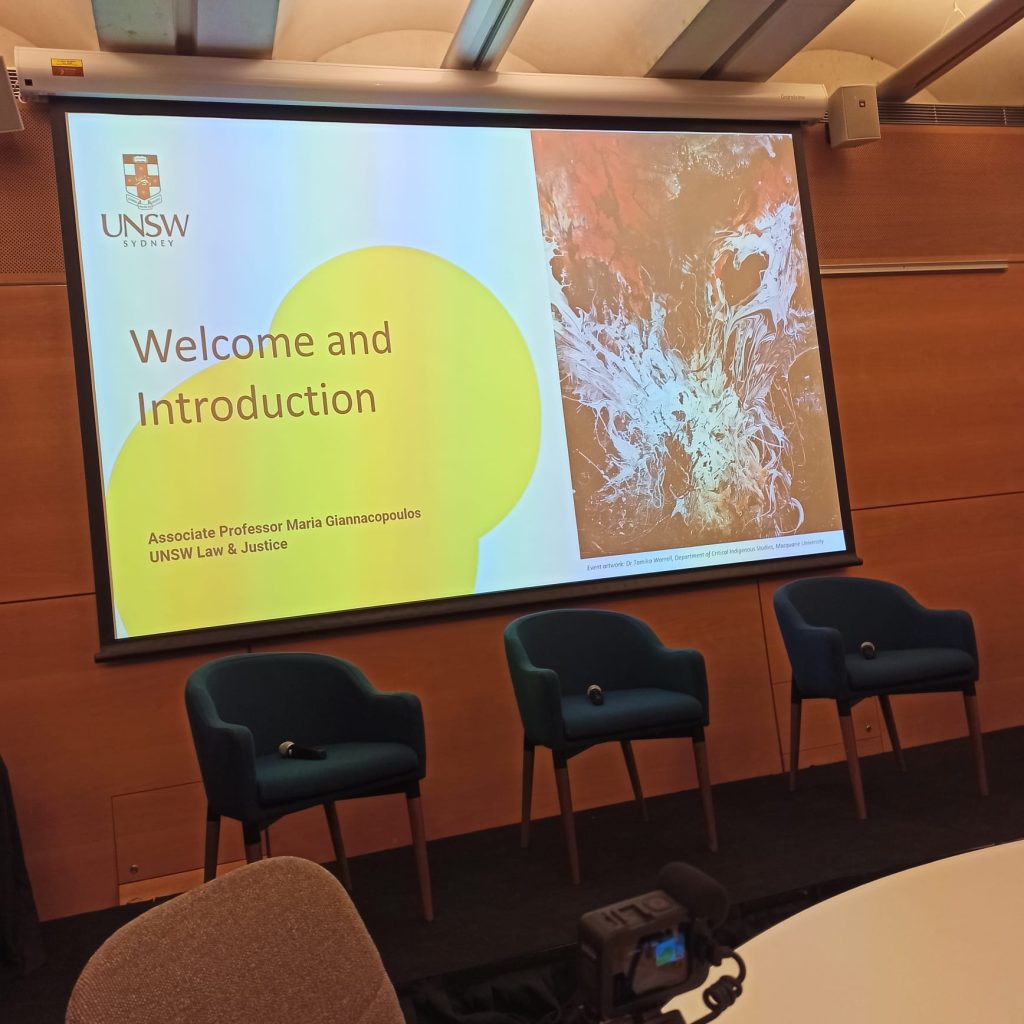
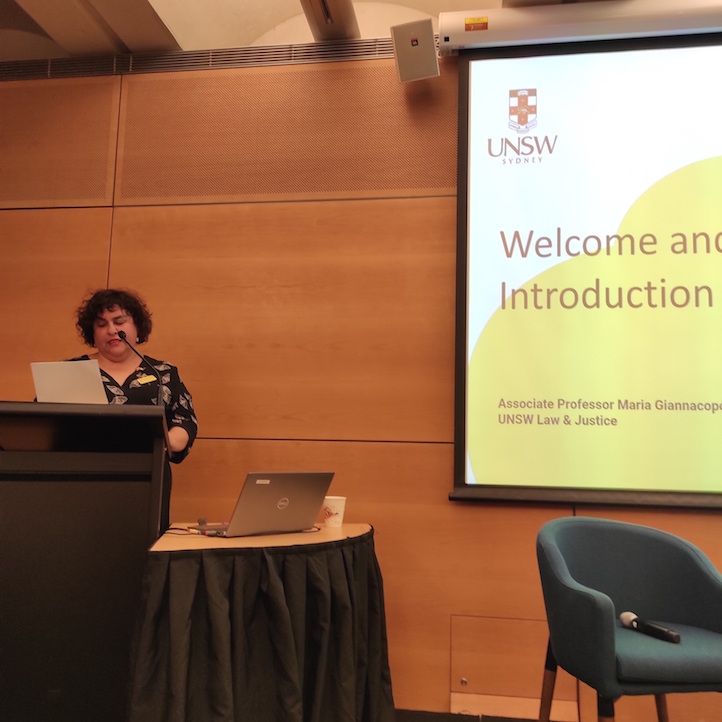

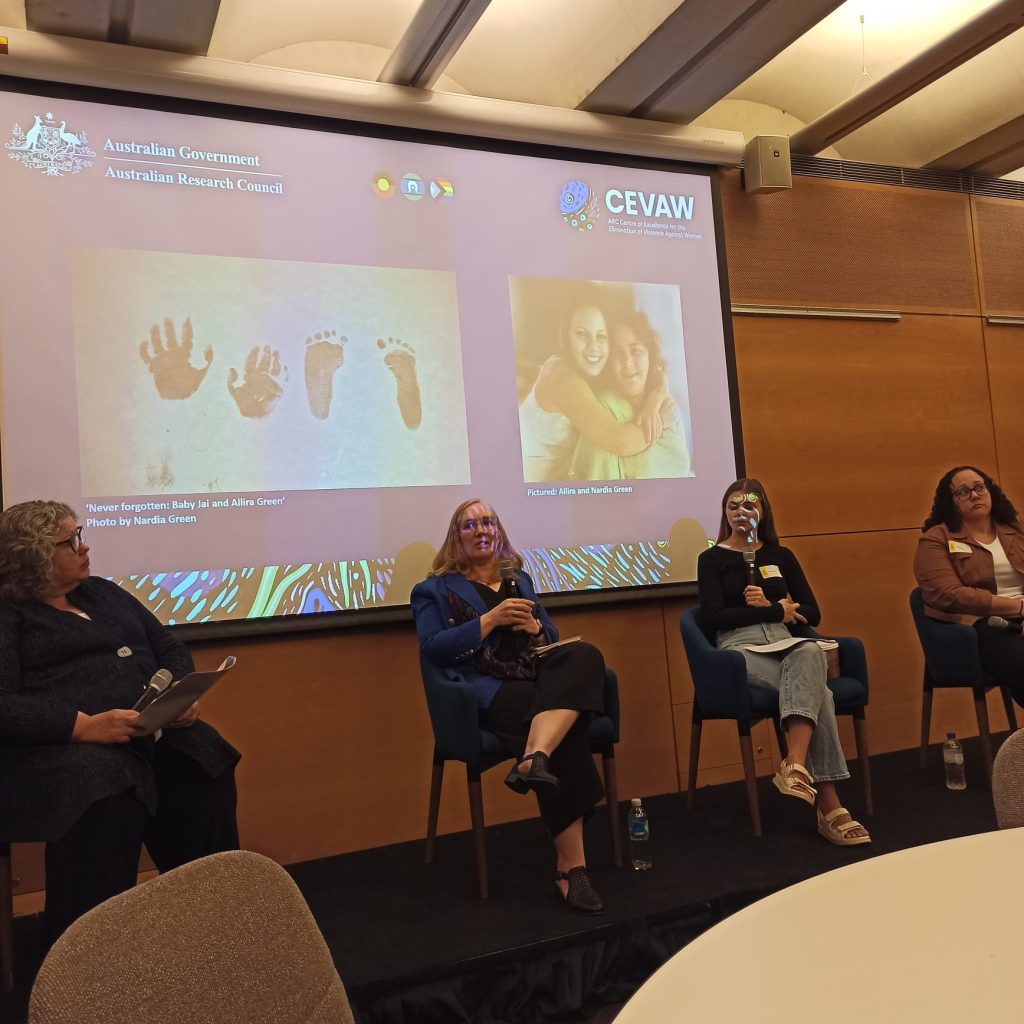
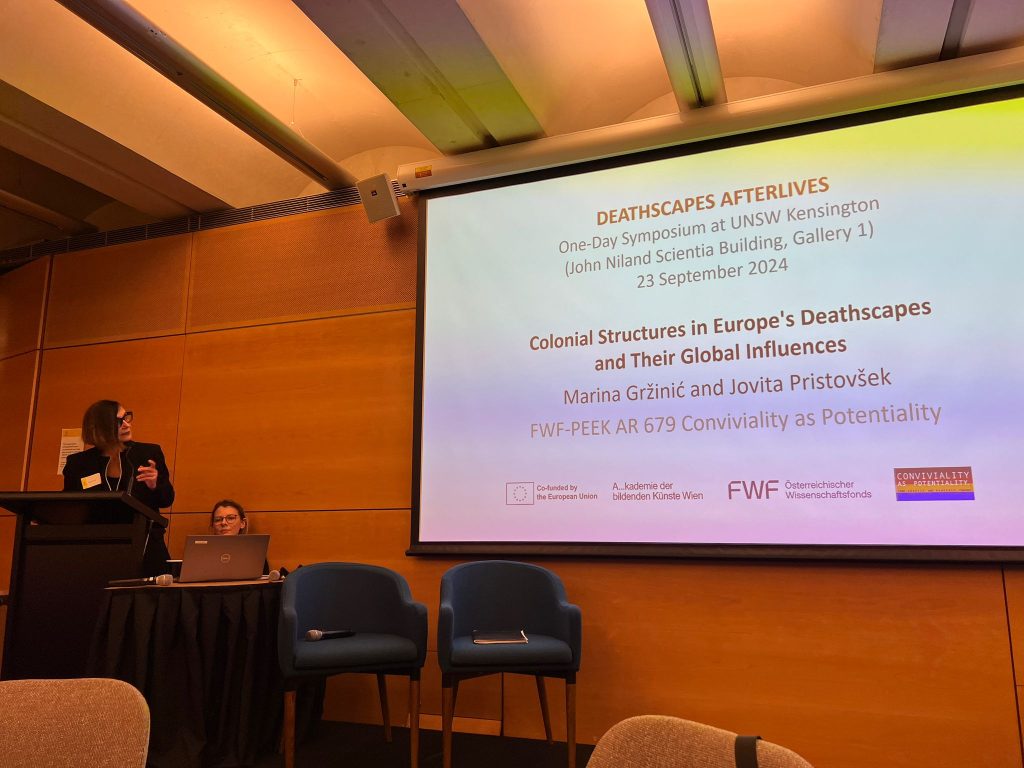
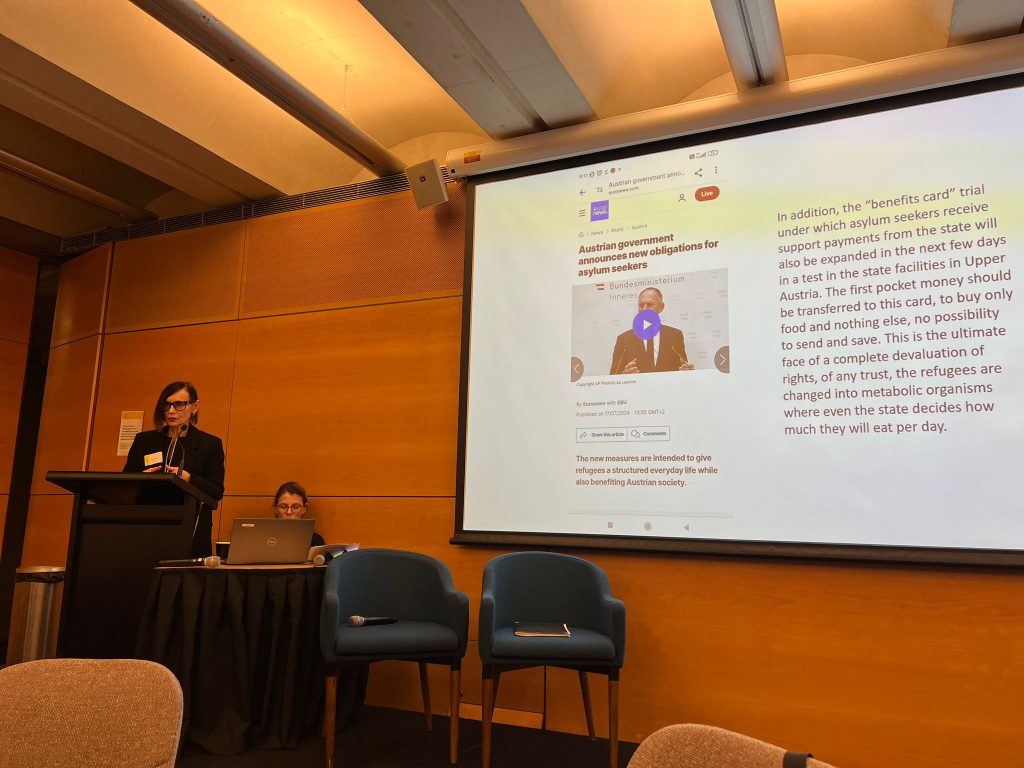
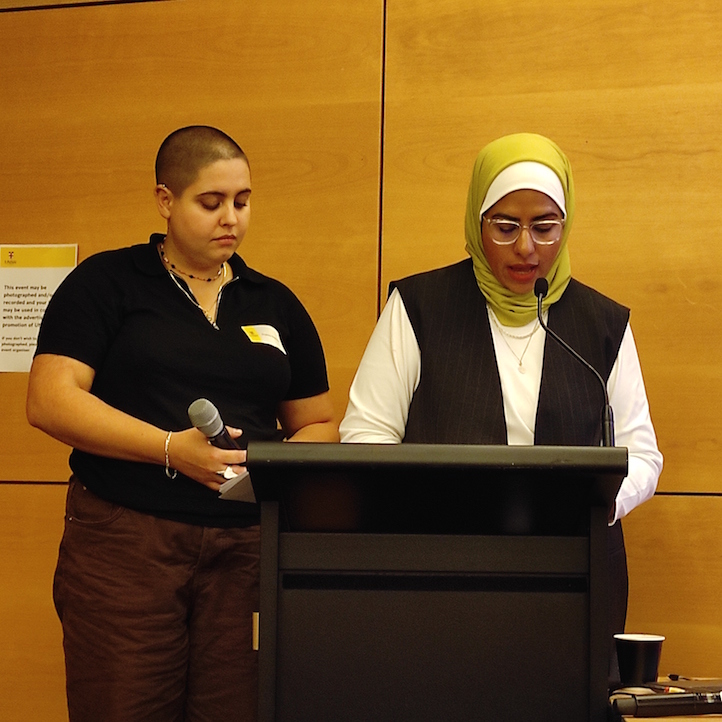
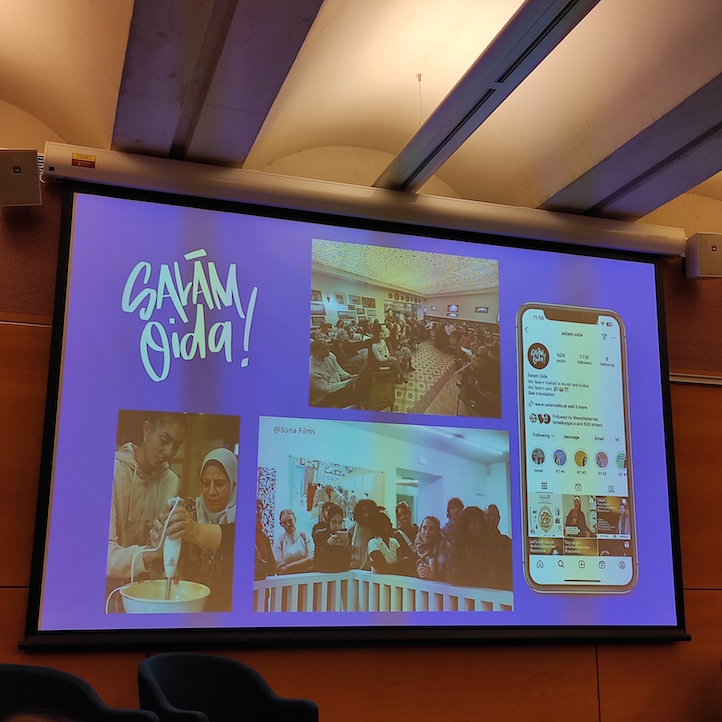
24.09.2024, Sydney: Field research. From architecture, museums, art to colonial legacy.
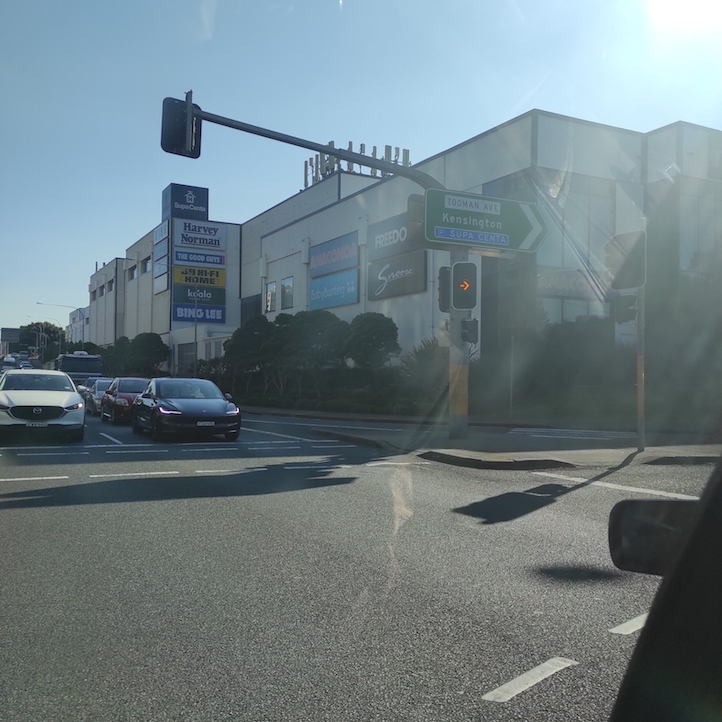
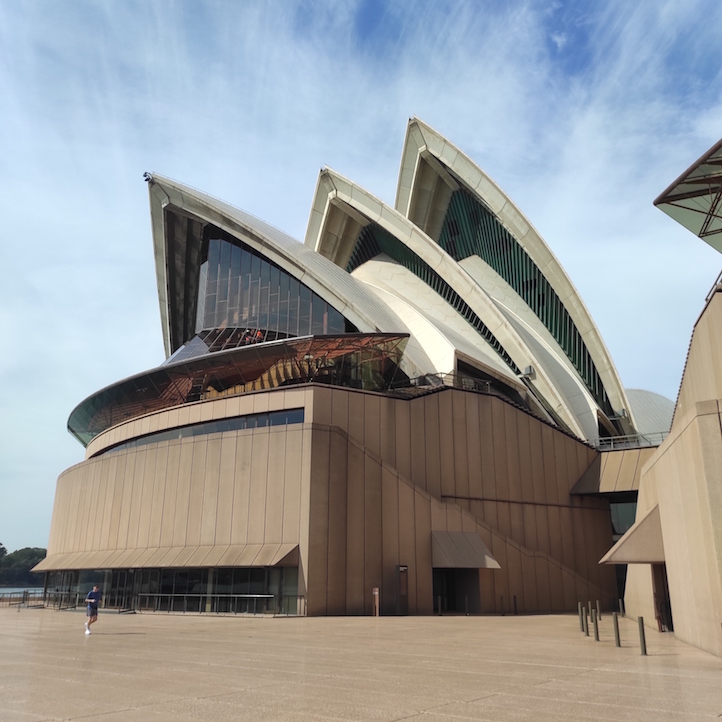
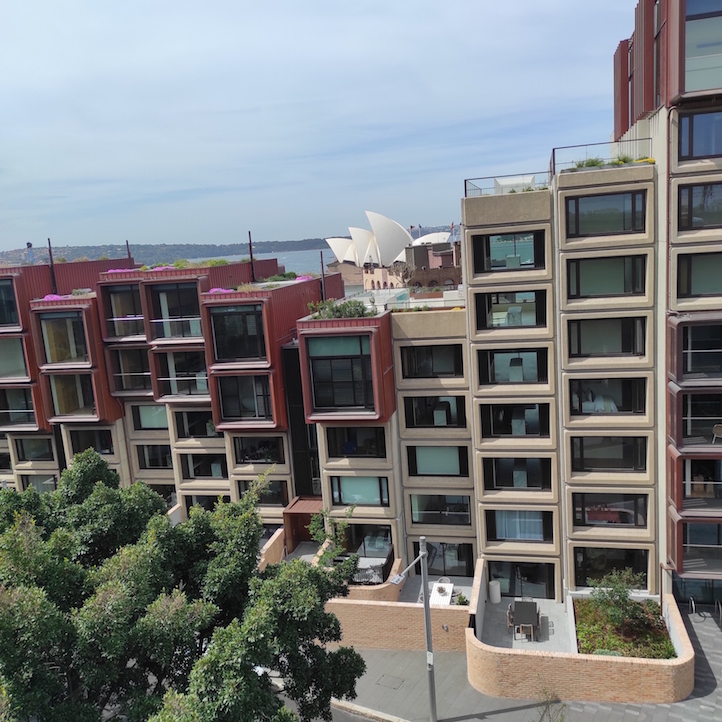
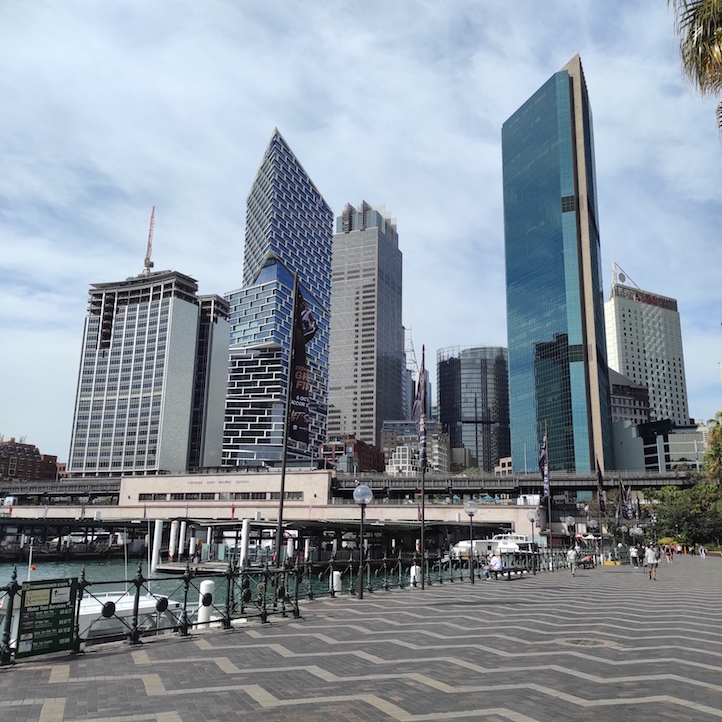
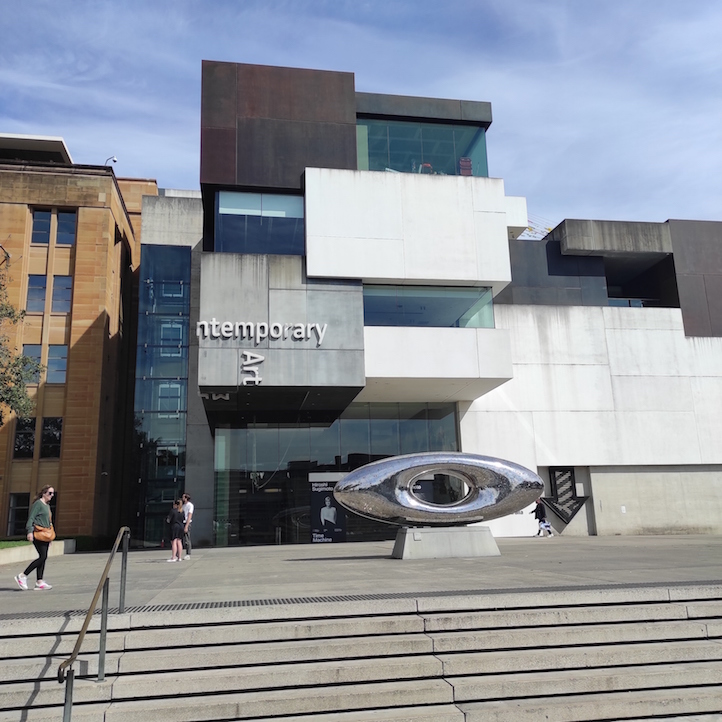
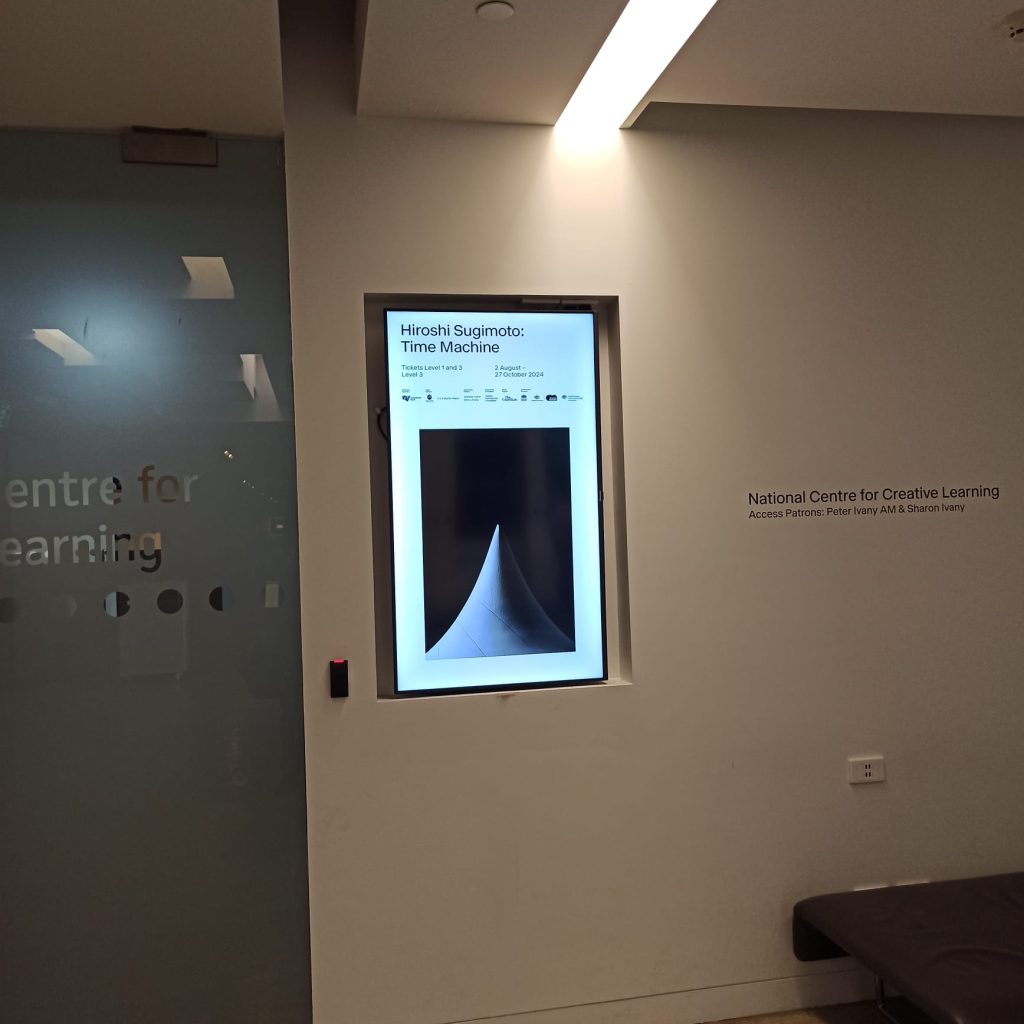
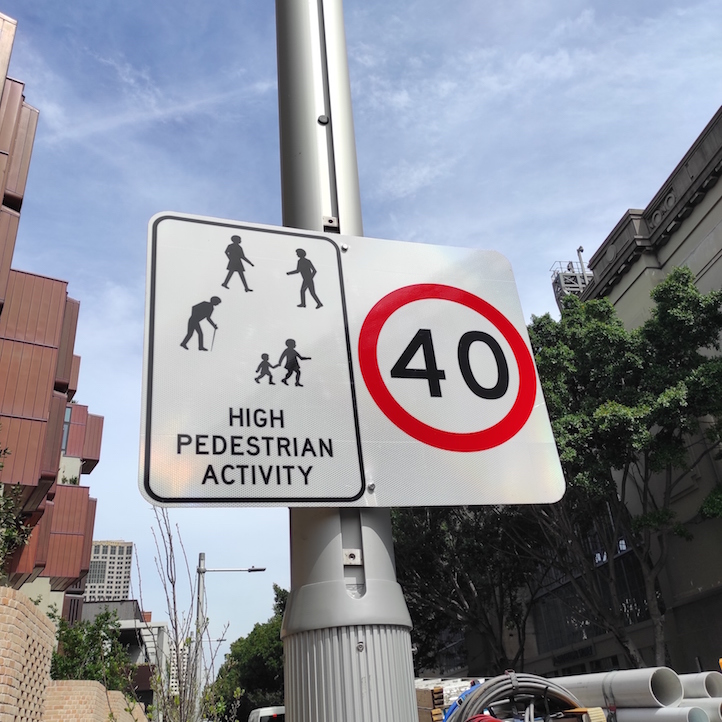
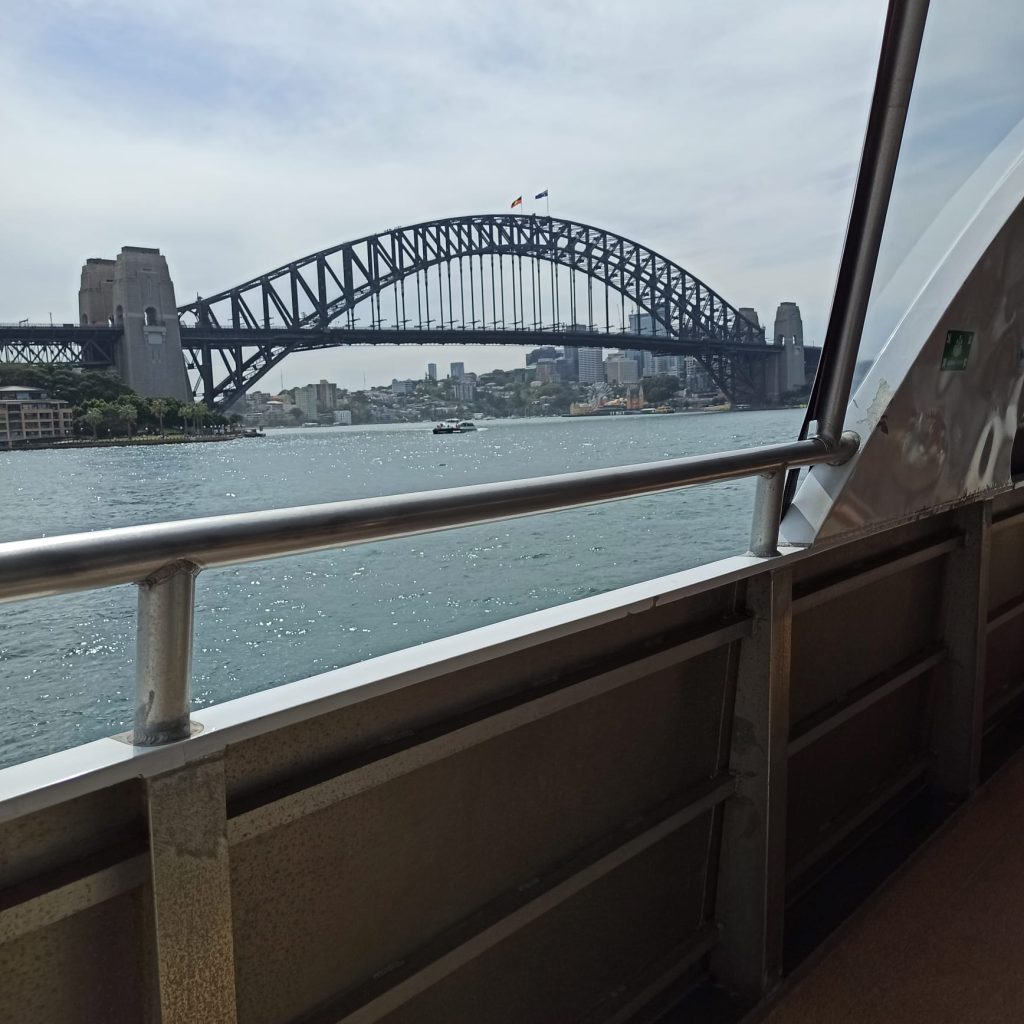
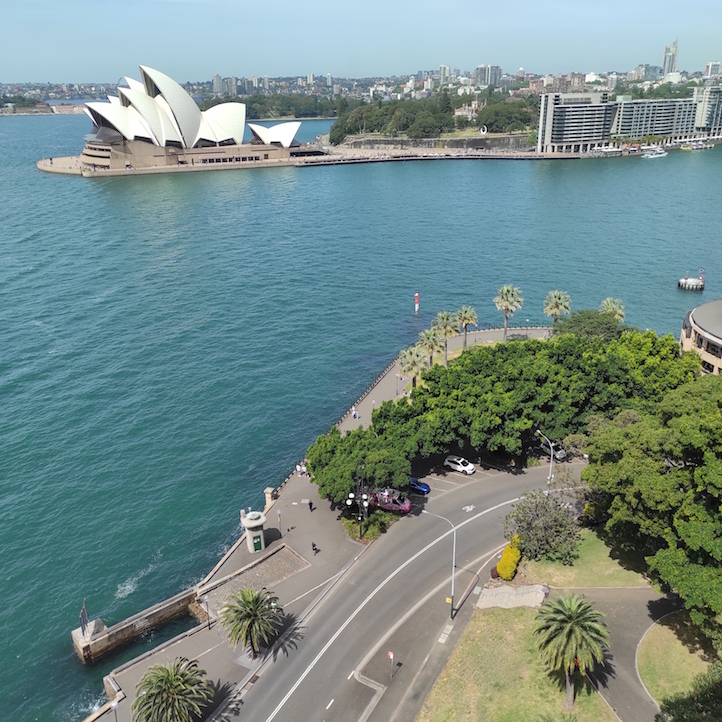
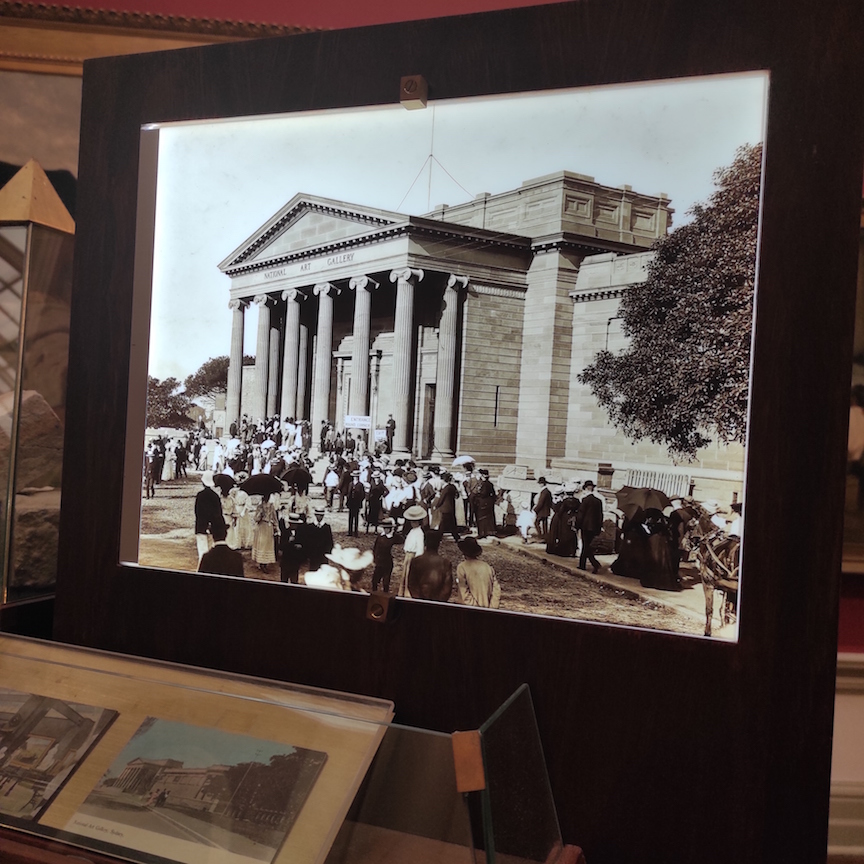
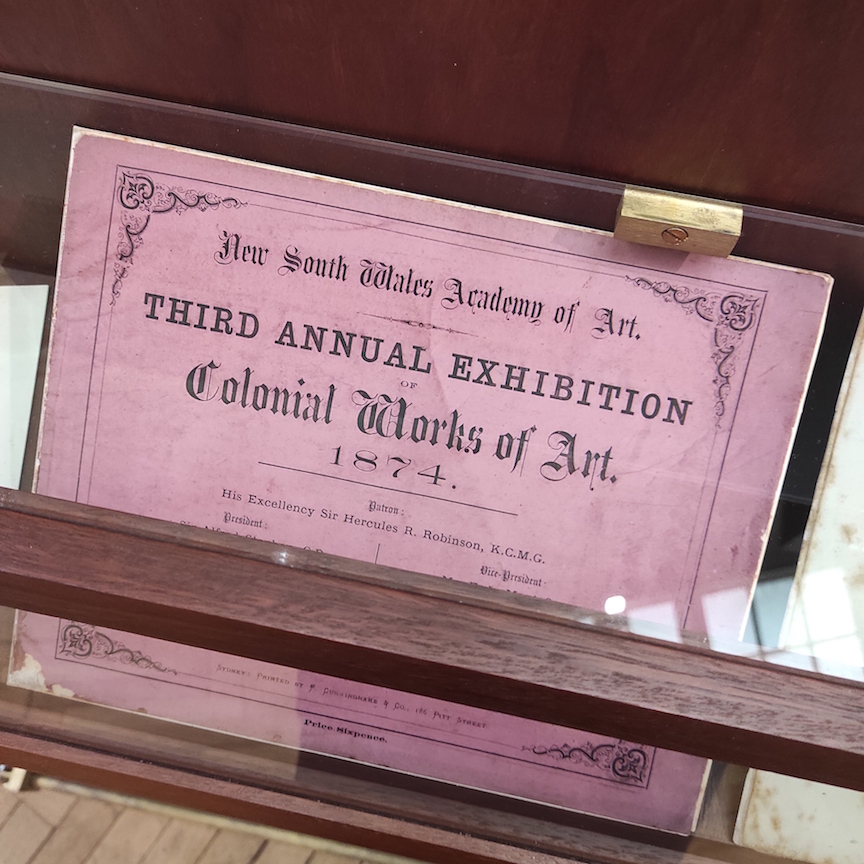
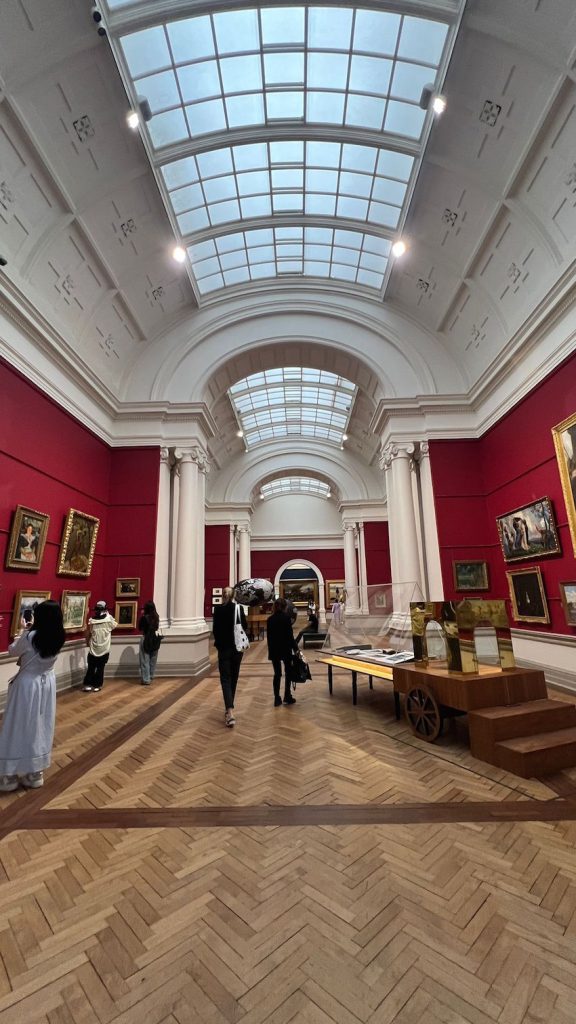
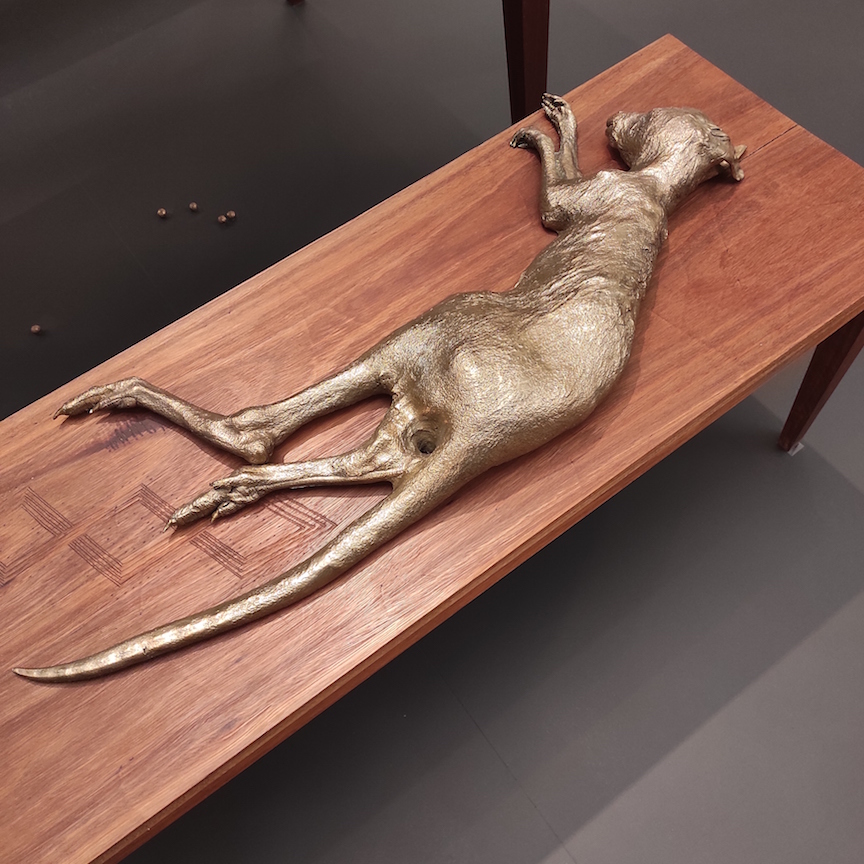

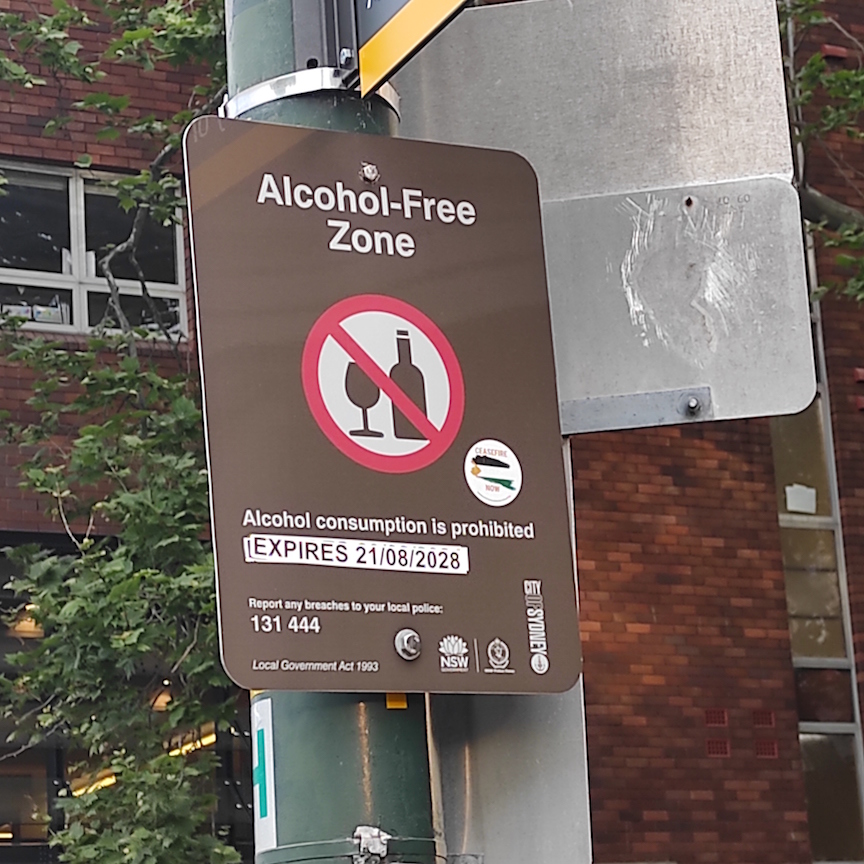
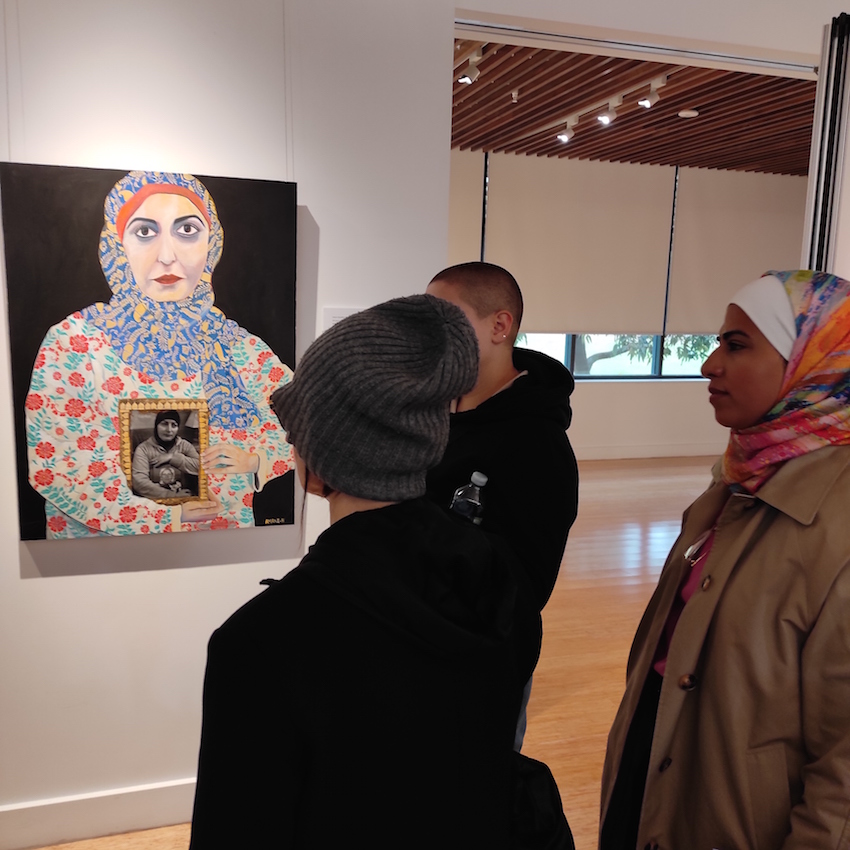
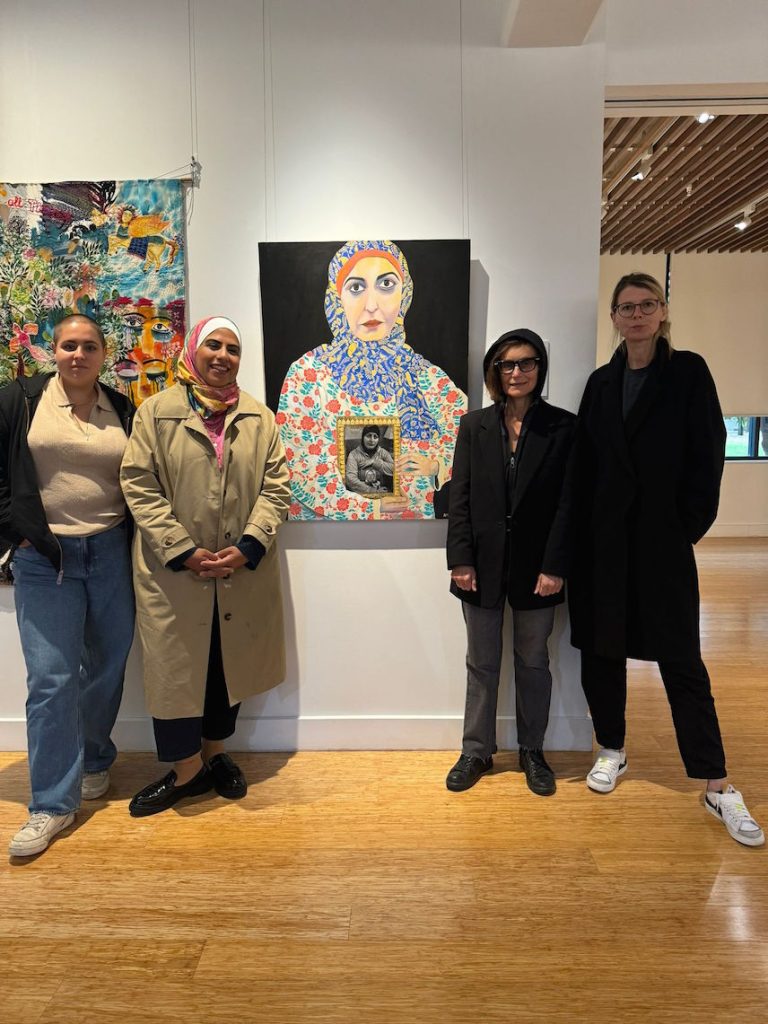
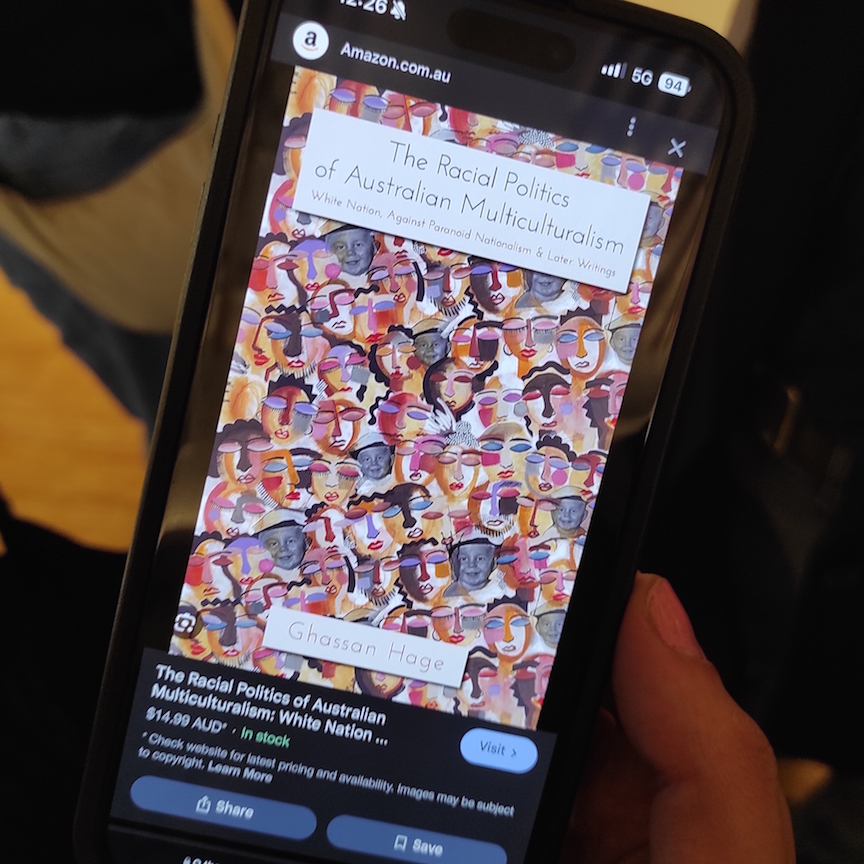
25.09.2024, Newtown Neighbourhood Centre, Sydney: Participation in Workshop 1
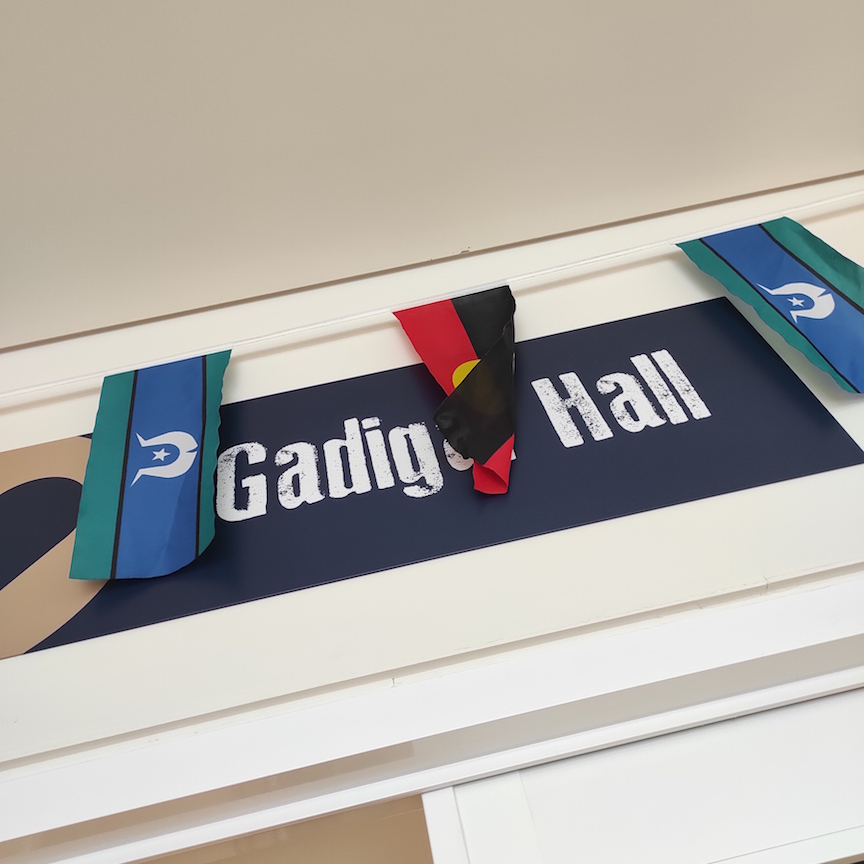
Centre
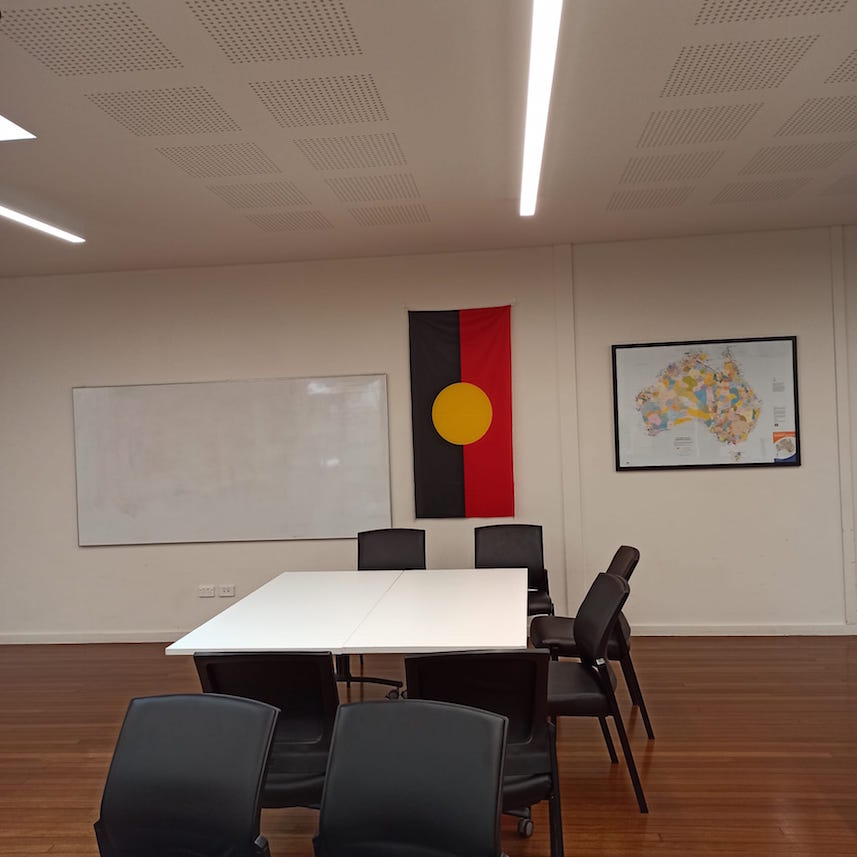

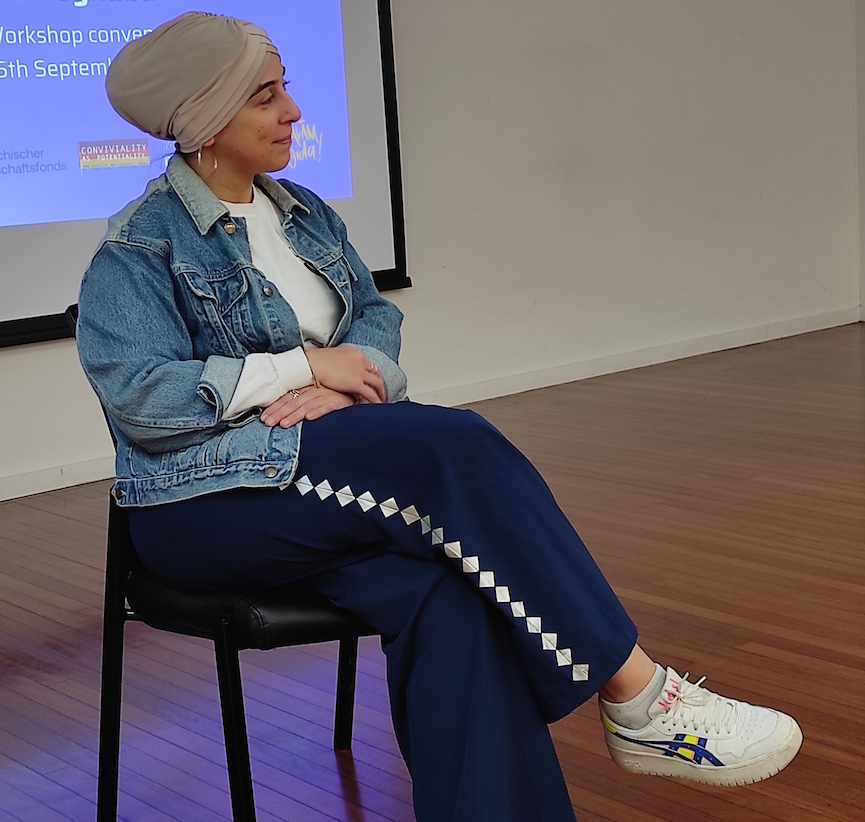
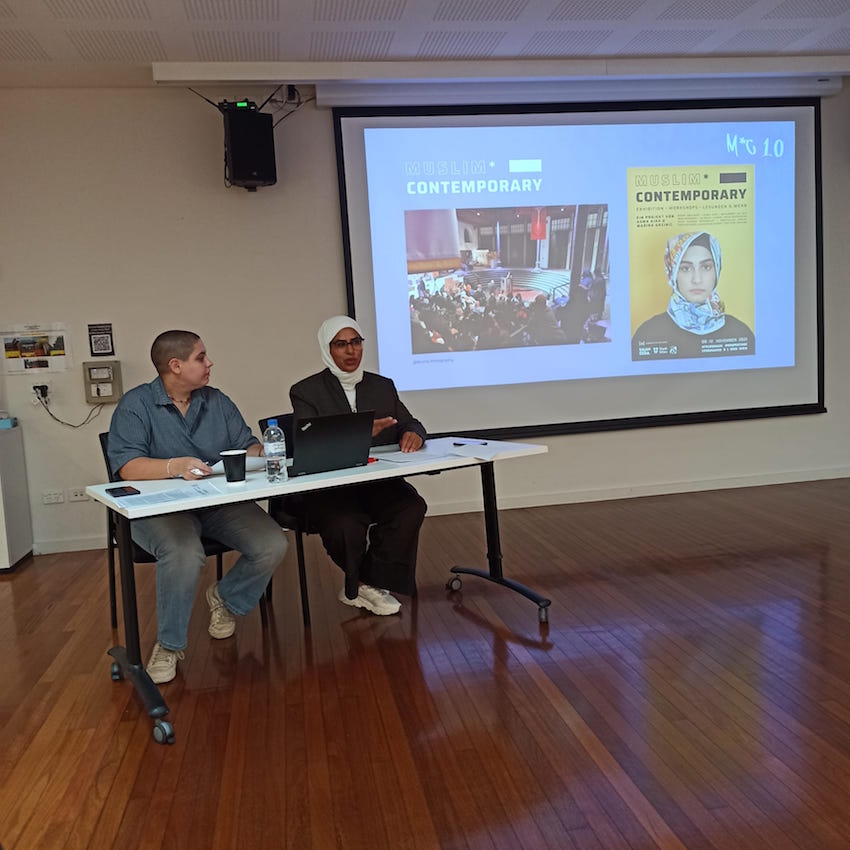

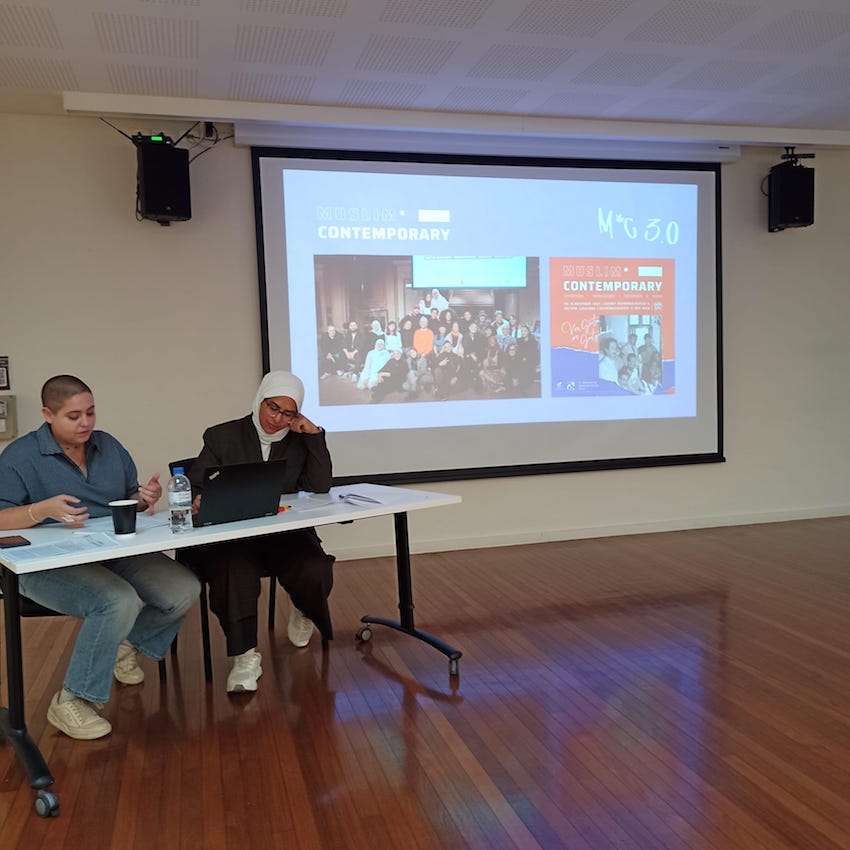
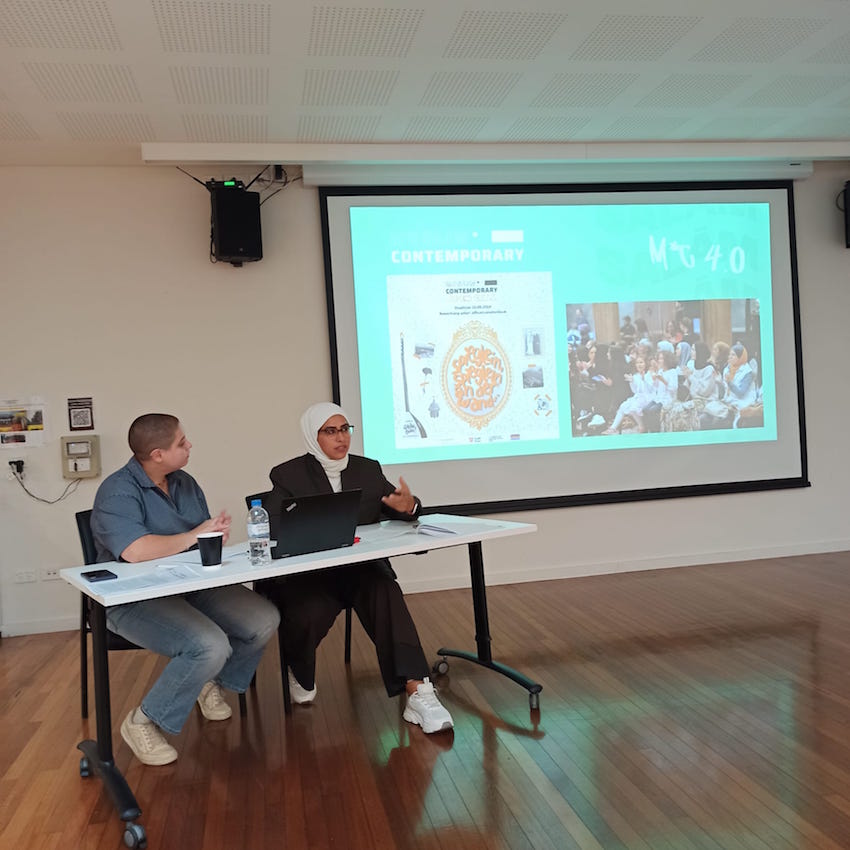
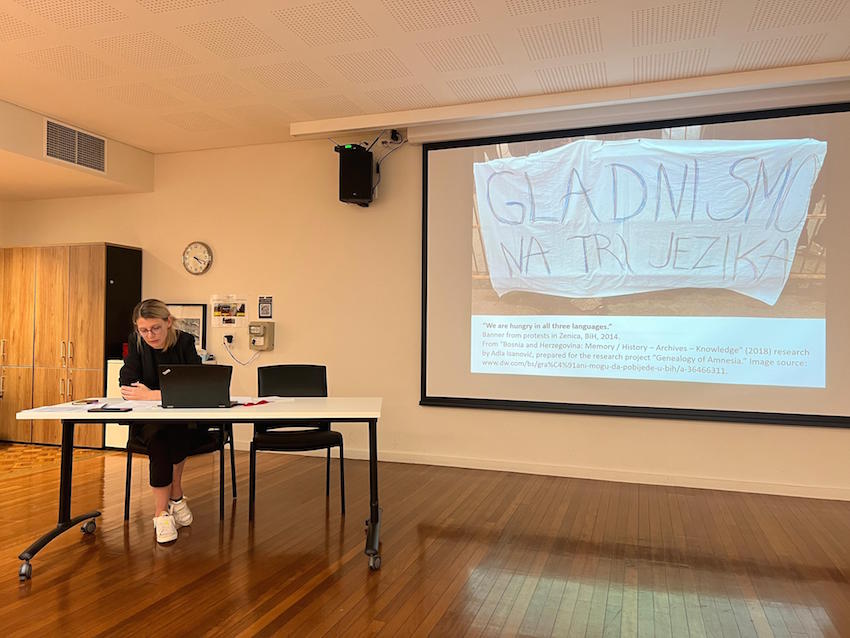
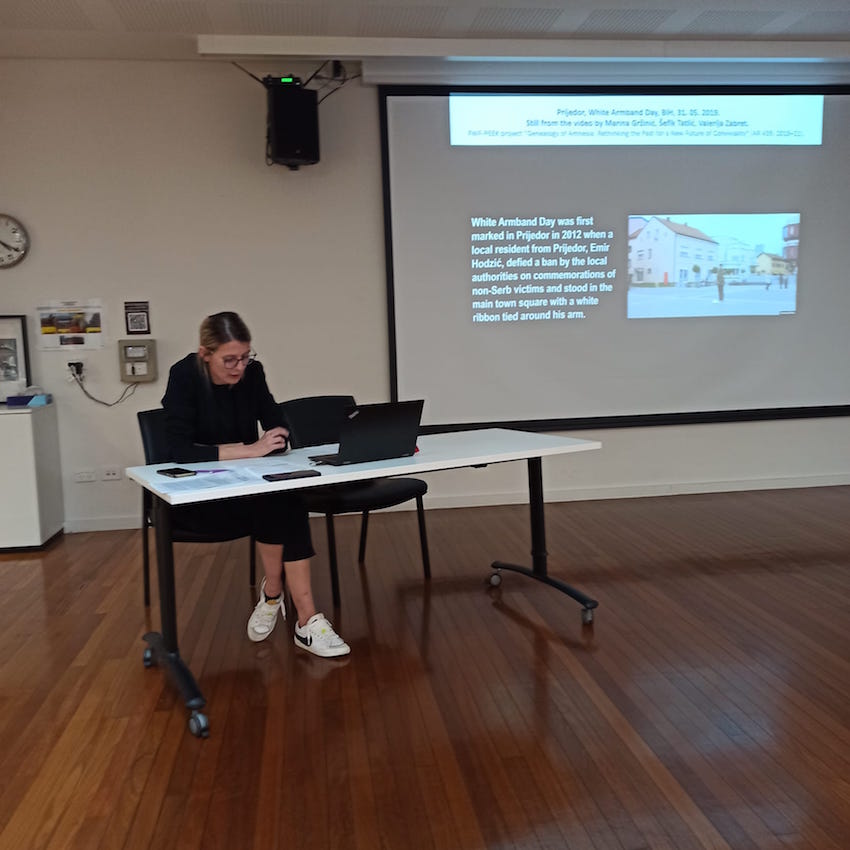
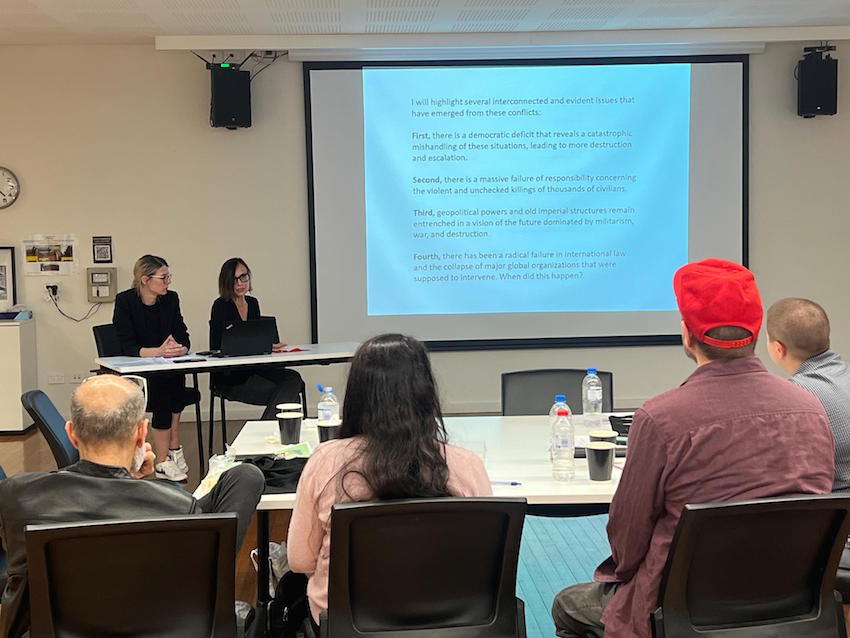
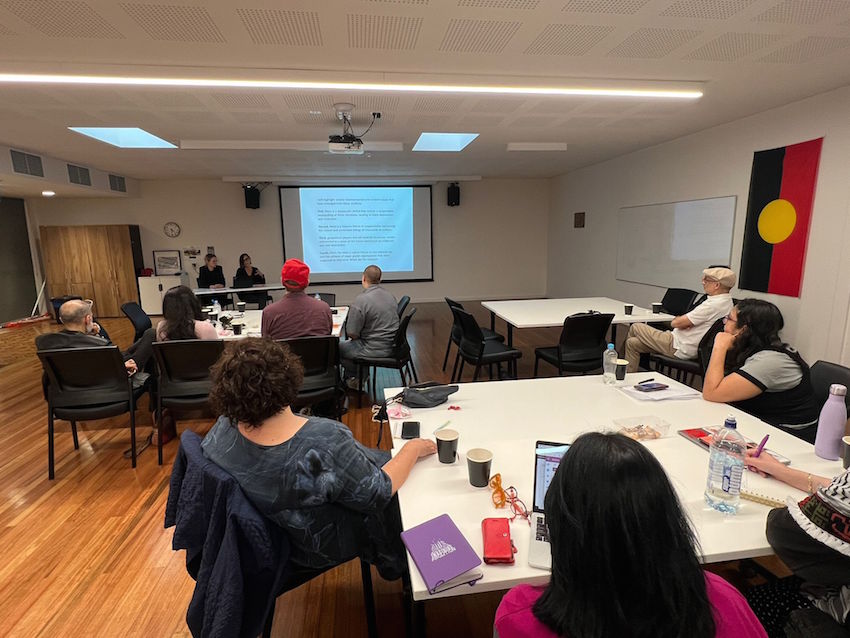
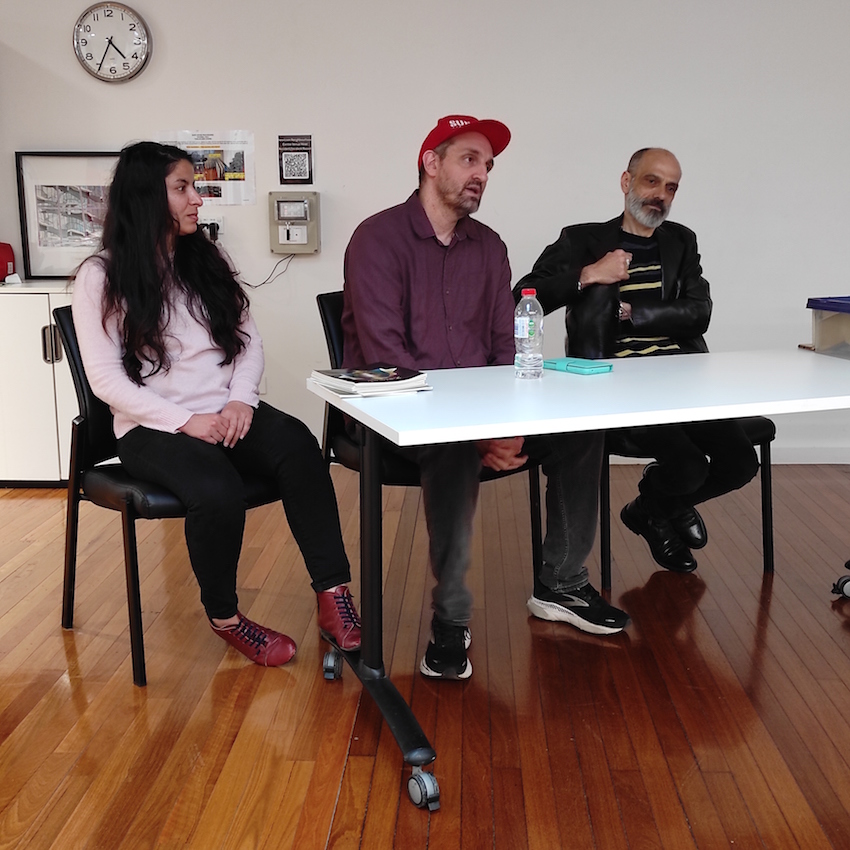
Project: Zeinab Mir, Majid Rabet and Safdar
Ahmed

Pugliese
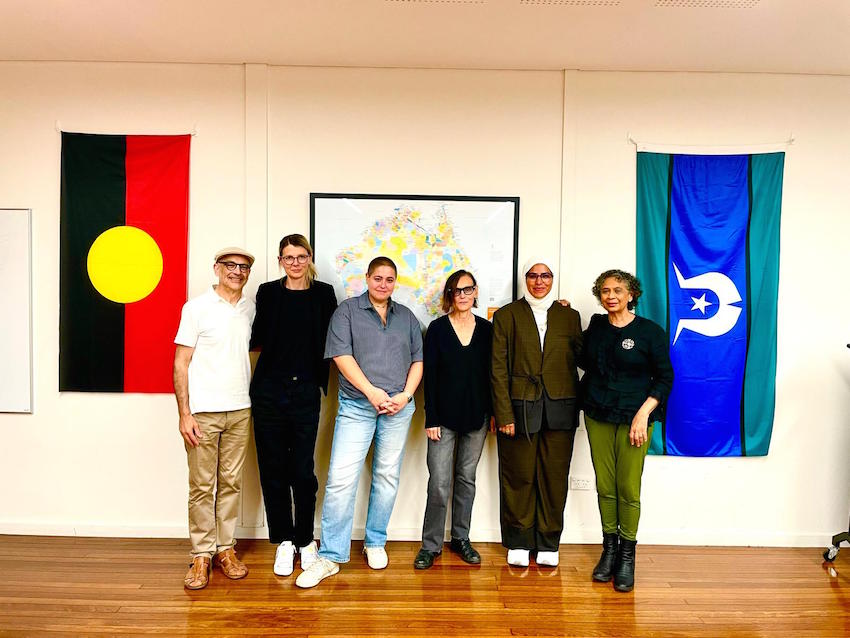
26.09.2024, Redfern Community Center, Sydney: Participation in Workshop 2
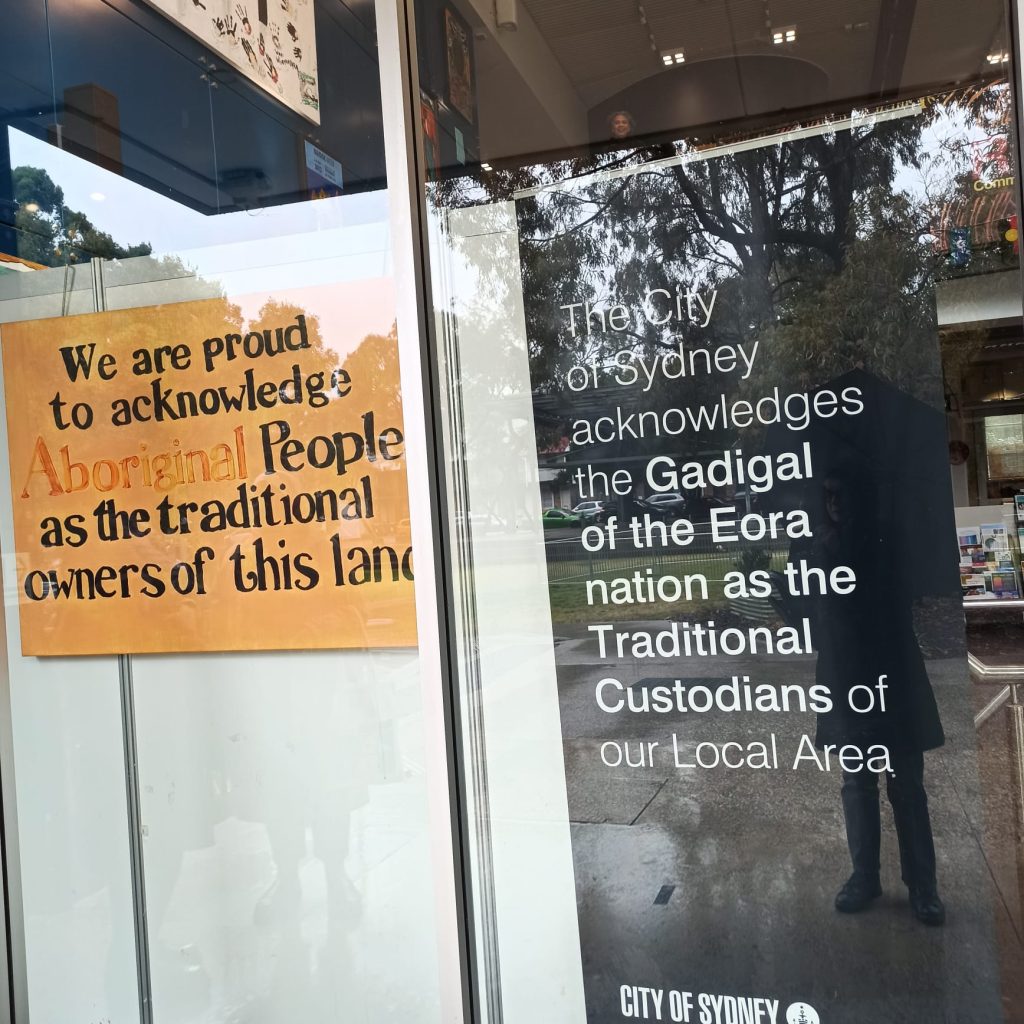
14/06/2024
INTERSECTIONS OF CONVIVIALITY: VOICES OF COMMUNITIES
FORUM 1: Marginalized Voices at the Forefront! Speaking up, Speaking out!
The “INTERSECTIONS OF CONVIVIALITY: VOICES OF COMMUNITIES” FORUM 1, a one-day intensive event titled “Marginalized Voices at the Forefront! Speaking up, Speaking out!” (14. 06. 2024, from 11:00 to 21:00), is part of the broader concept to organize in the final year of our art-based PEEK research project two workshops focused on communities and their interactions with the primary power structures of the nation-state.
FORUM 1, brilliantly conceived and programmed by Asma Aiad, centered on the internal dynamics of Austria and particularly emphasized marginalized and disenfranchised groups within the Austrian neoliberal system.
FORUM 2 will reflect on the global, international dimension of such dynamics and will take part in October 2024.
FORUM 1: Highlights
1. “Mapping Convivial Sites in Vienna” by Anahita Neghabat:
Neghabat’s presentation explored strategies for forming alliances in Austria’s civil spaces, which often overlook the reality of post-war migration. She highlighted the role of strong civil society groups, particularly antifascist movements, in confronting unaddressed historical traumas. Her work underscores the necessity for the left to broaden its focus on racism, historically centered on whiteness and class struggle, to forge new alliances.
2. “Keeping up with Corç, George, Corç/George? Art. Race. Class and Intersections” by Corç George Demir:
Demir discussed the concept of multi-belonging, transcending single-community identities to reshape mainstream urban culture. He emphasized embracing the core aspects of gay culture within show business and mainstream codes, critically examining how these elements interact with broader processes of othering and its possible unlearning, acquiring a possible autonomy of agency or at least performing it.
3. “Edelweiss. A Critical Love Letter to Austria” (2023) by Anna Gaberscik:
The screening of “Edelweiss” provided a stark examination of the violent, white supremacist structures within the Austrian nation-state. Gaberscik’s film, devoid of any conciliatory balance, delivers a powerful message on the racial and colonial lines of segregation. It serves as both an empowerment tool and a profound learning experience about the pervasive toxicity of whiteness. This film is a must-see for the Austrian cultural, civic, and state systems of power, administration, and institutional settings. Anna Gaberscik in conversation with Asma Aiad precisely reflected on levels of doing and undoing the racist Austrian space.
4. Panel: “Creating Spaces for Conviviality: Exploring the Concept of Community Settings”:
Conceived, organized, and moderated by Asma Aiad, the panel included participants Salam Oida, Nargol Gharahshir (Javaneh Kollektiv), Saška Dimić (Höchschüler*innenschaft Österreichischer Roma und Romnja – HÖR), Mwita Mataro (AUSTROSCHWARZ), Rumeysa Dur Kwieder (Dokustelle Islamfeindlichkeit & antimuslimischer Rassismus), and the Cinta Cinta Collective. The discussion highlighted how marginalization processes lead to strong empowerment and innovative forms of organizational and community restructuring. The panelists shared detailed oral histories and reflections, illustrating the resilience and adaptability of marginalized communities in creating spaces for conviviality.
FORUM 1 provided a platform for marginalized voices to be heard, fostering a deeper understanding of how these communities navigate and resist systemic oppression. Through presentations, film, and panel discussion, FORUM 1 emphasized the importance of alliances, multi-belonging, and critical engagement with historical and contemporary issues of racism and exclusion in Austria. At the very end of the program of FORUM 1, participants loved a session featuring stand-up comedy by Maggie and a performance by the Austrian rapper duo EsRAP in the classroom of Sigmund Freud Private University in Vienna. (M. Grzinic)
14/06/2024 PHOTO DIARY
INTERSECTIONS OF CONVIVIALITY: VOICES OF COMMUNITIES. FORUM 1: Marginalized Voices at the Forefront! Speaking up, Speaking out!
Sigmund Freud Private University Vienna, IFIME
Panel discussion “Creating Spaces for Conviviality: Exploring the Concept of Community Settings” with Asma Aiad – Salam Oida, Nargol Gharahshir – Javaneh Kollektiv, Saška Dimić Höchschüler*innenschaft Österreichischer Roma und Romnja (HÖR), Mwita Mataro – AUSTROSCHWARZ, Rumeysa Dur Kwieder – Dokustelle Islamfeindlichkeit & antimuslimischer Rassismus, Cinta Cinta Collective; open mic + chillout with Esra & Enes Özmen – EsRAP and Maggie
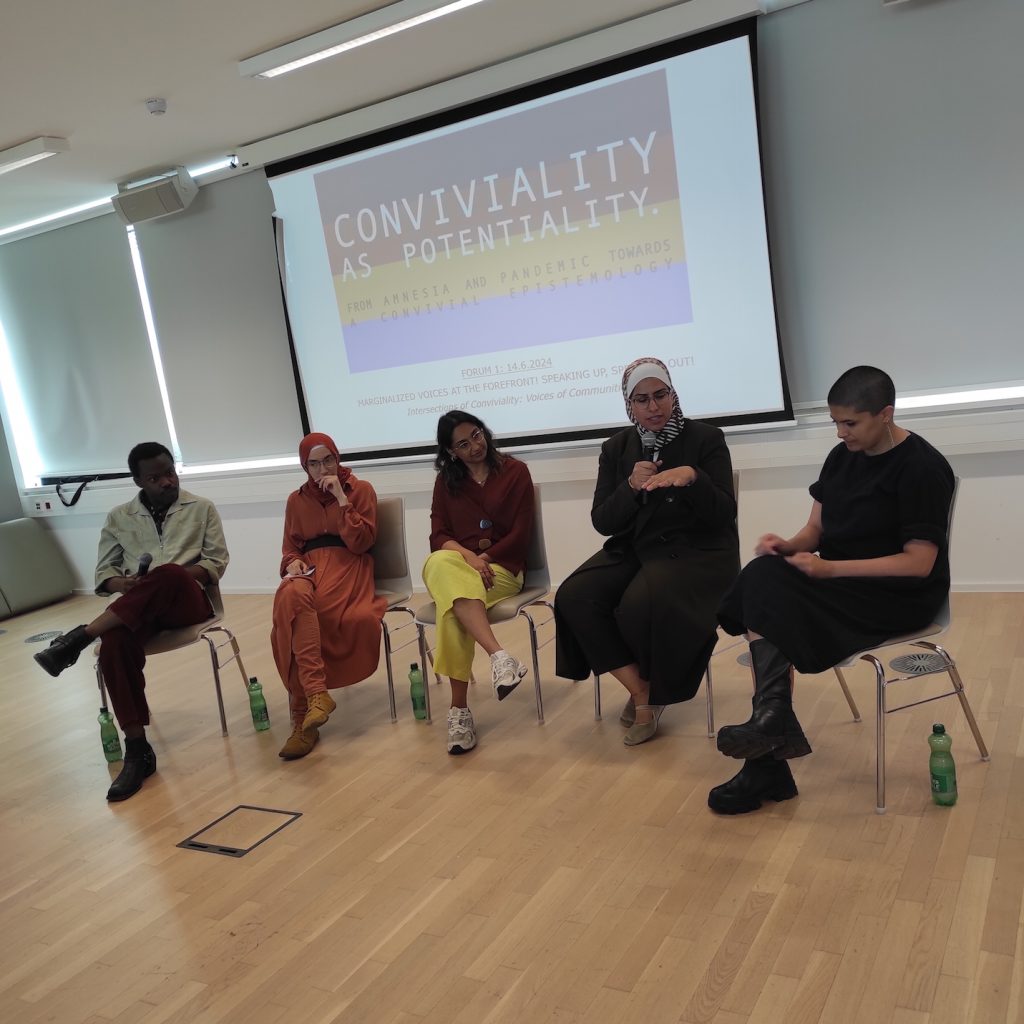
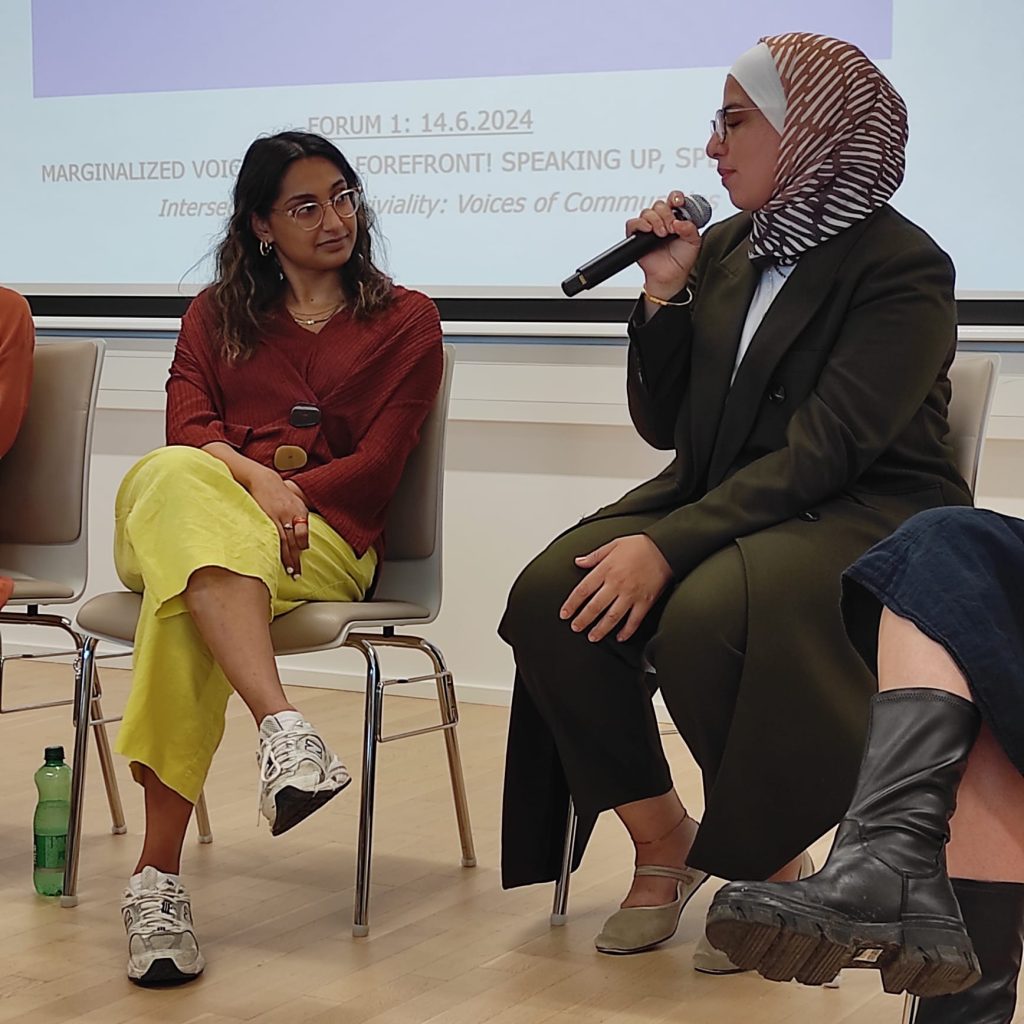
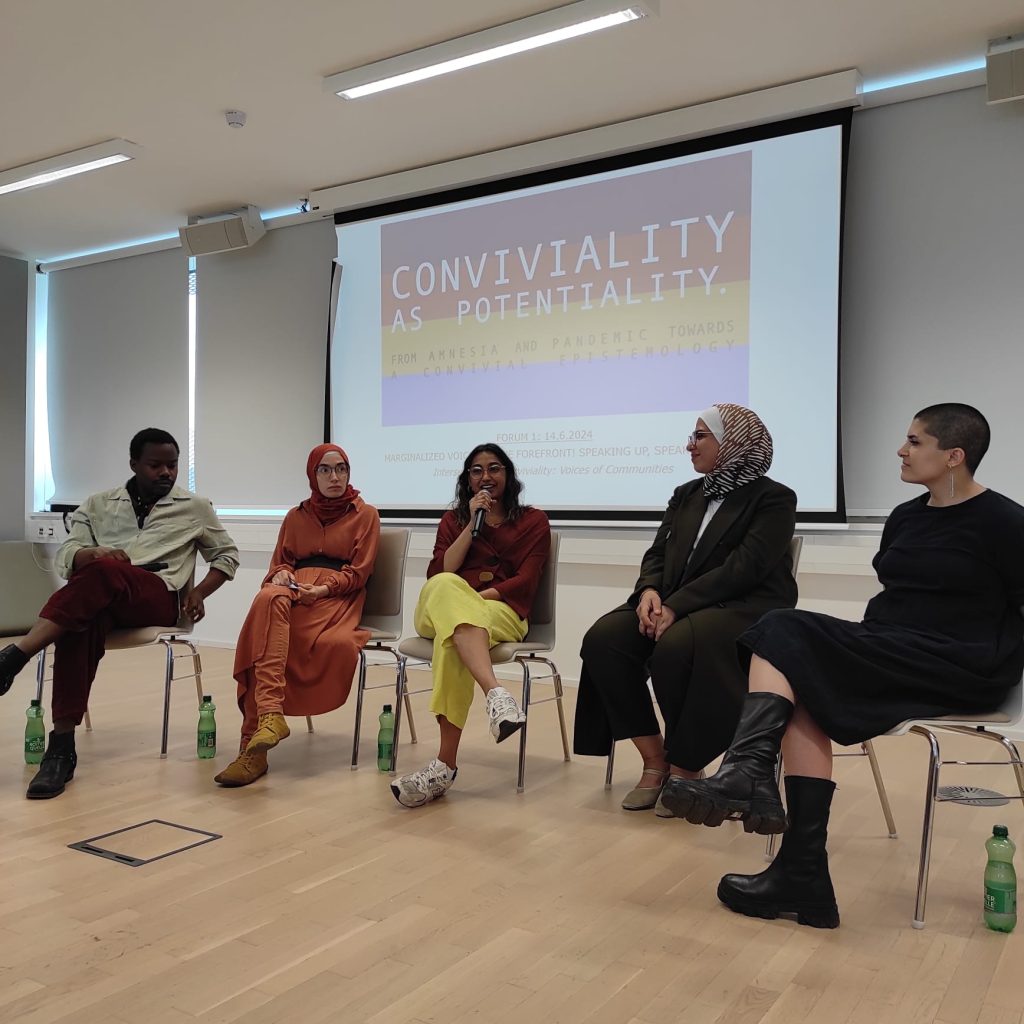
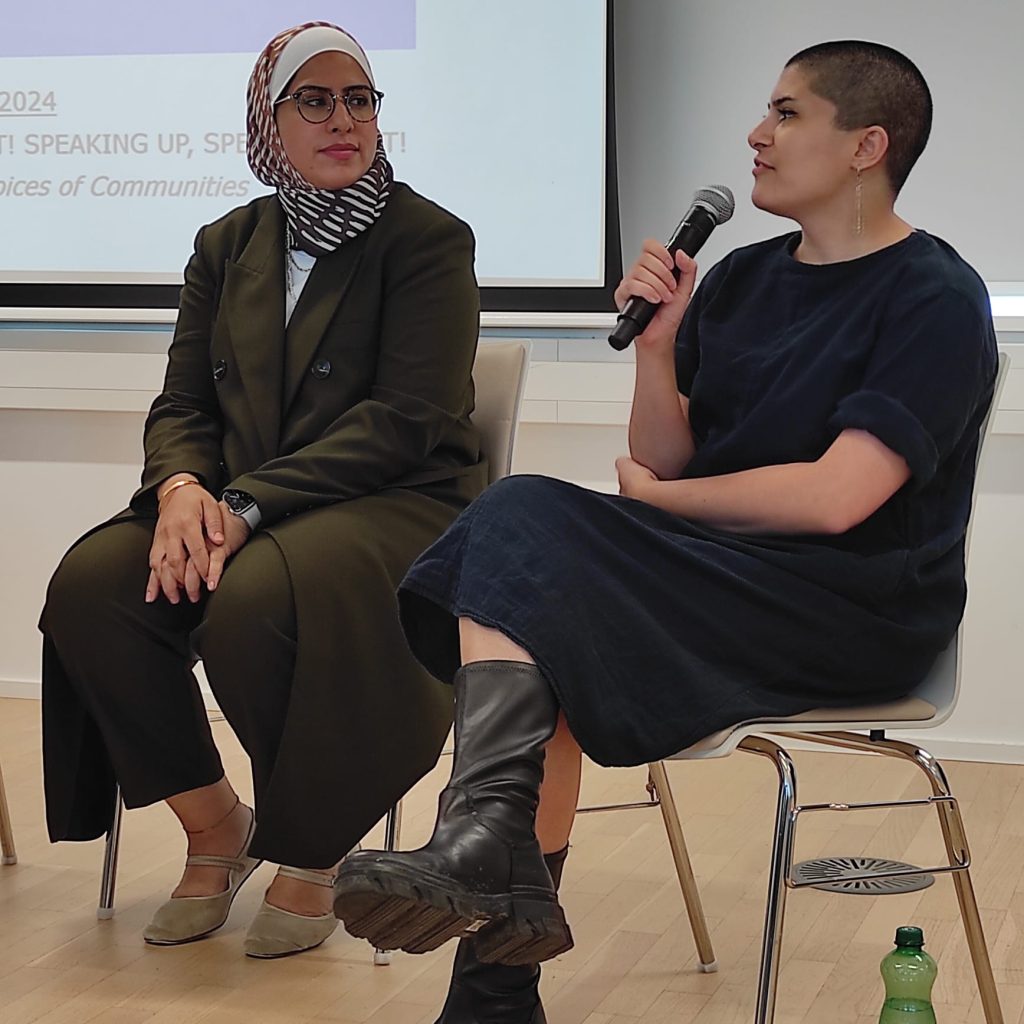
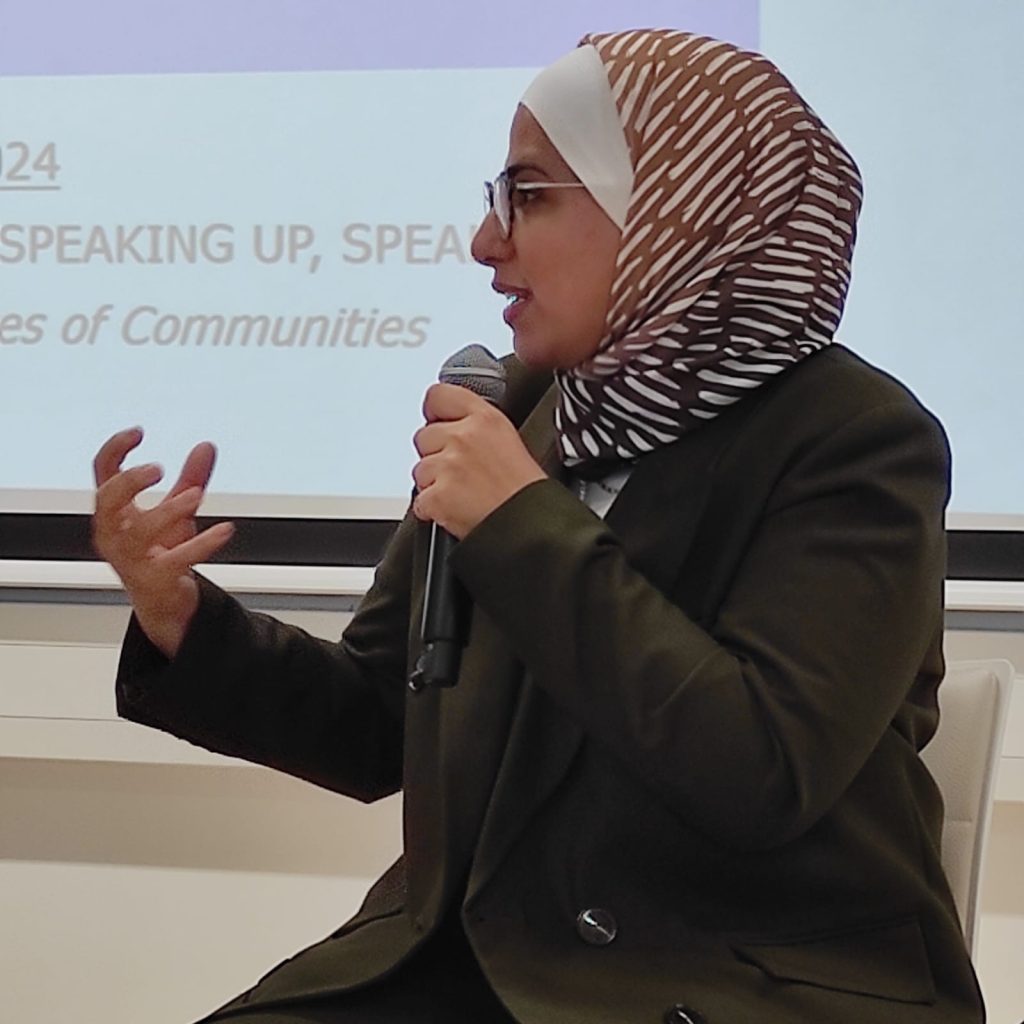
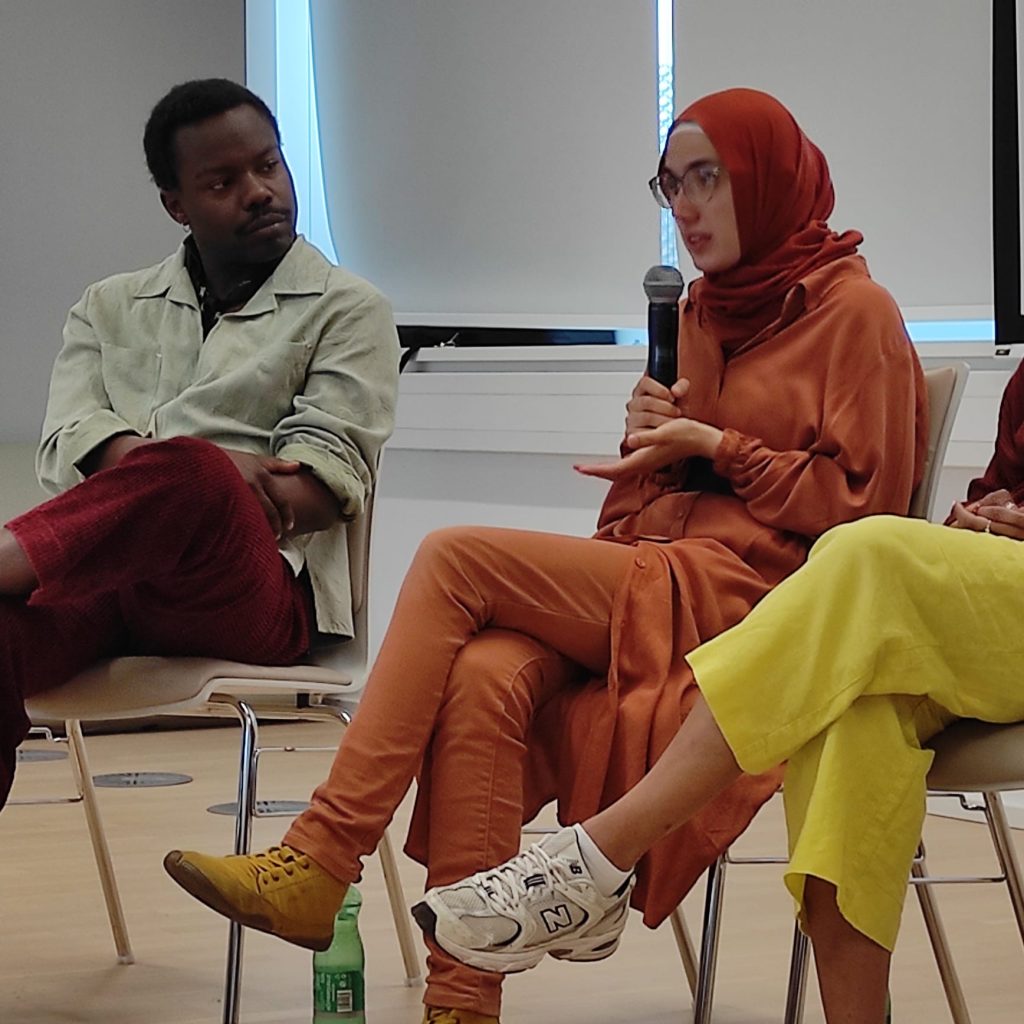

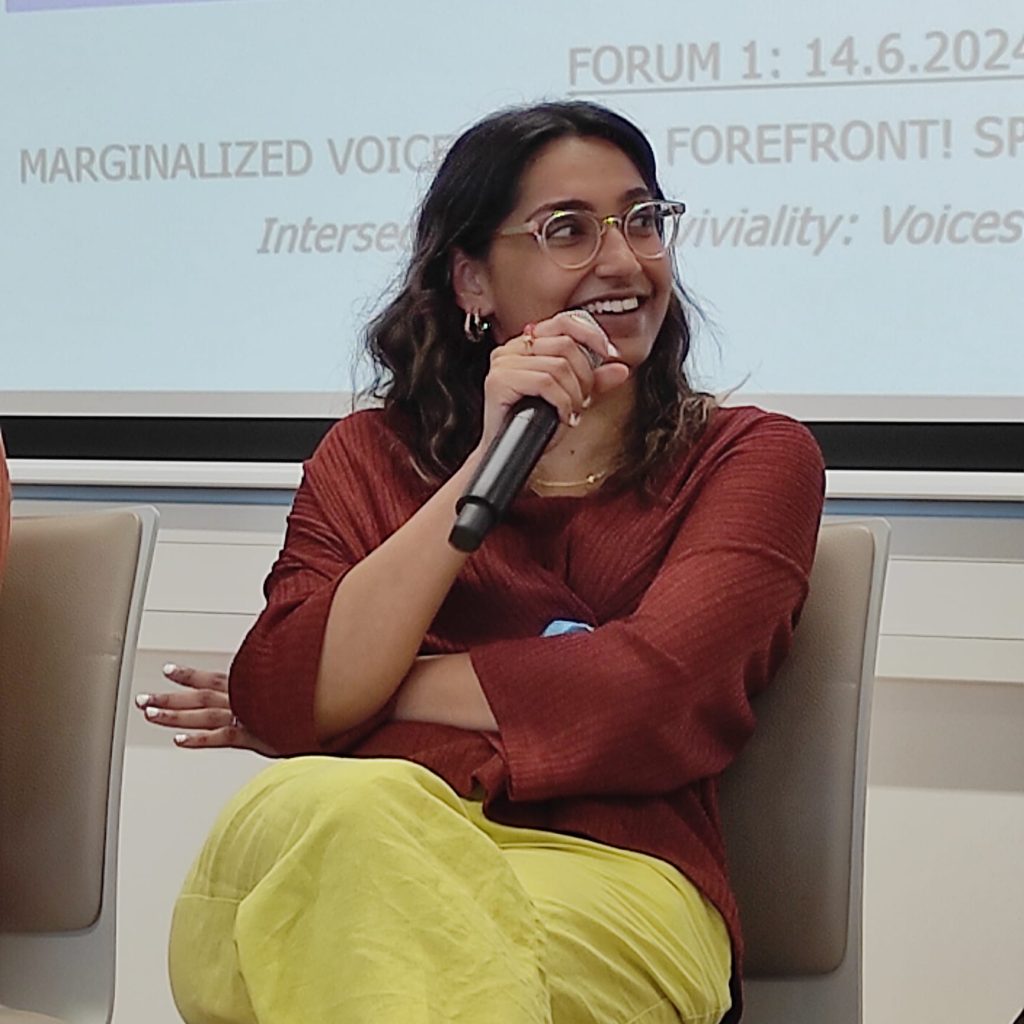
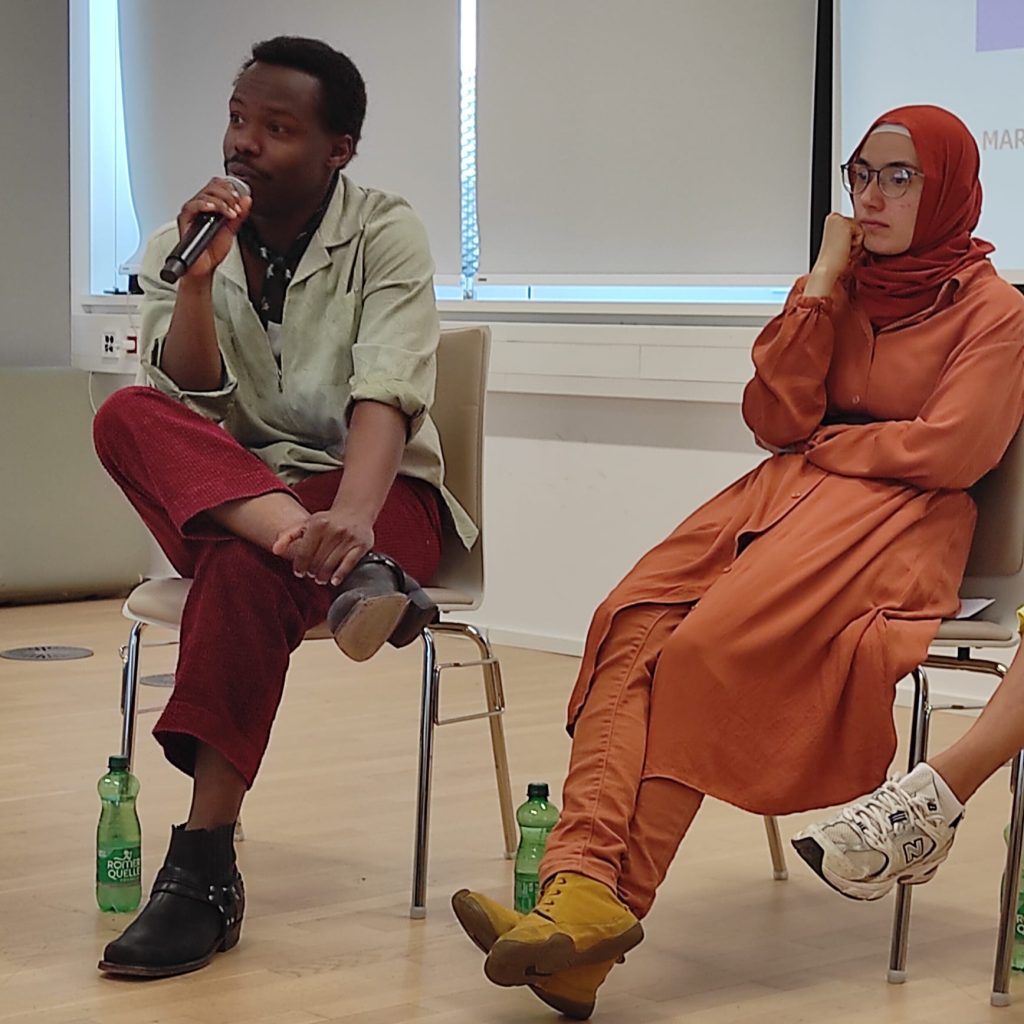
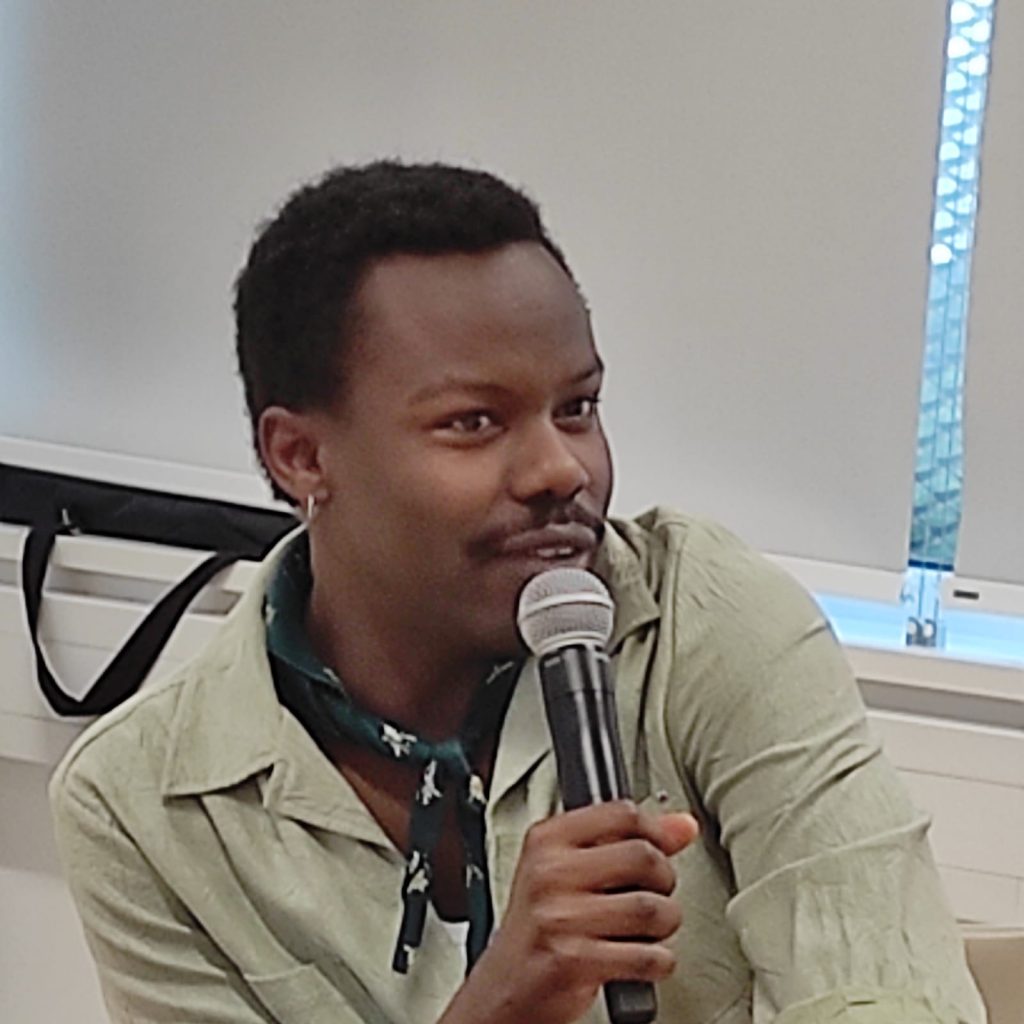

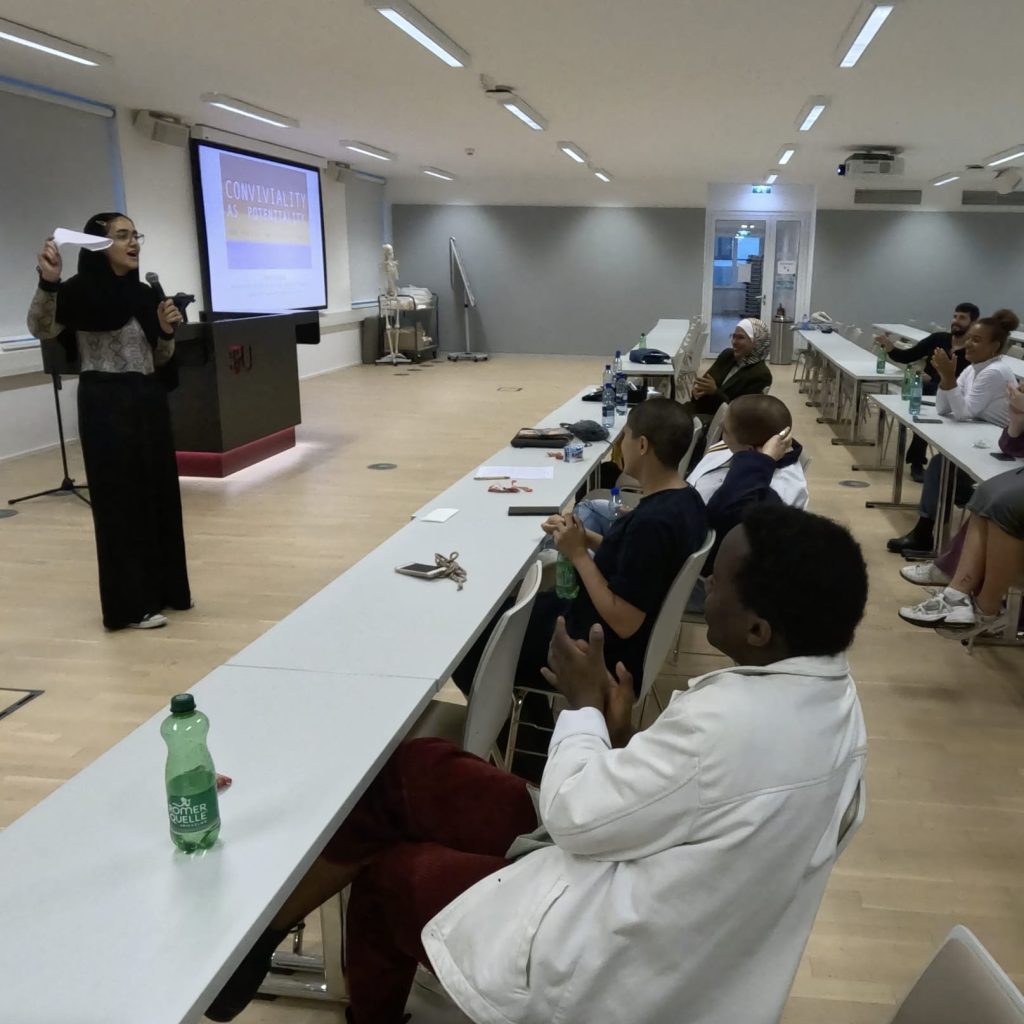
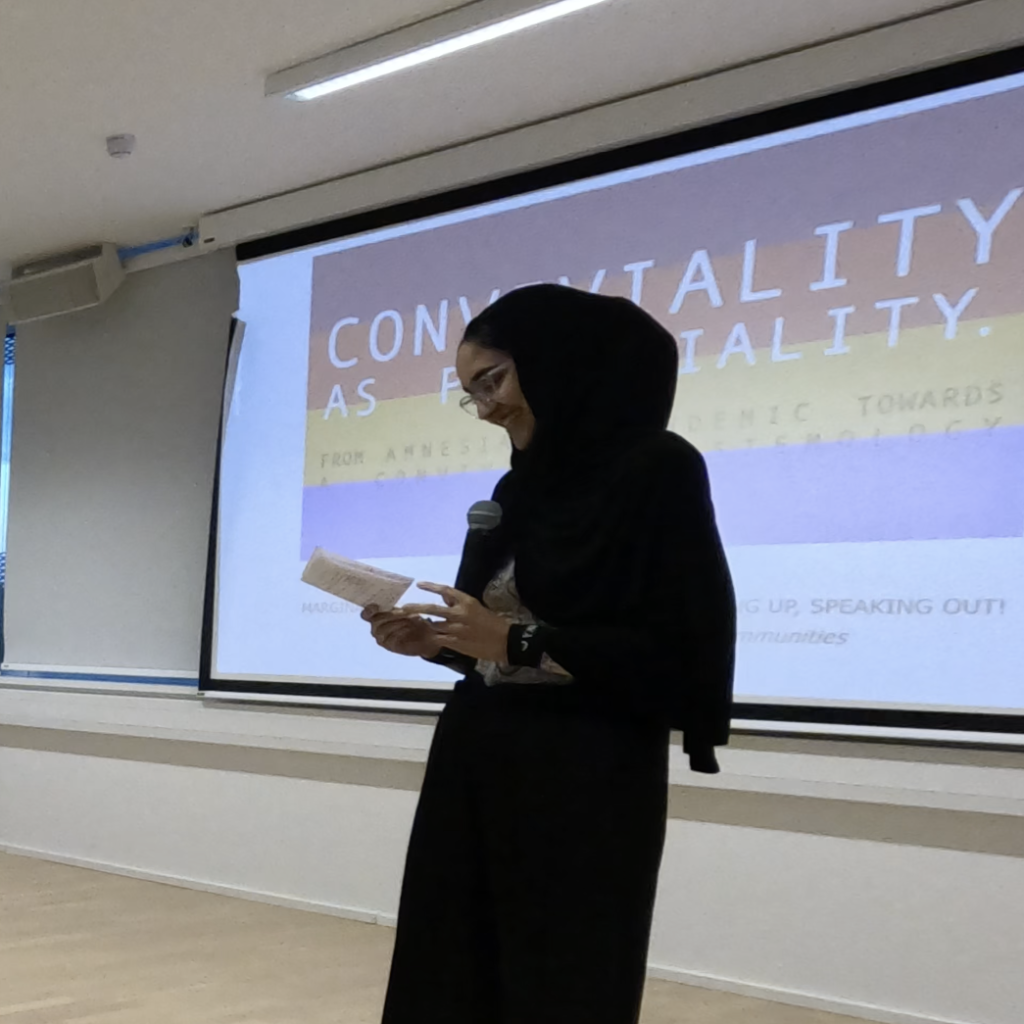
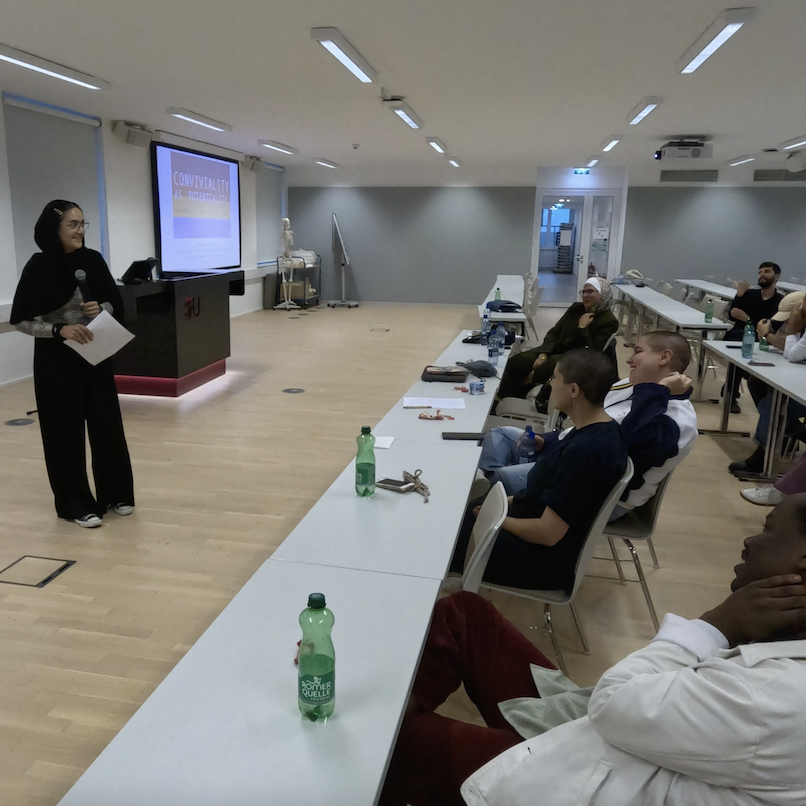
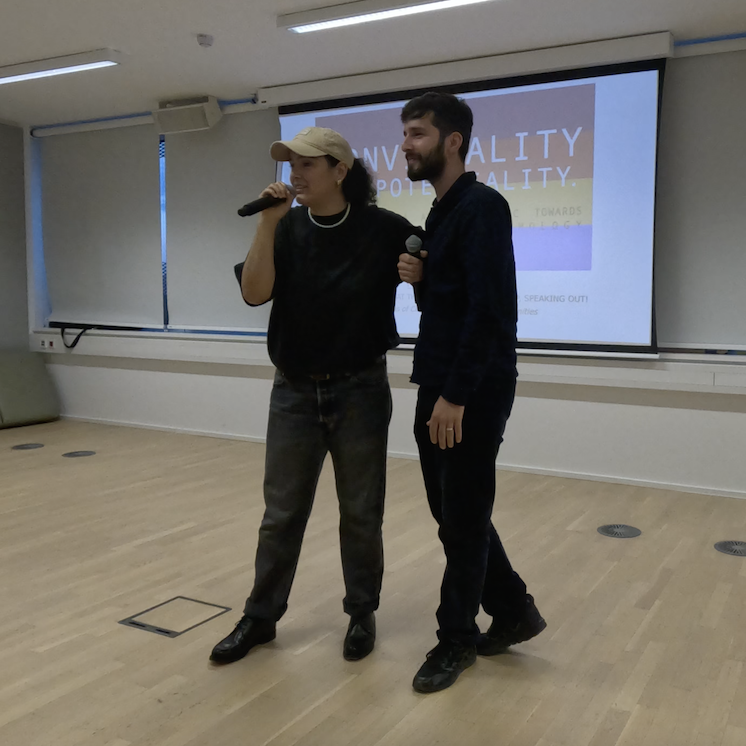
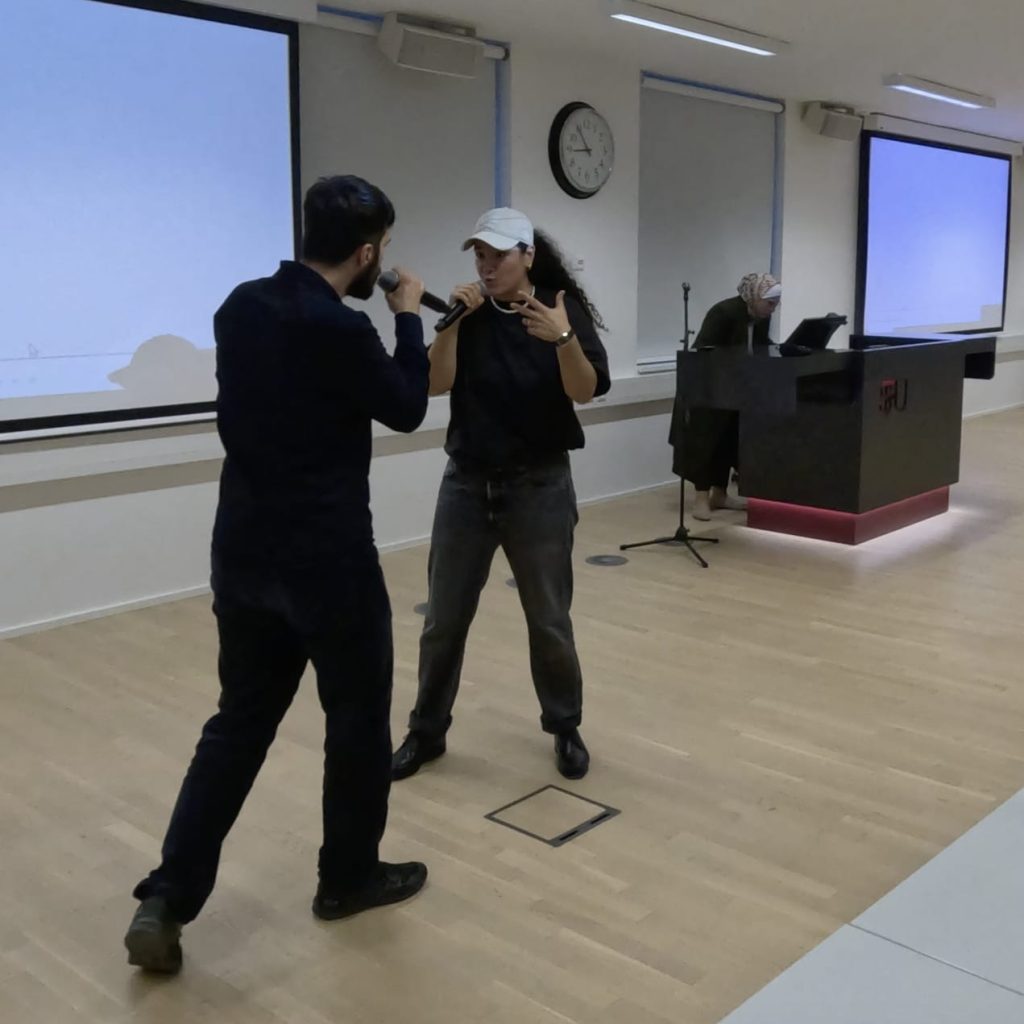
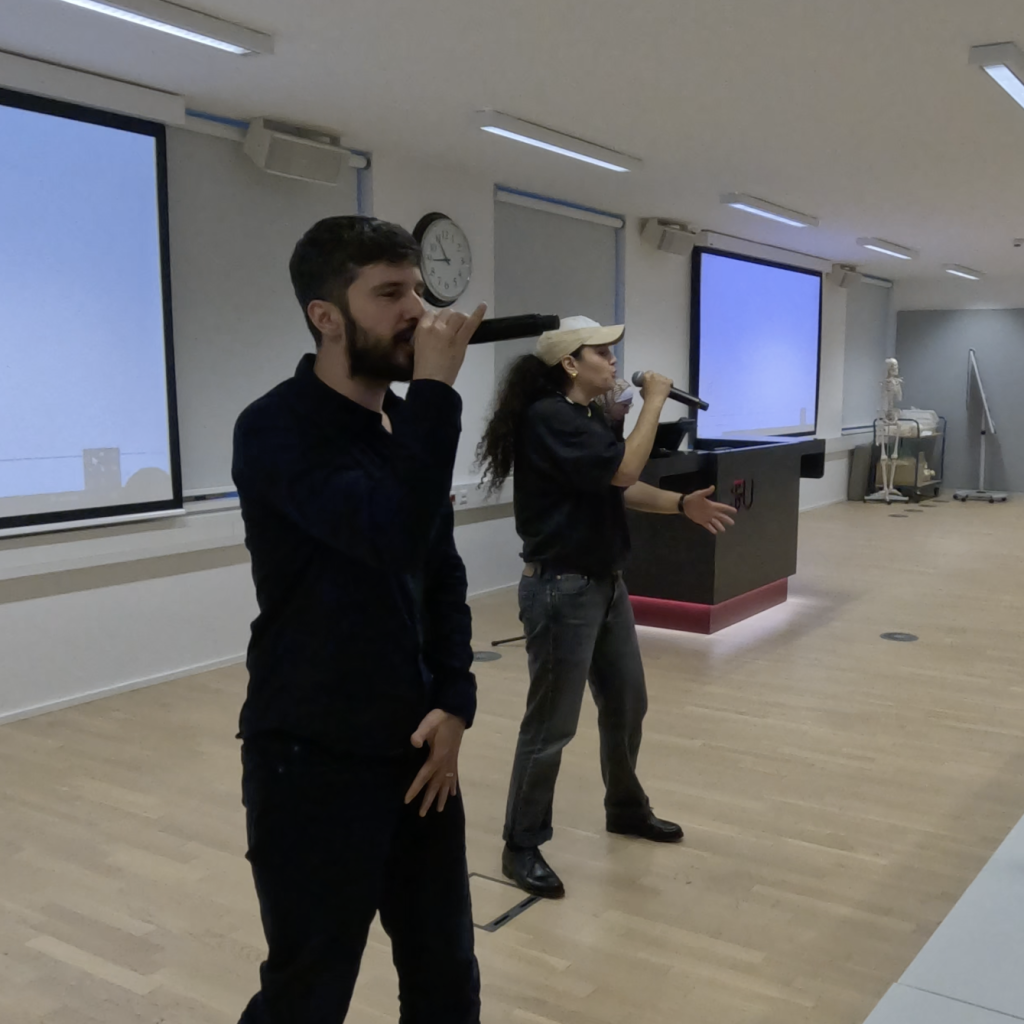
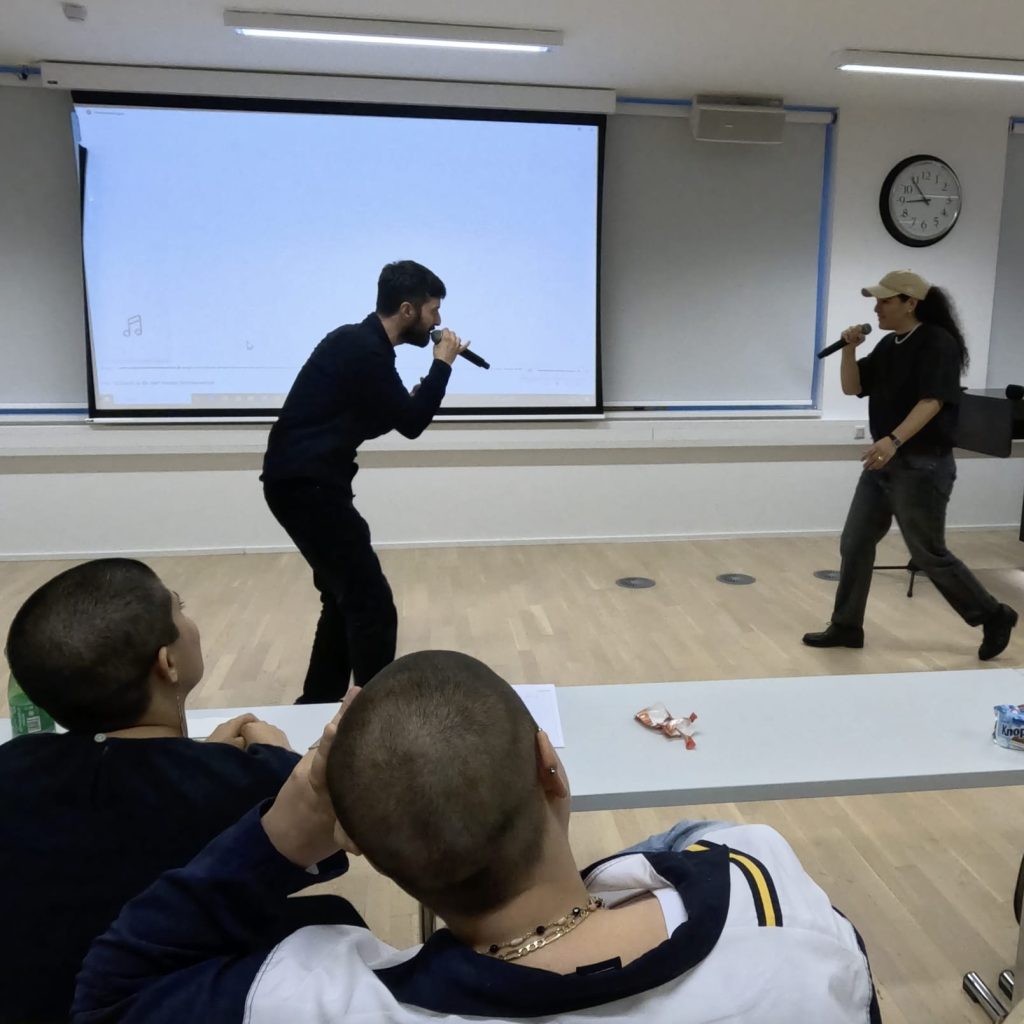
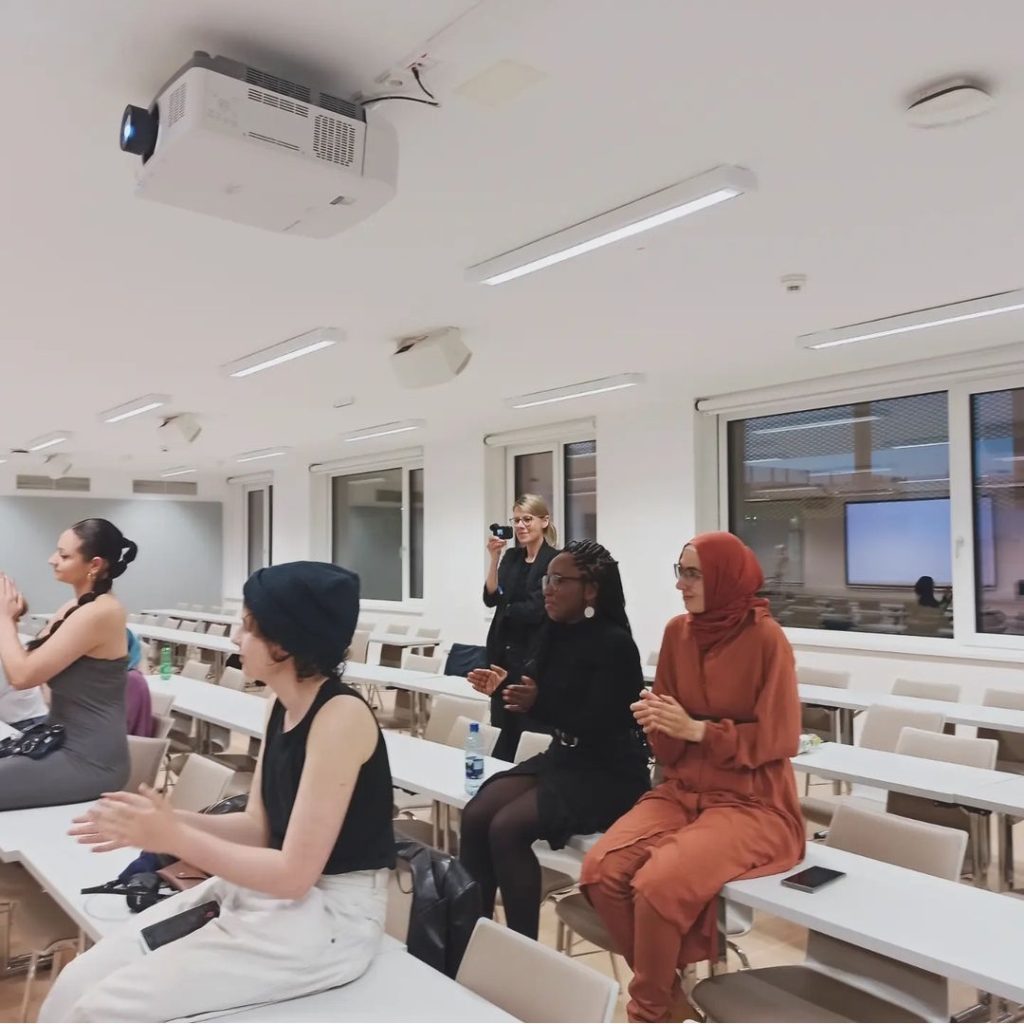
Film screening “Edelweiss. A Critical Love Letter to Austria” (2023) by Anna Gaberscik and an artist talk; screenings/presentations by Cinta Cinta Collective and Mwita Mataro
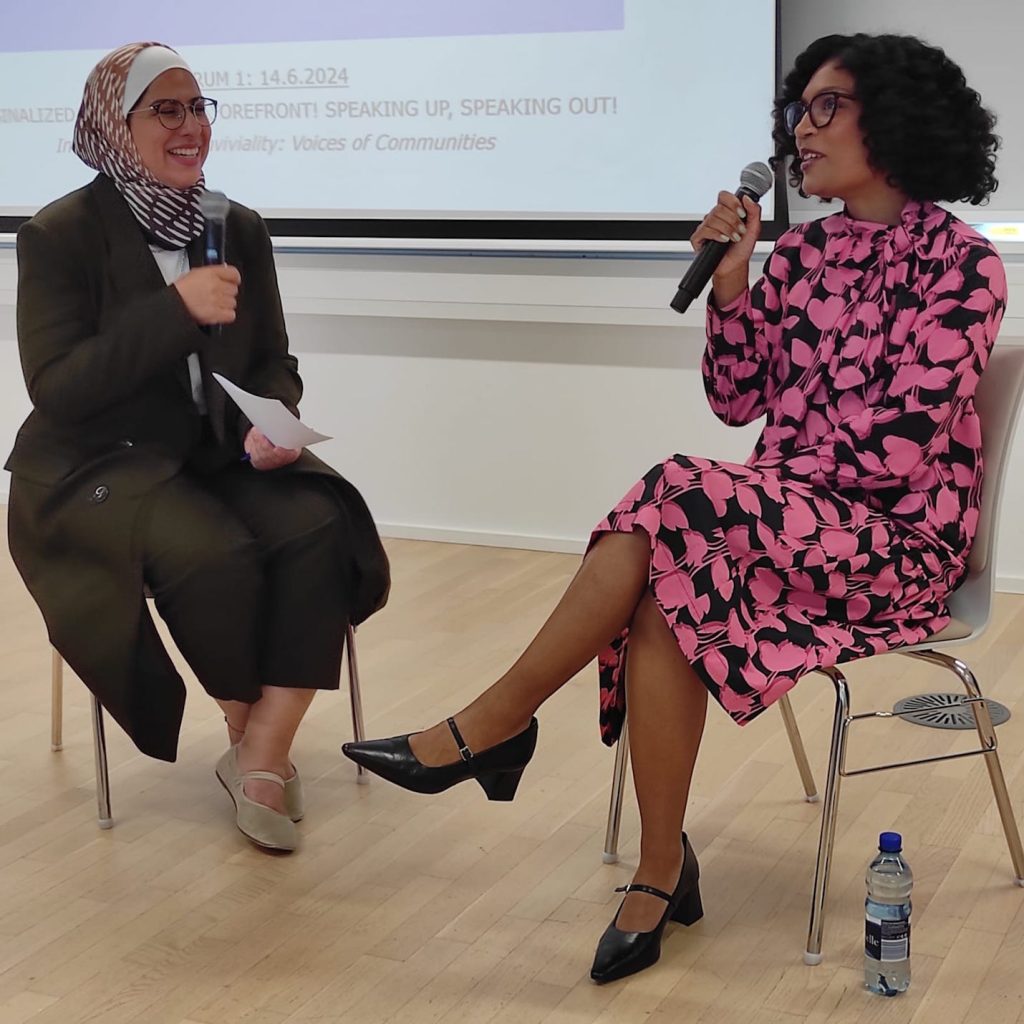
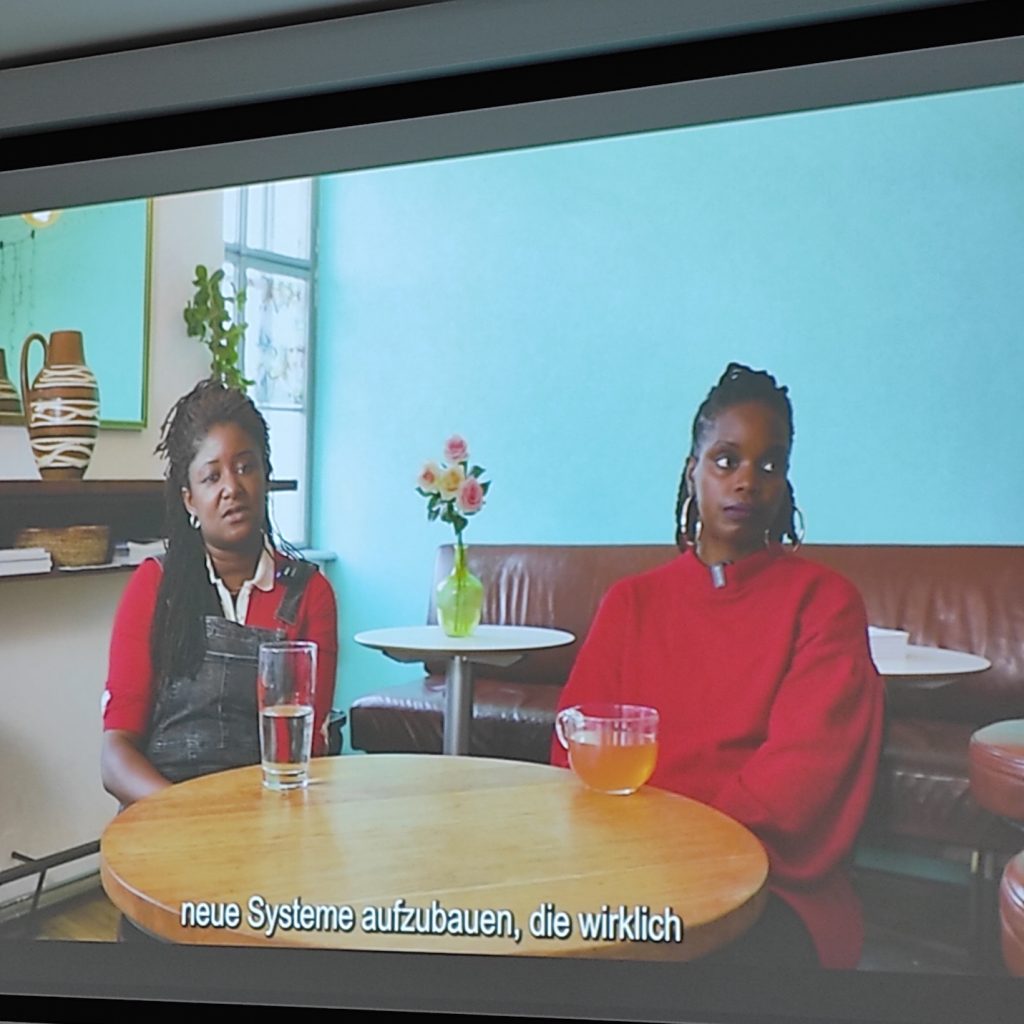
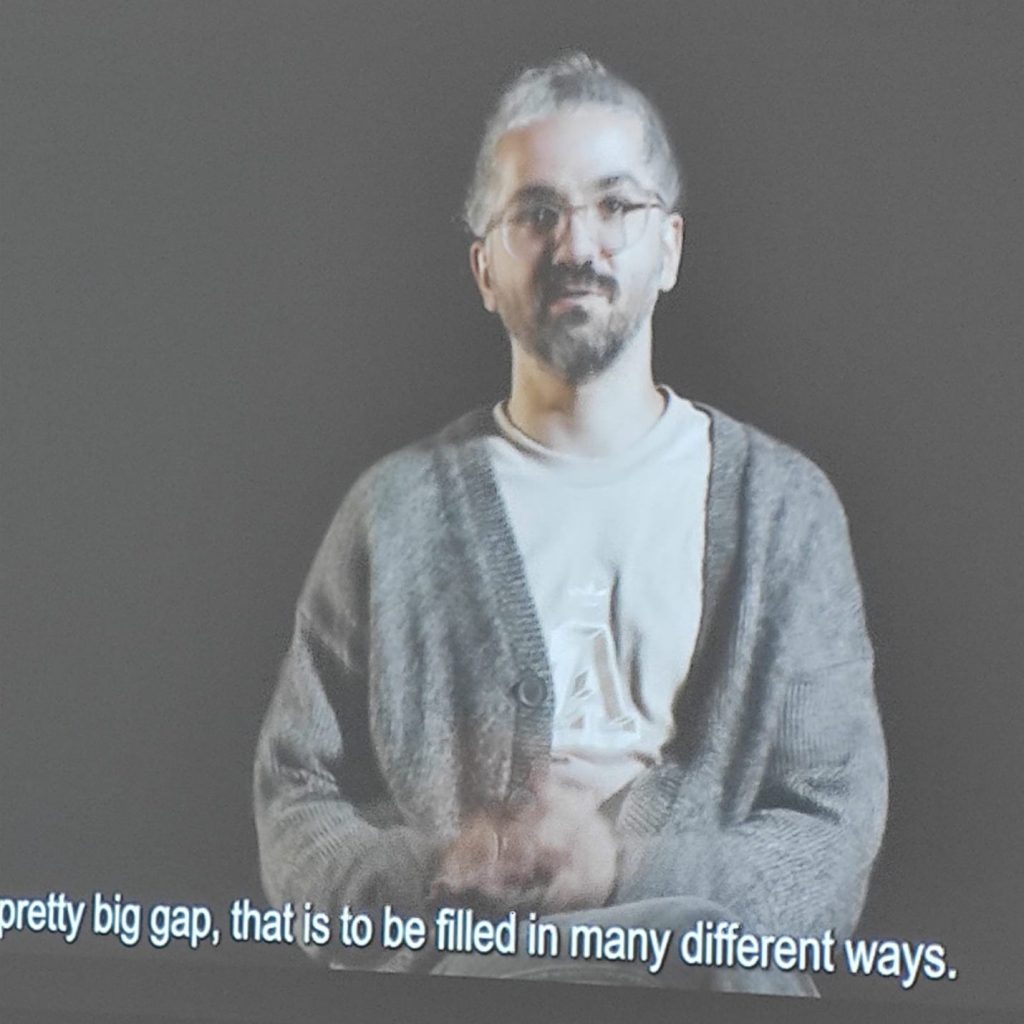
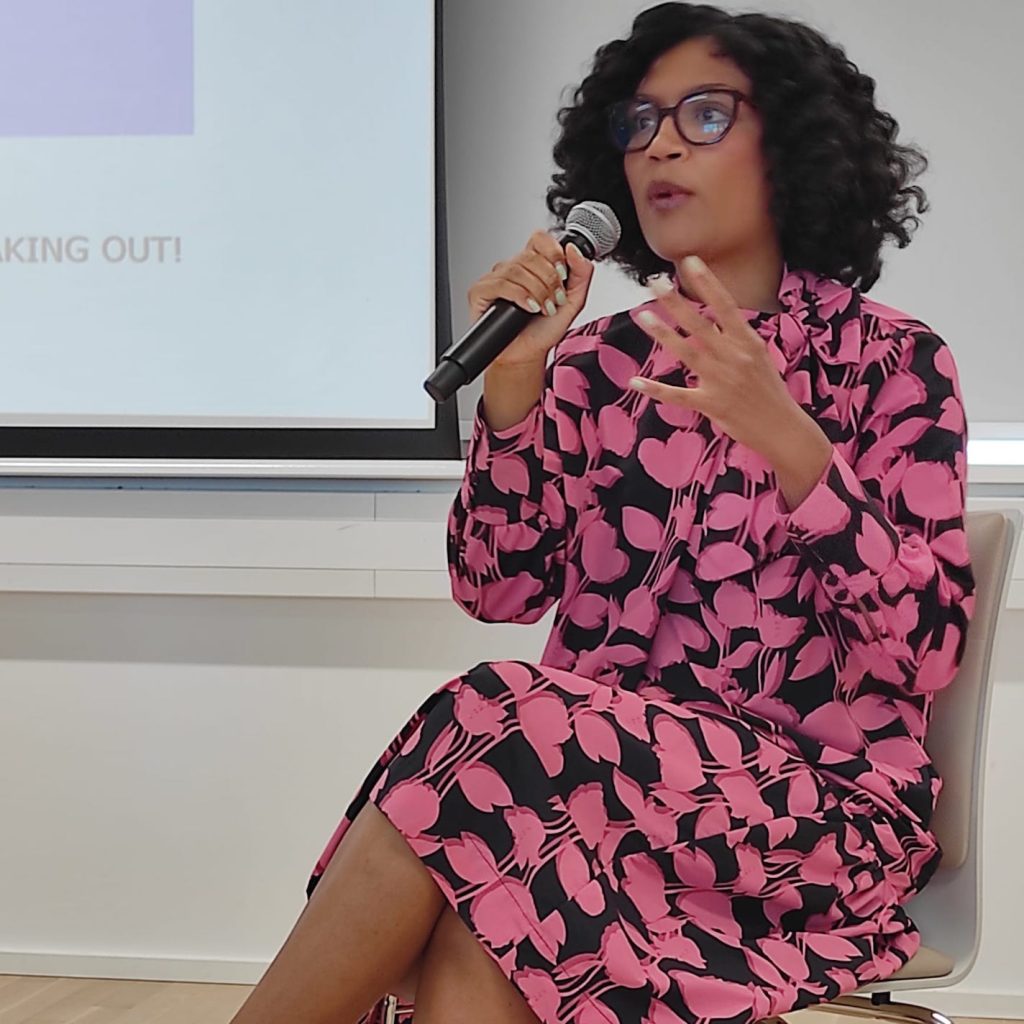
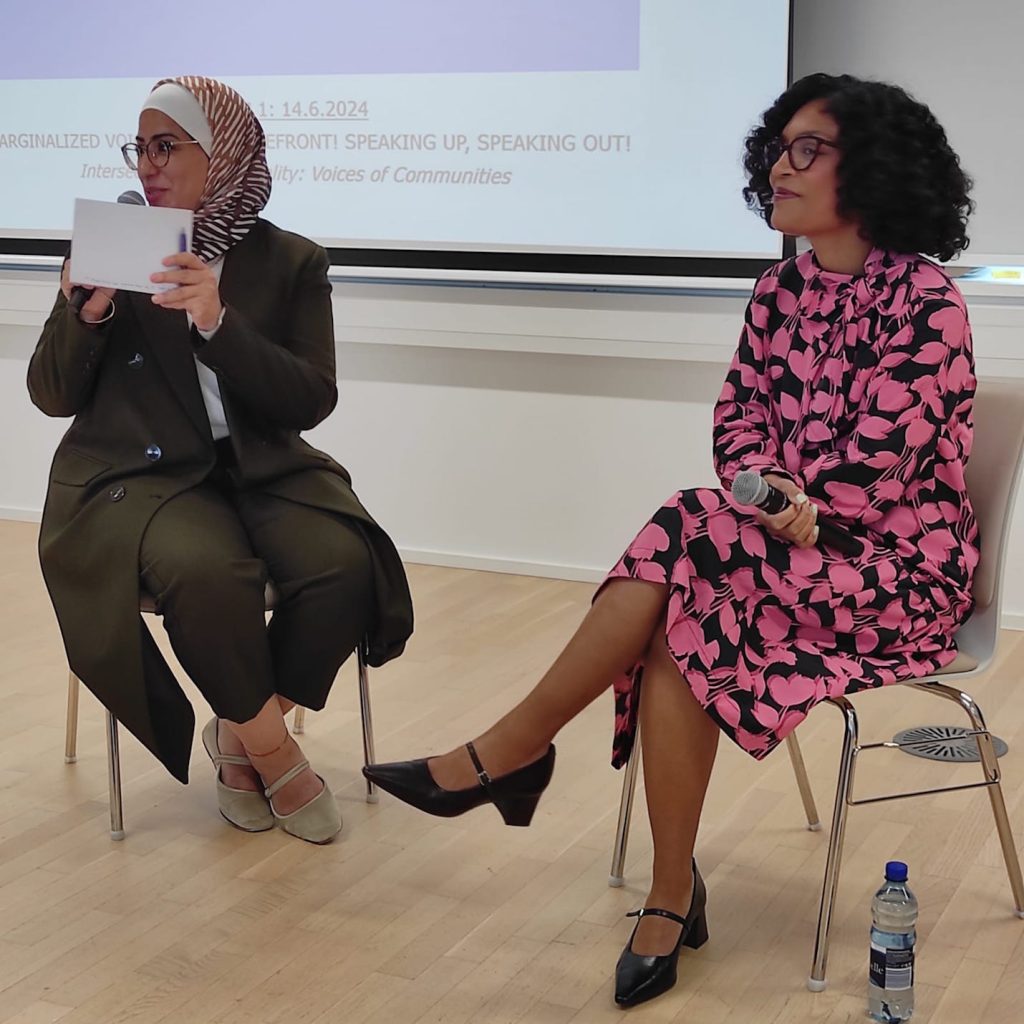
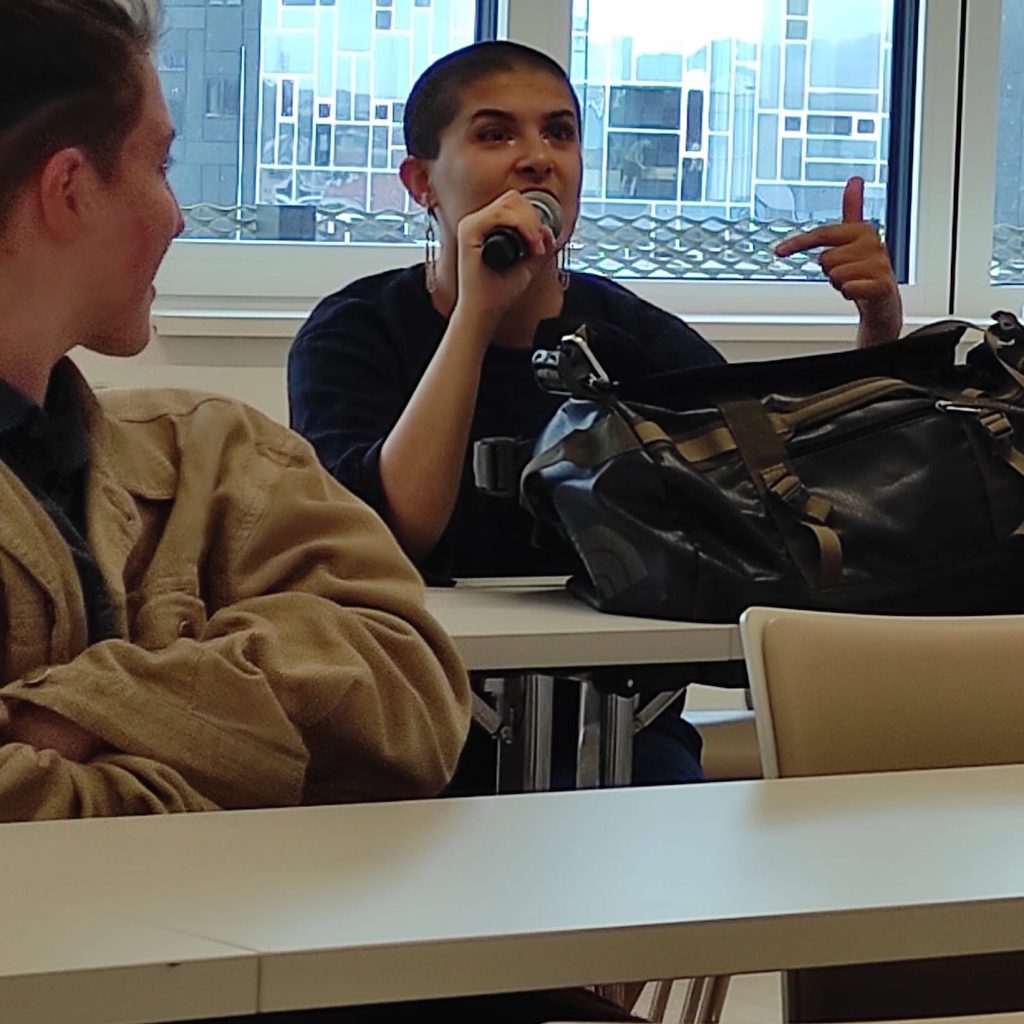
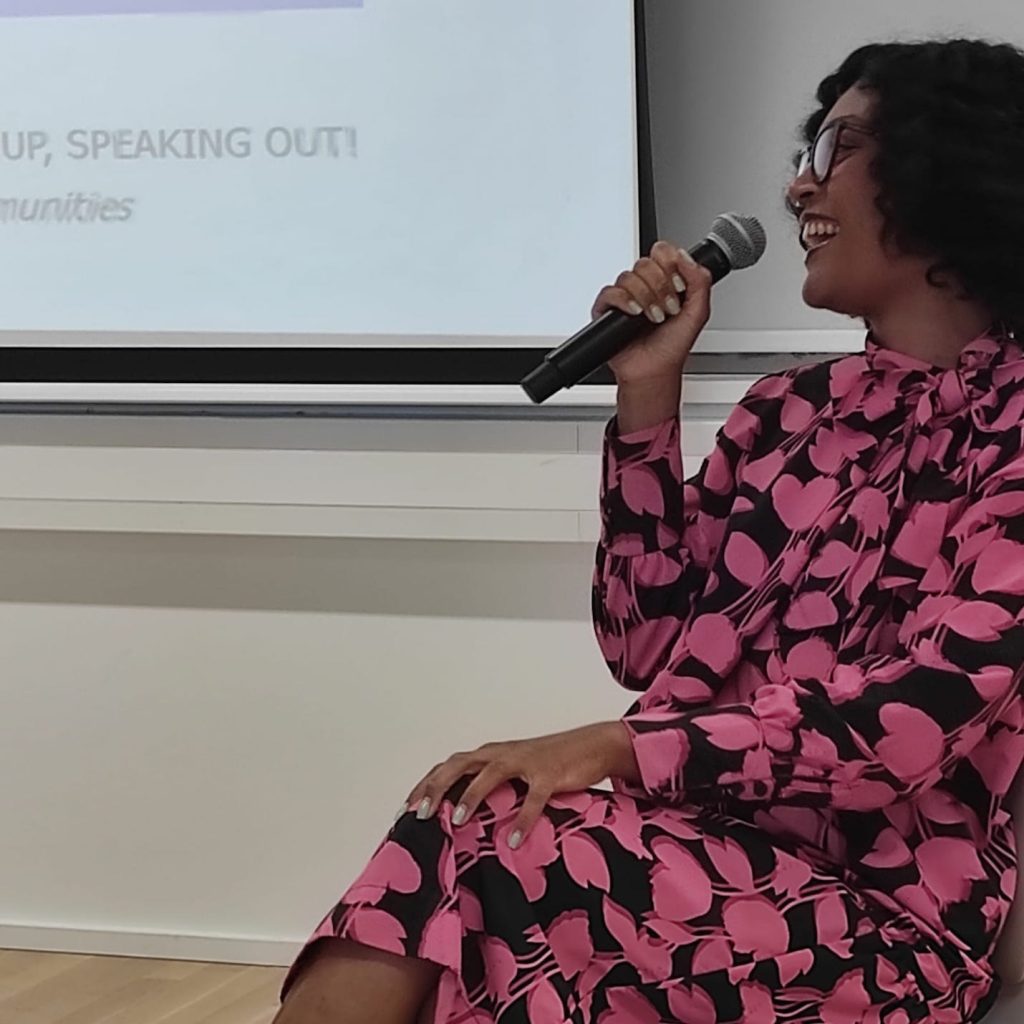
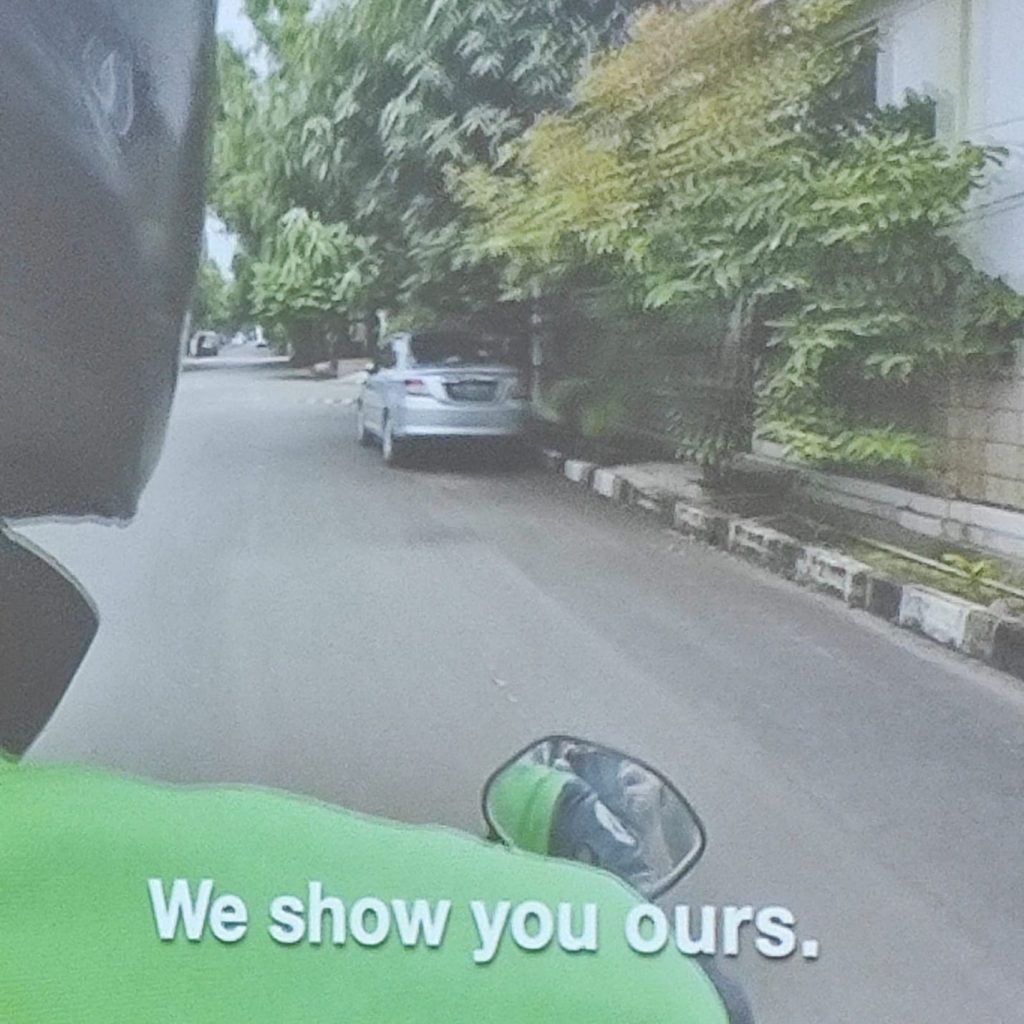
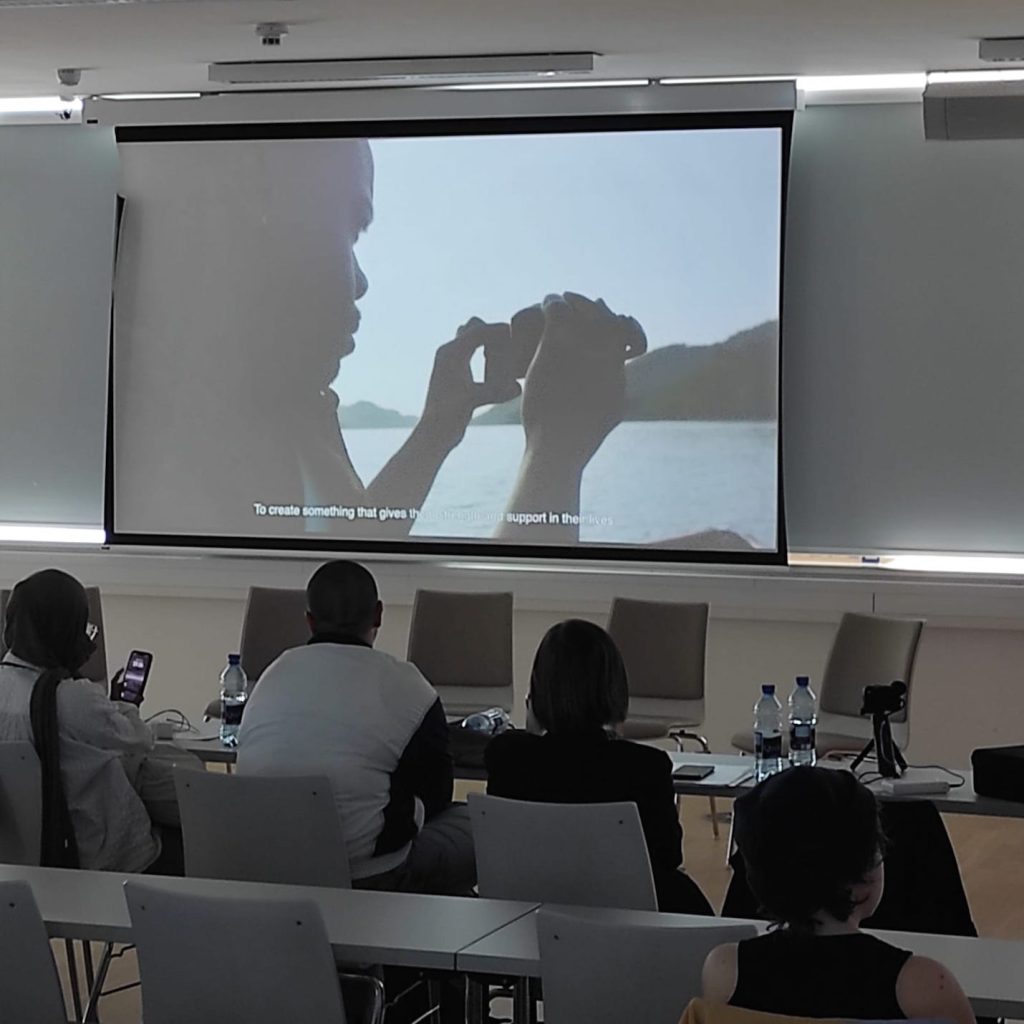
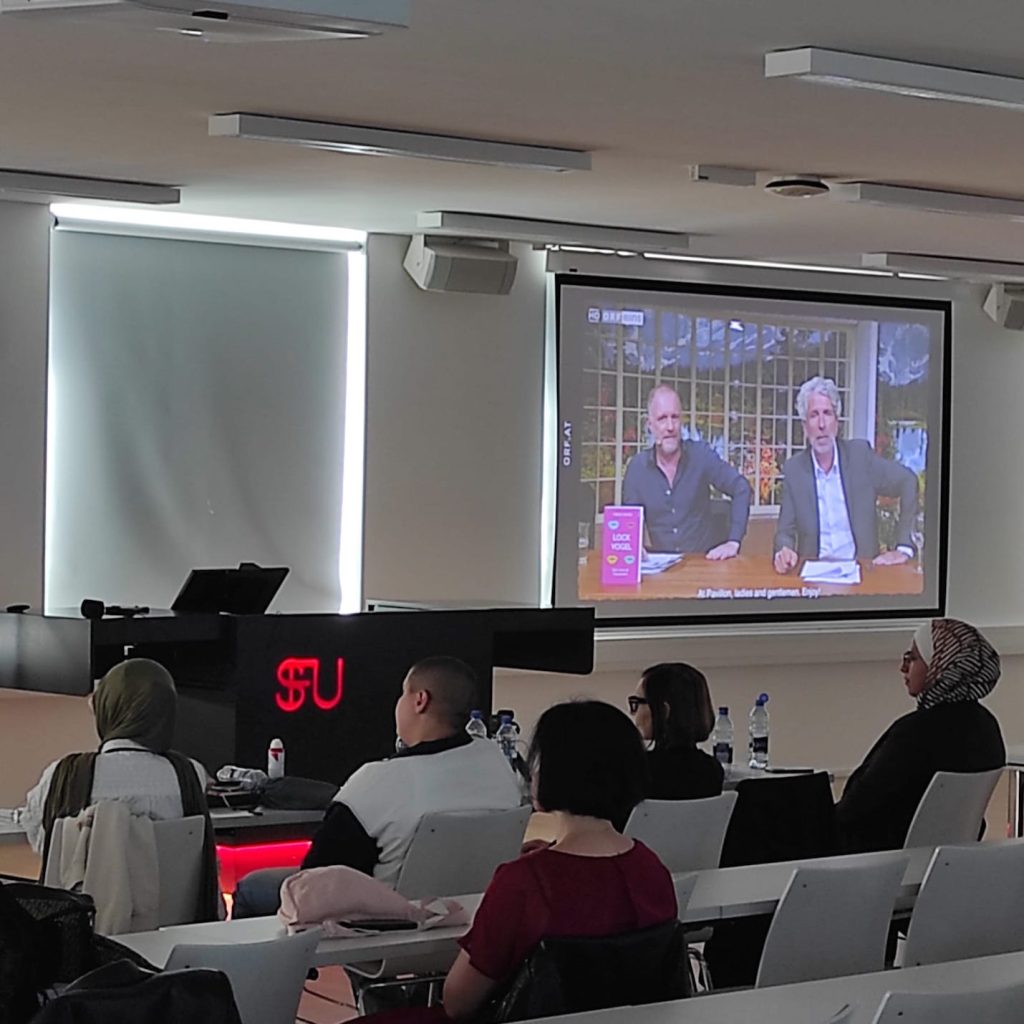
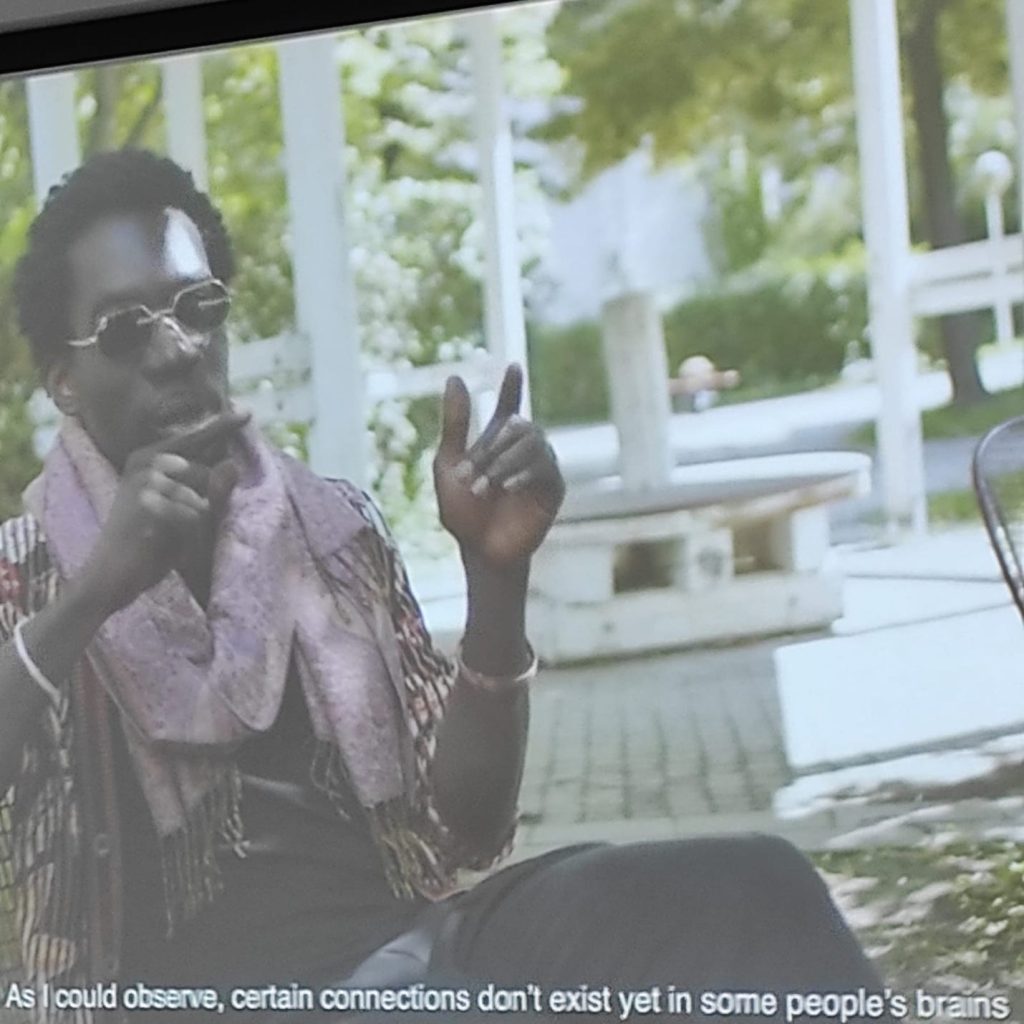
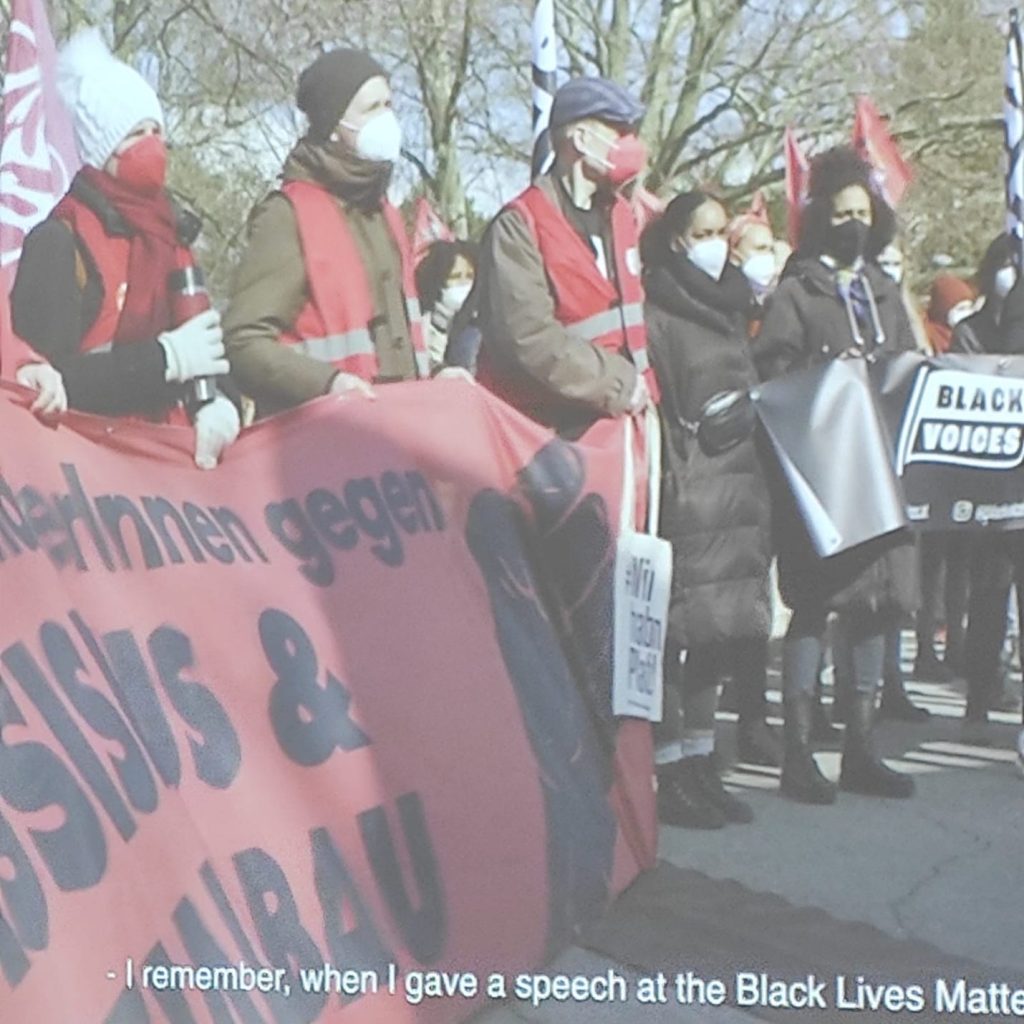
Welcome and introductions by Marina Gržinić and Asma Aiad; lecture “Mapping convivial sites in Vienna” by Anahita Neghabat; lecture “Keeping up with Corç, George, Corç/George?” Art. Race. Class and Intersections by Corç George Demir; discussion
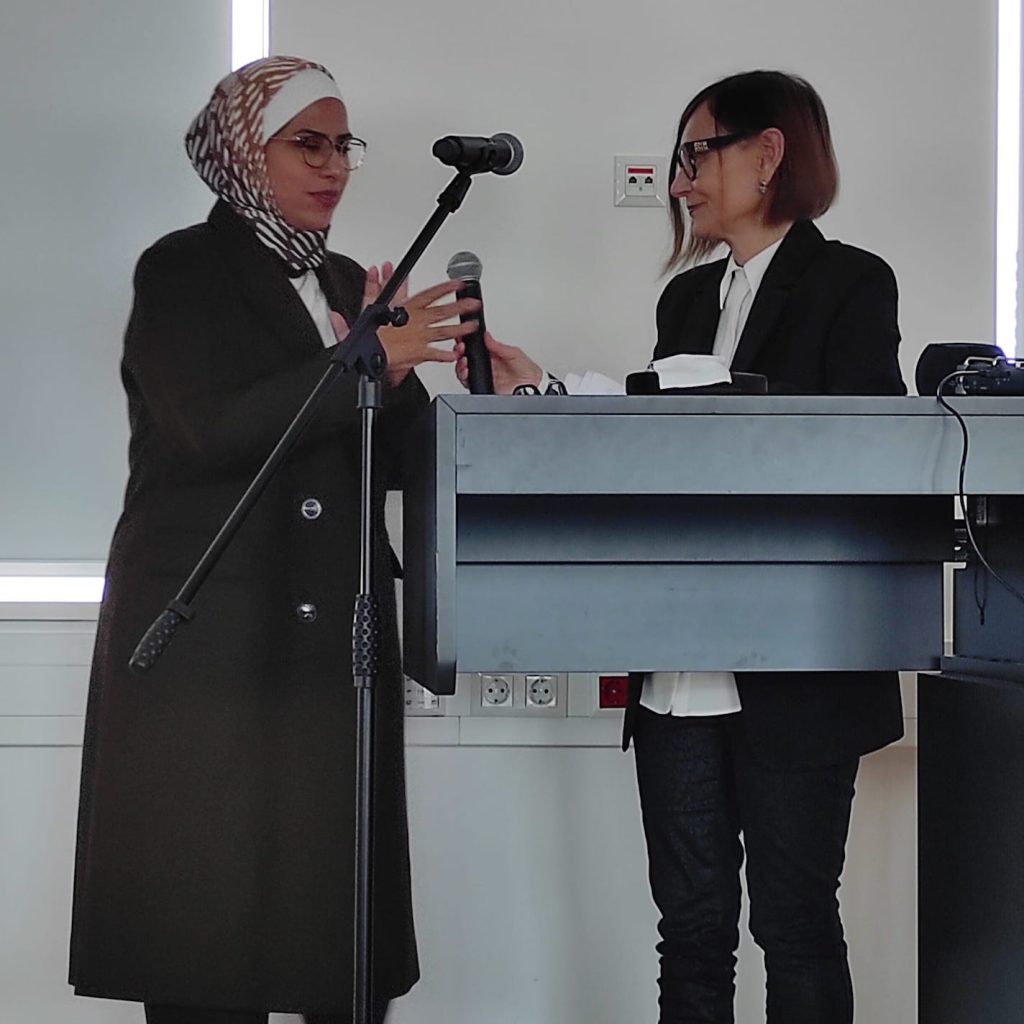
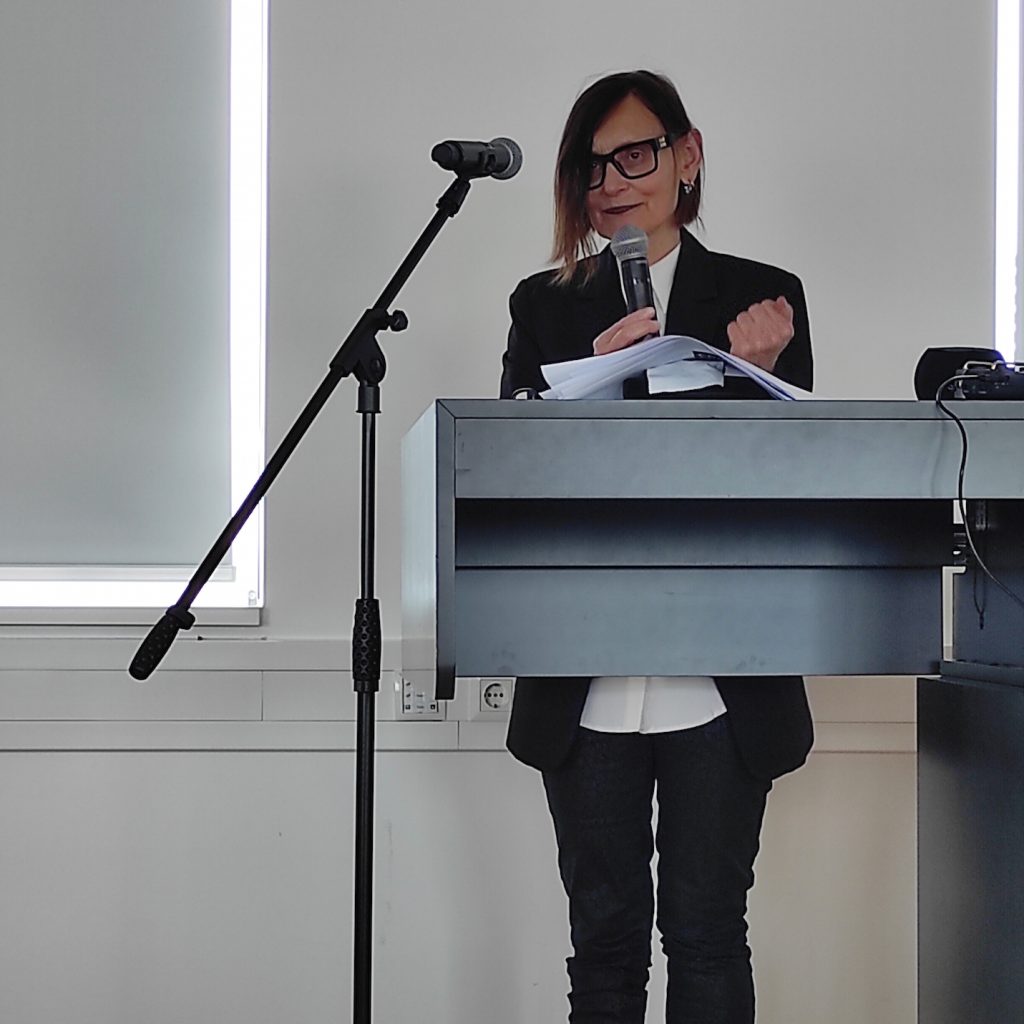
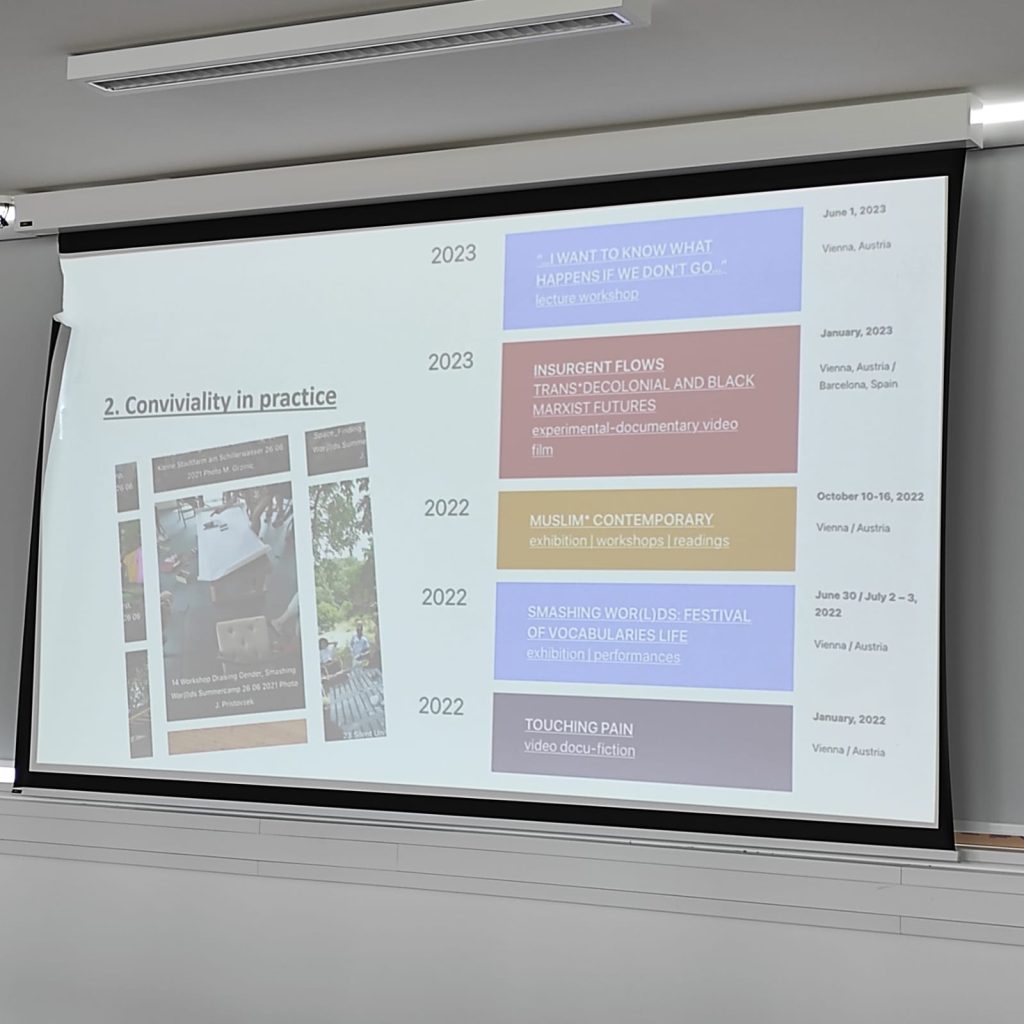
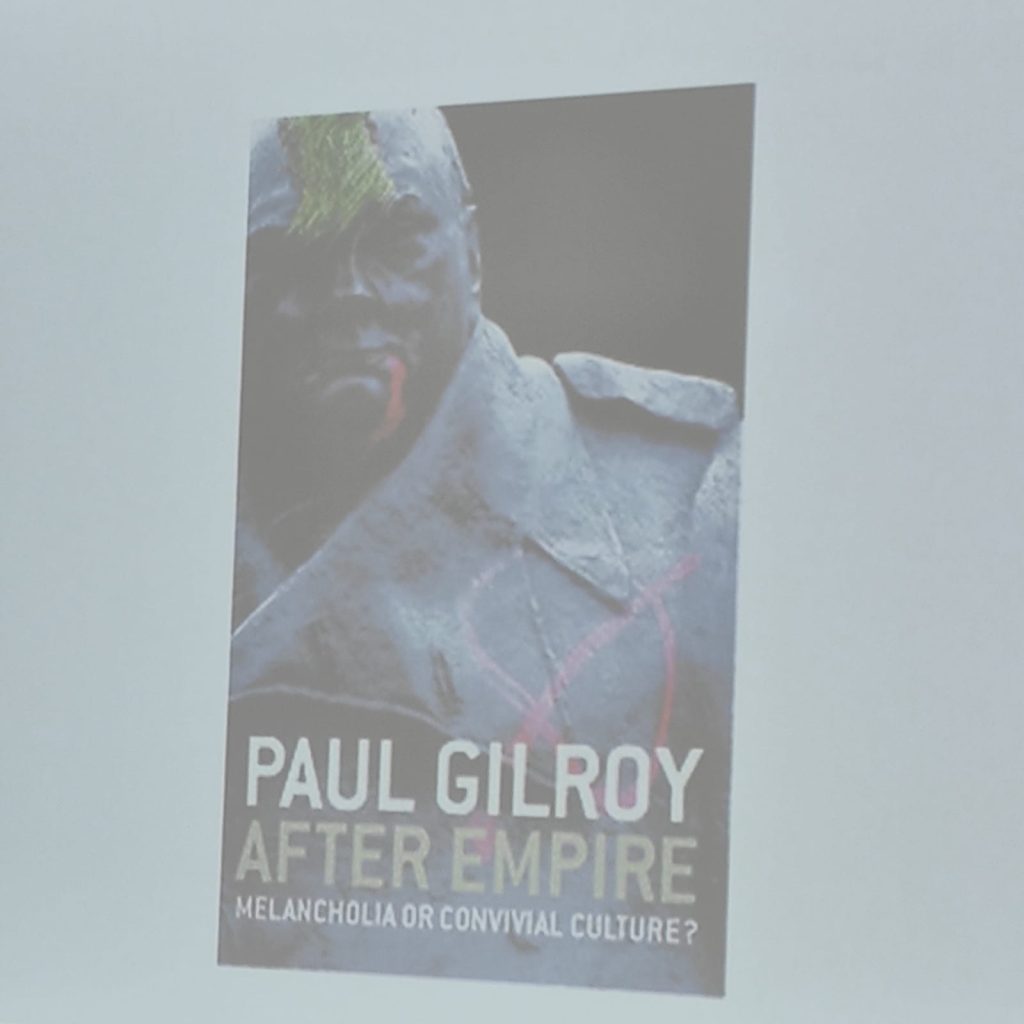
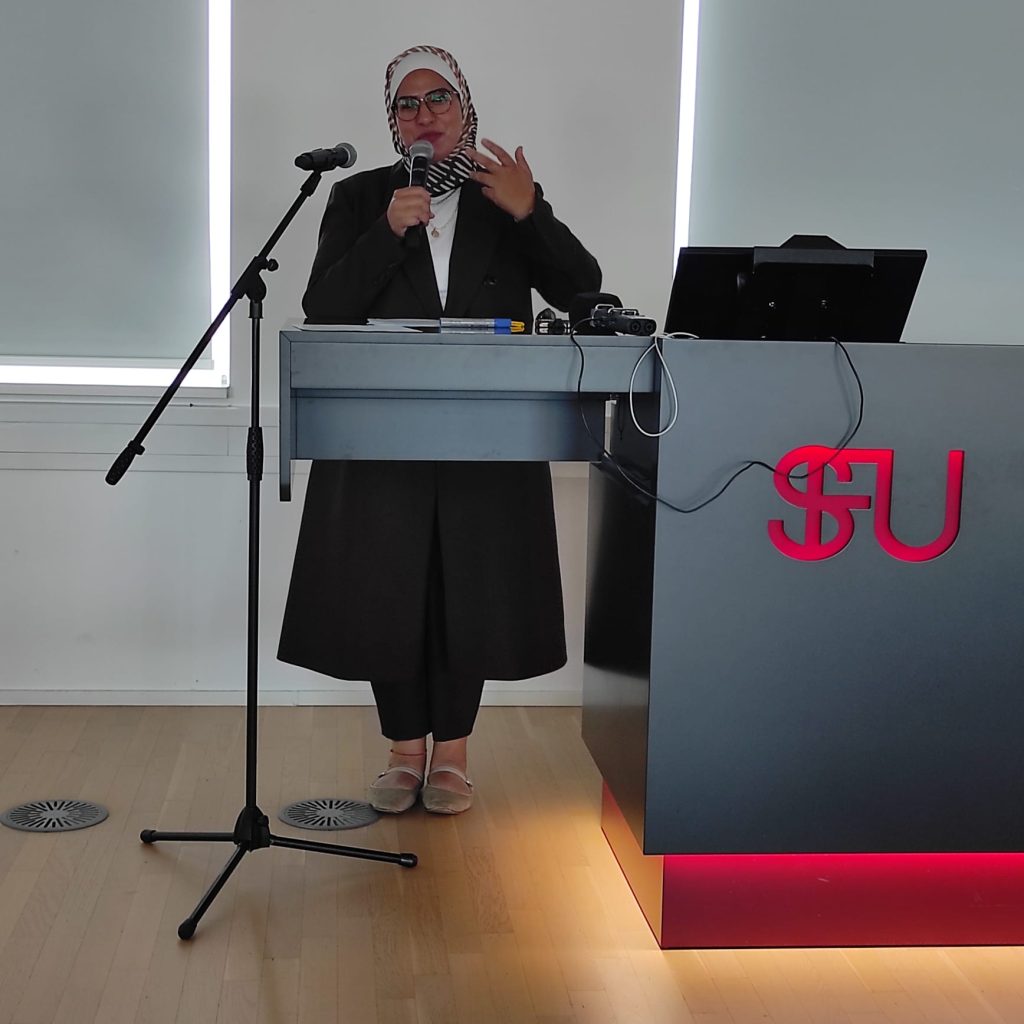
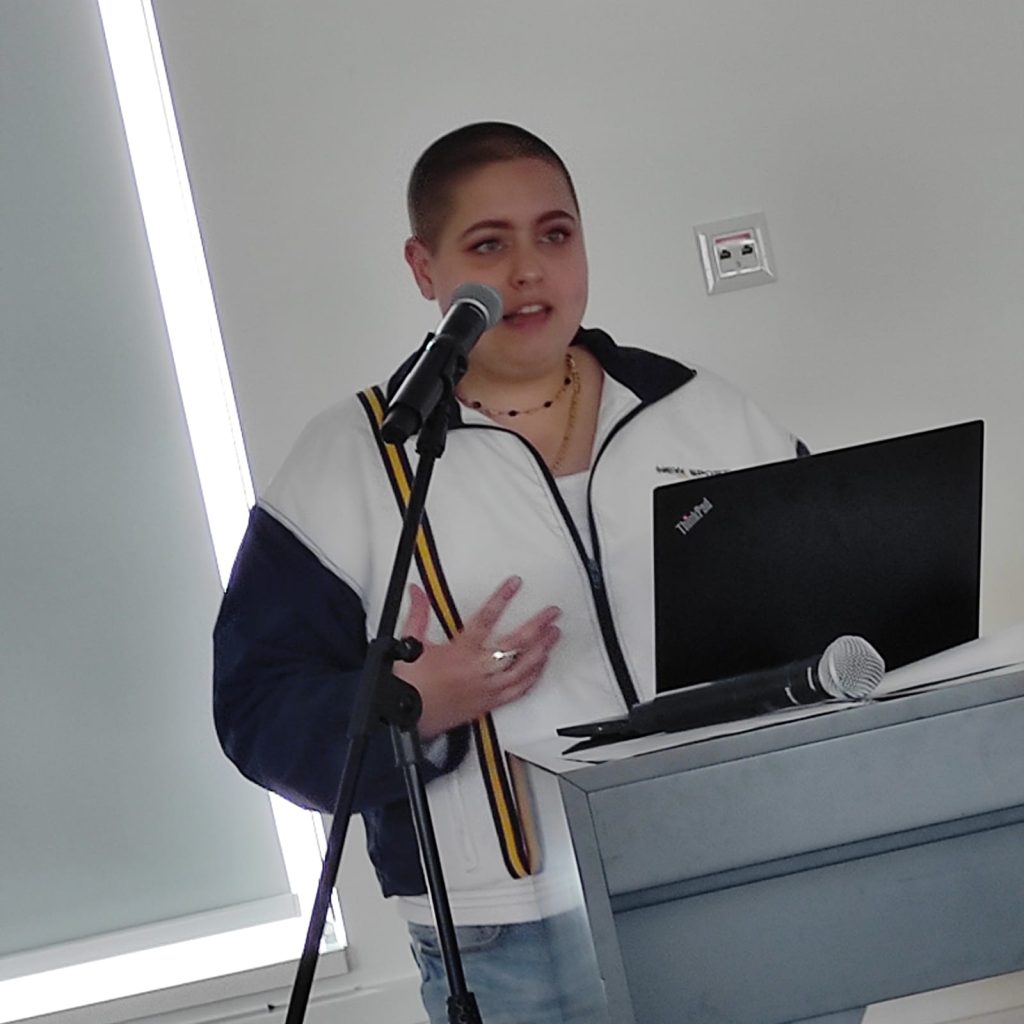
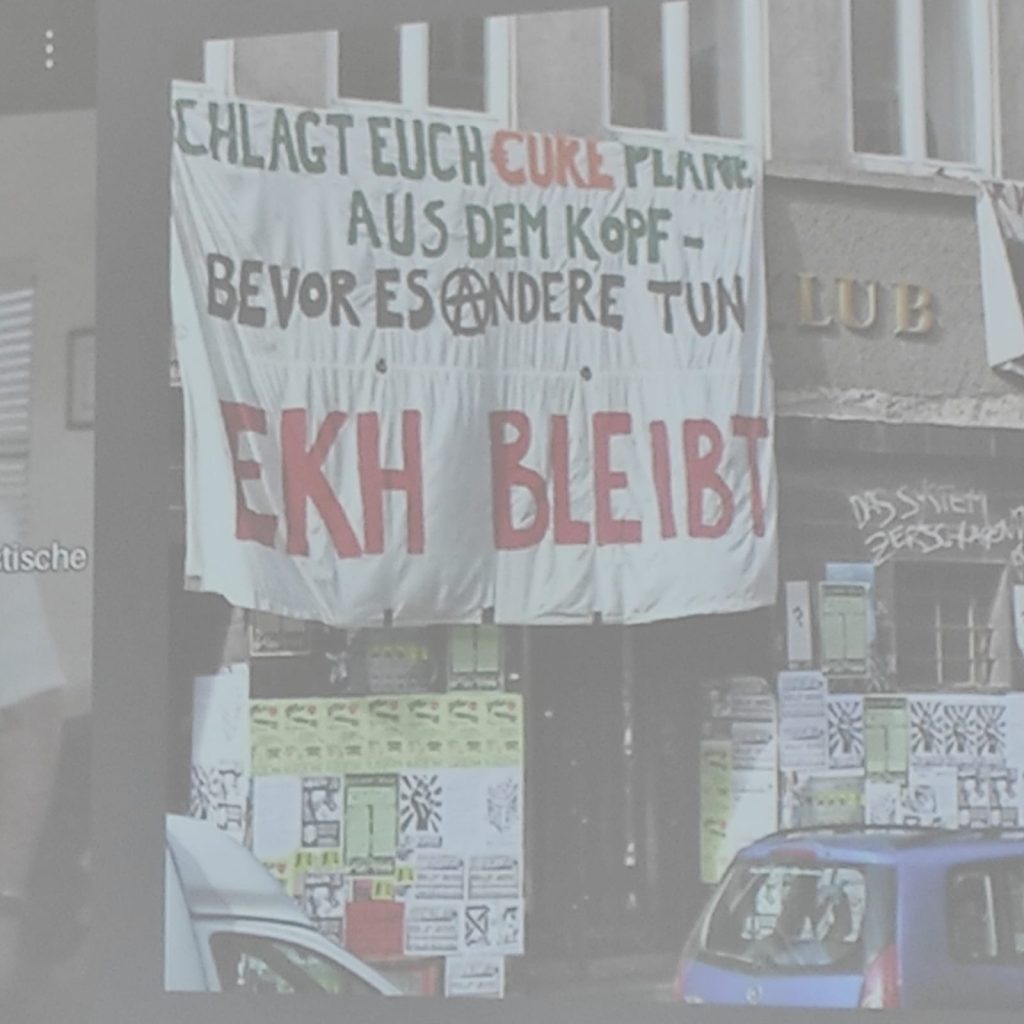
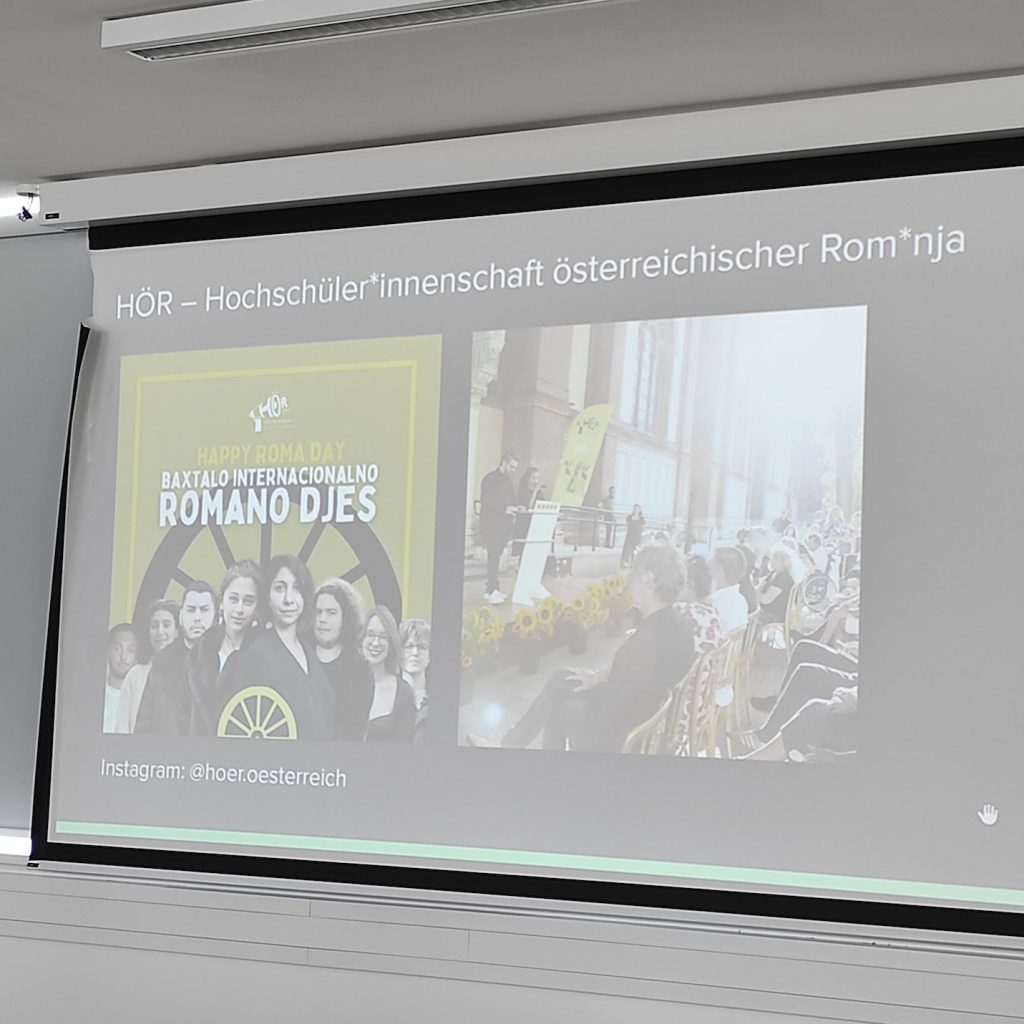
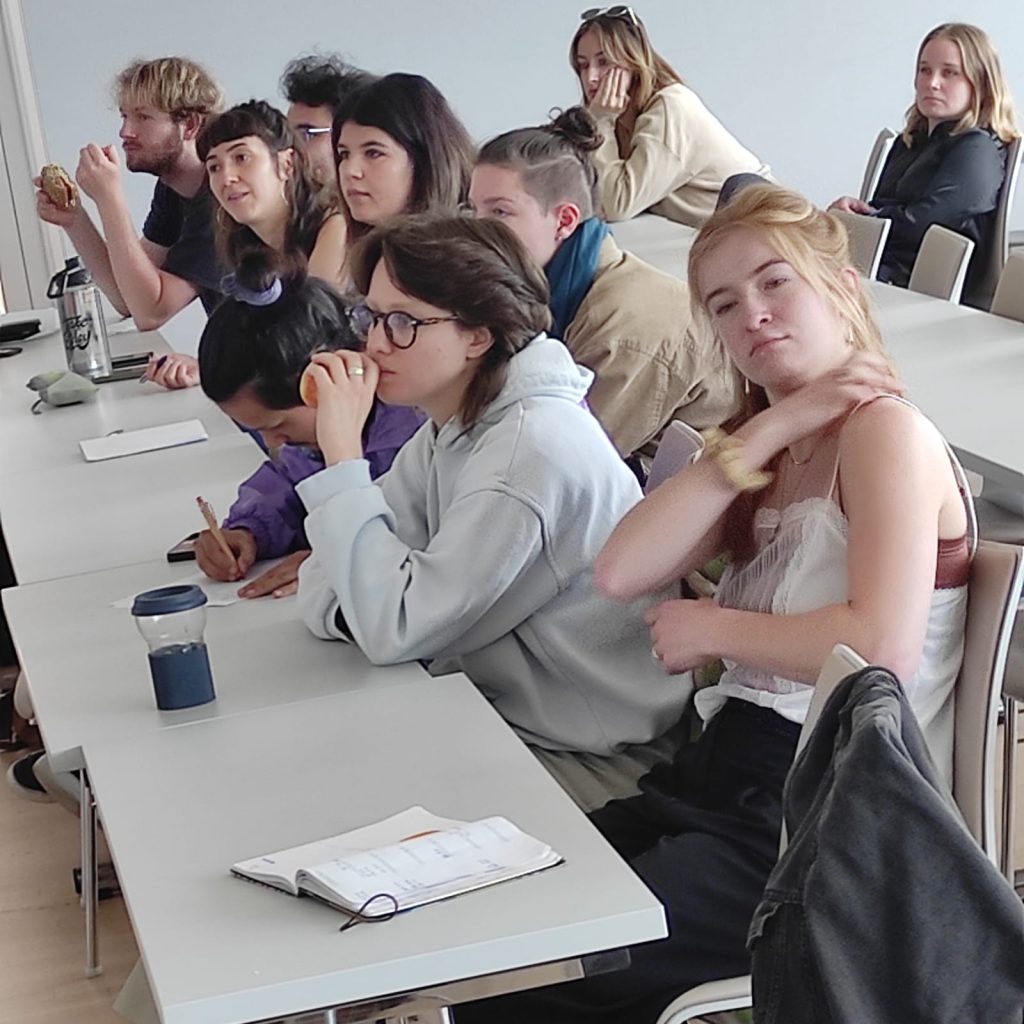
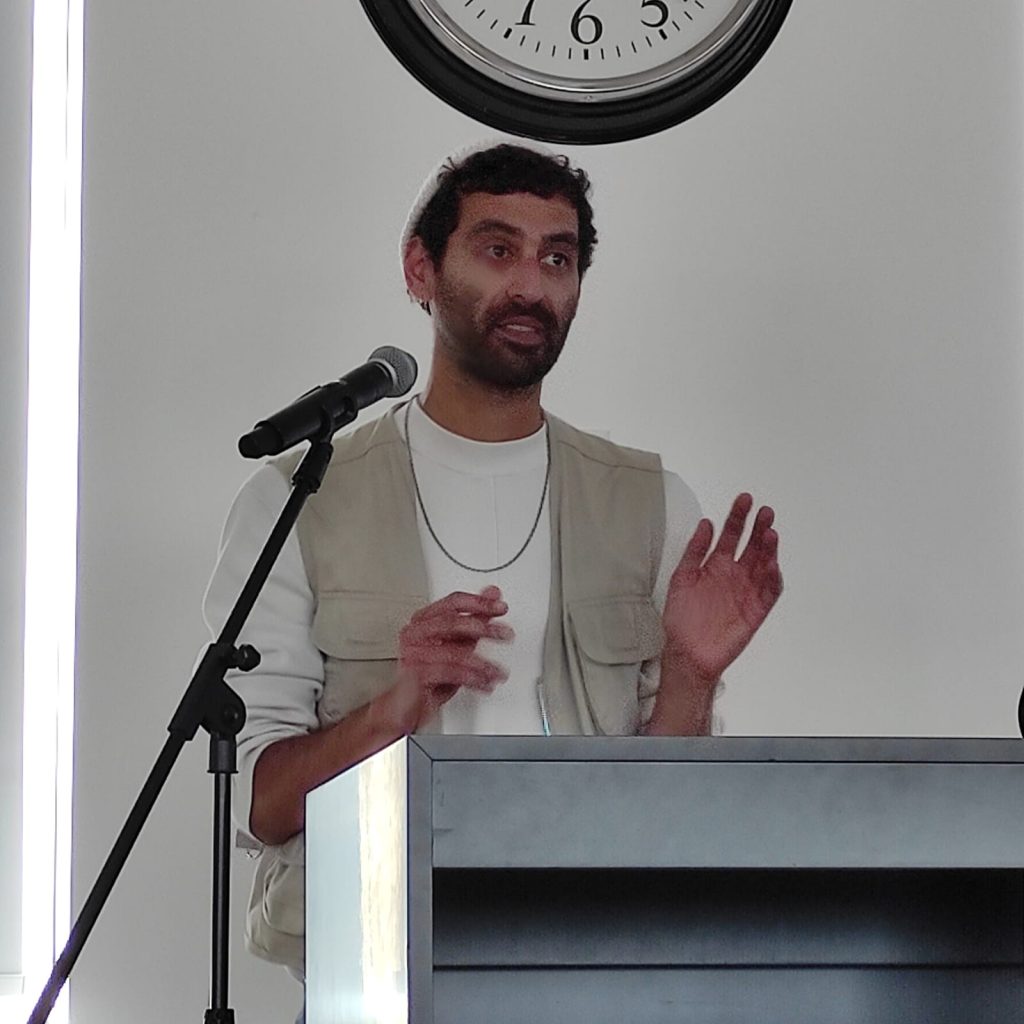
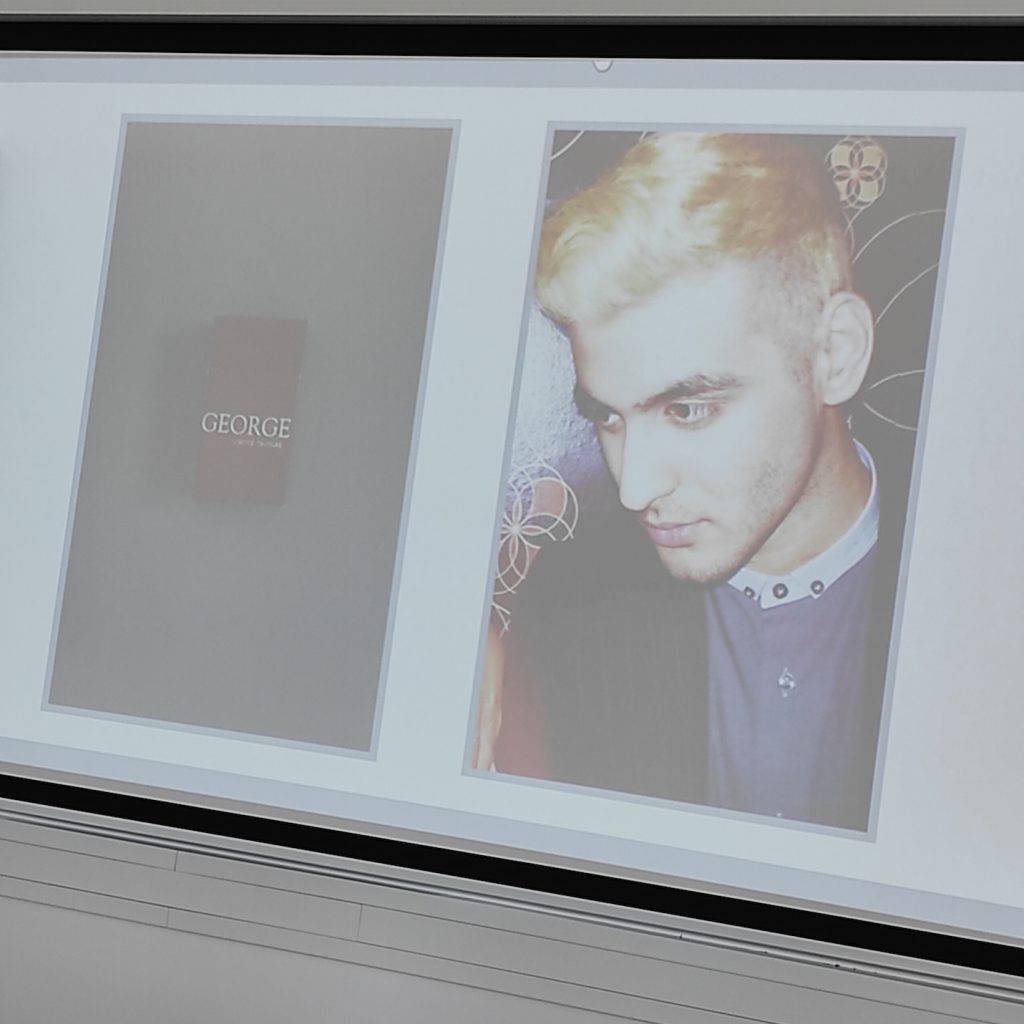
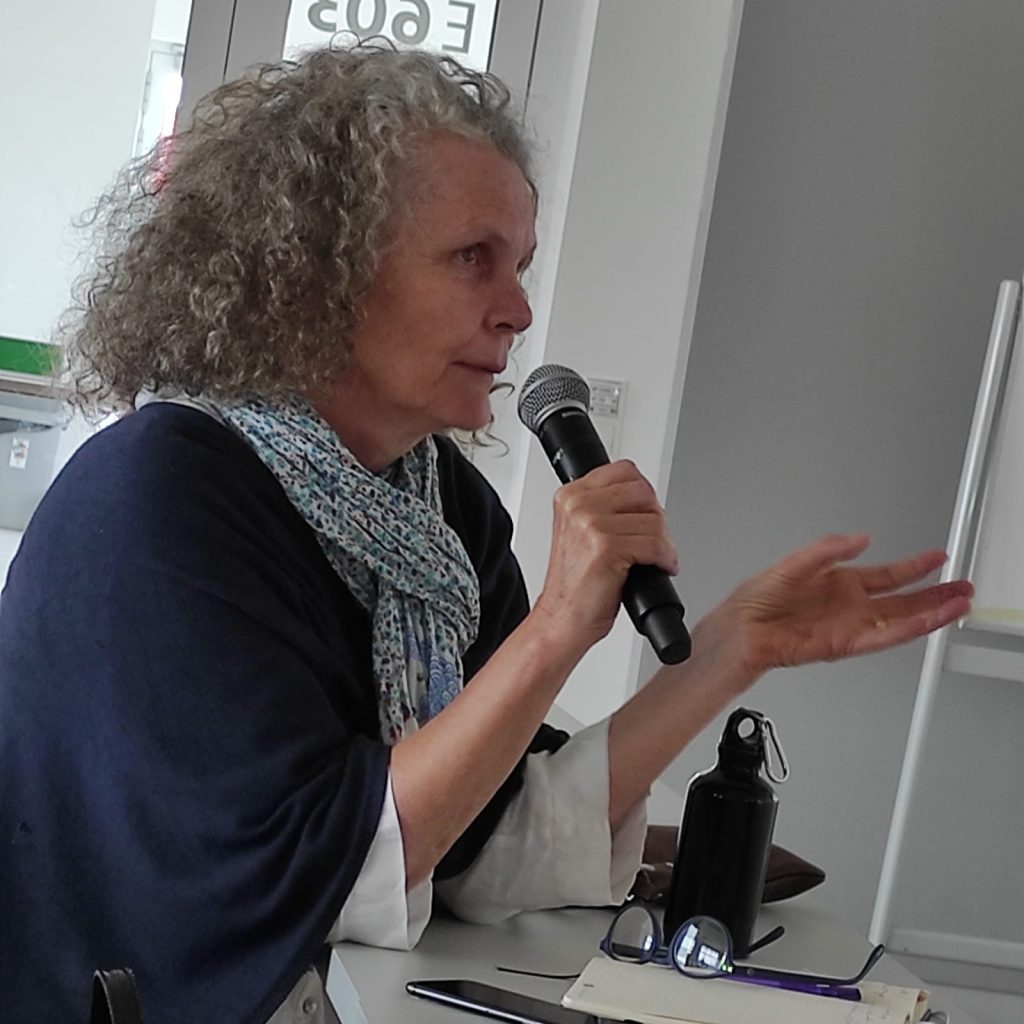
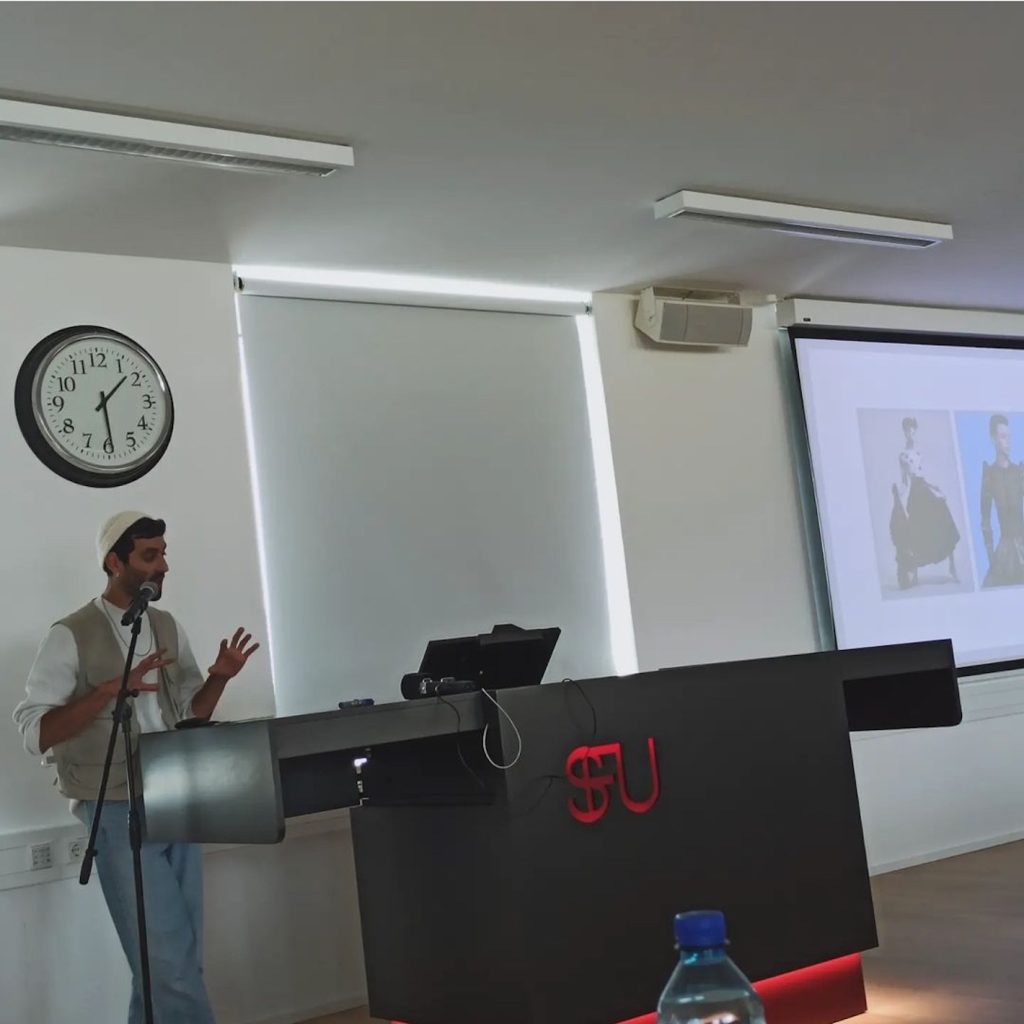
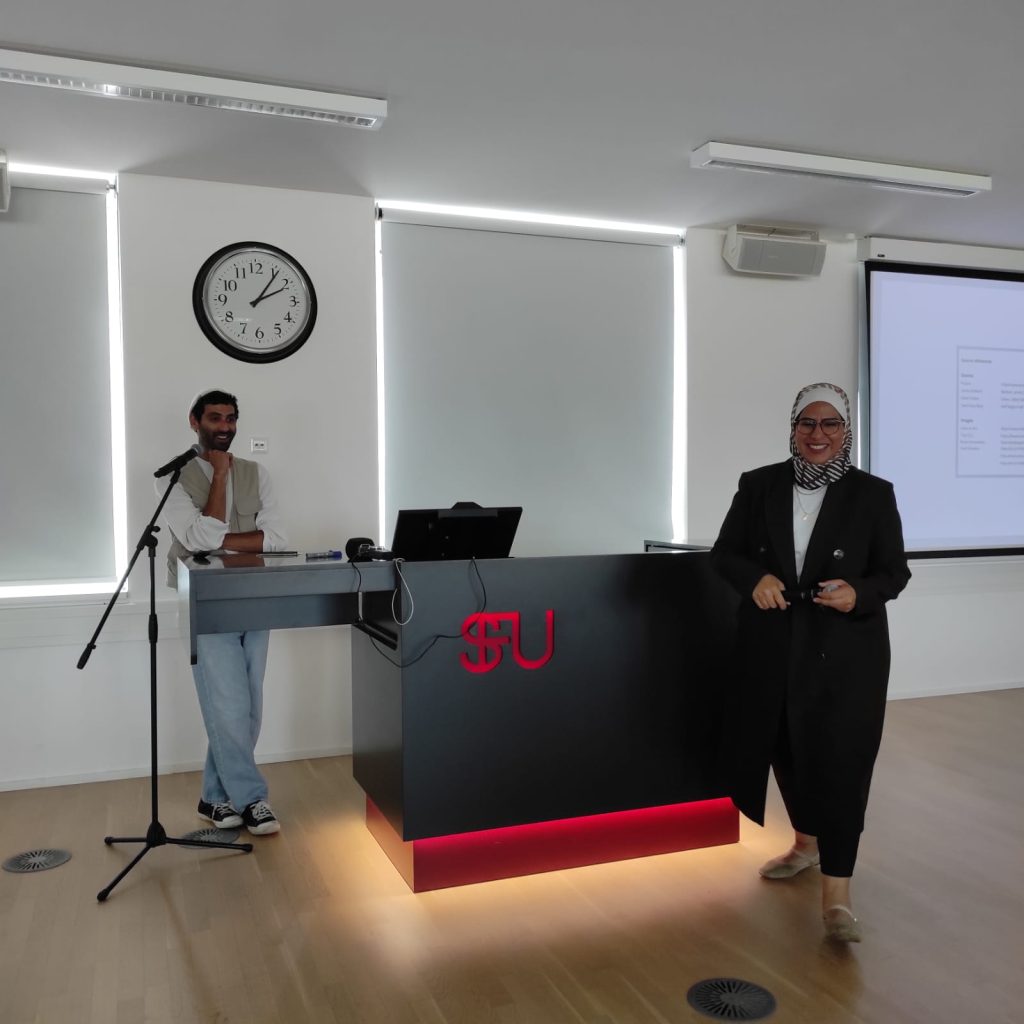
8/06/2024
VIENNA DIARY
Sigmund Freud Private University Vienna
Muslim Futurism and Muslim Futures
In conceptualizing one-day conference Muslim Futures at the Sigmund Freud Private University Vienna on 8 June 2024, Dr Amani Abuzahra posed 5 questions and a statement that can serve as anchor points for this diary.
Let us start with the order of these 5 questions.
“Can Muslim Futurism be used as an approach to support the development of future strategies by and for Muslims and demonstrate the important role that art and culture can play in this?”
Muslim Futurism was brought into focus with the world’s first conference of the same name in January 2022 (organised by MIPSTERZ in collaboration with Colorado College, Duke University, the University of Miami, Columbia University and the Center for Afrofuturist Studies; hosted virtually). Drawing on the legacy of Afrofuturism, the Muslim Futurism conference placed 5 themes at the centre of the conversation: imagination, identity, community, resistance and liberation. The term itself serves as a powerful approach to developing future strategies by and for Muslims, emphasizing the crucial role that art, culture and a technologically evolving world play in imagining a utopian future free from the hegemonic powers of the present.
“a joyous Muslim future begins when we resist against anti-Black racism, Islamophobia/xenophobia, orientalism, homo-trans phobias, sexism, ableism, settler colonialism, nationalism, imperialism, militarism, supremacy-nativism, and everything in between.” (Muslim Futurism)
“At a time when racist discourses and policies are affecting the imaginations of Muslims, how does this affect visions for Muslim Futures?”
While the white power regime persists with its structural and institutional racism, ceaselessly creating an environment of discrimination, fear, marginalization and community fragmentation, Muslim futures catalyze activism, resistance and counter-narratives that empower communities by building alliances, sharing strategies, and mutual support with other marginalized groups and global networks, amplifying intersecting voices in the struggle against the racial/colonial matrix of power. Visions are there. They are many. And they are being materialized.
“How do Muslims shape their identities and their presence in a world that – among many other challenges – is increasingly characterized by anti-Muslim racism?”
The approaches are multifaceted: political and social activism through art and culture, empowerment of youth through education, intercultural dialogue, adaptation and affirmation of cultural and personal identity, community-based learning, creation of safe spaces for social contact, community bonding and mutual aid.
“What circumstances need to be created to think about Muslim Futures?”
To think about Muslim futures, the white power regime must first address its own forms of historical and contemporary Islamophobia and discrimination, abolish them, build bridges between Muslim and non-Muslim communities, foster mutual understanding and respect, and promote equal opportunities in all spheres of life.
Secondly, Muslim futures are plural and already here and now: they develop curricula, educational opportunities and resources that incorporate communities’ histories, contributions and perspectives; they advocate for communities’ rights and interests, amplify their voices and perspectives, and contribute to a more nuanced understanding of Muslim identities and experiences; they engage in their empowerment, self-representation, building a sense of agency and self-determination; they work on community development initiatives that address the specific needs of Muslim communities; and last but not least, they provide safe platforms and spaces for community engagement.
“Who has the privilege to dream – and who does not?”
The racial/colonial matrix persists in today’s power structures, which are permeated by deep-rooted socio-economic inequalities that continue to limit the opportunities of marginalised communities who face systemic barriers that prevent them from imagining a ‘different’ future. However, while the dominance of the white power regime with its cultural norms, values and power structures in today’s global world reinforces these racial inequalities, the community is not dreaming at all (as dreams are colonised), but seriously challenging intersecting identities such as gender, class and migration status and resisting oppressive structures to imagine alternative futures based on justice, equality and self-determination. Creating safe spaces where racialised and “silenced” voices can articulate their dreams and work towards their realisation is work to dismantle the system of racial capitalism and to challenge the white power regime.
Are collective imaginative processes to be understood in this context as a project of decolonization?
Collective imaginative processes can be understood as a vital project of decolonisation, imagining and creating a future that resists and dismantles the colonial legacy, affirms cultural identities and promotes self-determination. (J. Pristovšek)
3/06/2024
VIENNA DIARY
Akbild
“Thinking through Cacophony: An Experiment in Sounding Our Different Knowledges”
As part of the Erasmus+ project and the Academy of Fine Arts Vienna, guest lecturer Dr. Thabang Monoa from the Michaelis School of Fine Art, University of Cape Town, held a workshop titled “Thinking through Cacophony: An Experiment in Sounding Our Different Knowledges.” This event, open to all students, was held within the framework of the research project Conviviality as Potentiality (FWF AR 679, 2021–25).
The workshop explored how diverse knowledge systems and perspectives can interact through cacophony, generating new insights and alternative interpretations of how we inhabit the world. Monoa began by discussing the concept of cacophony and its relationship to Free Jazz. He drew a parallel to Ornette Coleman’s groundbreaking album Free Jazz: A Collective Improvisation, highlighting how multiperspectival knowledge can be understood through this musical form.
Monoa then introduced quotes from Black decolonial and antiracist thinkers and invited us to form small groups. Our task was to interpret these quotes musically, using methods such as percussion, body percussion, singing, and chanting. Each group performed their interpretations for the rest of the participants, which led to a reflective discussion on our decision-making processes and the ways we interpreted the quotes.
Finally, Monoa mixed and arranged our individual performances in various sequences, creating a true cacophony. This exercise illustrated how combining different voices and perspectives can lead to rich, complex understandings and highlighted the importance of embracing diverse ways of knowing. The workshop was an inspiring and thought-provoking experience, encouraging us to break down our preconceived notions and appreciate the power of collective, multiperspectival knowledge. (A. Neghabat)
3–8/06/2024 PHOTO DIARY
RESEARCH EXCHANGE SOUTH AFRICA: Coming to Vienna
Akbild, Vienna, and other venues
8/06/2024 A one-day conference Muslim Futures at the Sigmund Freud Private University Vienna, Interdisciplinary Research Center Islam and Muslims in Europe (IFIME); with plenary lecture by Thabang Monoa and response by Marina Gržinić, workshops in the afternoon

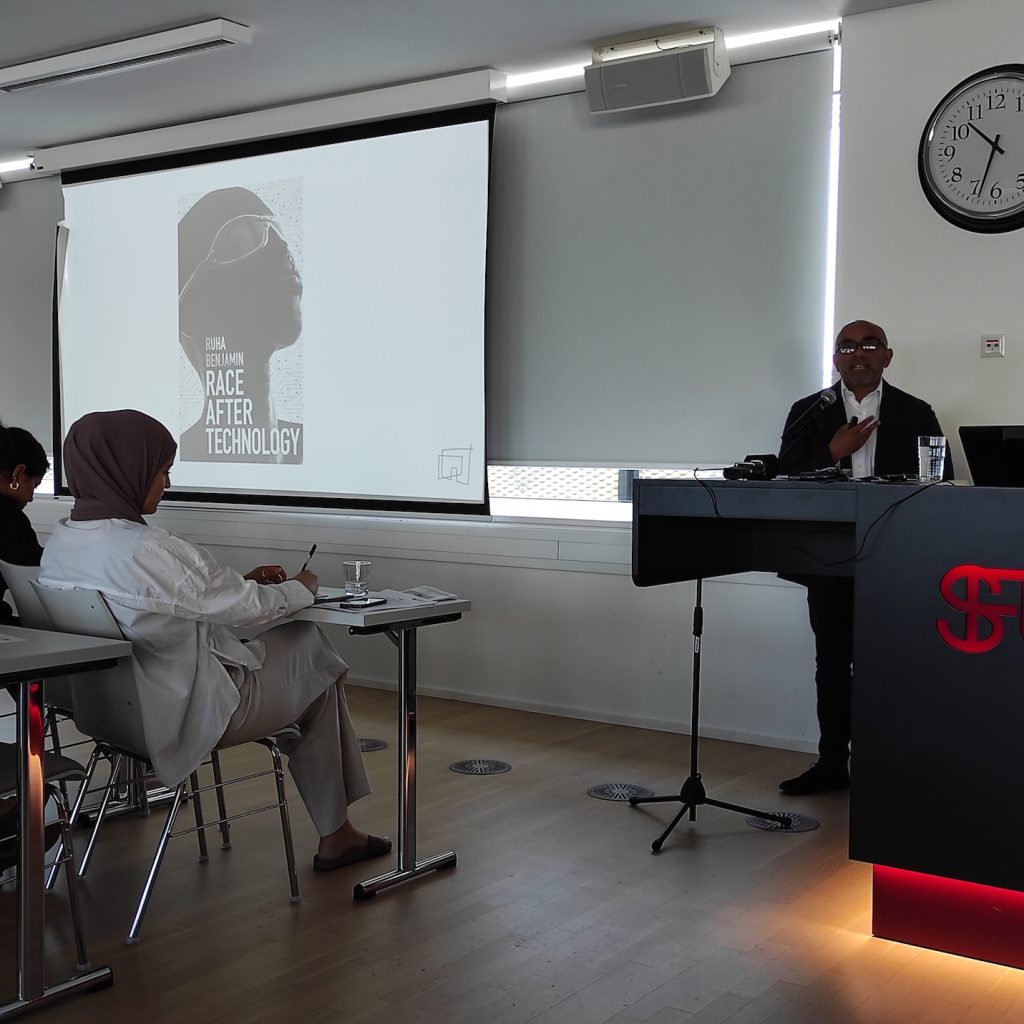
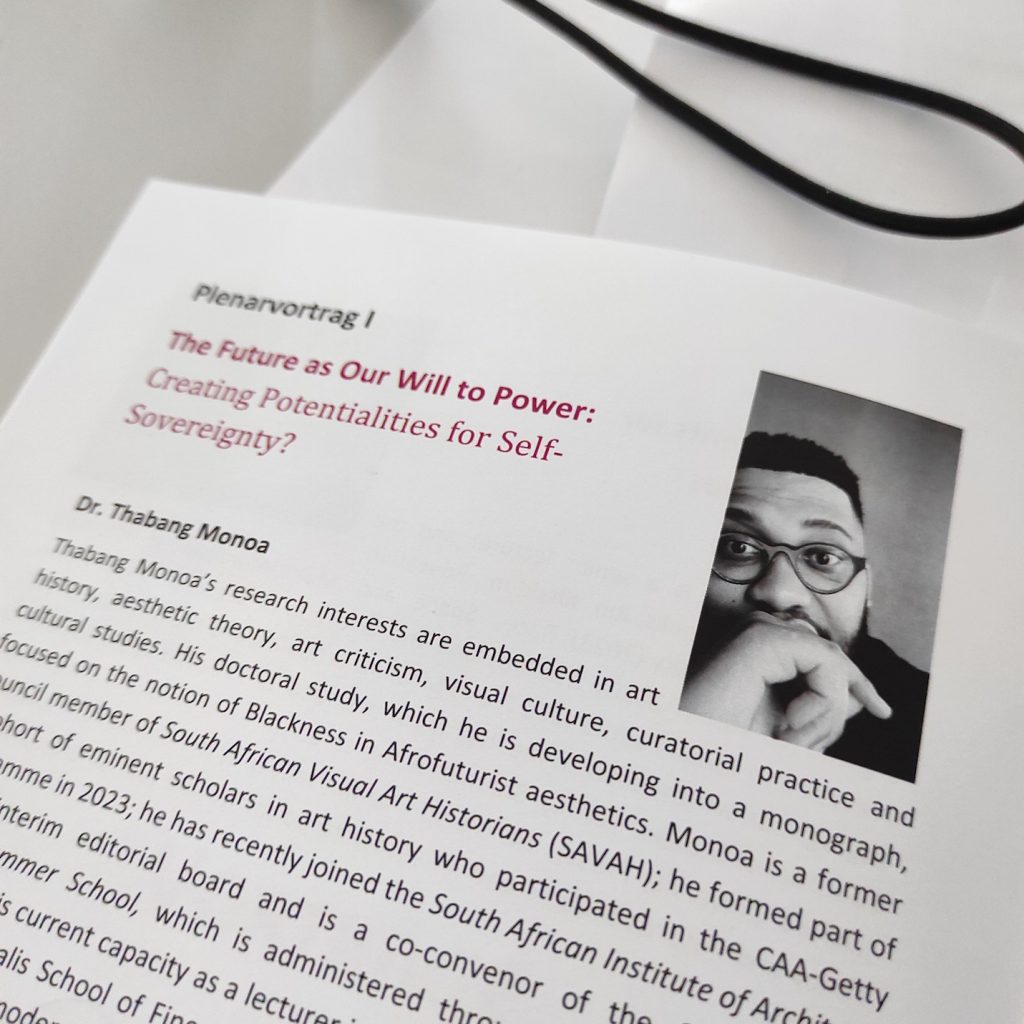
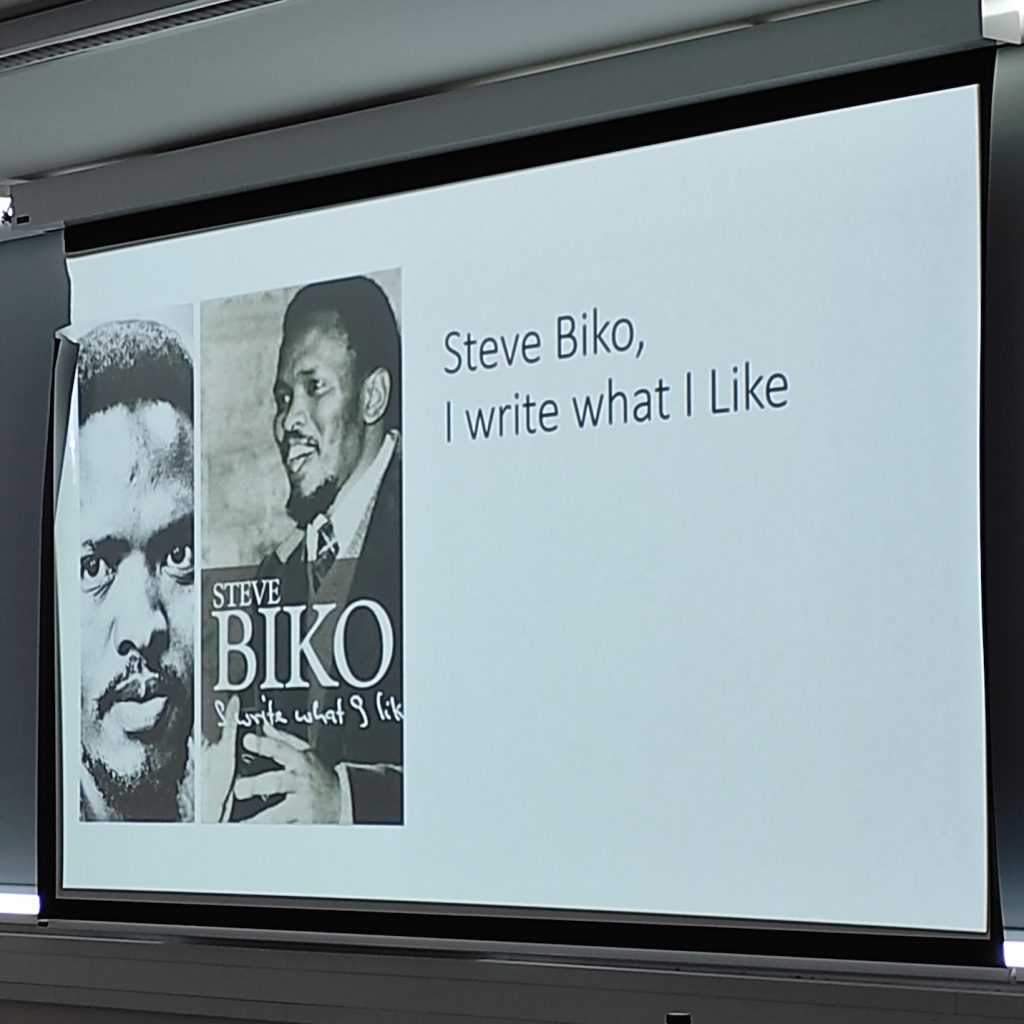
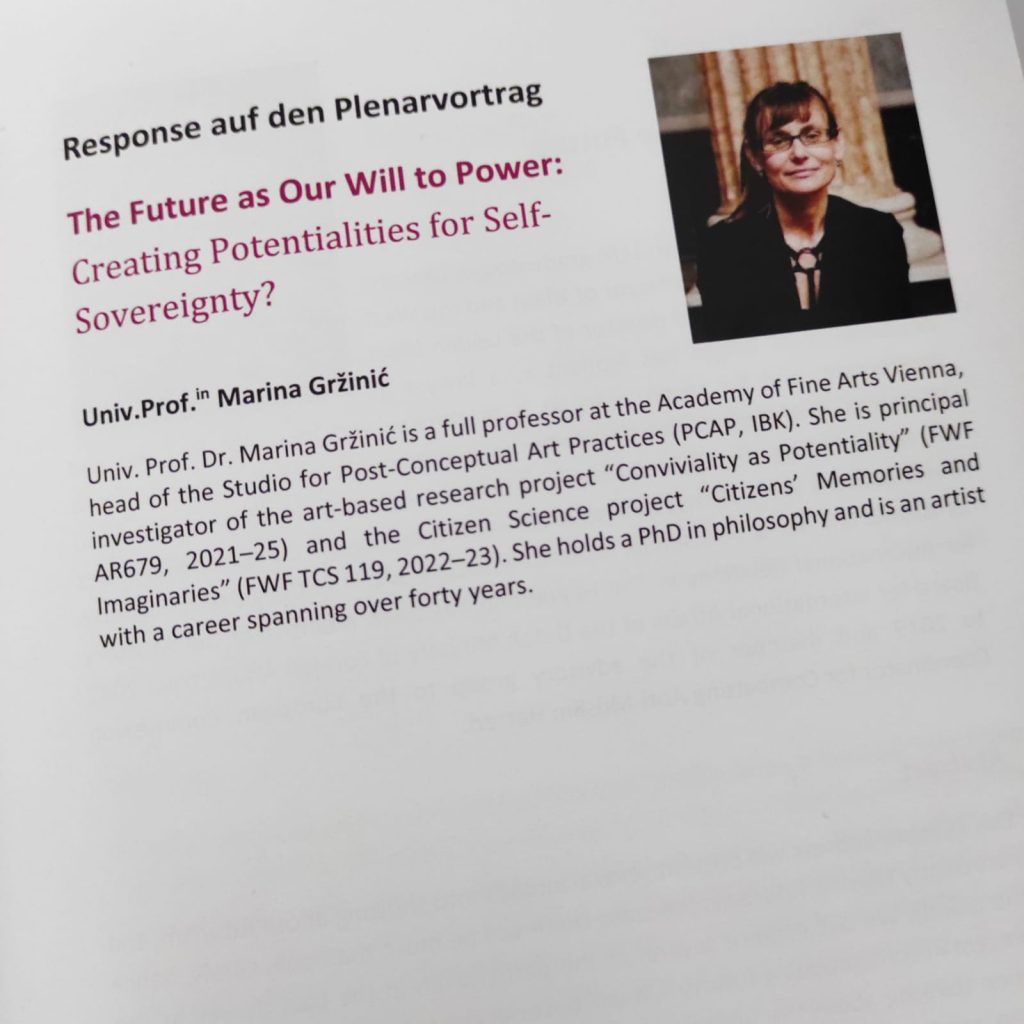
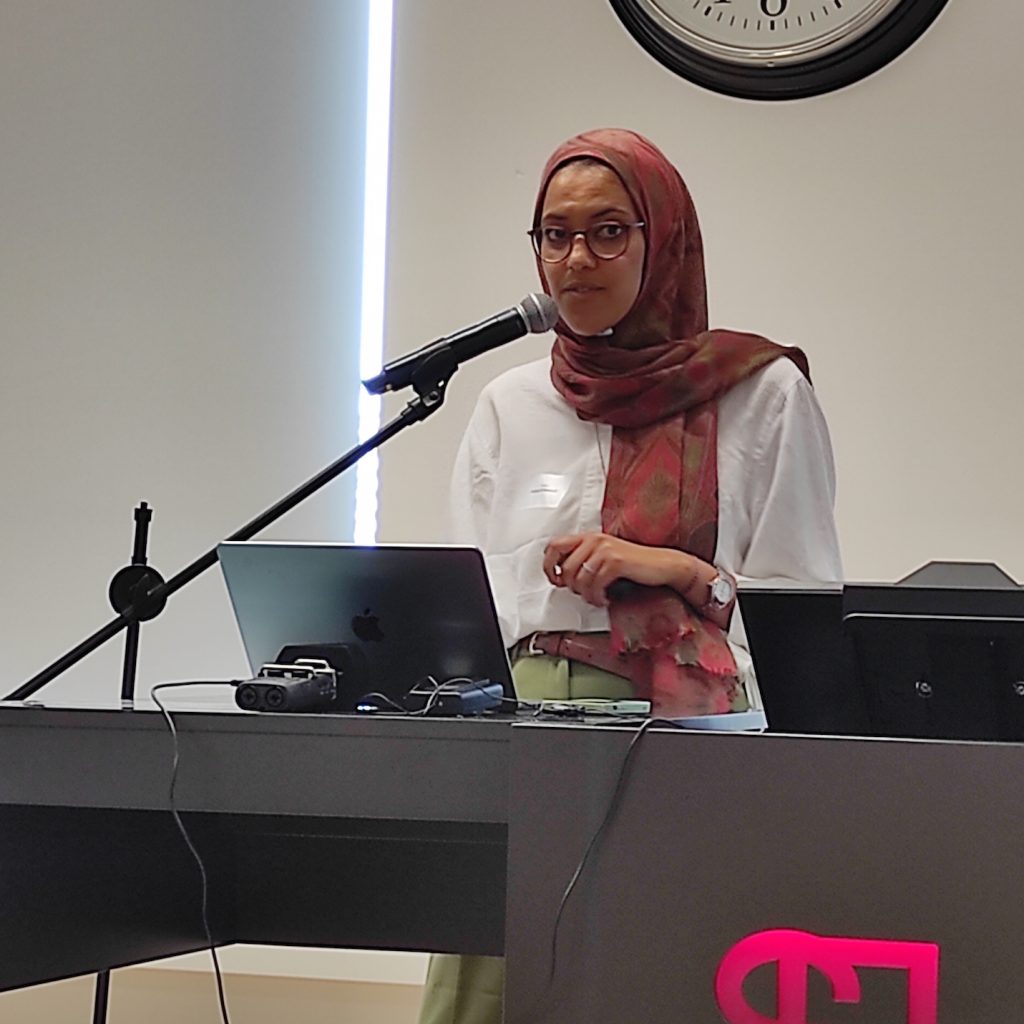
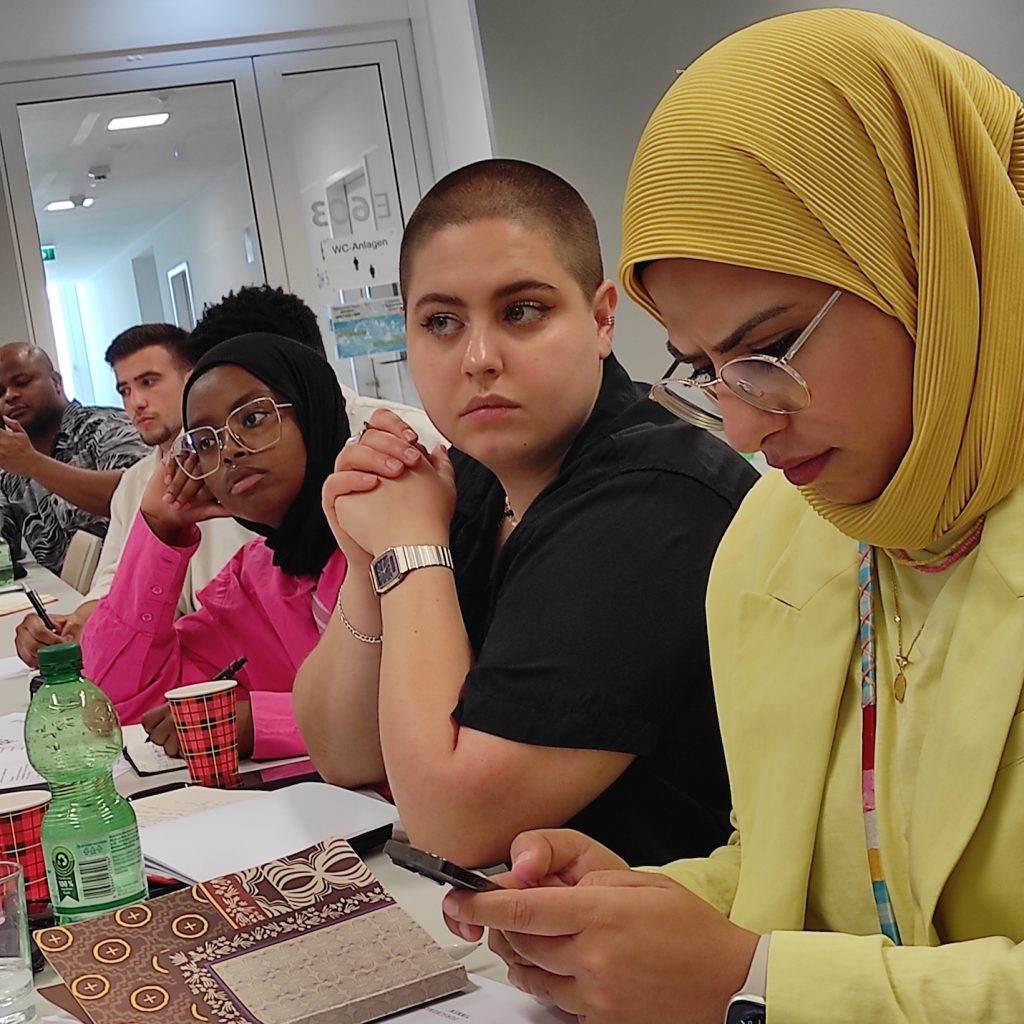
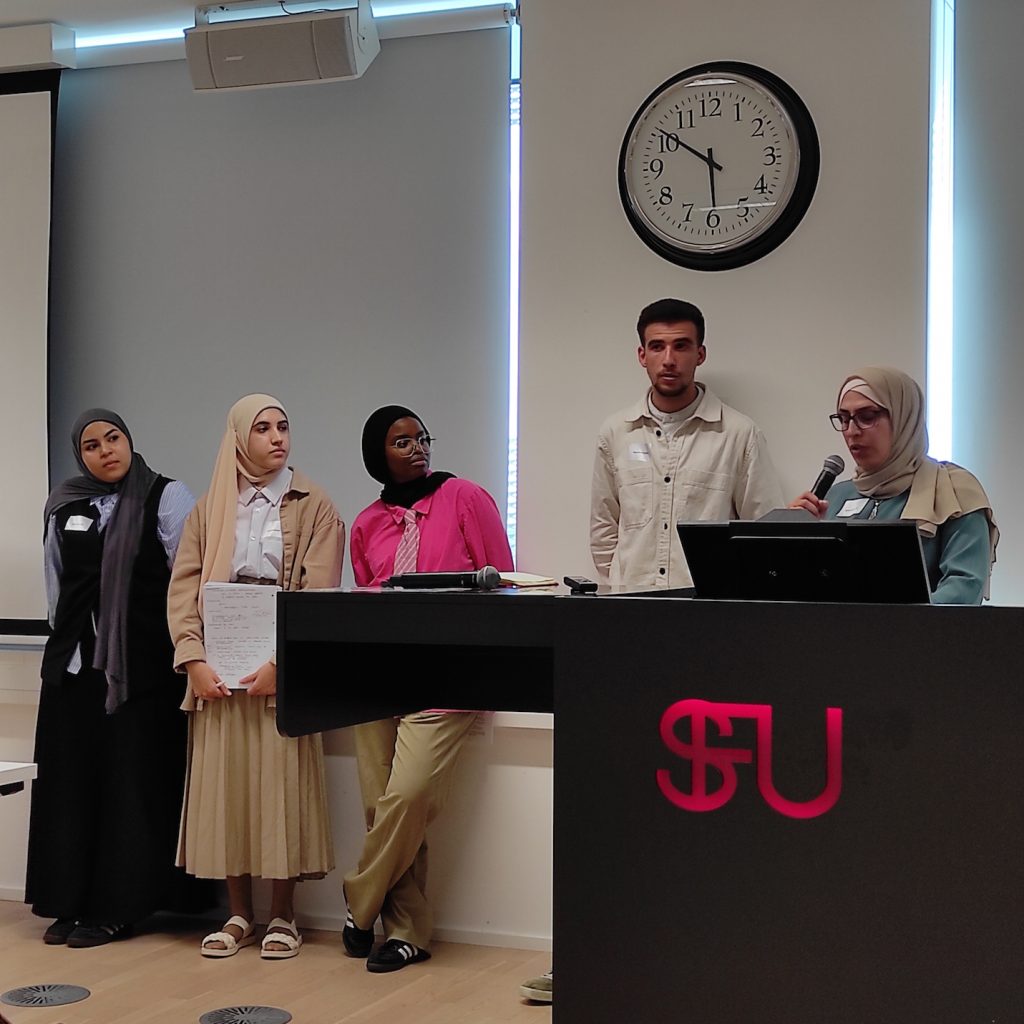
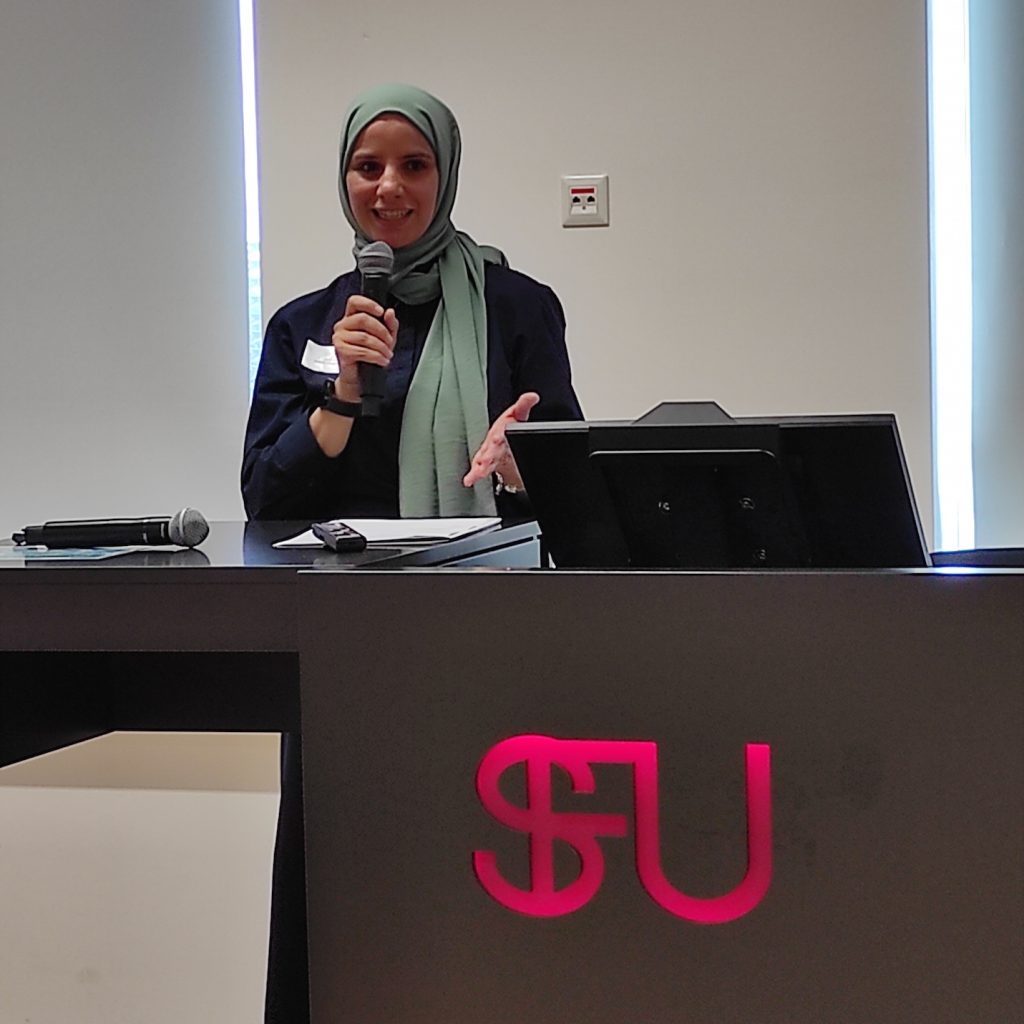
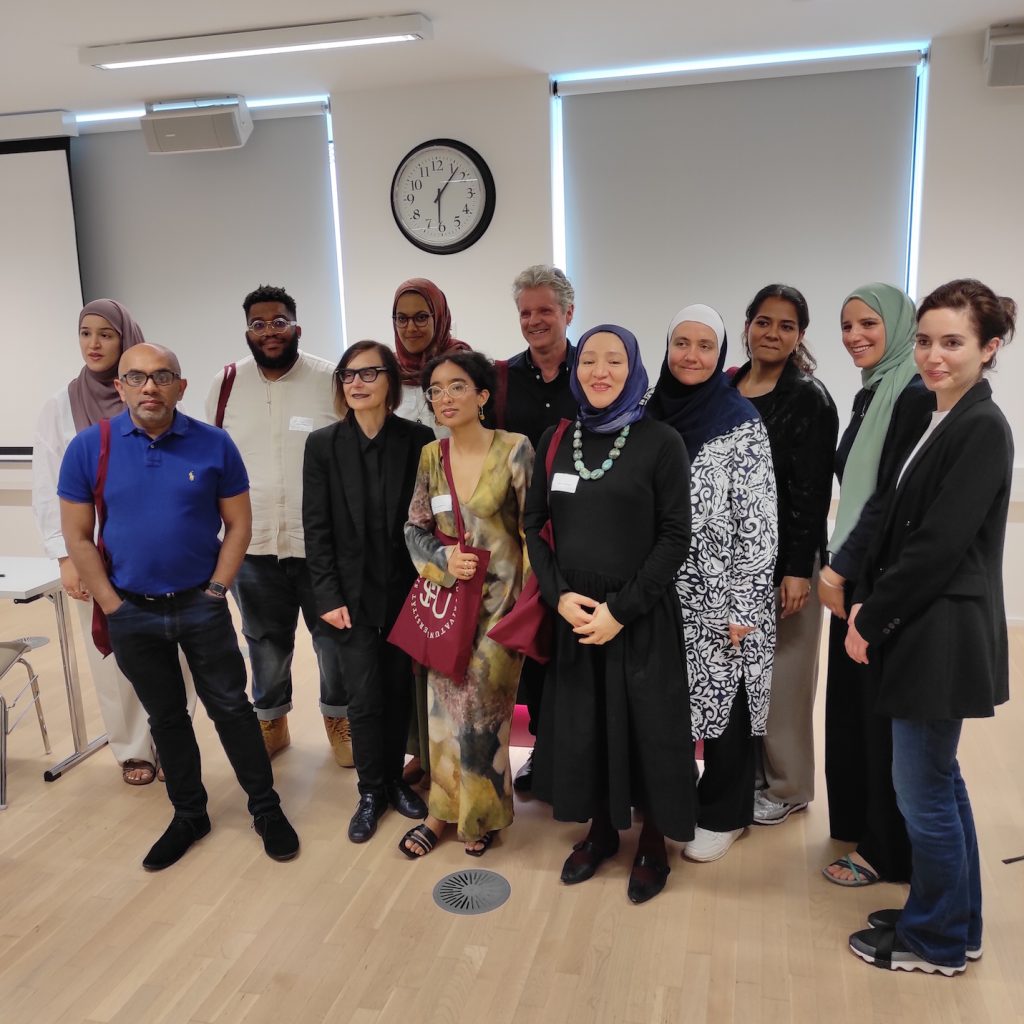
7/06/2024 “Art, Performativity, Blackness, Futurity: Cape Town. Vienna.” Talk with Elisabeth Tambwe & Thabang Monoa, moderated by Marina Gržinić, Depot, Vienna
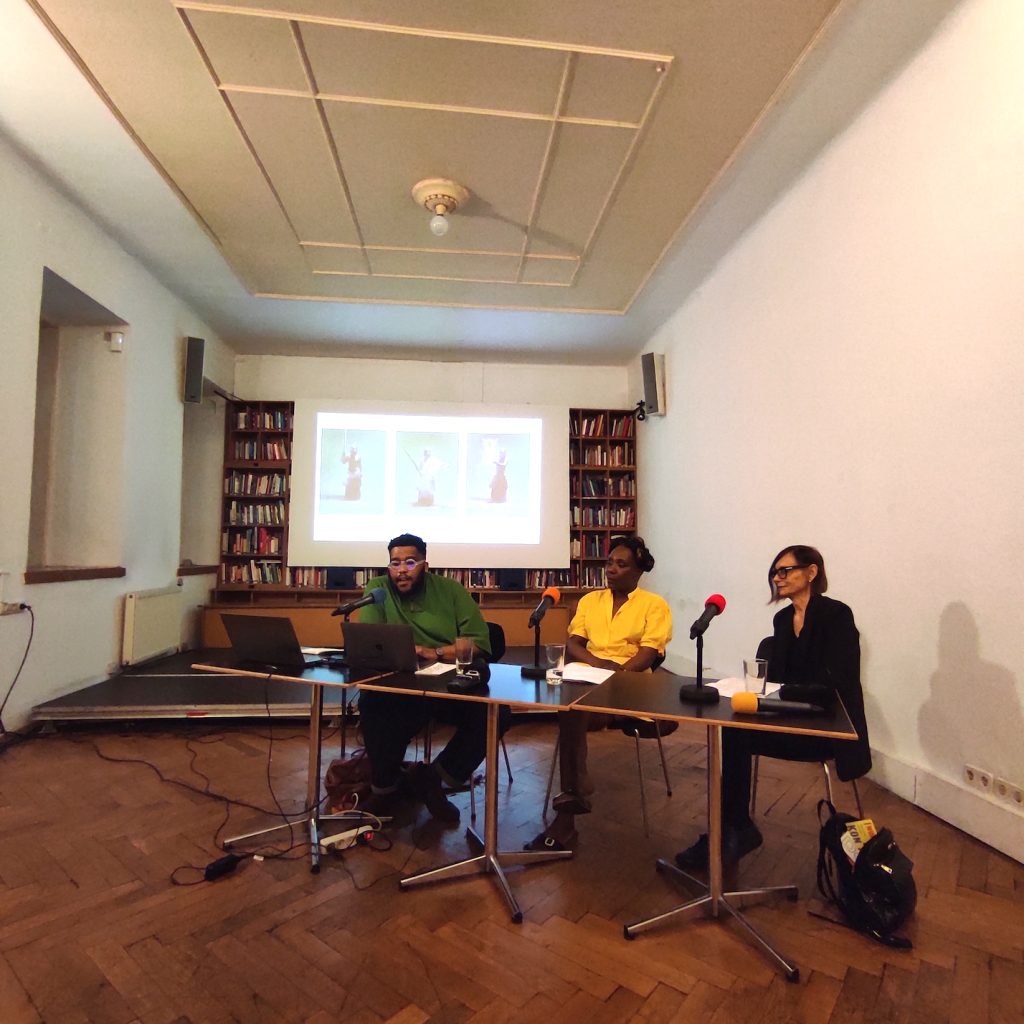
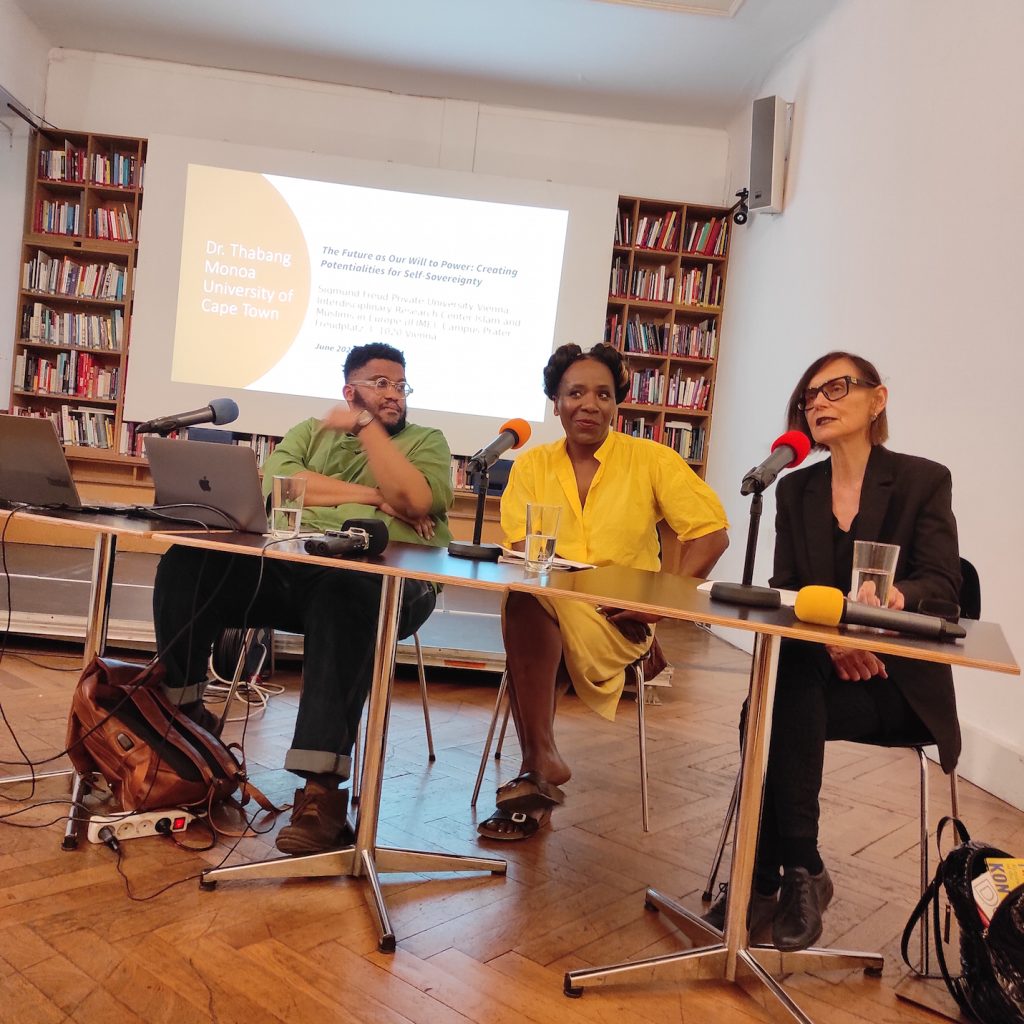
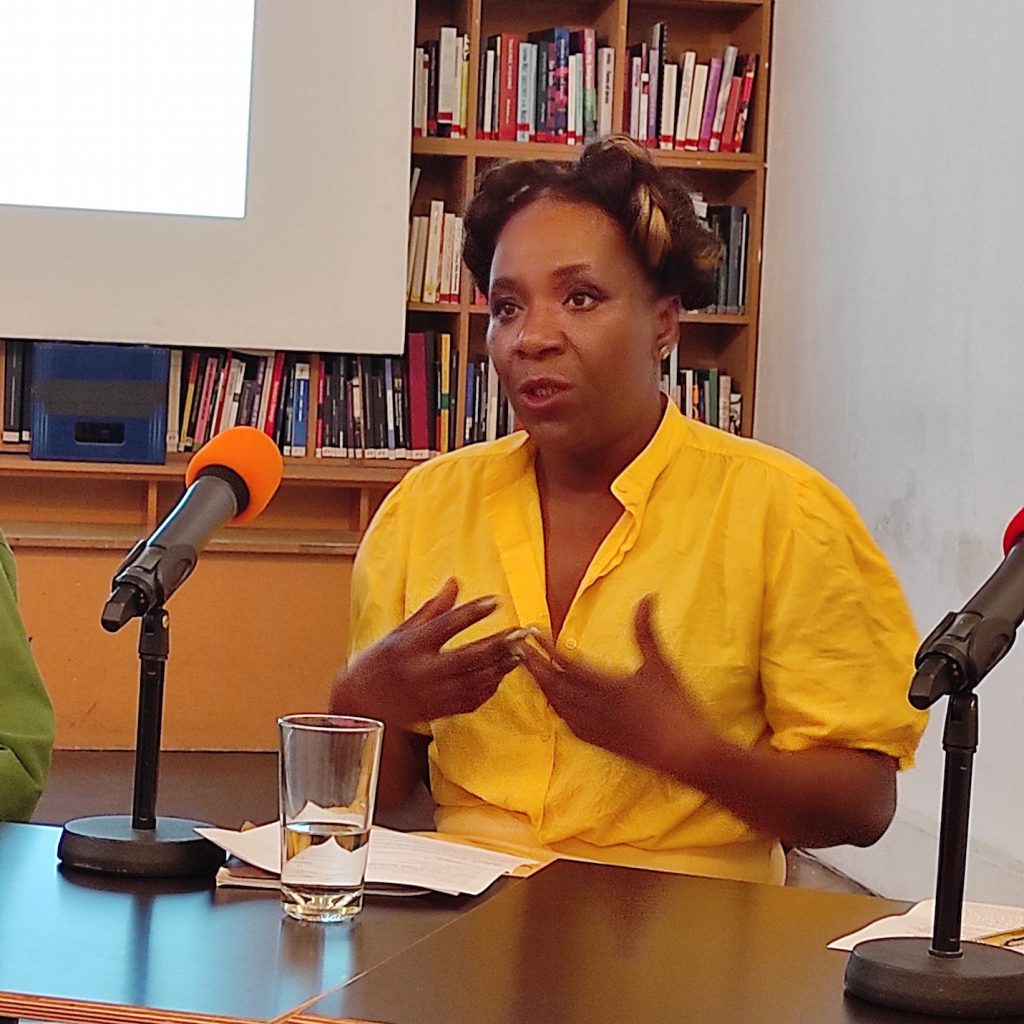
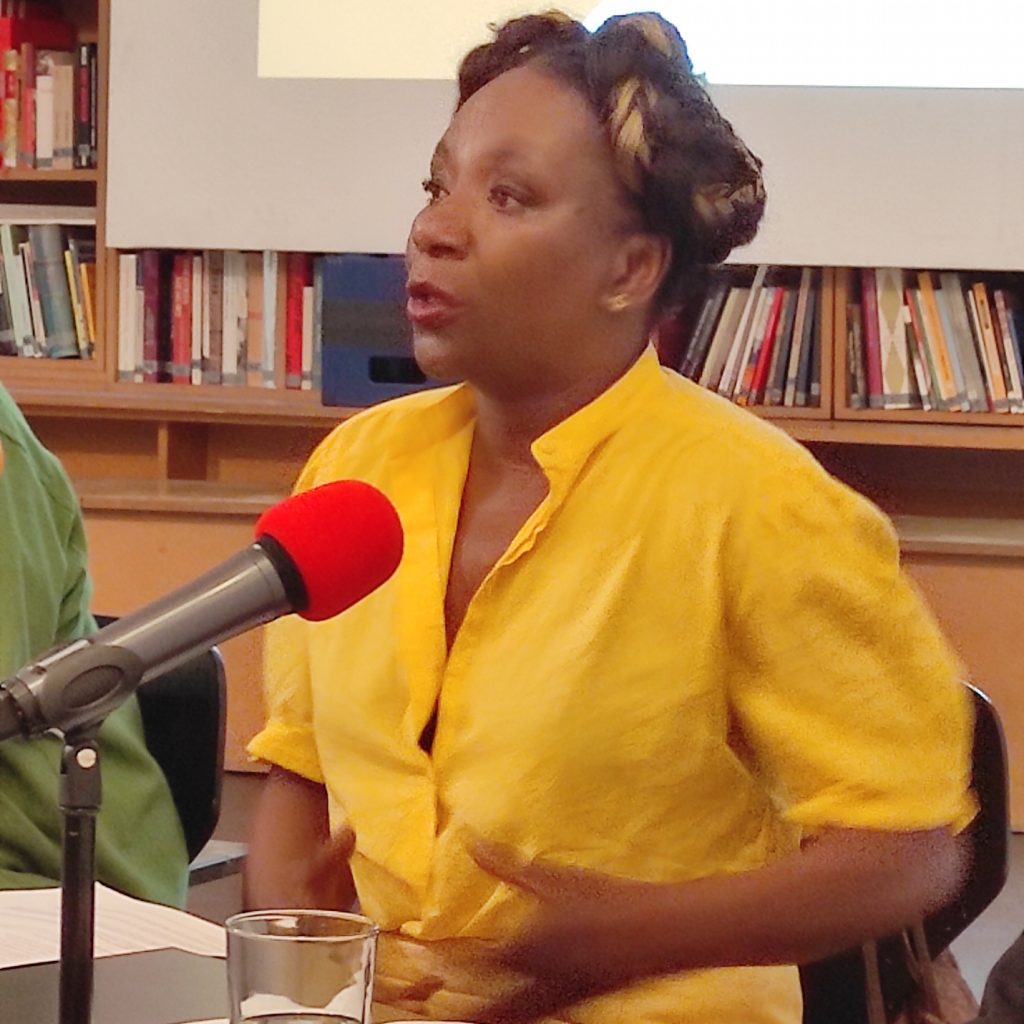
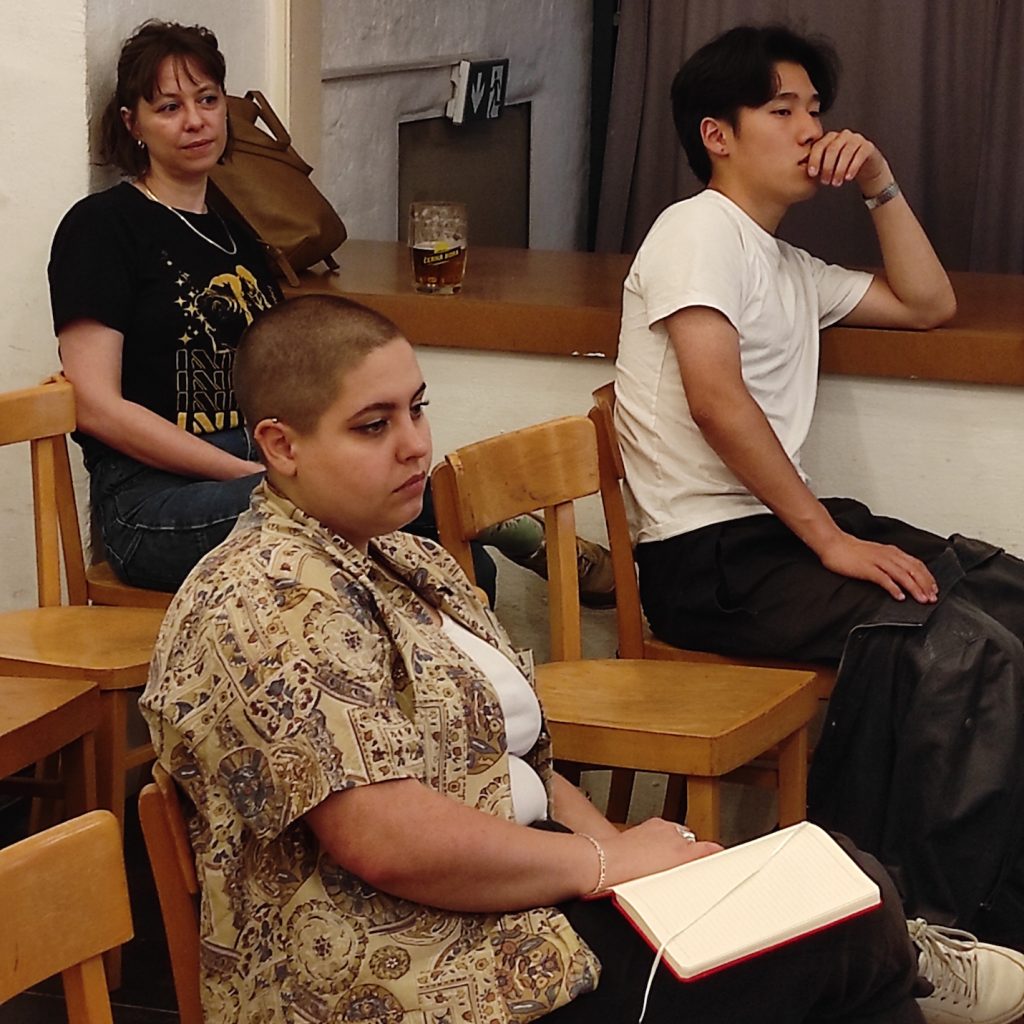
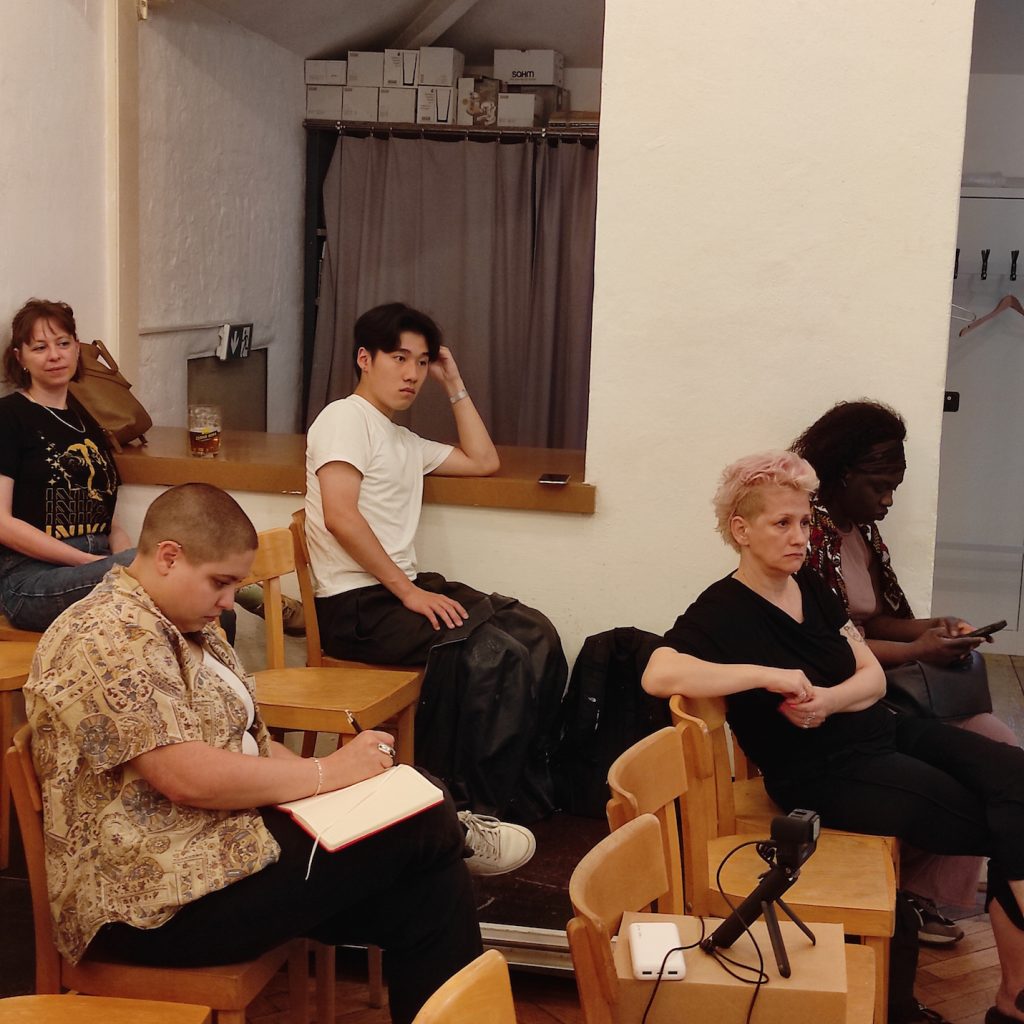
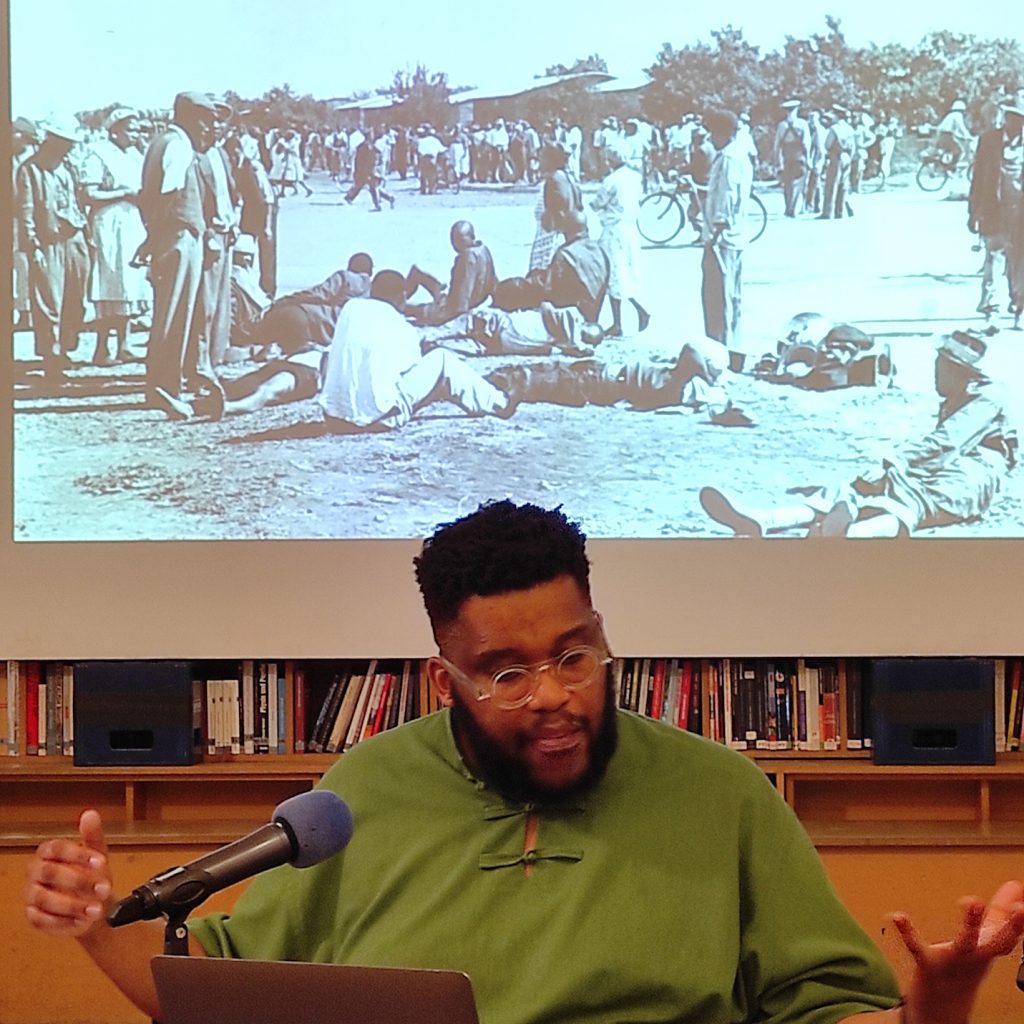
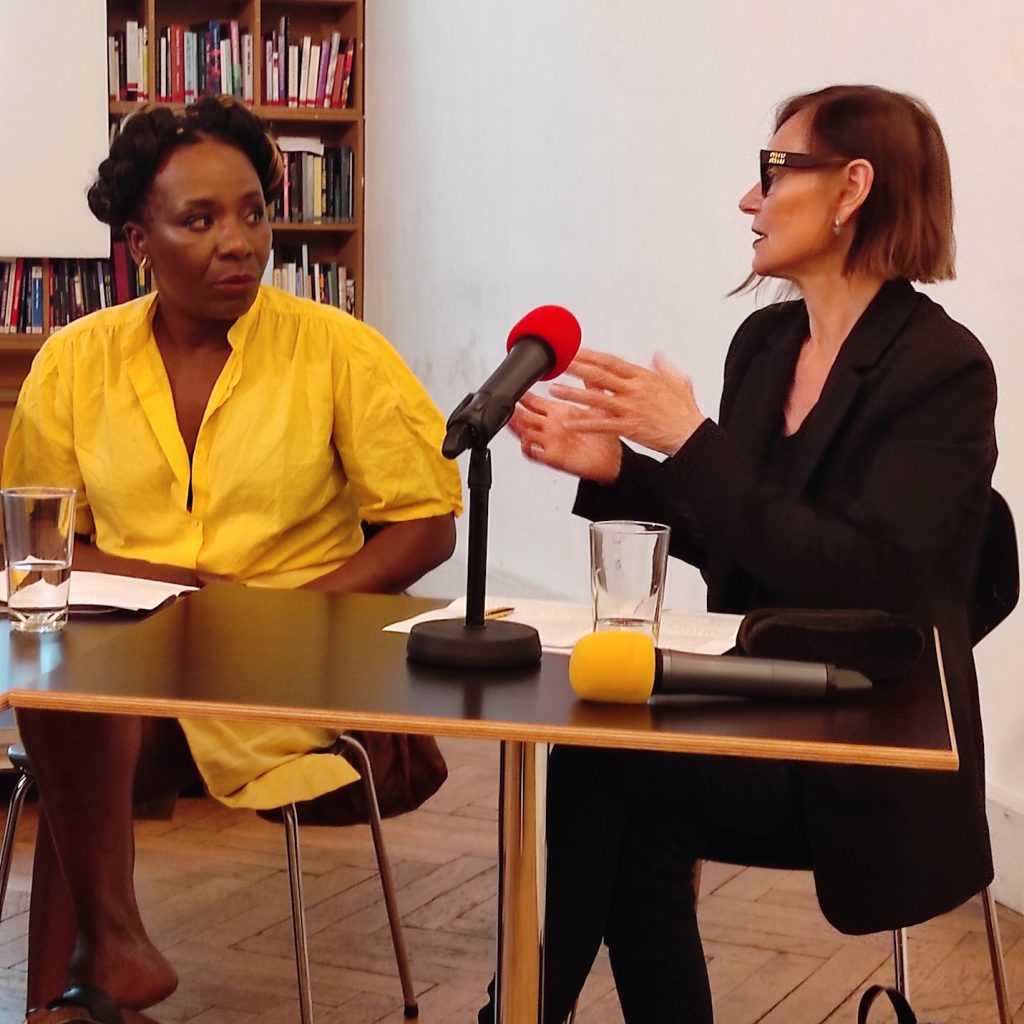
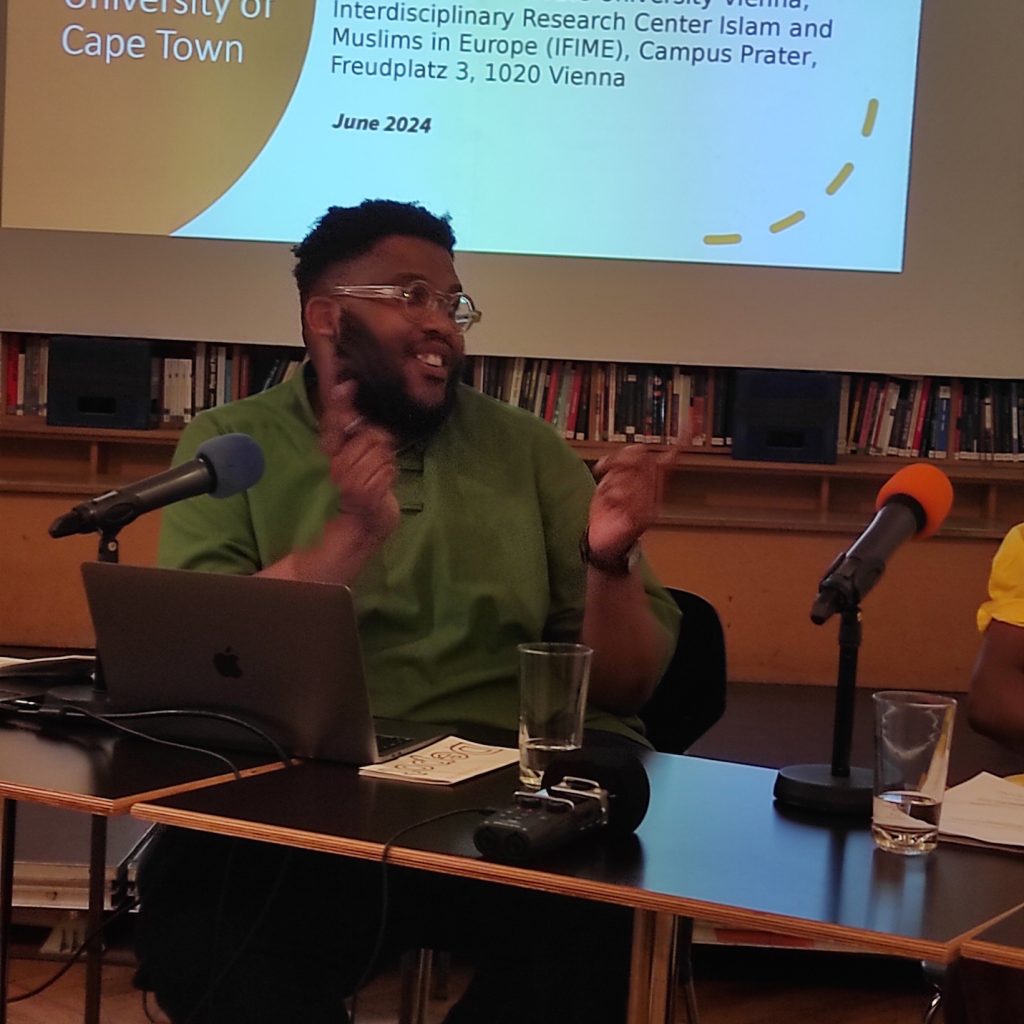
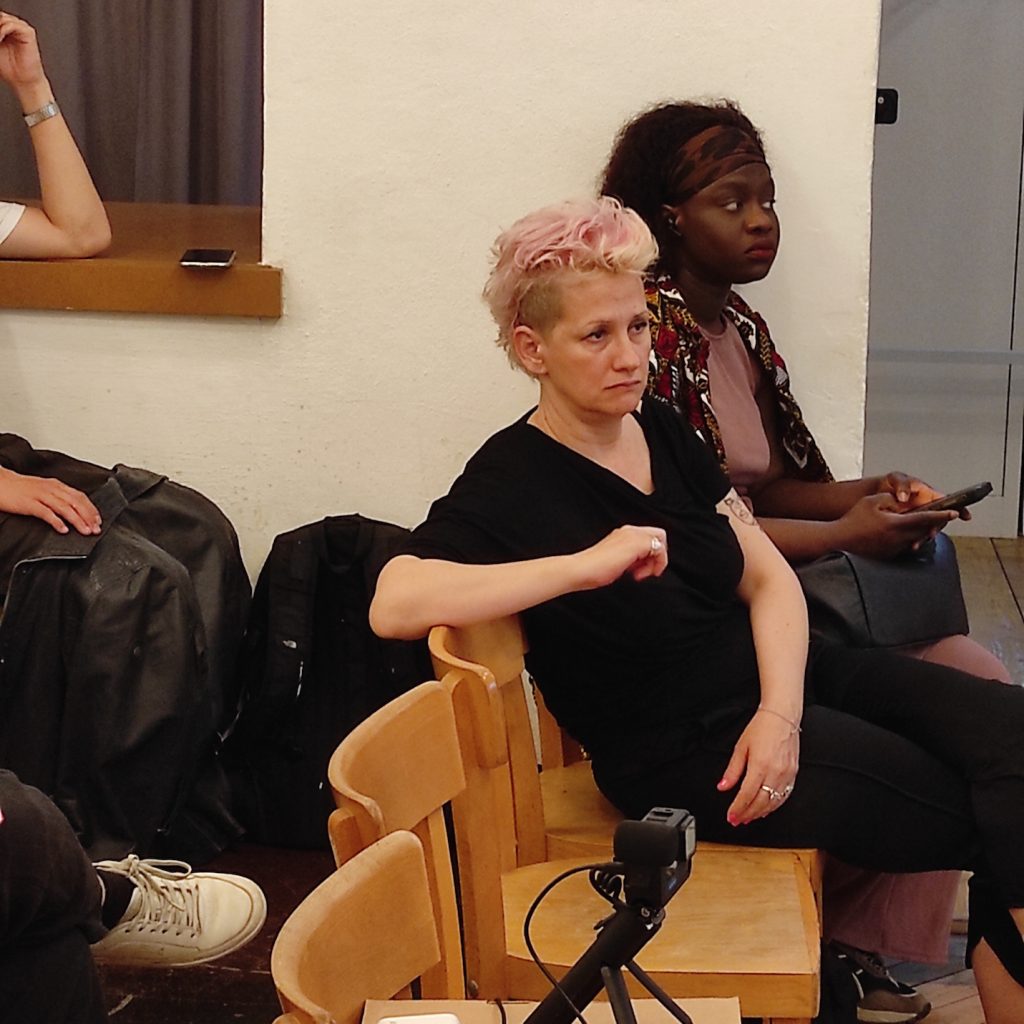
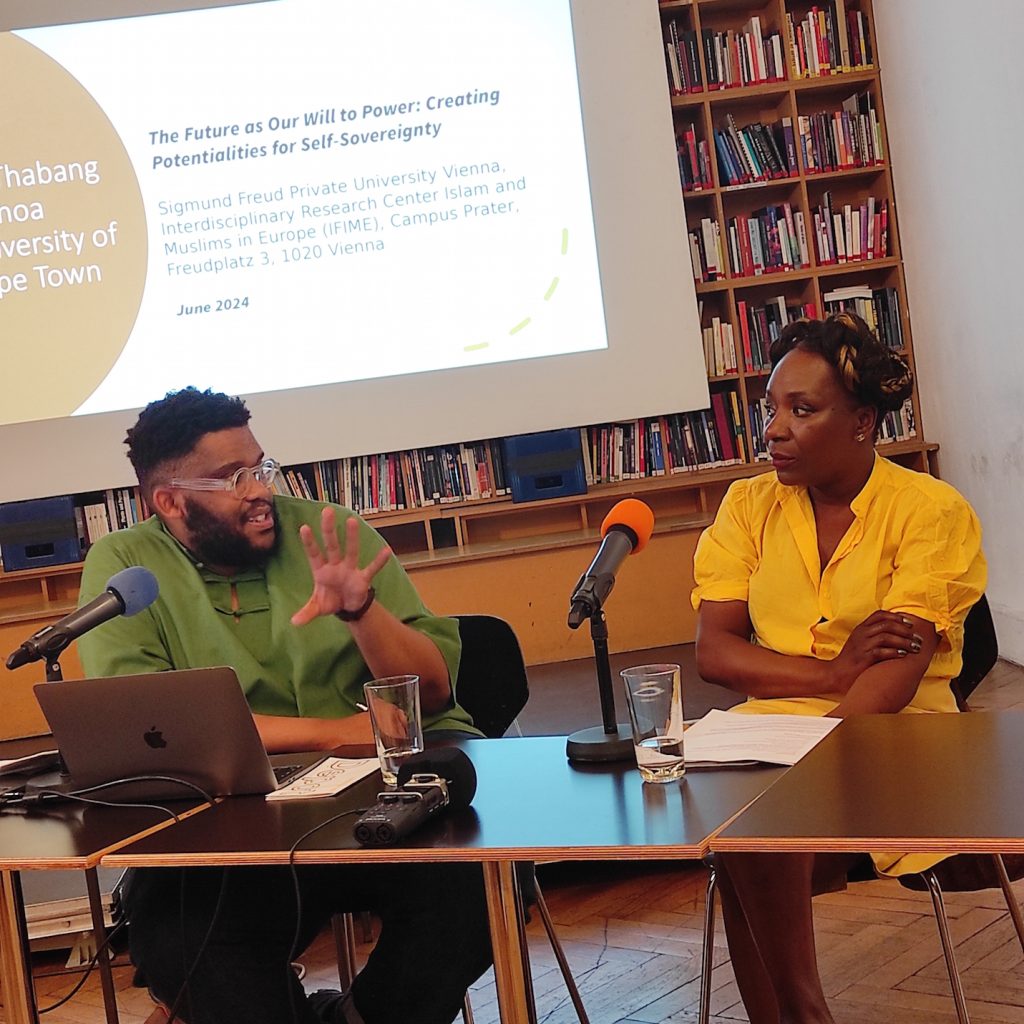
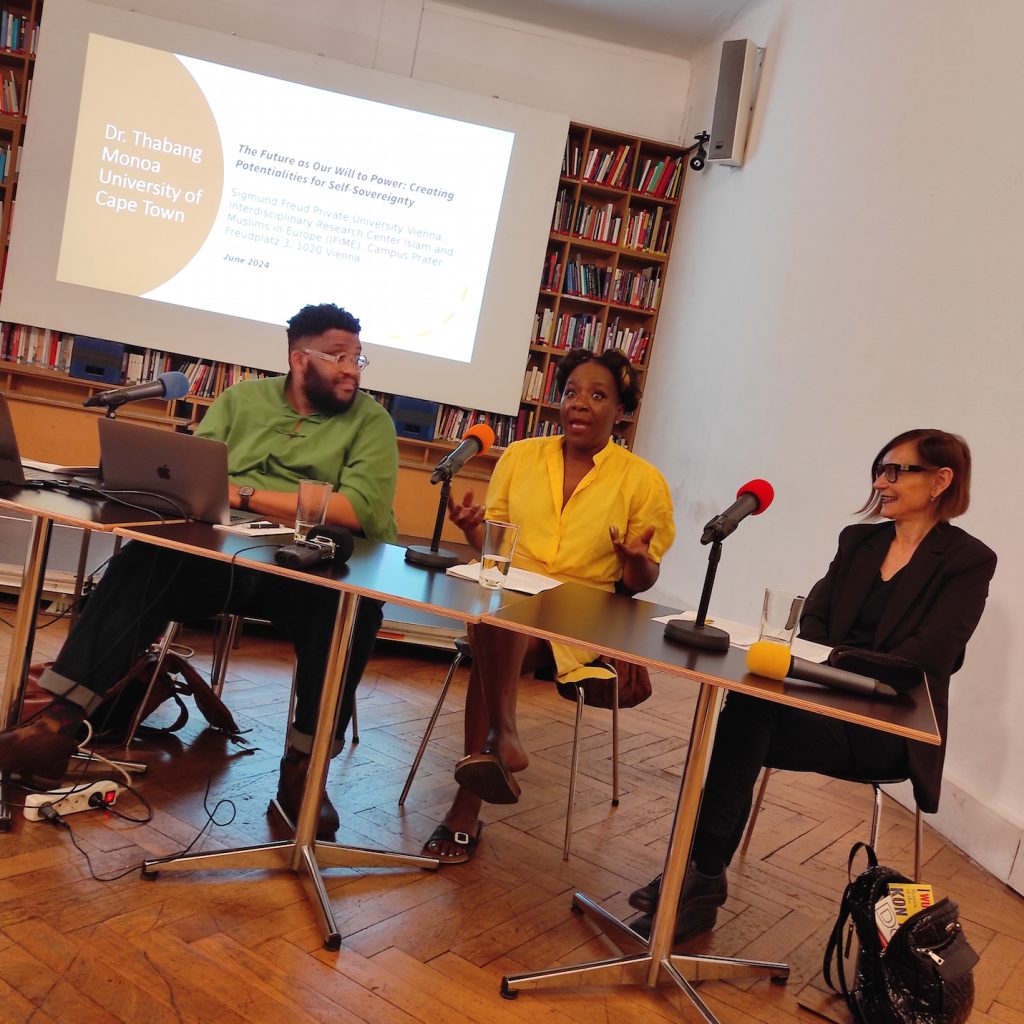
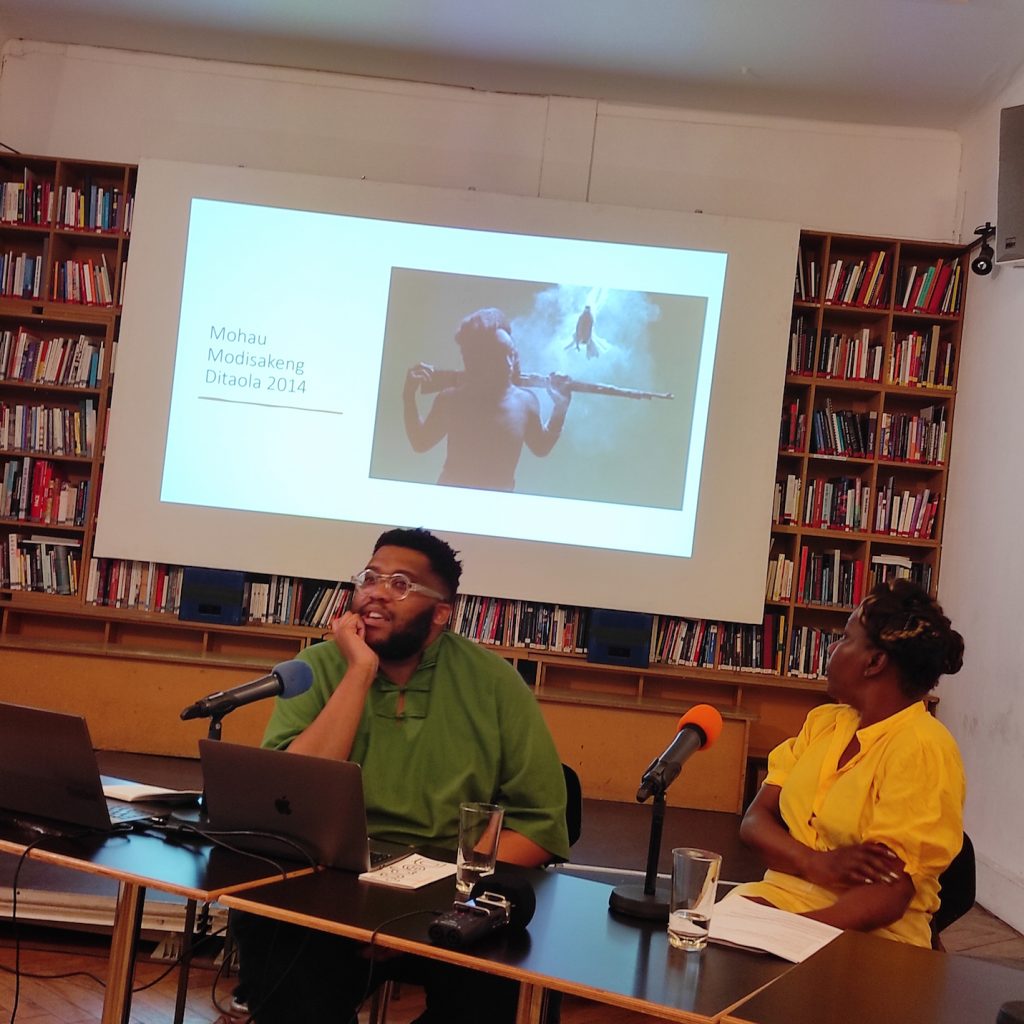
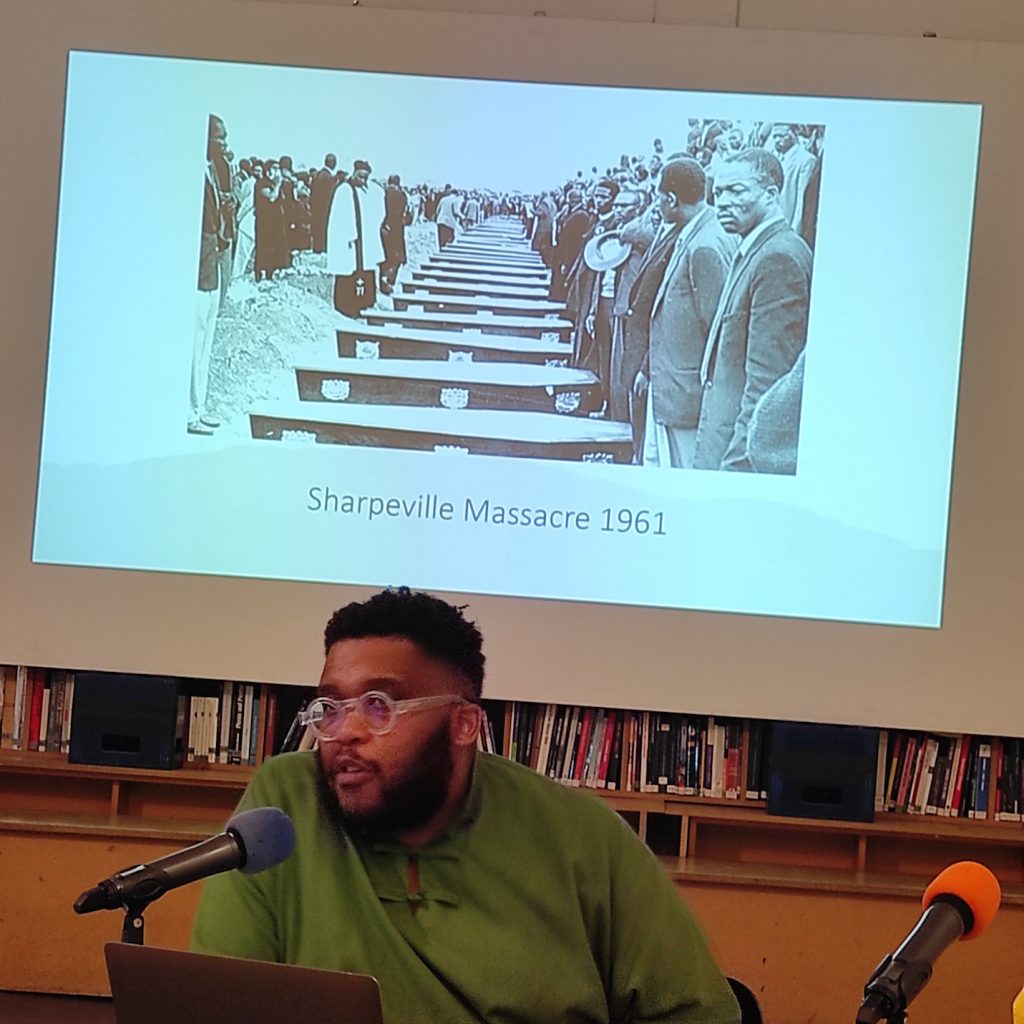
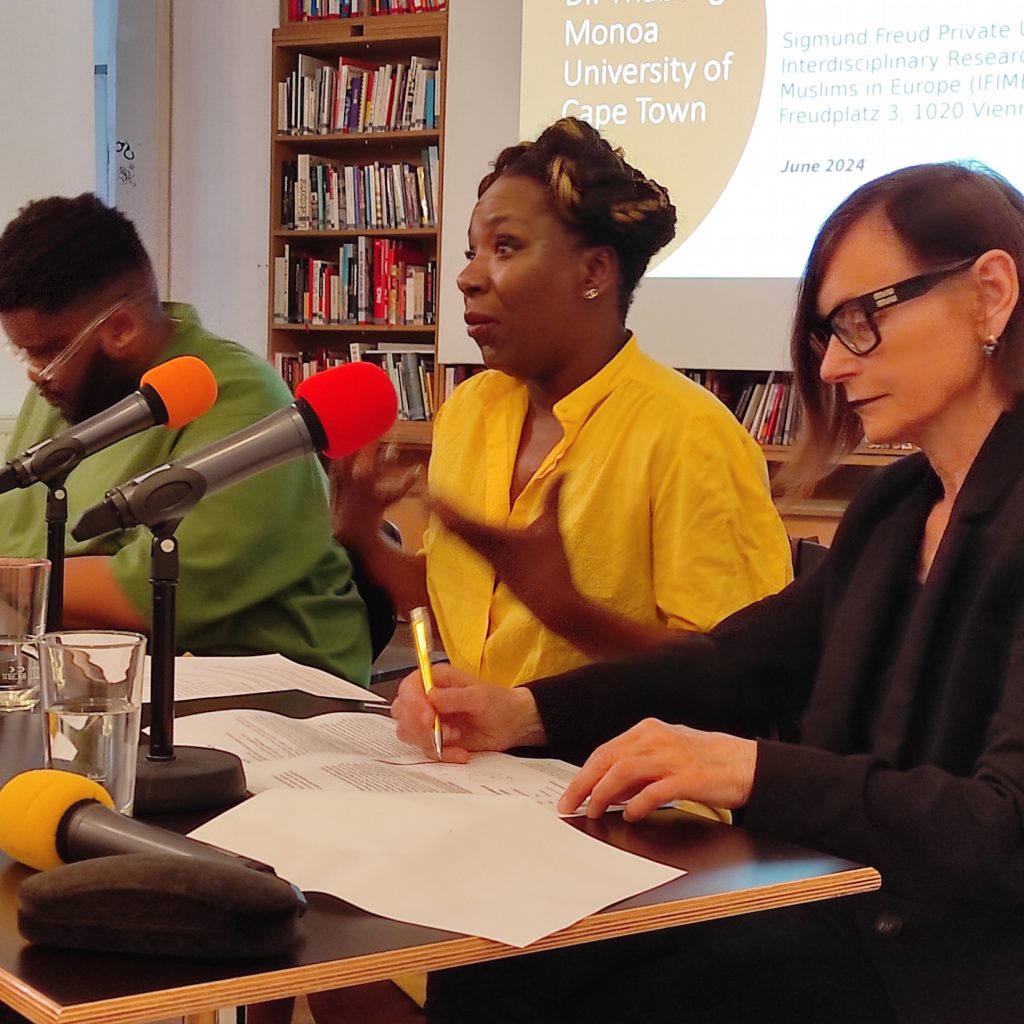
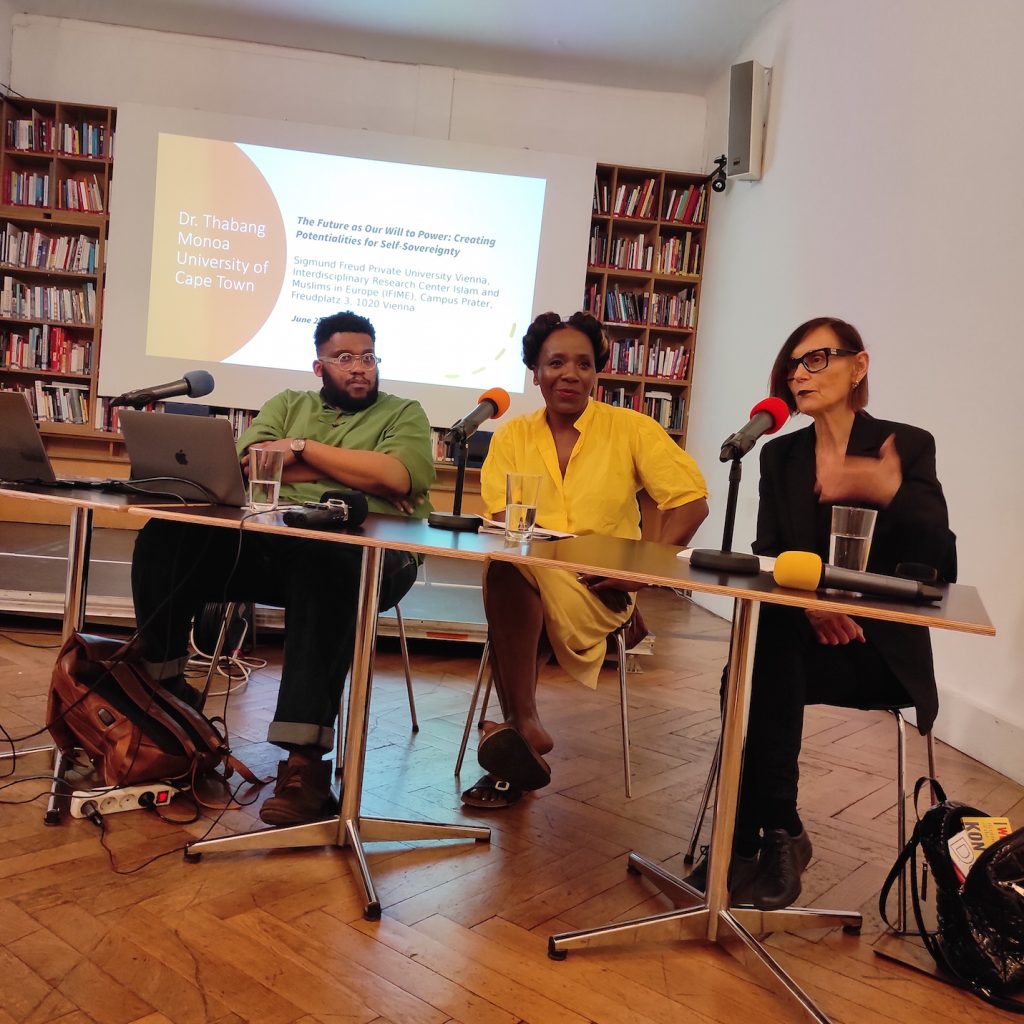
5/06/2024 Communities’ Talks in Vienna, Reflections, Exchange, moderated by Asma Aiad, Akbild, Vienna
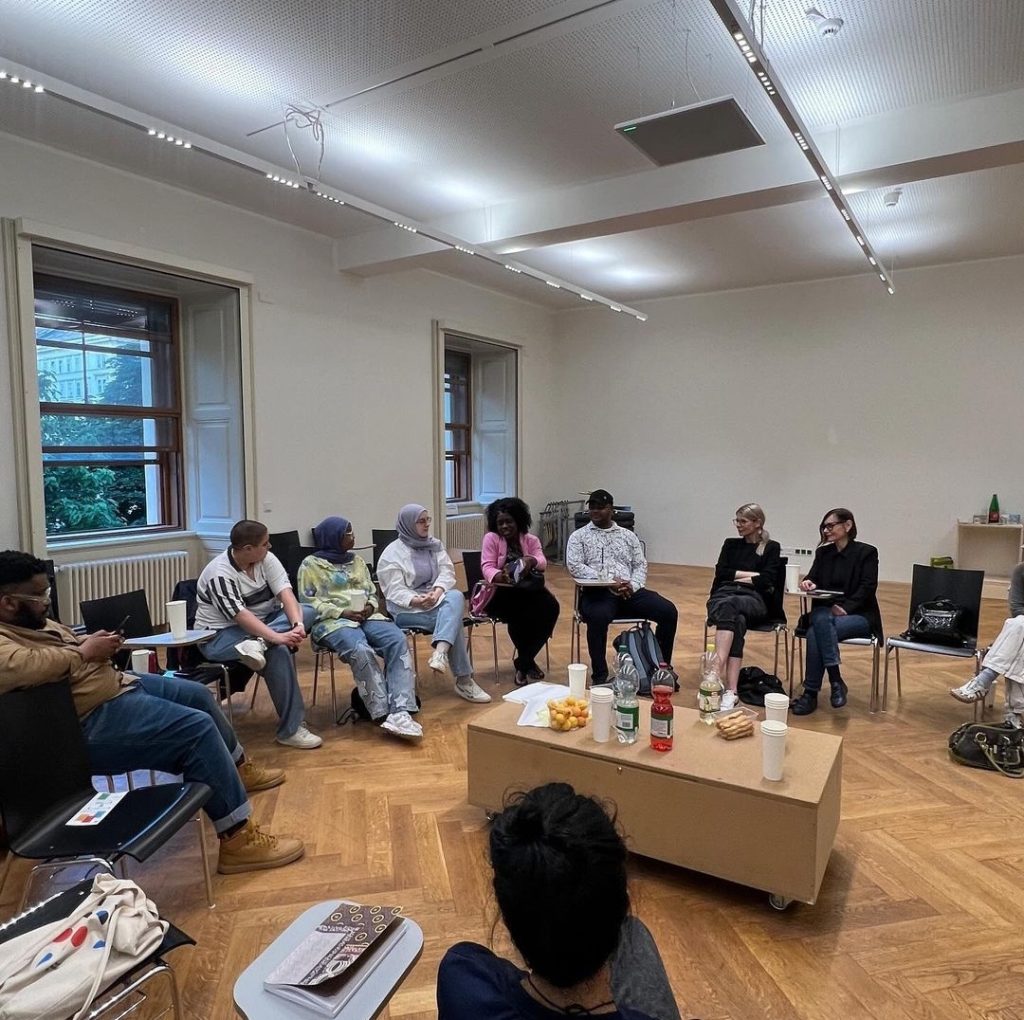
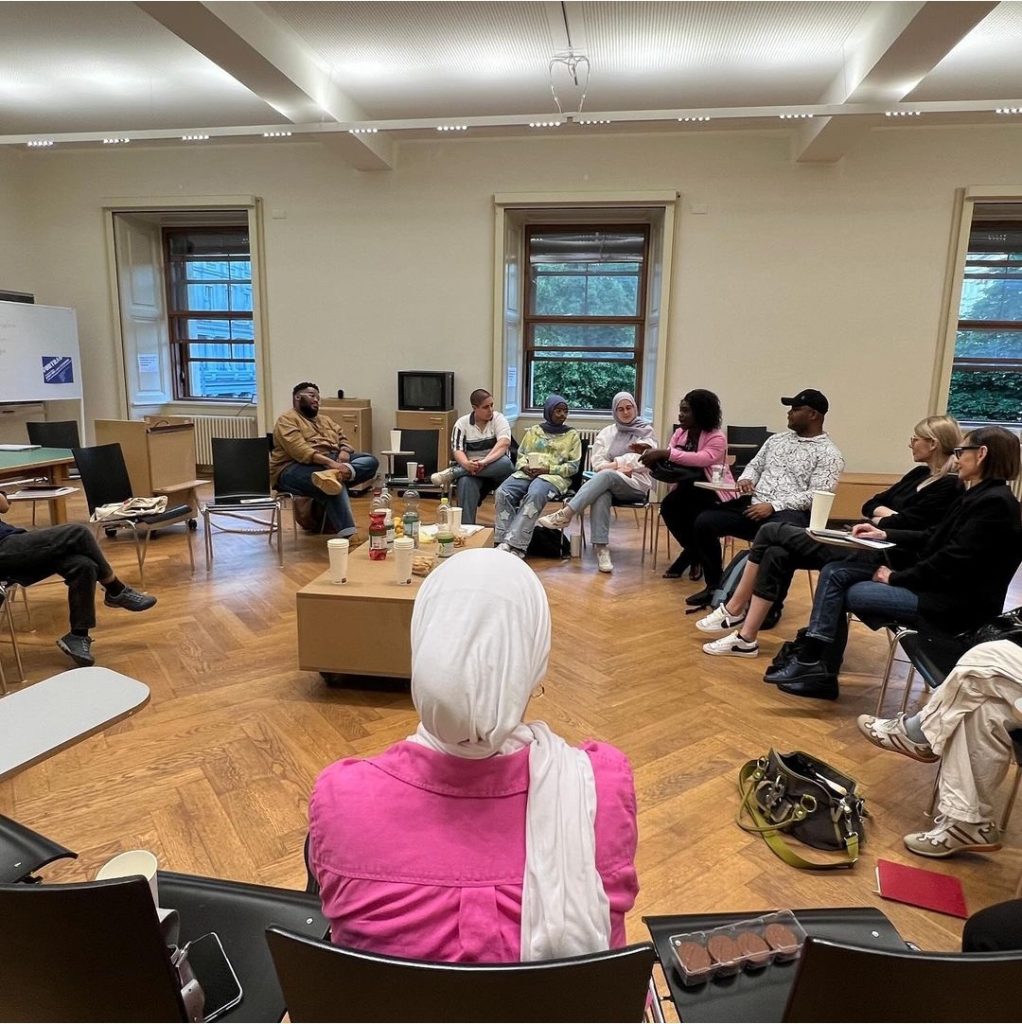
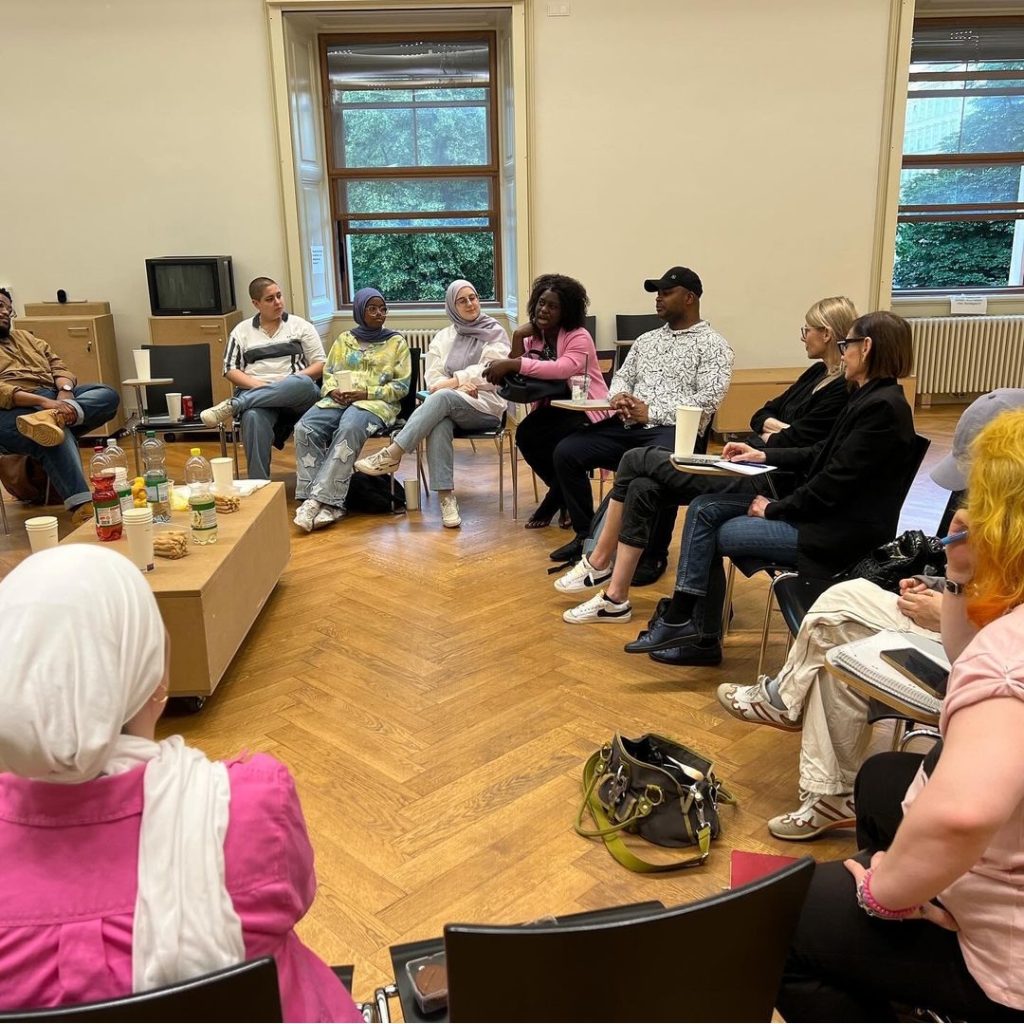
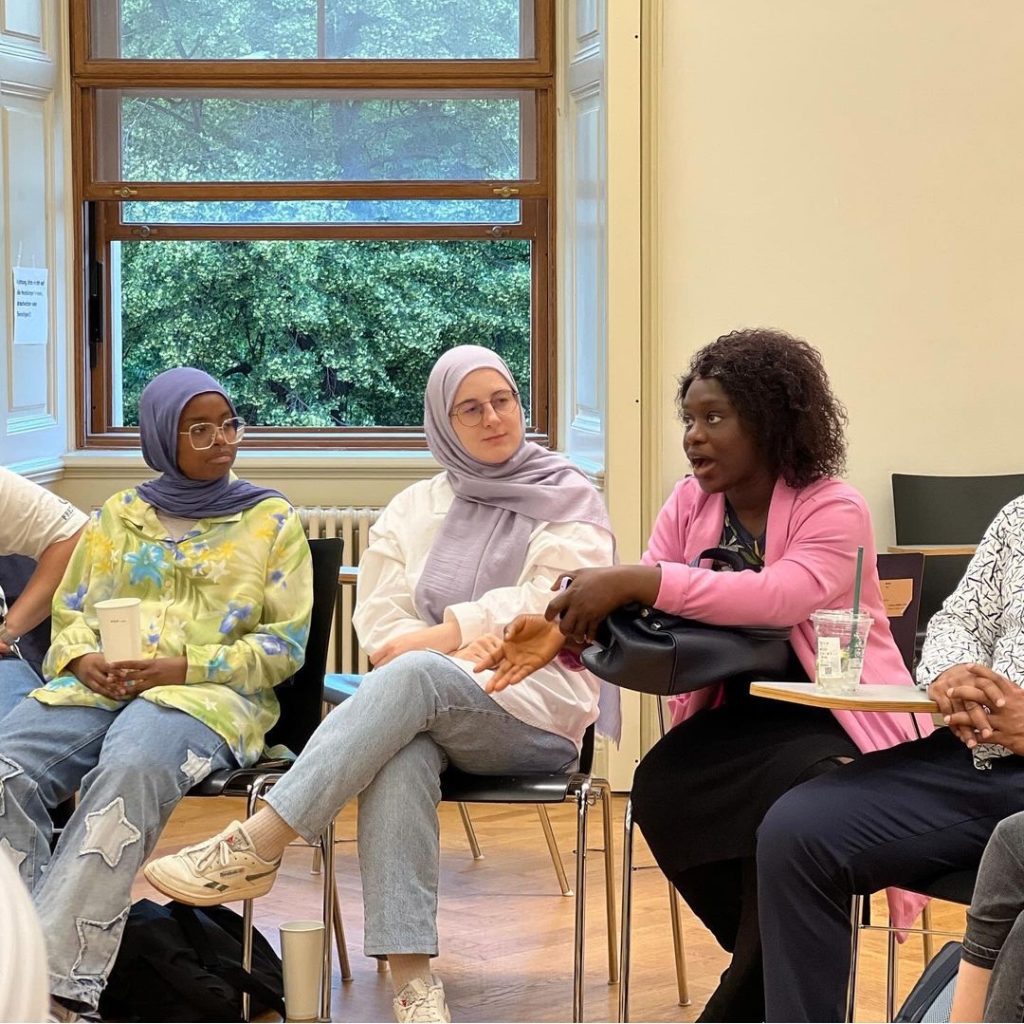
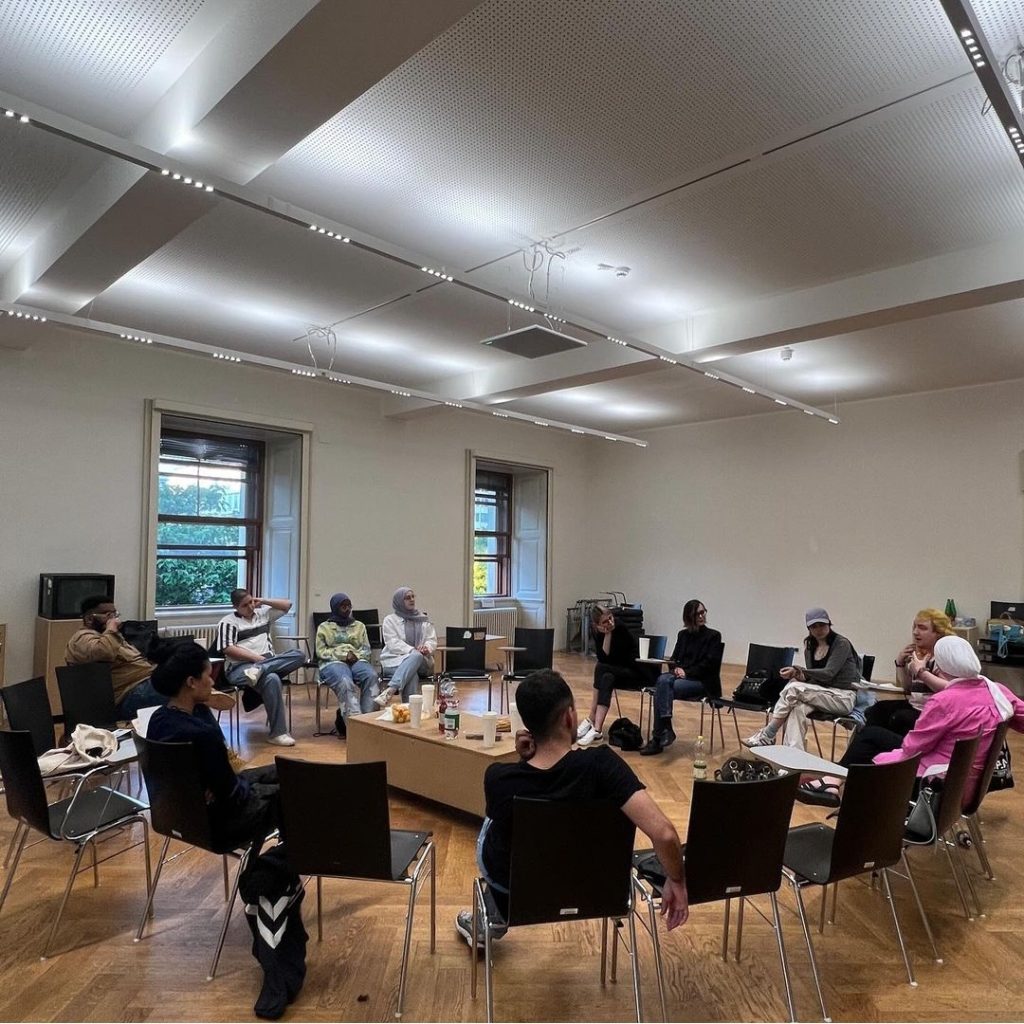
4/06/2024 Keynote lecture “Dialogical Speech Acts across the Atlantic: Freedom as Eternal Recurrence” by Thabang Monoa, moderated by Marina Gržinić, Akbild, Vienna
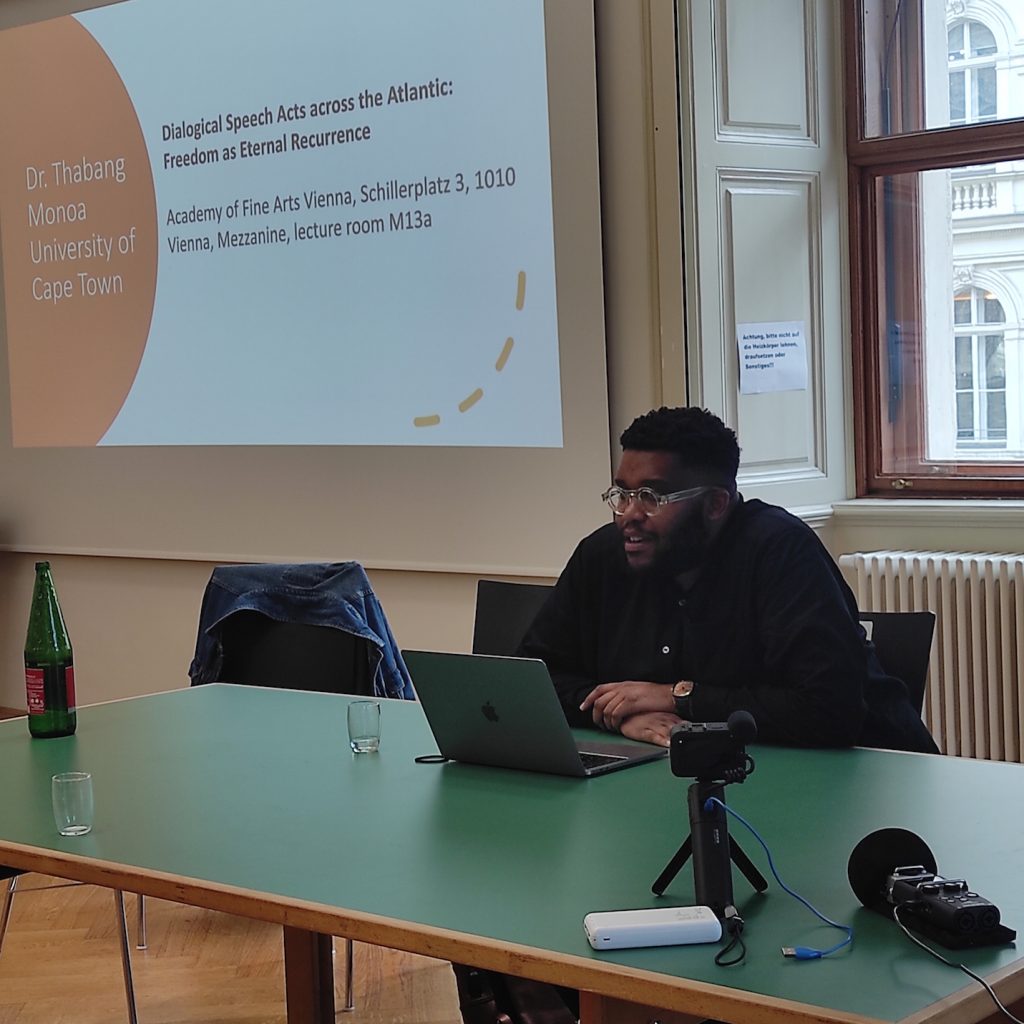
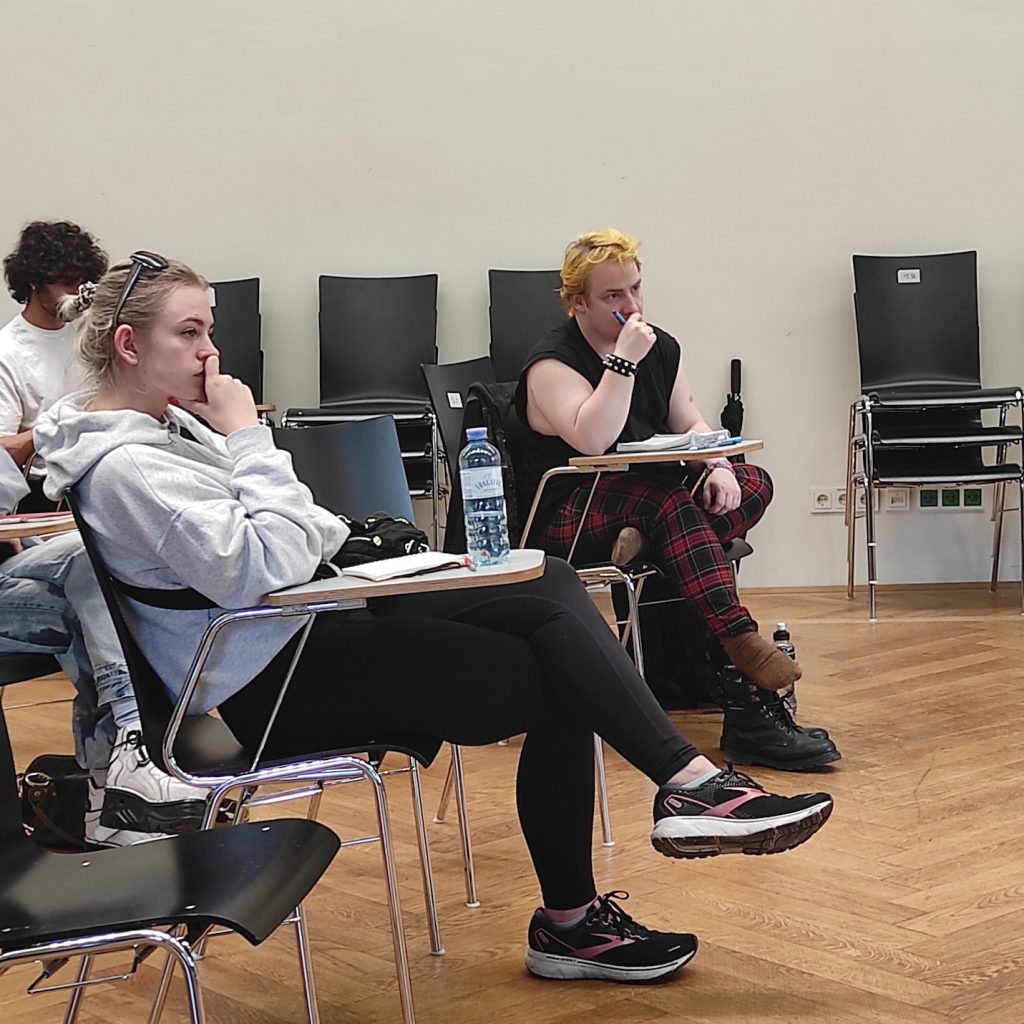
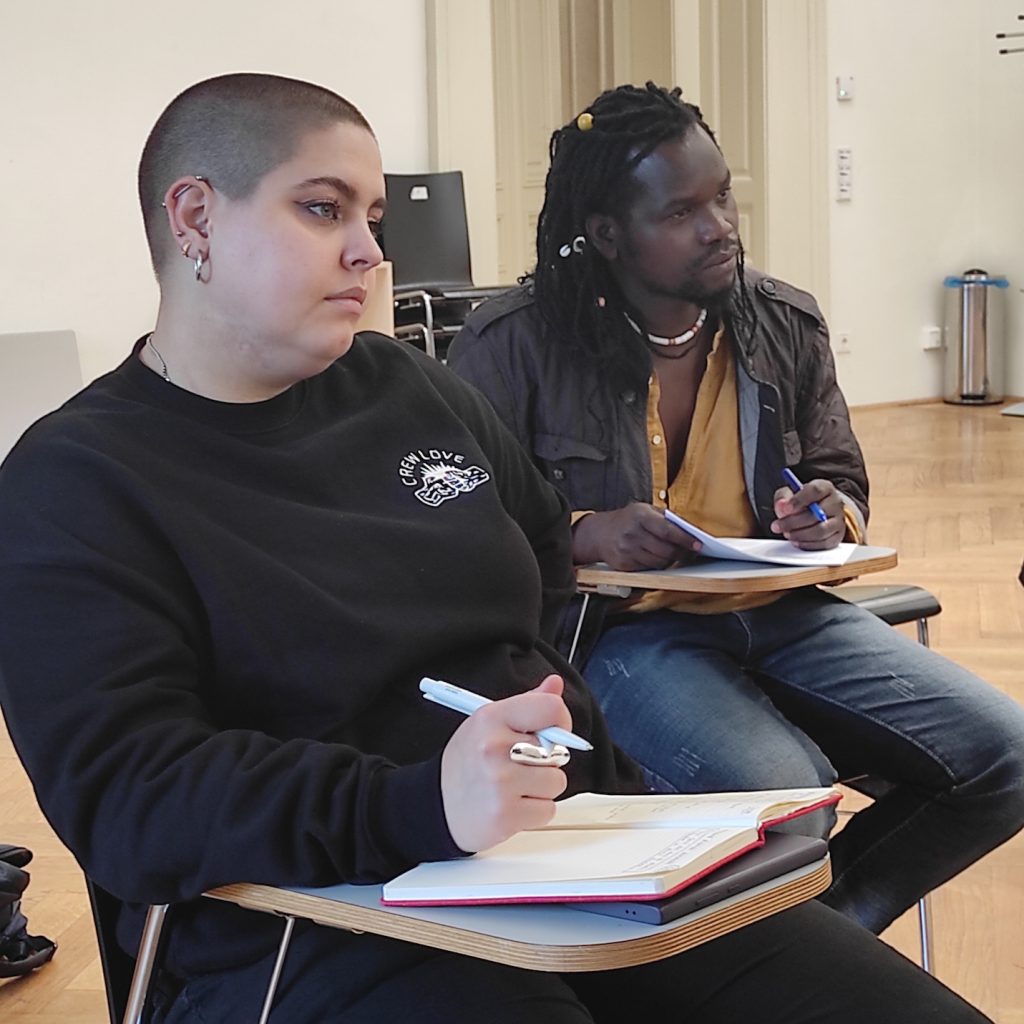
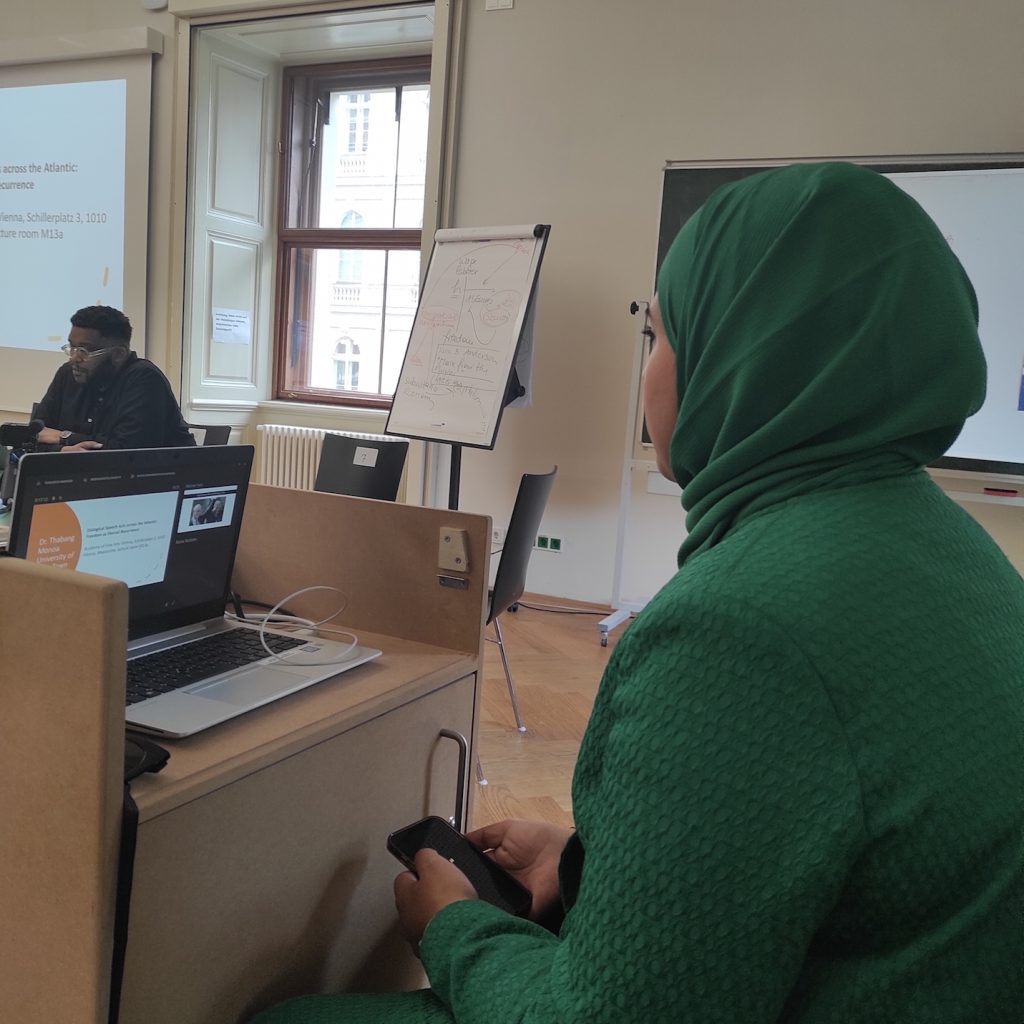
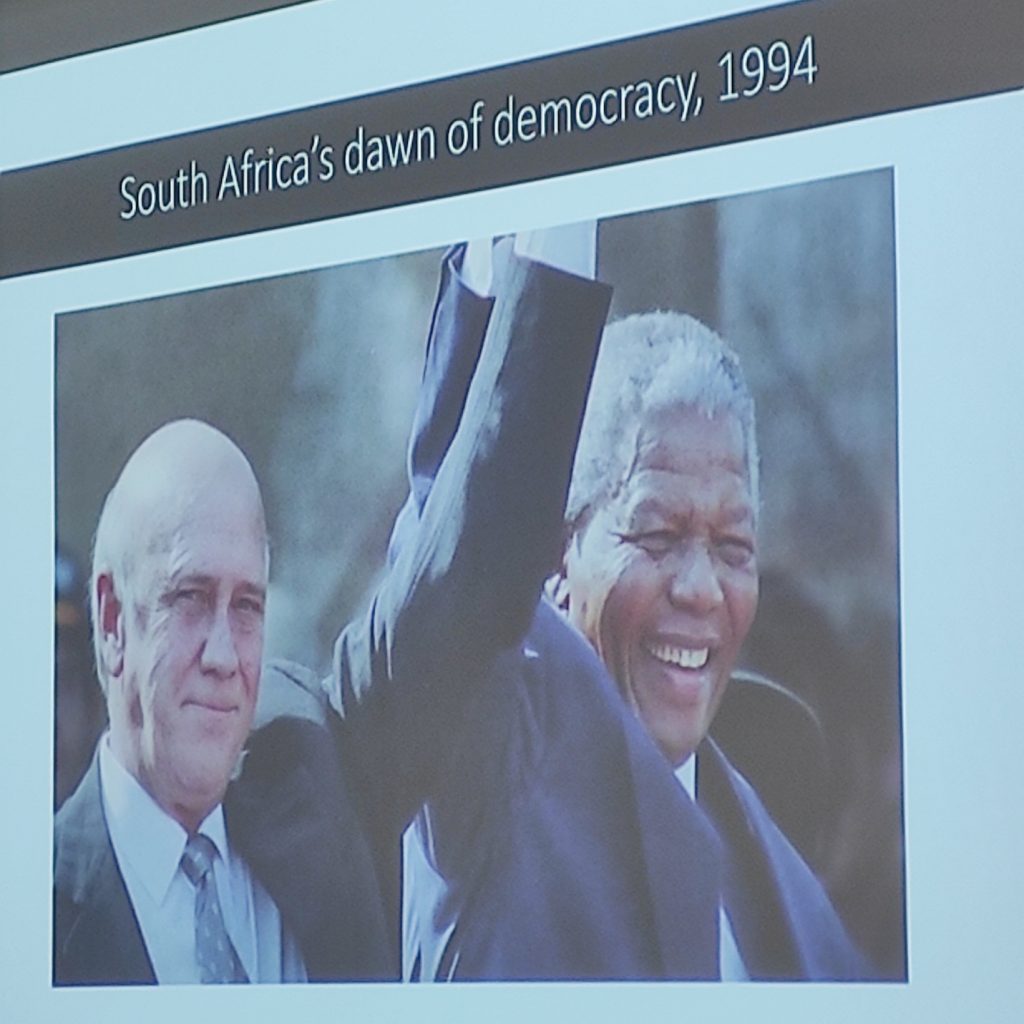
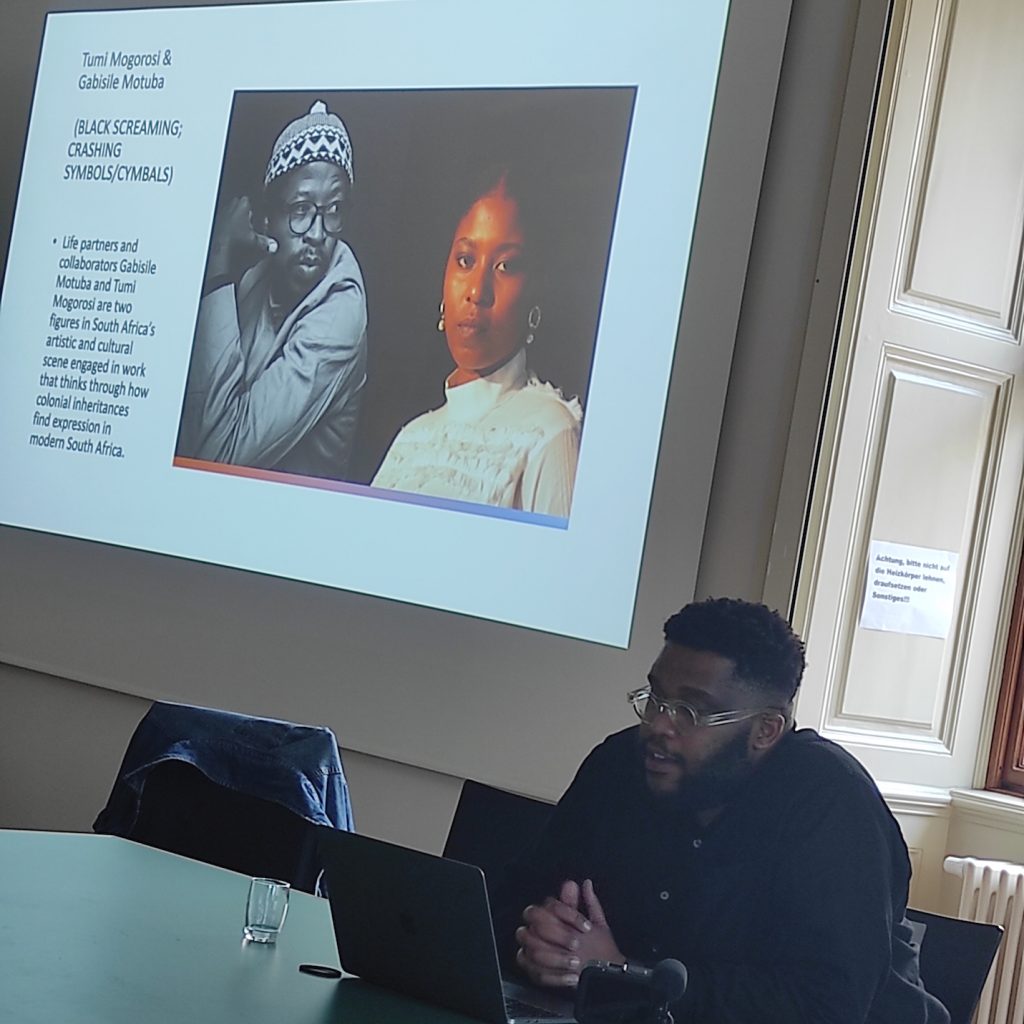
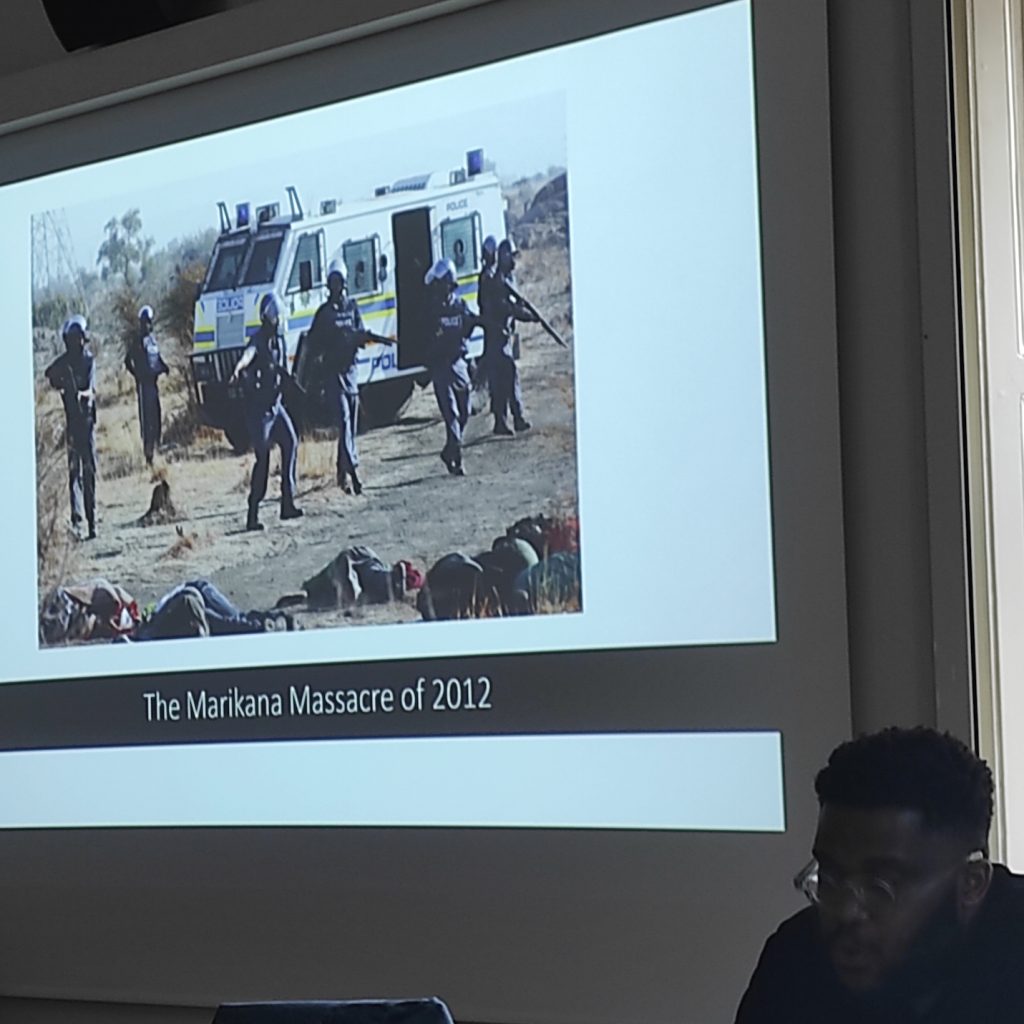
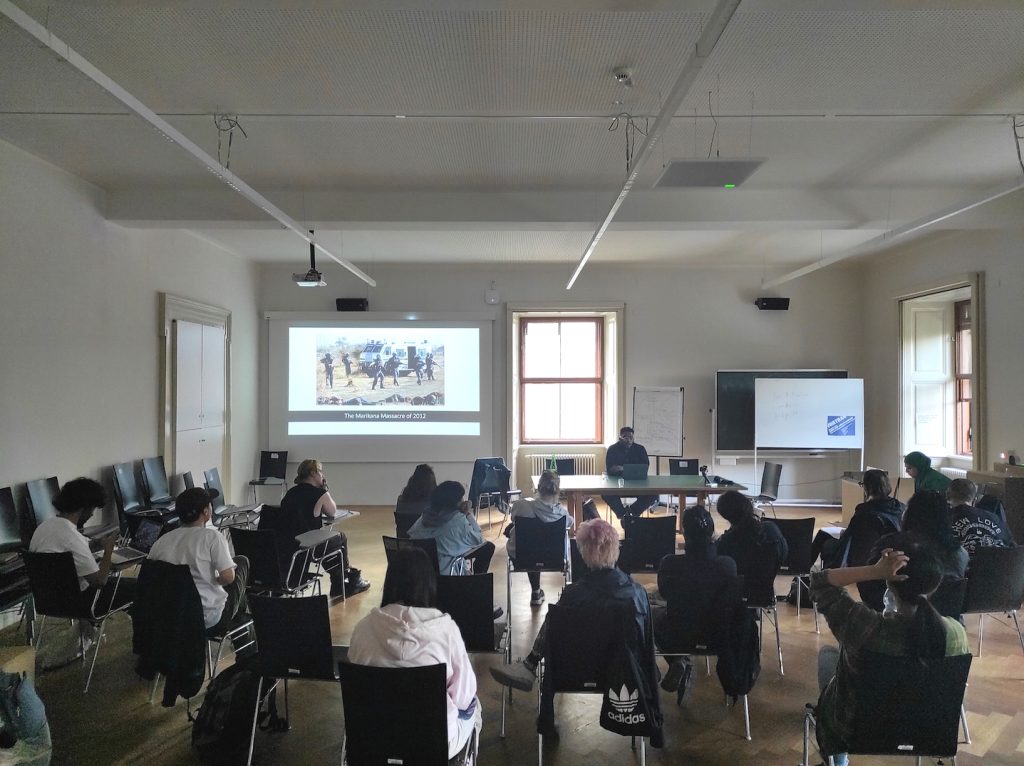
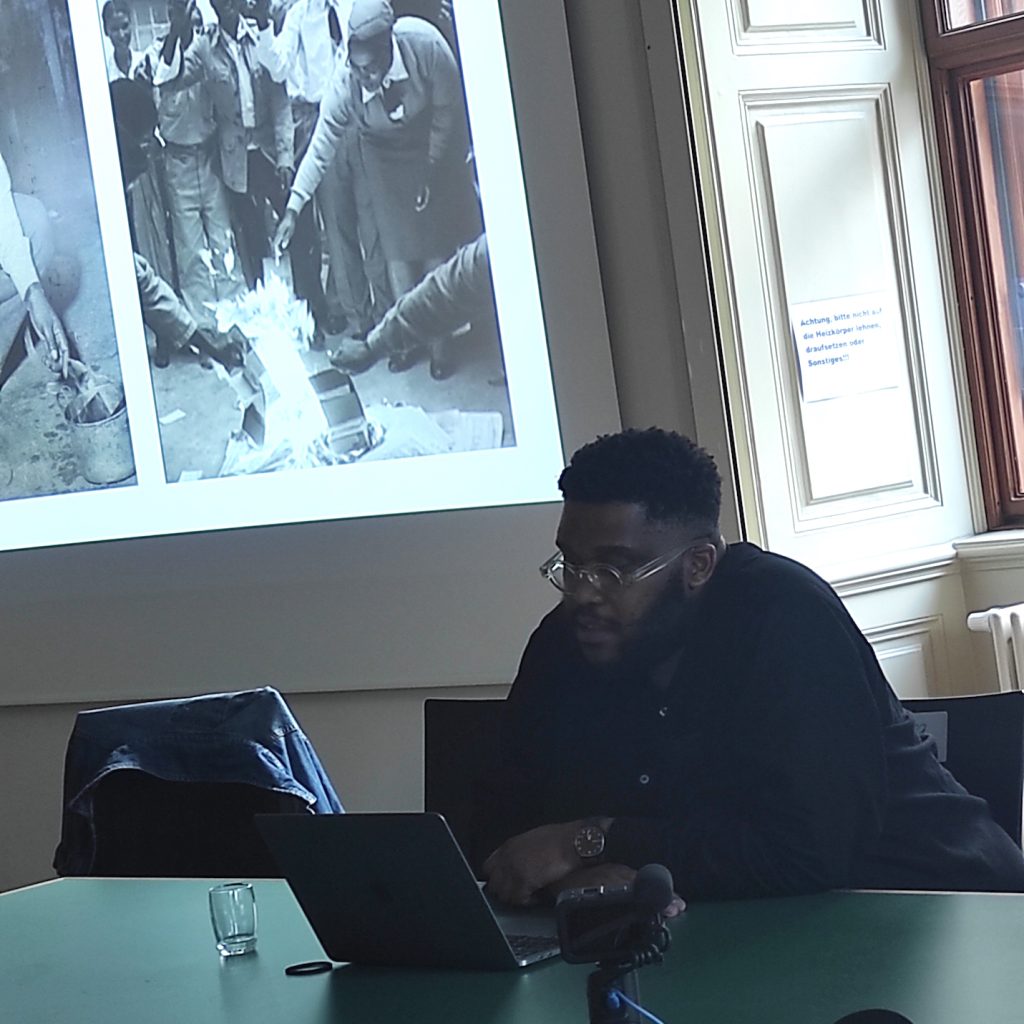
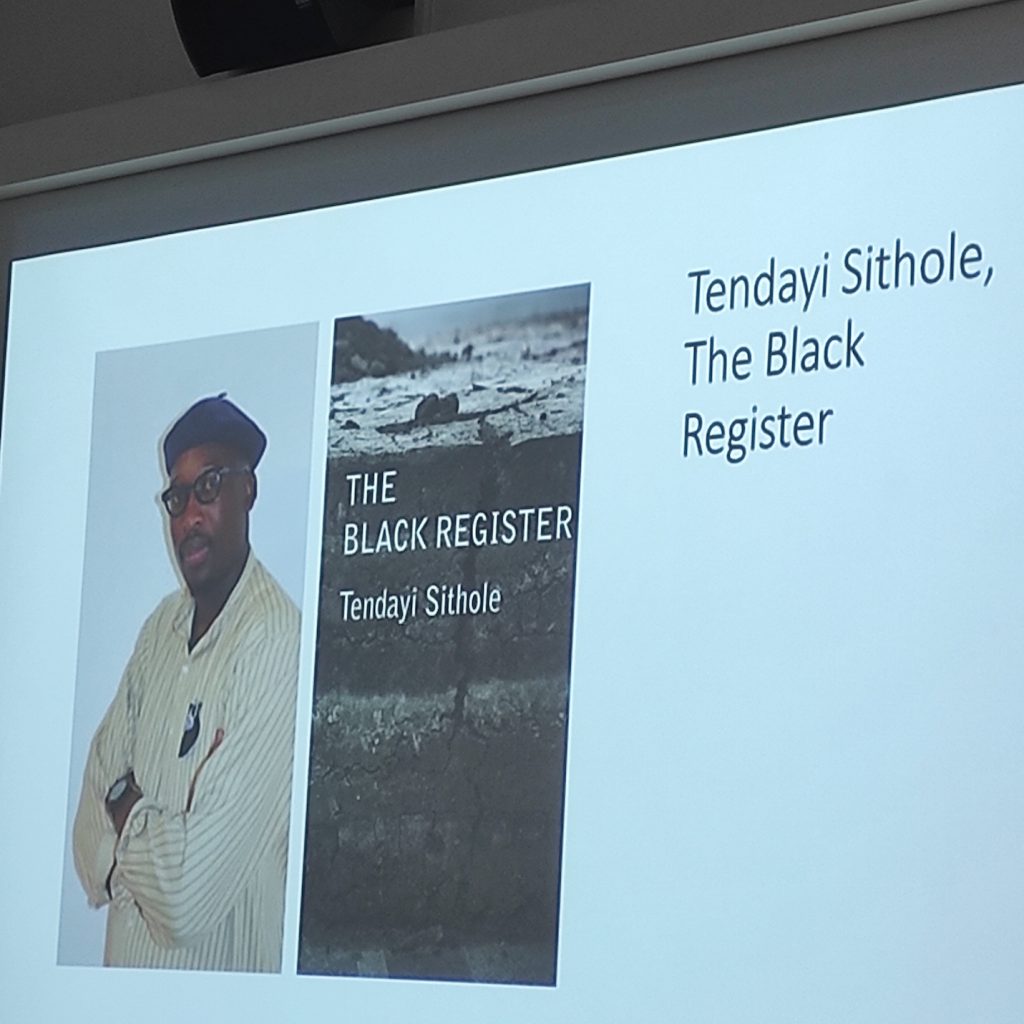
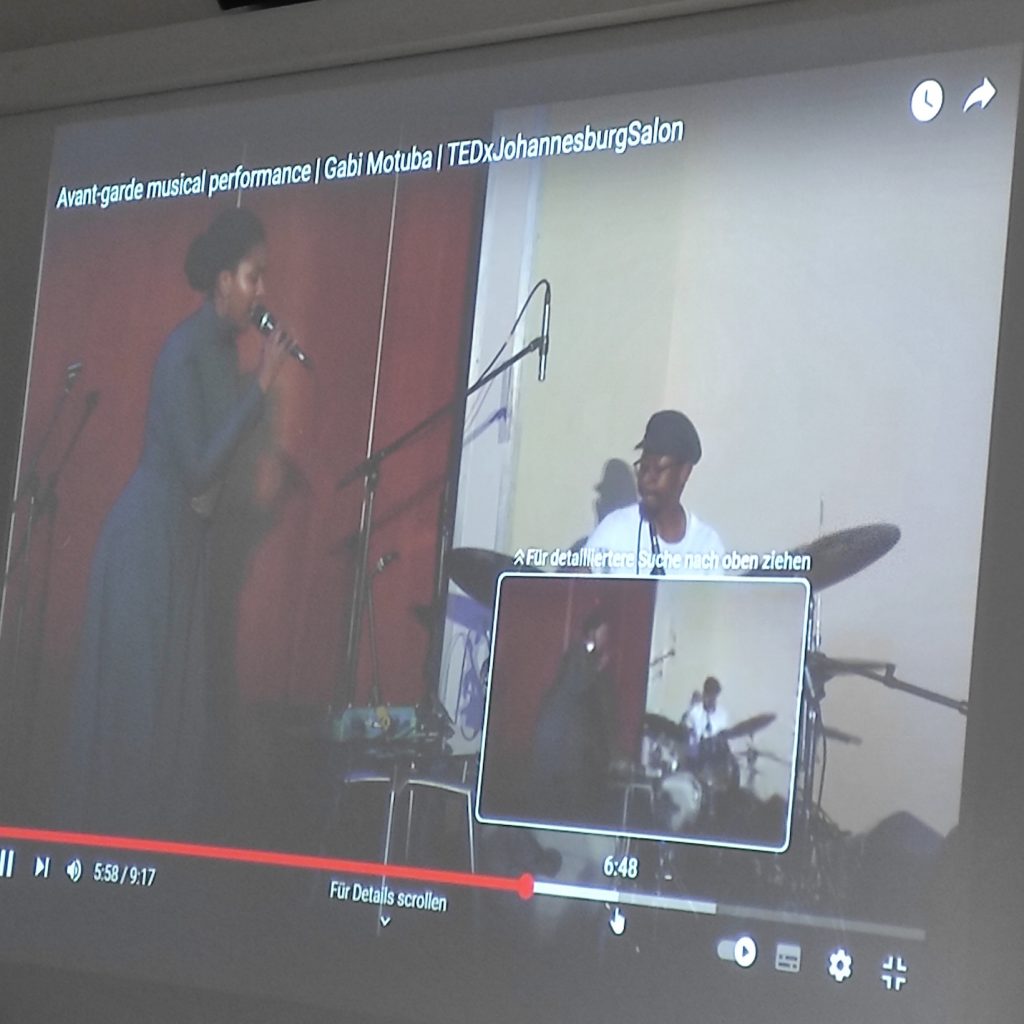
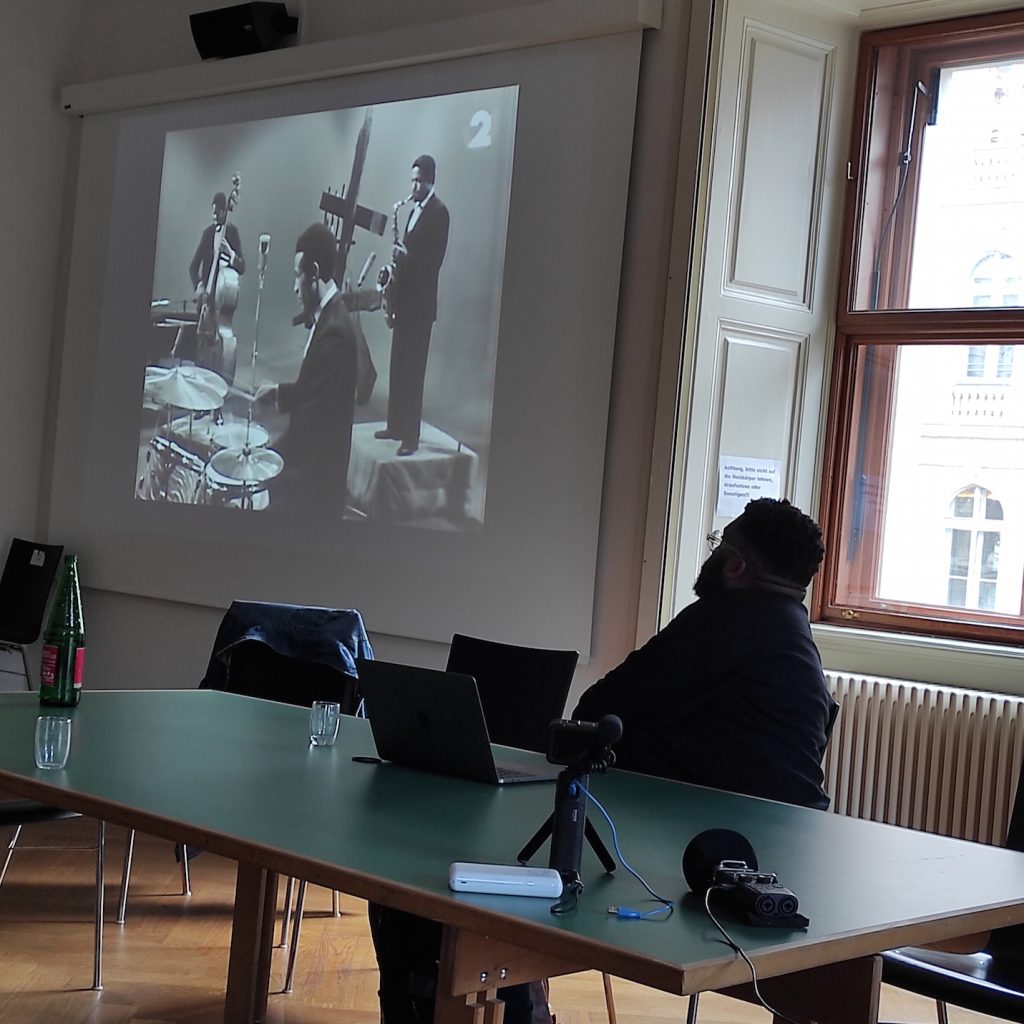
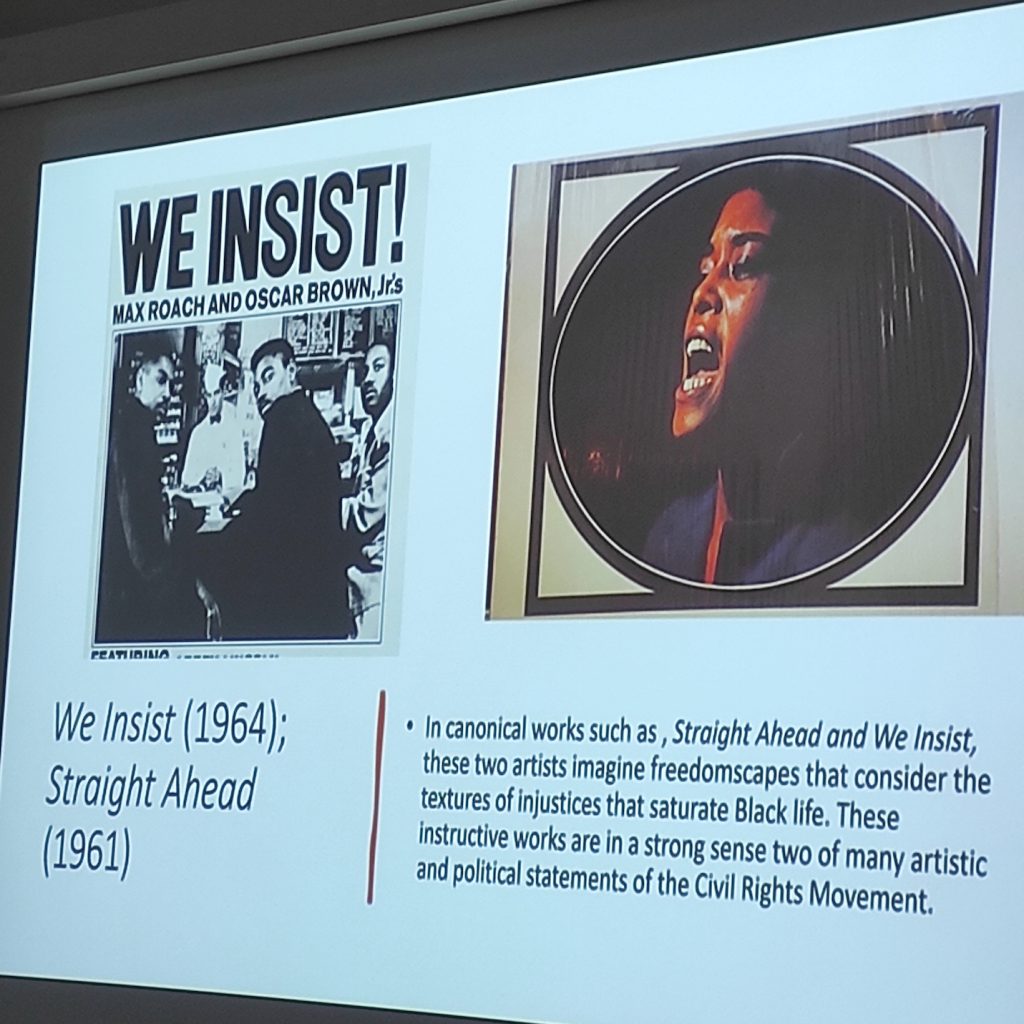
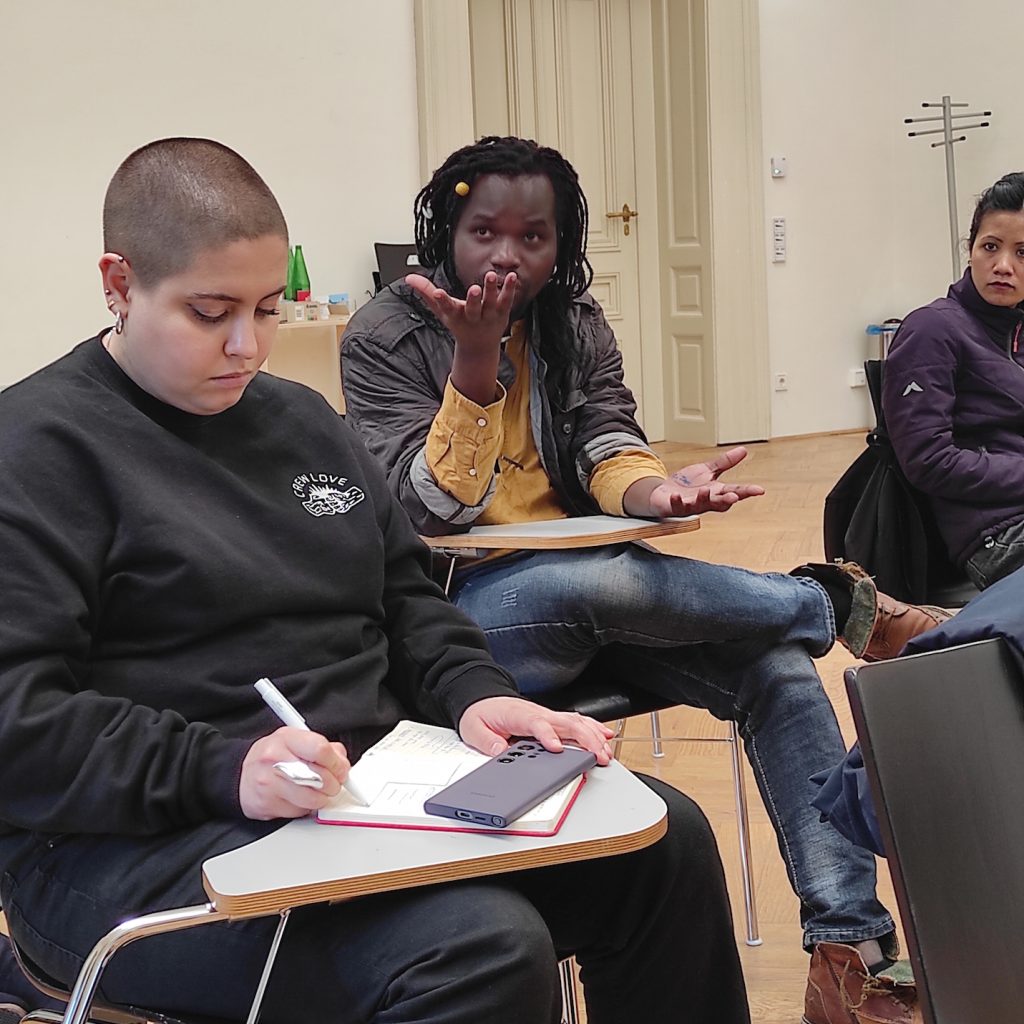
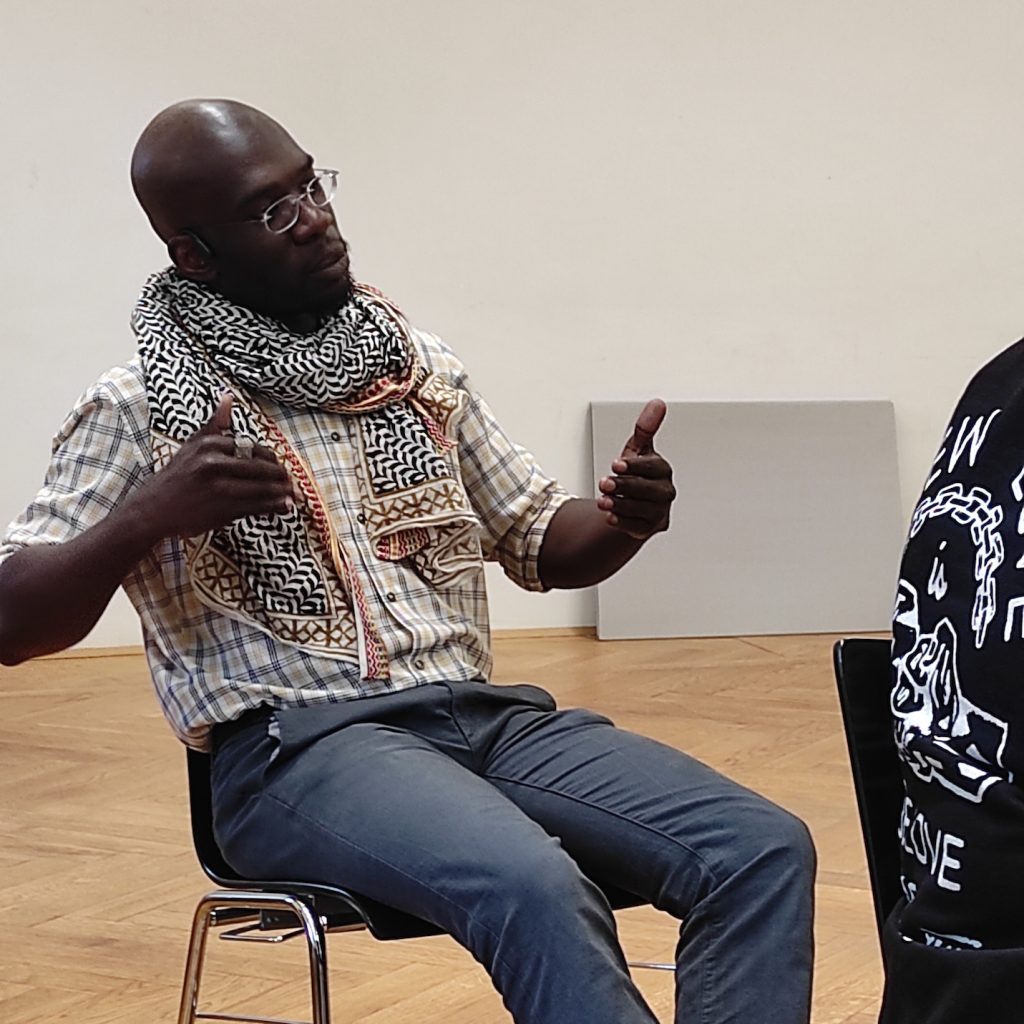
3/06/2024 Workshop “Thinking through Cacophony: An Experiment in Sounding Our Different Knowledges” with Thabang Monoa, Akbild, Vienna
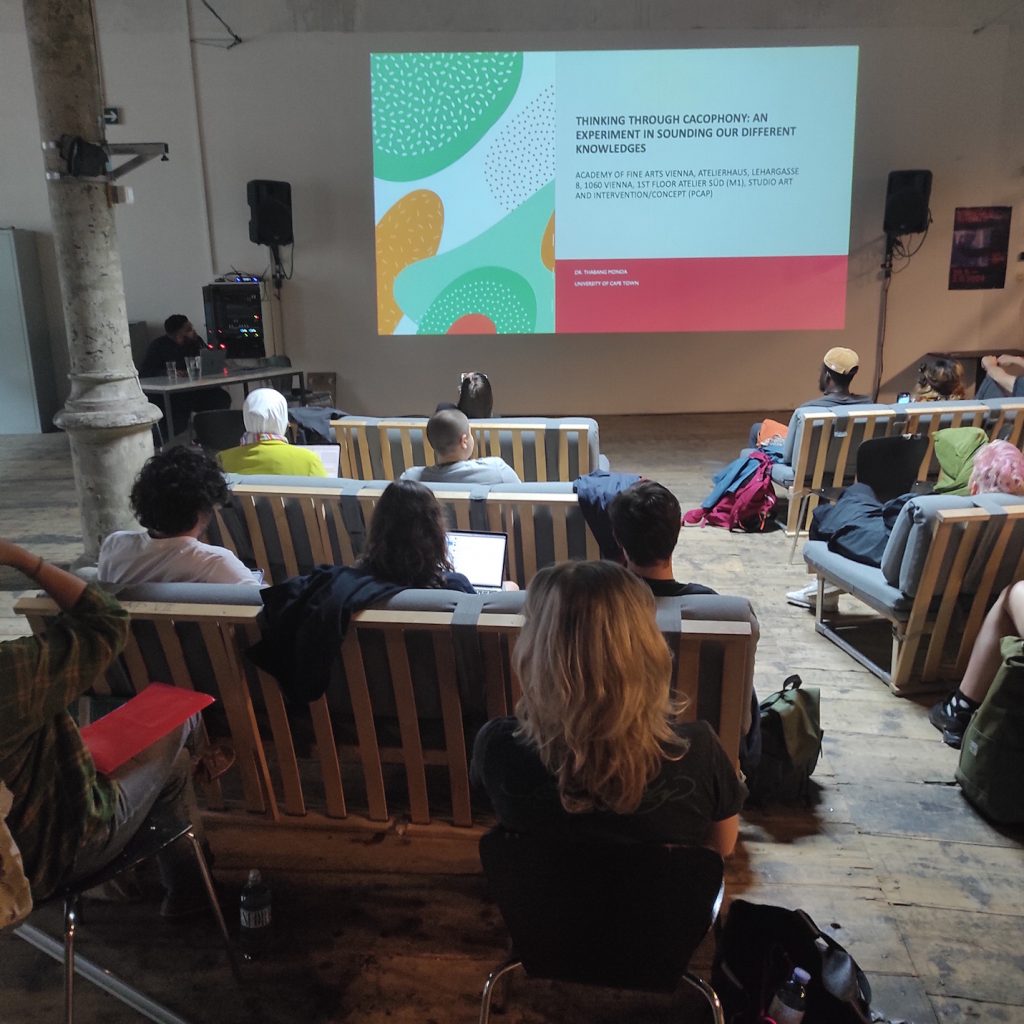
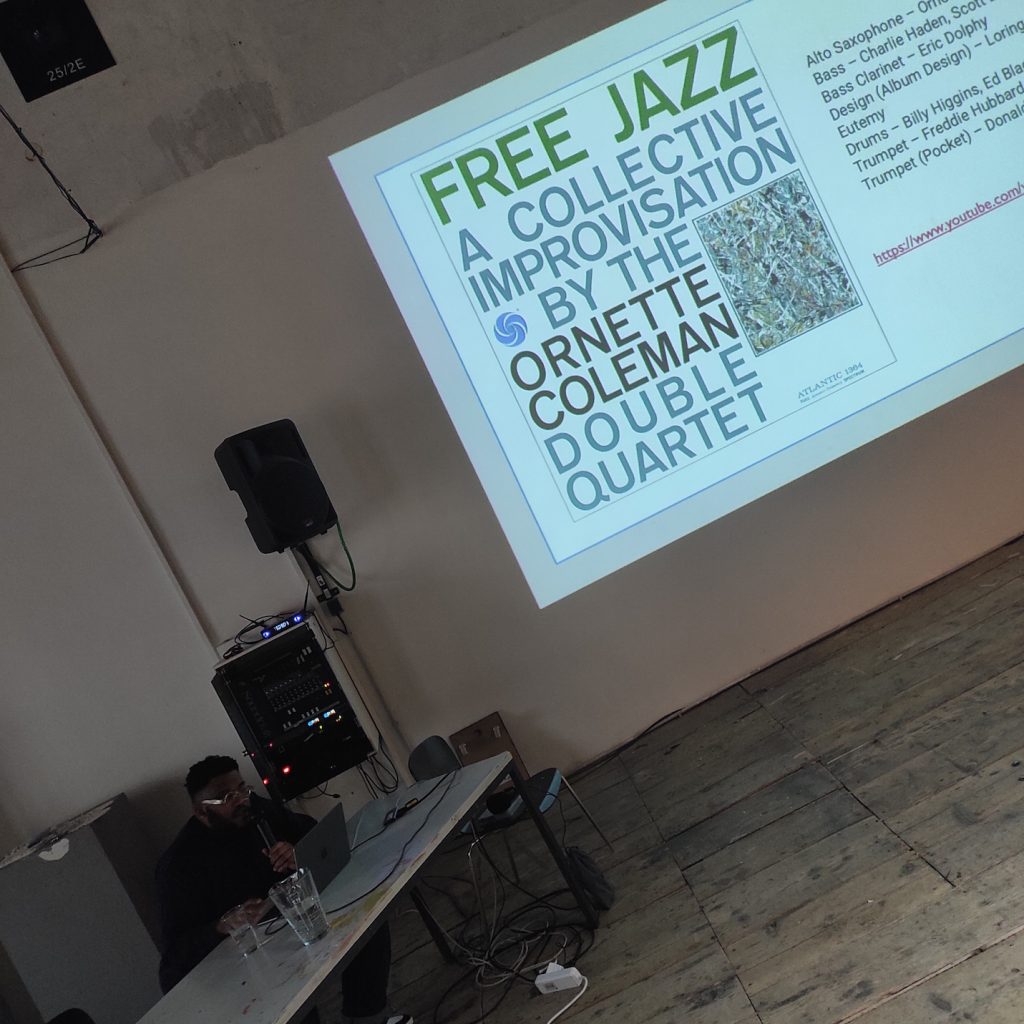
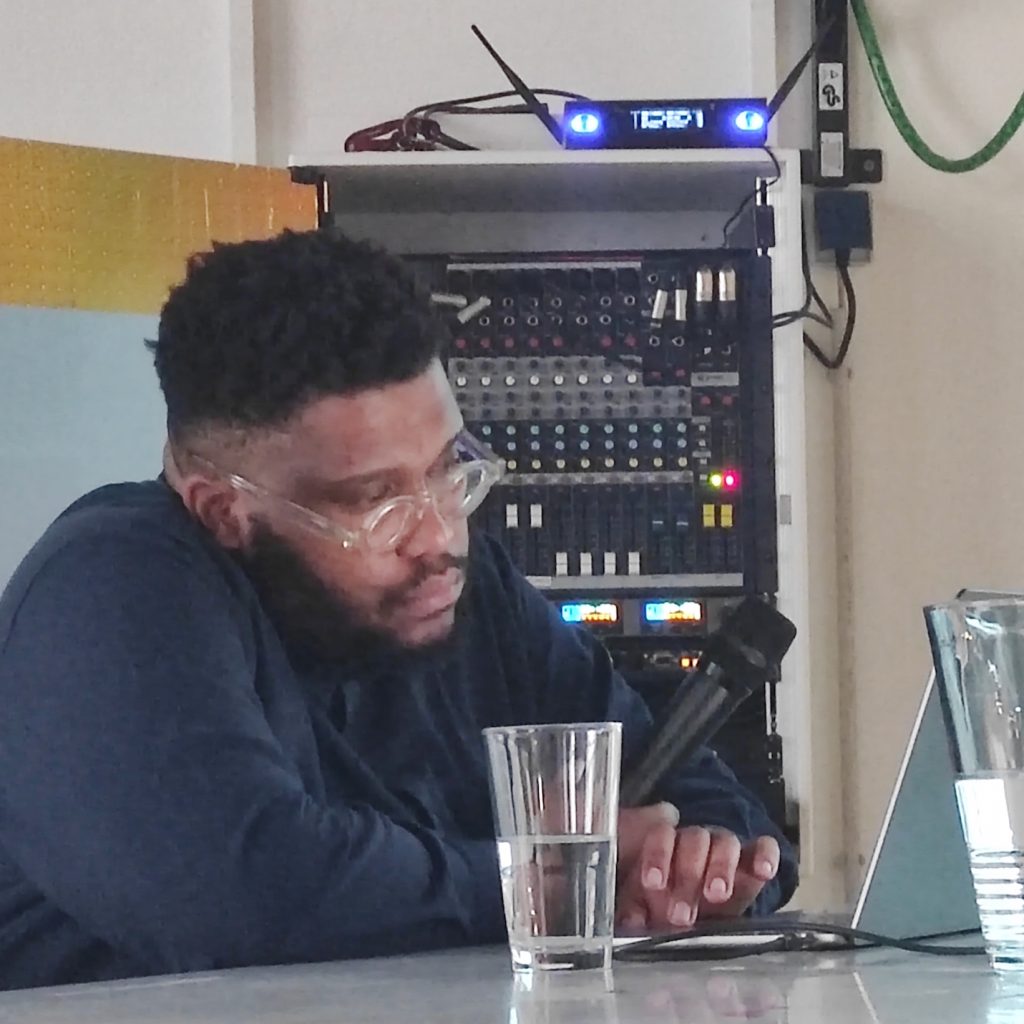
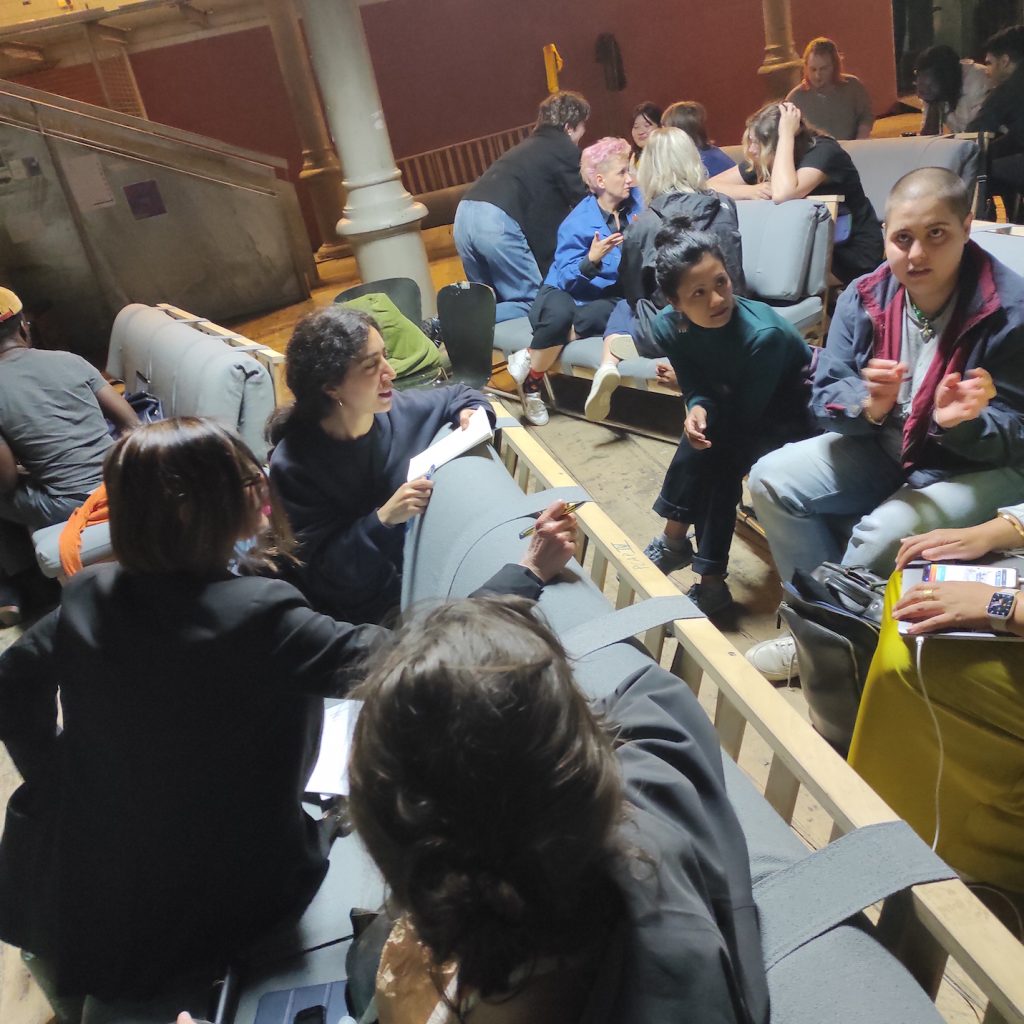
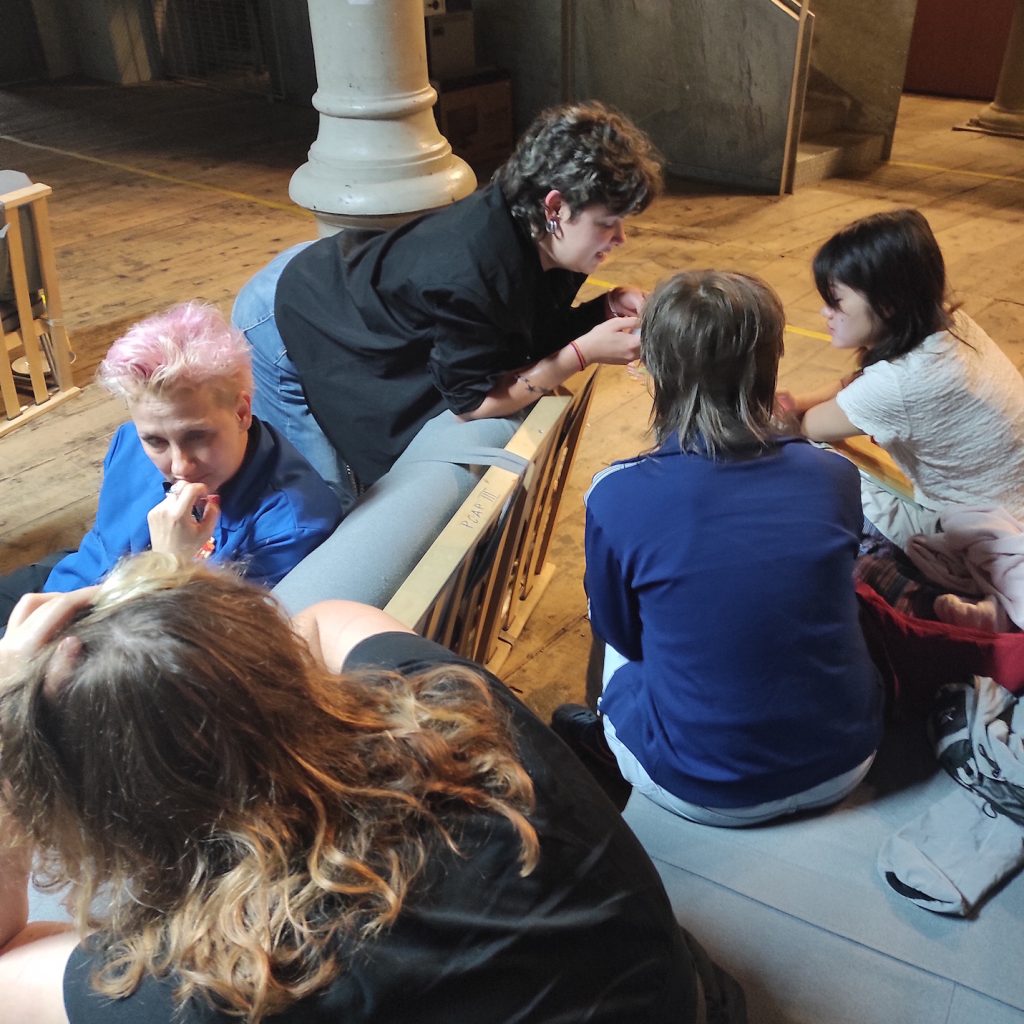
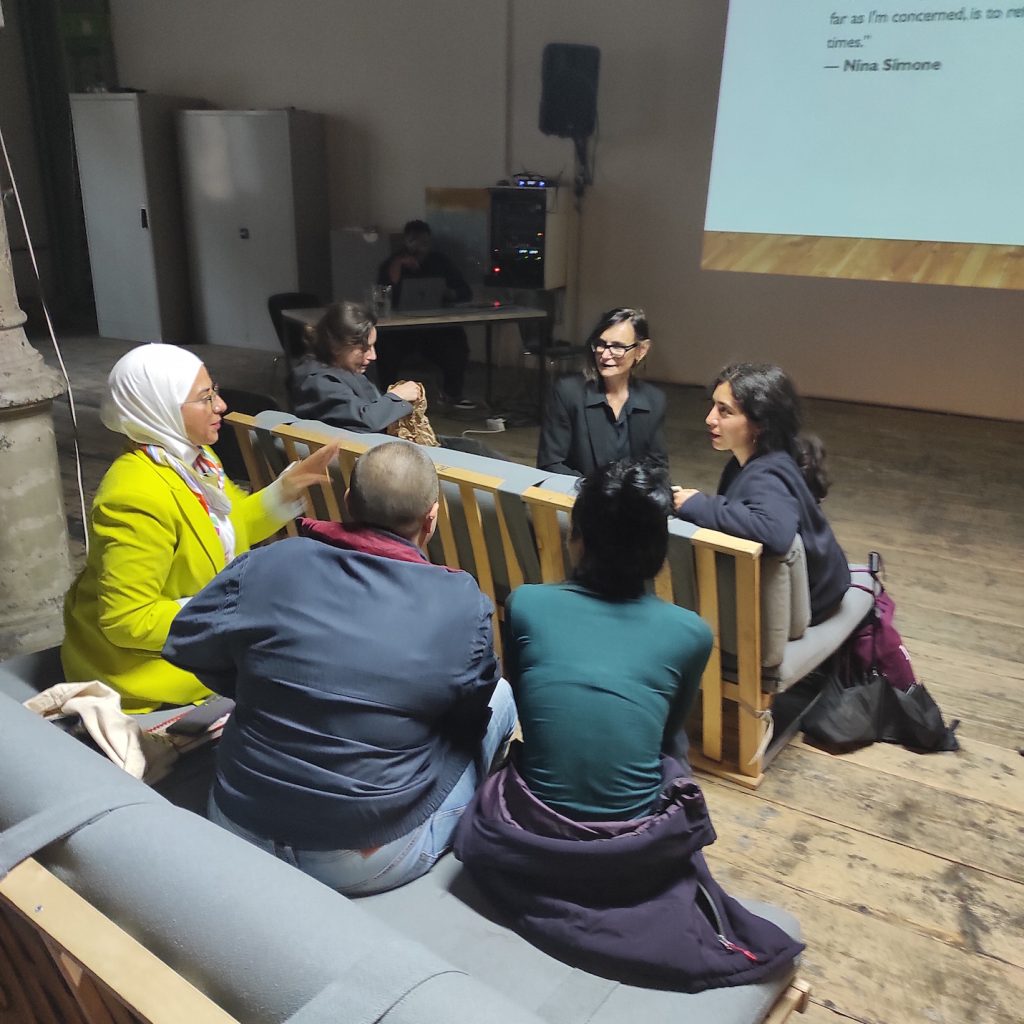
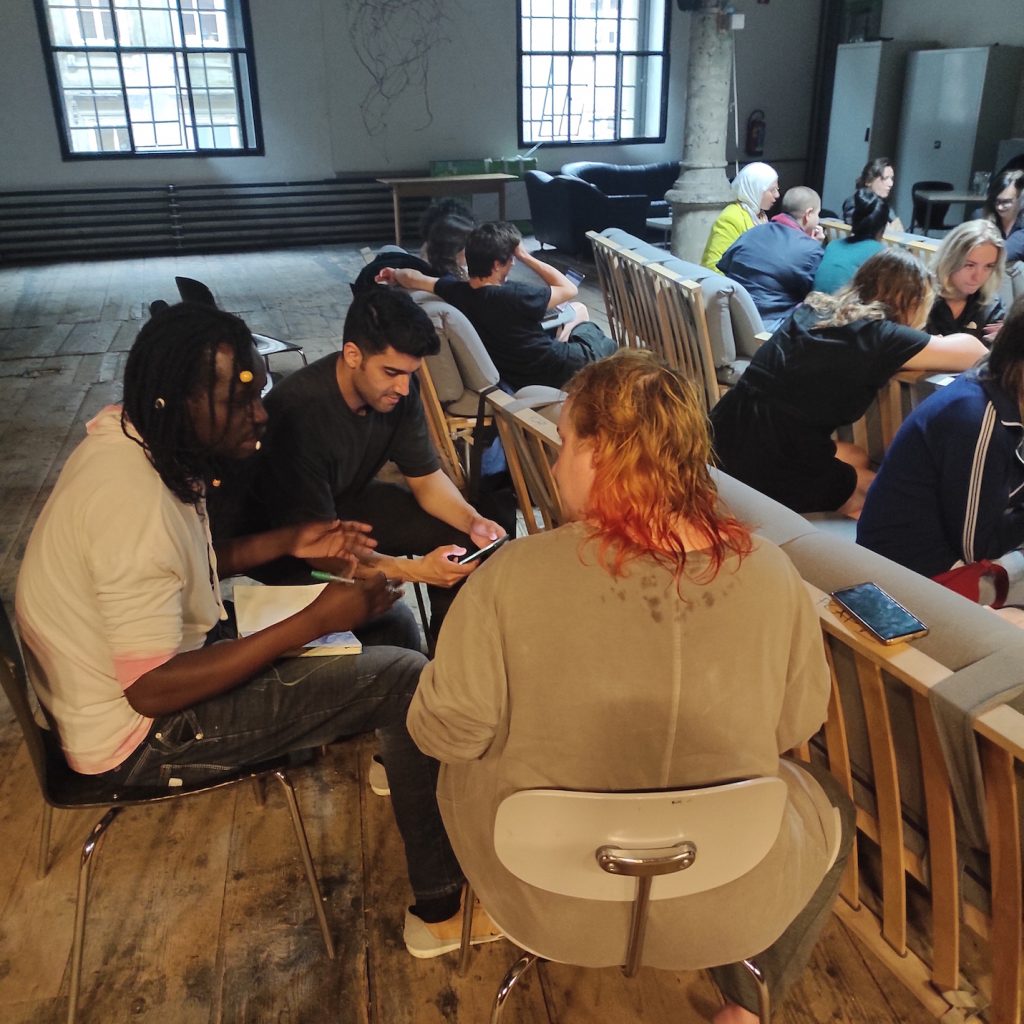
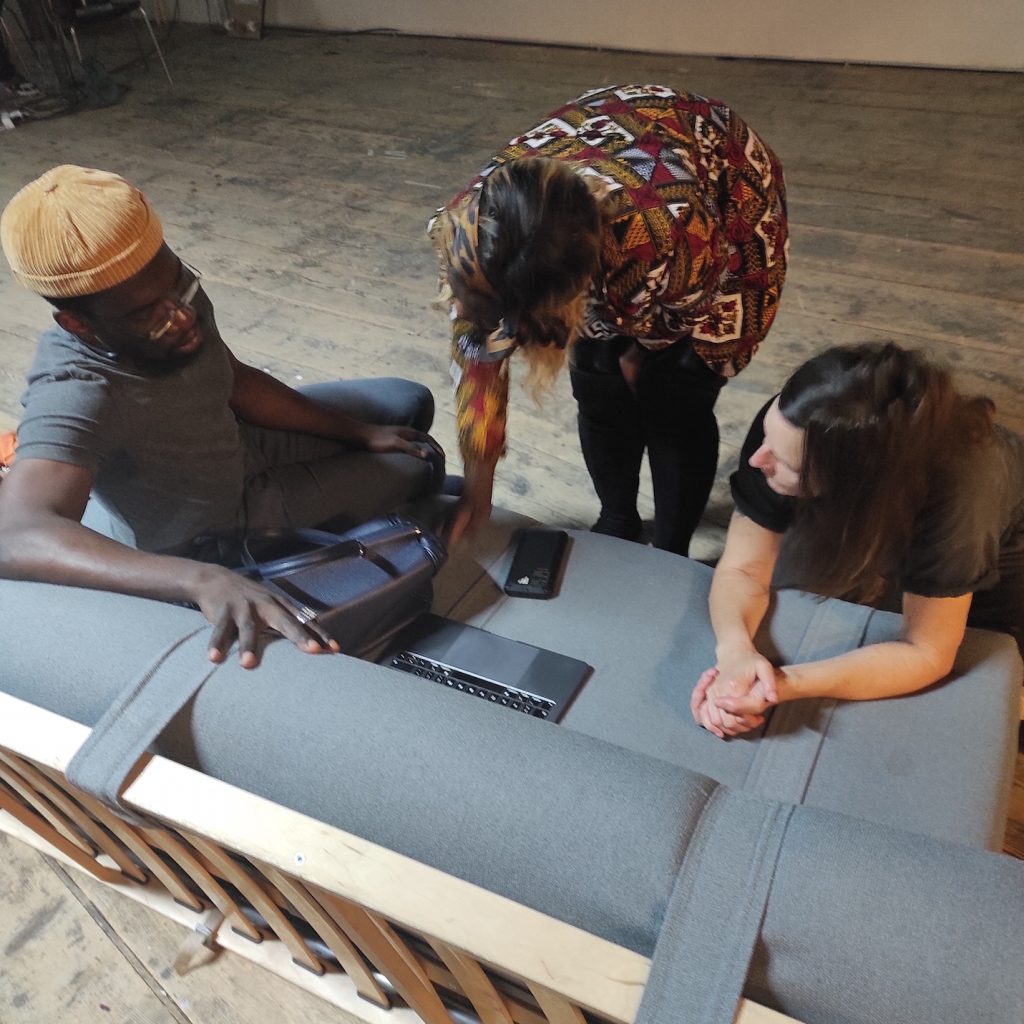
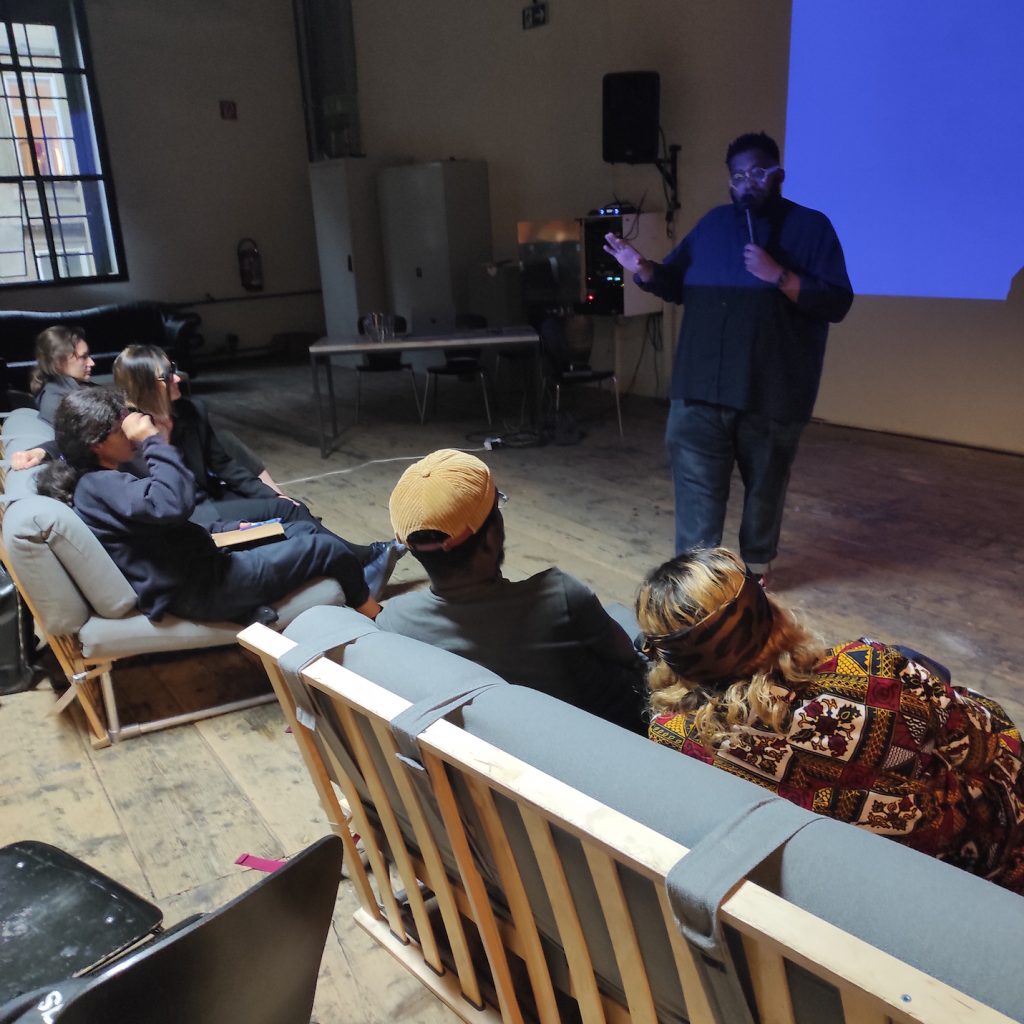
1–2/06/2024
ST. POLTEN DIARY
Löw*innenhof, St. Pölten
“Erinnerungsbedarf: Konferenz zum pluralen Erinnern in Migrationsgesellschaften”
The “Erinnerungsbedarf: Konferenz zum pluralen Erinnern in Migrationsgesellschaften,” held on June 1–2 , 2024, that was part of TangenteSt.Pölten, offered a profound exploration of the politics of memory in Austria’s multicultural society. This two-day conference engaged academics, community representatives, and artists in critical discussions about the visibility and invisibility of different forms of memory, highlighting the inherently political nature of remembrance.
Day 1 Highlights
The first day commenced at Rathausplatz St. Pölten with the inauguration of the contemporary Dynamic Memory Lab, an exhibition partaking in Austria for the first time, coinciding with the International Day of Remembrance for the National Socialist Genocide of Rom*nja and Sinti*zze. Curator Hamze Bytyçi from the Germany-based organization Romatrial opened his exhibition with a moving speech, emphasizing the importance of reflecting on and sharing “codes of memory” and contextualizing his exhibition in the St. Pölten historical context. The temporary exhibition, based on the artist’s MA thesis, showcases and reflects on cultural codes, stigmatizing, empowering or shaping diverse Rom*nja identities.
The afternoon session featured a networking meeting among various memory culture actors from Germany, Austria, and Switzerland, a segment exclusive to invited guests. Participants exchanged challenges within their contexts, reflecting on plural memory and questions surrounding practices of remembrance in urban settings.
The evening marked the start of the public program with the Conference Opening “Wessen Erinnerung zählt und wessen Bedürfnis deckt sie?” Memory is never just private. It is negotiated through monuments, state-sponsored events, political speeches, and cultural representations. This opening session, featured speeches by Martha Keil, Johanna Korneli, and the curator of the two-day conference Muhammet Ali Baş, along with a keynote by Max Czollek. The inputs questioned which memories shape our political and cultural present and the power dynamics currently shaping memory politics. The discussions underscored the significance of inclusive memory cultures and the dangers of insincere, instrumentalized remembrance, or what Max Czollek calls “Versöhnungstheater”.
The opening was followed by a panel discussion titled “Wessen Erinnerung fehlt, und wer kämpft für ihre Sichtbarmachung?” It examined the societal negotiations surrounding memory as well as historical continuities in the state violence against racialized people in Austria, Germany and Switzerland as well as violence against LGBTIQ+ people and communities. Moderated by Solmaz Khorsand, the panel included Samuel Mago (who discussed the Porajmos in Austria and the 1995 terrorist murder against Rom*nja in Oberwart), Ayşe Güleç (who discussed the systemic violence of the NSU murders and artistic interventions), Darija Davidović (who discussed the aesthetization of war in contemporary theatre), and Philipp Gufler (who spoke about his artistic projects dealing with queer and gay subcultures in the 1980s Germany and grasping the continuities in violence against LGBTIQ+ people). Together the panelists explored how artistic and cultural interventions can help foster a plural and democratic memory culture, as well as parallels and continuities in violent processes.
The day concluded with Lecture Performances from Simon Inou and Farid Hafez. Under the title “Made in Austria – Operationen und Skandale,” the speakers focused first on Operation Spring and then on Operation Luxor, highlighting systemic racist executive violence in Austria. The lectures by Simon Inou and Farid Hafez brought to light past and ongoing structural racism, emphasizing the urgent need for recognition and justice.
Musical reflections by Tayfun Guttstadt followed, eventually leading into a DJ set by a DJ from the Raqsouna collective.
Day 2 Highlights
The second day started early with guided tours and panels. I joined in the early afternoon to participate in a Zine Workshop by Nina Prader, where we created zines reflecting our intense engagement with memory.
Under the headline “Bedarf an Geschichten” or “Need for Stories” the evening program began with Readings, featuring texts by Marko Dinić, Milena Michiko Flašar, and Ralph Tharayil. Moderated and curated by Luca Kieser, the authors mentioned shared texts mapping their personal acts of remembrance, transcending national boundaries to intertwine individual life stories about assimilation, migration, identity, and border violence with broader transnational histories.
Next, the Panel discussion “Es ist Zeit – lass reden!” tackled the necessities for enabling memory. Moderated by Max Czollek, the discussion highlighted the importance of alliances for sustaining memory conversations. Together, panelists Frederek Musall, Eşim Karakuyu, Derviş Hızarcı, and Sheri Avraham explored the (im)possibilities of speaking openly in highly polarized discursive contexts.
The second day, again, concluded with final thoughts and a musical closing by Tayfun Guttstadt, followed by food and drinks, allowing for an opportunity to further discuss and reflect.
The “Erinnerungsbedarf” conference provided a crucial platform for discussing the complexities of memory in a postmigrant society. Through speeches, panels, workshops and creative performances, it highlighted the necessity of multivocal remembrance practices that acknowledge and honor the complex, ongoing power dynamics in our societies. (A. Neghabat)
13/05/2024
EMBRACING THE INTERNAL SOUTH
Akbild, Vienna
Empowerment in marginalised communities, Salam Oida and Zara (Zivilcourage & anti-rassismus-arbeit)
In the Studio Art and Intervention/Concept at IBK, Academy of Fine Arts Vienna, and as part of the research Conviviality as Potentiality, we met on May 13, 2024, to discuss the topic “Embracing the Internal South and Contributing to the Empowerment of Marginalized Communities through Art, Culture, and Critical Discussion.” The event featured a lecture by the Salam Oida Collective and ZARA – Zivilcourage & Anti-Rassismus-Arbeit. The lecture is part of the series “Conviviality & Criticality through Contemporary Art and Fashion. Learning from the South”,” organized by the Institute IKL/Prof. Gaugele and Art and Intervention/CONCEPT/Prof. Grzinic at the Academy of Fine Arts Vienna.
The concept of the “internal South” refers to the socio-political and cultural dynamics within a nation-state that reflect the global South-North divide, e.g. between marginalized and privileged communities. It recognizes that there are groups in every country that experience systemic disadvantages similar to those in the global South, despite being located in geographically and economically “northern” areas. This framework helps to highlight and address internal injustices, especially in nations where certain groups are marginalized due to their ethnicity, religion, or socio-economic status.
The initiatives of Salam Oida Collective and ZARA are an example of this approach and show how art and advocacy can intersect to bring about meaningful change. Engaging in critical discourse often leads to advocating for political change. Reflecting on the inner South means helping to empower marginalized communities through art, culture, and critical discussion. This is a multi-faceted approach to promoting equity and inclusion. By celebrating cultural expression and engaging in critical dialog, we can challenge systemic injustices, build resilient communities, and work towards a more just and empathetic society. Cultural projects can break down stereotypes and challenge the prejudices of wider society. Through meaningful images, narratives, and performances, cultural and civic initiatives provide safe spaces where marginalized people feel seen, heard, and valued. These spaces can be physical (such as community centers and galleries) or virtual (such as online platforms and social media).
Critical discussions are important to address the systemic issues that perpetuate marginalization. They enable communities to articulate their challenges, develop solutions, and advocate for change. Key aspects include: Educati ng those who are not part of marginalized communities and building a more inclusive society by educating, learning, and unlearning others about the reality of discrimination and the importance of solidarity. Critical discussions contribute to research and documentation efforts, such as ZARA’s reports.
The moderator of the event was Anahita Neghabat, and the speakers were Salam Oida Collective: Ines Mahmoud & Imen Bousnina (www.salamoida.at), ZARA – Zivilcourage & Anti-Rassismus-Arbeit: Amina El-Gamal (www.zara.or.at).
The presentations and discussions were inspiring and a call to action in terms of reflection, breaking down our stereotypes and recognizing young generations of empowered Austrians who bring with them a vision of a democratic and just society (M.Grzinic)
30/04/2024
TRAVESTI WANDERINGS AND OTHER MIGRATIONS
WOHLMUT, Vienna
Community event with two remarkable positions: Frau Diamanda & Pêdra Costa
On the evening of April 30, 2024, an insightful conversation unfolded at WOHLMUT, Vienna, under the auspices of a convivial clash of sexuality and marginality, performativity, sex work, and violence. Organized by Marina Grzinic, Oke Fijal, Melina Vesely, and Sen Reyes, this event, titled “Travesti Wanderings and Other Migrations: A Community Event,” featured the remarkable divas Frau Diamanda and Pêdra Costa. Together, they invited us on a dynamic, insightful journey into the heart of travesti culture and its intersections with sexual dissidence, history, knowledge, labor, migration, and coloniality.
Frau Diamanda and Pêdra Costa revisited all the listed categories and the processes of racialization in Europe in a performative live dialog. They explored what constitutes sexual dissidence and the meaning of the travesti identity, offering insights into the diverse social and political landscapes of Latin America.
Frau Diamanda (Perú, 1971) – a versatile artist and intellectual, Ms. Diamanda is known for her work as a translator, writer, audiovisual travesty artist, drag performer, independent curator, cultural instigator, DJ, and occasional actress in Barcelona. Pêdra Costa (Brazil, 1978) – a pioneering Brazilian performance and transdisciplinary artist, visual and urban anthropologist, performer, and tarot reader based in Berlin.
Attendees gained a deeper understanding of the strategies and anti-canonical knowledge from different Latin American countries that challenge conventional narratives. The event shed light on the history of colonialism by white imperial Europe and its contemporary manifestations, emphasizing its impact on the experience of travesti. This event was more than just a lecture; it was a creative exploration and artistic journey that shed light on important questions about identity, migration, and resistance. The conversation revisited crucial themes and brought forth a radical reimagining of sexual history, pleasure, power, and the processes of racialization within Europe (M. Grzinic)
18/04/2024
VIENNA DIARY
Tanzquartier Wien
Migration and Borders in the Global World: Convivial Coexistence?
On April 18, 2024 we organized and attended the thought-provoking panel discussion “Migration and Borders in the Global World: Convivial Coexistence?” Moderated by Marina Gržinić and held in cooperation with Tanzquartier Wien, the event featured insightful contributions from our Australian guests, scholars Suvendrini Perera and Joseph Pugliese, as well as from Amani Abuzahra, and Monika Mokre from Austria. The question mark following the event’s title points at the issue at hand: what could convivial coexistence in the context of necrocapitalism even look like? Is it even possible? And if so, how?
Suvendrini Perera and Joseph Pugliese opened the discussion by drawing on their book Mapping Deathscapes. They explored how narratives from Robert D. Kaplan’s Balkan Ghosts to the War on Terror have travelled and propagated the idea that multicultural environments are inherently unstable and prone to violence. Focusing on Australia, they discussed “insular thinking,” whereby Australia is imagined and conceptualized as an island with the ocean surrounding it serving as a barrier to non-white places and people. Using Australia as an example to understand also the violent deaths in the Mediterranean Sea.
Perera and Pugliese then referenced Mahmoud Mamdani’s concepts from Neither Settler nor Native, emphasizing colonial power dynamics present in the notion of the “junction” as both, a site of violence and a space for convivial living. Pugliese further highlighted the concept of transversality in the Mediterranean context, provocatively asking what it would mean to envision Sicily and Calabria as extensions of Africa, considering Italy’s colonial projects. Summing up, the scholars emphasized the etymology of “conviviality,” linking it to “com-passion” and “com-panion,” inviting the audience to think of conviviality as a meeting on equal grounds, breaking bread together, rather than hierarchical guest-host dynamics. Finally, they introduced the term “co-resistance,” originating from Palestinian and Jewish co-resistance effort for a possible life of togetherness, describing what Perera and Pugliese call “vigilant solidarity,” meaning that from different positions we will still work against the same structures.
The second input was by scholar Amani Abuzahra, who traced the legacies of Orientalism and anti-Muslim racism in Austria, analyzing how media representation shapes societal power dynamics and identities, fostering divisive “us versus them” mentalities. Starting from children’s books, she outlined how anti-Turkish, anti-Muslim, and anti-Black stereotypes are constitutive of contemporary Austrian identities exploited and fostered by populist parties in the present. Abuzahra further traced how, throughout Europe, Islamophobic tropes and anxieties have informed supposed “security policies” in recent years, thus highlighting the role of emotions particularly fear and hatred in contemporary political developments.
Monika Mokre concluded by examining the concept of “solidarity,” questioning what it means to be “in solidarity” with refugees amidst stark power imbalances. She explored the etymology of solidarity, emphasizing the notion of joint responsibility, encapsulated in the phrase “one for all, all for one.” Mokre critiqued national solidarity, arguing that while it was once economically necessary for cohesion, it has increasingly become destructive due to its violent exclusions. She then analyzed class solidarity, highlighting that it is often practiced as charity, a notion the refugee movement in Austria has contested with the slogan “We demand rights, not charity.” Reflecting on Perera’s and Pugliese’s discussions, Mokre proposed co-resistance and conviviality as potential responses to the challenges of solidarity amid significant power disparities. Finally, she asserted that true solidarity must embrace the potential for conflict, as it is only through these struggles that genuine, equitable relationships may be formed.
This panel provided a rich dialogue on how convivial coexistence might be re-imagined and achieved, the challenges and (im-)possibilities in a world marked by profound inequalities and ongoing colonial violence. The panel was followed by a lively discussion with members from the audience, who in some cases agreed, in others contested and sometimes built upon the presented ideas. After a rich two and a half hours, the event was formally closed but lively discussions continued at Tanzquartier Wien, where participants and audience members shared snacks, drinks, and thoughts—or in other words: broke bread. (A. Neghabat)
17/04/2024
VIENNA DIARY
Bibliobox, Vienna
A critical nexus of scholarship, activism, and pointed reflection
The discussion and community event with Suvendrini Perera and Joseph Pugliese and on their groundbreaking book, Mapping Deathscapes: Digital Geographies of Racial and Border Violence, held at the bookshop Bibliobox in Vienna on 17.04.2024 was a critical nexus of scholarship, activism, and pointed reflection.
The event brought together diverse voices to discuss and deepen the book’s profound insights and shed light on the realities of deaths and racial violence. The atmosphere was characterized by a desire for understanding and action. The evening began with a round of introductions where participants and members of the community introduced themselves. We then began with a reading and presentation of Mapping Deathscapes, which was strategically divided into different sections throughout the evening. This approach allowed for a more thorough exploration of the book’s core themes and an ongoing discussion and reflection among participants.
Mapping Deathscapes is a transnational digital humanities project that meticulously maps sites and patterns of deaths in custody, in police prisons and immigration detention centers in North America, Australia and Europe. This mapping is not only geographical, but also deeply political. It challenges the invisibility of these violent geographies and argues for a profound reckoning with these places of death.
Later in the evening, activists from various organizations working with refugees, border politics and community-based initiatives shared their reflections on the readings. Their perspectives, based on their direct experiences with these issues, added an invaluable layer to the discussion. They offered insights into the ways in which the themes explored in the topic resonate in an Austrian and wider European context.
A significant part of the discussion was dedicated to the notion of transnational solidarity networks as forms of collective resistance. This concept, inspired by the book, sparked a lively dialog among the participants. We grappled with the harsh reality of European borders and discussed the forms of violence inflicted on migrants and refugees, including the often overlooked sexual violence and deaths of thousands in the Mediterranean. One particular moment was when we reflected on the role of scholar-activism.
This event highlighted the power and responsibility of scholars to not only document and analyze, but to actively advocate and resist. We discussed the importance of recognizing our privilege and the positions of power we hold and thinking about how we can make an impact to effect meaningful change. The evening ended with a discussion about the need to name and address the systemic oppression that often goes unspoken. (A. Aiad)
15–20/04/2024 PHOTO DIARY
RESEARCH EXCHANGE AUSTRALIA: Coming to Vienna
Akbild, Vienna and other venues
18/04/2024 Panel discussion “Migration and Borders in the Globalised World: Living Together in Conviviality?” with Suvendrini Perera, Joseph Pugliese, Amani Abuzahra, Monika Mokre and Marina Gržinić, Tanzquartier Wien
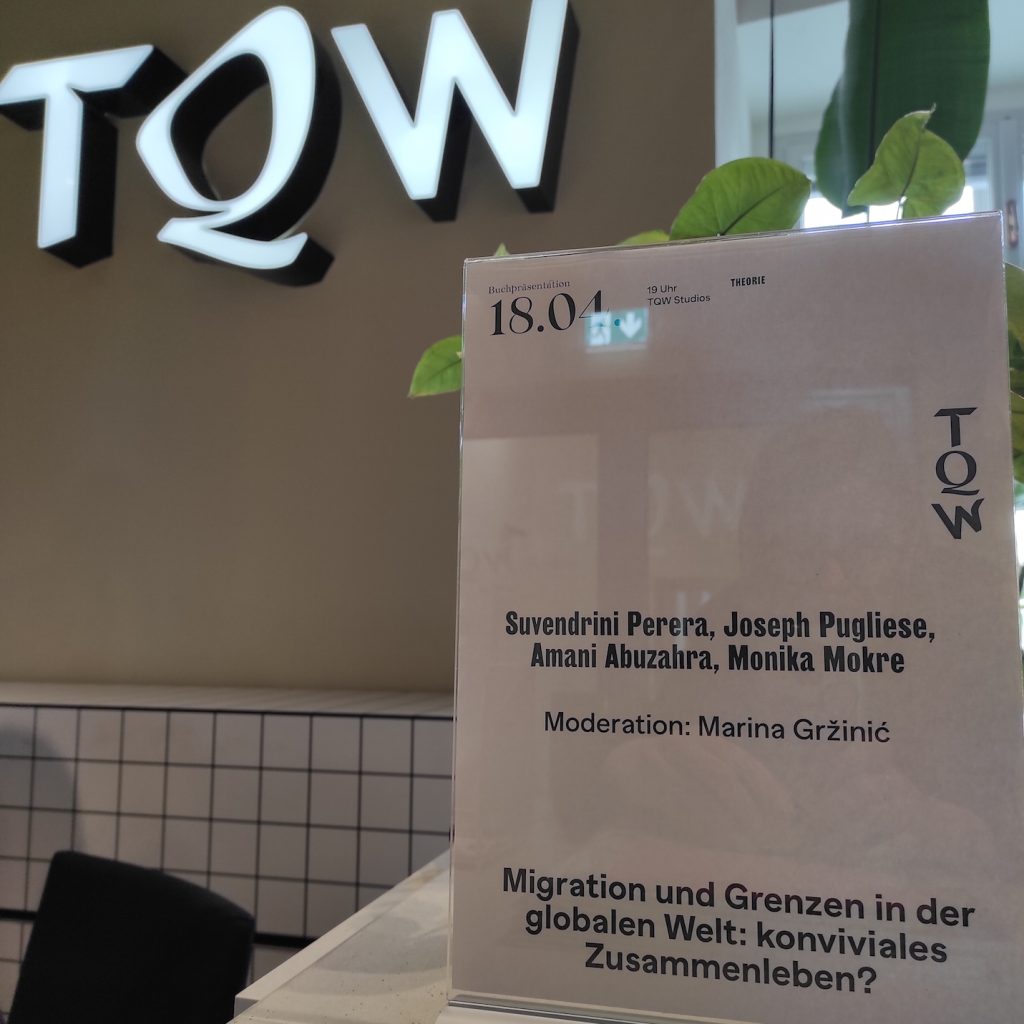
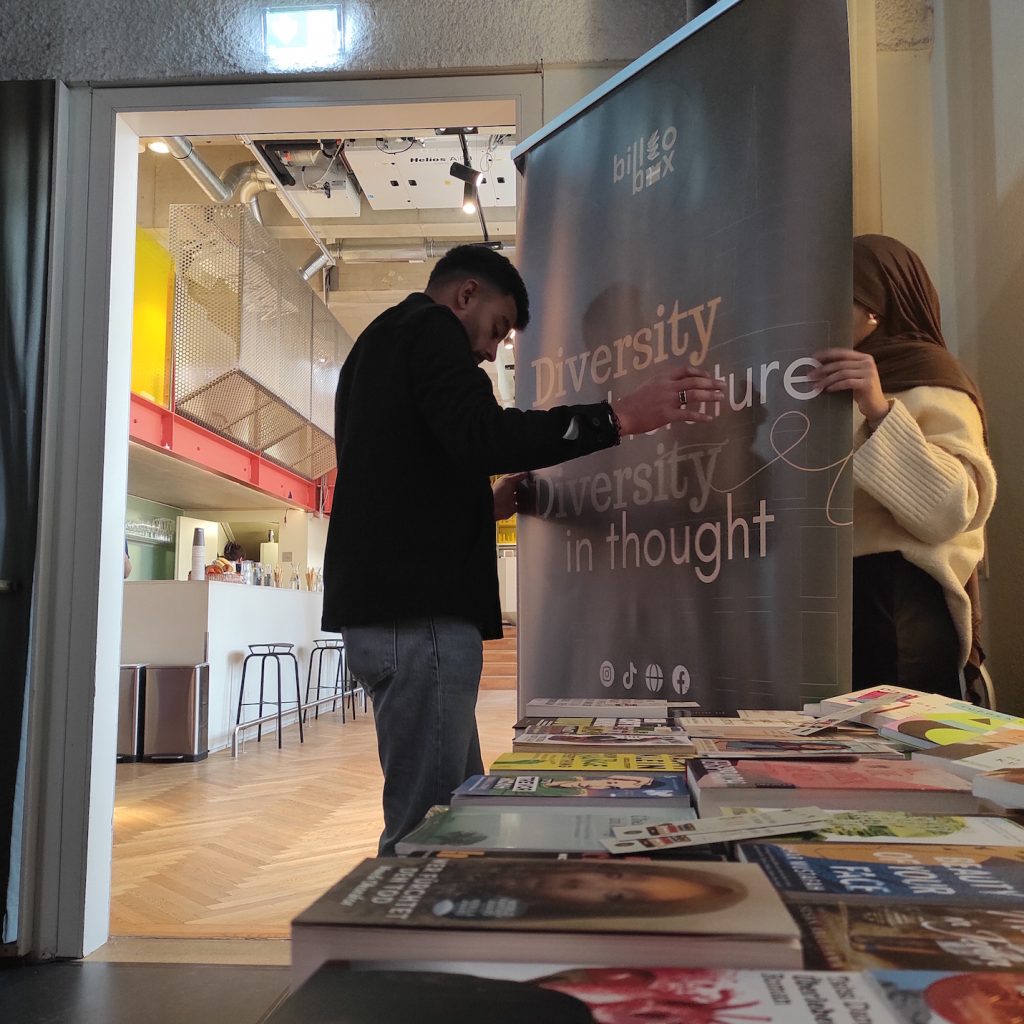
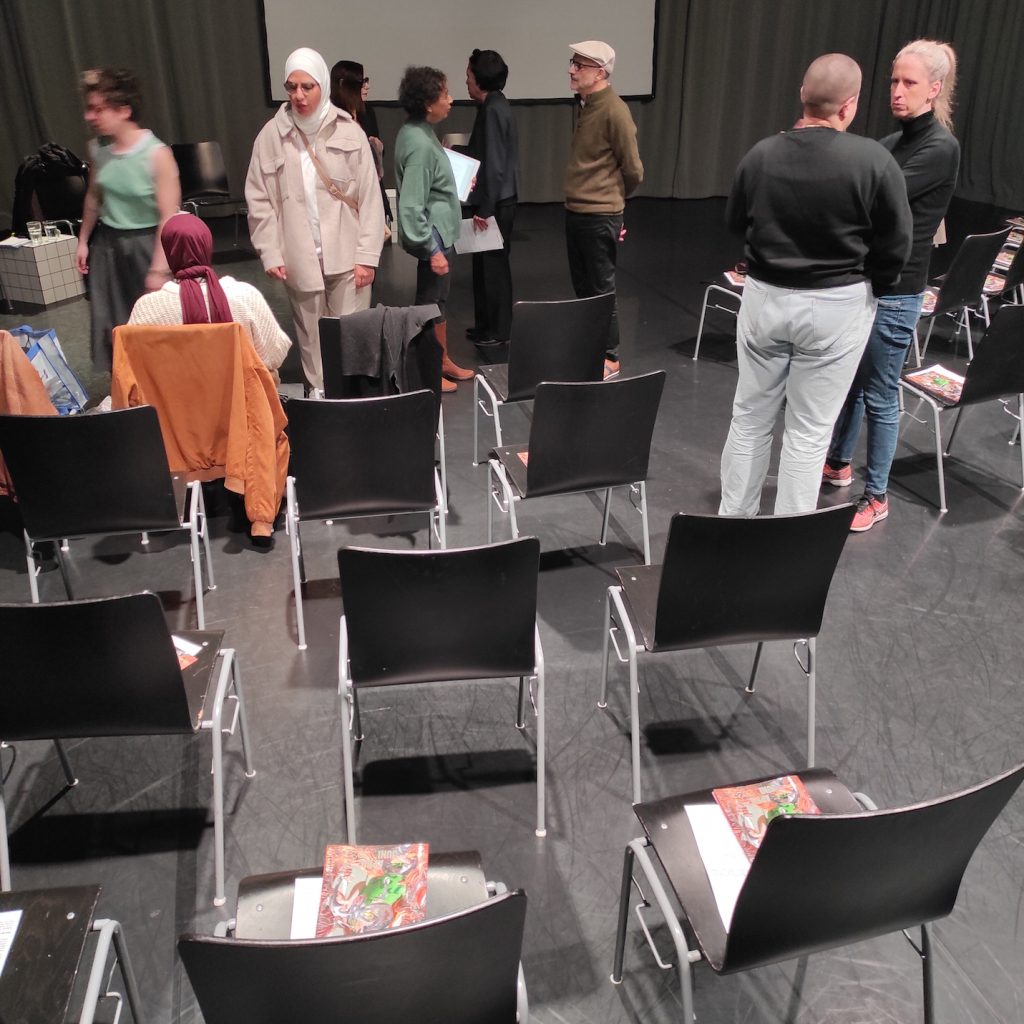

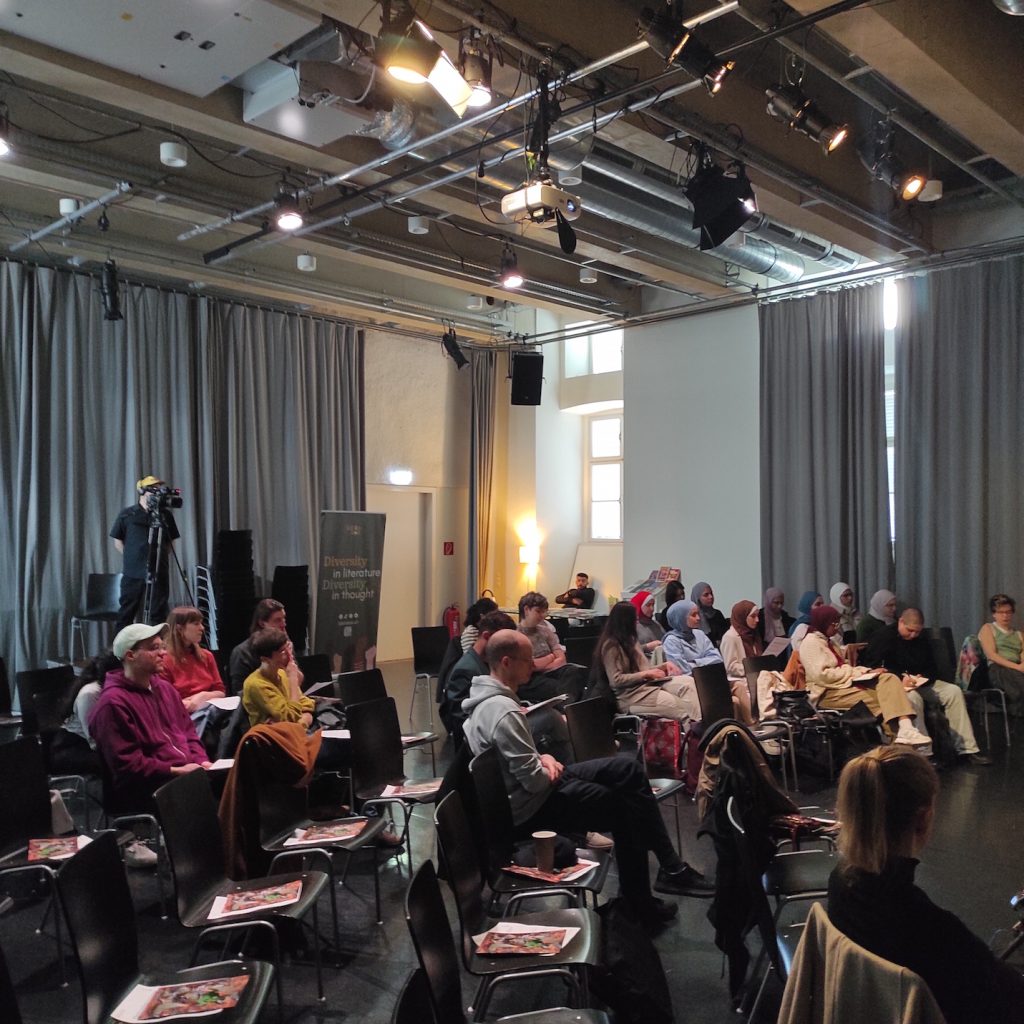
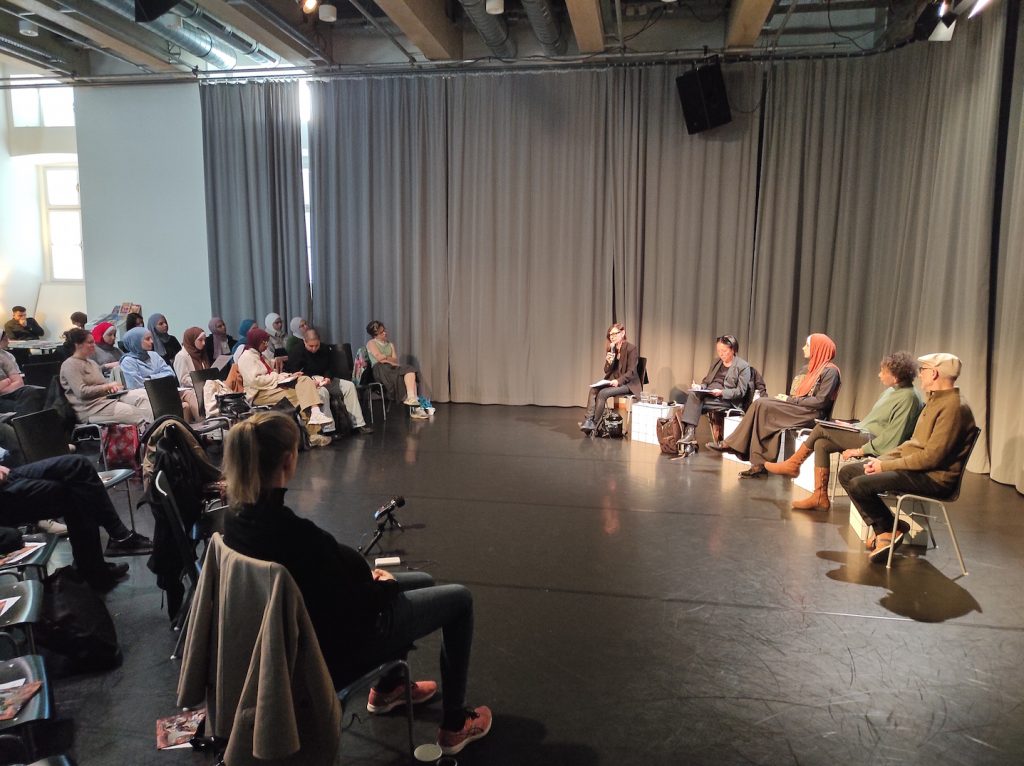
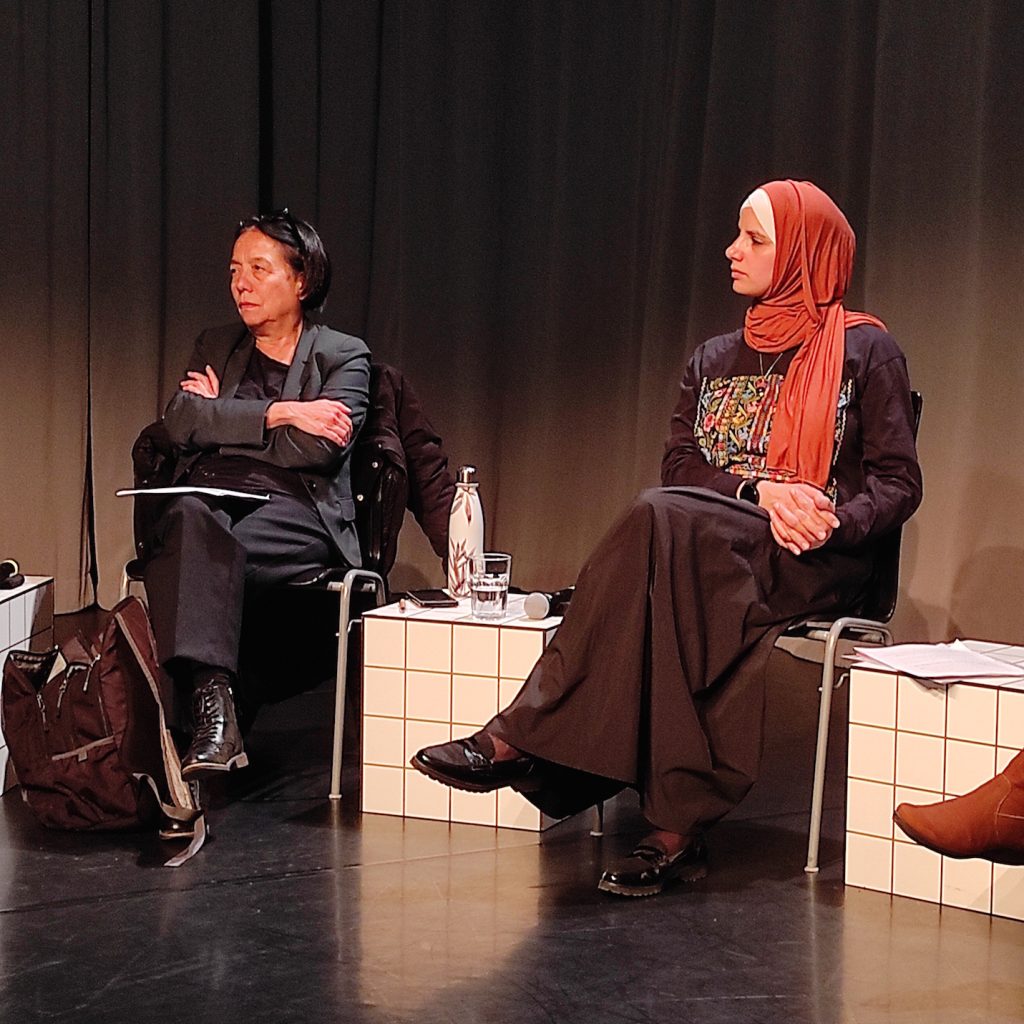
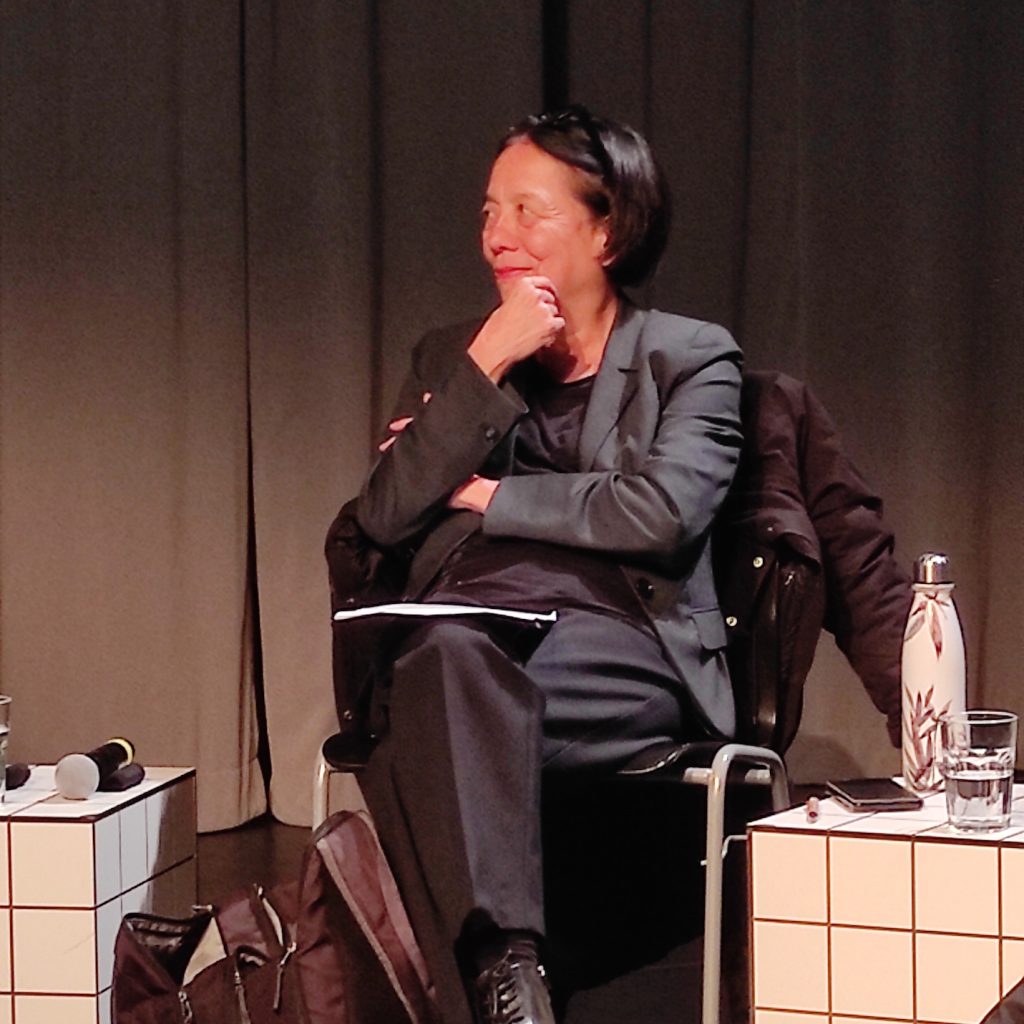
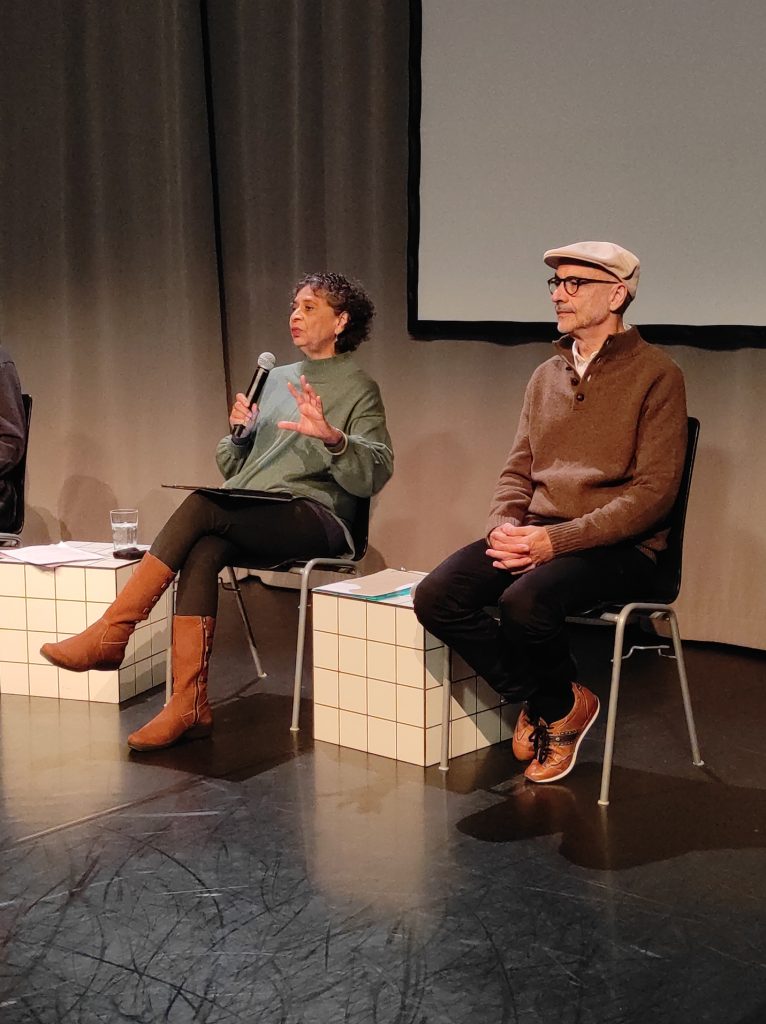
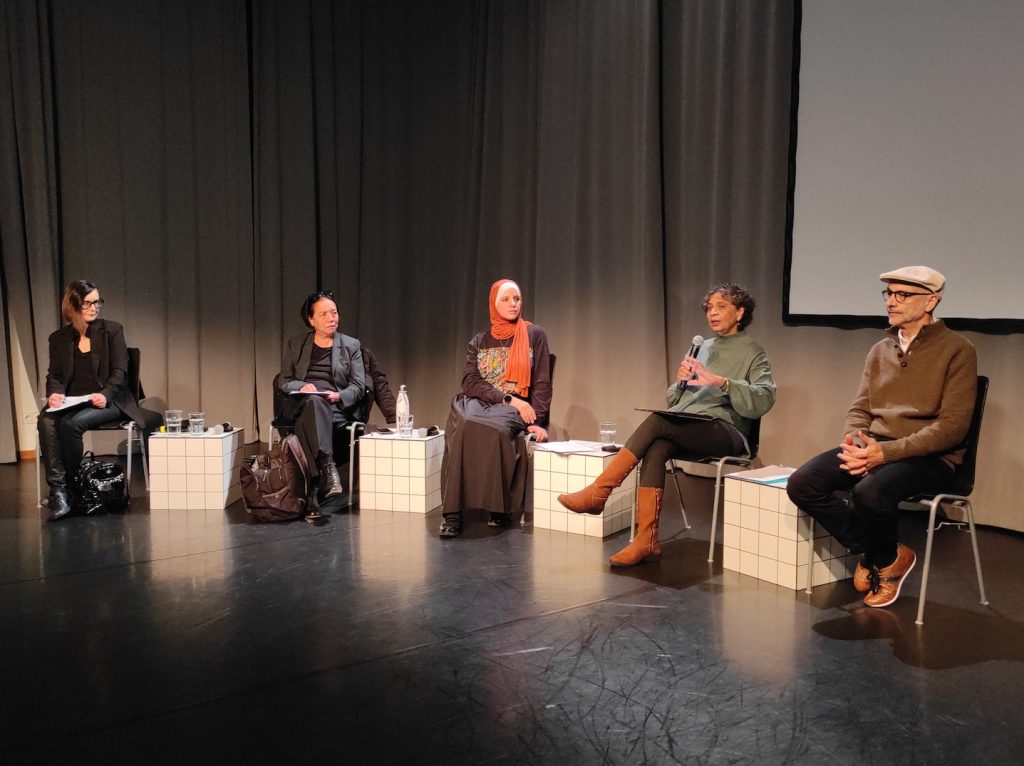
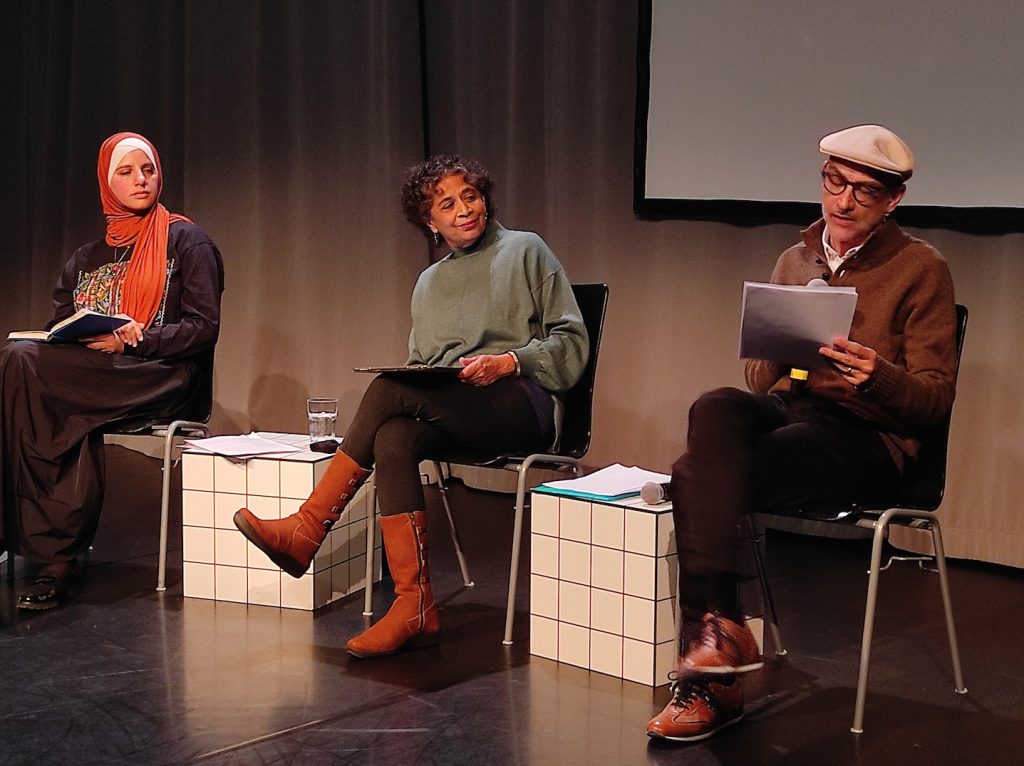
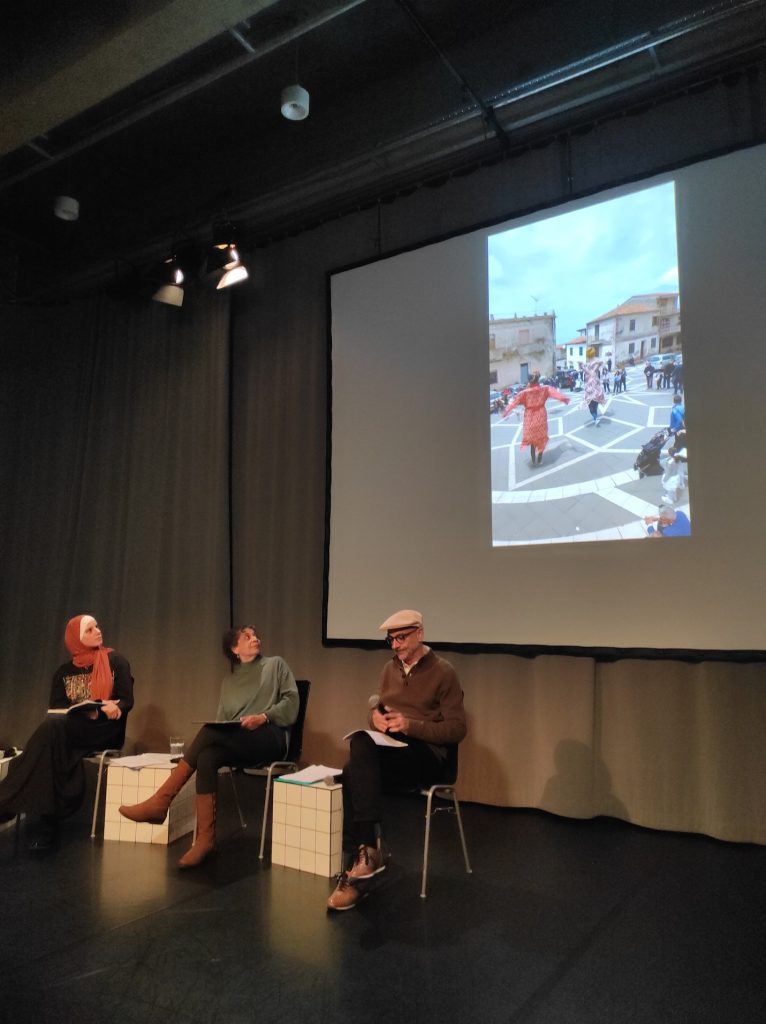
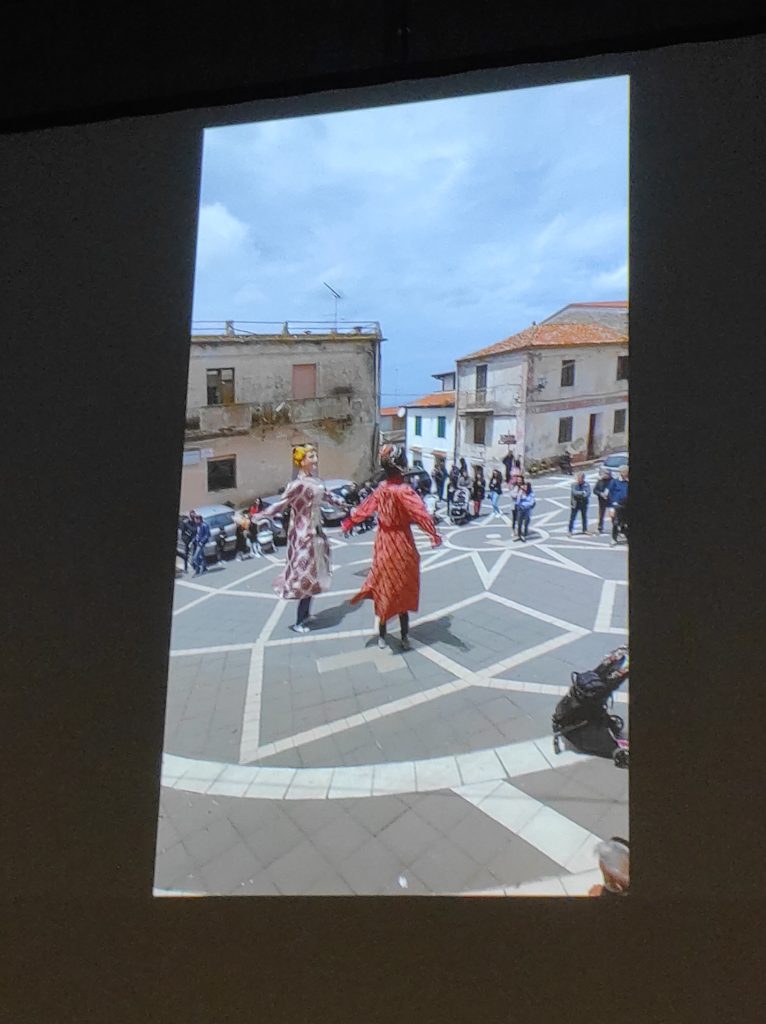
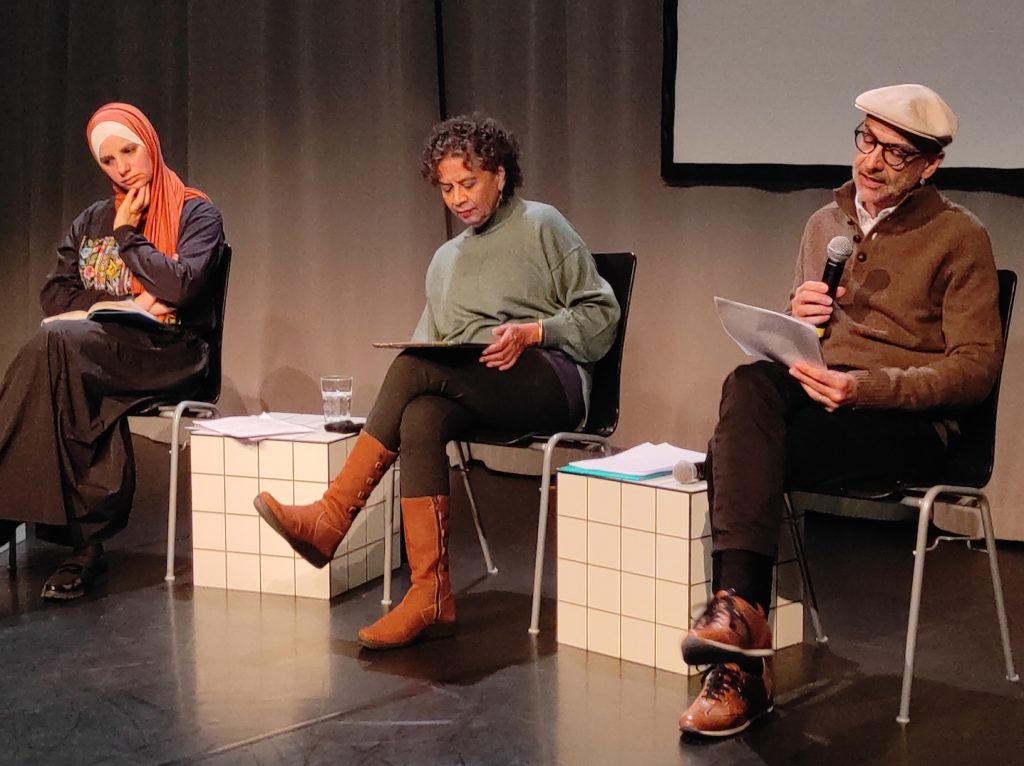
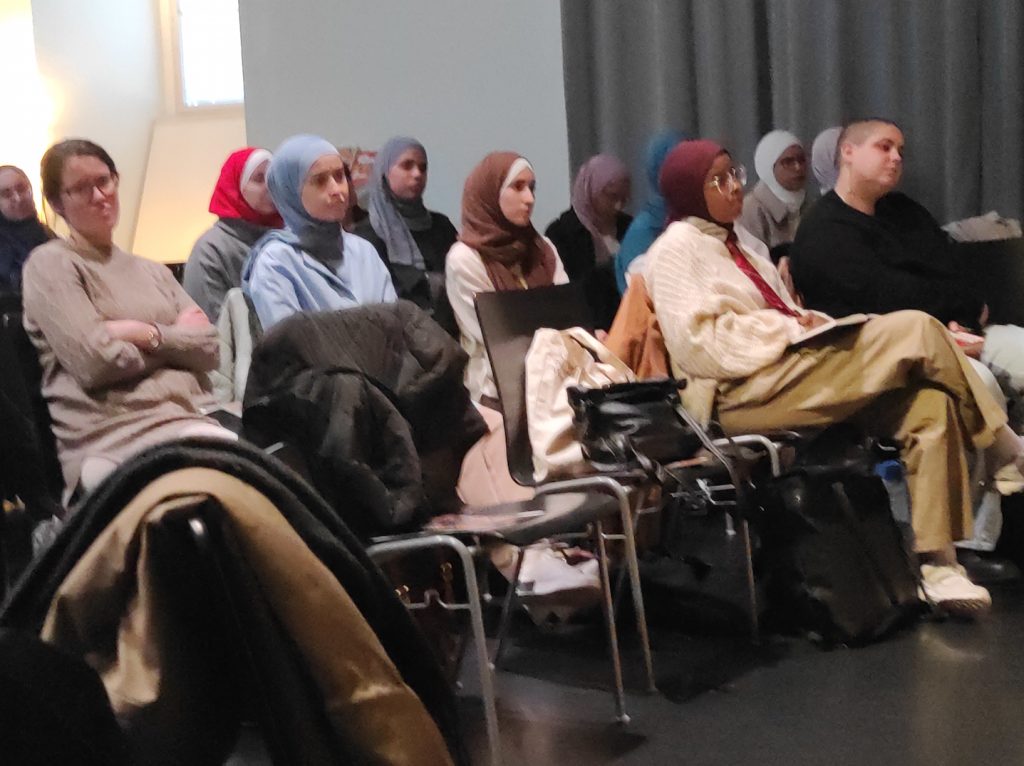
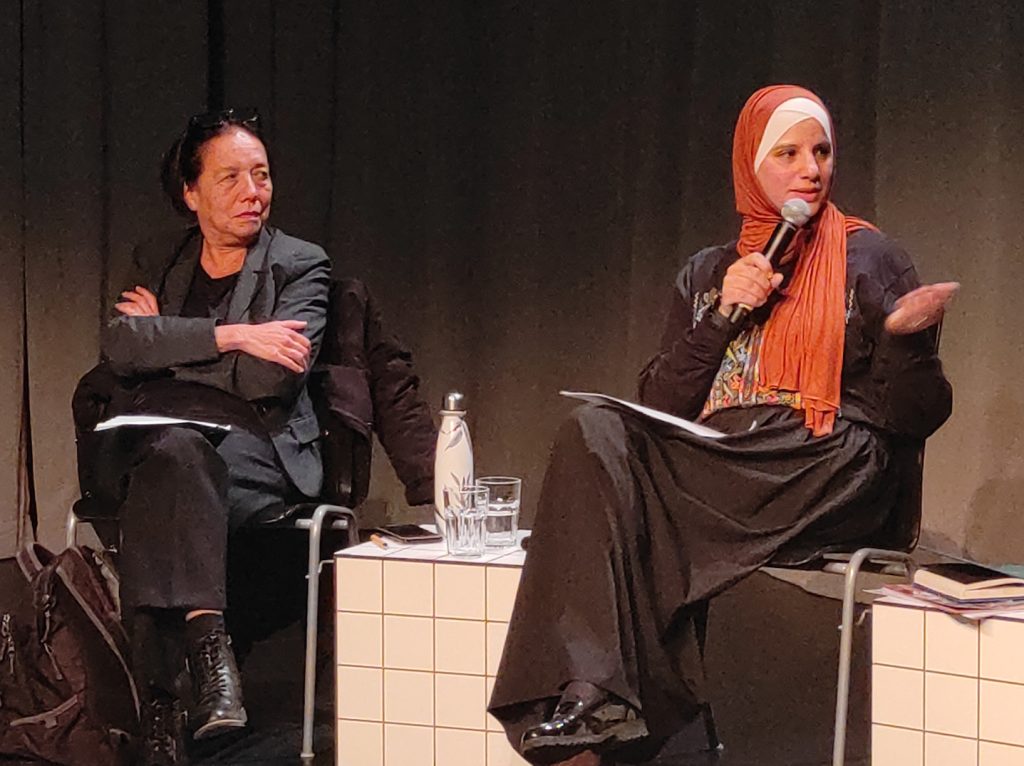
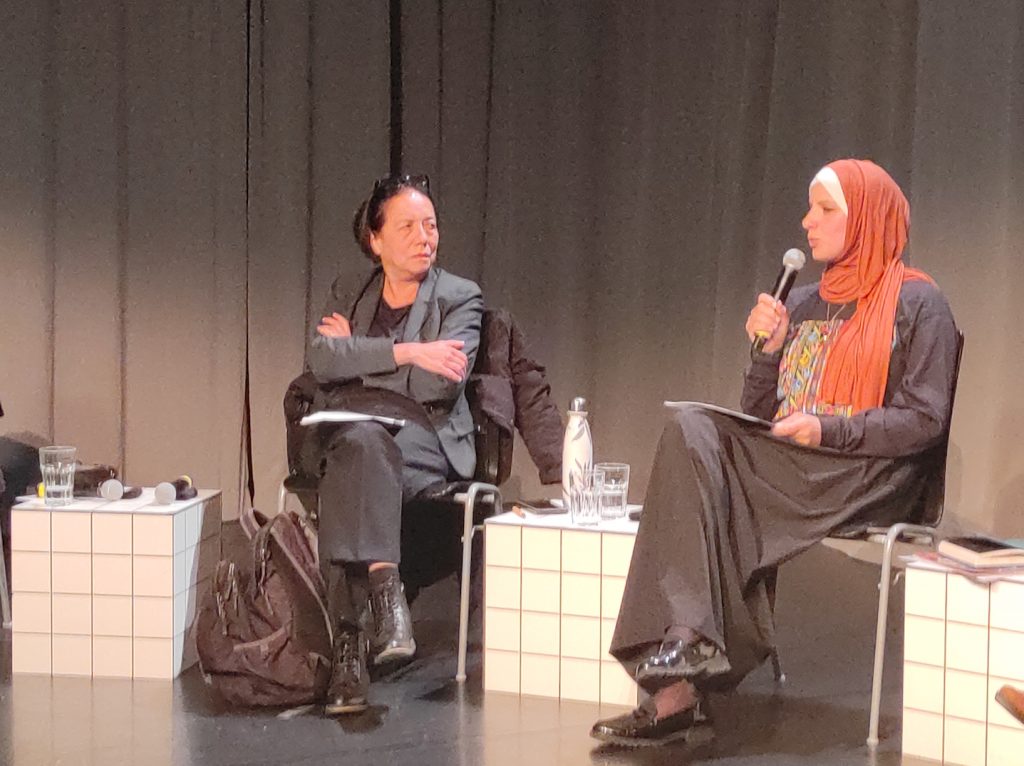
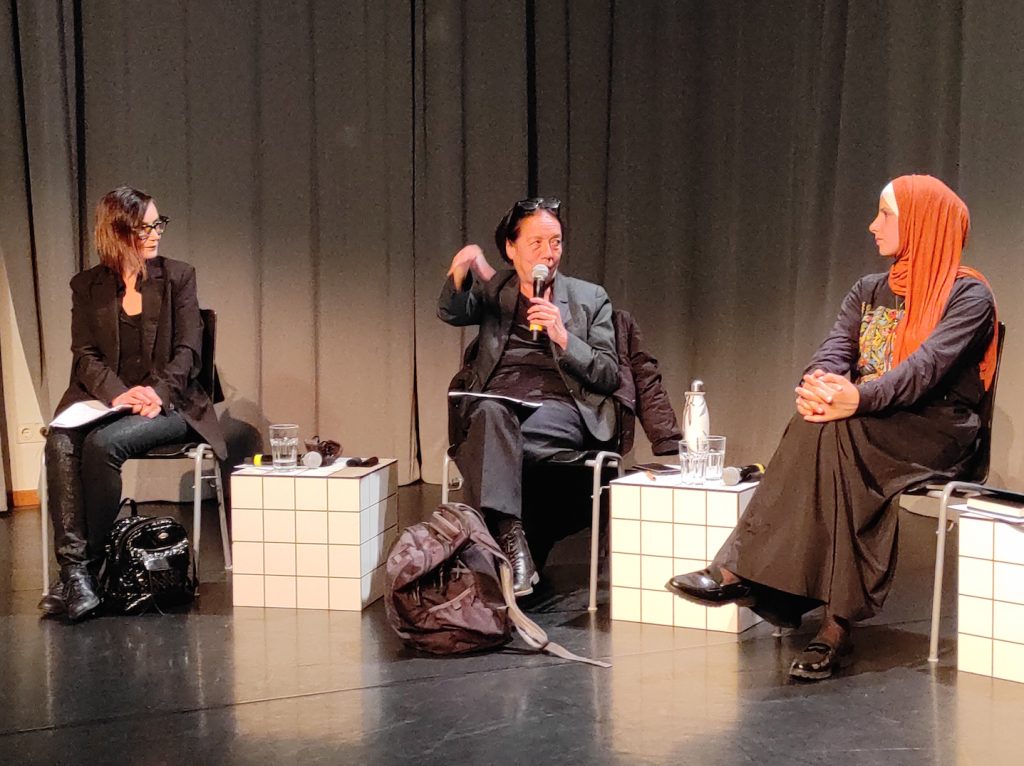
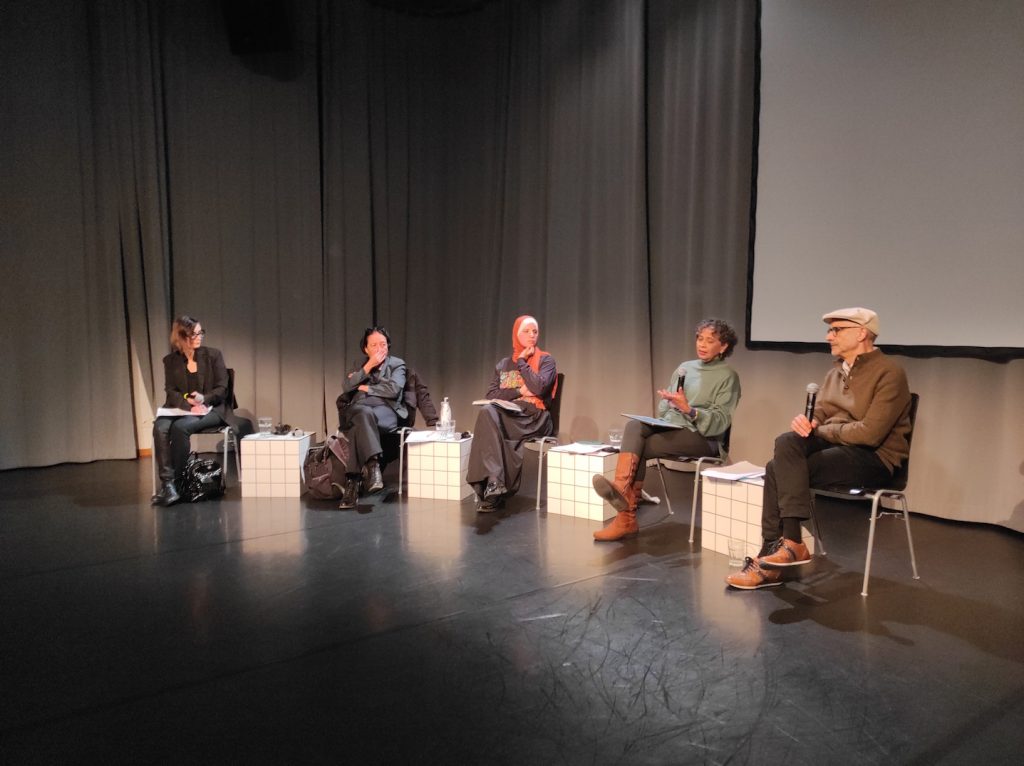
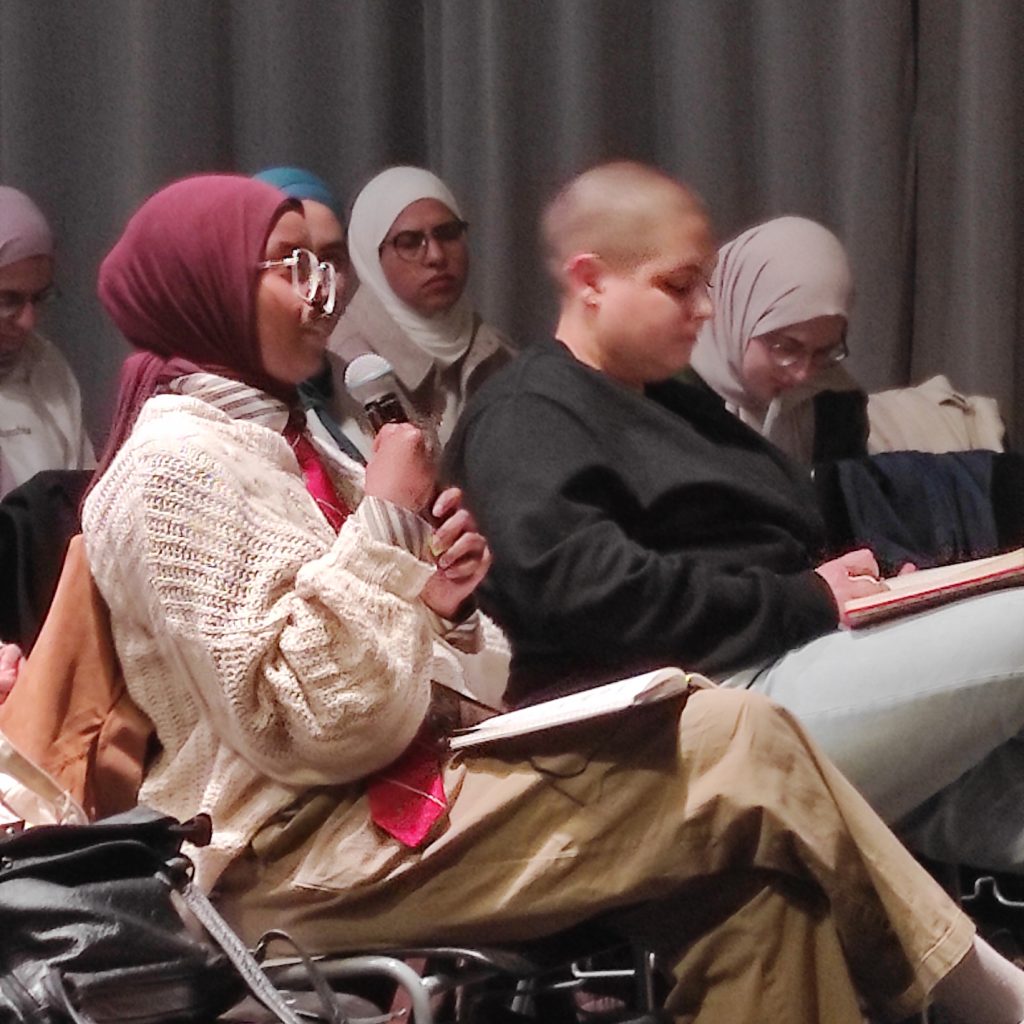
17/04/2024 Bookshop discussion with Suvendrini Perera and Joseph Pugliese (eds.) on Mapping Deathscapes: Digital Geographies of Racial and Border Violence (Routledge, 2022), Bibliobox
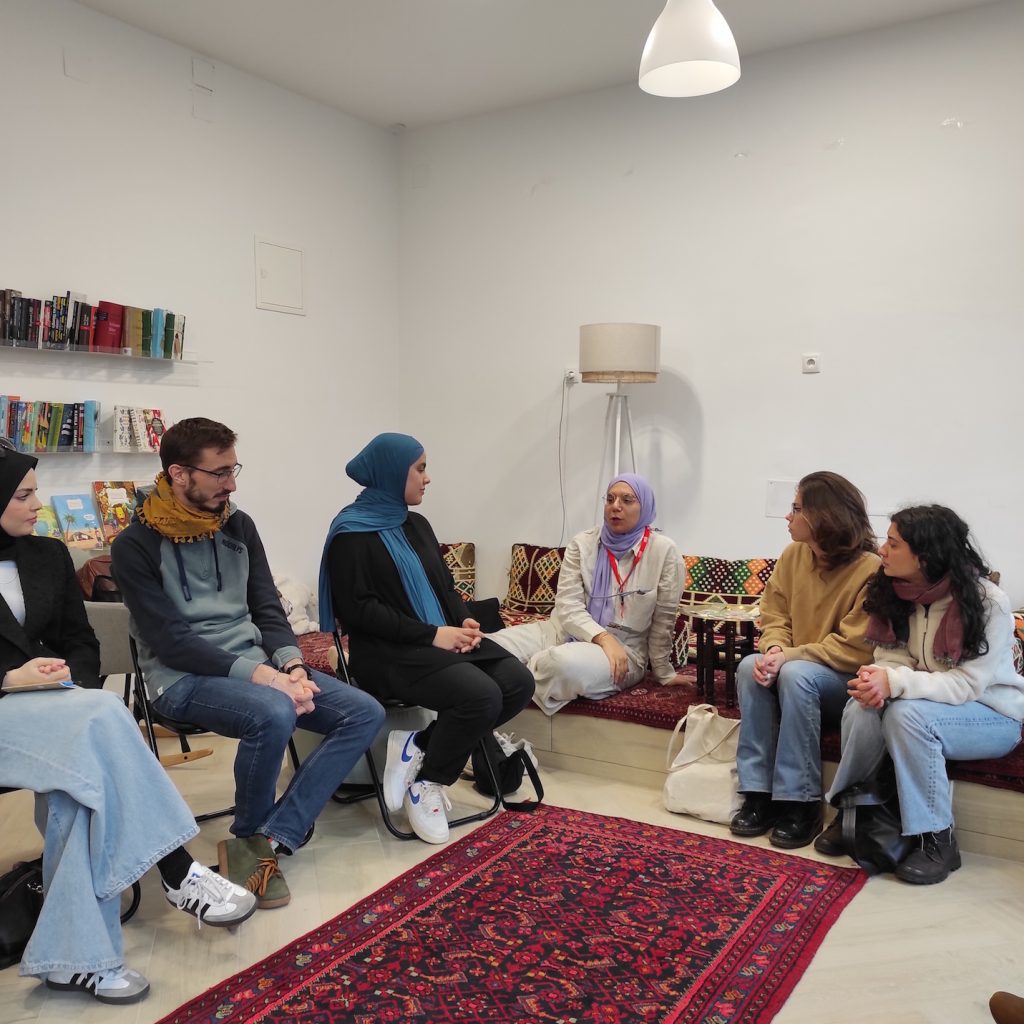

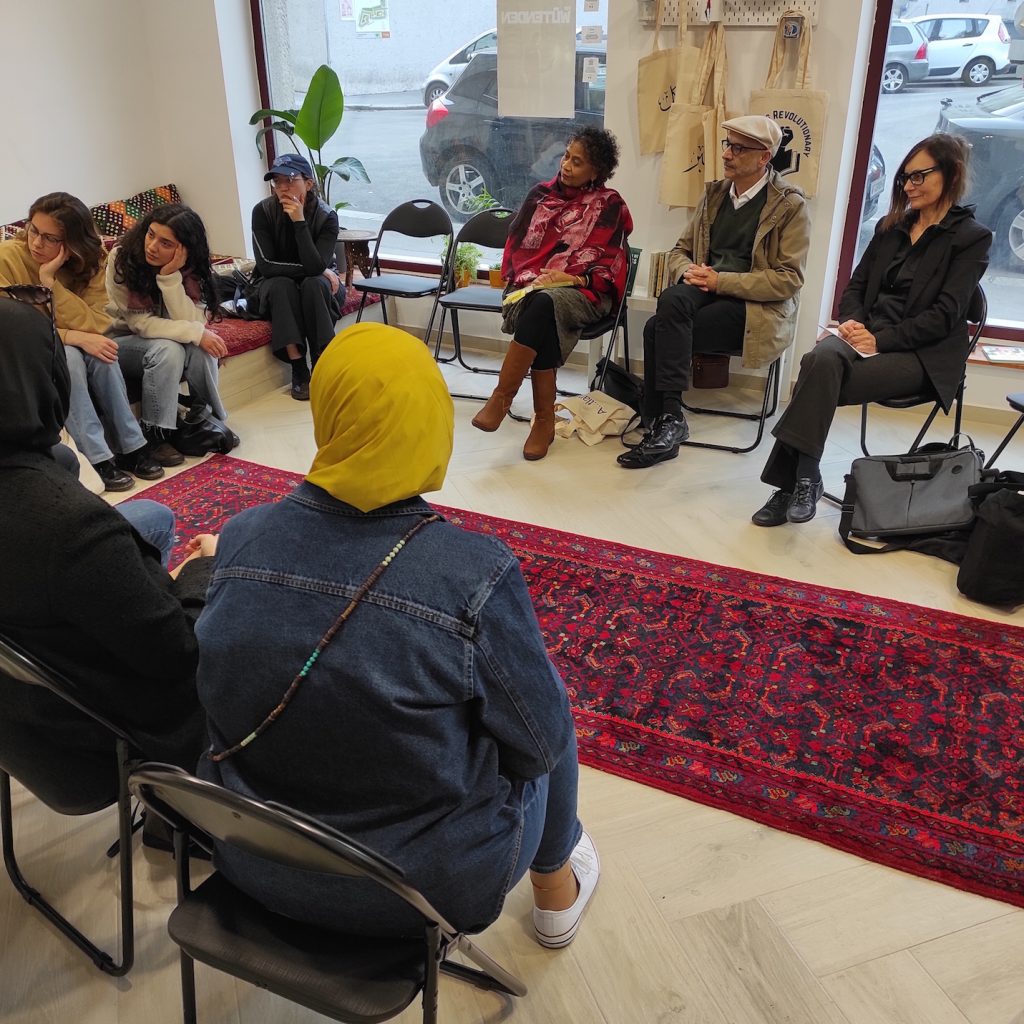
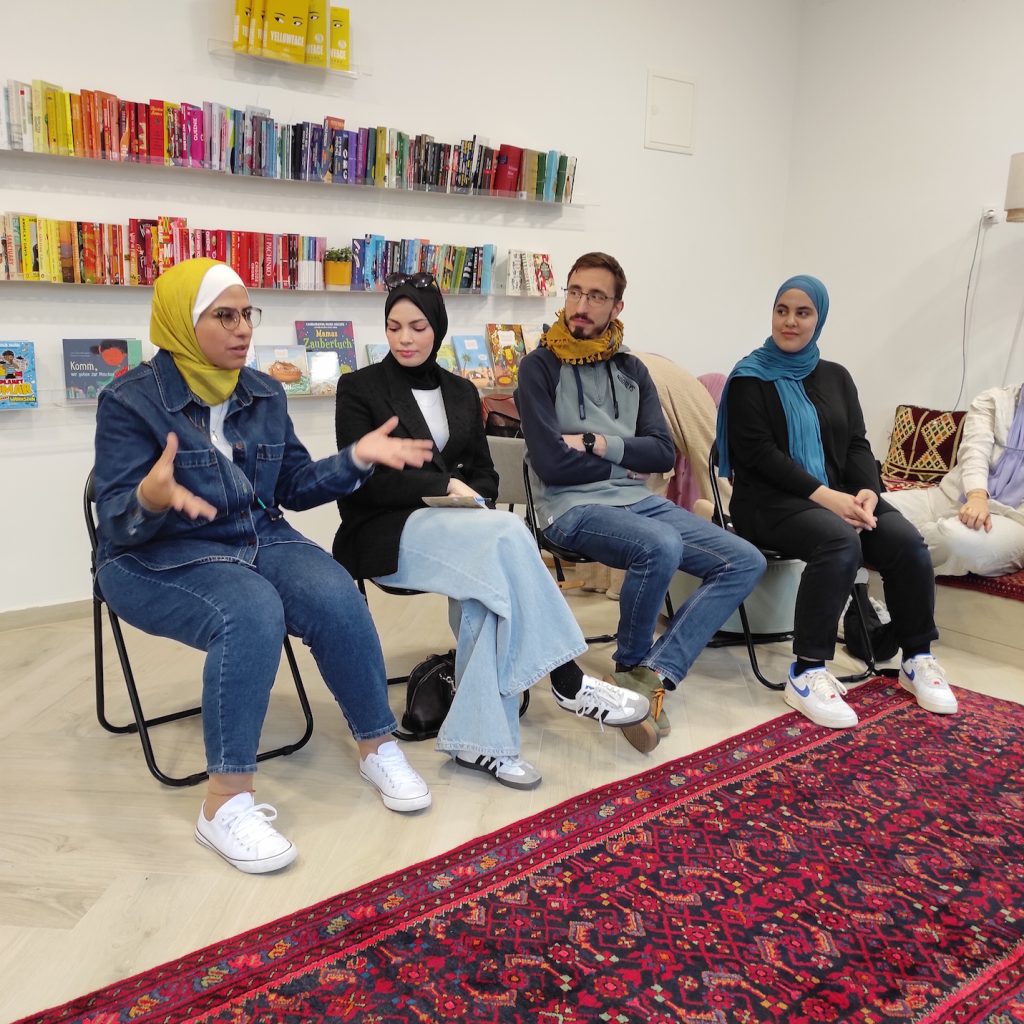
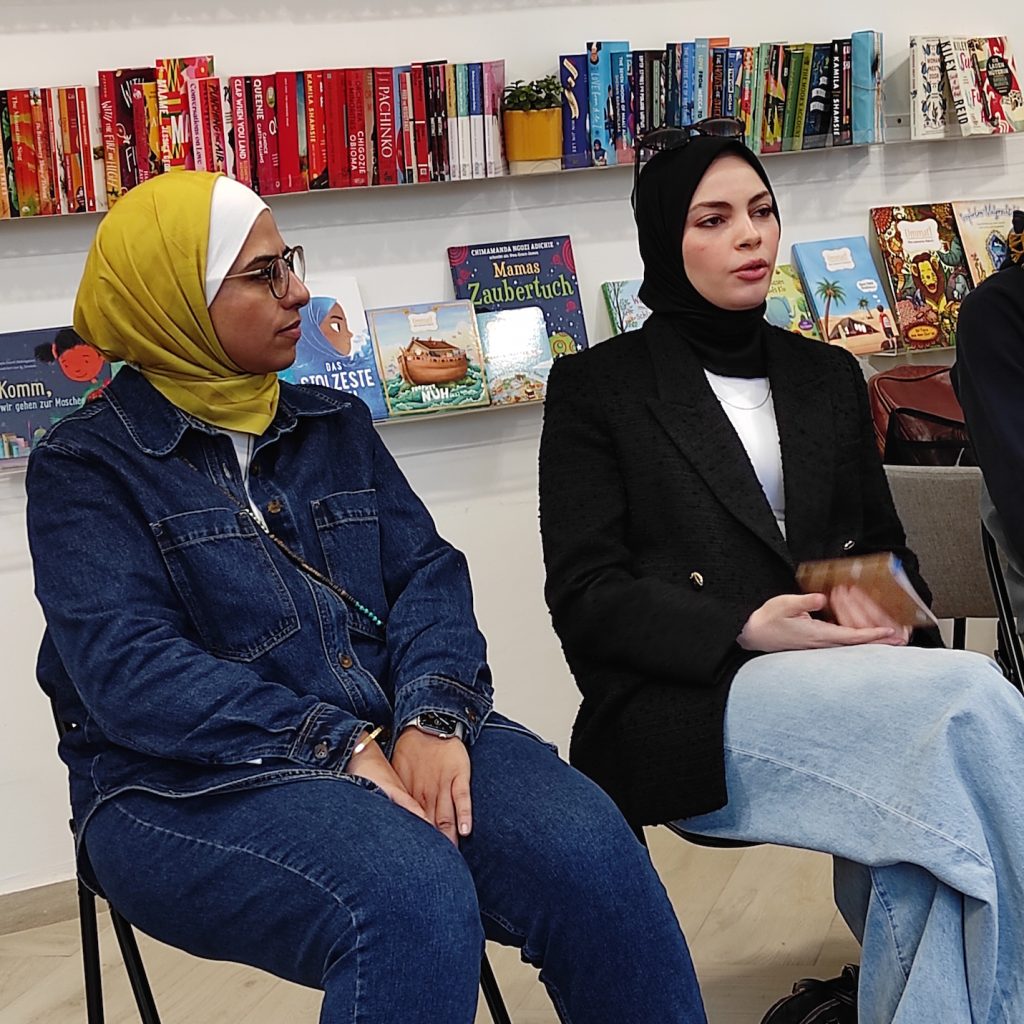
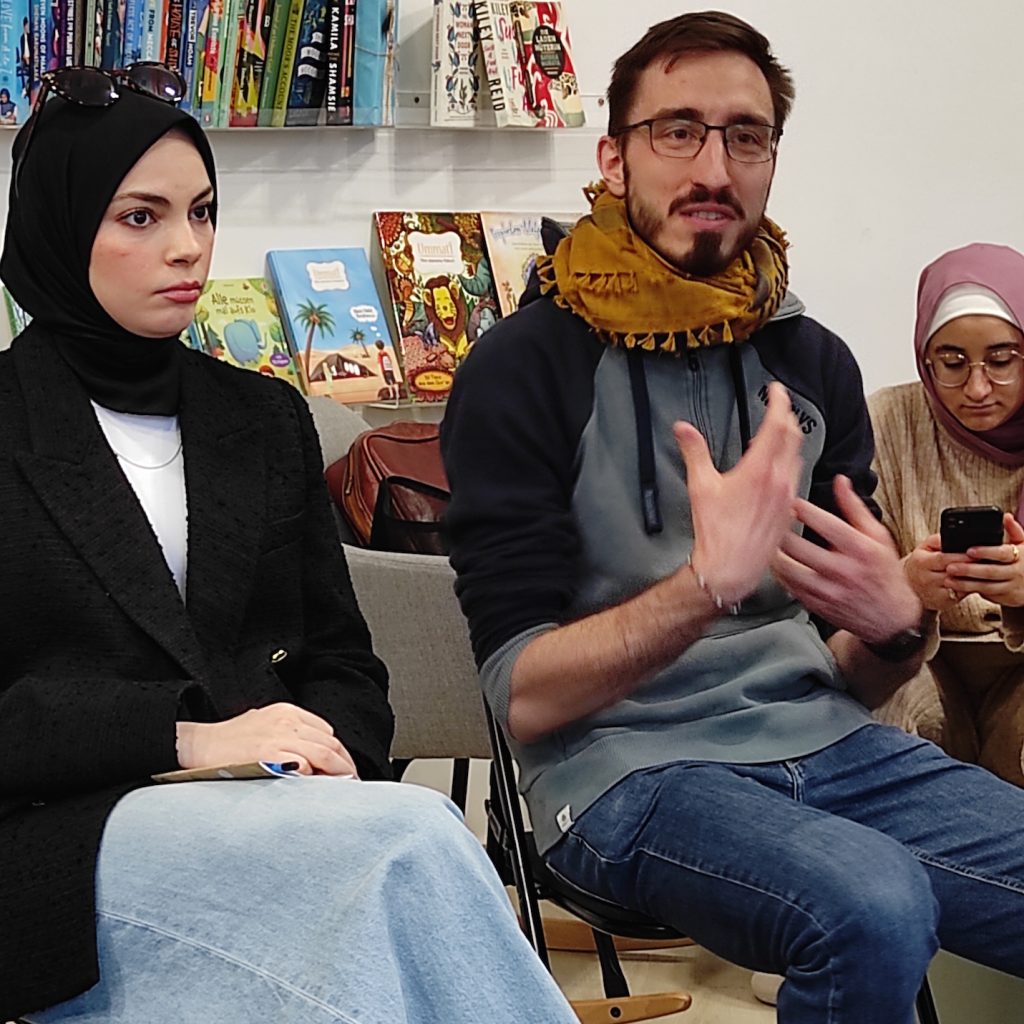
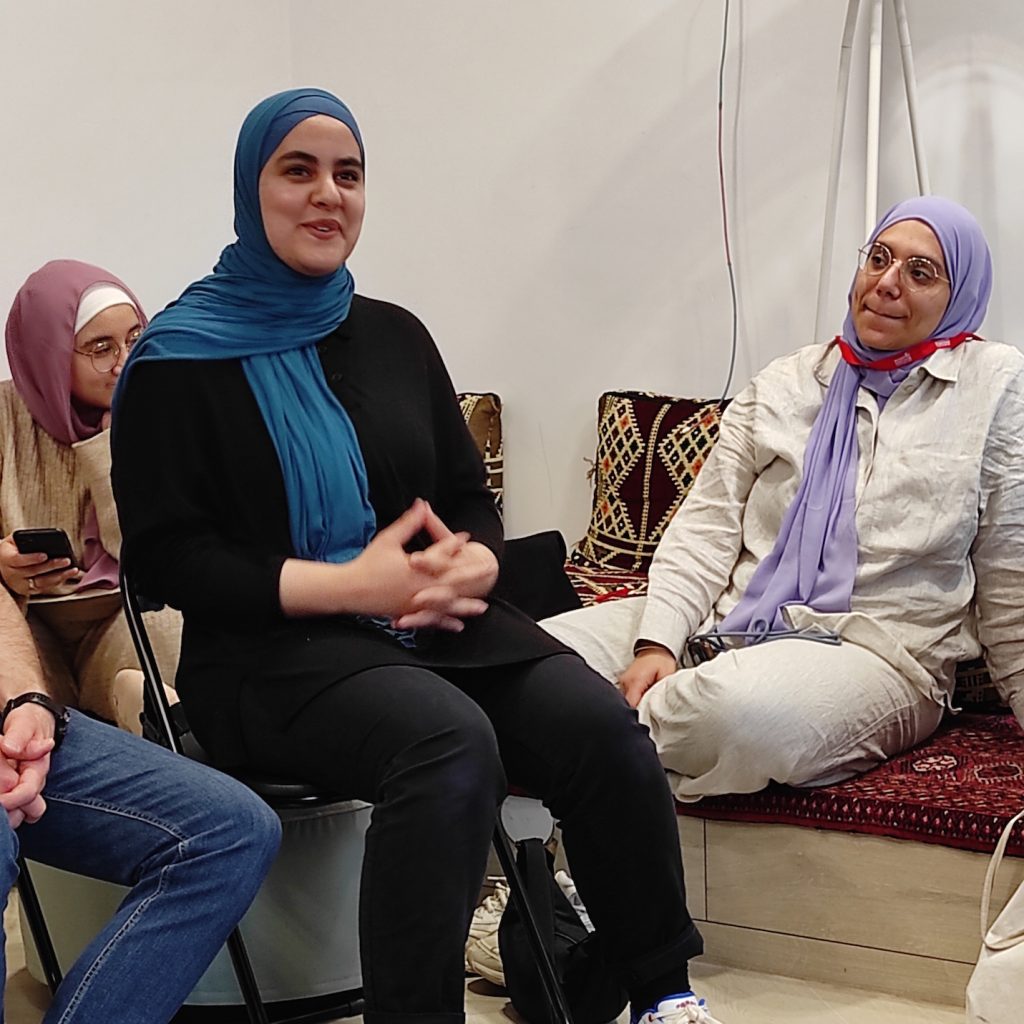
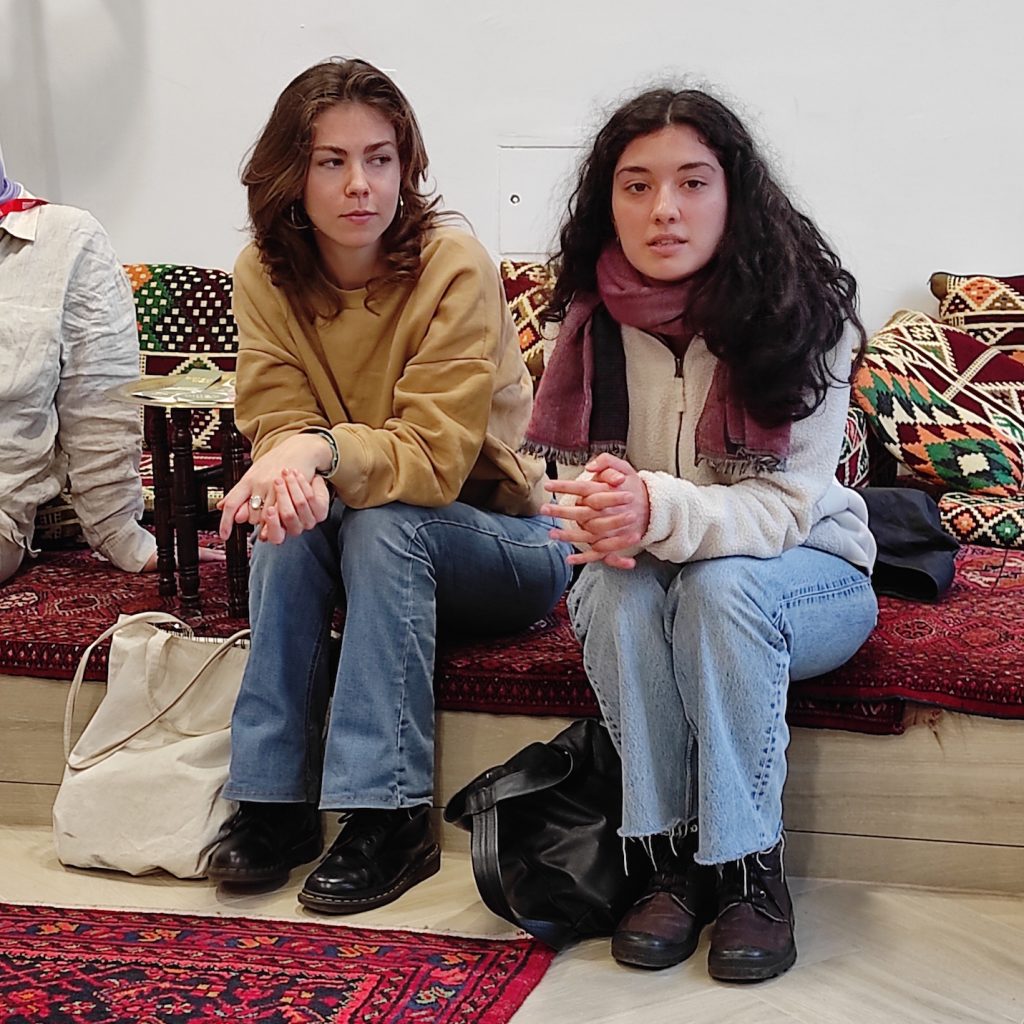
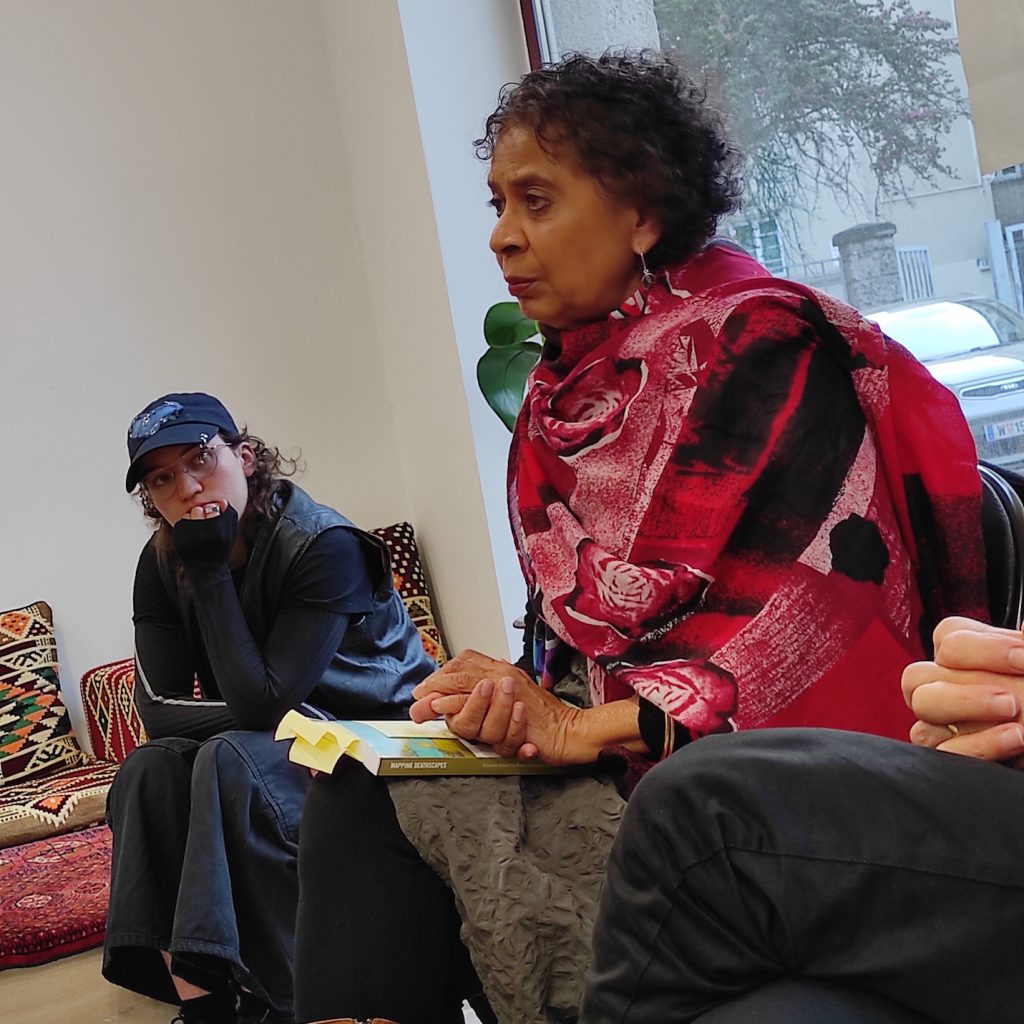
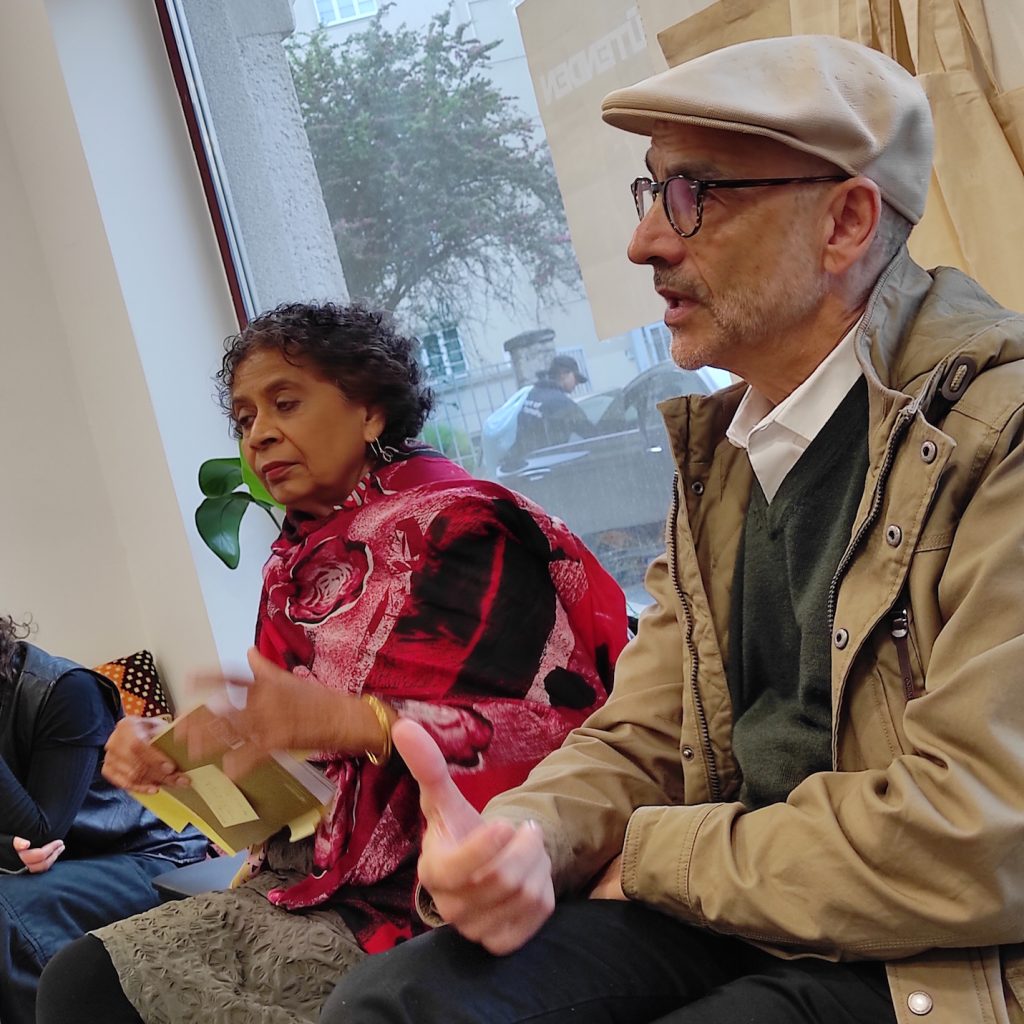
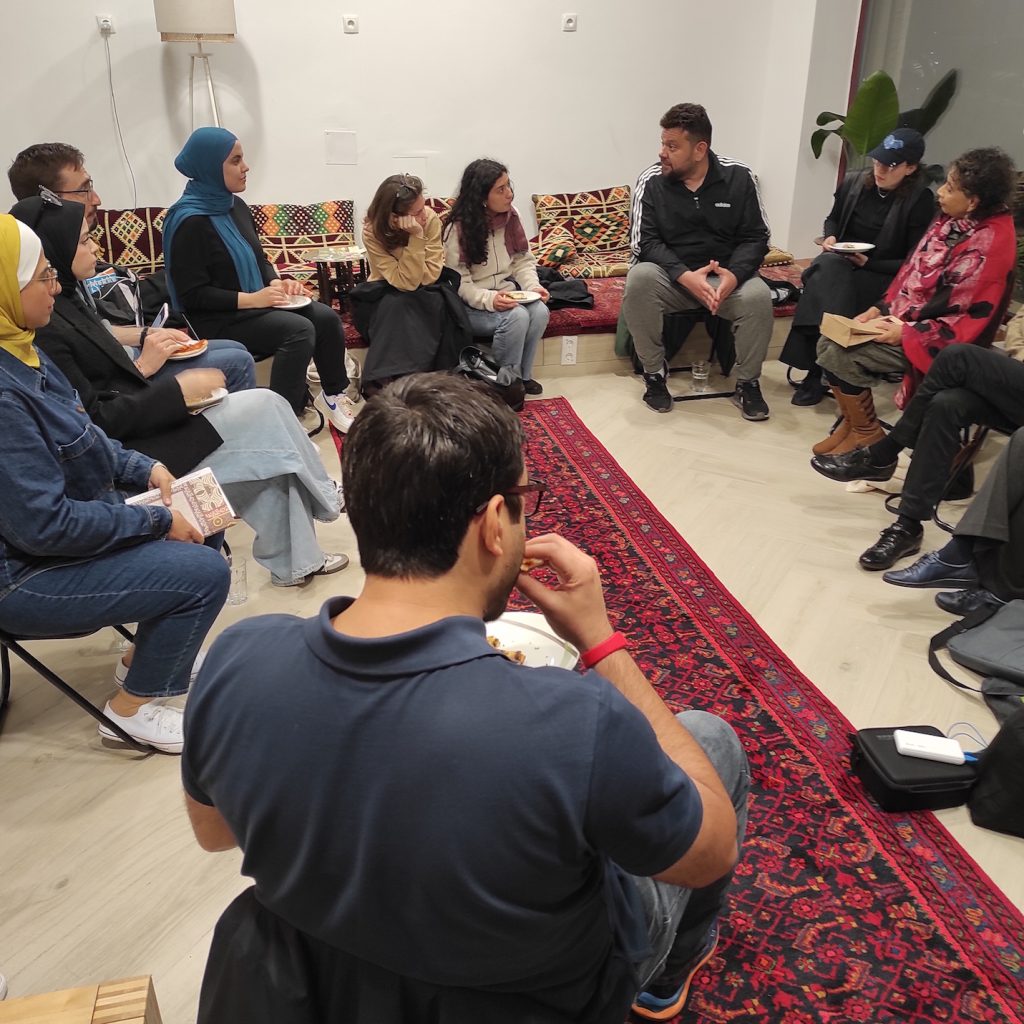
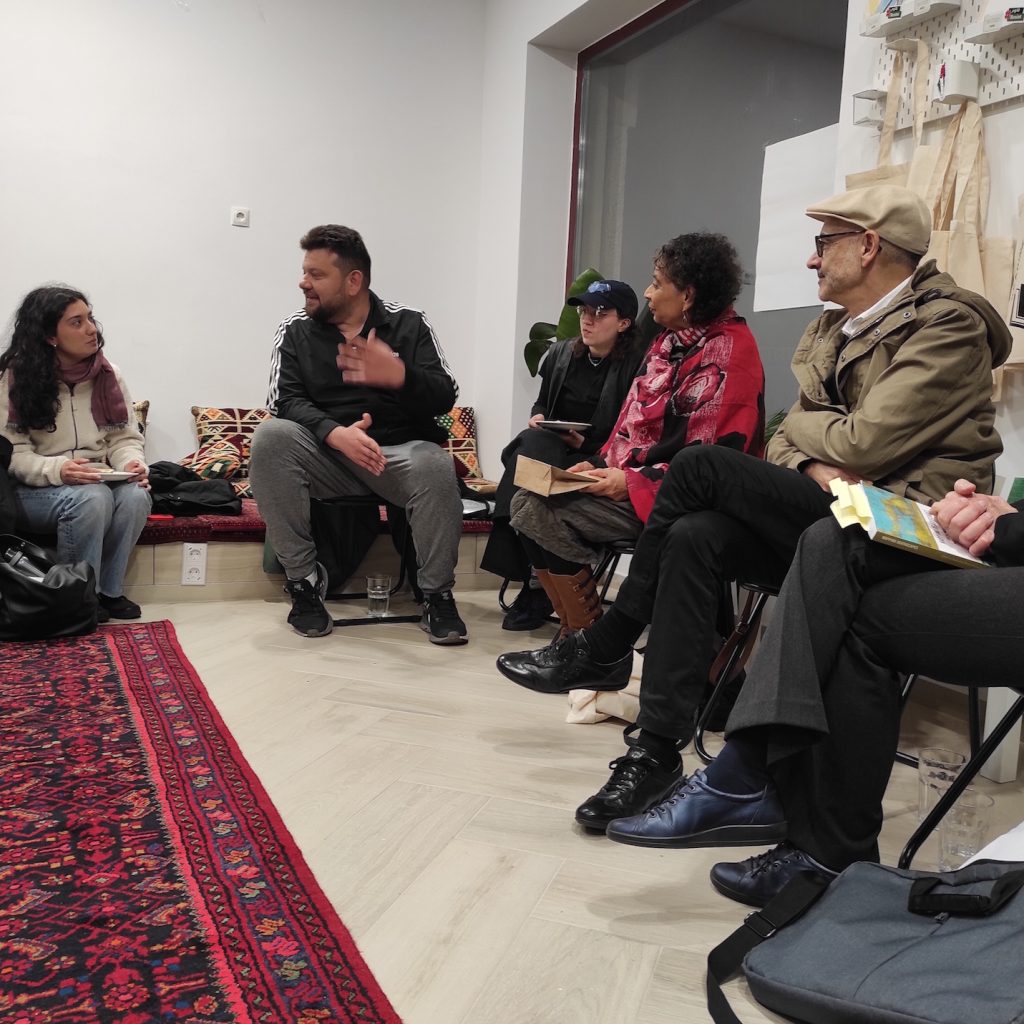
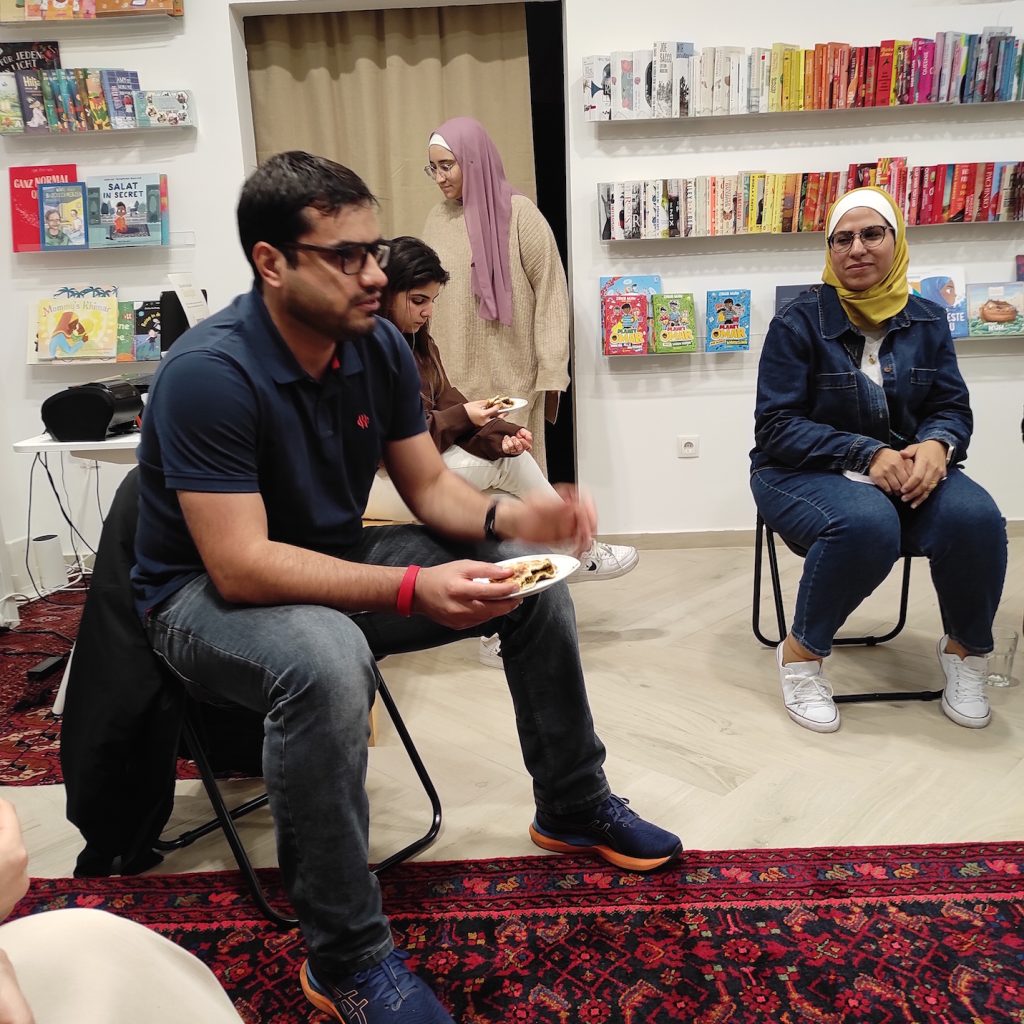
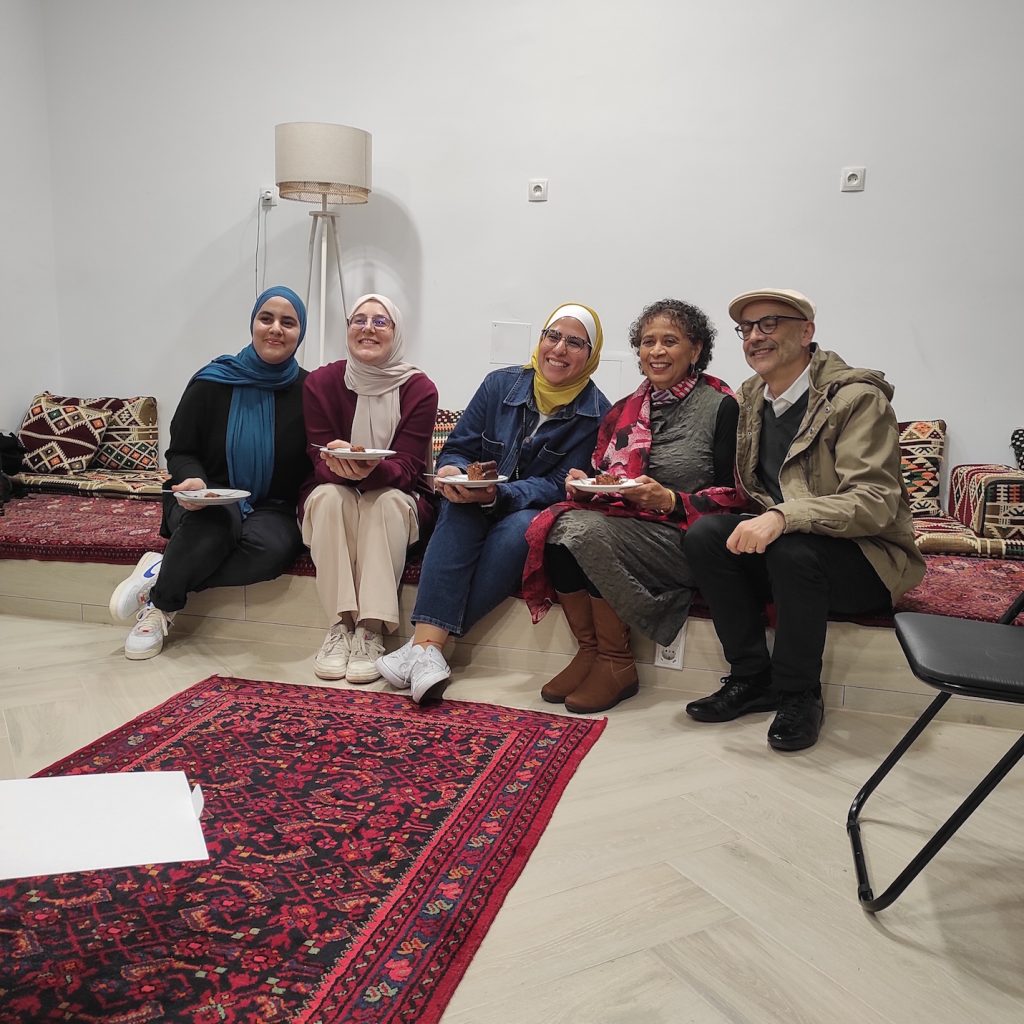
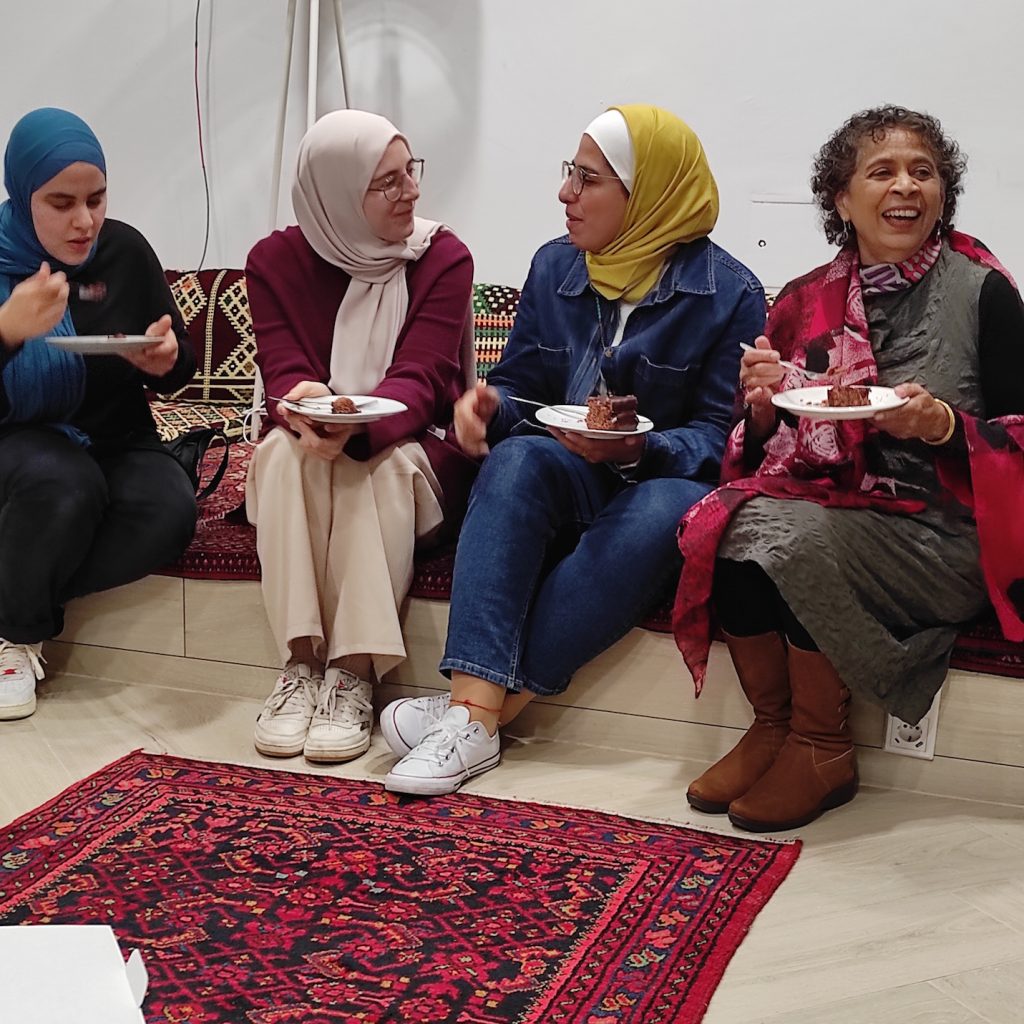
16/04/2024 Workshop “Indigenous Femicide, Art and Resistance” with Suvendrini Perera and Joseph Pugliese, Akbild
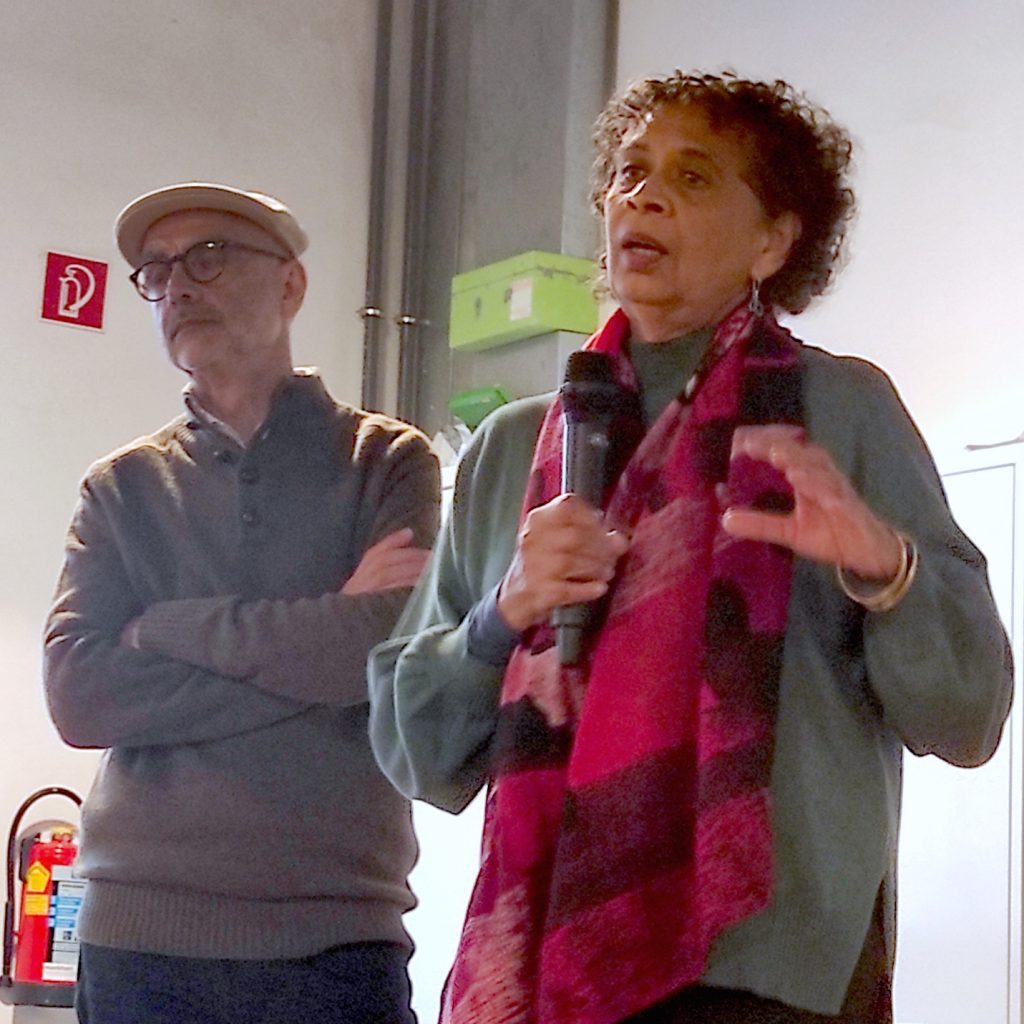
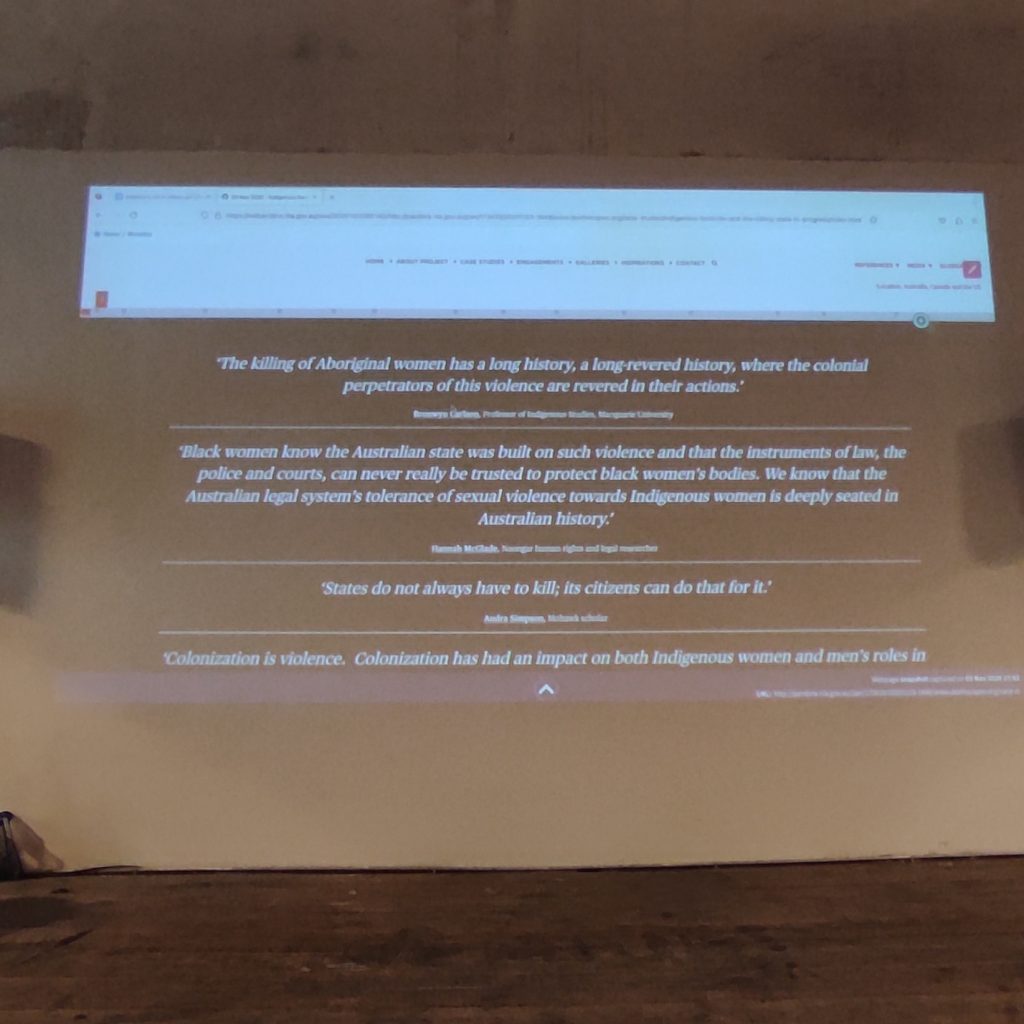
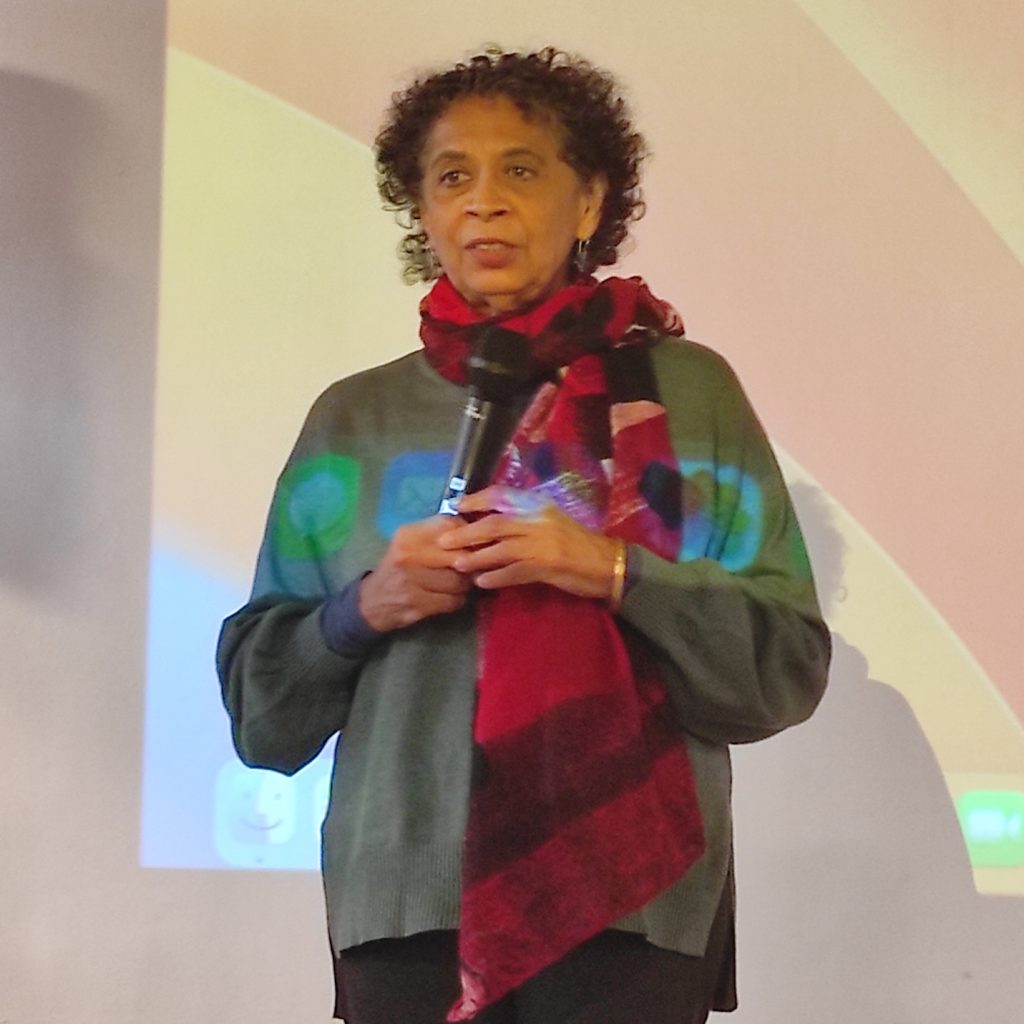
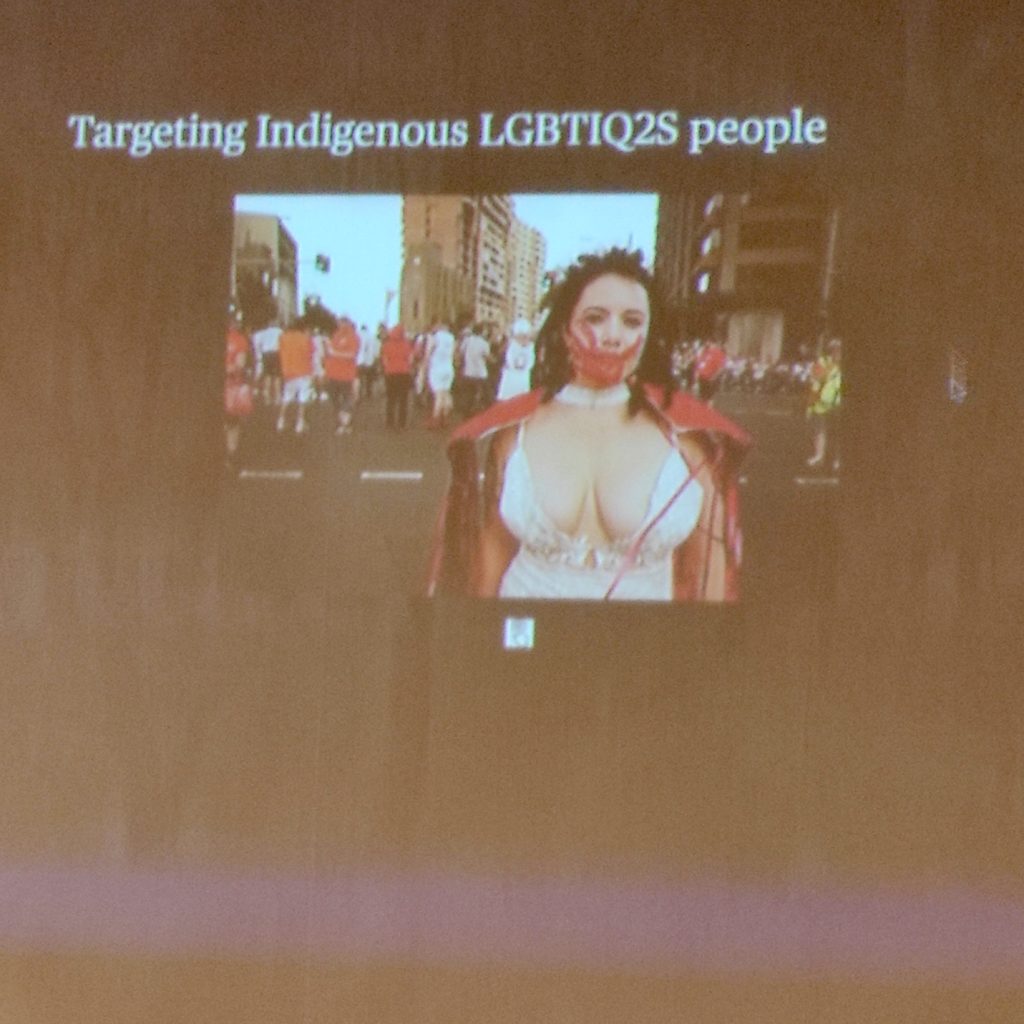
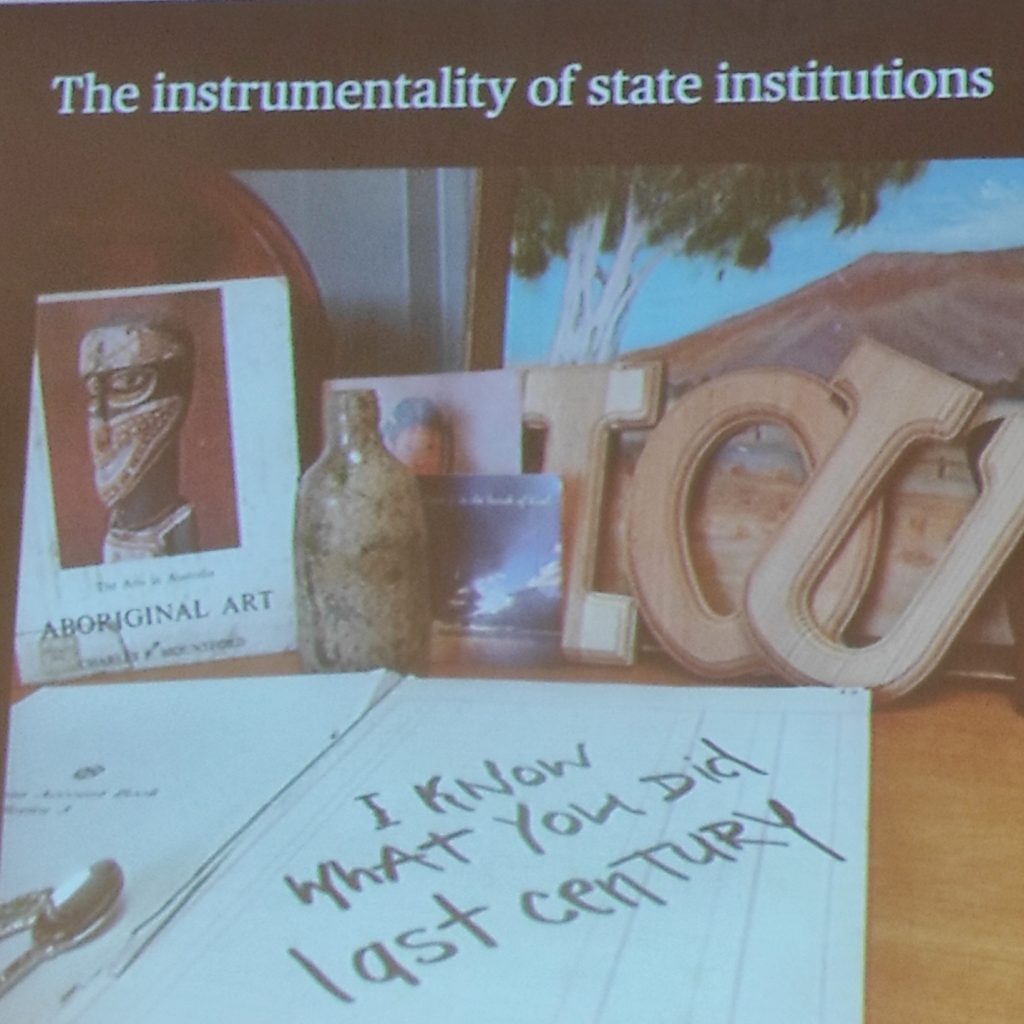
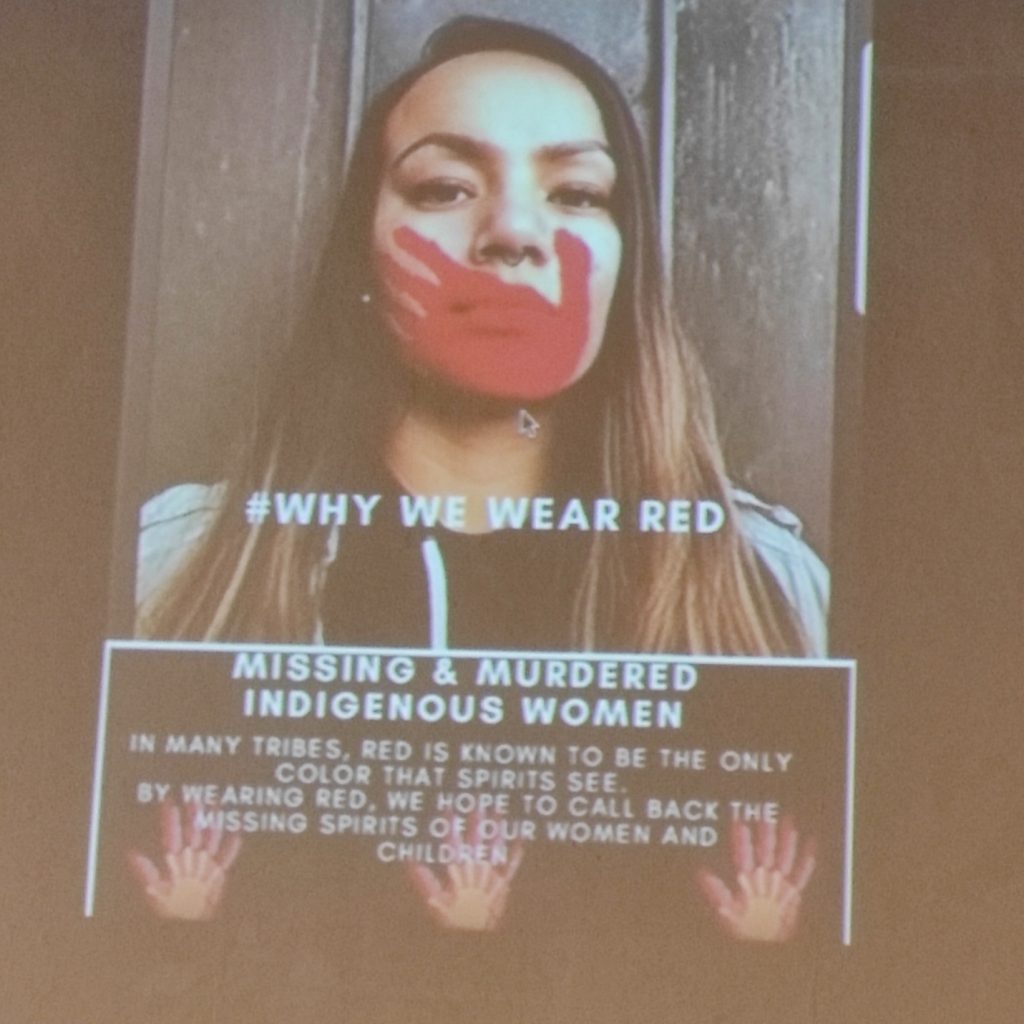
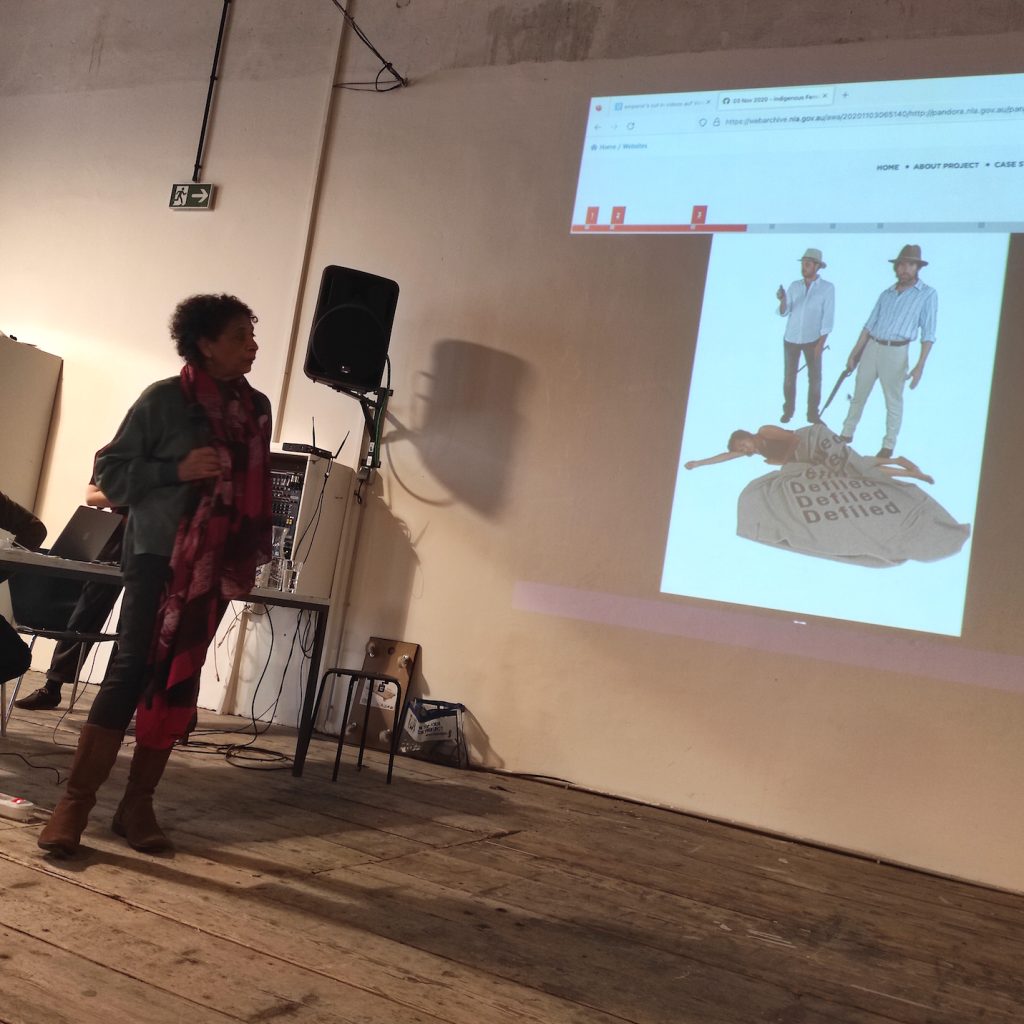
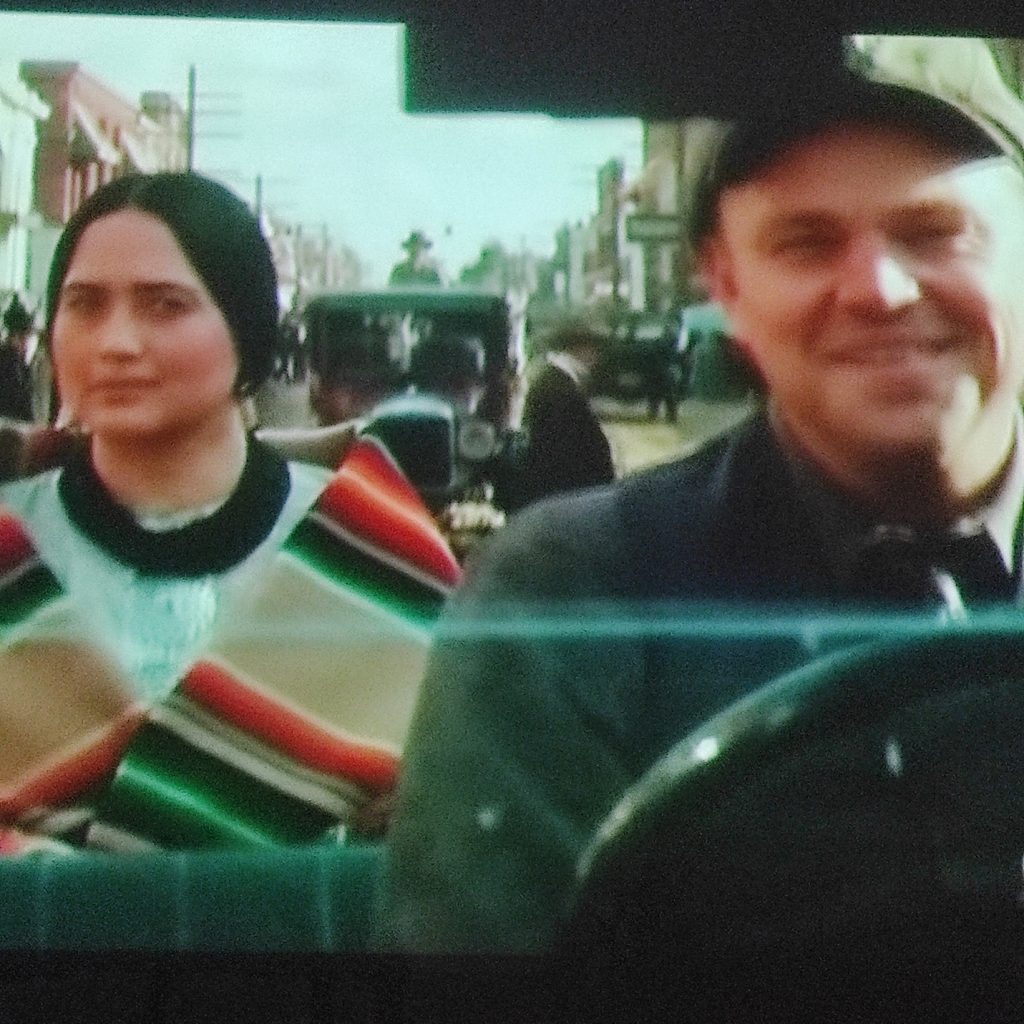
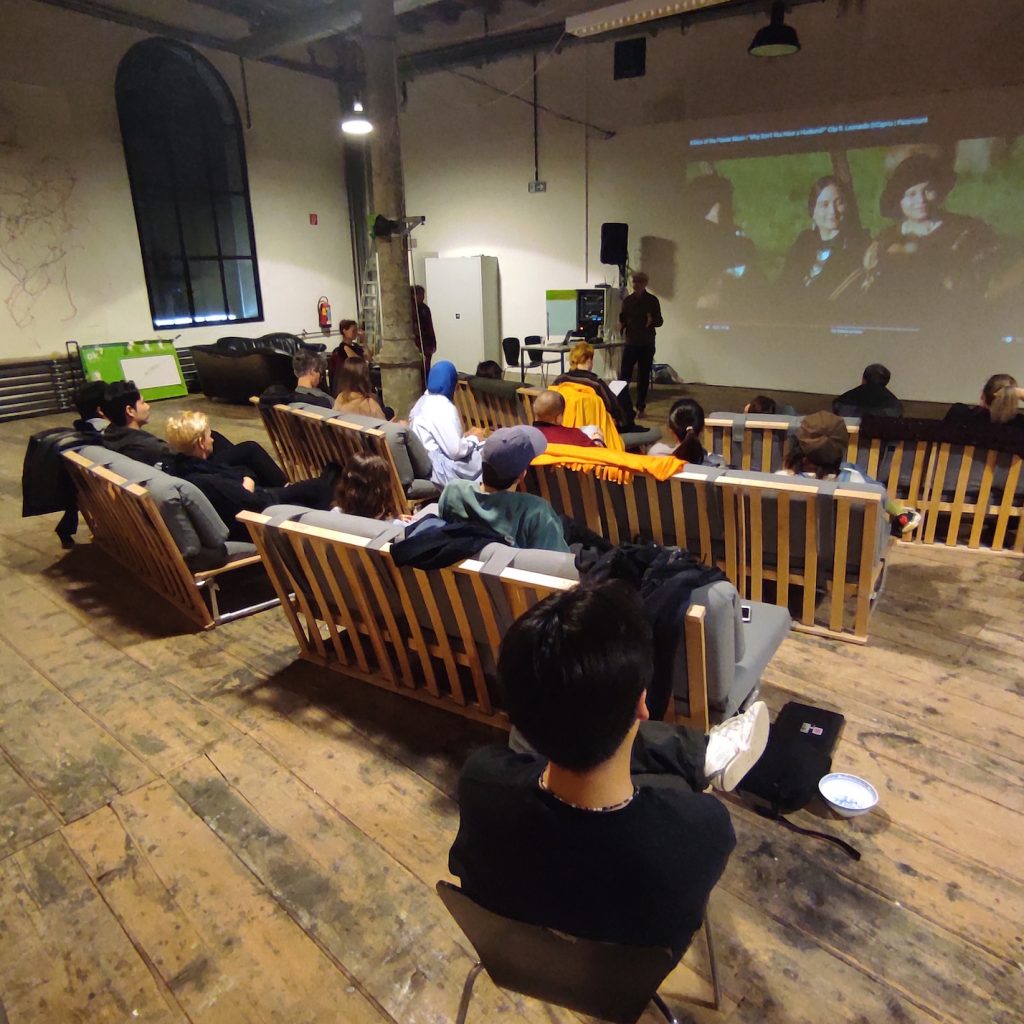
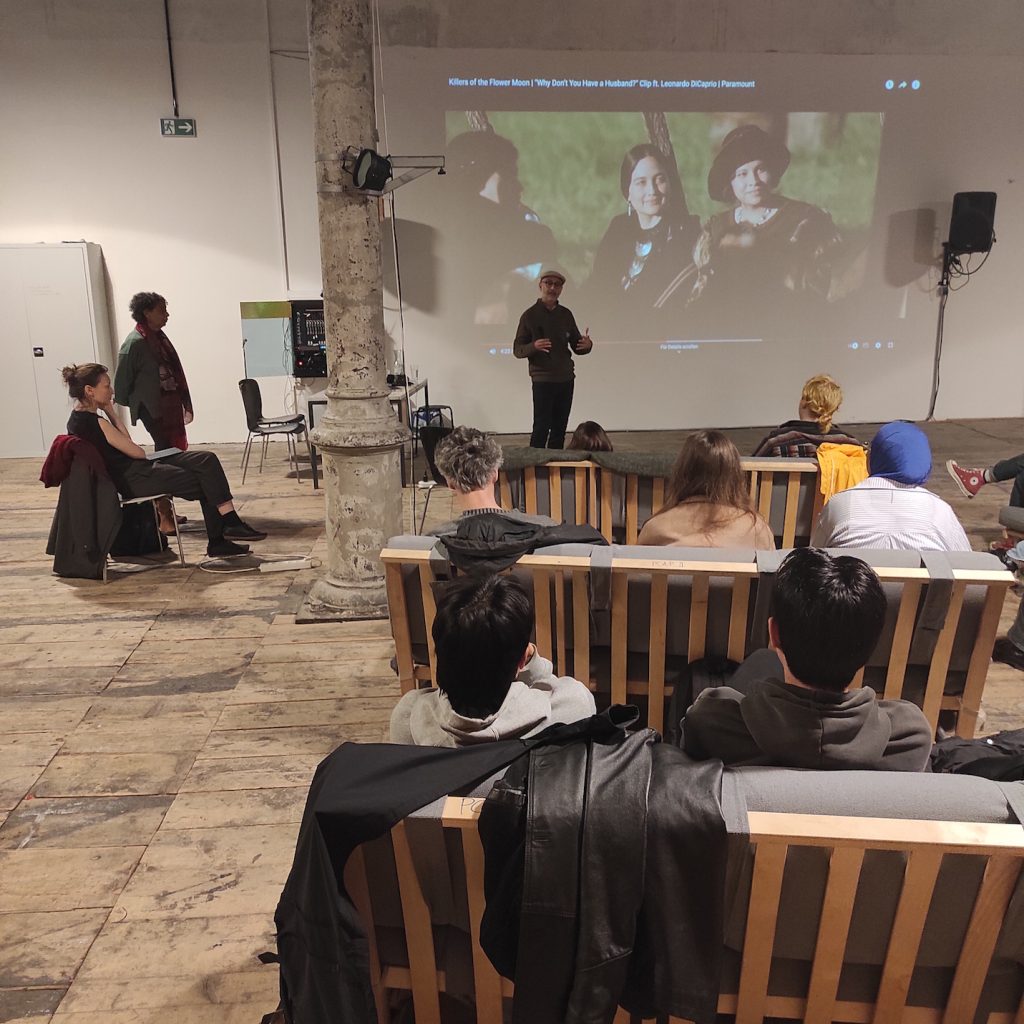
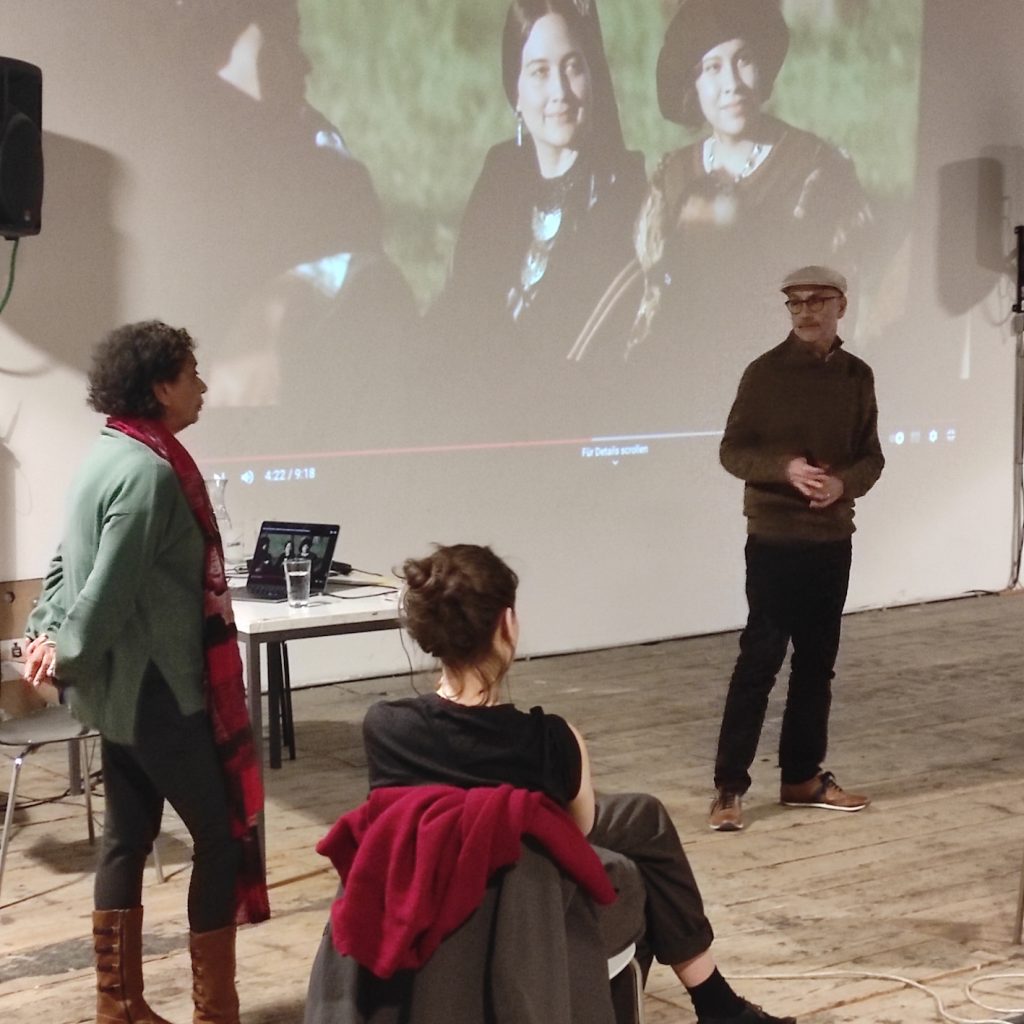
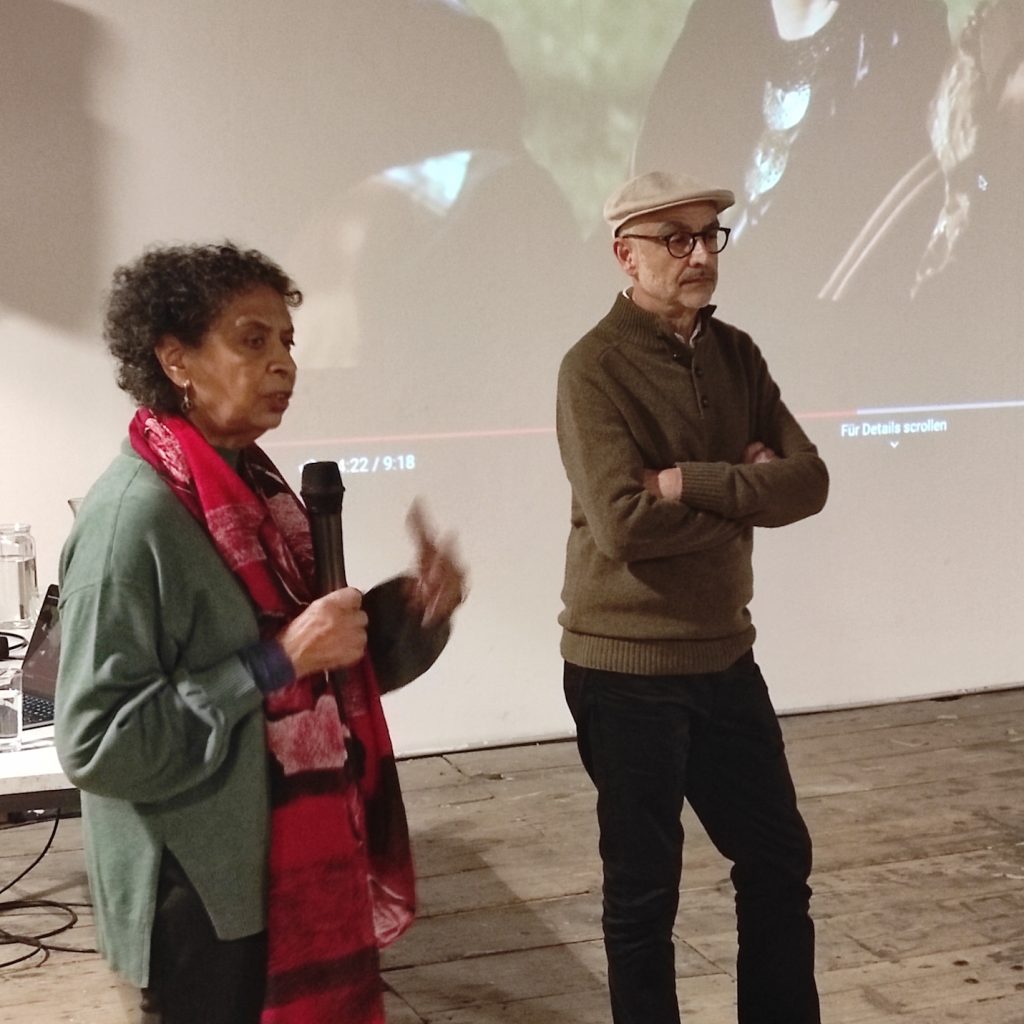
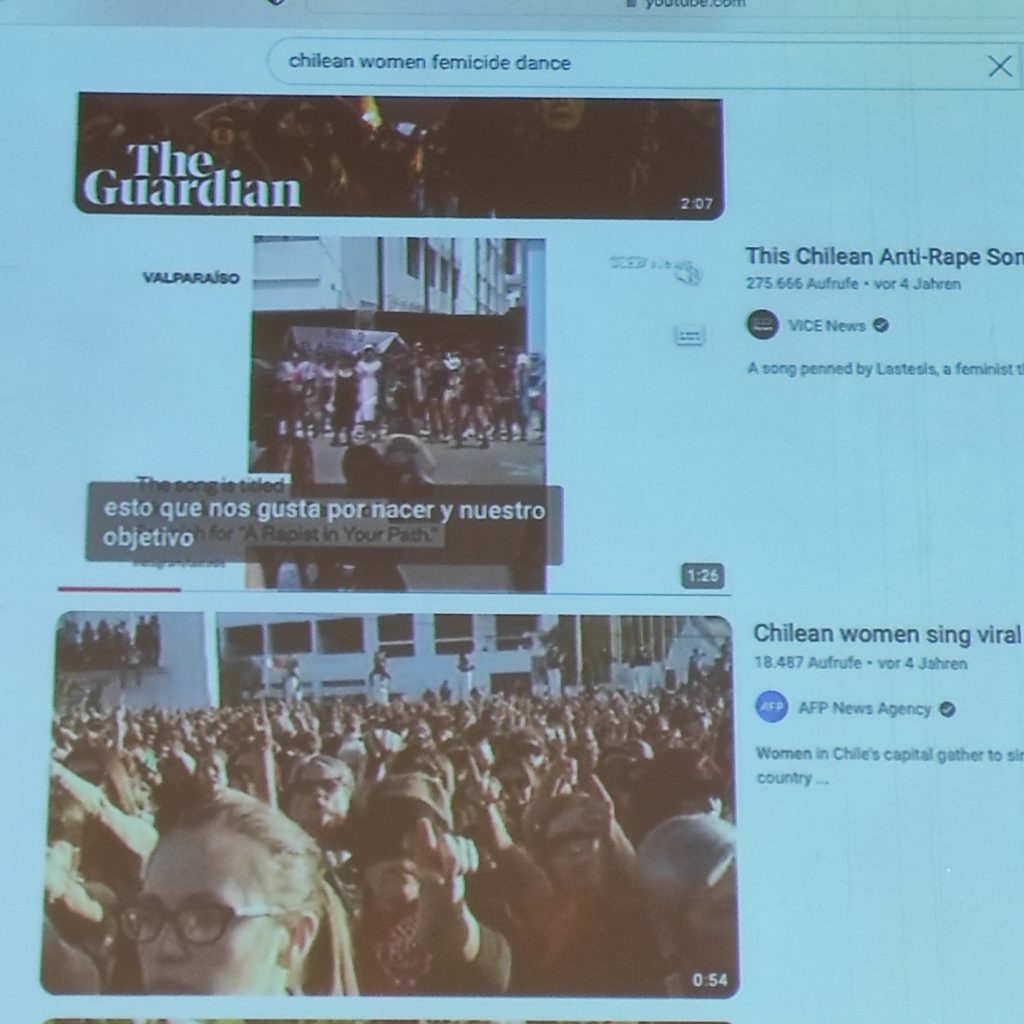
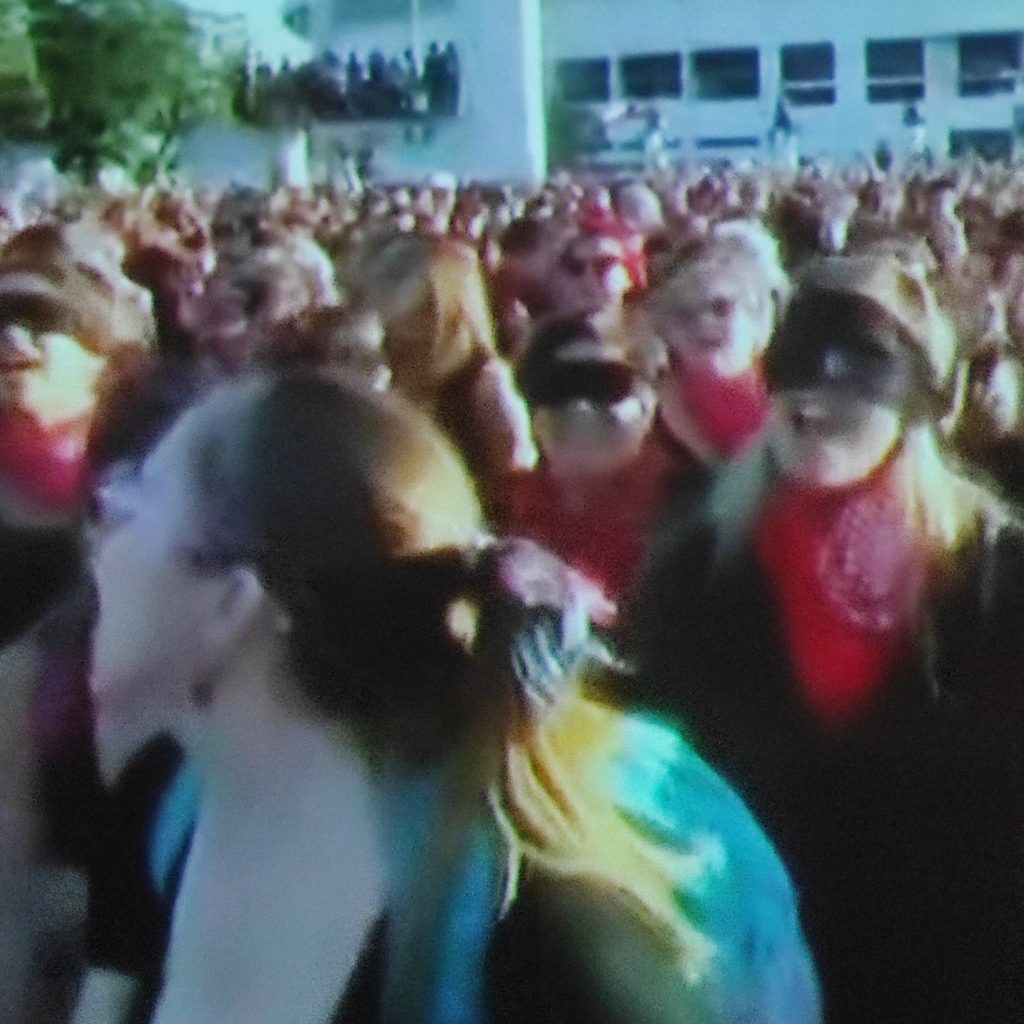
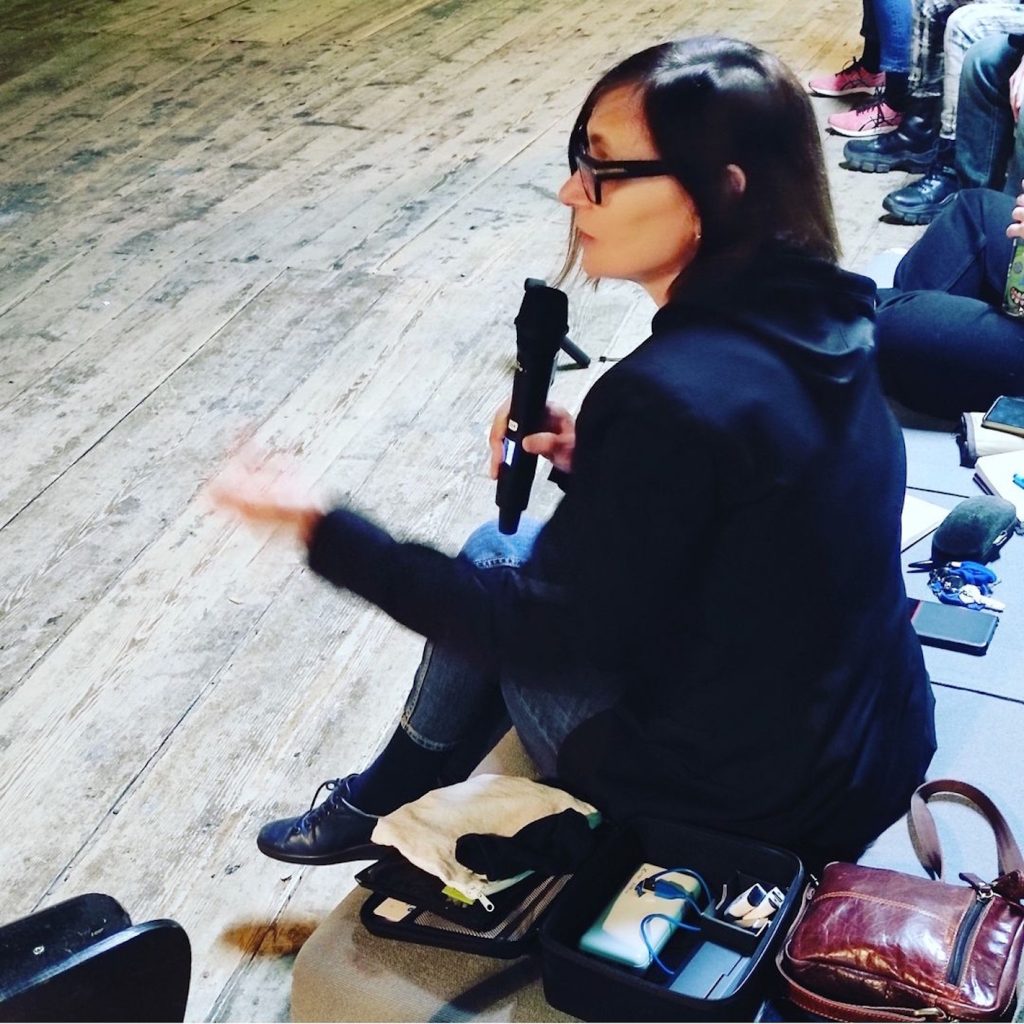
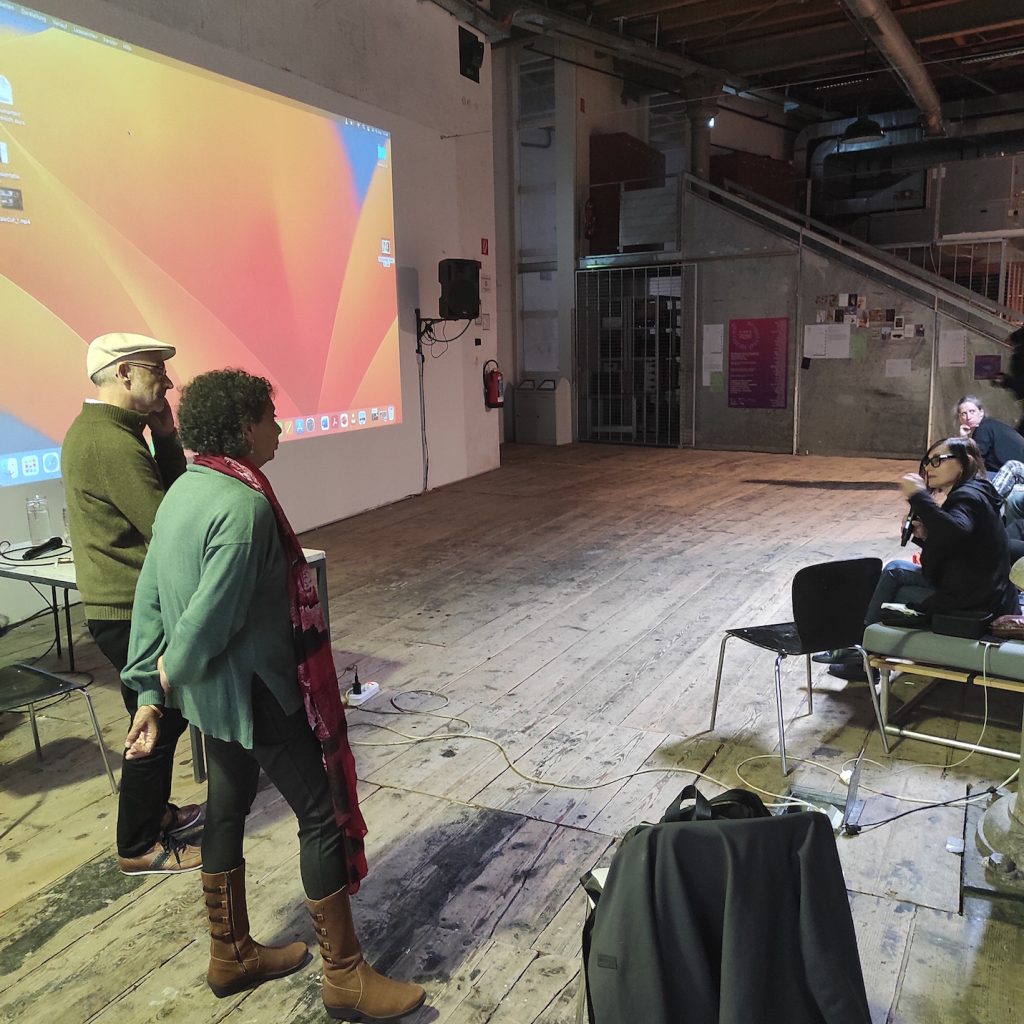
15/04/2024 Keynote lecture “Settler Colonialism: Its Ongoing Itineraries of Violence” by Suvendrini Perera and Joseph Pugliese, moderated by Marina Gržinić, Akbild
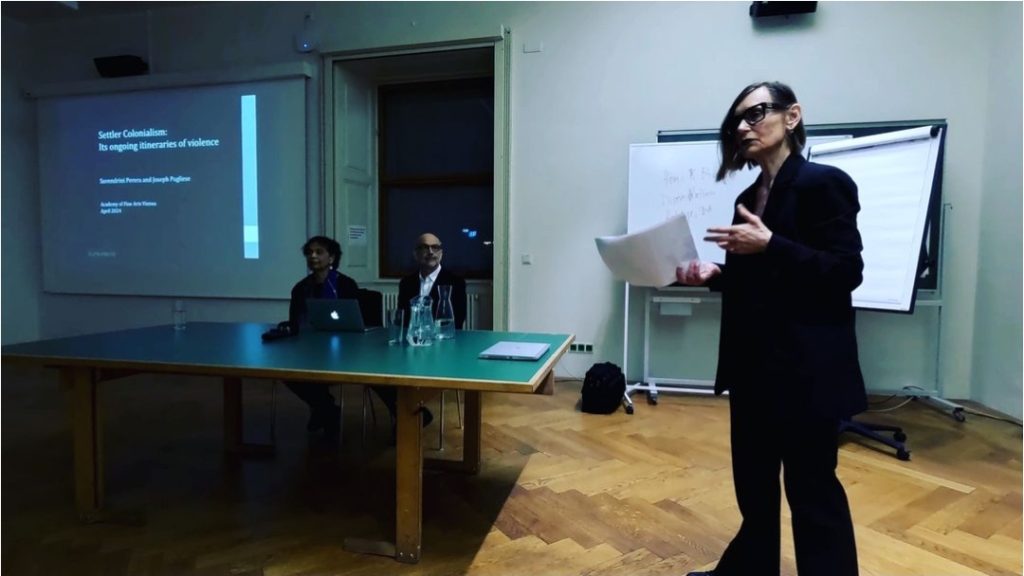
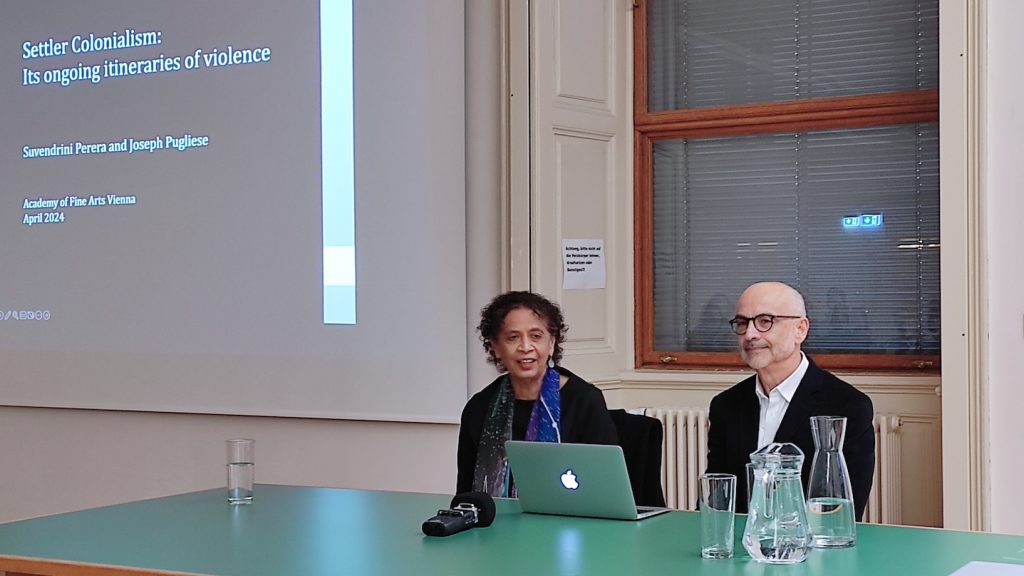
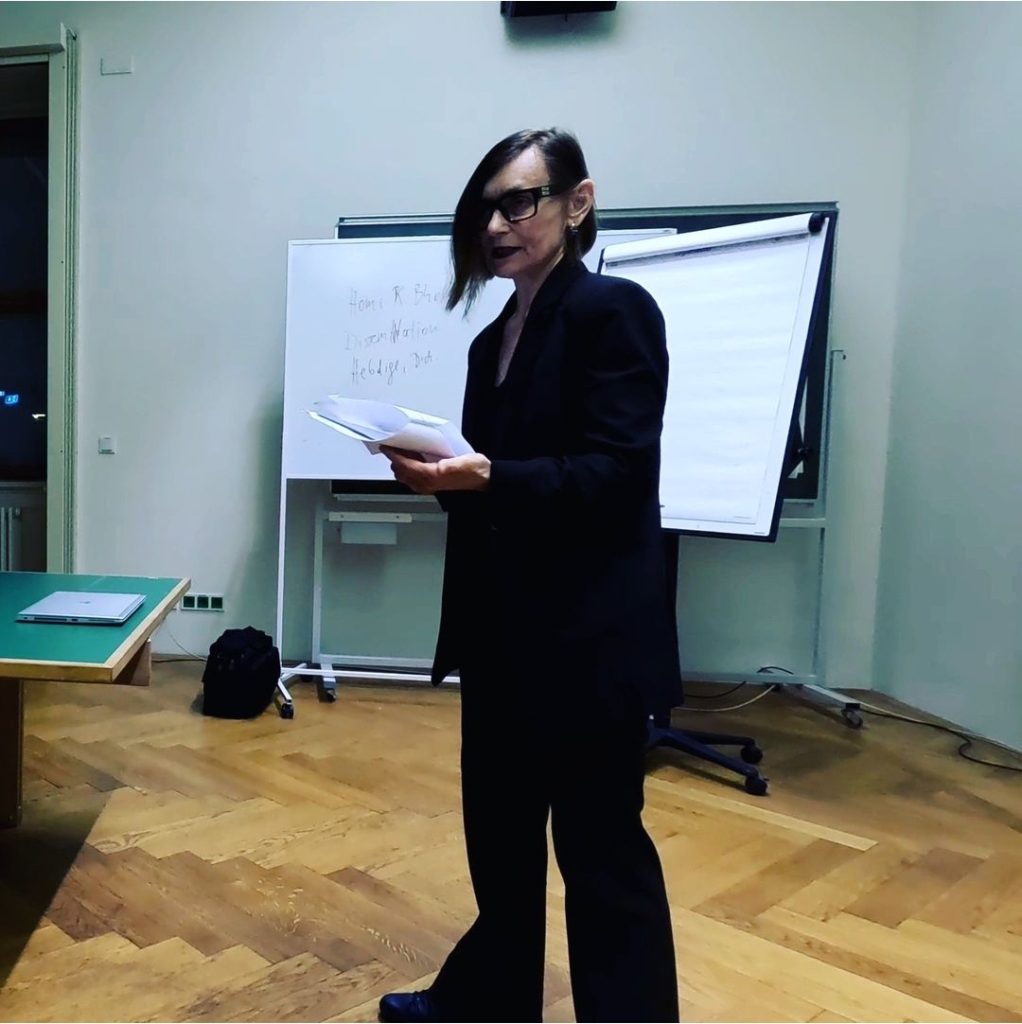
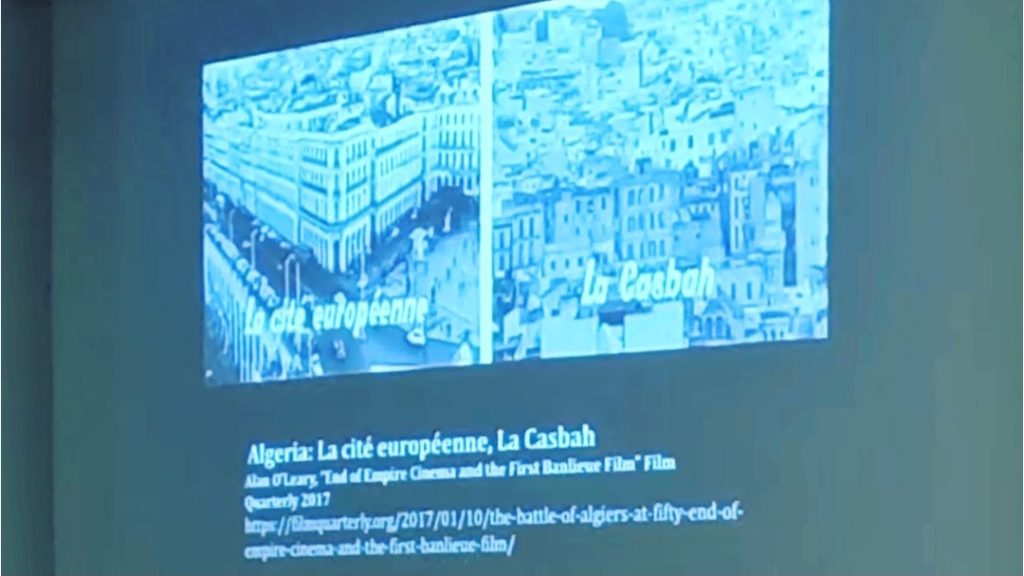
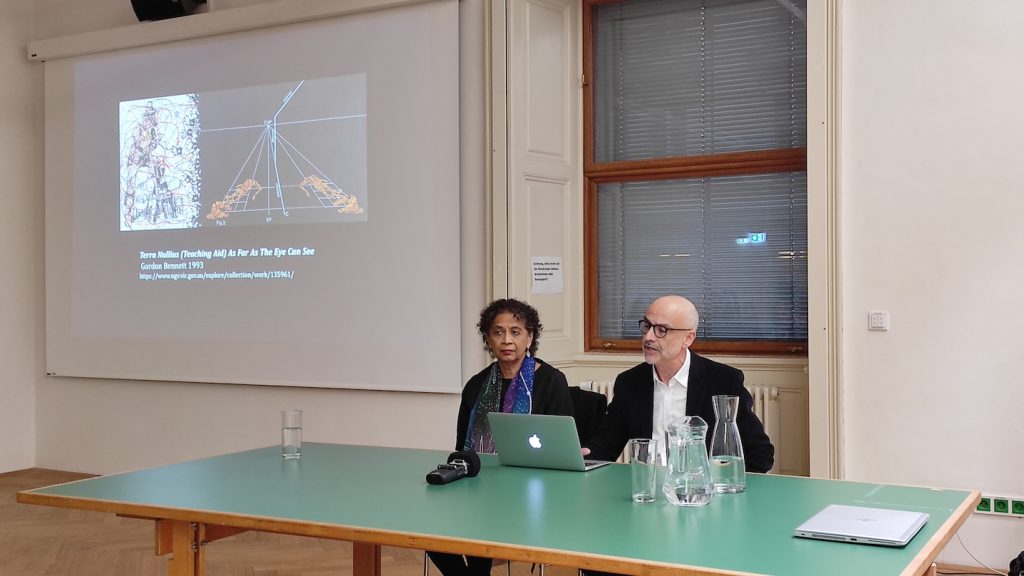
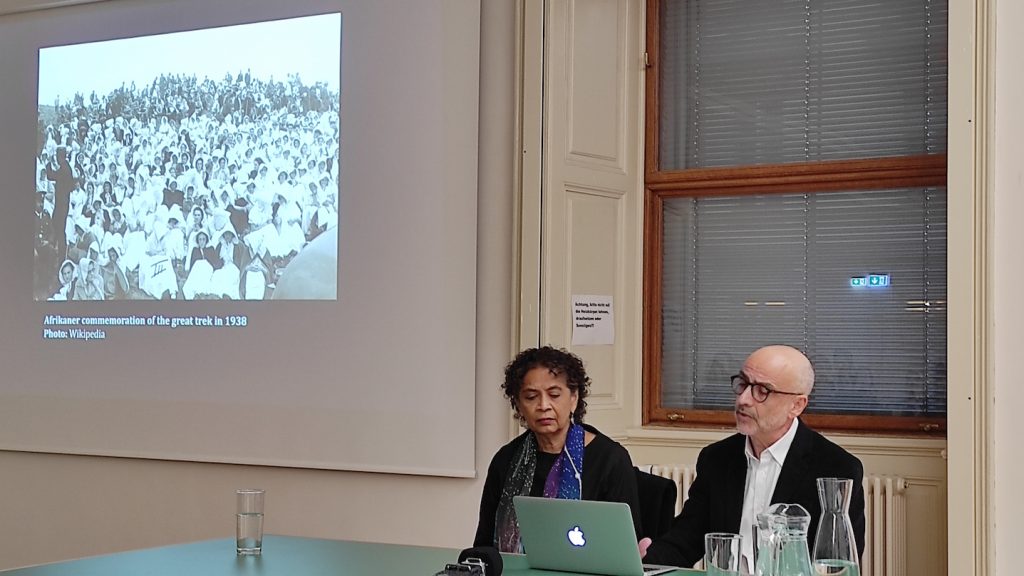
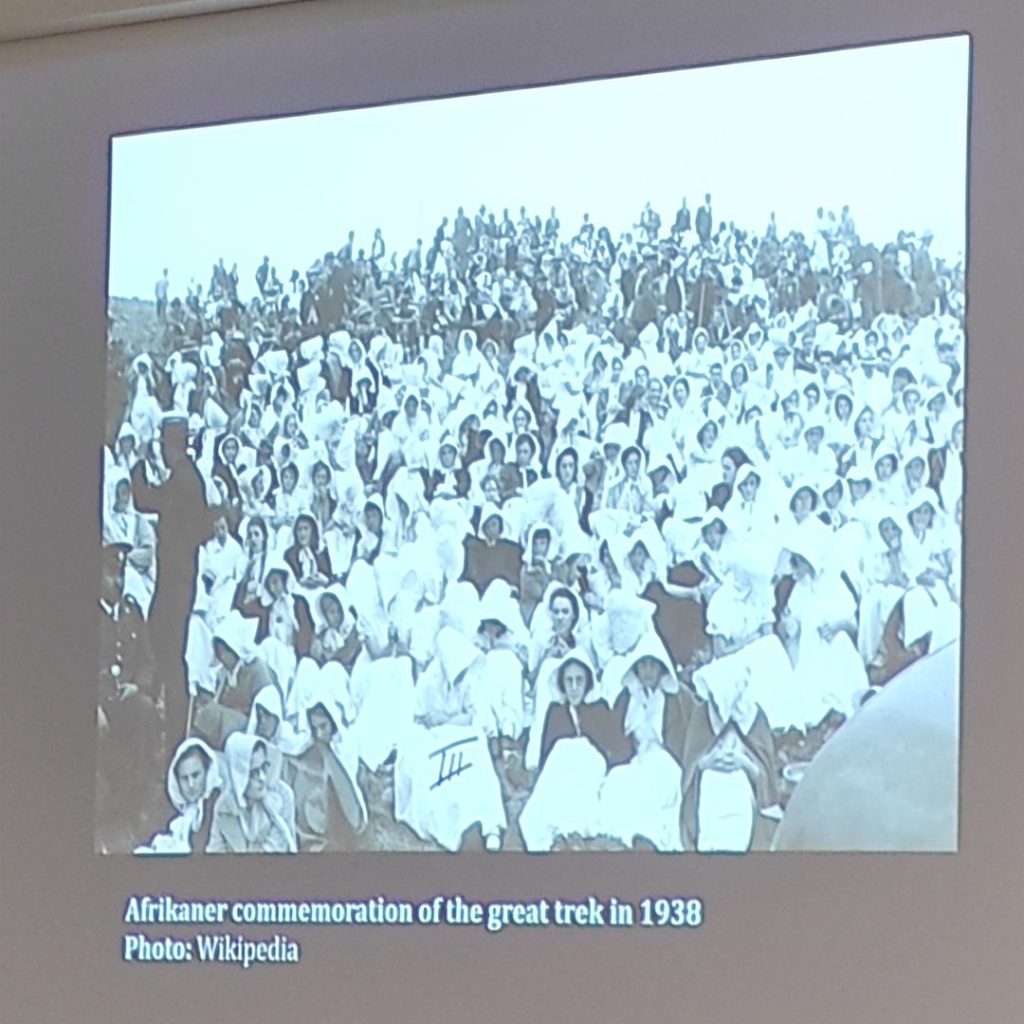
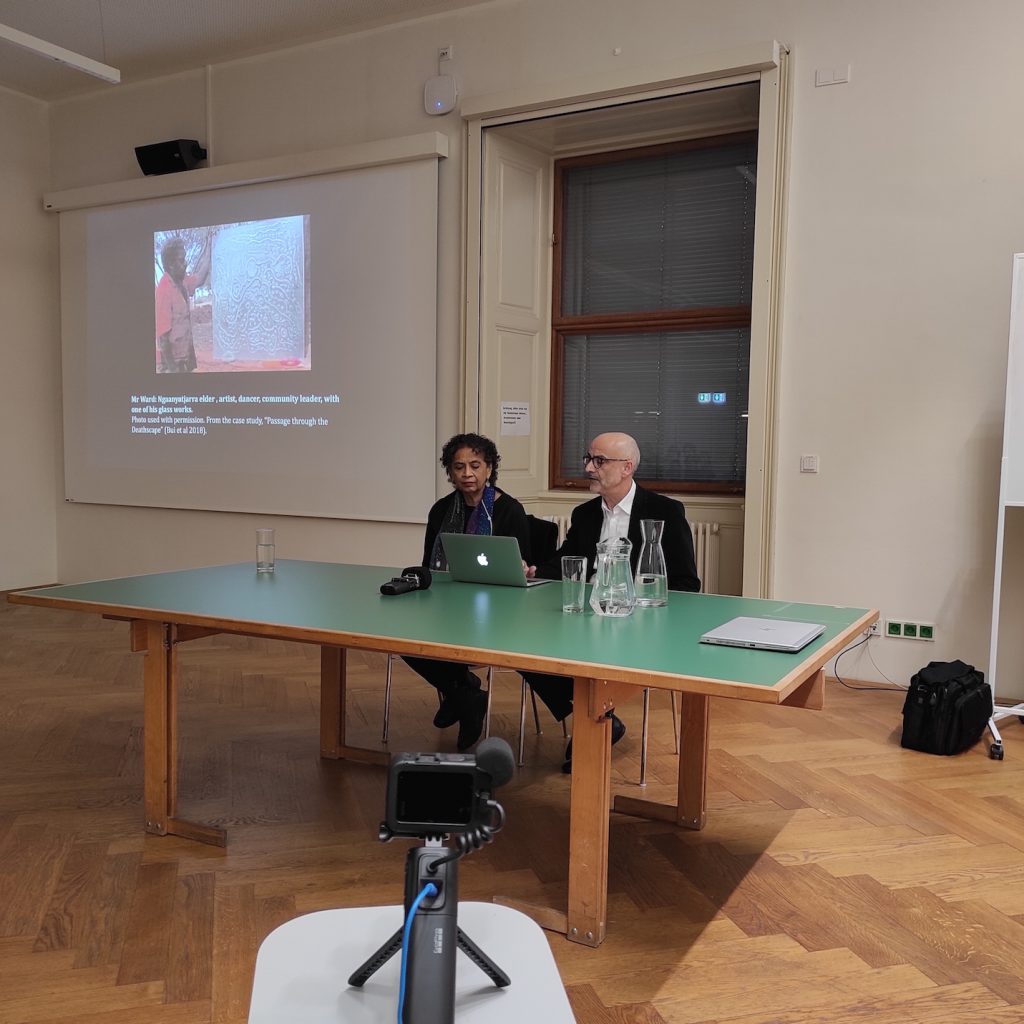
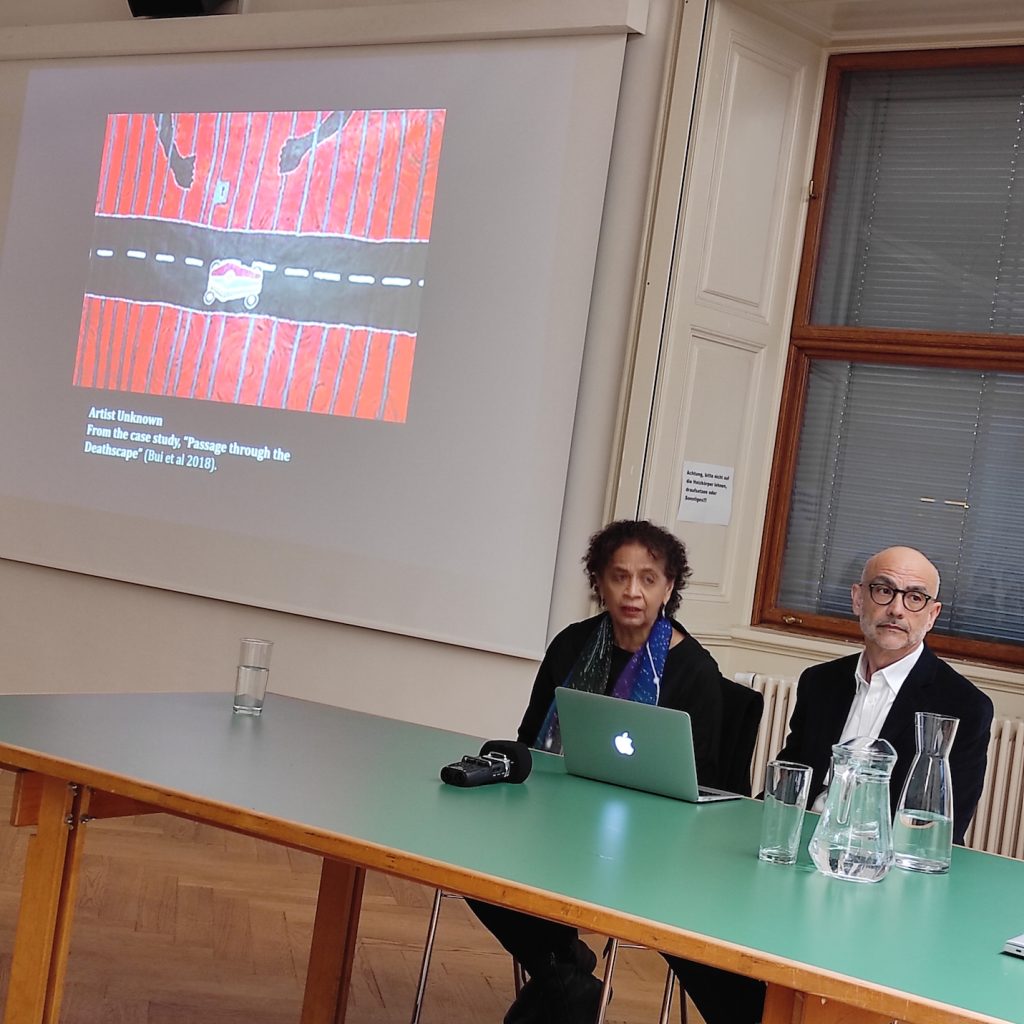
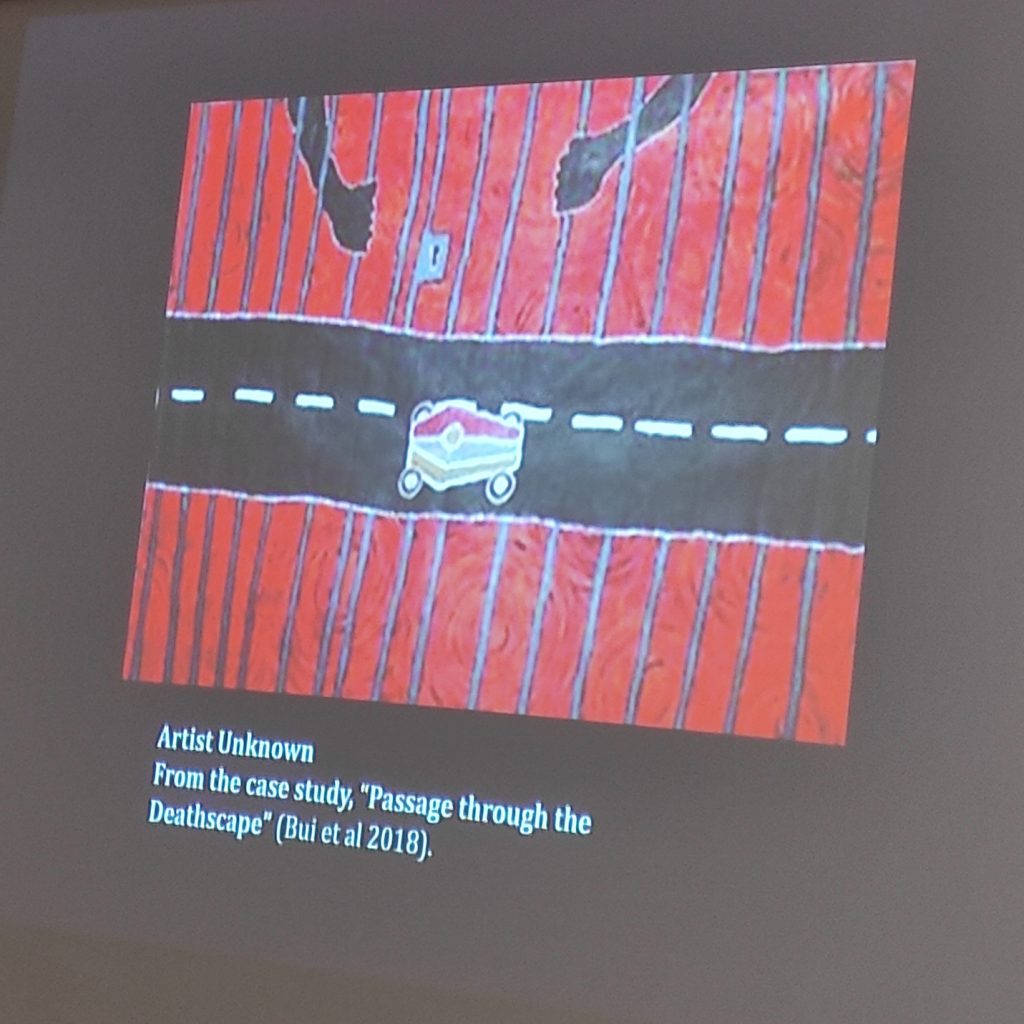
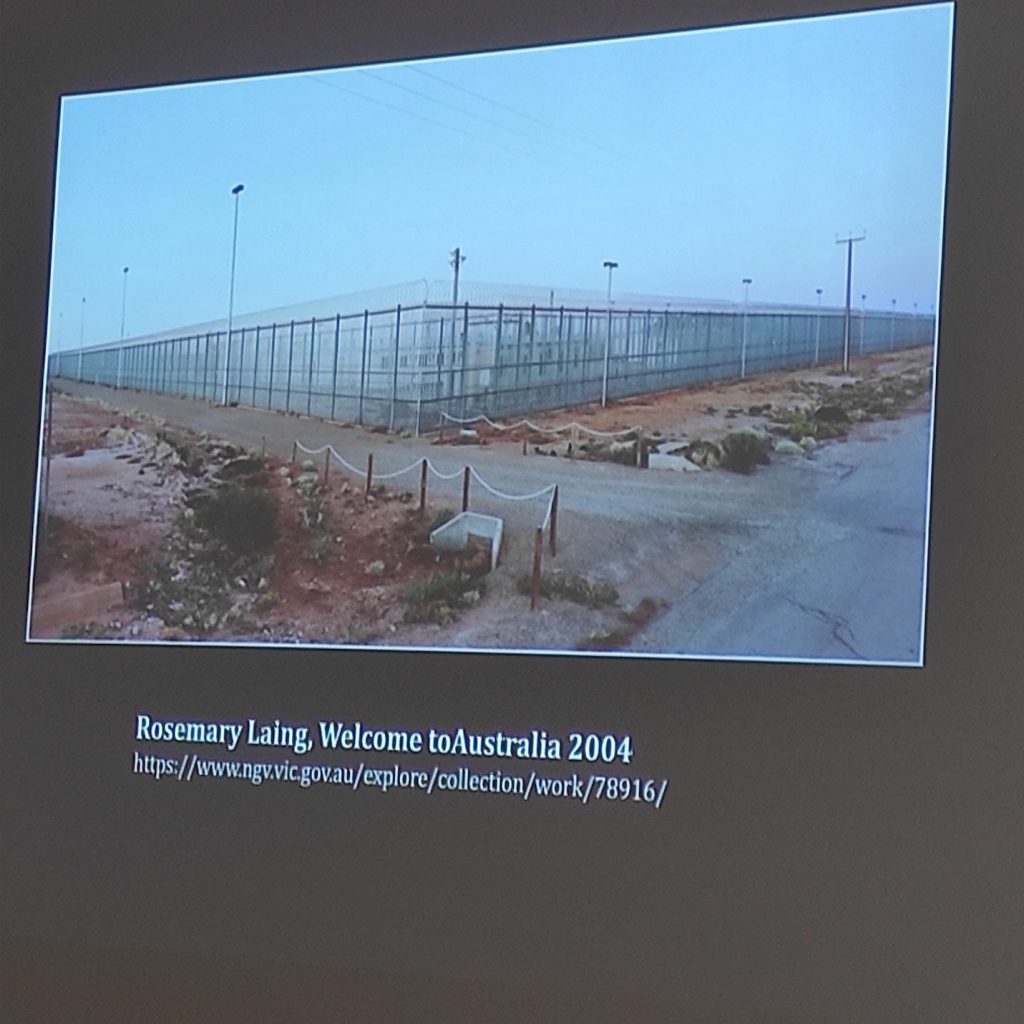
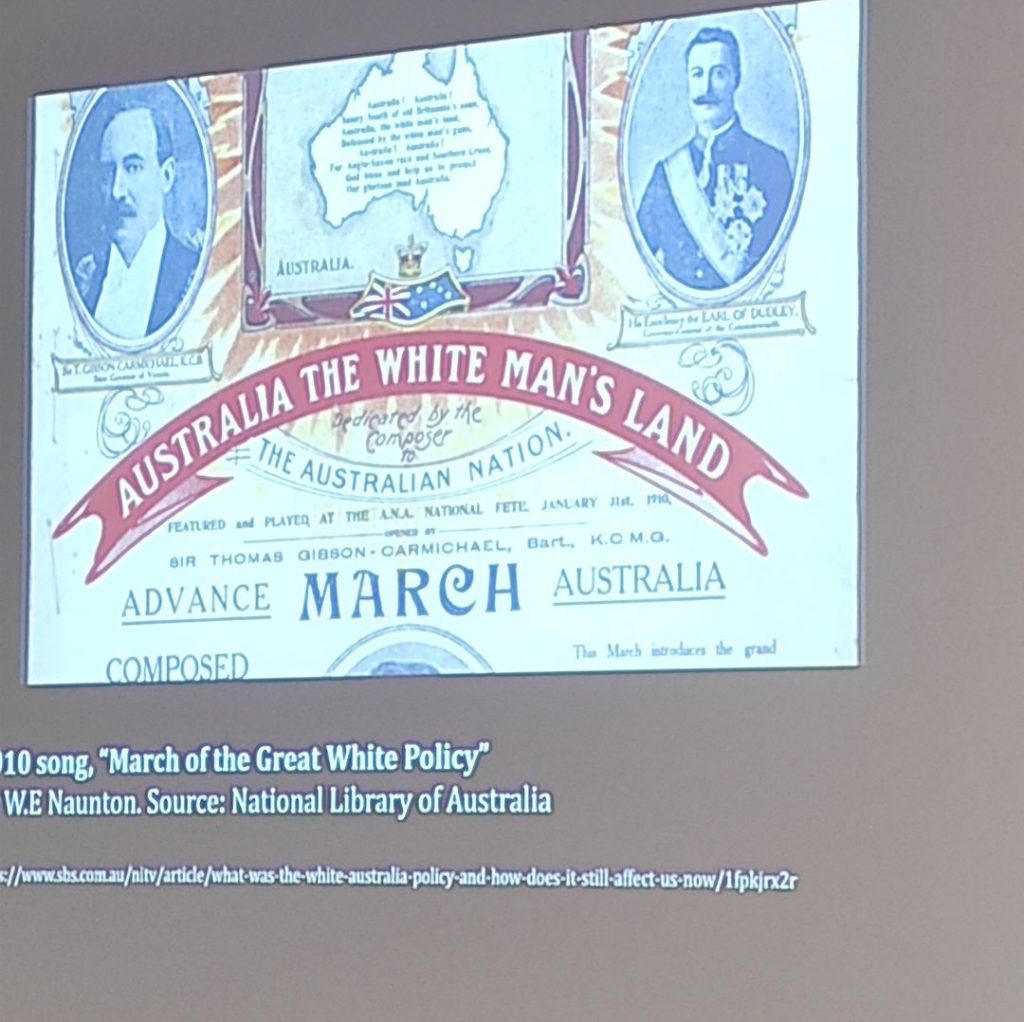
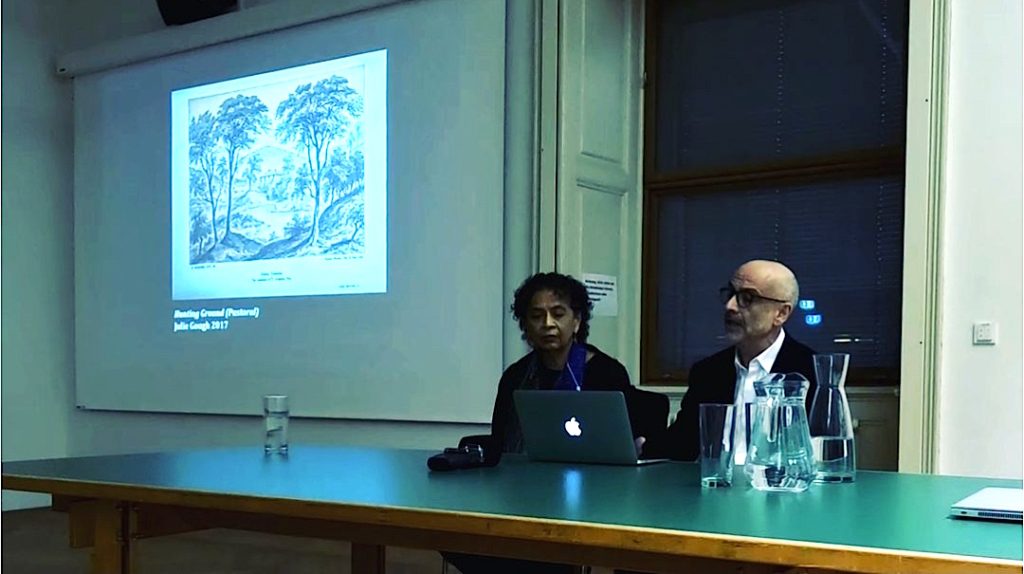
18–21/01/2024
BERLIN DIARY
Exploring Muslim Futures – Berlin, Germany
Stepping into superrrnetwork’s Muslim Futures event and exhibition from 18-21 January 2024 was like stepping into a realm of boundless imagination and critical reflection. The atmosphere buzzed with anticipation as participants gathered to delve into the concept of Muslim Futures – a space designed to envision a future that is more just, inclusive and empowering for Muslims and all human beings.
The event and artworks raised thought-provoking questions about who gets to shape the future and who is left out of these conversations. It challenged participants to consider the opportunities and spaces available for Muslims to navigate the complexities of today’s world and work towards a better tomorrow.
Drawing inspiration from Afro-futurism, Muslim Futures aimed to move away from homogenising and racist narratives of Muslim identity. Instead, it sought to celebrate the diverse lives of Muslims and explore intersectional futures that prioritise inclusivity and empowerment
Throughout the event, participants engaged in discussions, lectures and artistic expressions that focused on critical futures thinking. This approach encouraged participants to critically analyse existing power structures and envision alternative futures that challenge hegemonic narratives and promote anti-racist and decolonial perspectives.
The opening took place on 18 January. After an introduction by Ouassima Laabich, founder of the project, there was a very inspiring talk by Kübra Gümüsay. “How can we imagine a better future when the security of some depends on the criminalisation of others?” she asked in her speech. Kübra Gümüsay made very important points in her keynote speech. Not only did she outline the very worrying present we live in, but also the inevitable outcome: a future created by those who can see the world as it could be, if they realise their power now and their responsibility to act.
One of the highlights of the event was the opportunity to participate in imagining and co-creating future scenarios that reflect the diverse experiences and aspirations of Muslim communities. From art installations to performances, every aspect of Muslim Futures served as a catalyst for dialogue and introspection.
On the second day of the Muslim Futures event, the panel (Un)Technical Suturing: Critical Interventions and Imaginations immersed us in the world of new technologies and futures, opening up a way to reimagine the future as true, for example, virtual reality, artificial intelligence and the work of various futurist artists exhibiting at Muslim Futures.
As I navigated the exhibition spaces and engaged in conversations with other participants, it became clear that Muslim Futures was more than an event – it was a movement towards radical imagination and collective empowerment. It challenged us to reimagine the possibilities for Muslim communities and inspired us to take action to create a more inclusive and just world.
Through the Ouassima Laabich panel with Amani Abuzahra on the second day of the event, we gained a better understanding of the disruptive practice of Muslim Futures as a project.
The third day of the event was all about “through lenses: muslim gaze in construction” where the interactive panel gave us the opportunity to understand the perspectives of the panelists Hafssa El-Bouhamouchi (Researcher) and Khaled Al Saadi (Creative Director) but also to bring in the view of the participants about what they see and thing it is to be “unapologetically Muslim” and what a muslim gaze could look like?
Sunday 21.01 was the last day of Muslim Futures. The Finissage ends with an excellent lecture by Sara Bolghiran (researcher, Leiden University) and a panel entitled “Towards a Muslim Futurisms Movement” with Anja Sale (interdisciplinary artist), Elif Celik (artist) and Ozan Zakariya Keskinkiliç (poet), which brought up the idea that Muslim Futures is not only a programme of events and discourse, but a movement.
In conclusion, my experience of Muslim Futures at ACUD Gallery was both enlightening and empowering. It provided a space for critical reflection, creative expression and meaningful dialogue, paving the way for a future that embraces diversity, equity and justice for all. (A. Aiad)
6-12/11/2023
M*C 23 DIARY, Vienna
Muslim* Contemporary 2023
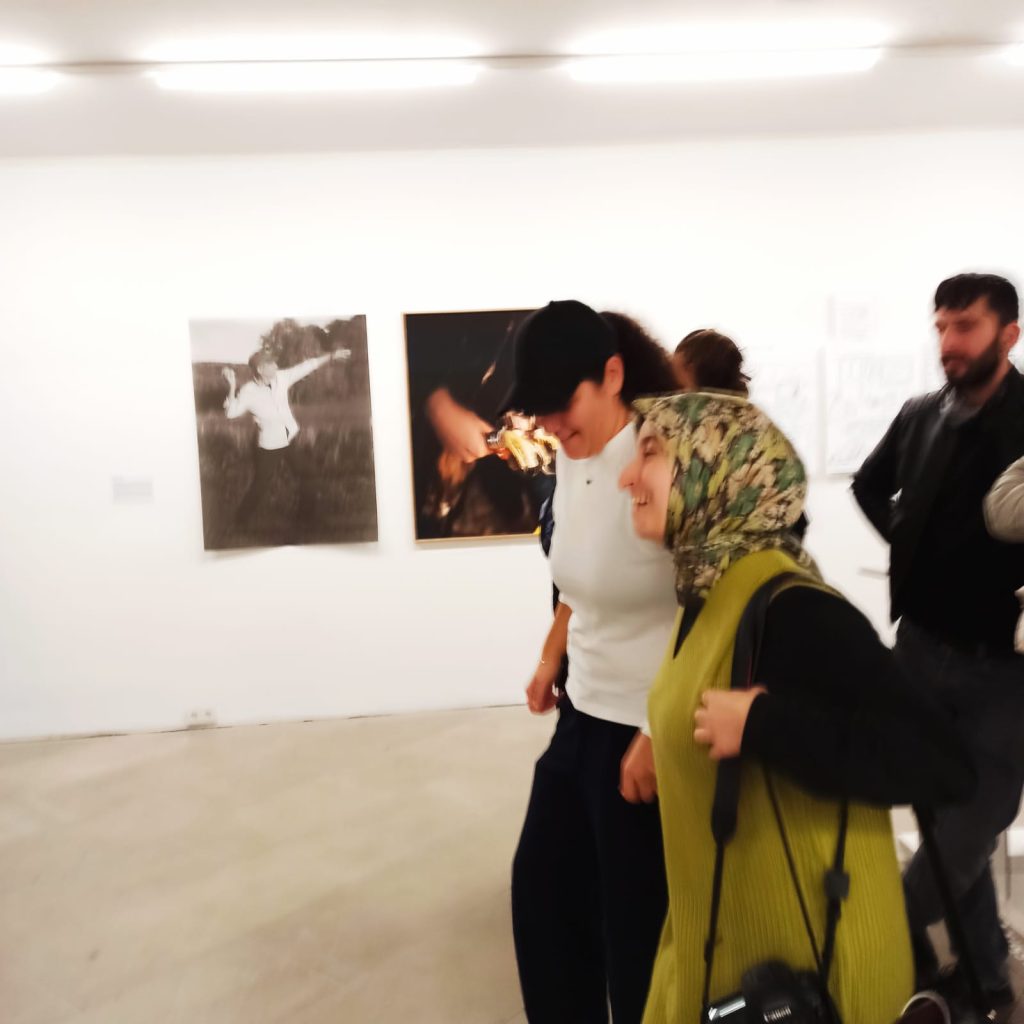
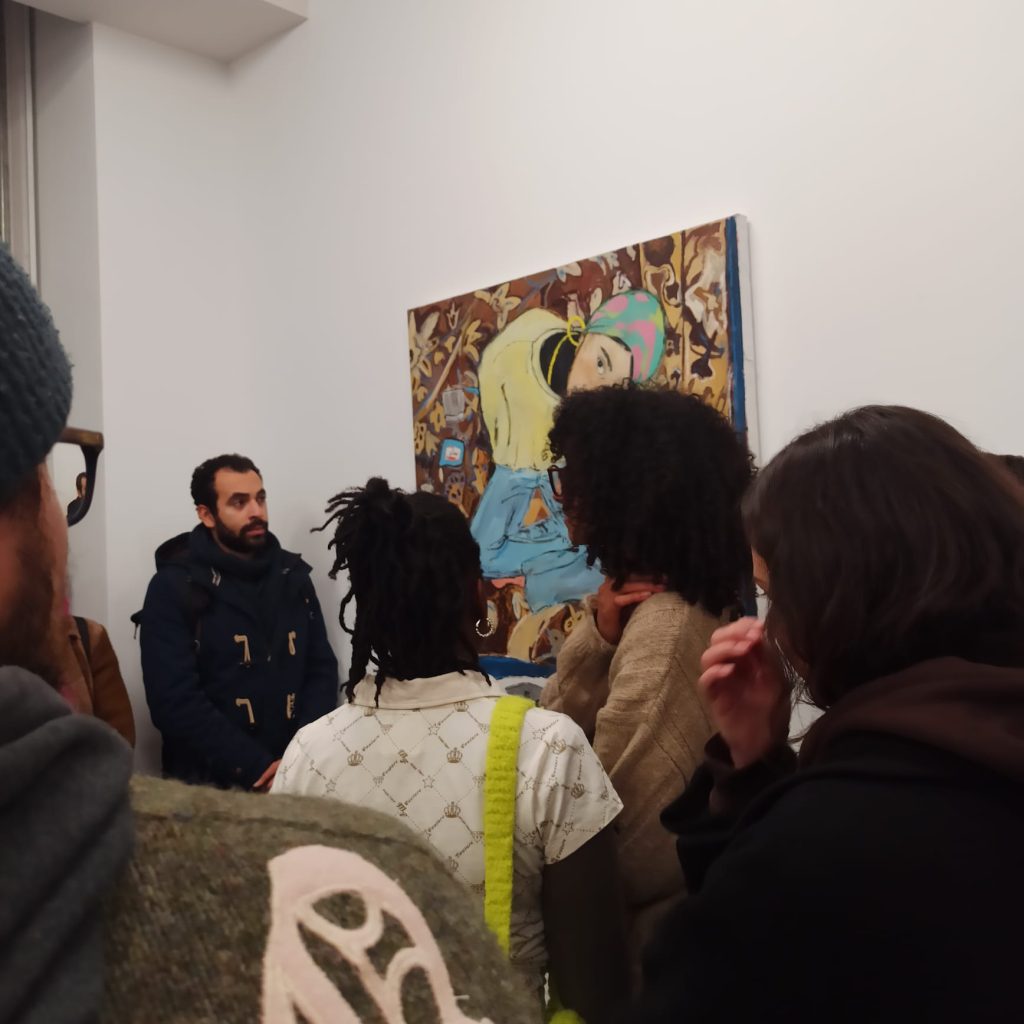
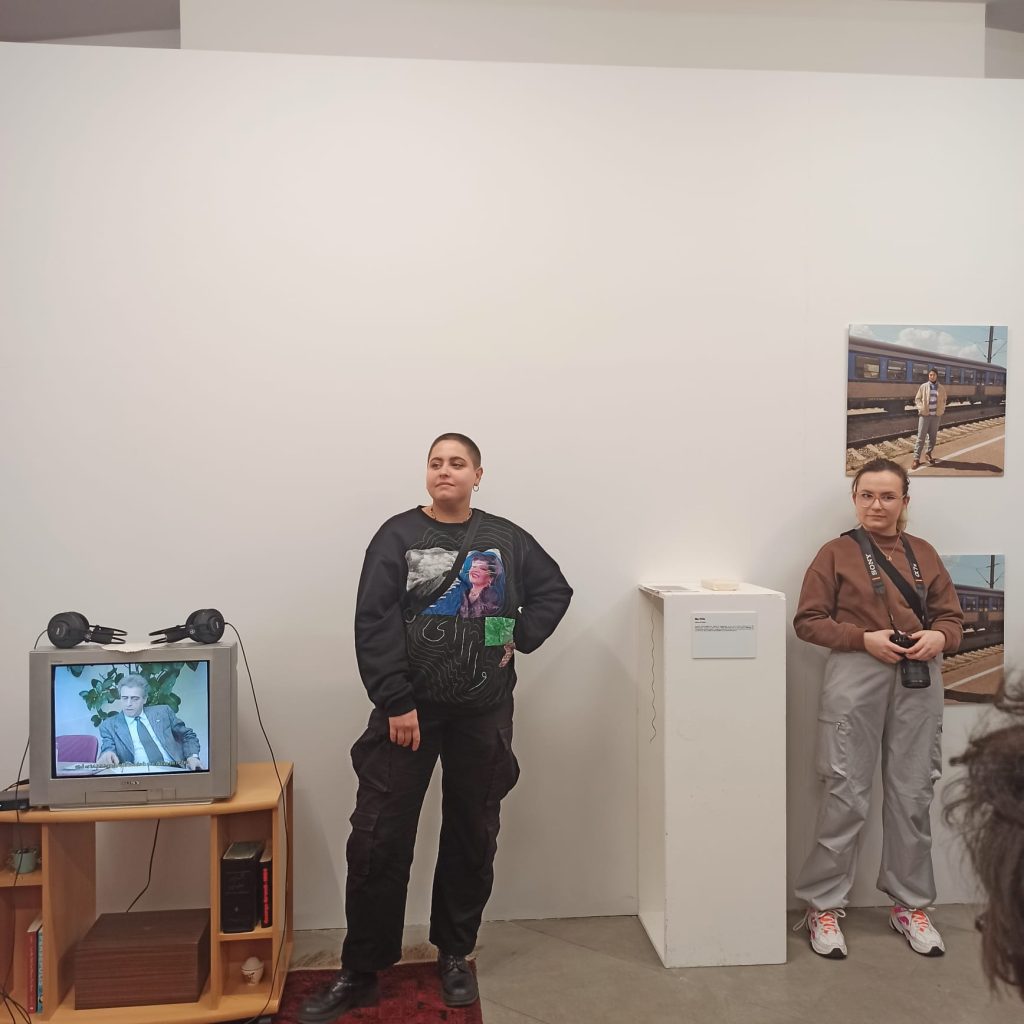
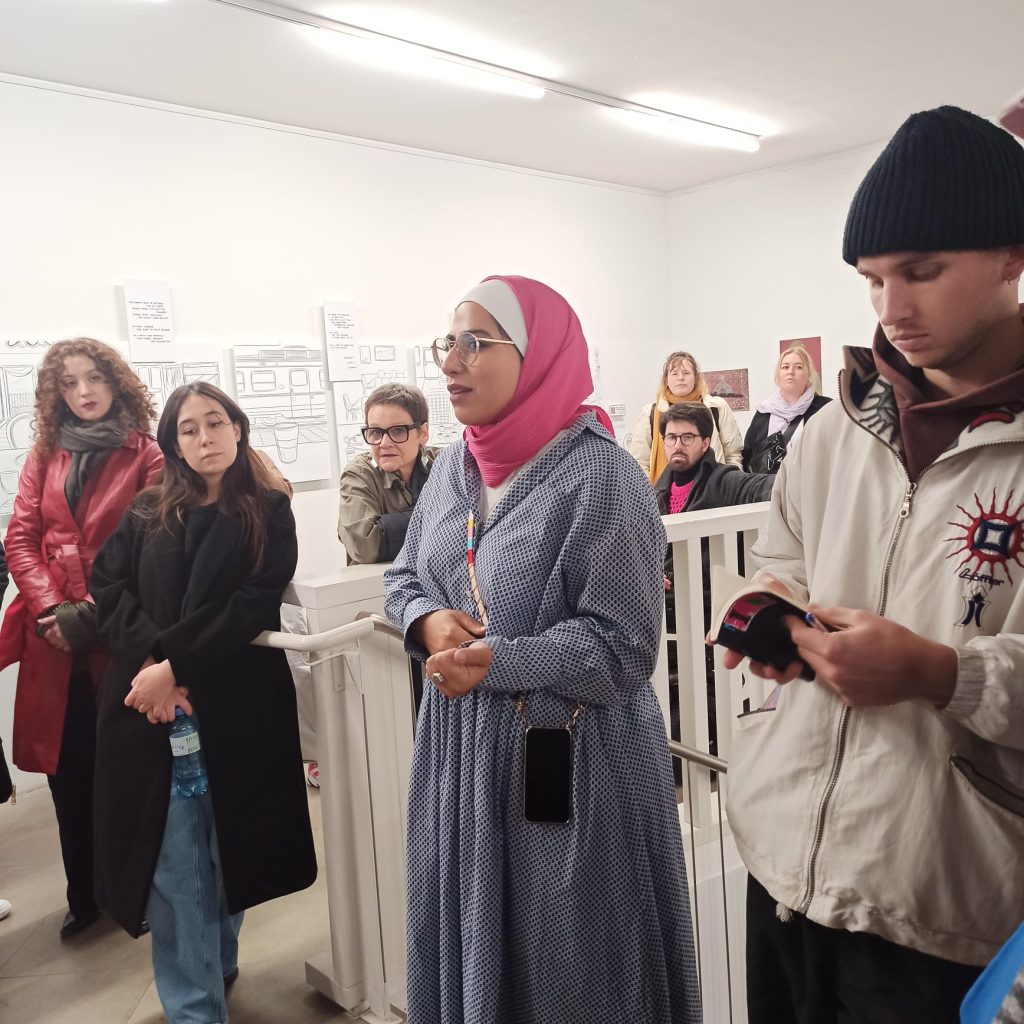
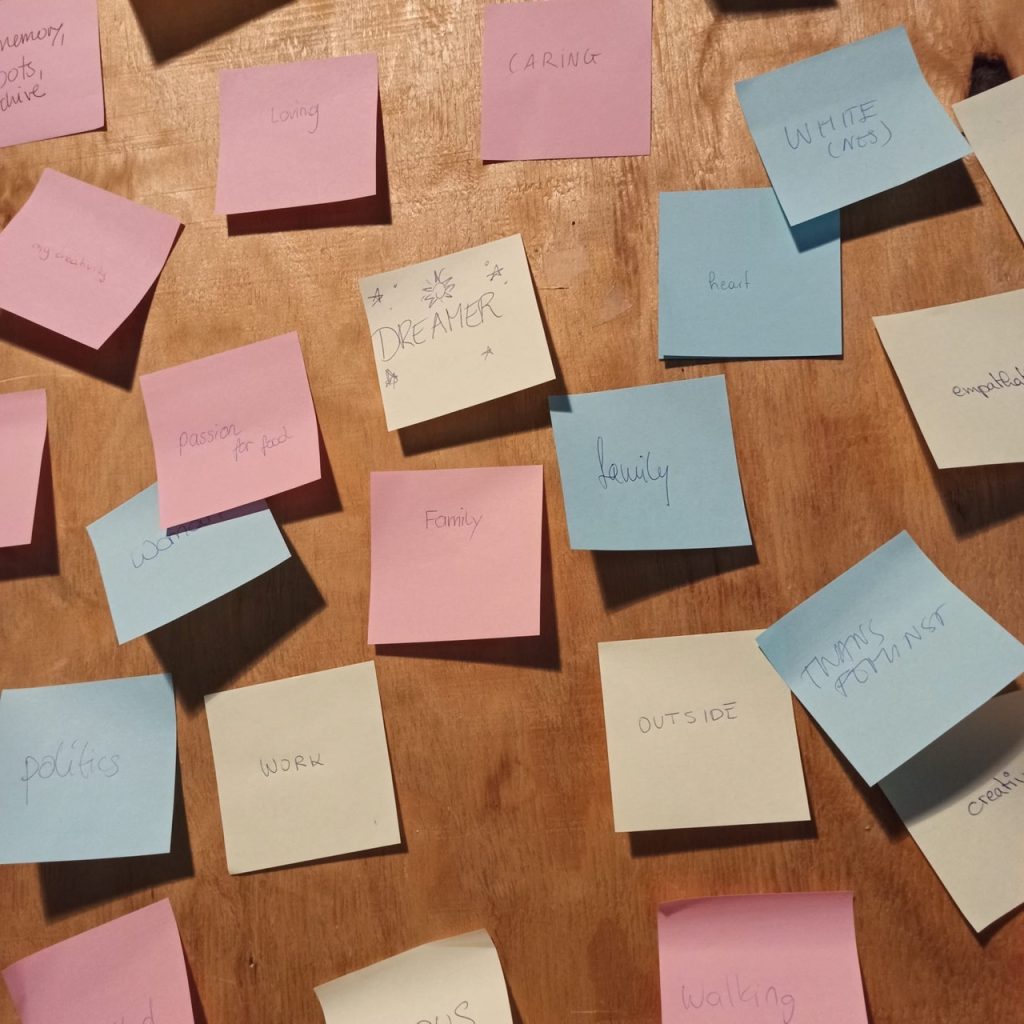
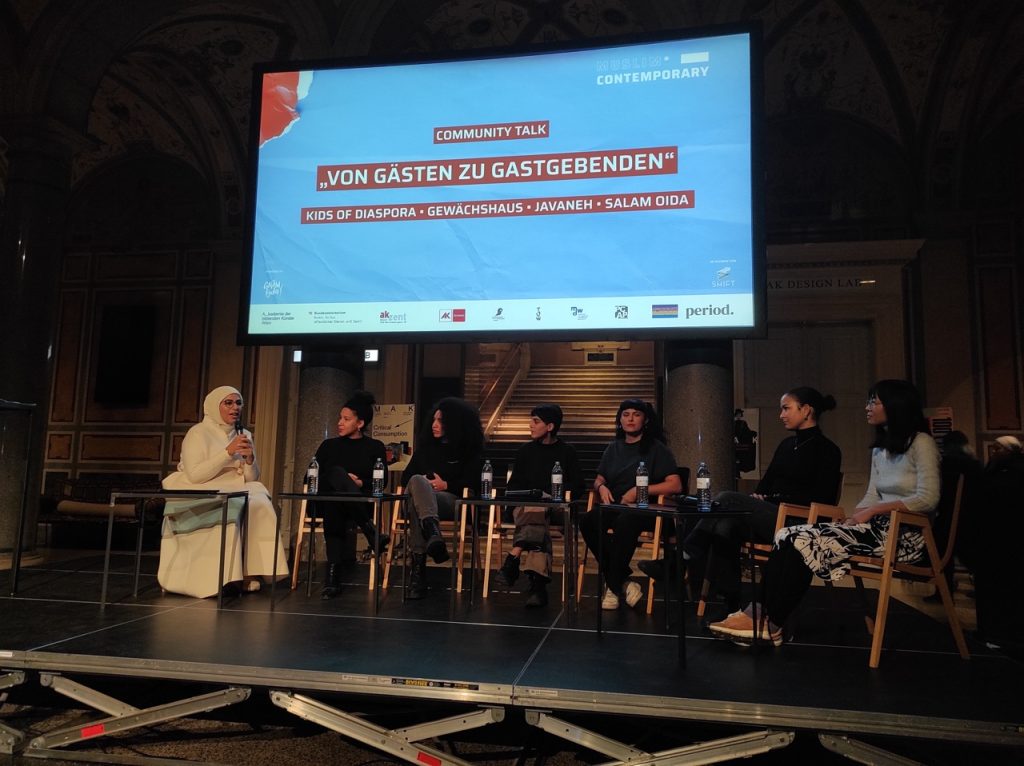
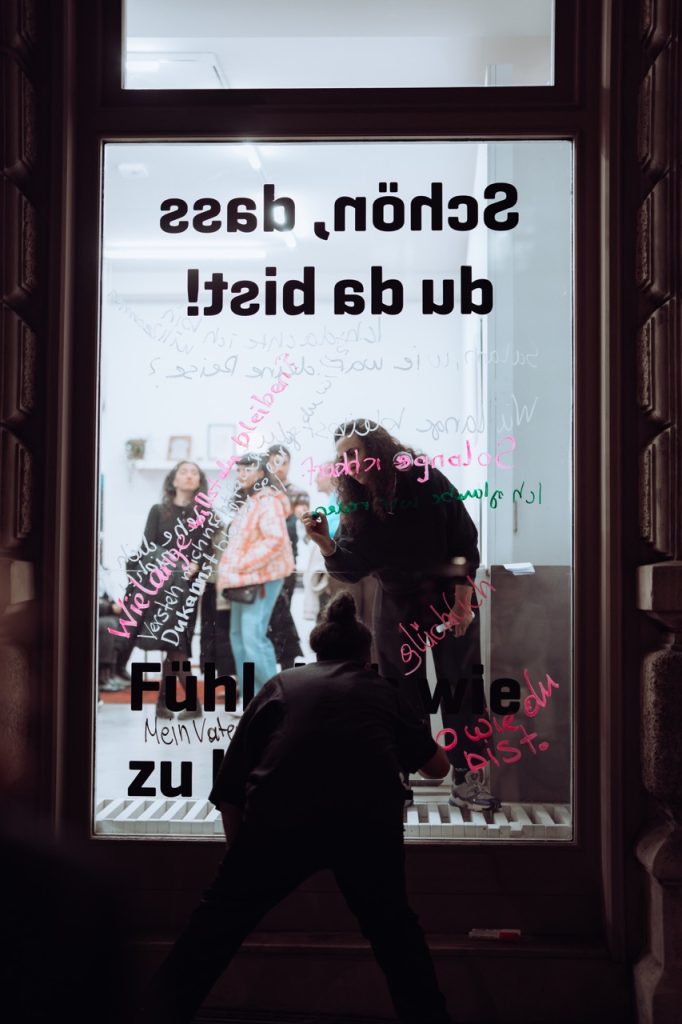
19/10/2023
CAPE TOWN DIARY
It was not easy to come to Cape Town as a white person with the Occidental white genocidal colonial history in mind and being part of the regime of whiteness. The Cape Town area is still haunted by two violent historical periods: the struggle between the Dutch and the British for colonial control after Jan van Riebeeck was sent by the Dutch East India Company (VOC) to establish a supply station at Table Bay in 1652 for ships en route from Europe to India. The second is the twentieth-century apartheid system that disfigured the city with the forcible removal of the entire racially mixed community that lived in the neighbourhood known as District Six (see District Six Museum). On February 11, 1966, the government declared District Six a white-only residential area under the Group Areas Act of 1950. More than 60,000 people were forcibly relocated and their homes demolished.
District Six, which we visited, is located on the foothills of Table Mountain. The mountain received its present name in 1652, when Dutch settlers began referring to the mountain as Table Mountain. The original name of Table Mountain was “Hoerikwaggo,” which means “mountain in the sea” and comes from the KhoiSan people. This changed when the Portuguese Admiral Antonio de Saldanha, hiked the mountain in 1503 and renamed it “Tabao de Cabo” (Table of the Cape). The mountain was sacred to the Khoikhoi and San. Both the Khoikhoi and the San were deprived of their land when the demand from passing ships soon became too great for the employees of the VOC and Dutch farmers were given land to farm and live on under the Freehold Policy. Cape Town soon became a colonial project, and a slave-based economy developed through the importation of slaves (see SAHO).
Other major migratory movements followed: Malay slaves from Dutch-occupied Java, French Huguenots fleeing persecution in France, German settlers seeking a better life in Cape Town and Natal, British settlers escaping poverty in Britain in 1820, and Indian indentured laborers or slaves brought by the British to work on sugar cane plantations in 1860.
In the run-up to apartheid, numerous social and legal decisions by the British and Dutch colonial powers ensured racial segregation. During the 19th century, Blacks, Coloureds, Indians, and KhoiSan, were forced by law to wear passes that restricted their movement. Laws were also passed denying them the right to vote and own land. By 1948, a political culture based on white supremacy was firmly established and Cape Town was a segregated city (see SAHO). The pro-Afrikaner National Party came to power and instituted apartheid. This system of racial segregation was ended in the early 1990s in a series of steps that led to the formation of a democratic government in 1994. Nelson Mandela was elected president in South Africa’s first democratic elections on April 27, 1994.
The Cape Town area is still very much influenced by these two eras of history. The post-apartheid city is characterized by a spatial division that reflects the legacy of both eras. Cape Town is all about fortified enclaves with privatized security services and computer-monitored and electrified fences, heavily gated “communities” that thrive and coexist in close proximity to informal settlements and shantytowns. Fortified white enclave, but on the other side Langa township with community and future.
So how does one enter a space like Cape Town? And most importantly, how do you enter such a space with the idea of conviviality? When we came to South Africa from Europe, we risked the harsh critique of the idea of conviviality by the community of Blacks, Coloured, designed, and classified already in the apartheid time of coexisting communities in Cape Town.
Whose conviviality are we talking about? The White regime of power lives in an illusion, a utopia of living together in the midst of a world that is literally falling apart. The question that came up palpably during our visit to Cape Town is that conviviality amidst such racialization processes is maybe just another Eurocentric idea of totality. A totality that is achieved through a state of exception and the inclusion of the excluded as a structural necessity. The critique was apt: as we are part of this regime of whiteness.
We were also grateful for a generous encounter that allowed all these open questions to be brought to the table, face to face, and to allow confrontations, confrontations of violent histories, confrontations of different struggles, confrontations of different identities, different thoughts and perspectives, different ideas of the future, but also drawing parallels between them.
Even if one hesitates to refer to the Latin “convivium,” the word means having guests at the table. So putting things on the table, and giving food for thought, could be one of the approaches to rethinking what the notion of conviviality could bring in today’s world and for the future. And that means questioning institutional, economic, and political structures and positions that make it difficult to live together in peace and justice, respecting nature and what is left of it.
In “‘Carnal Conviviality’ and the End of Race?” (Ethnic and Racial Studies, 2023), Amit Singh addresses some of the confusions and contestations associated with Paul Gilroy’s conceptualization of conviviality. In particular, with regard to post-Brexit Britain, Singh argues “that conviviality cannot be reduced to mere tentative co-existence, nor does it designate the absence of racism.” Rather, it shows “the messy complexity of everyday life,” in which people try to build lives side by side while thrown together at the margins of society. Singh focuses “on radical forms of togetherness” and speaks of “bodily convivial encounters” that represent “the messiness of everyday life as people attempt to grapple with – and overcome – emergent racism.”
Singh makes several important points: that a convivial culture need not be a bourgeois mindset, but is an inherently politics from below; that conviviality does not mean the absence of racism (in the post-racial sense); and that convivial encounters are fraught with tensions and must be worked through and negotiated.
It is not, then, a kind of “melody” of multicultural conviviality to which we aspire, but an encounter that allows for confrontation, for coming to terms with the genocidal past and present, for thinking about ideas of refusal, for demanding justice, for caring…
As Gilroy argues in his Postcolonial Melancholia (New York: Columbia University Press, 2005), “the radical openness that brings conviviality alive makes a nonsense of closed, fixed, and reified identity and turns attention towards the always-unpredictable mechanisms of identification” (xi) (J. Pristovšek).
9-13/10/2023 RESEARCH EXCHANGE SOUTH AFRICA: going to Cape Town
13/10/2023
DAY 5
FIELD RESEARCH
CAPE TOWN
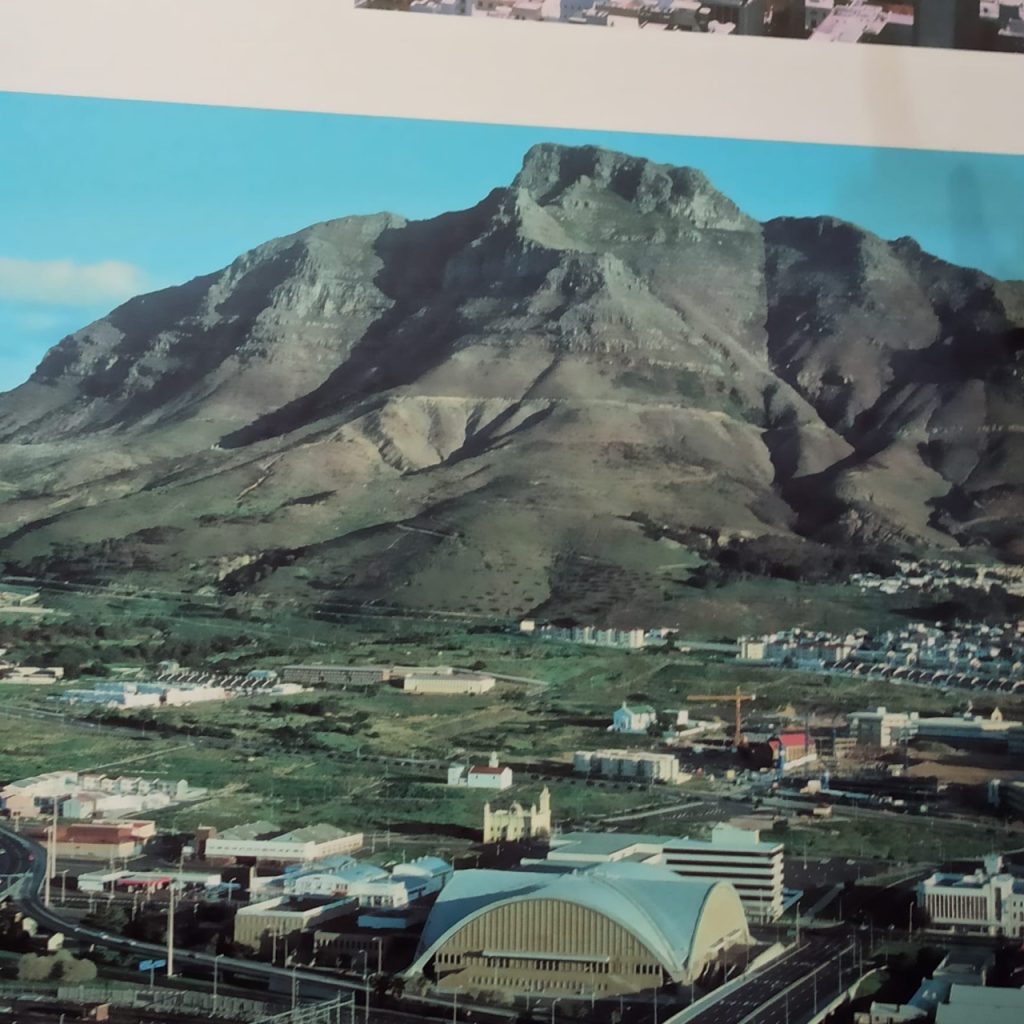
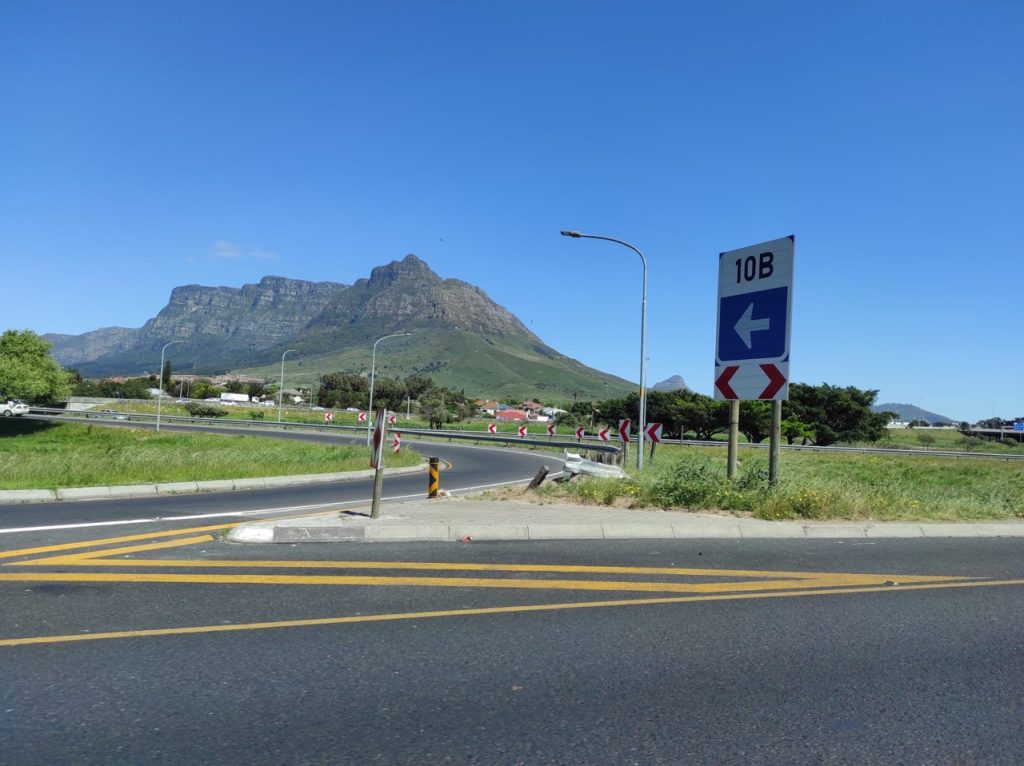
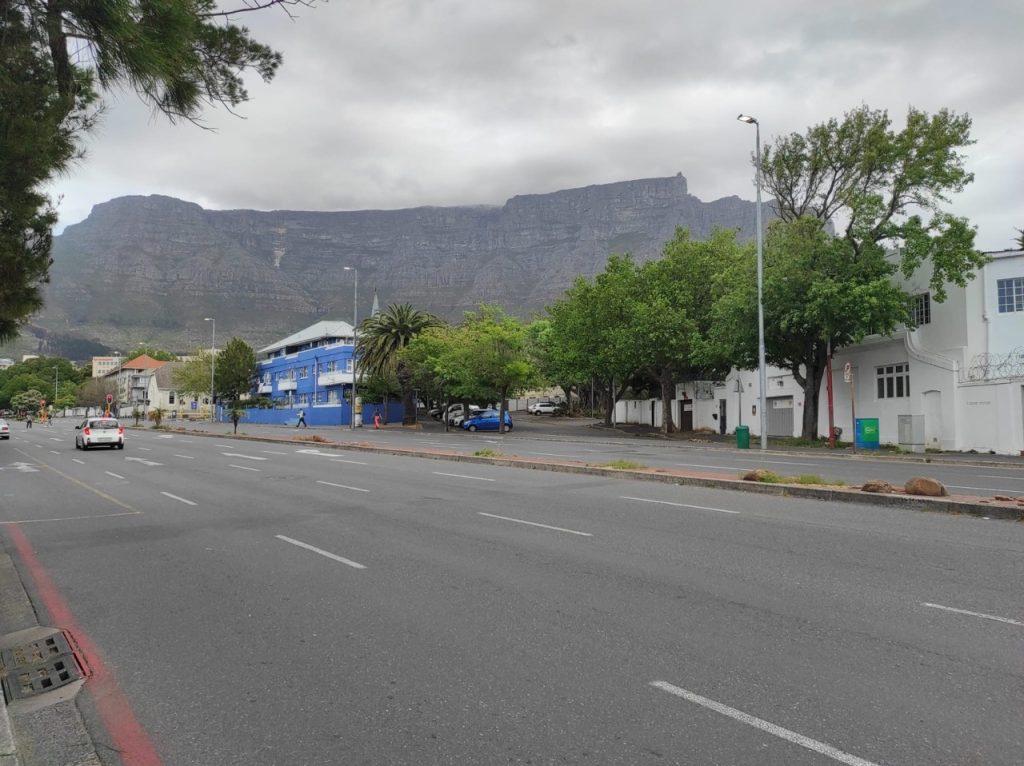
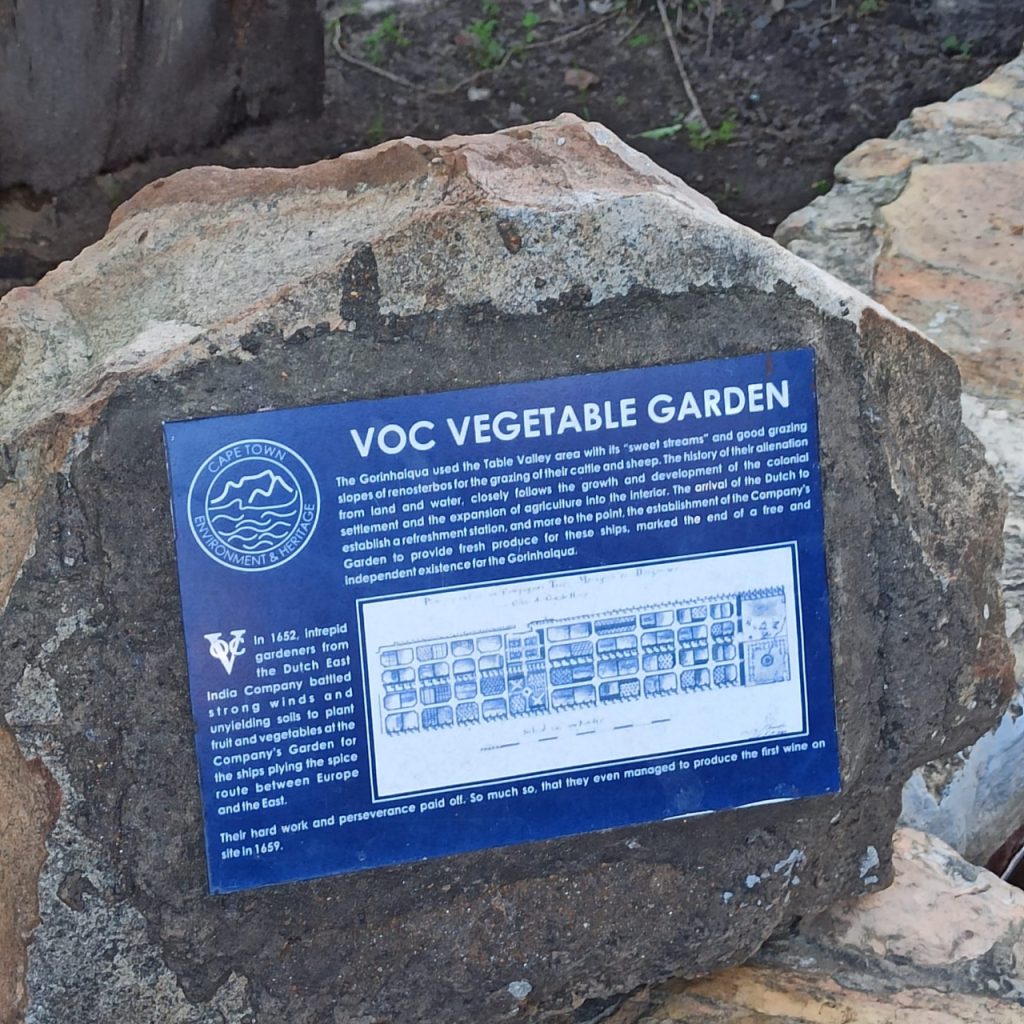
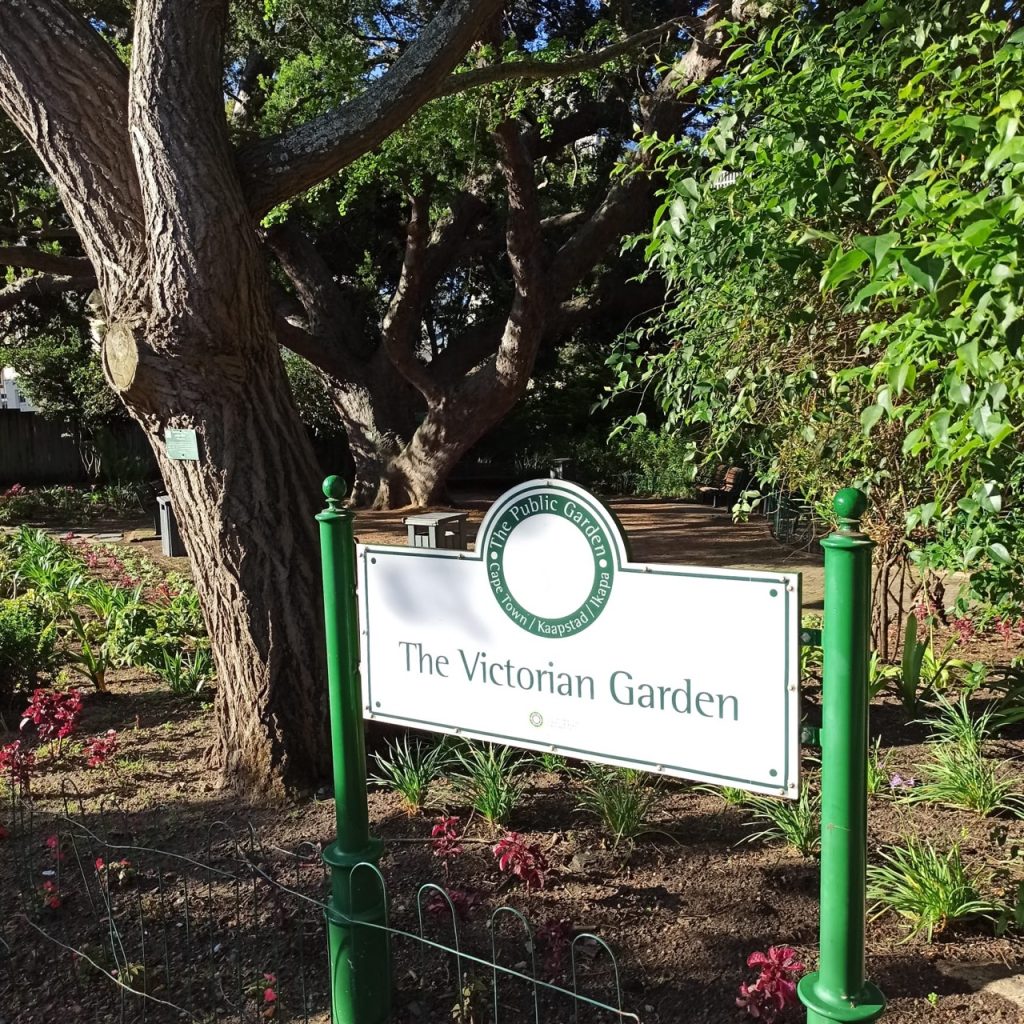
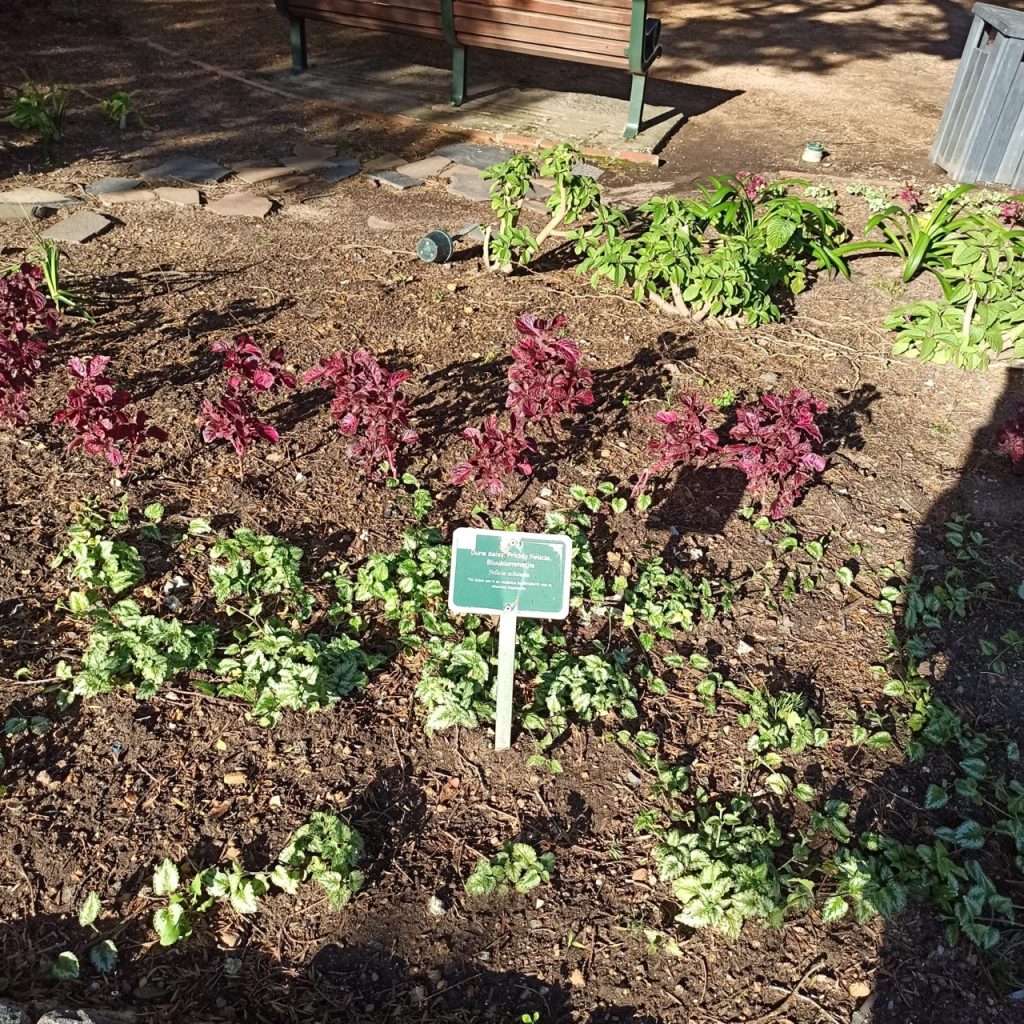
12/10/2023
DAY 4
FIELD RESEARCH
CAPE TOWN
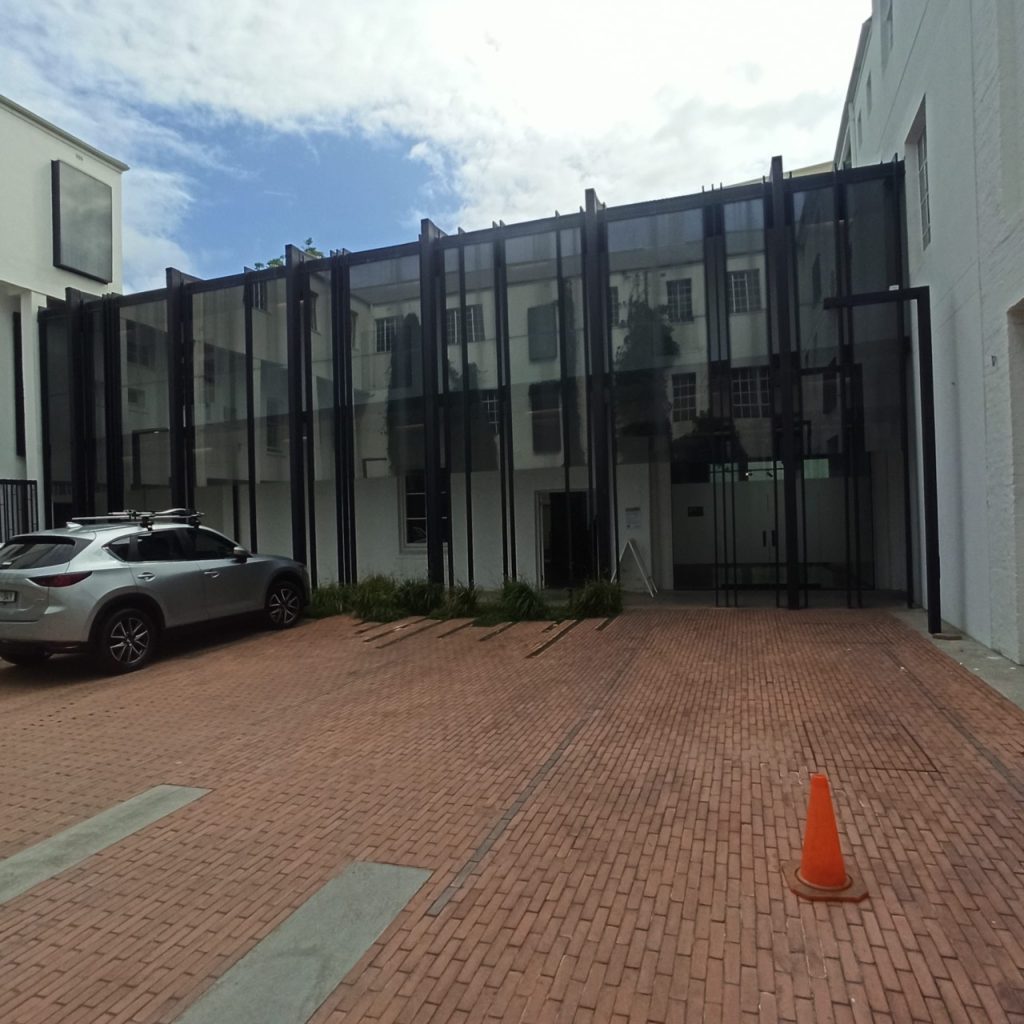
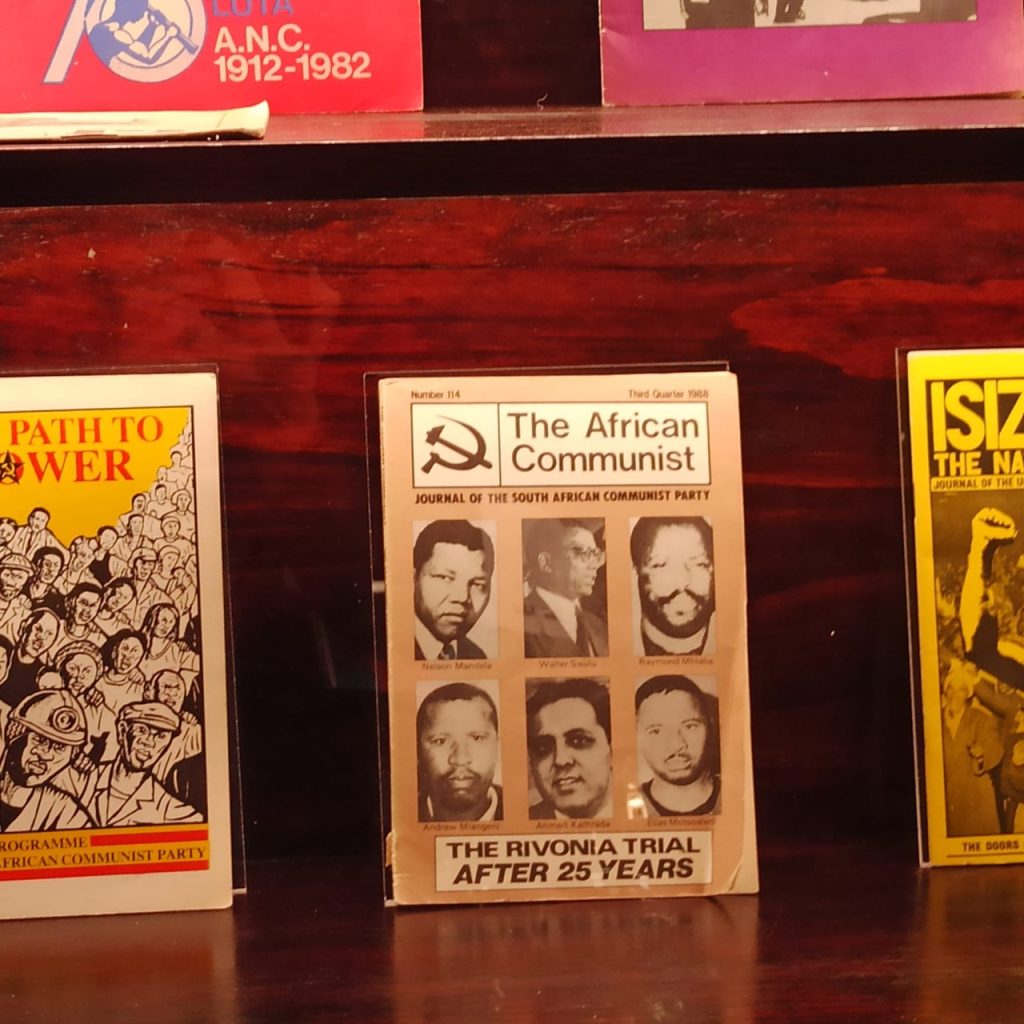
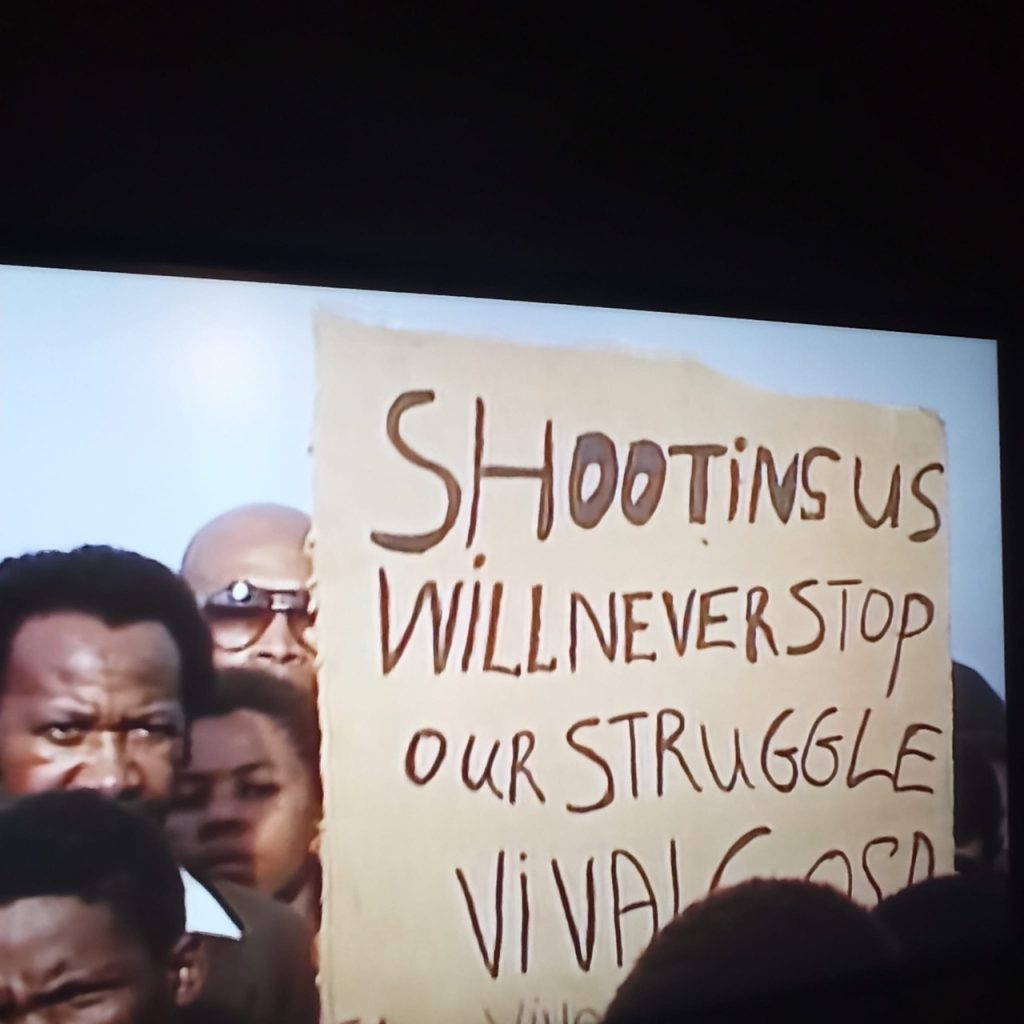
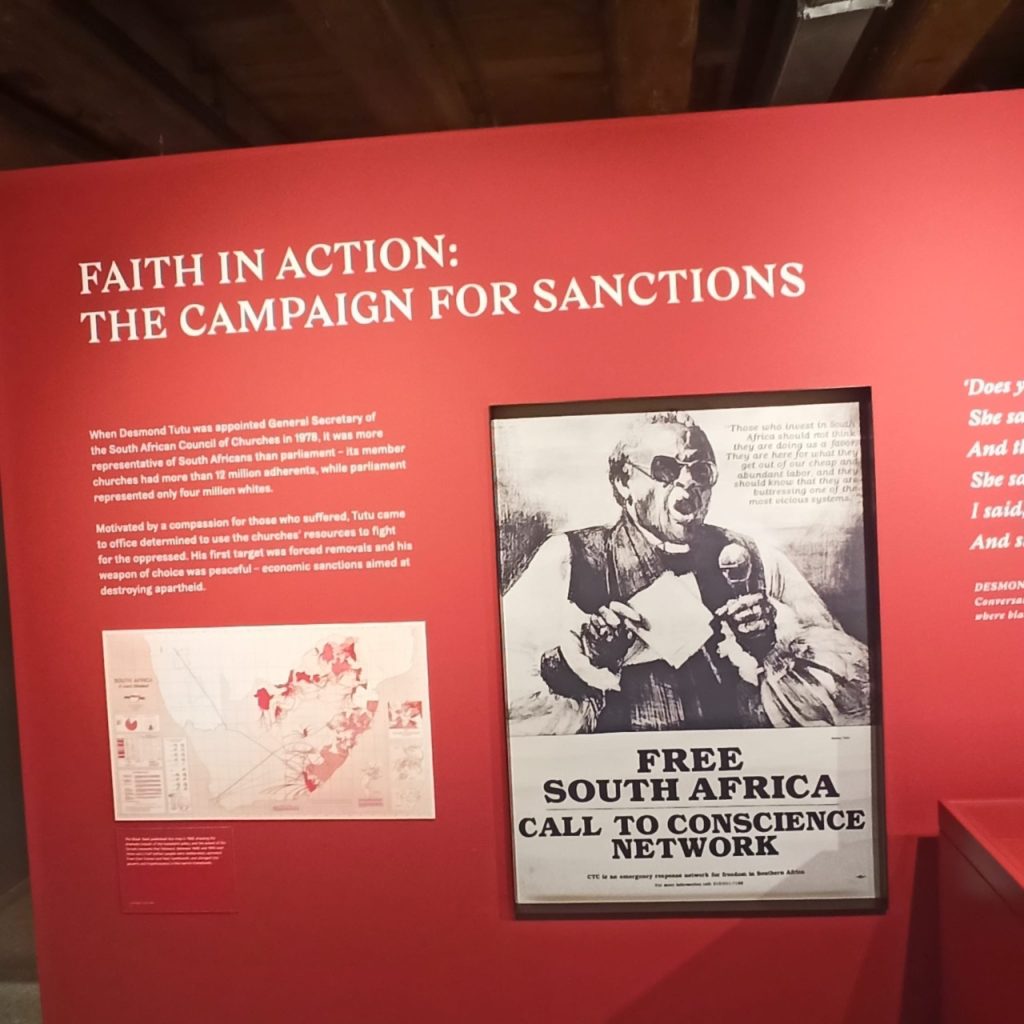
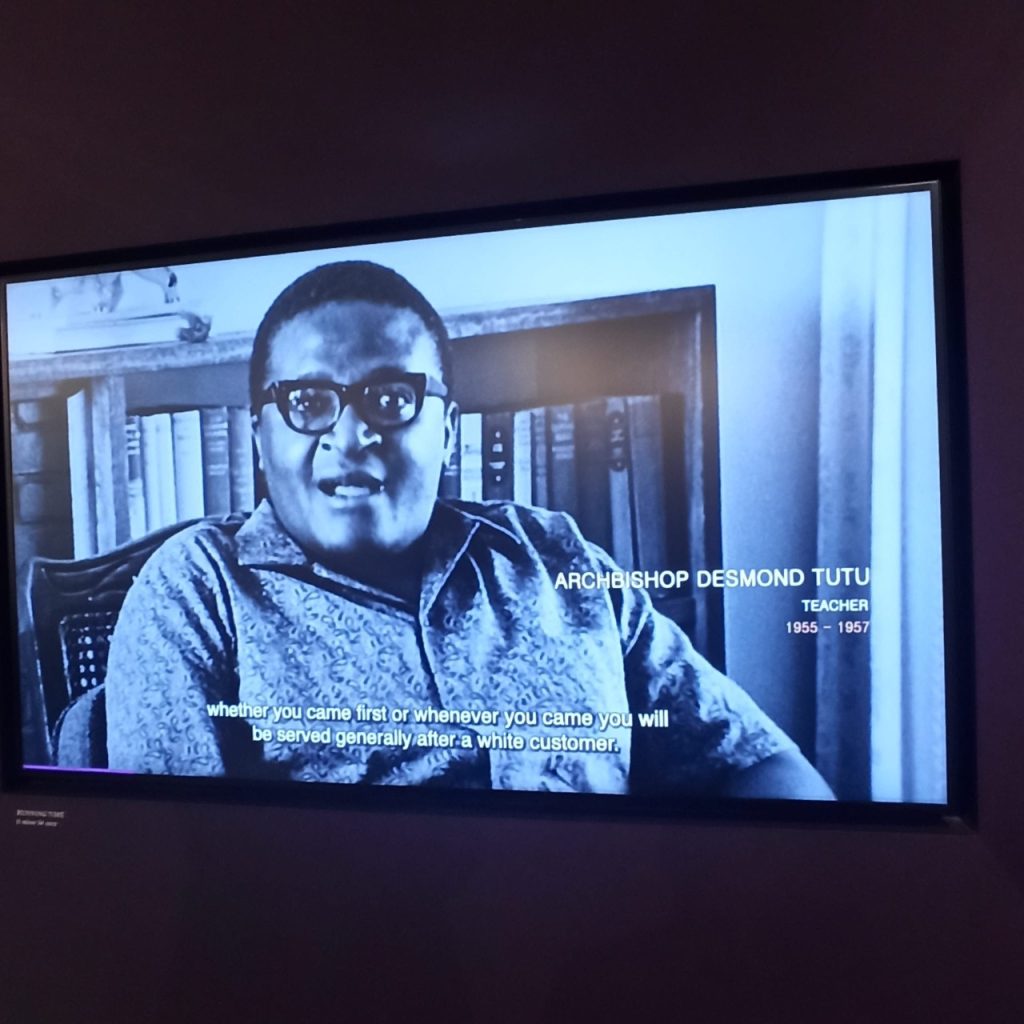
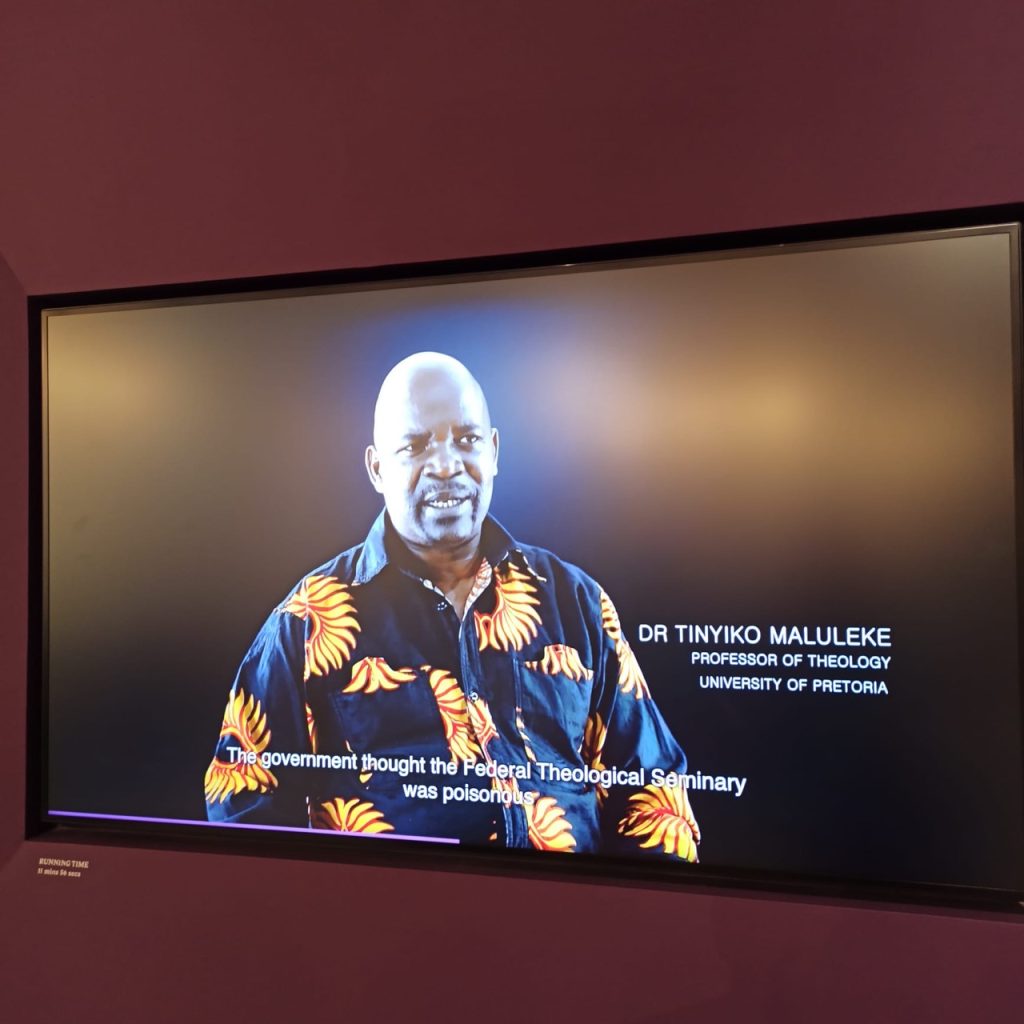
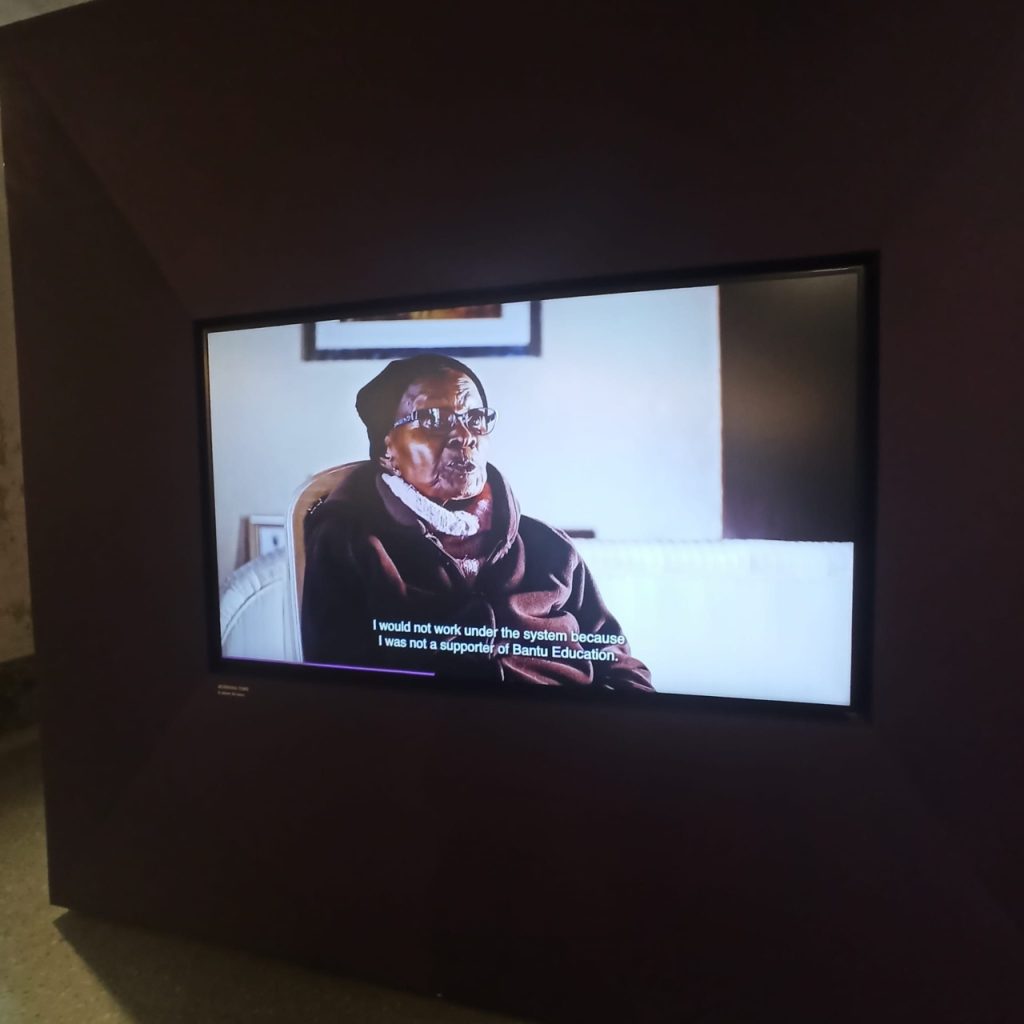
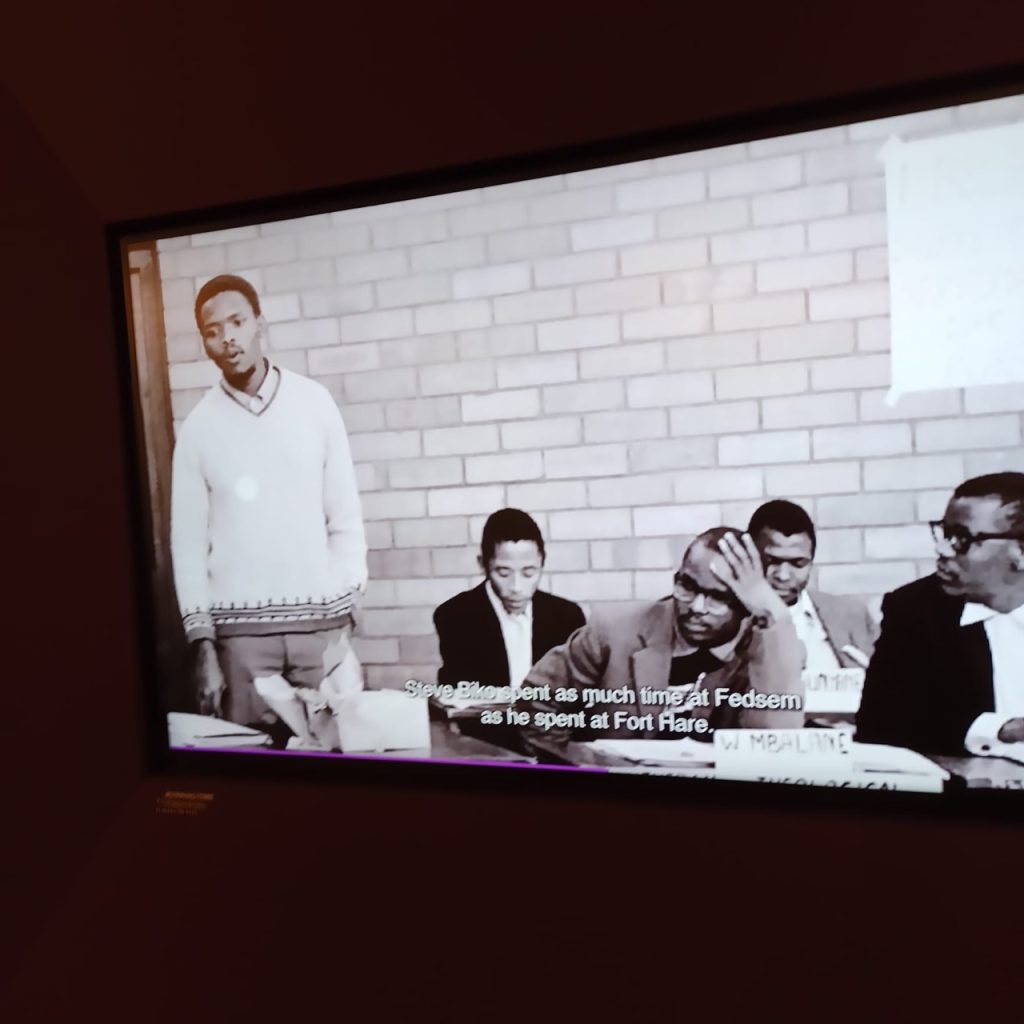
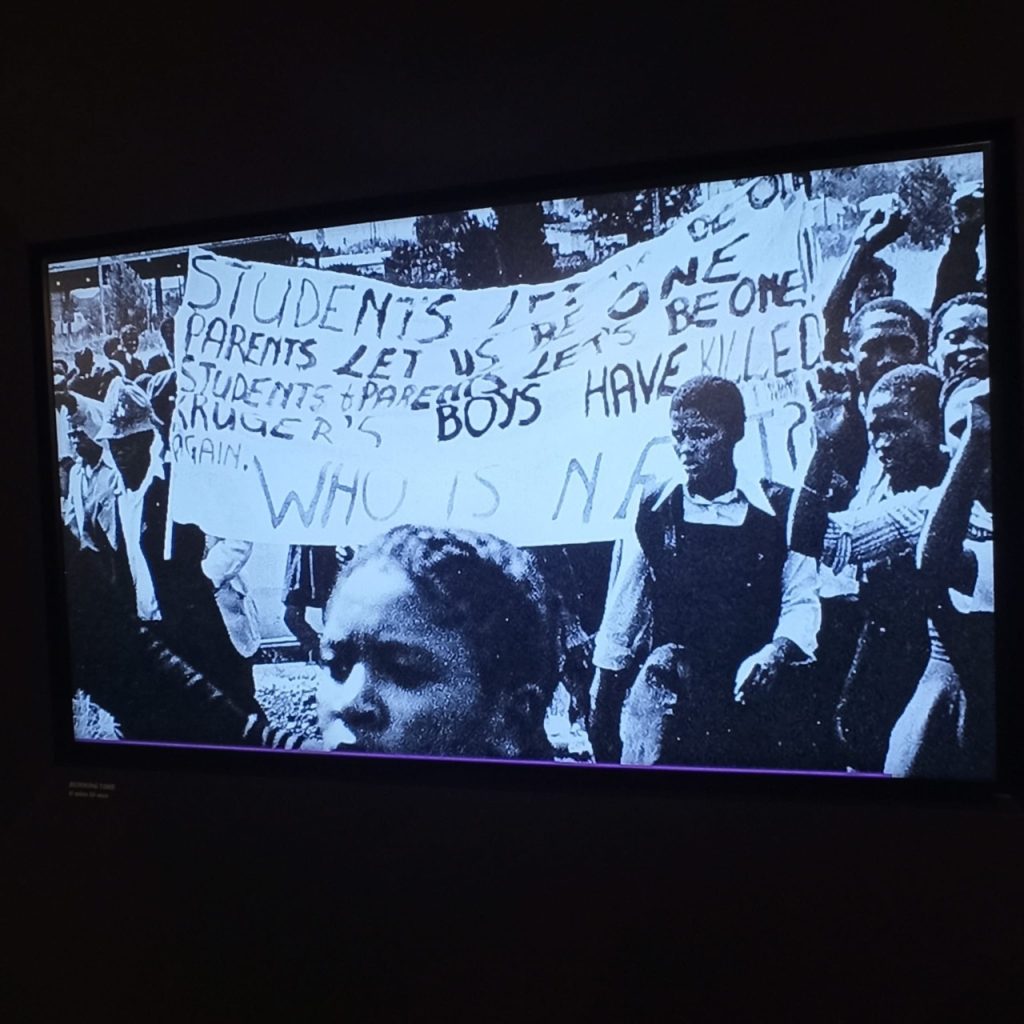
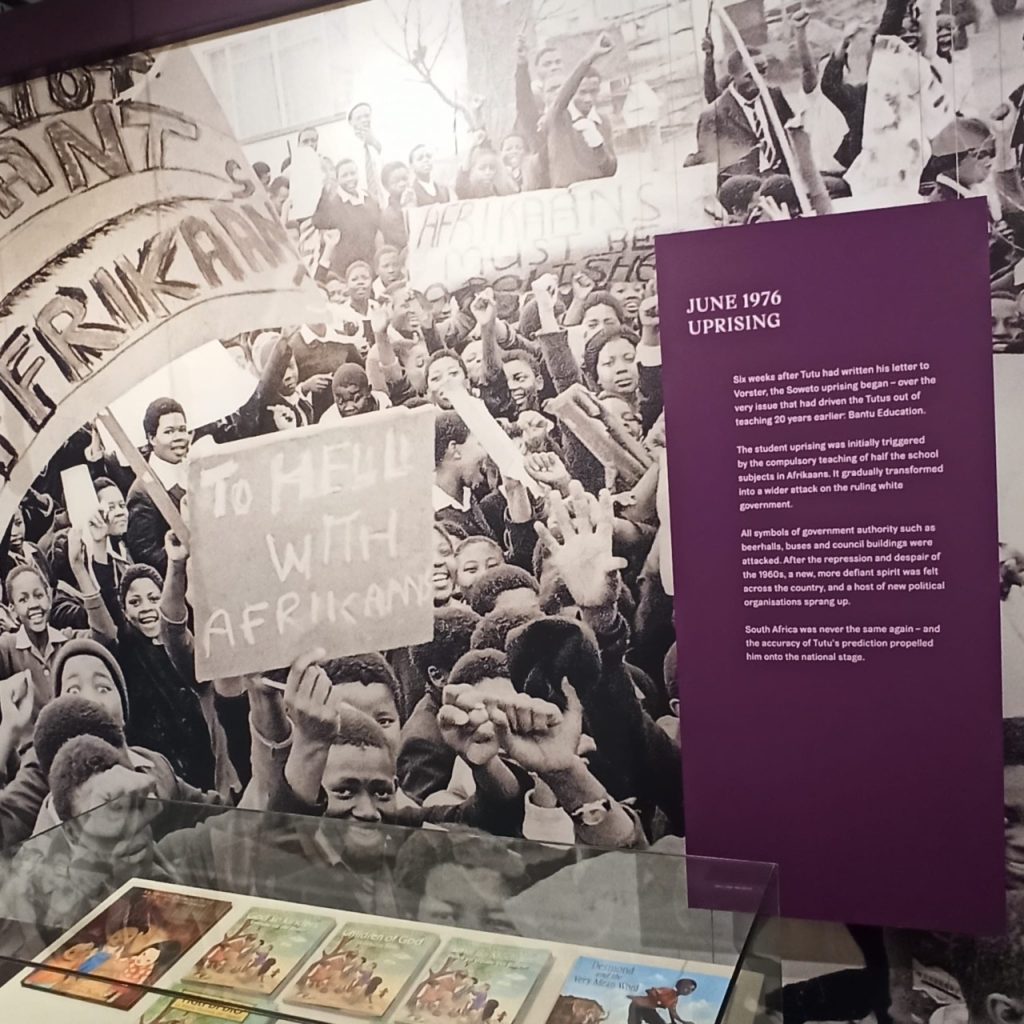
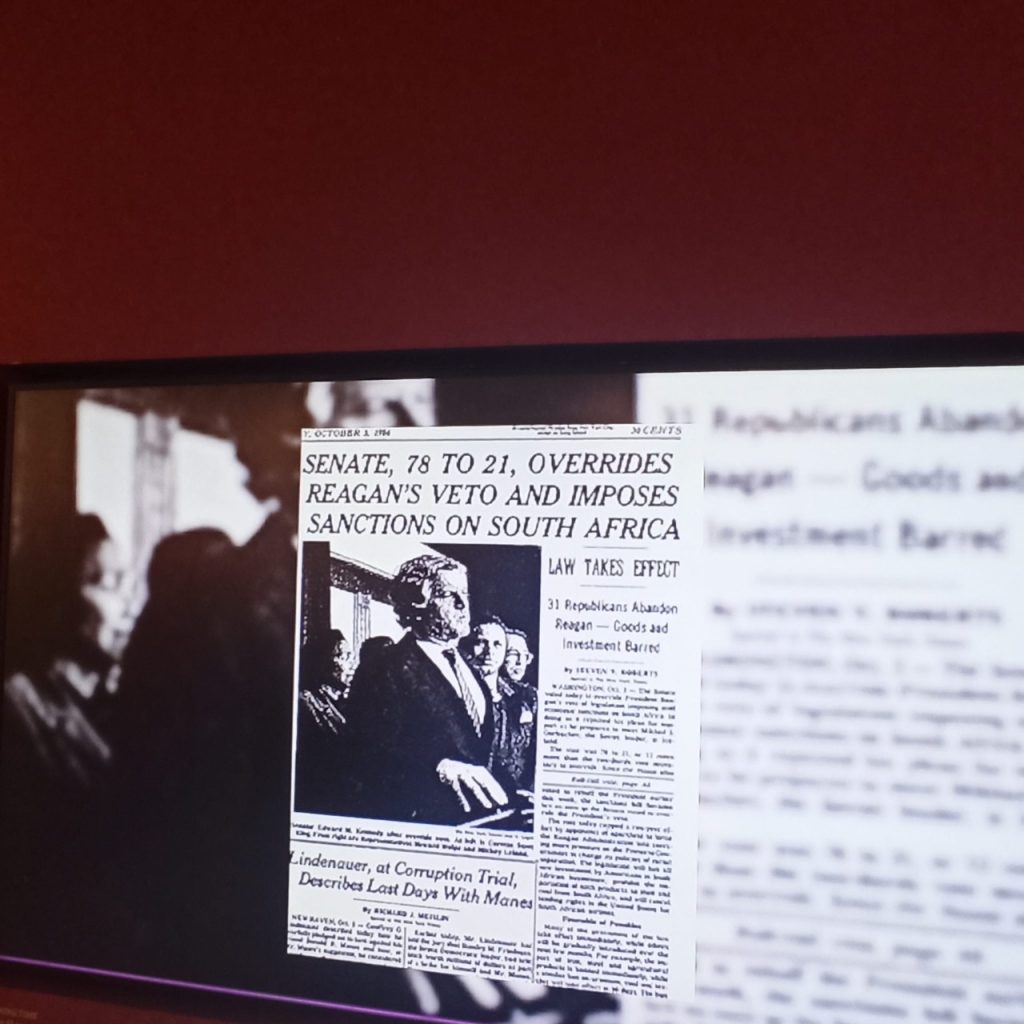
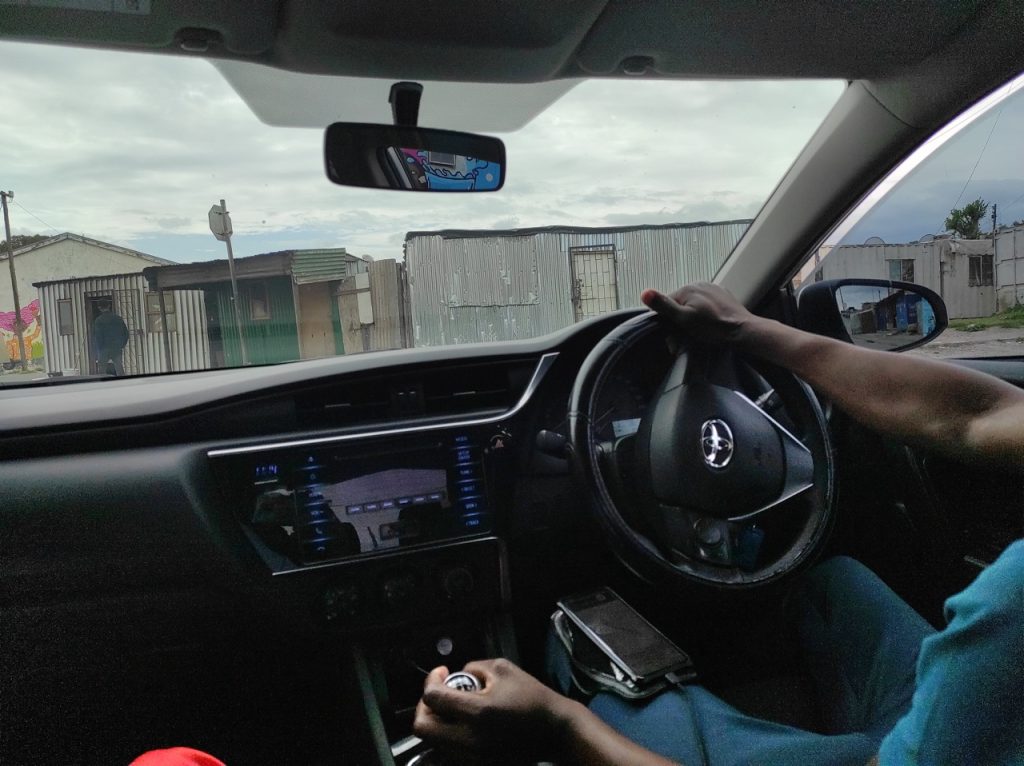
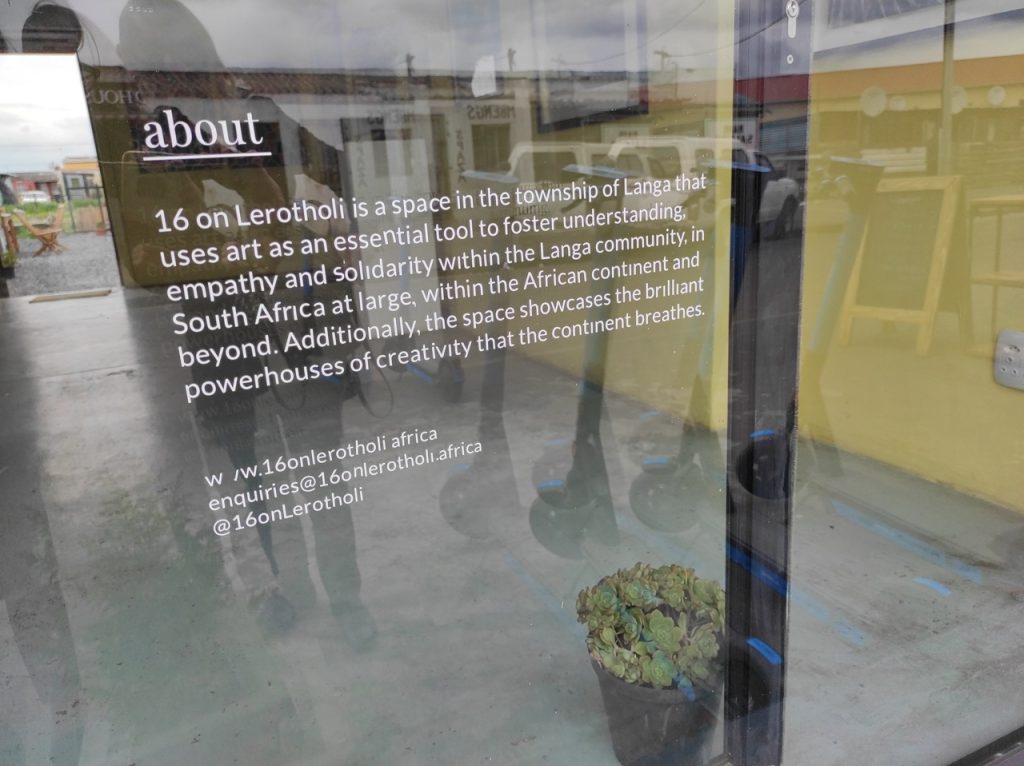
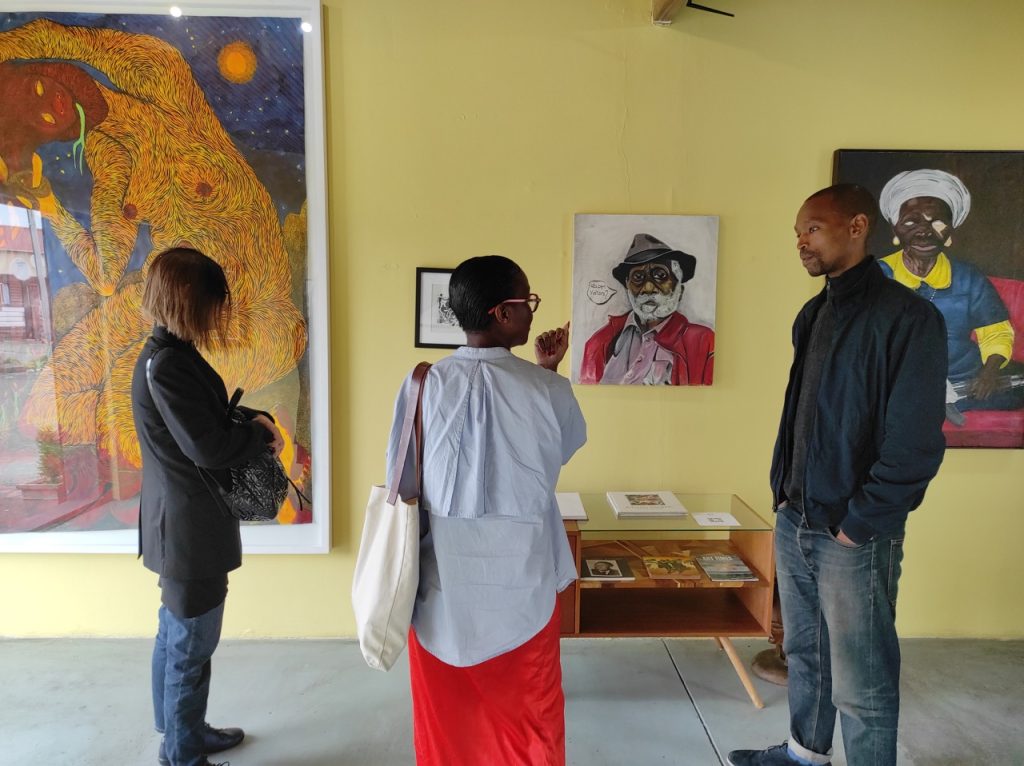
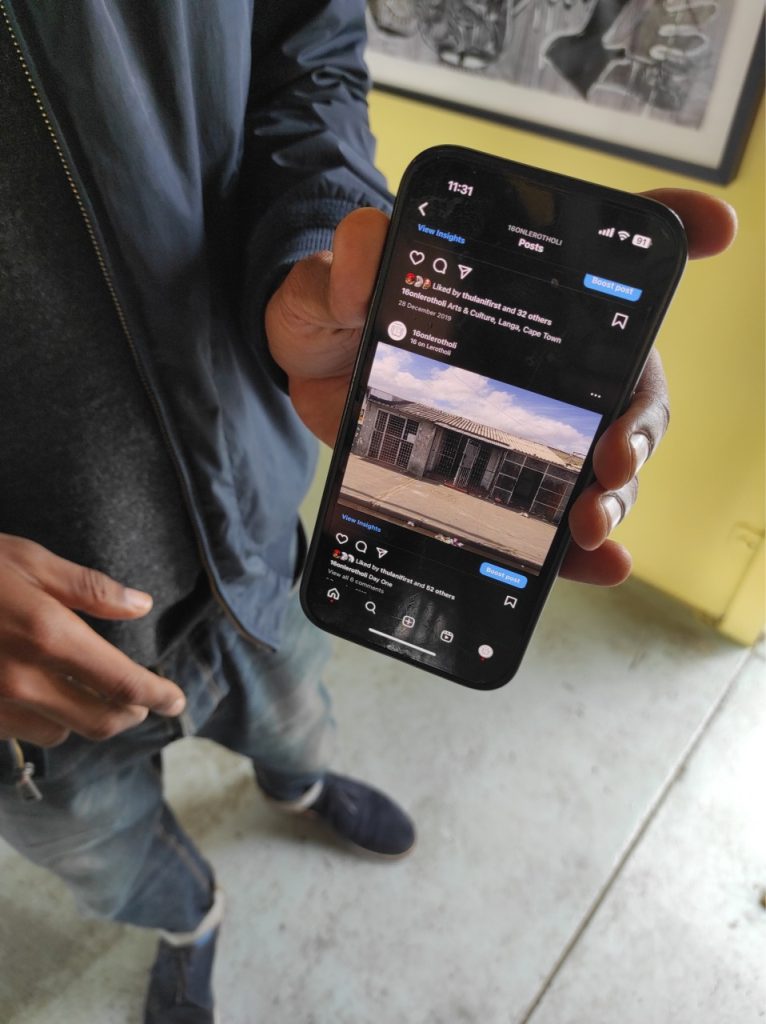
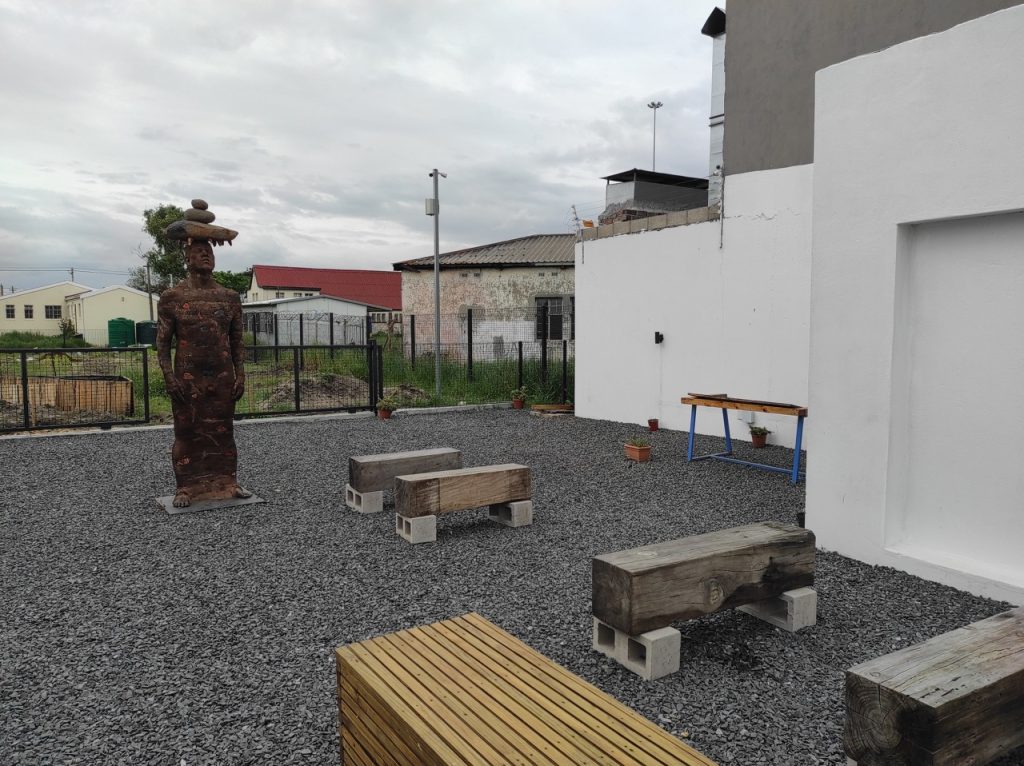
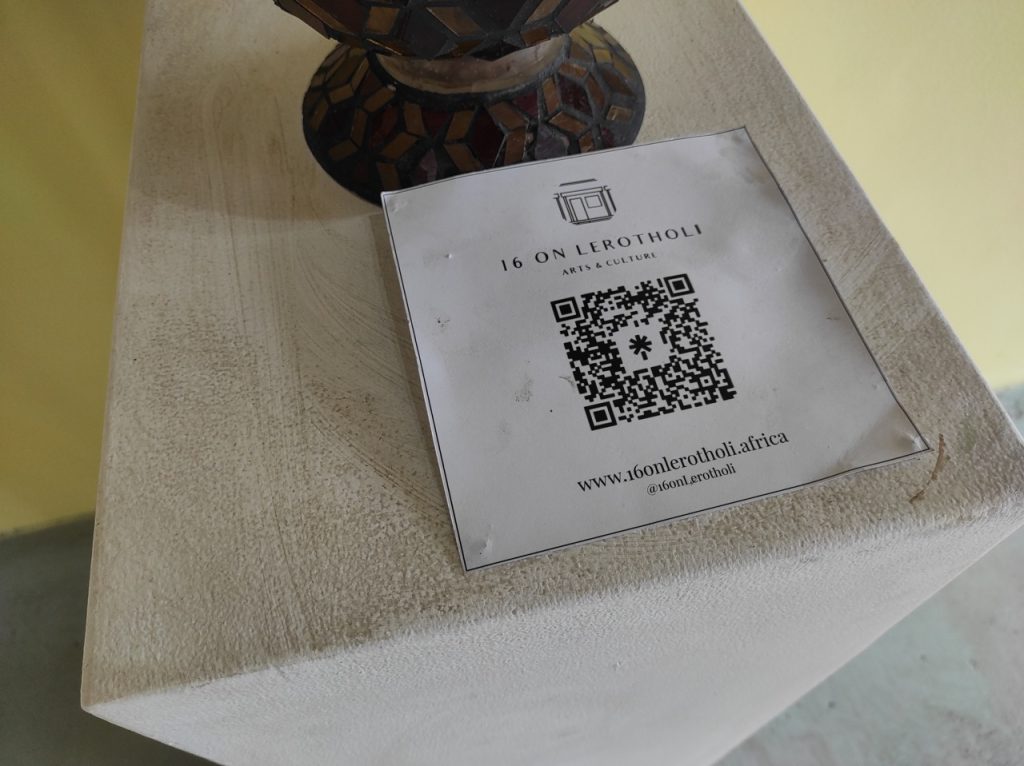
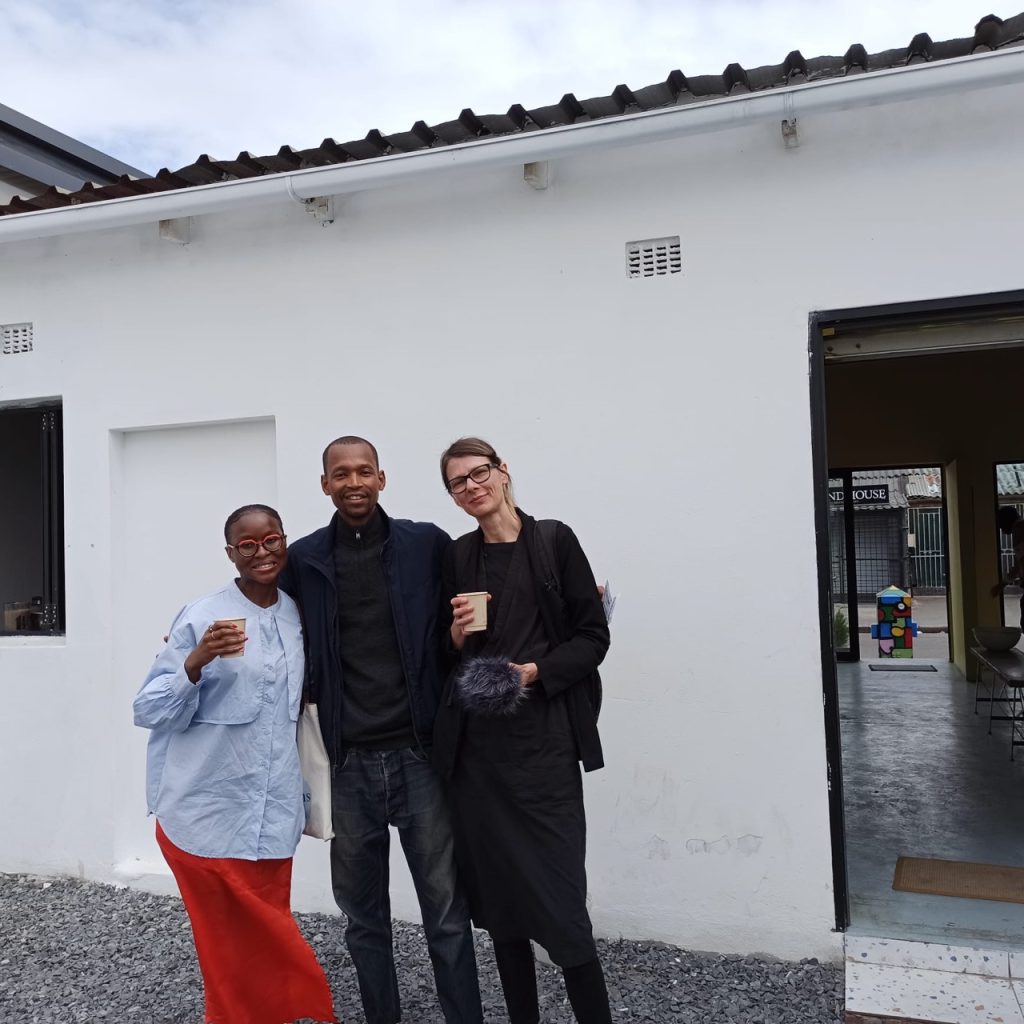
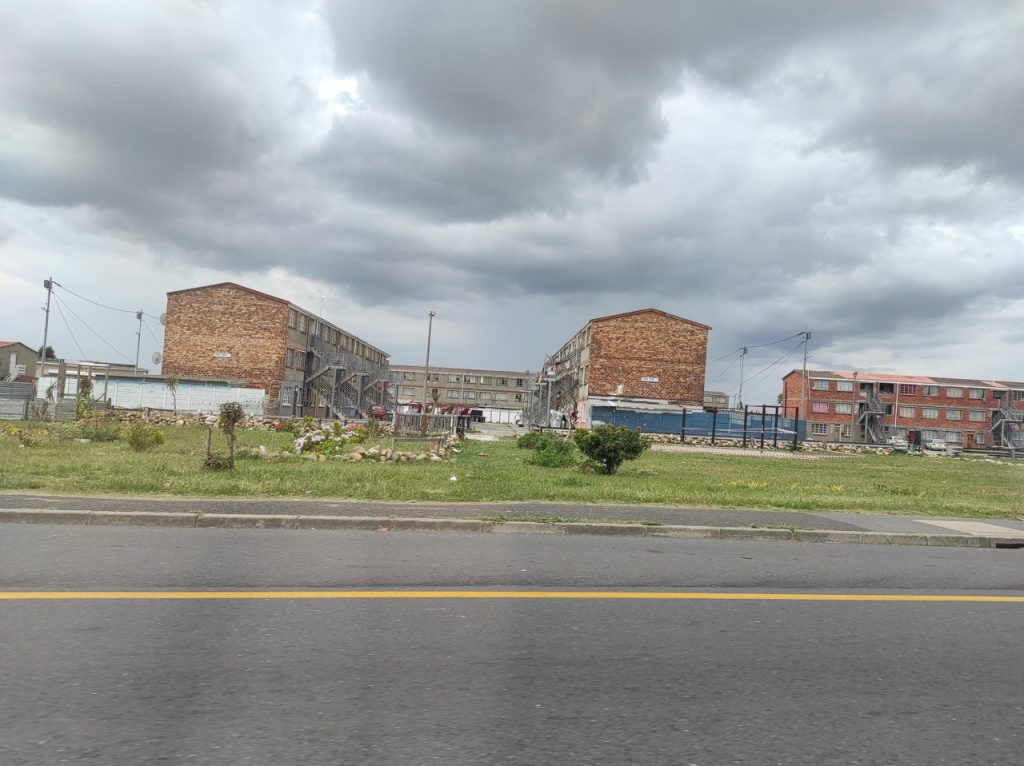
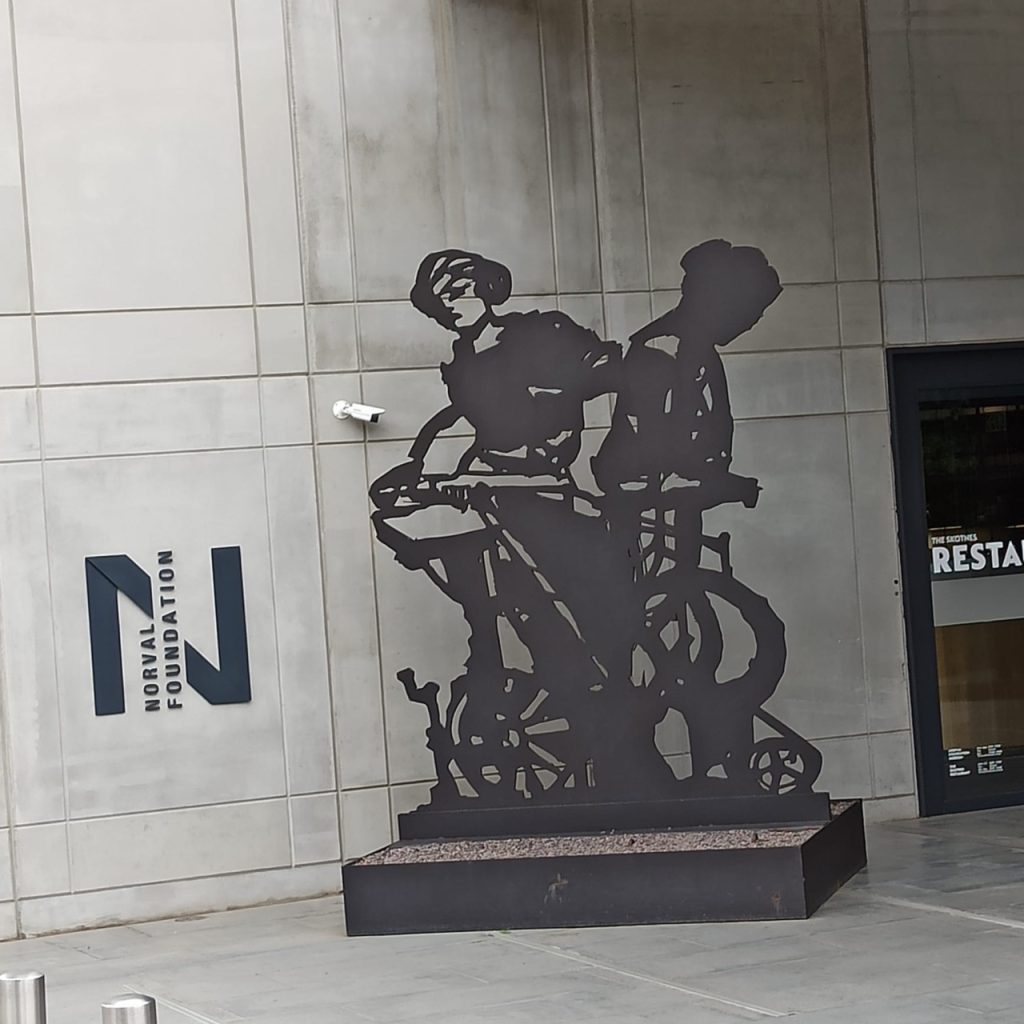
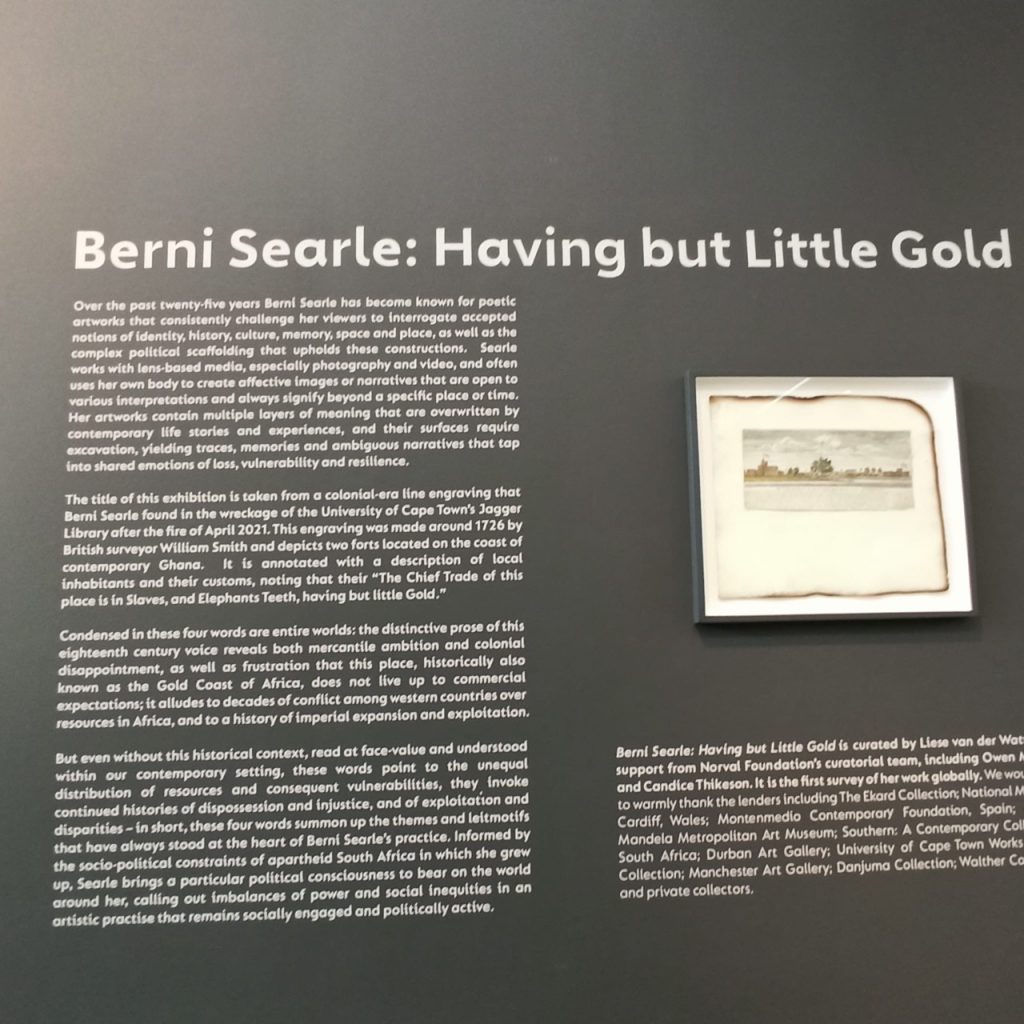
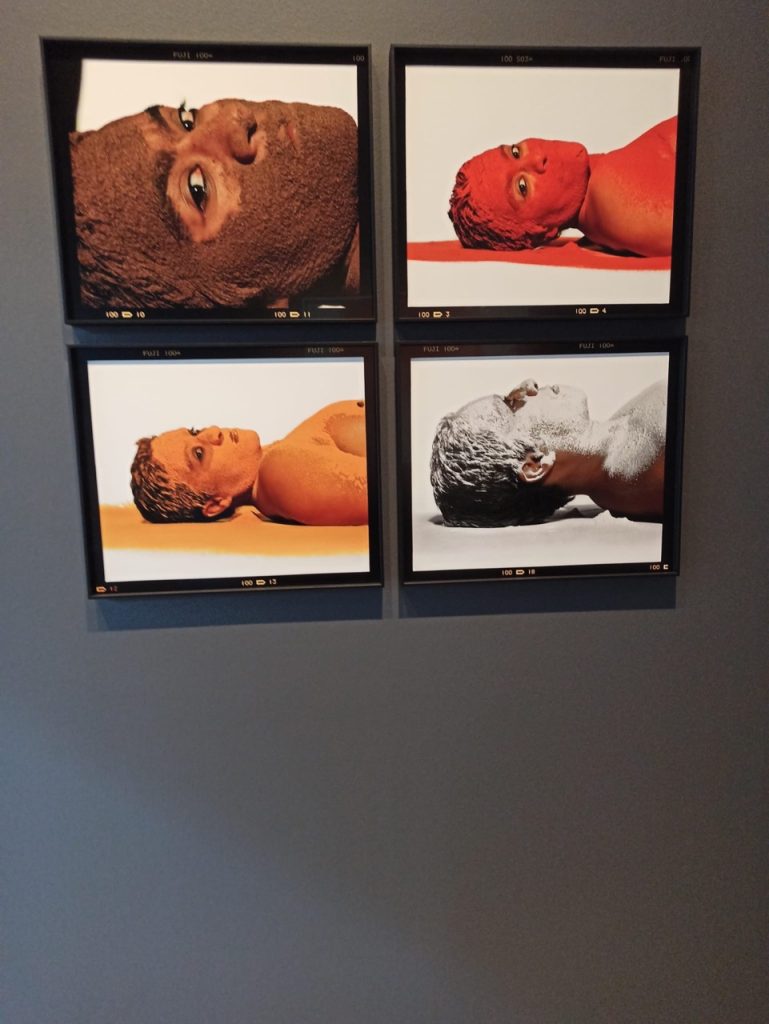
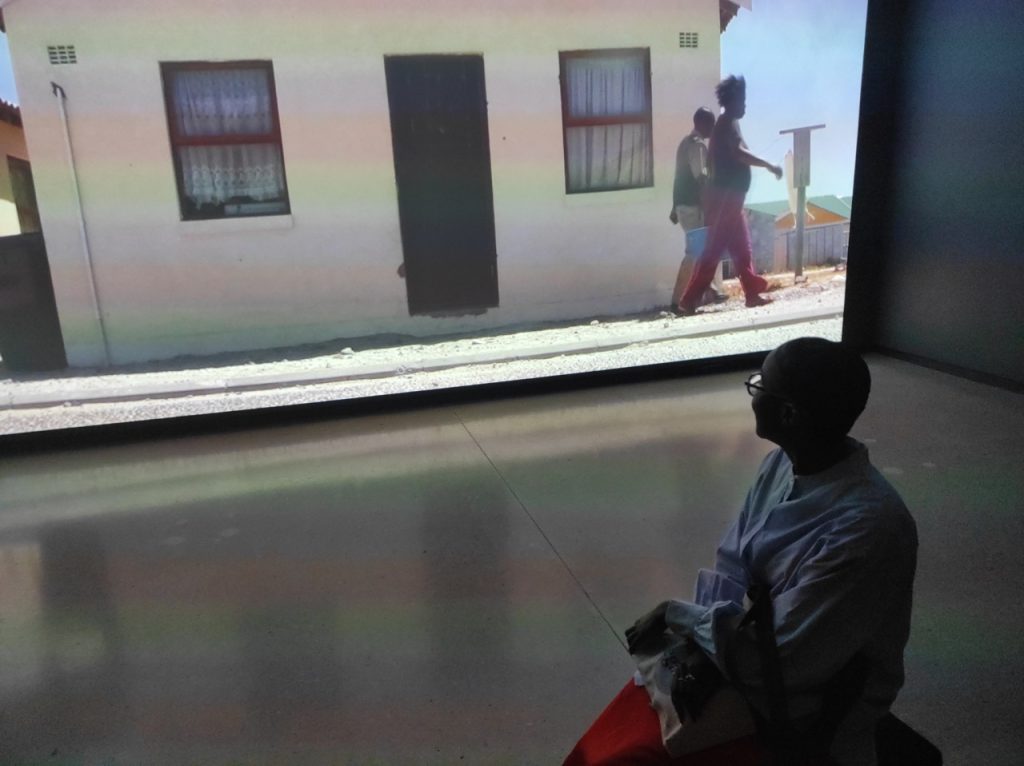
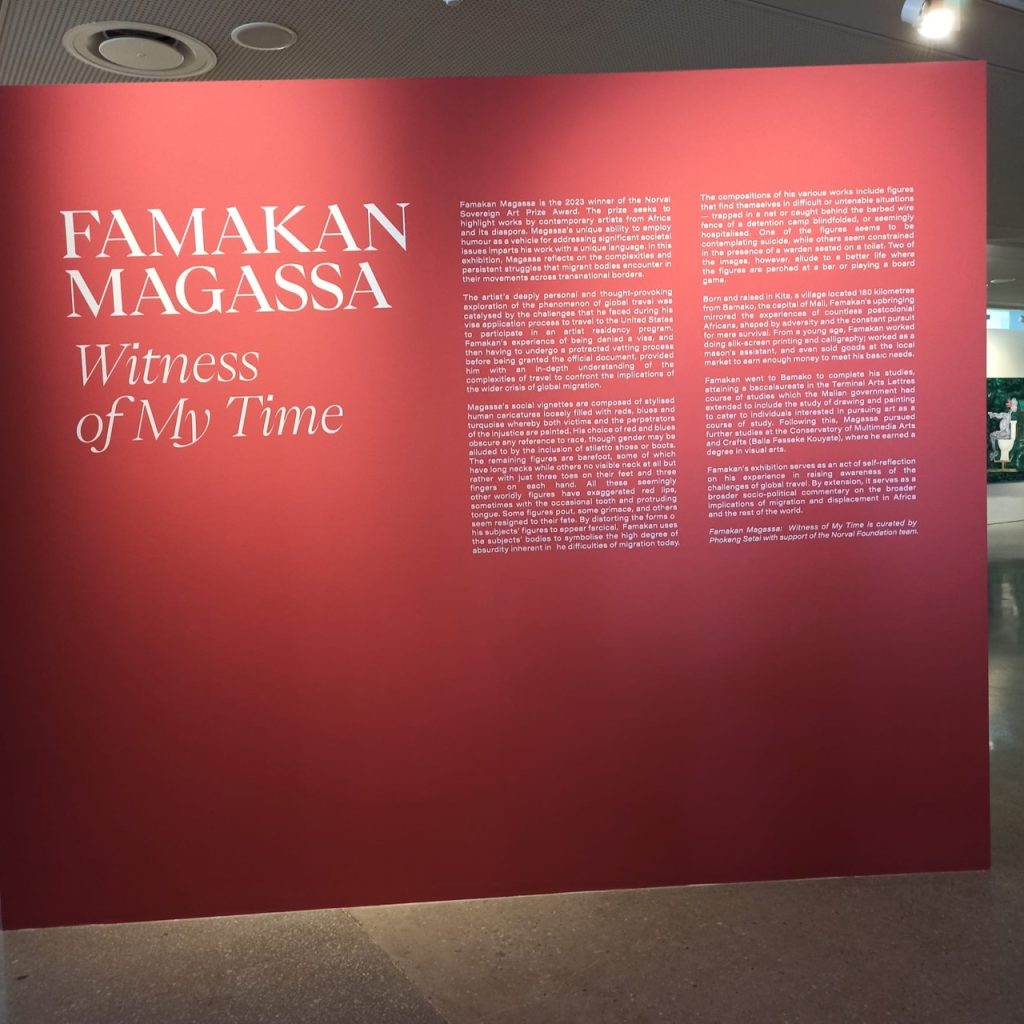
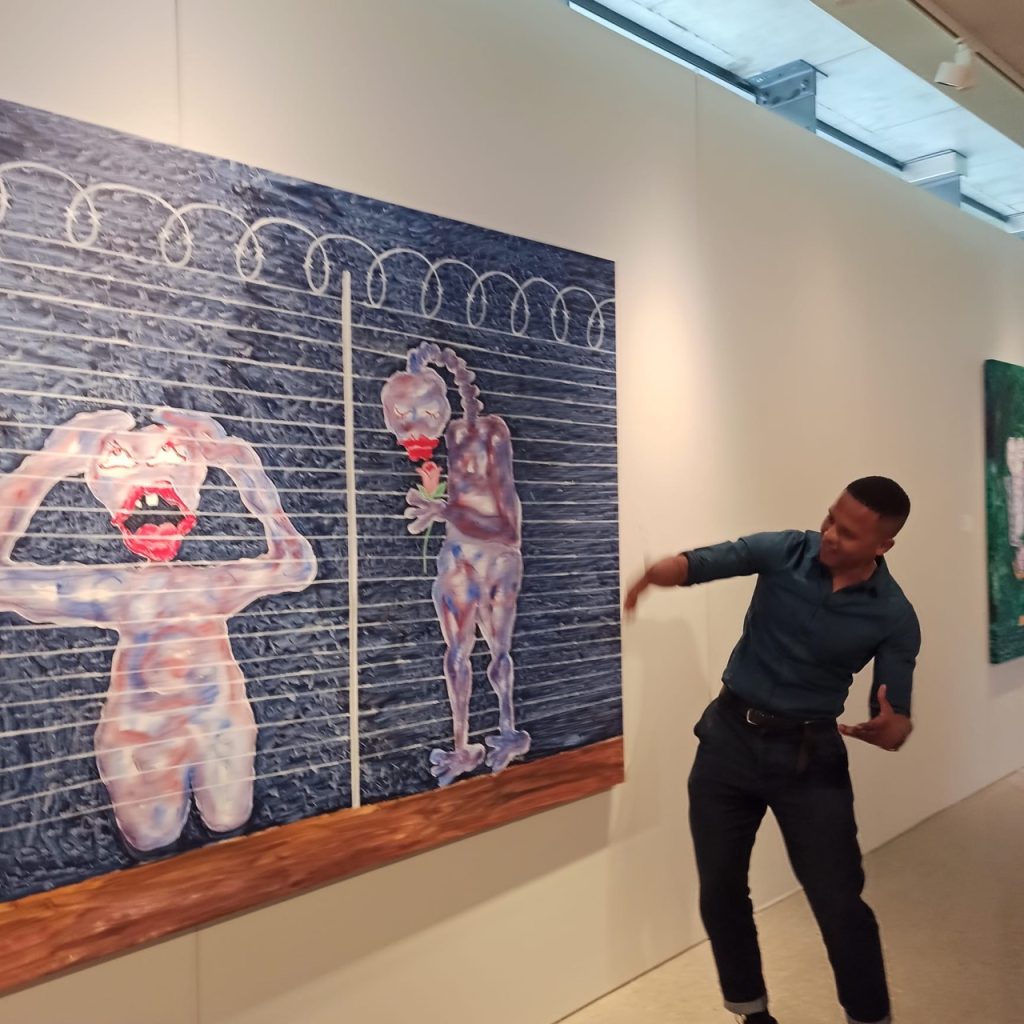
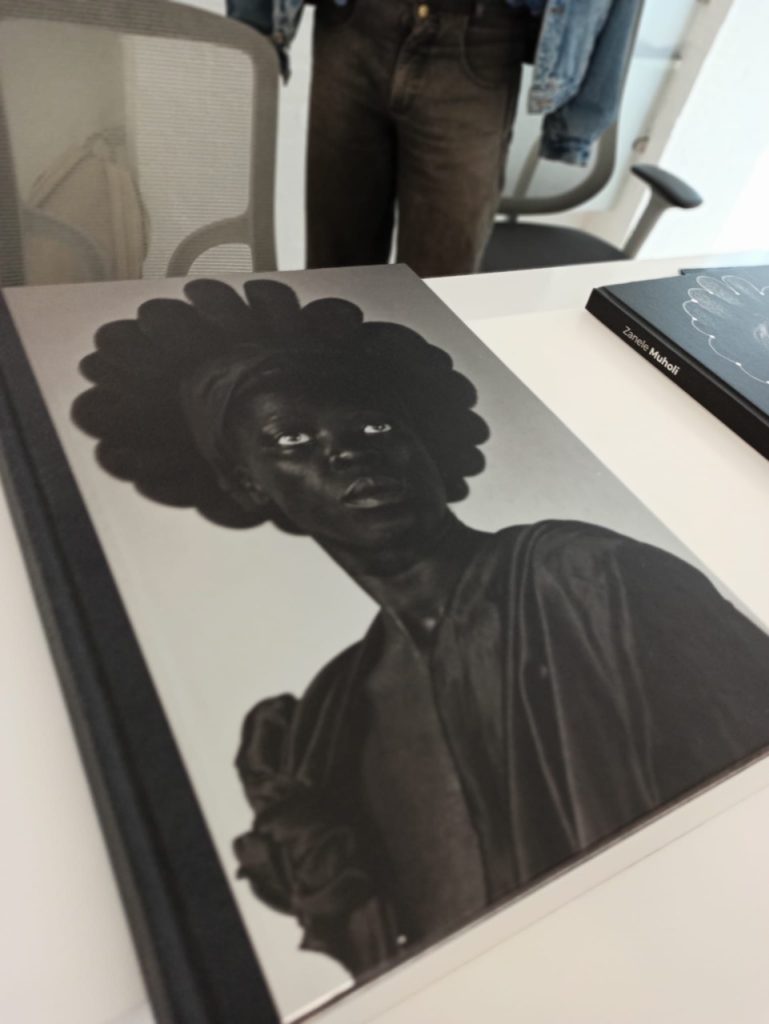
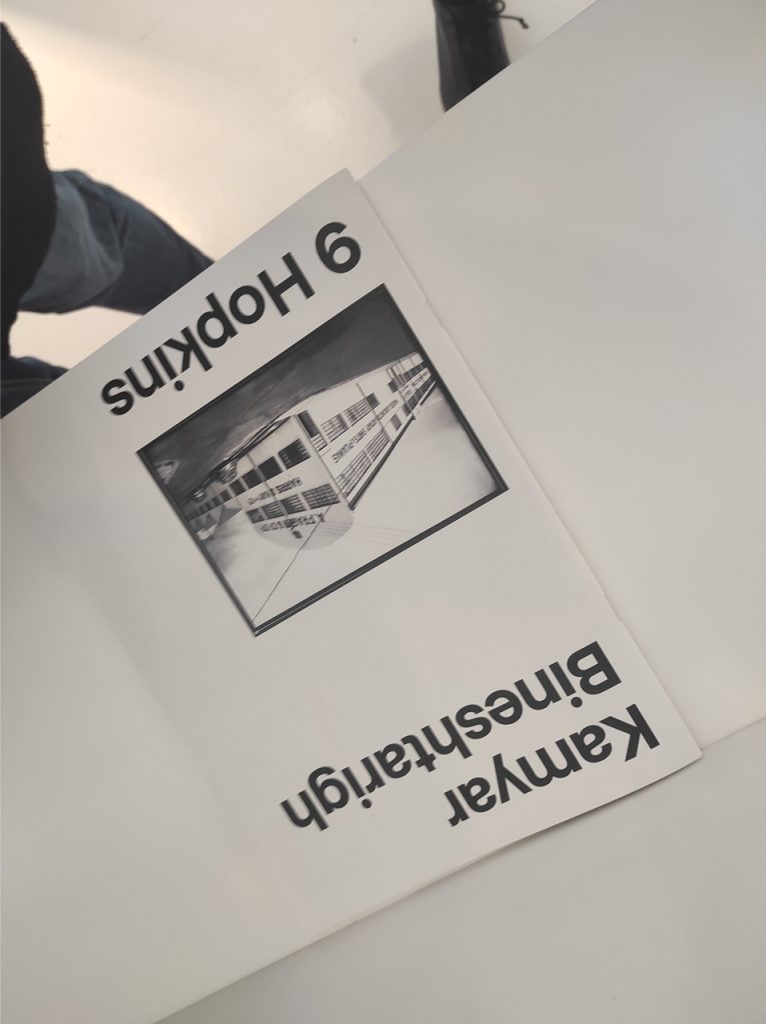
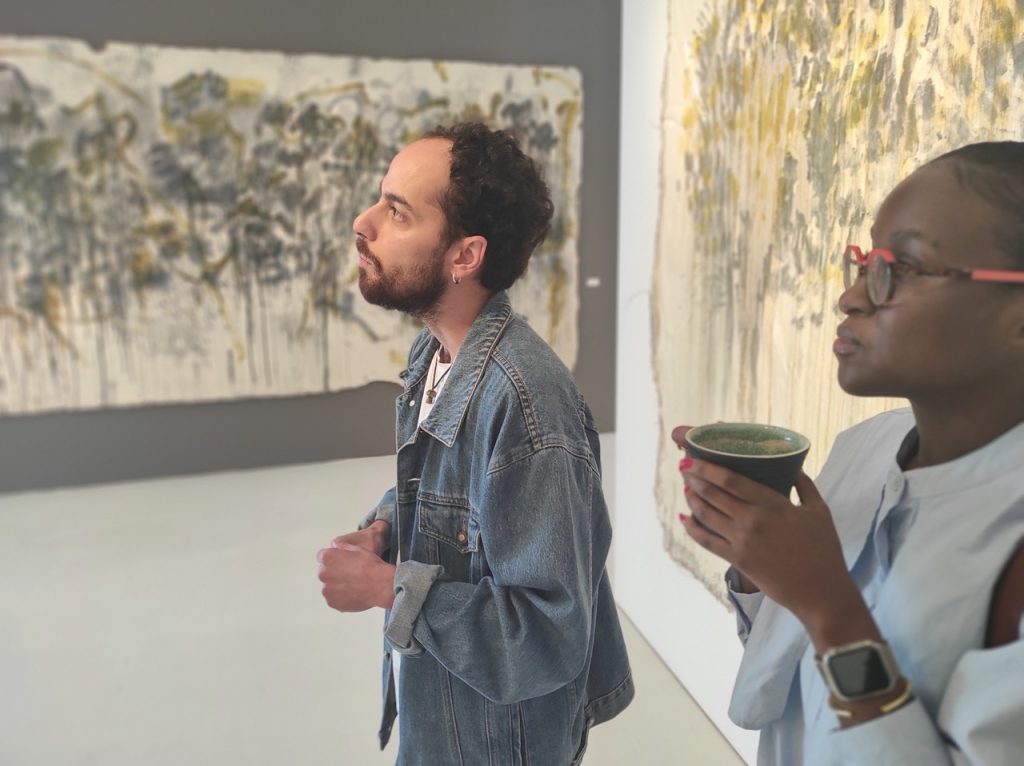
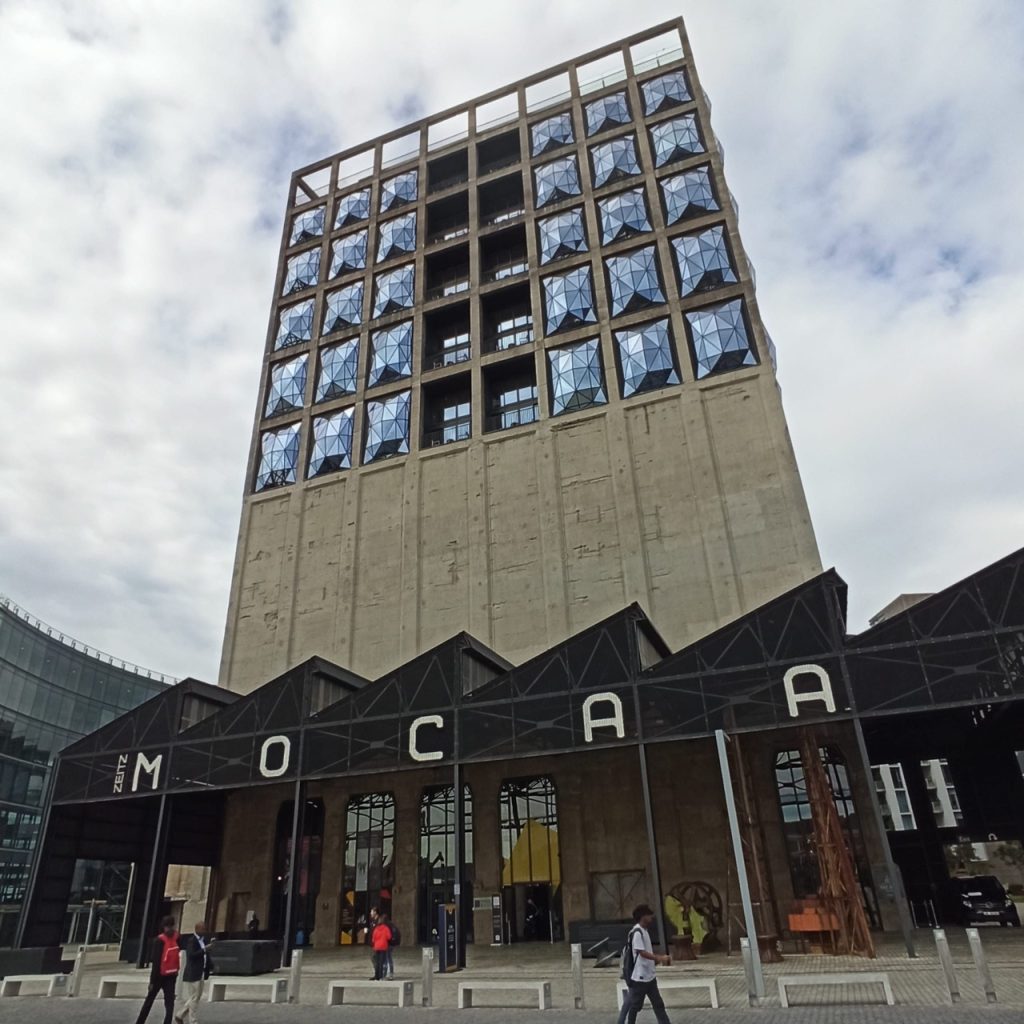
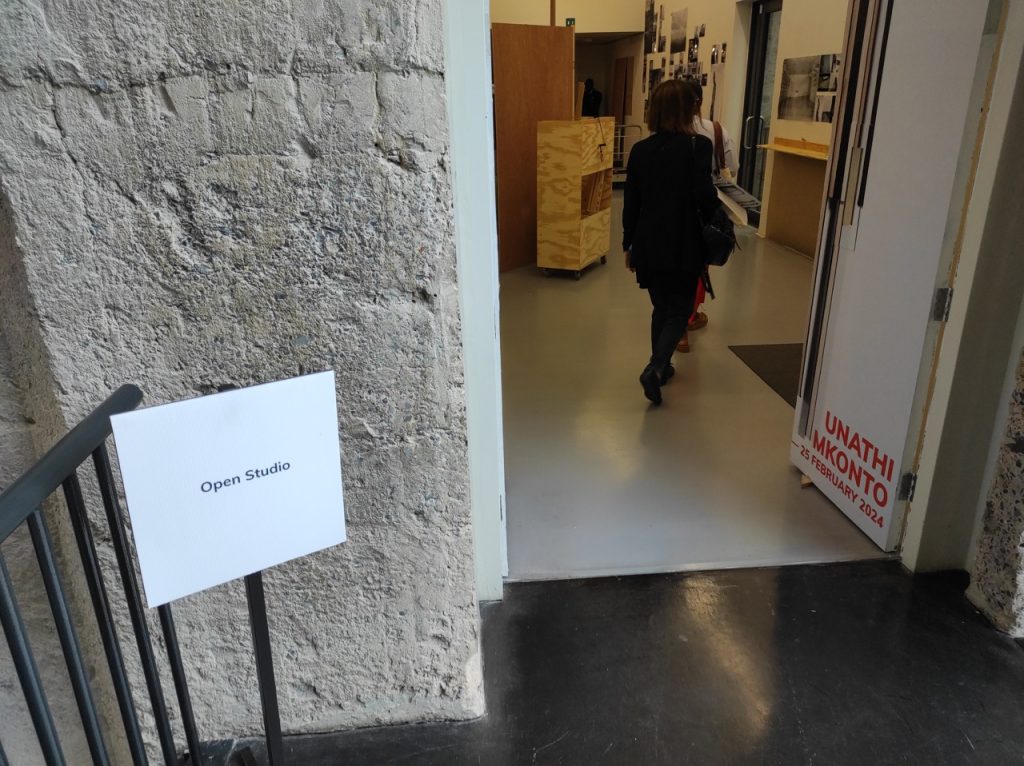
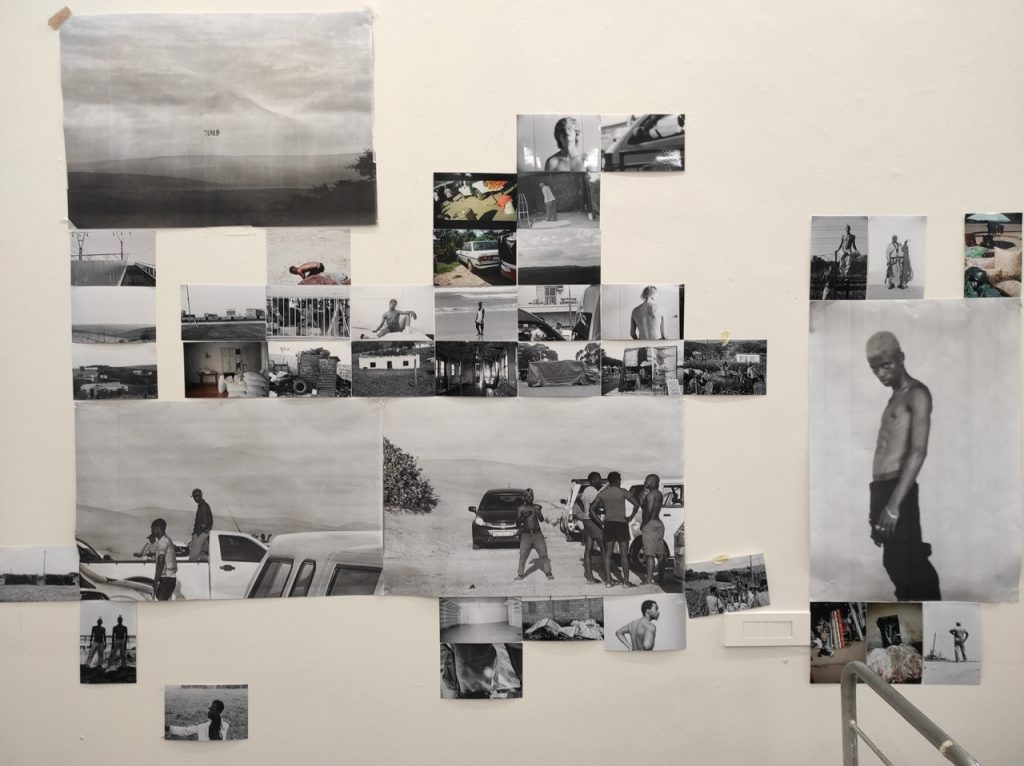
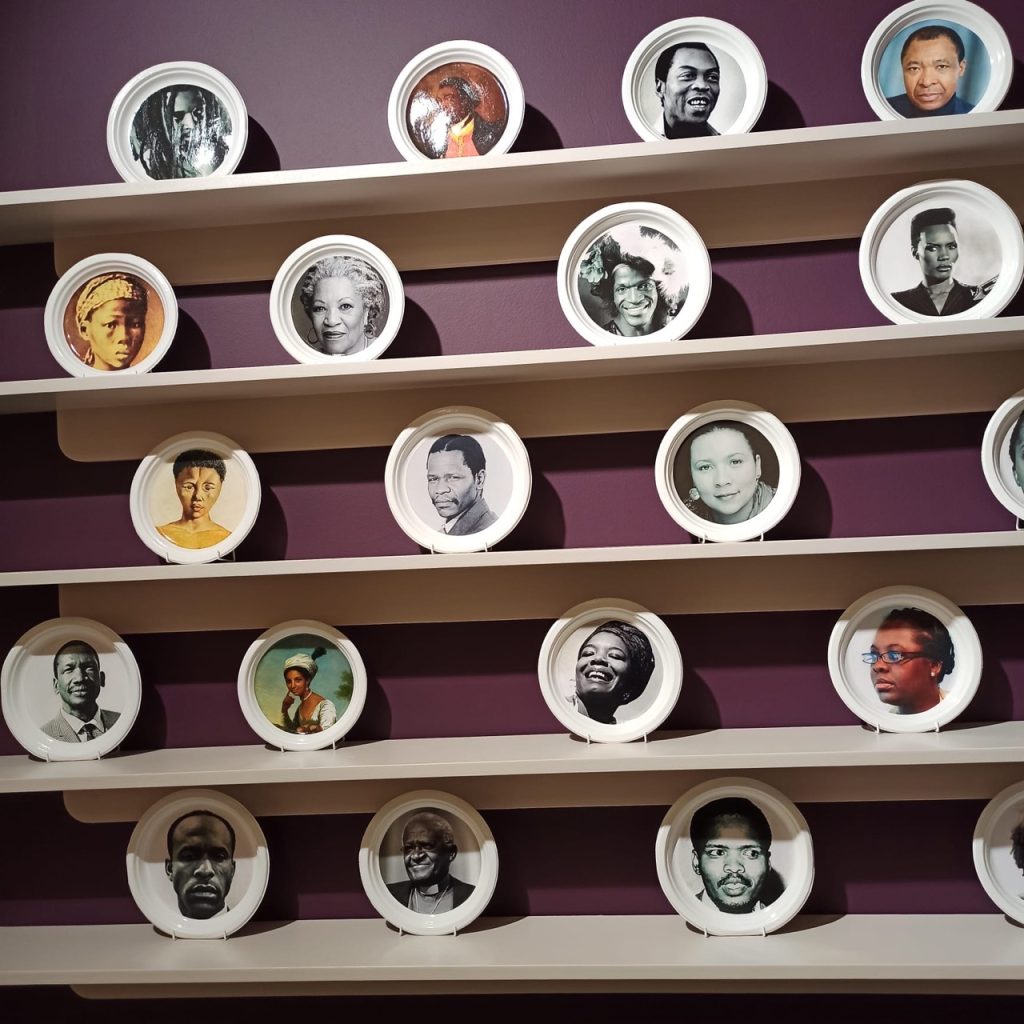
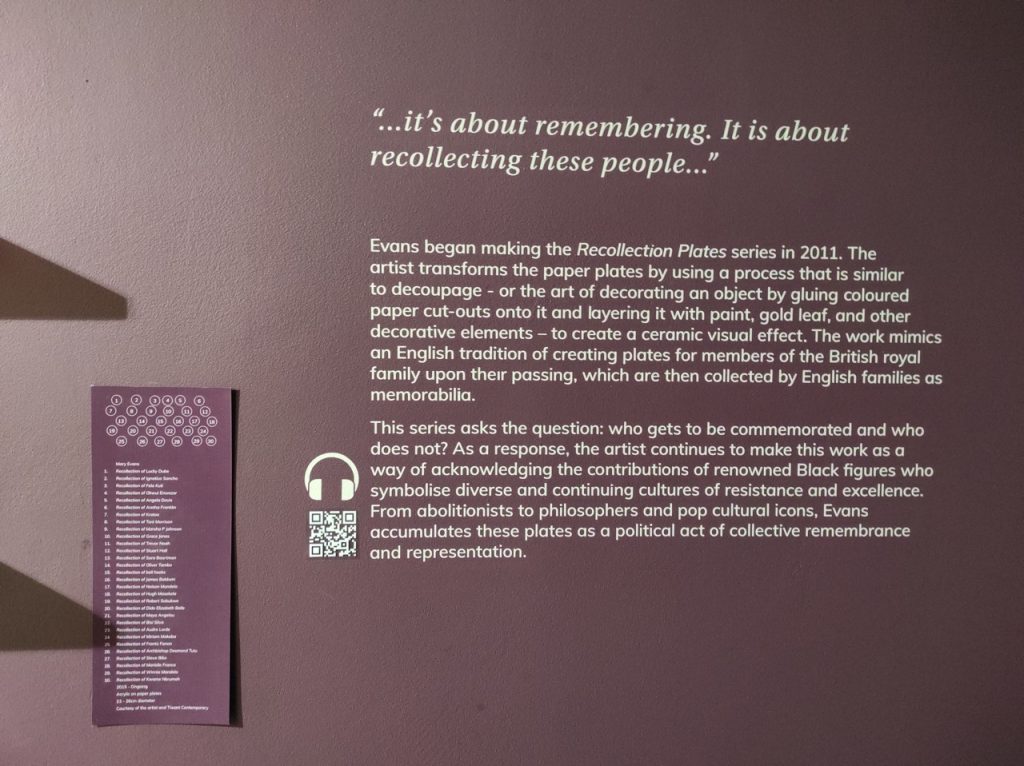
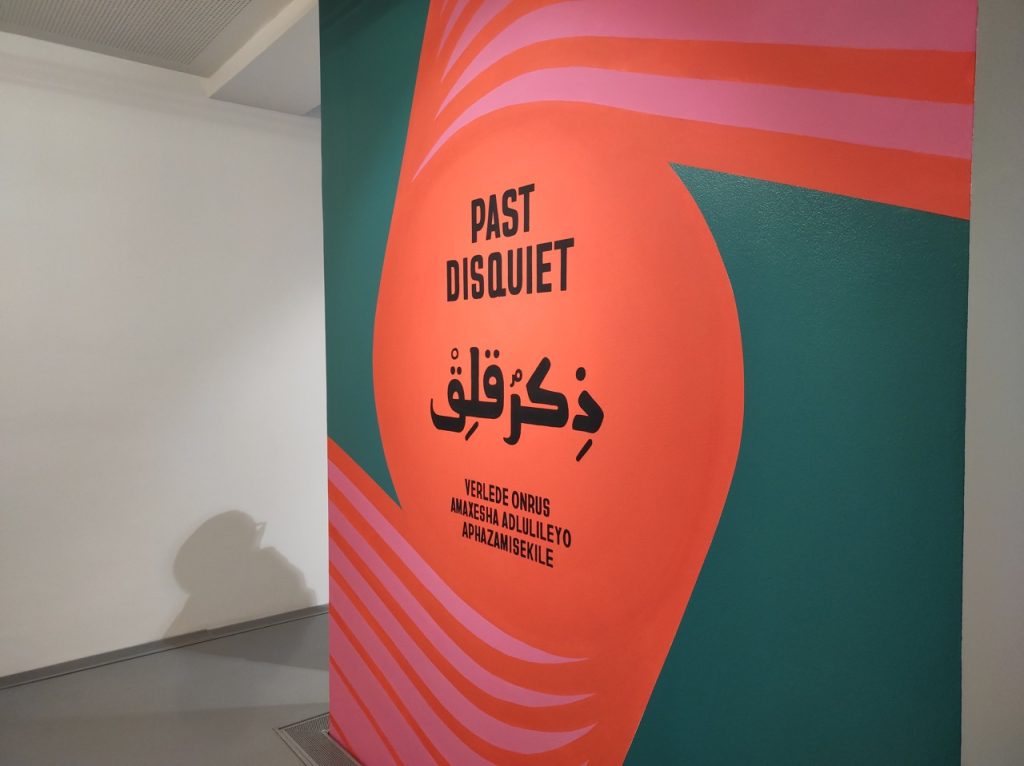
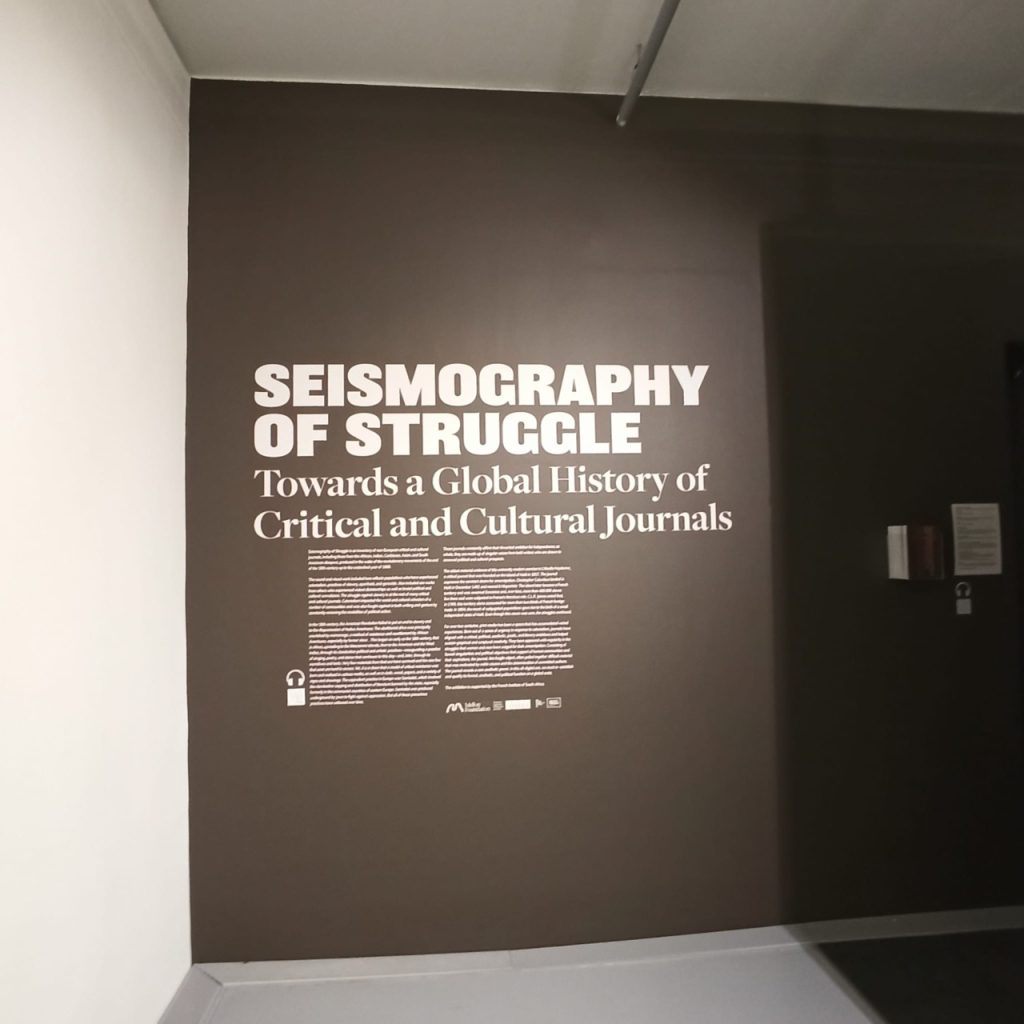
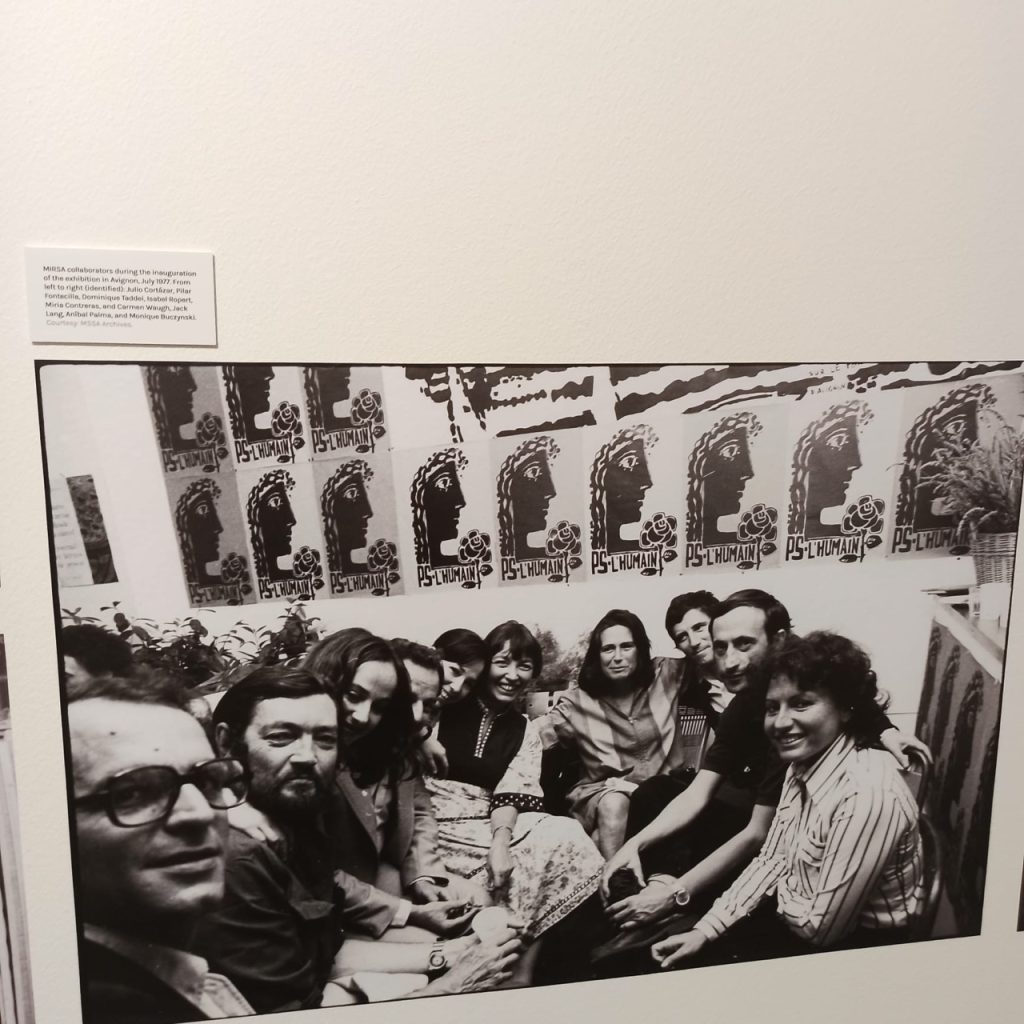
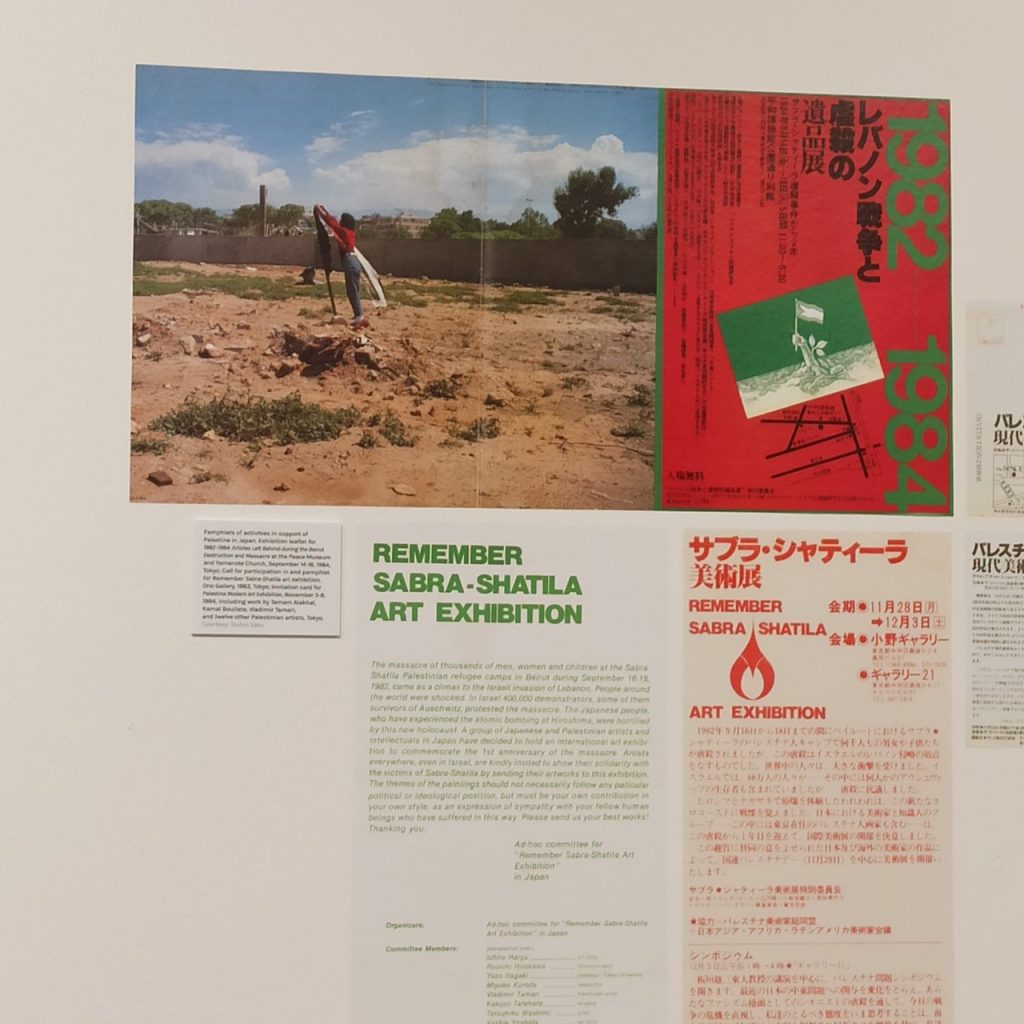
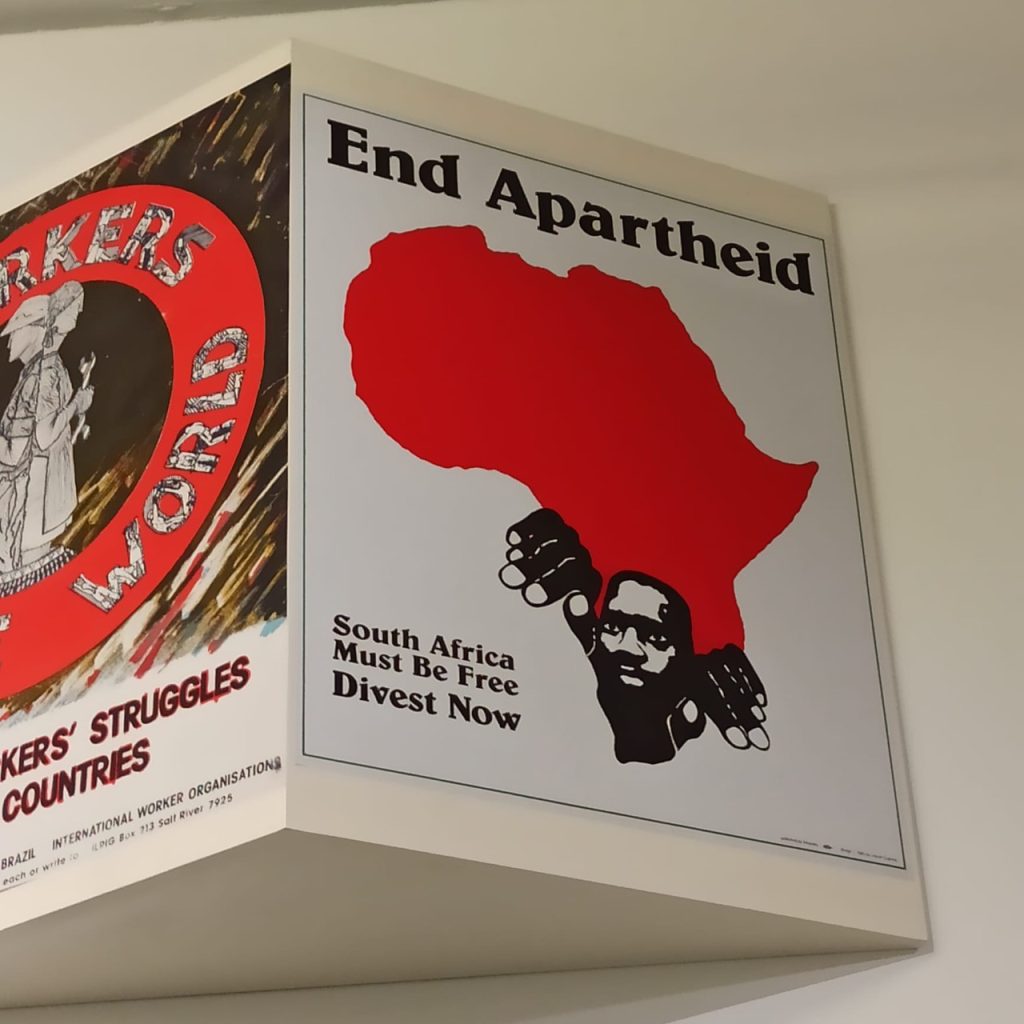
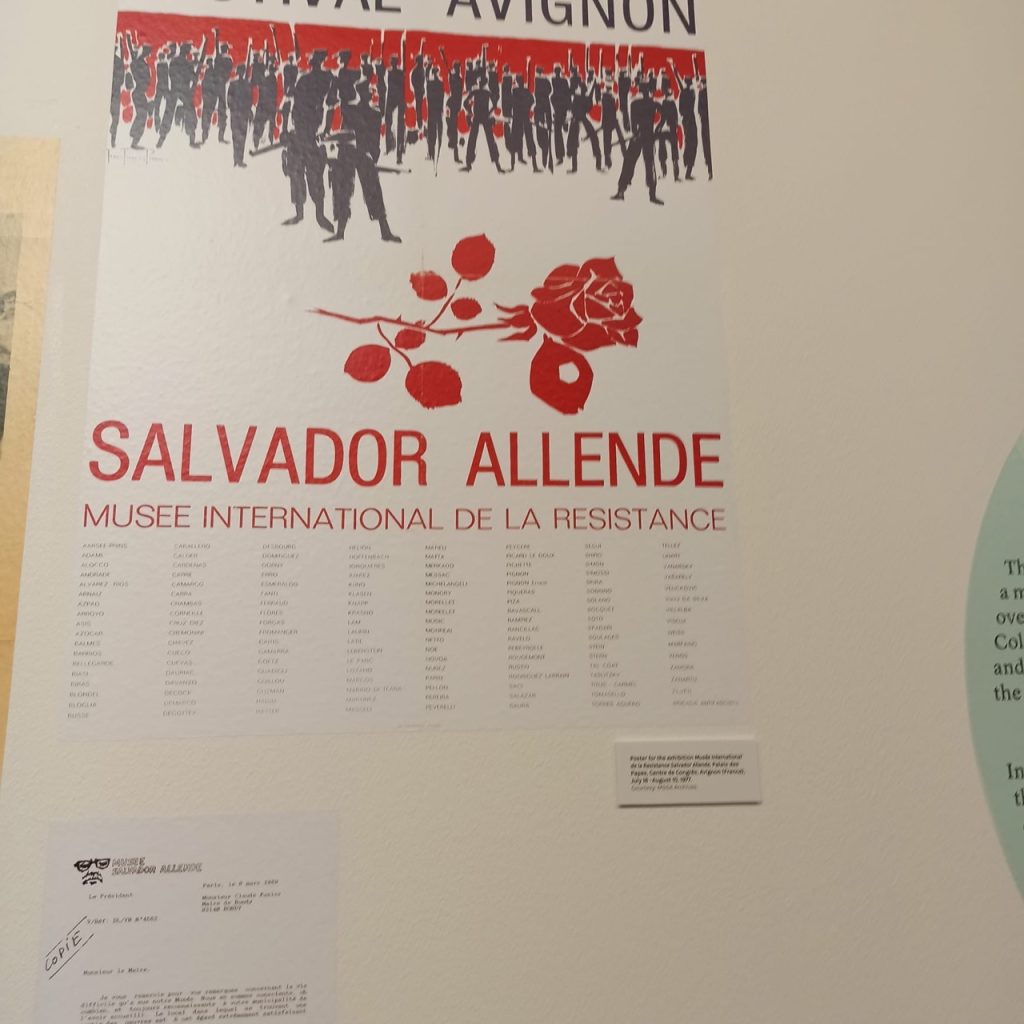
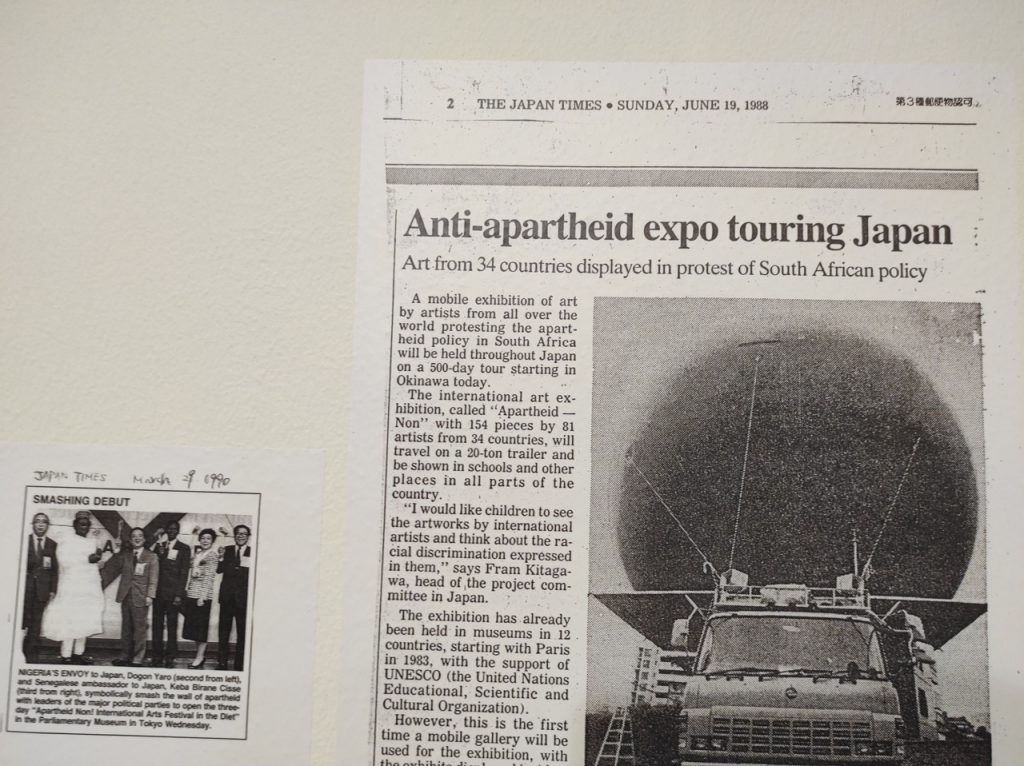
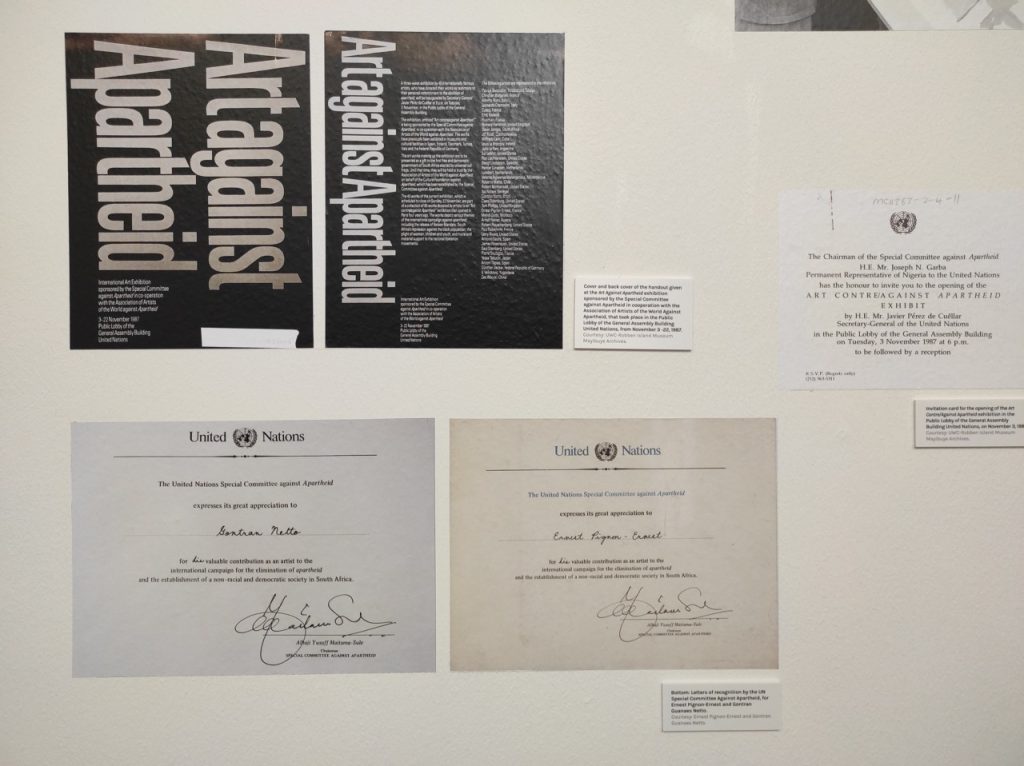
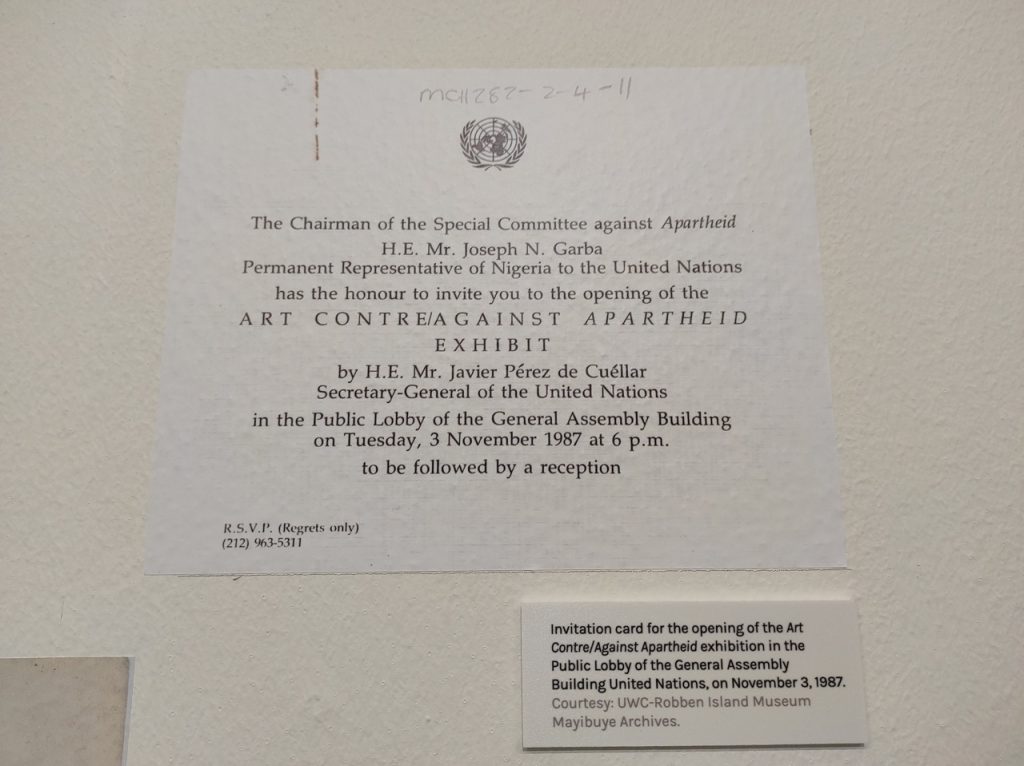
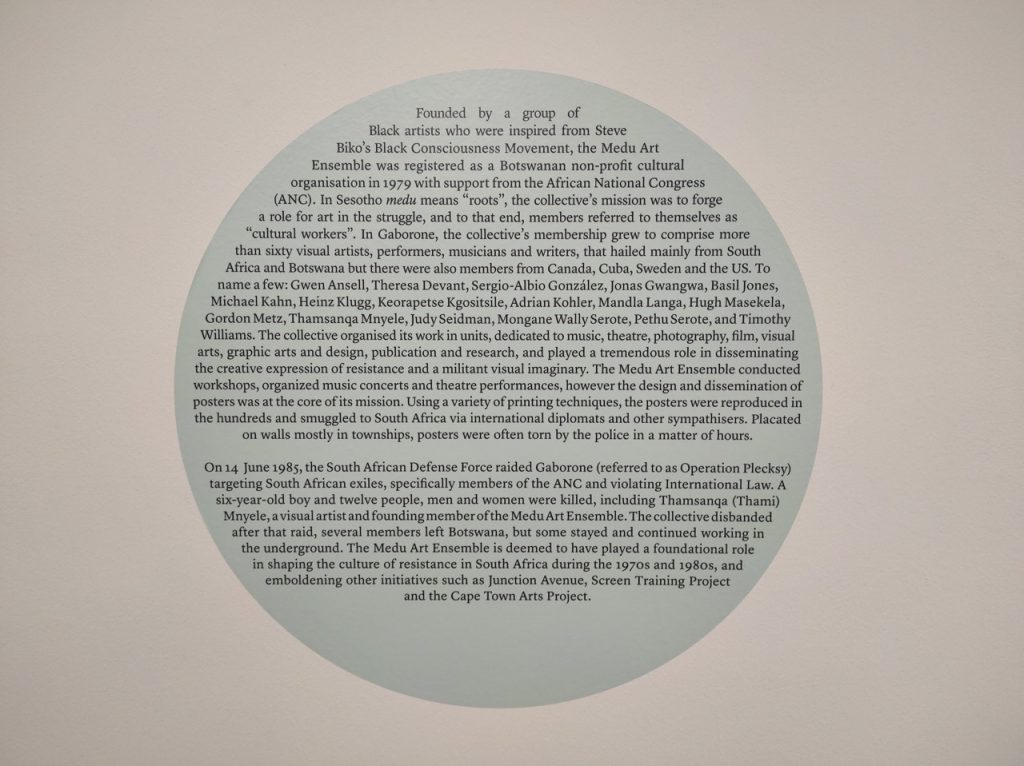
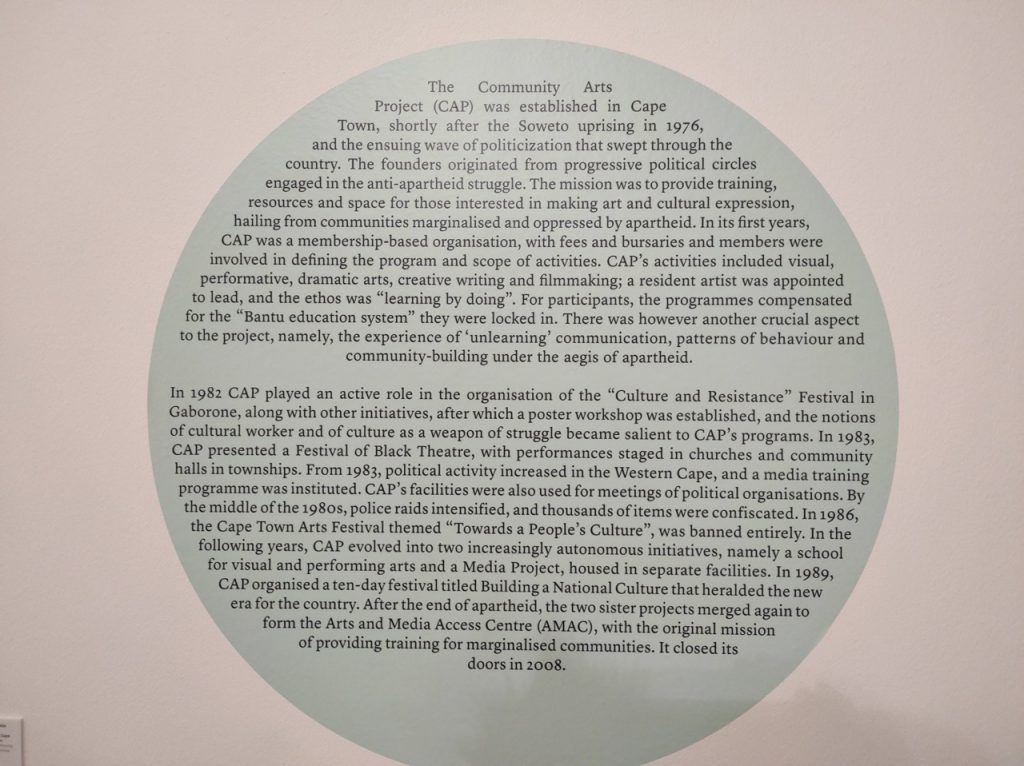
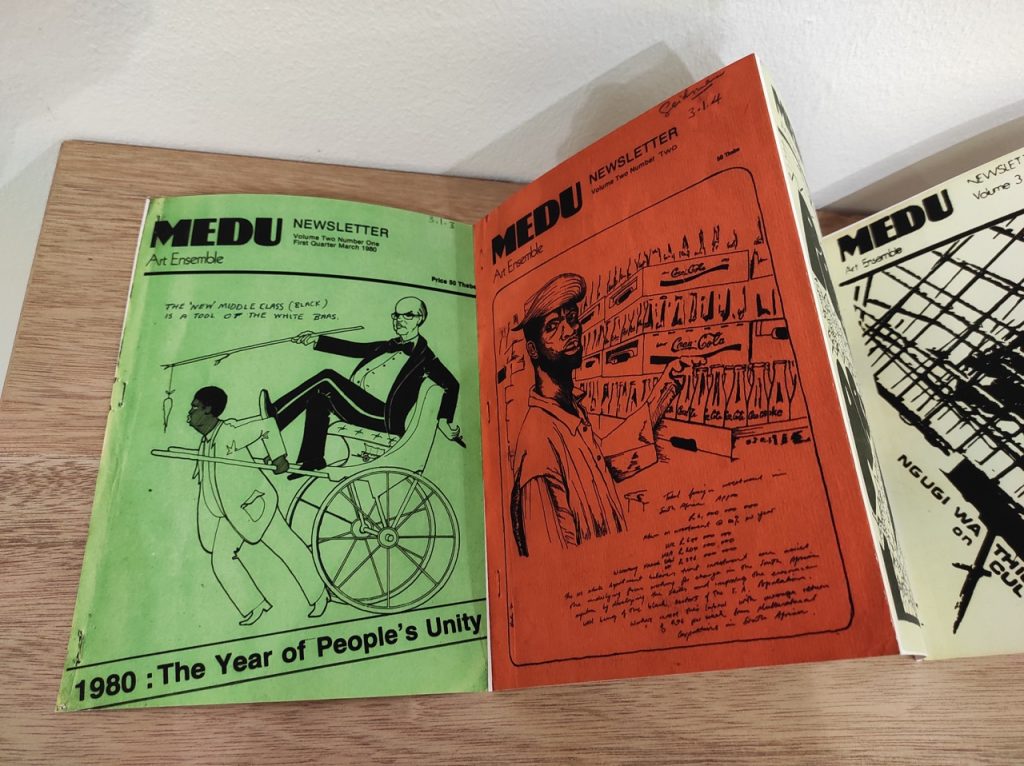
11/10/2023
DAY 3
CONVIVIAL WORSKHOP (Day 2)
UNIVERSITY OF CAPE TOWN
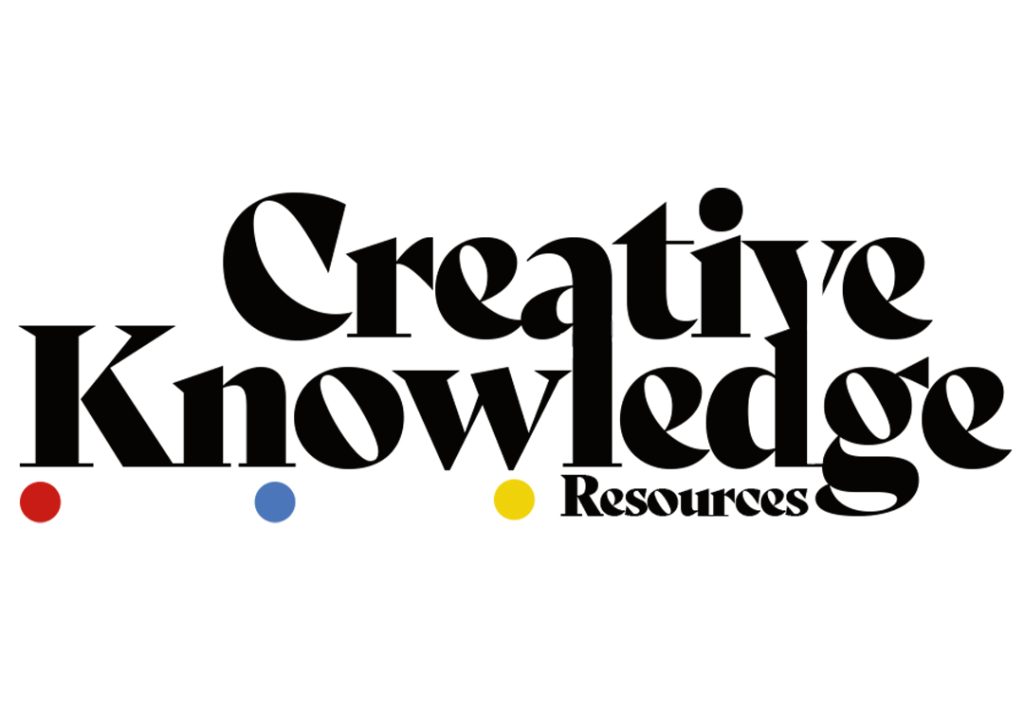
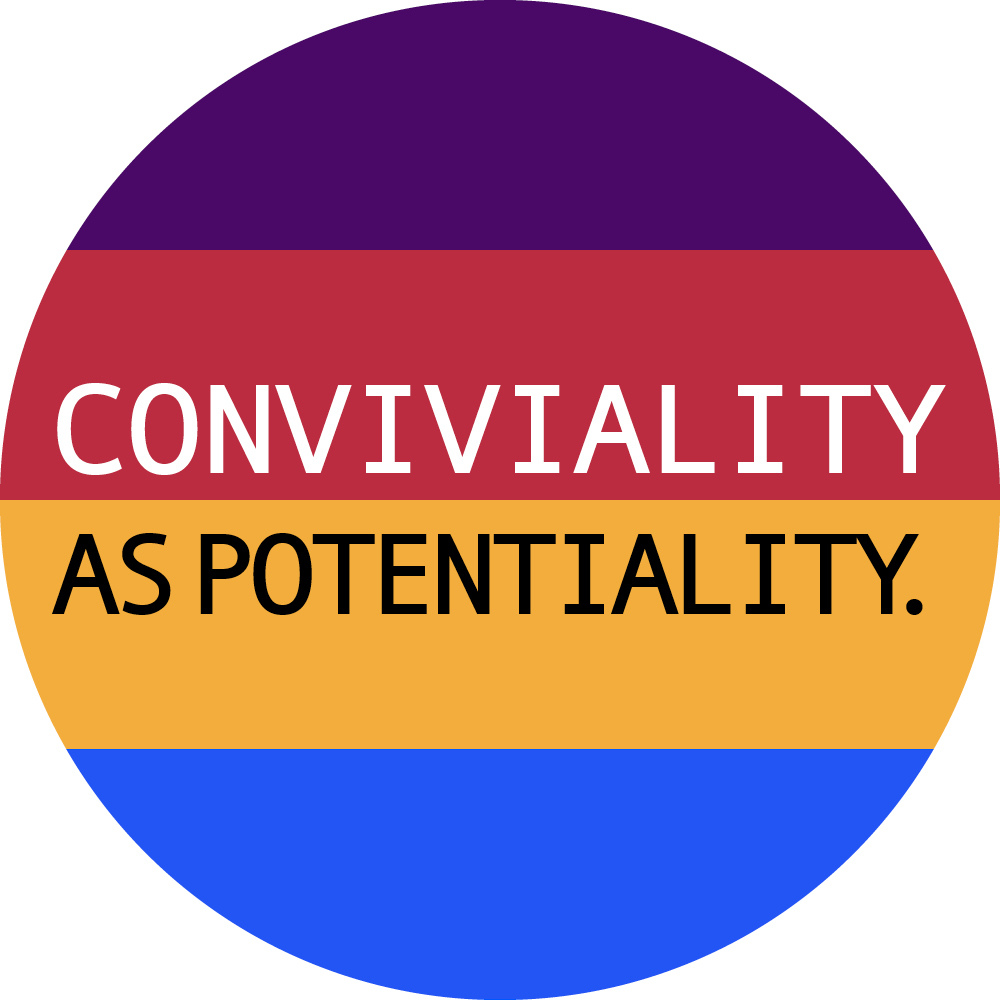
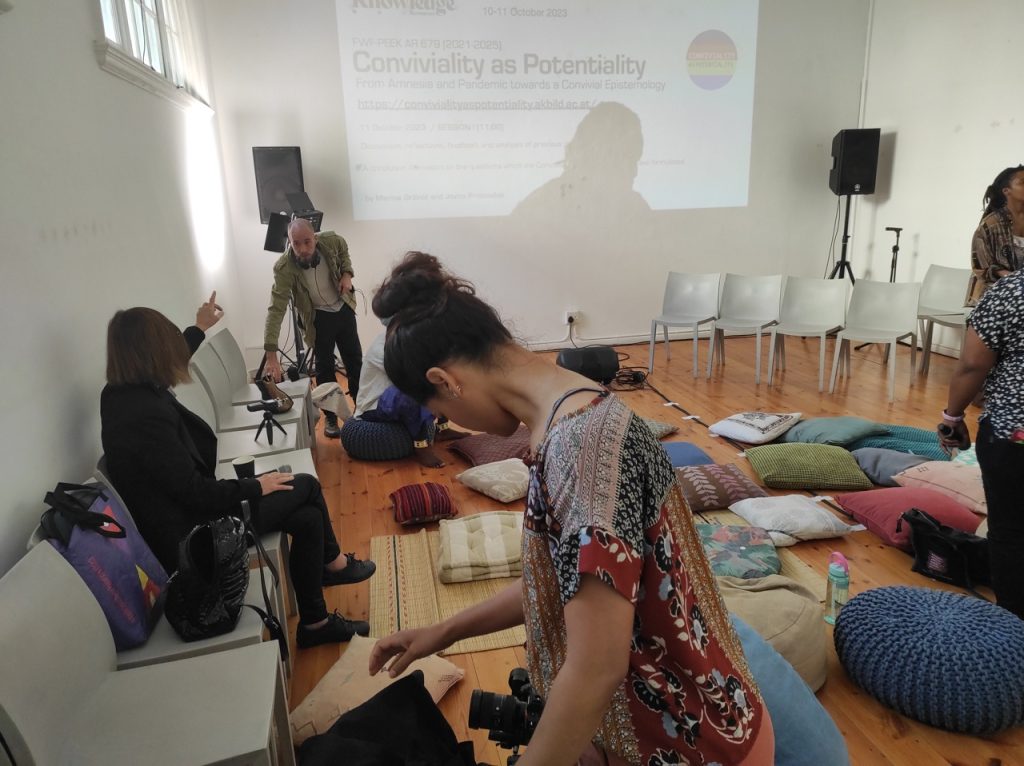
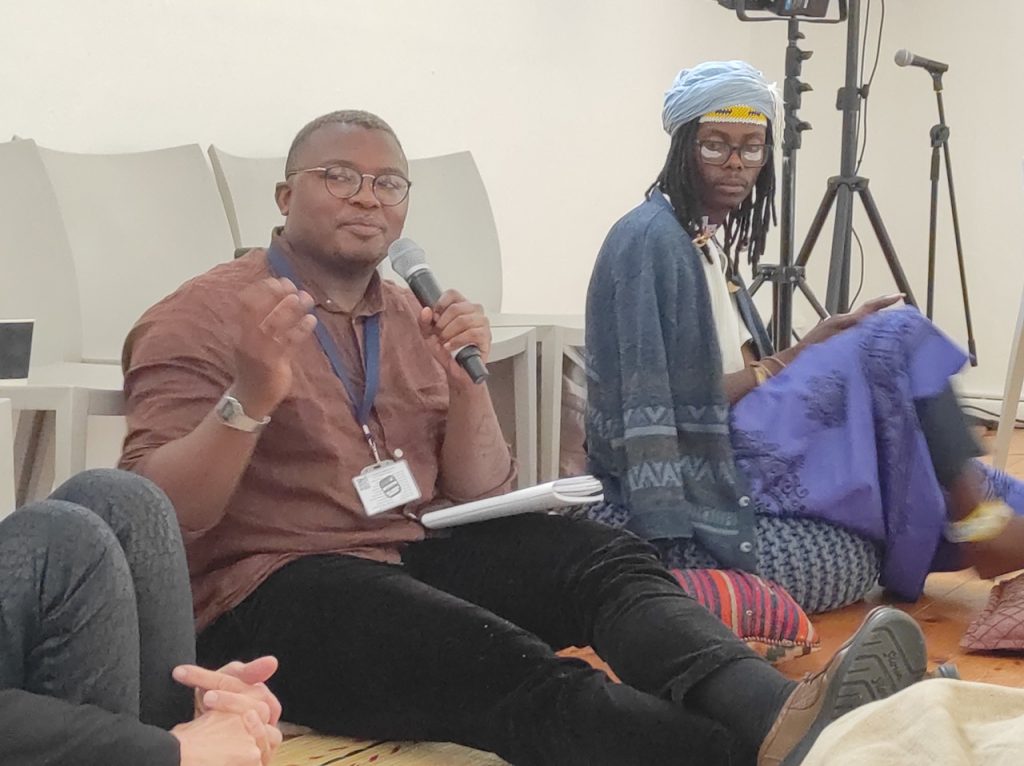
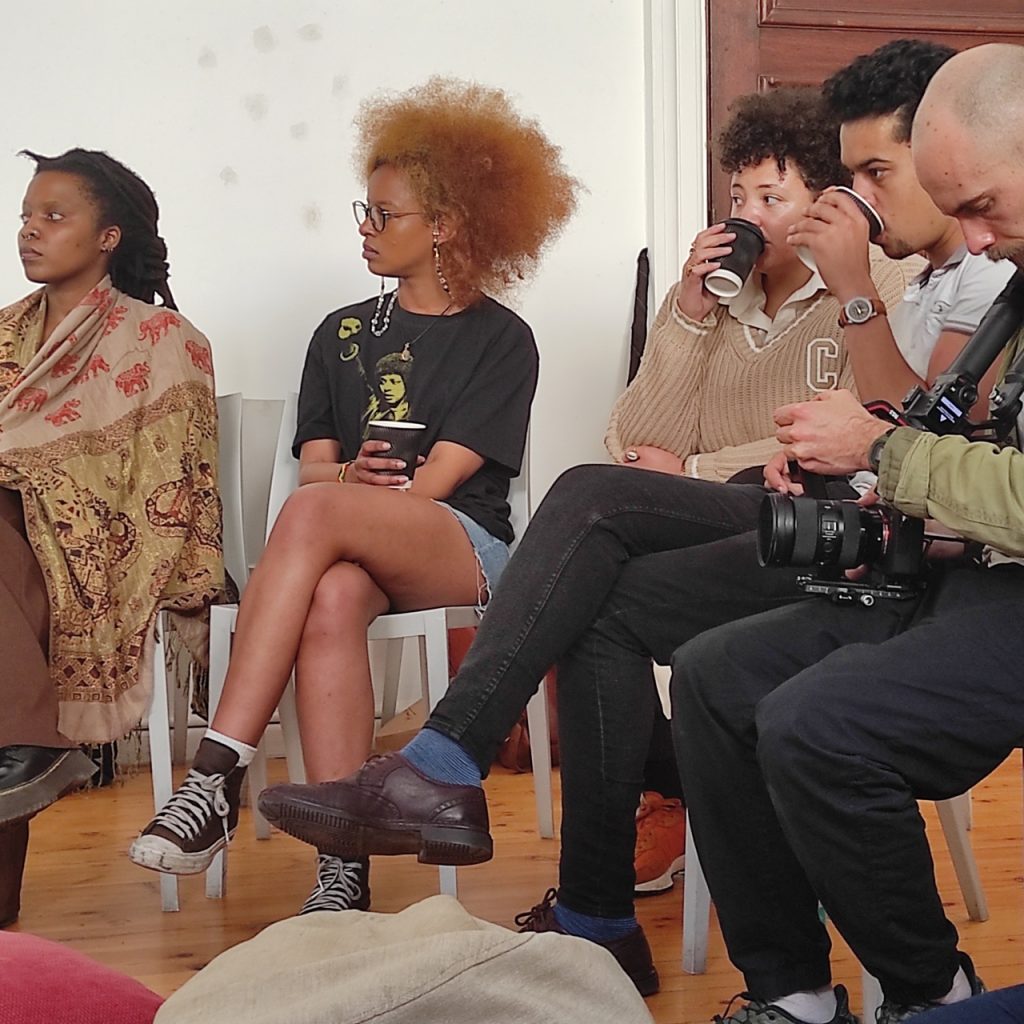
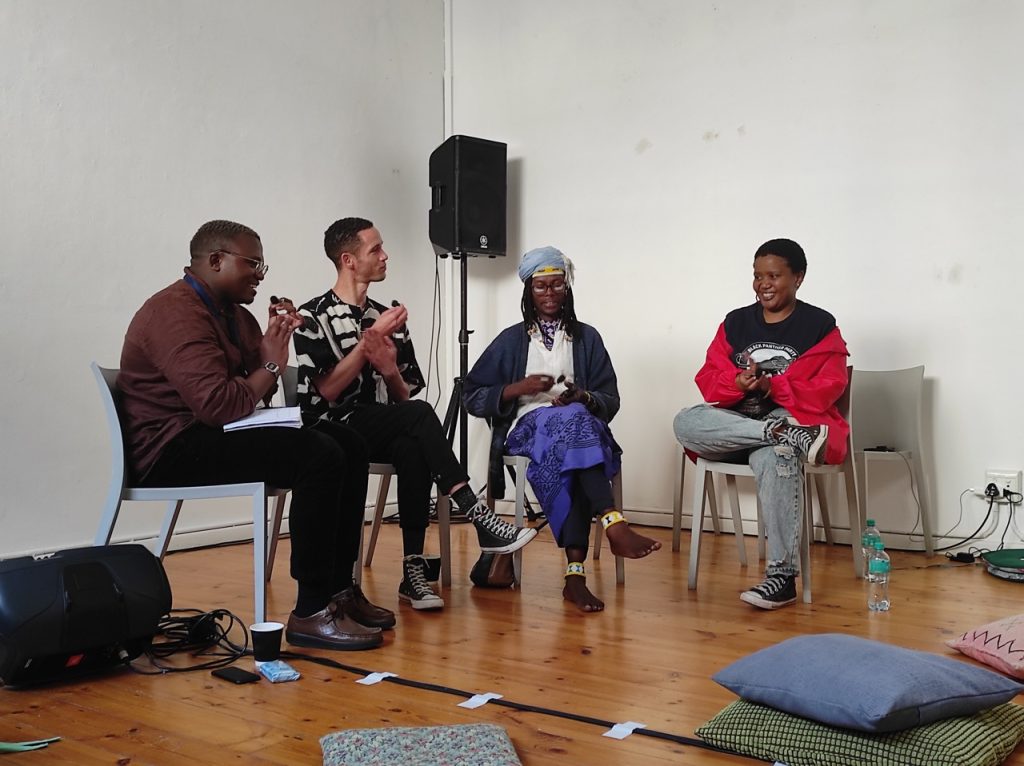
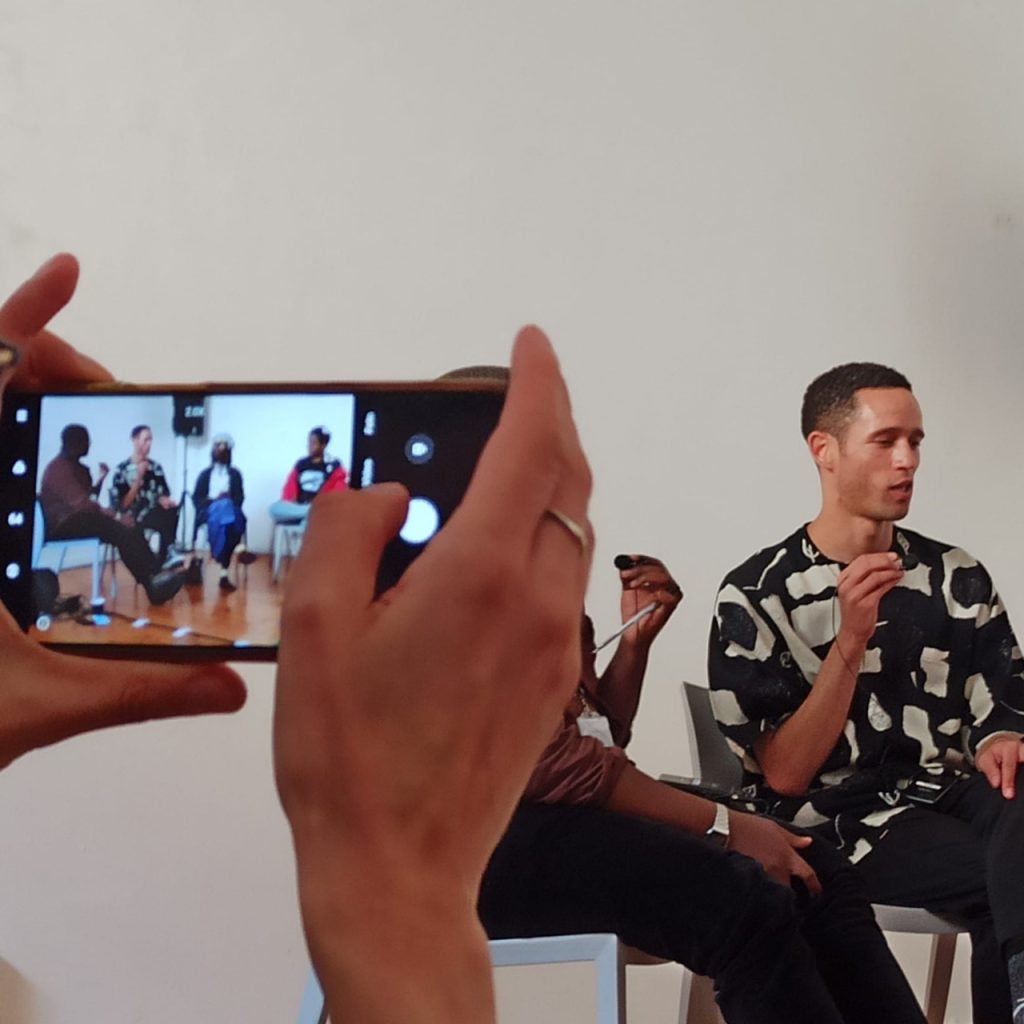
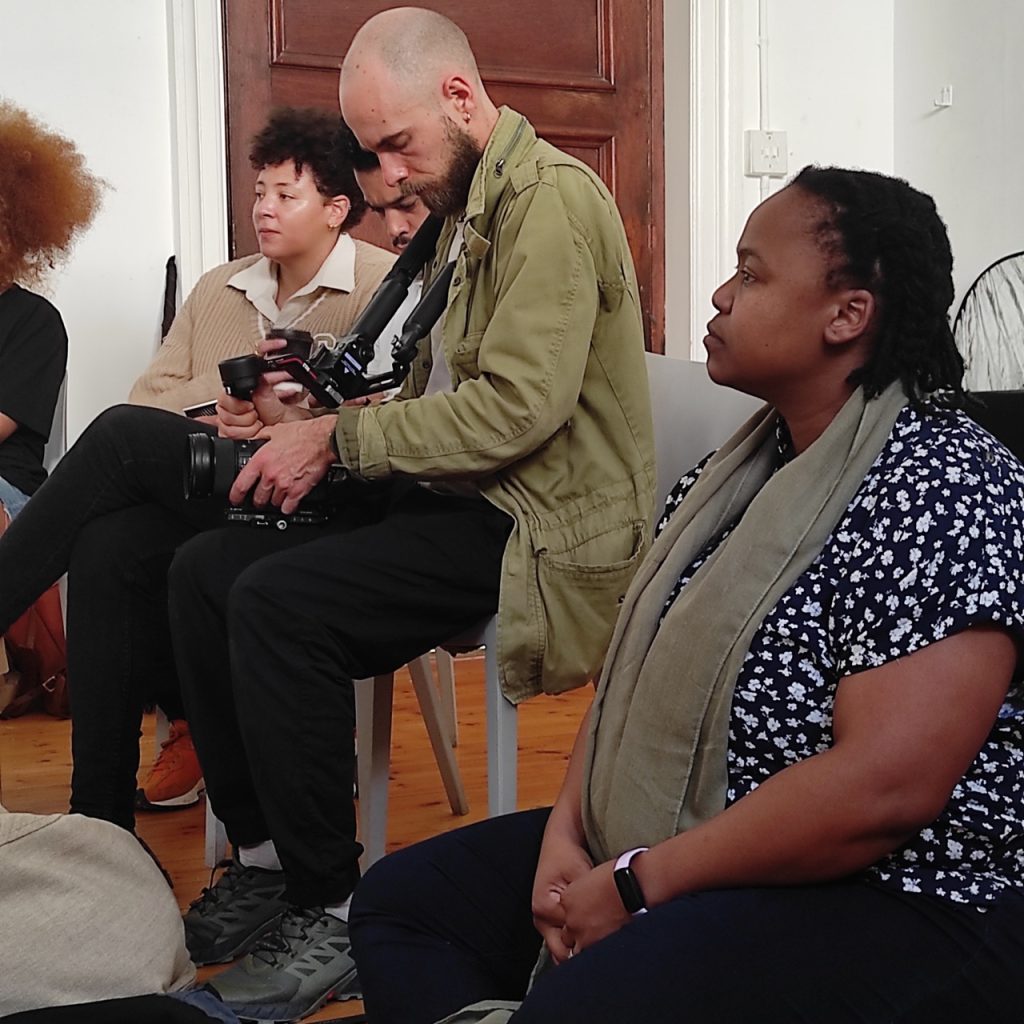
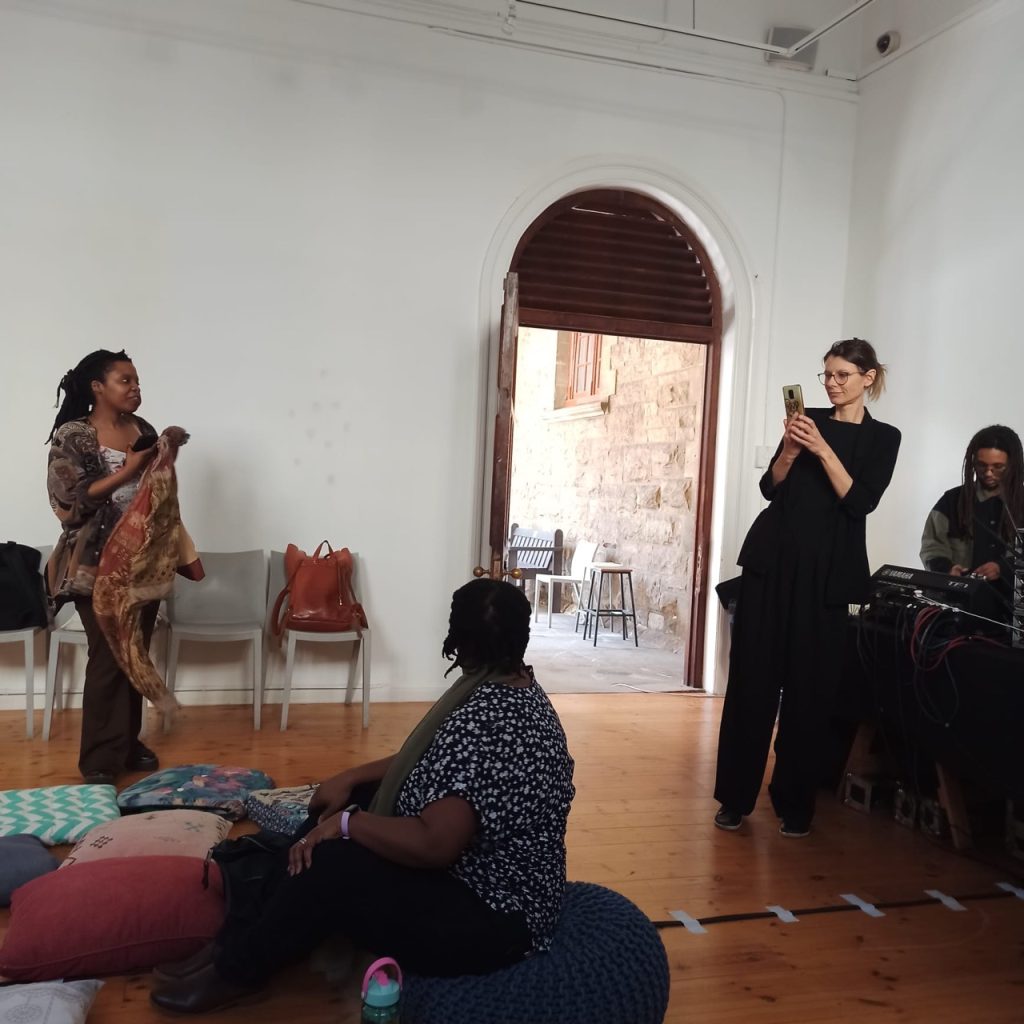
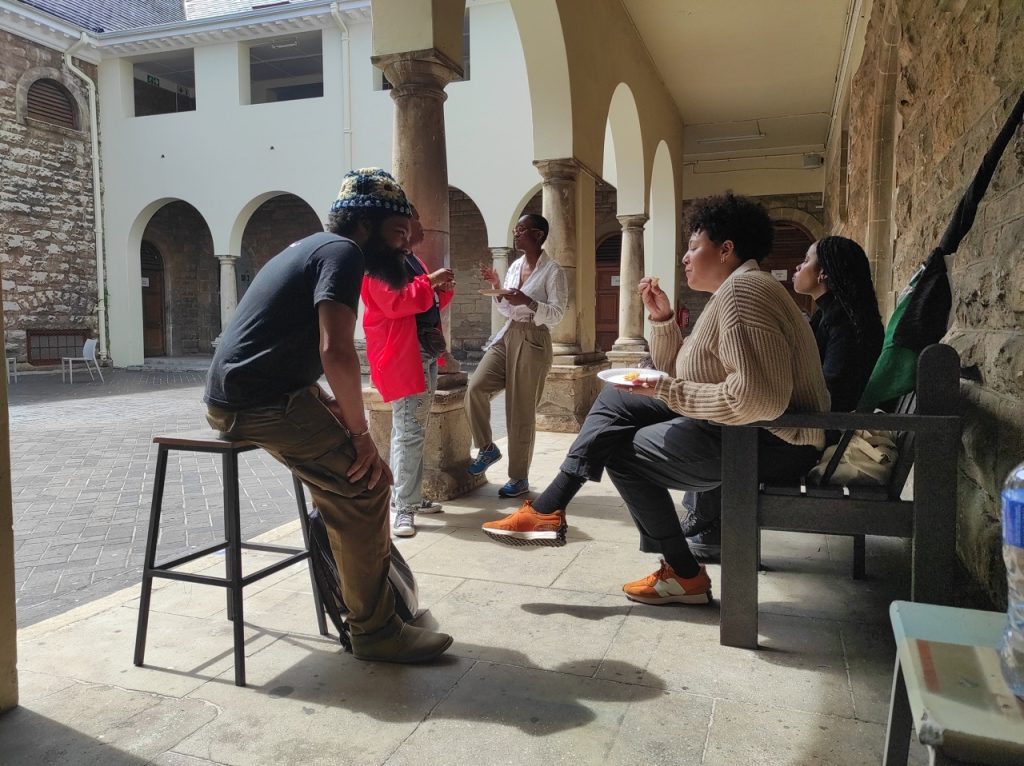
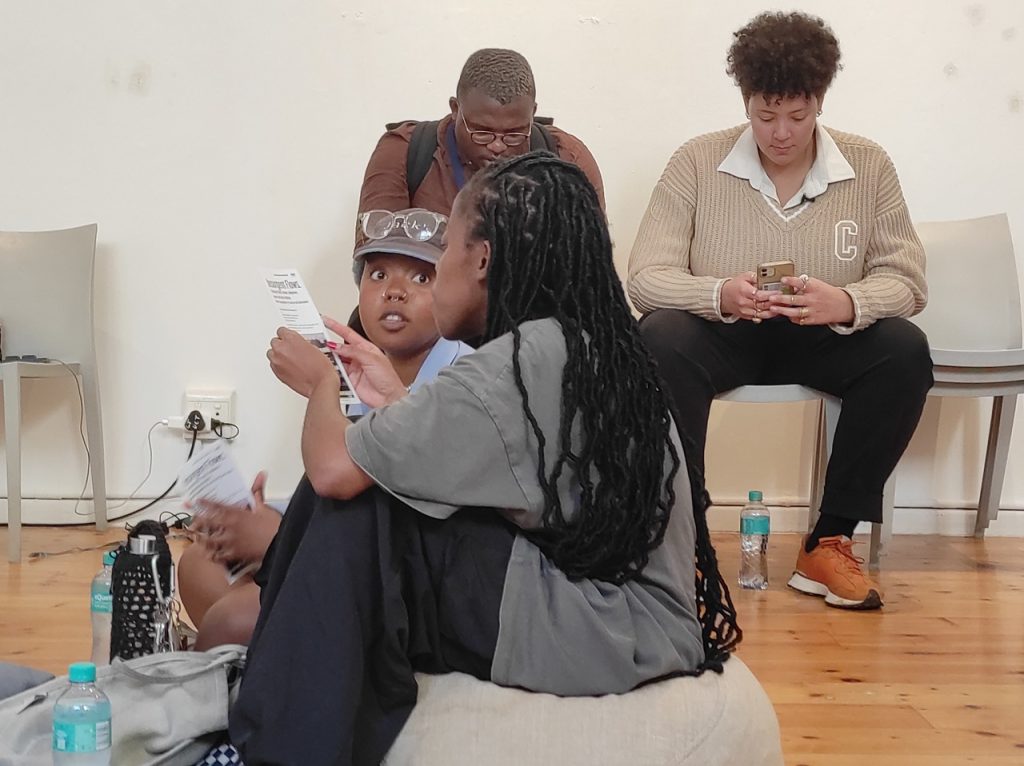
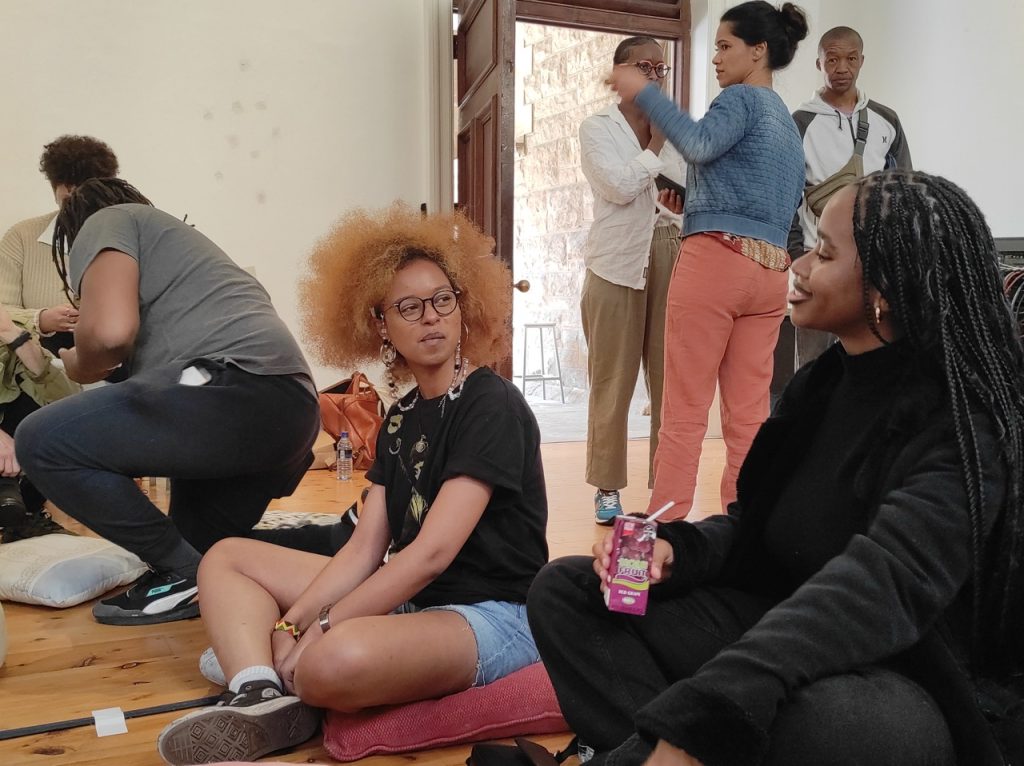
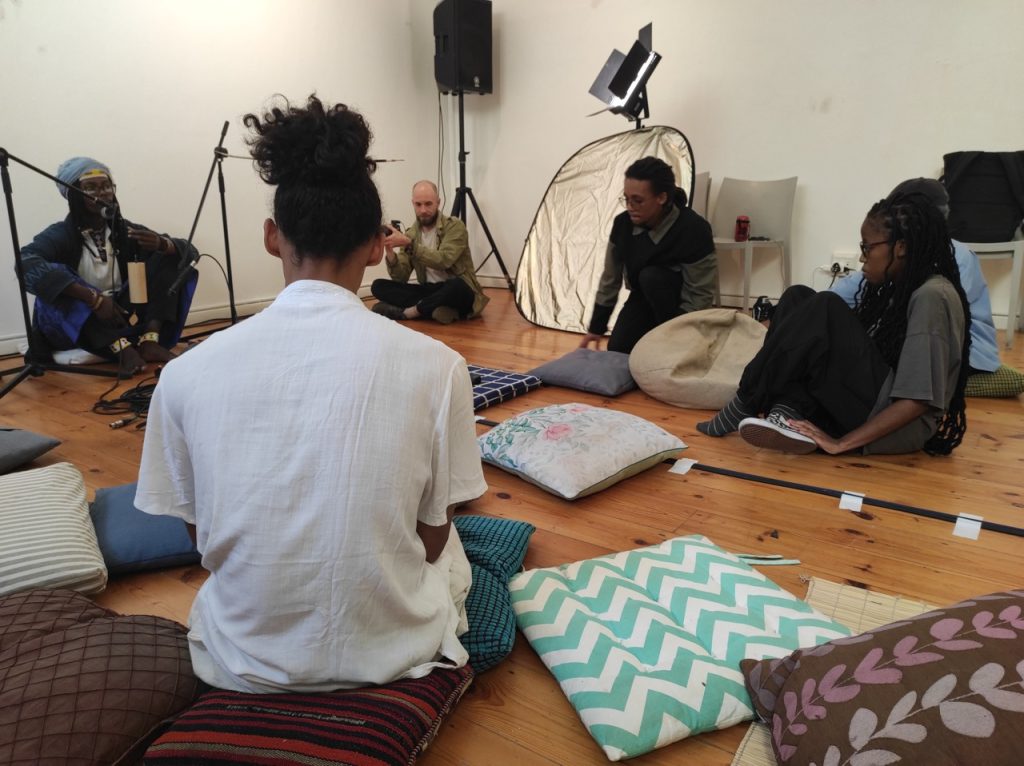
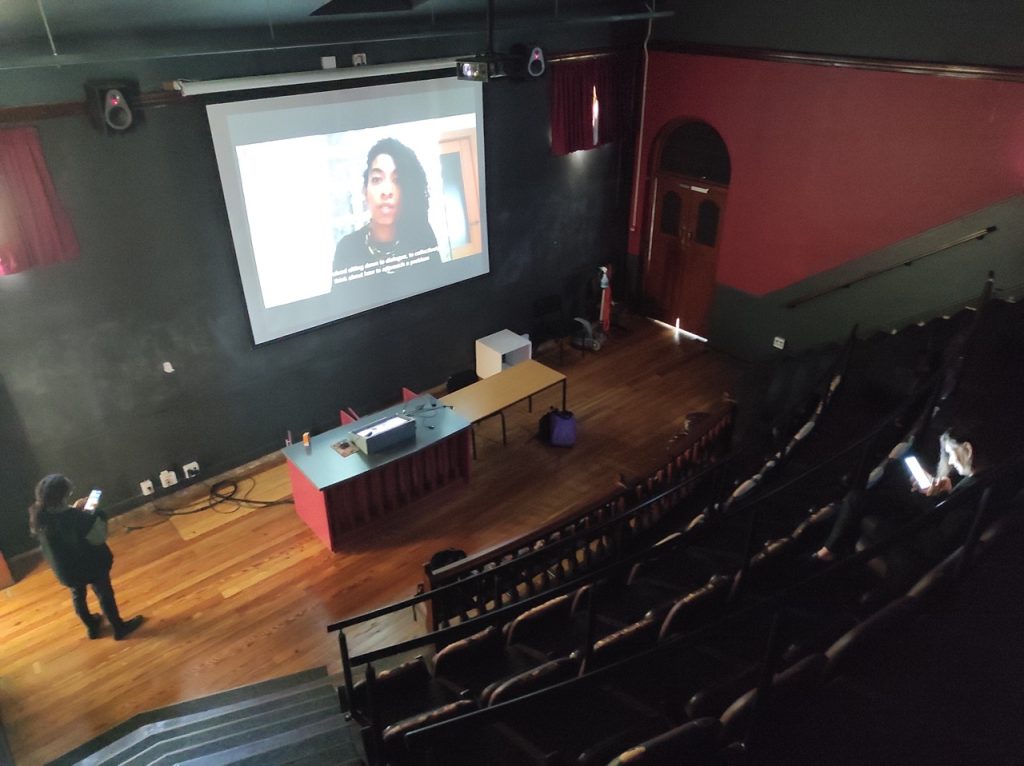
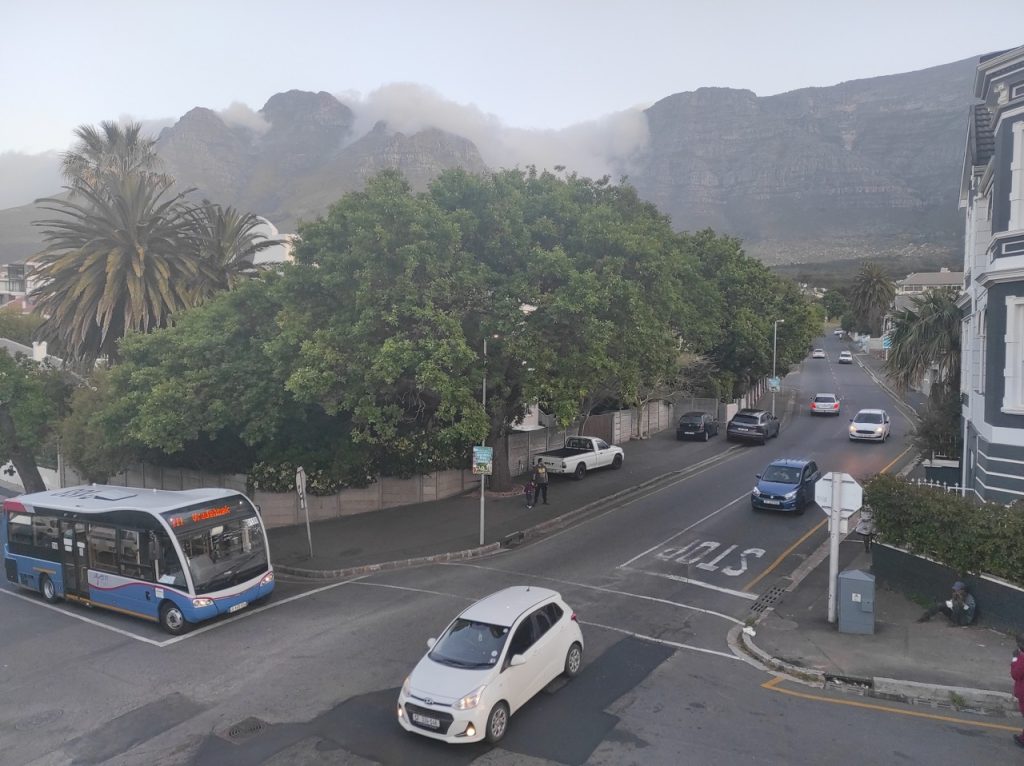
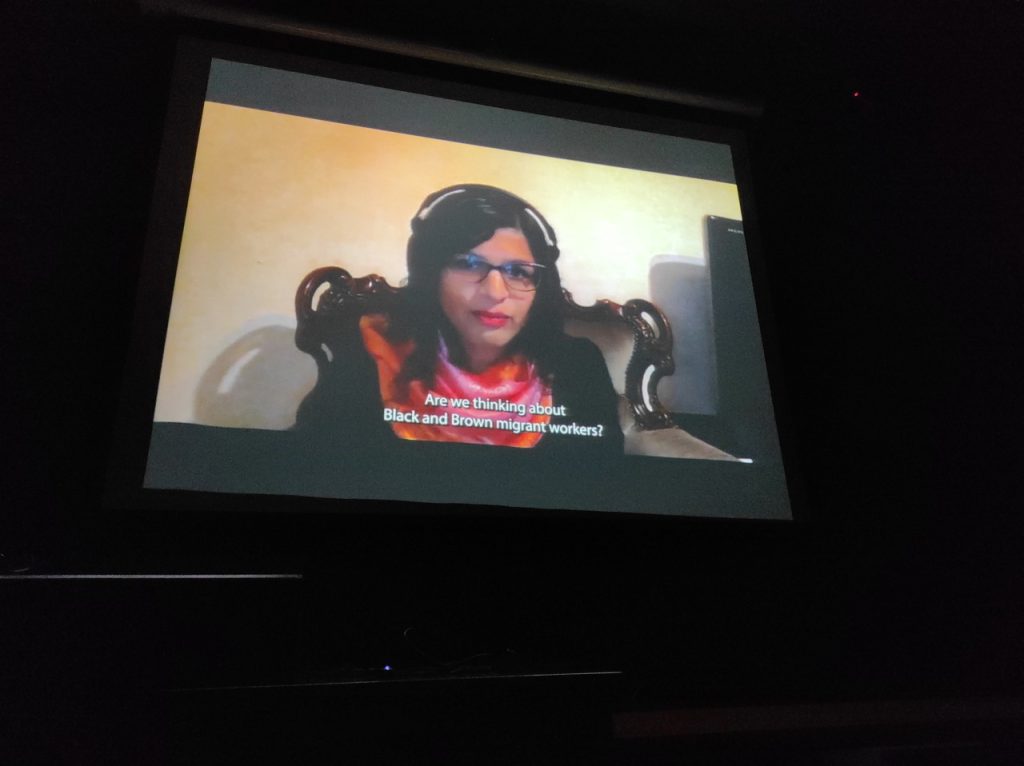
10/10/2023
DAY 2
CONVIVIAL WORSKHOP (Day 1)
UNIVERSITY OF CAPE TOWN


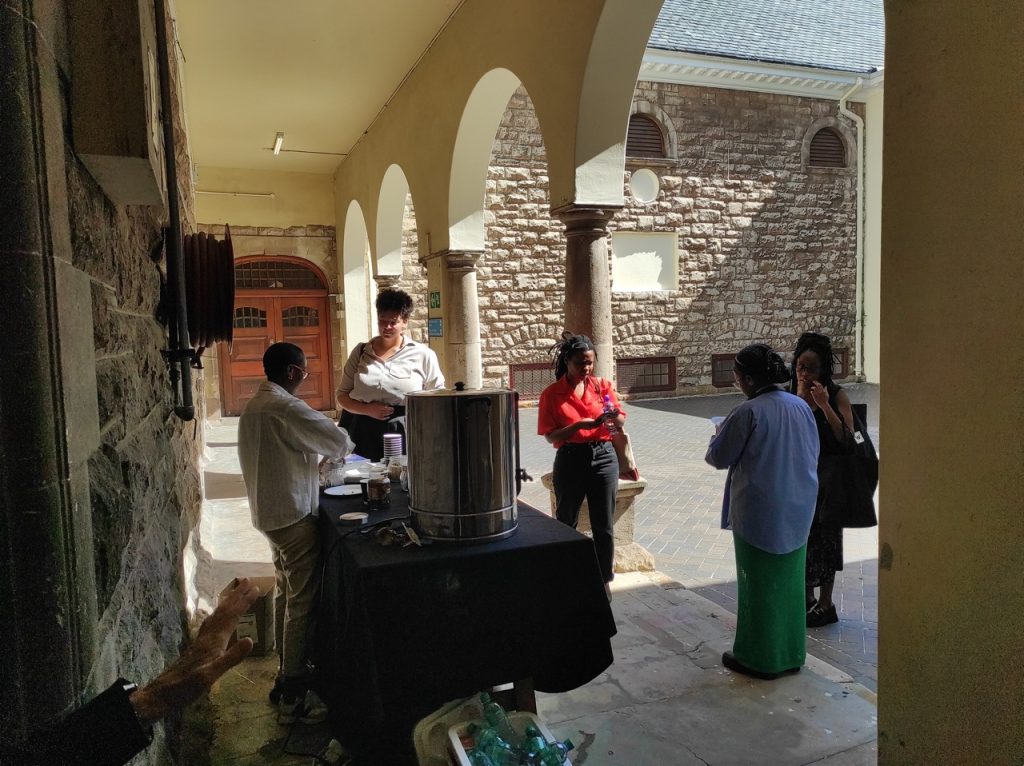
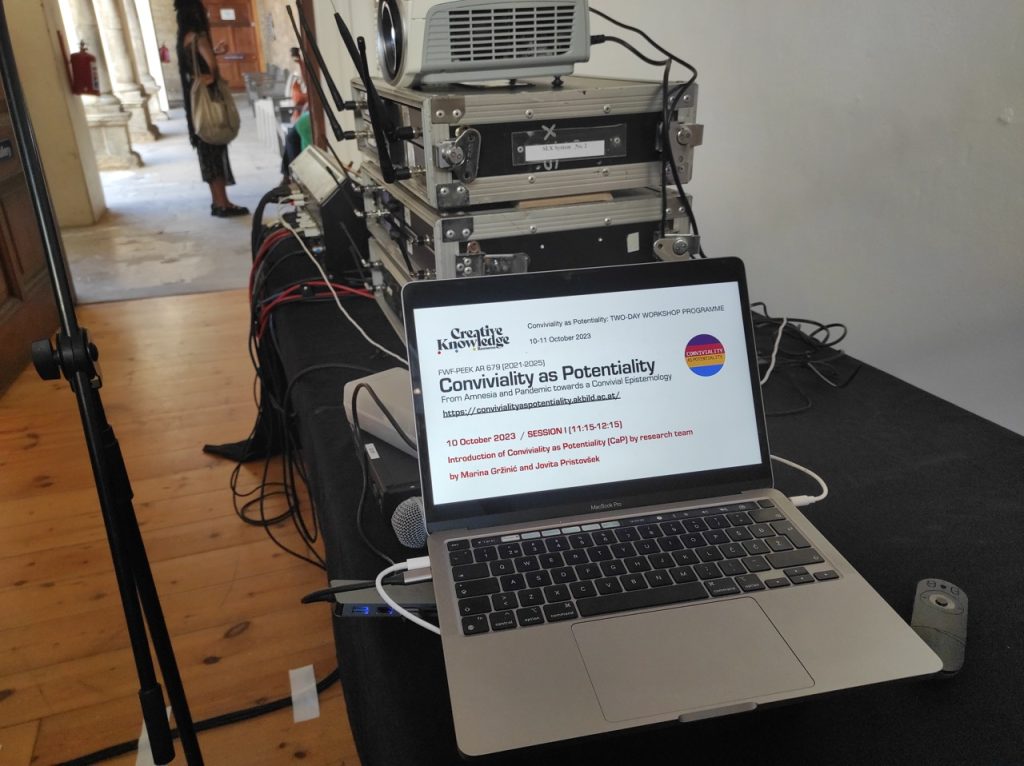
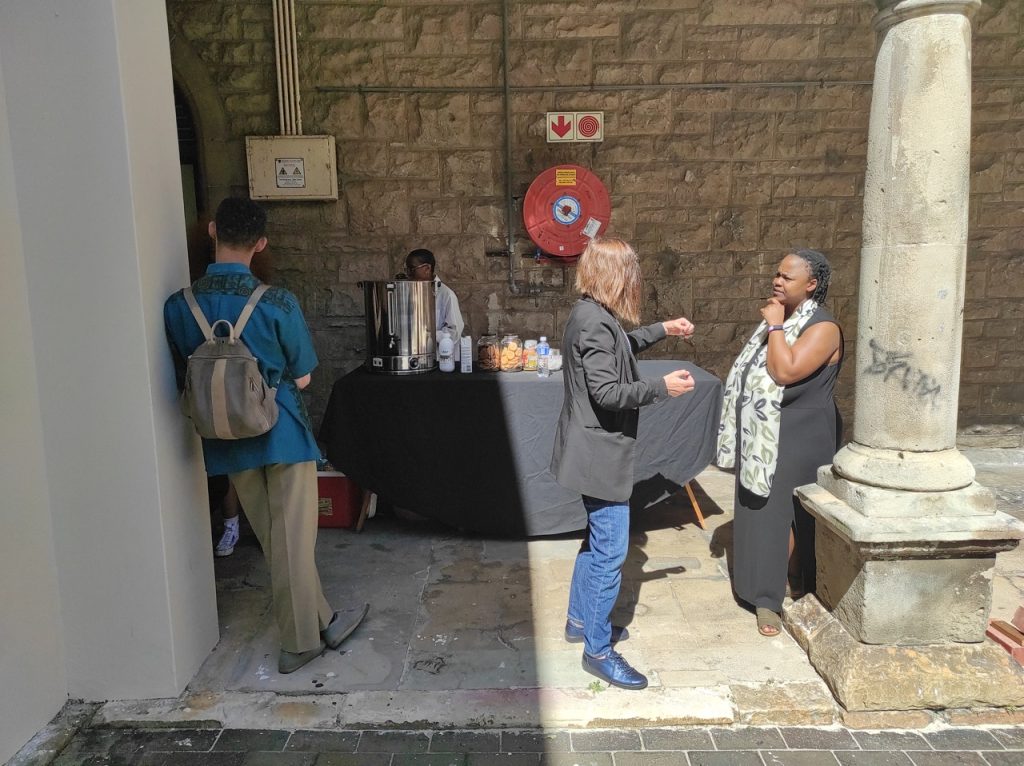
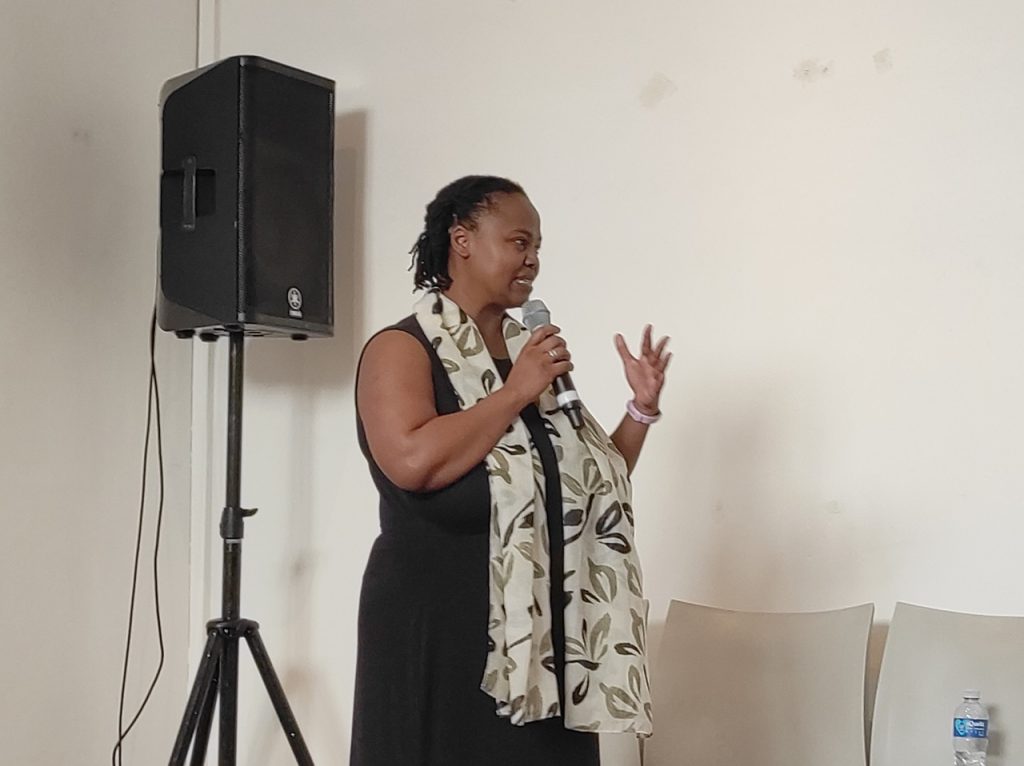
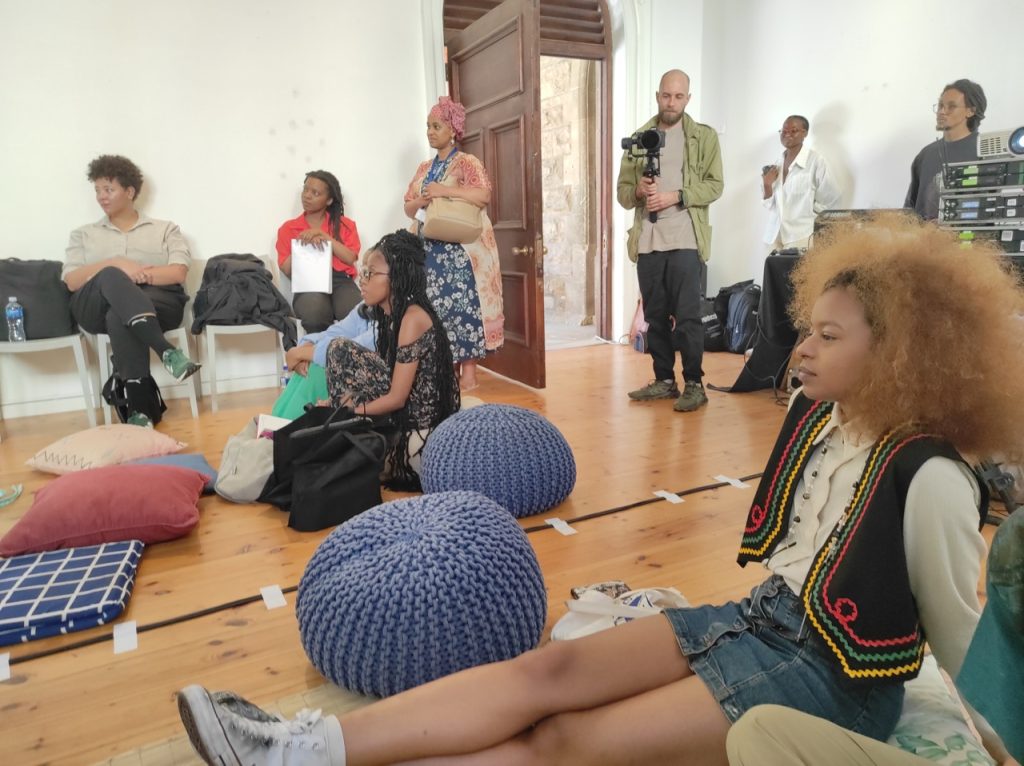
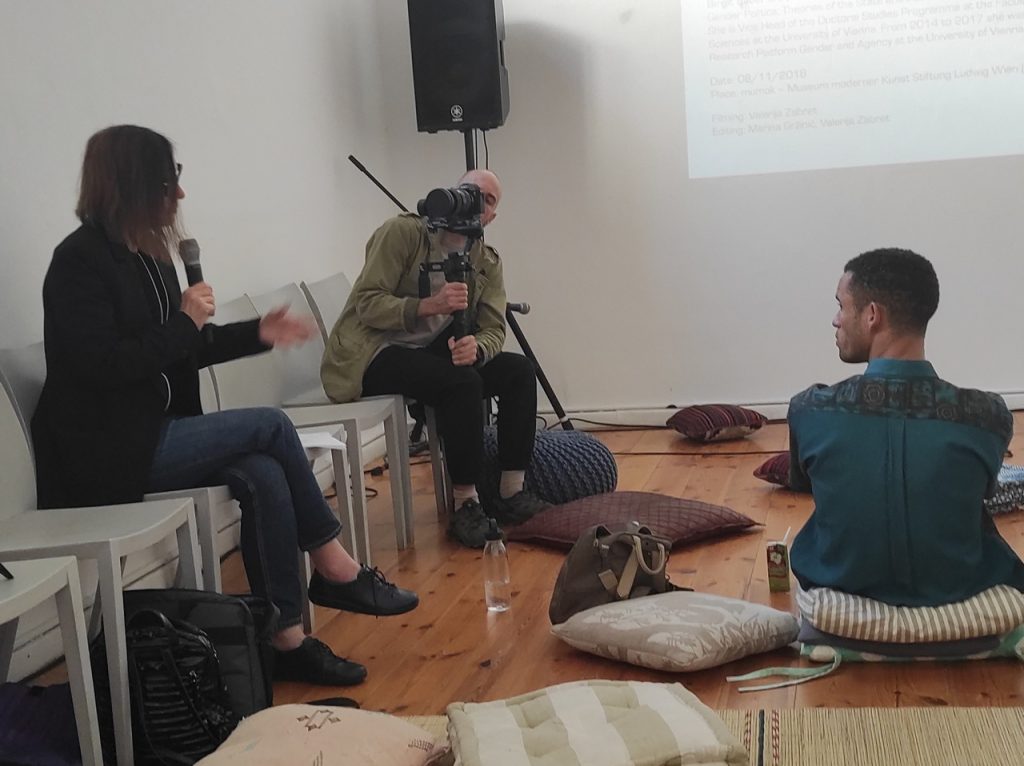
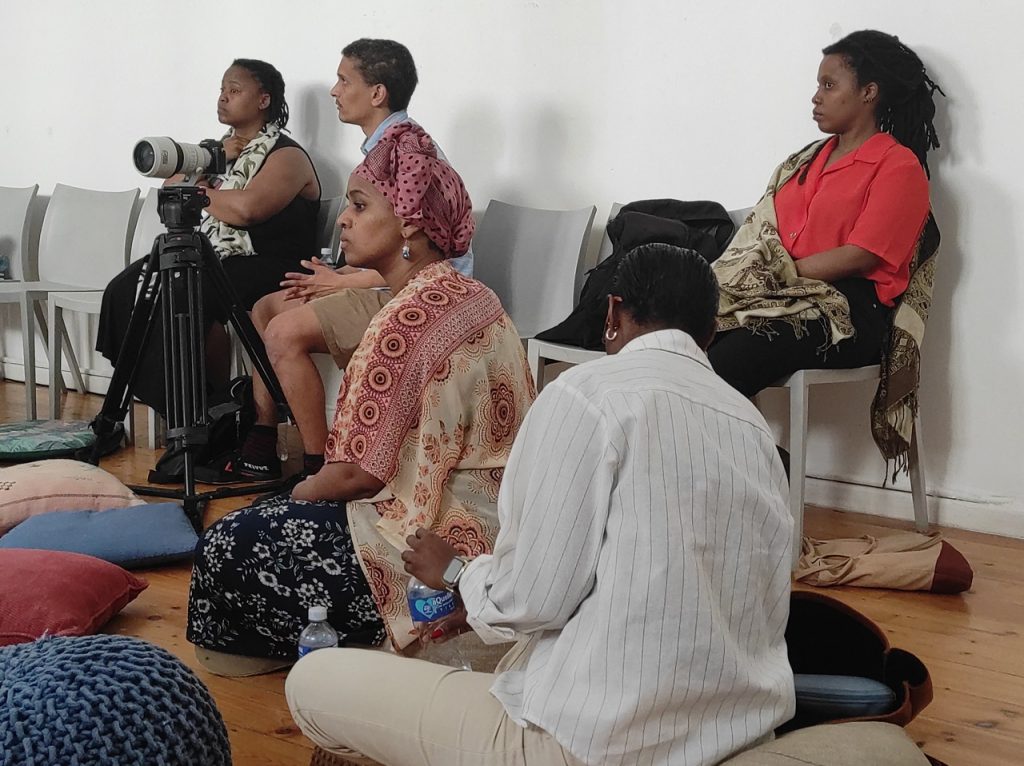
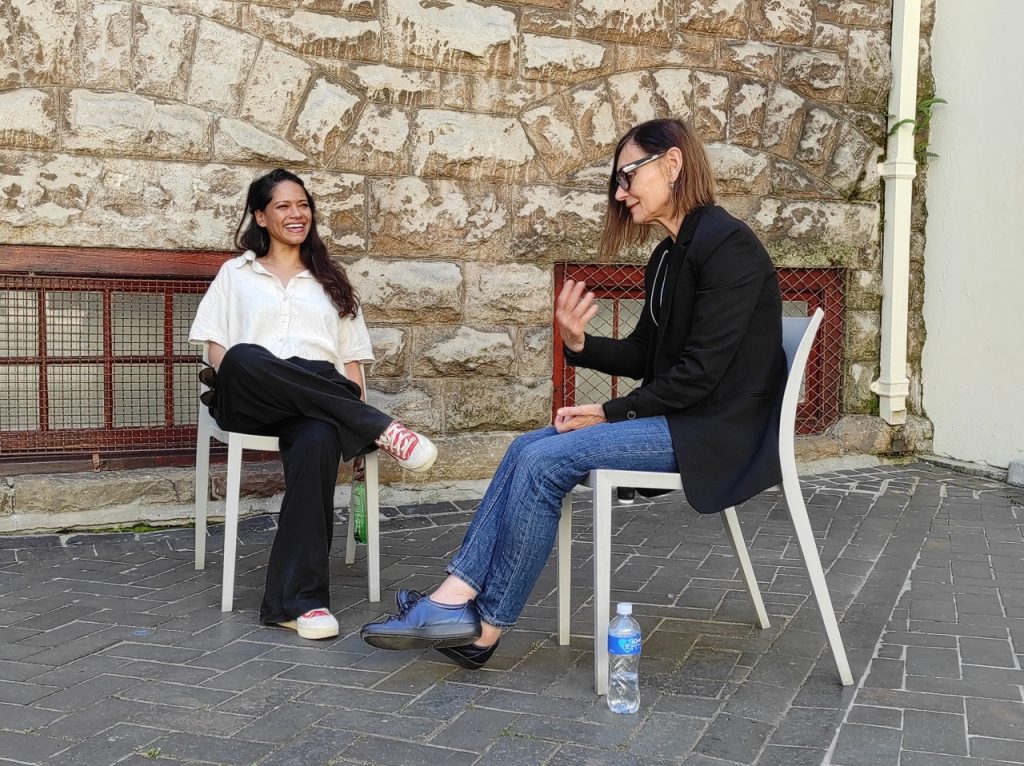
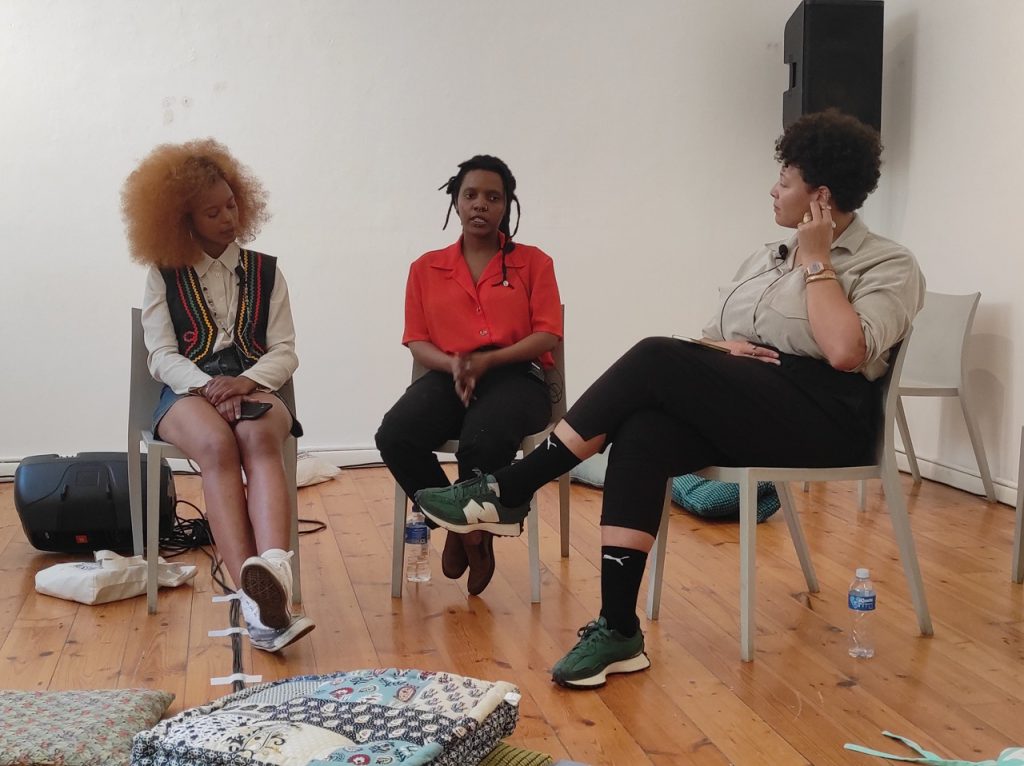
9/10/2023
DAY 1
CAPE TOWN
FIELD RESEARCH
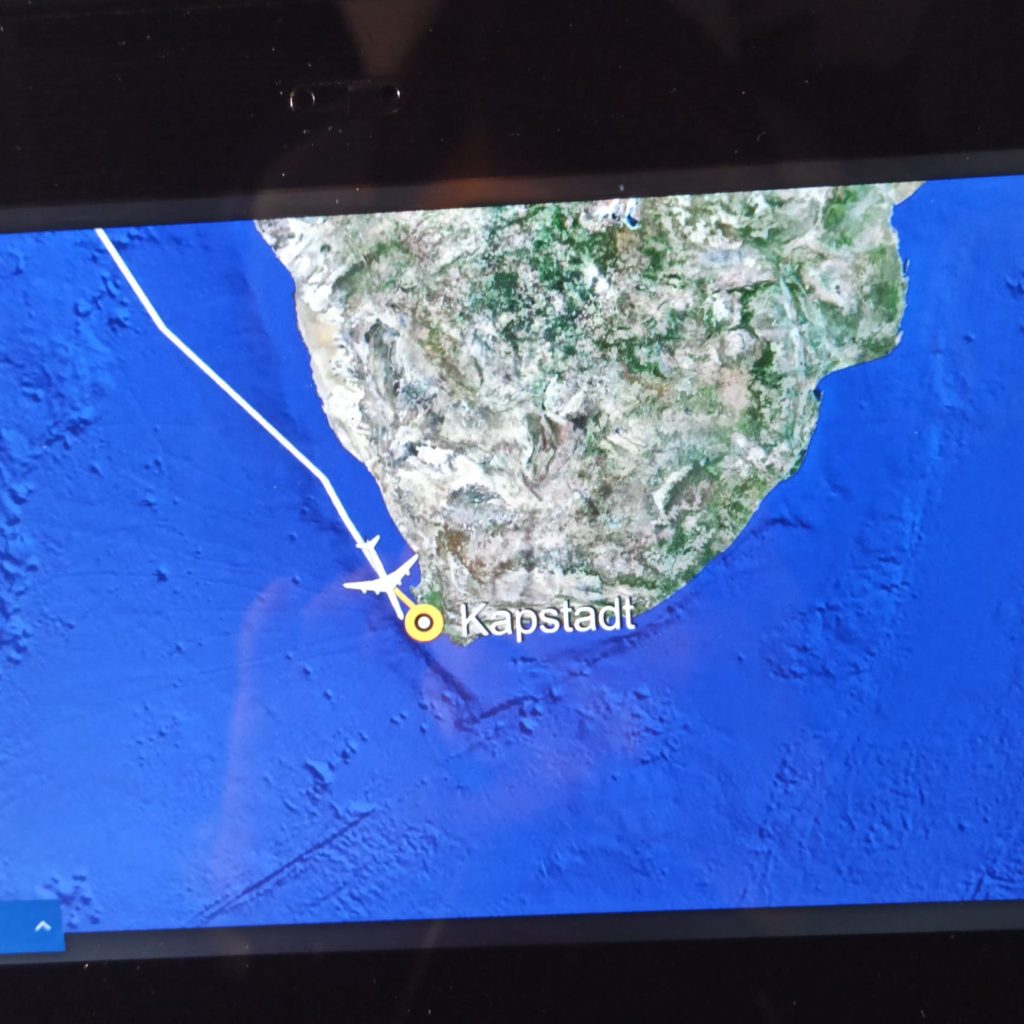
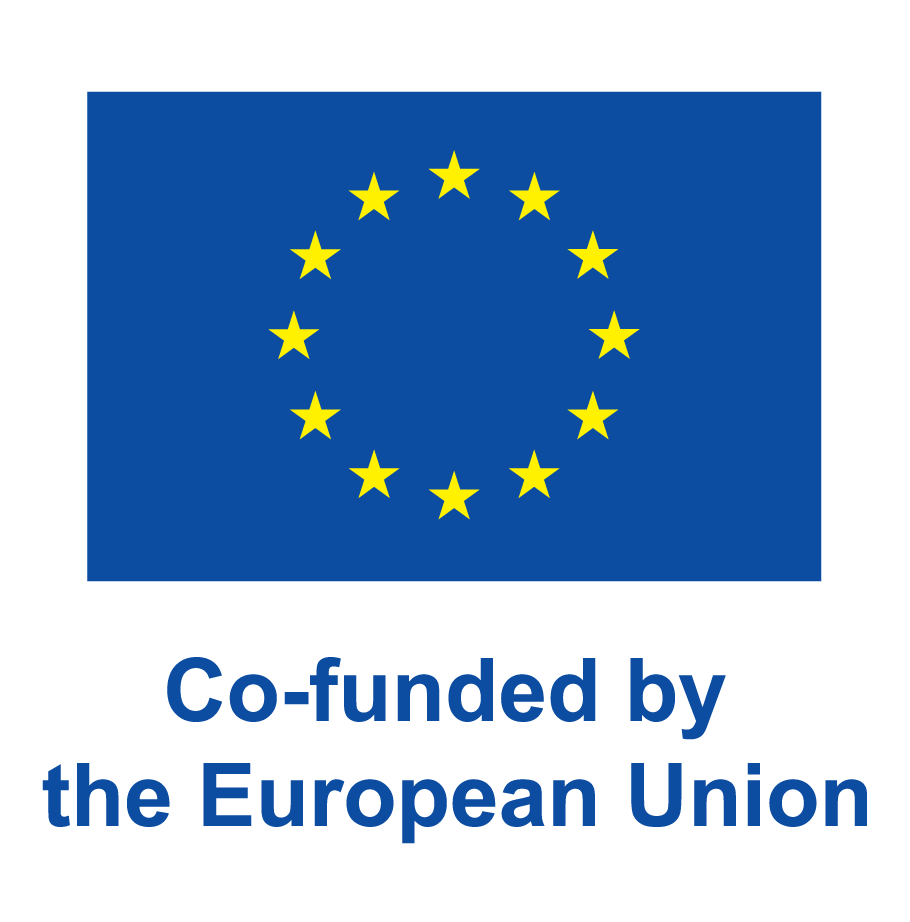
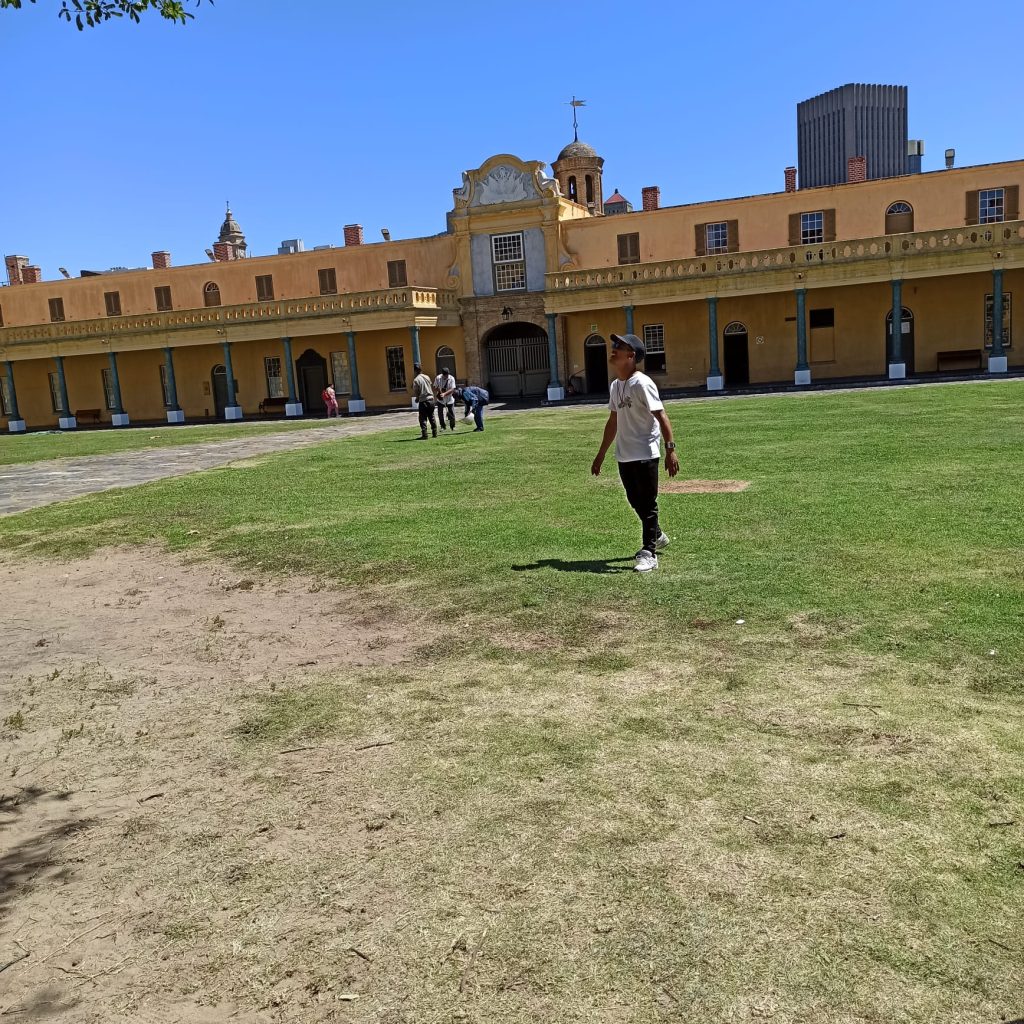
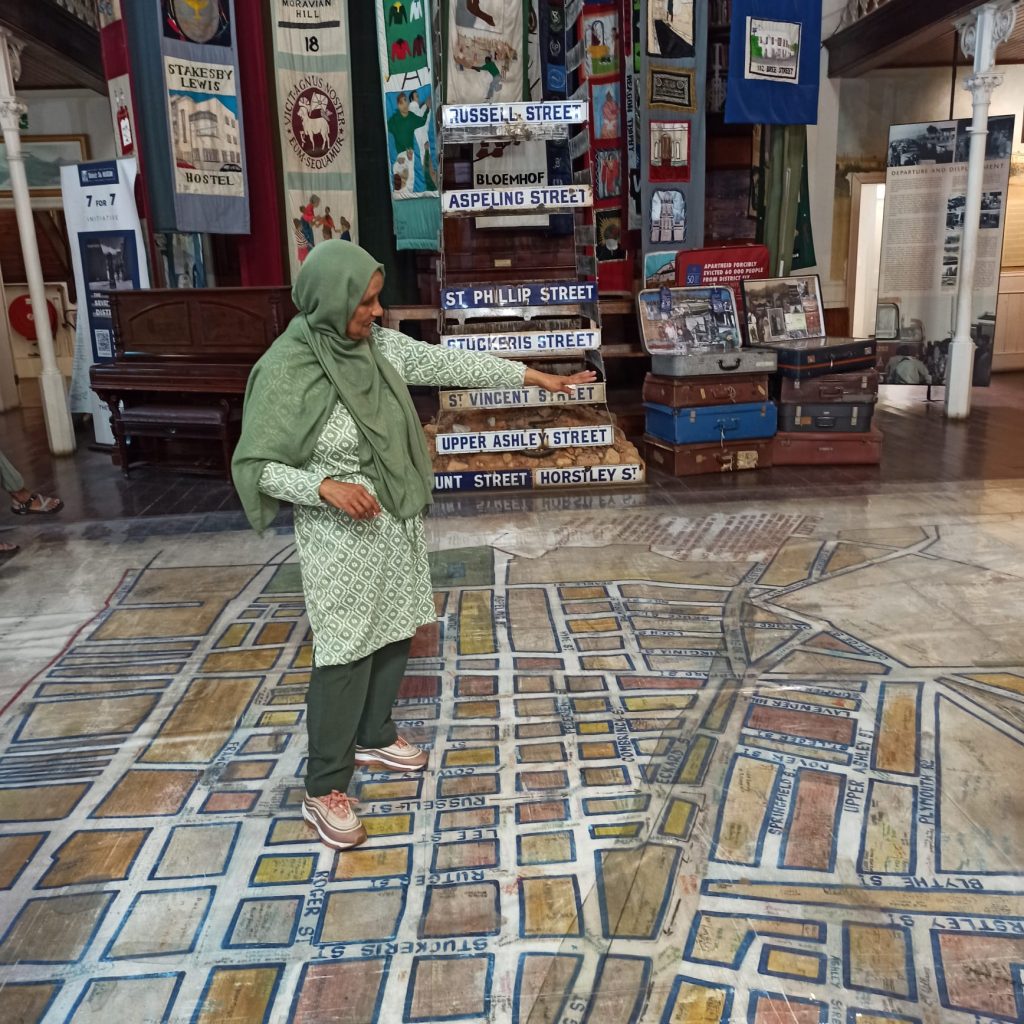
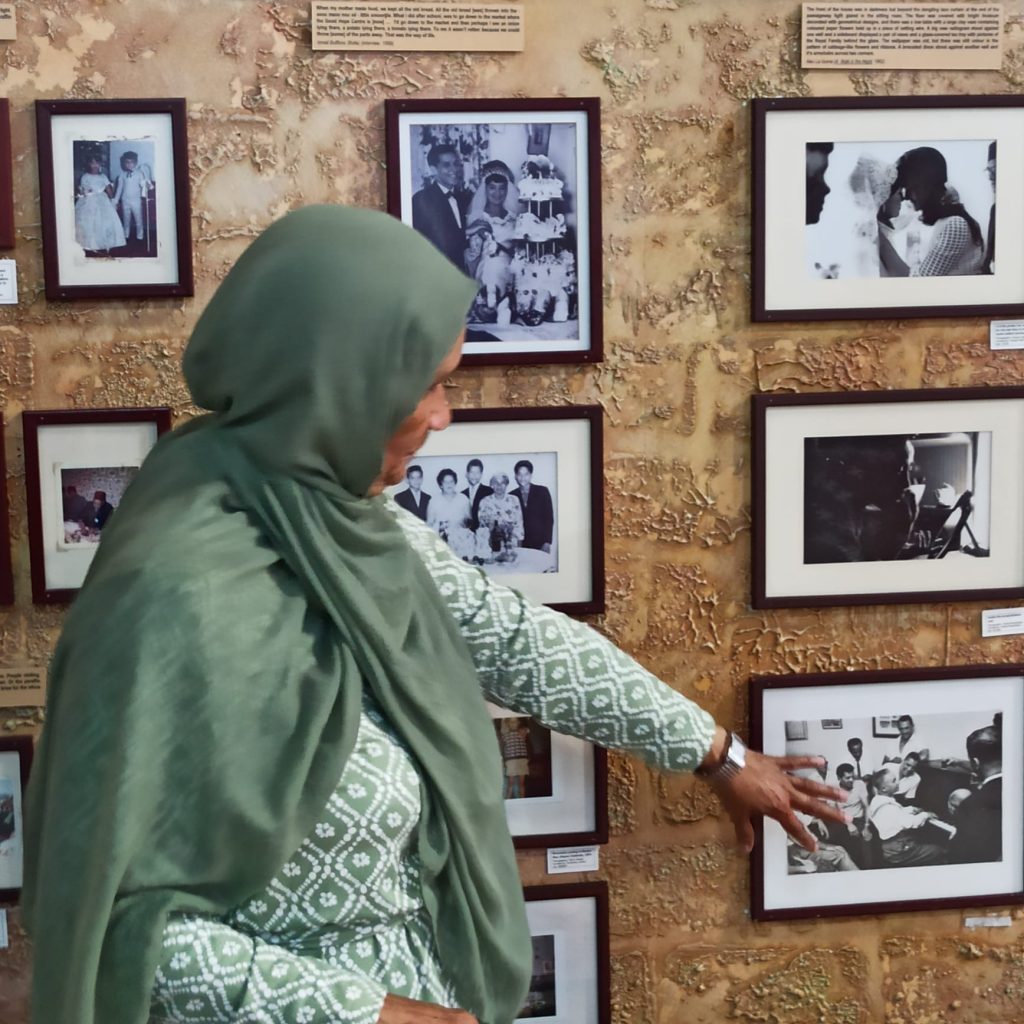
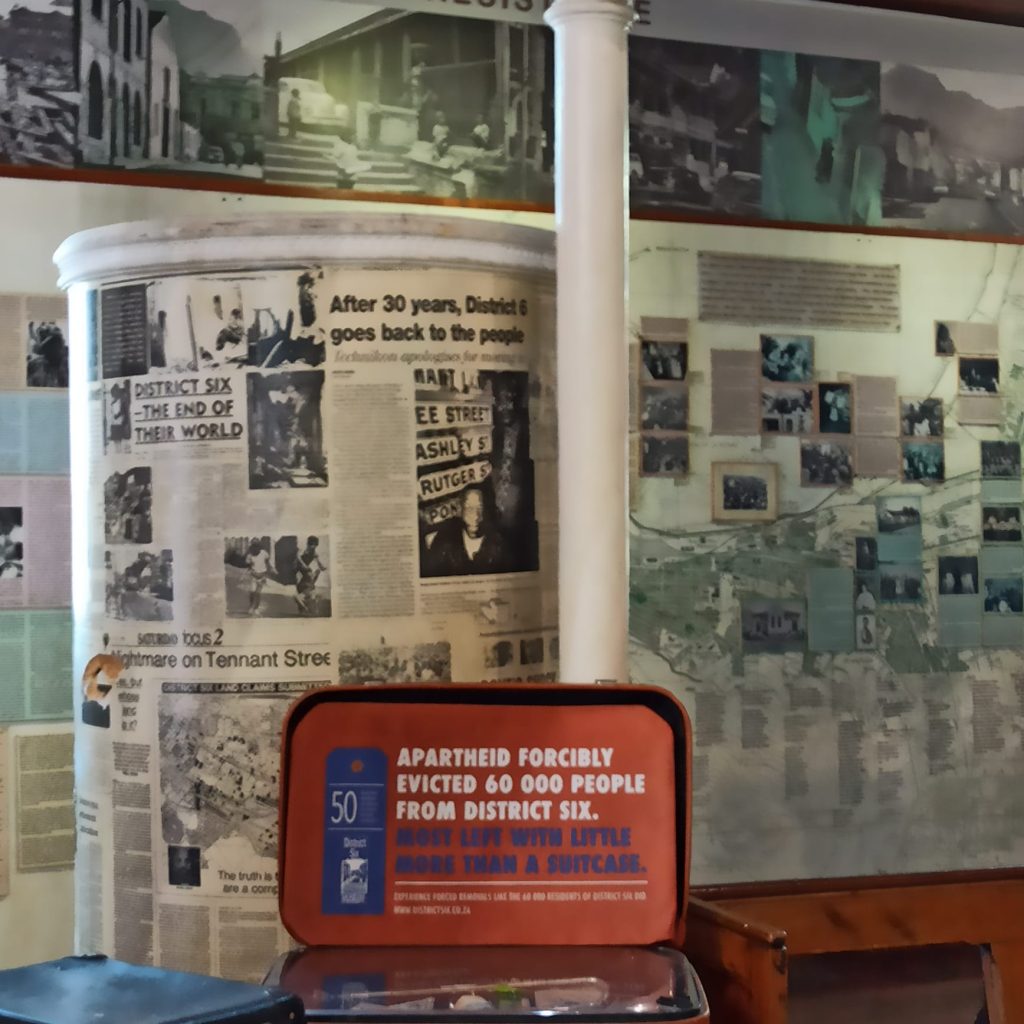
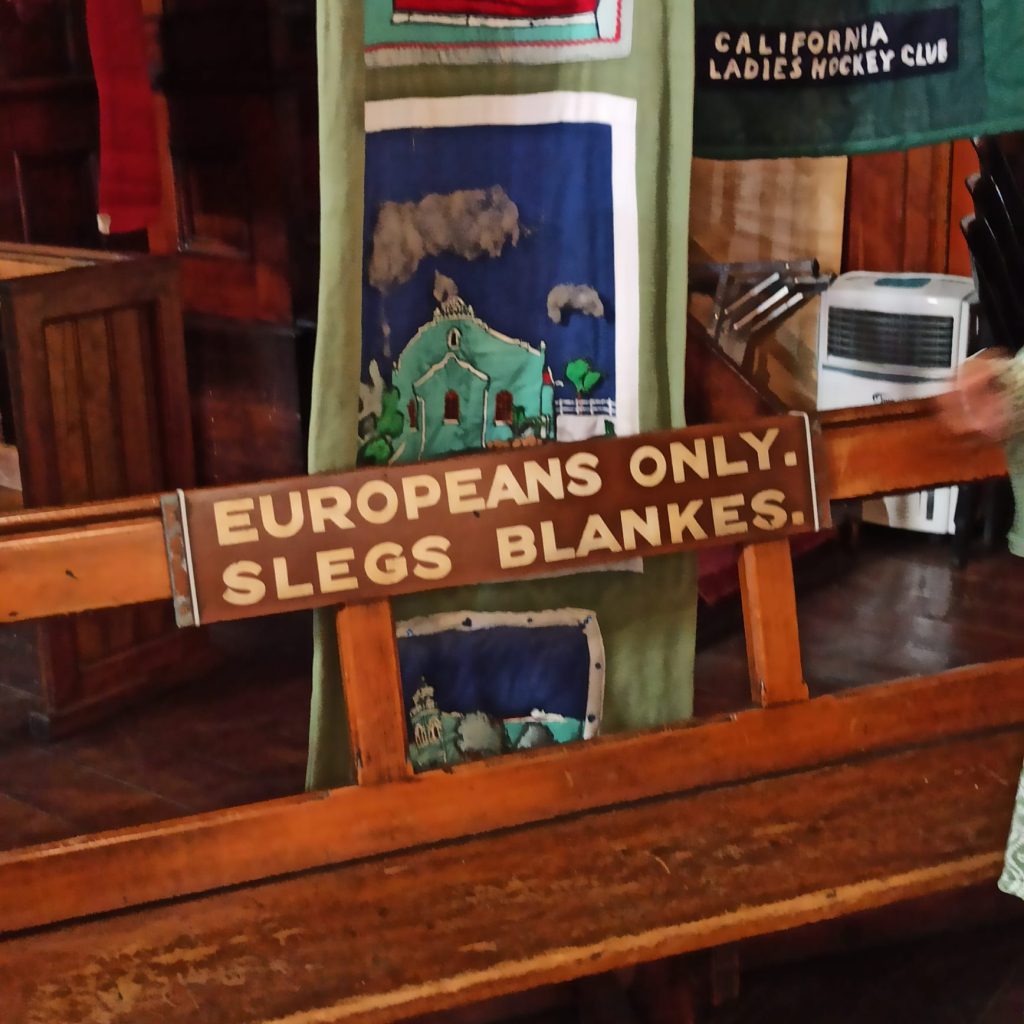
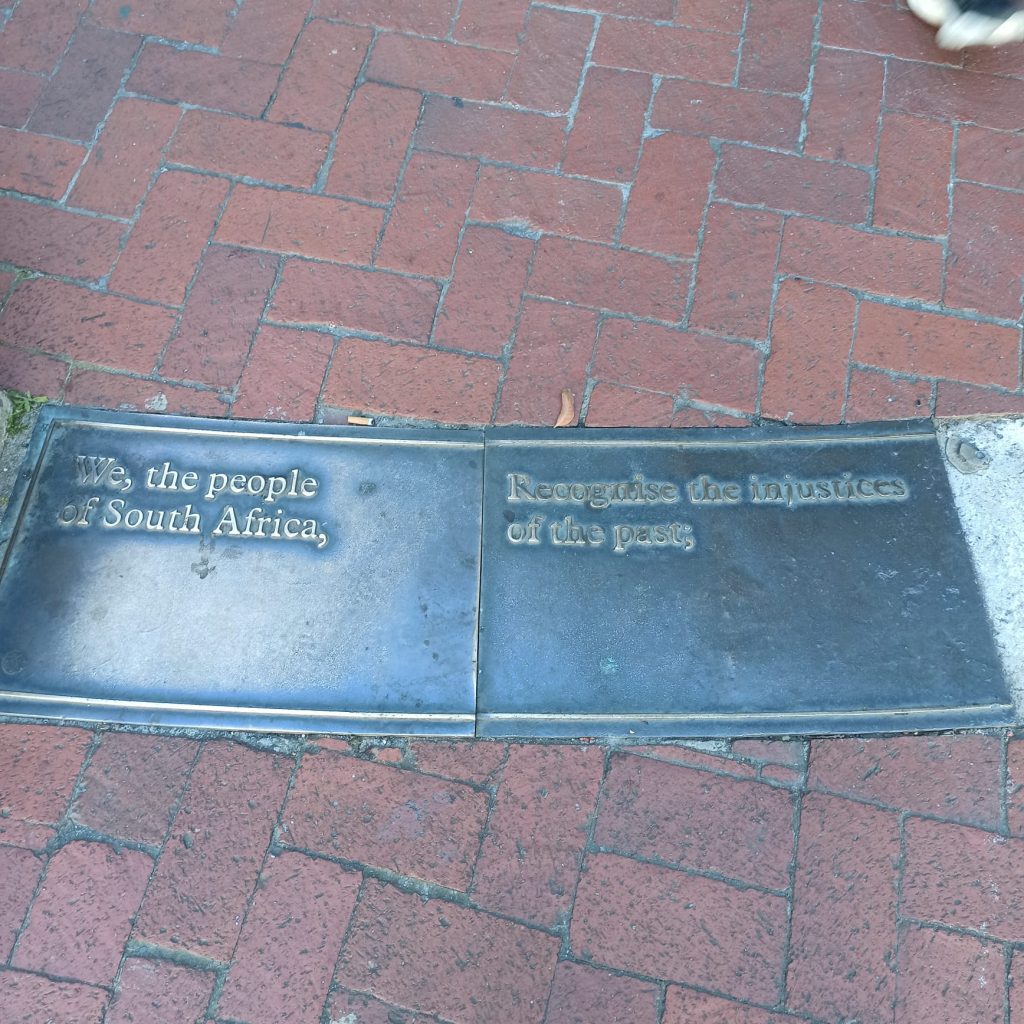
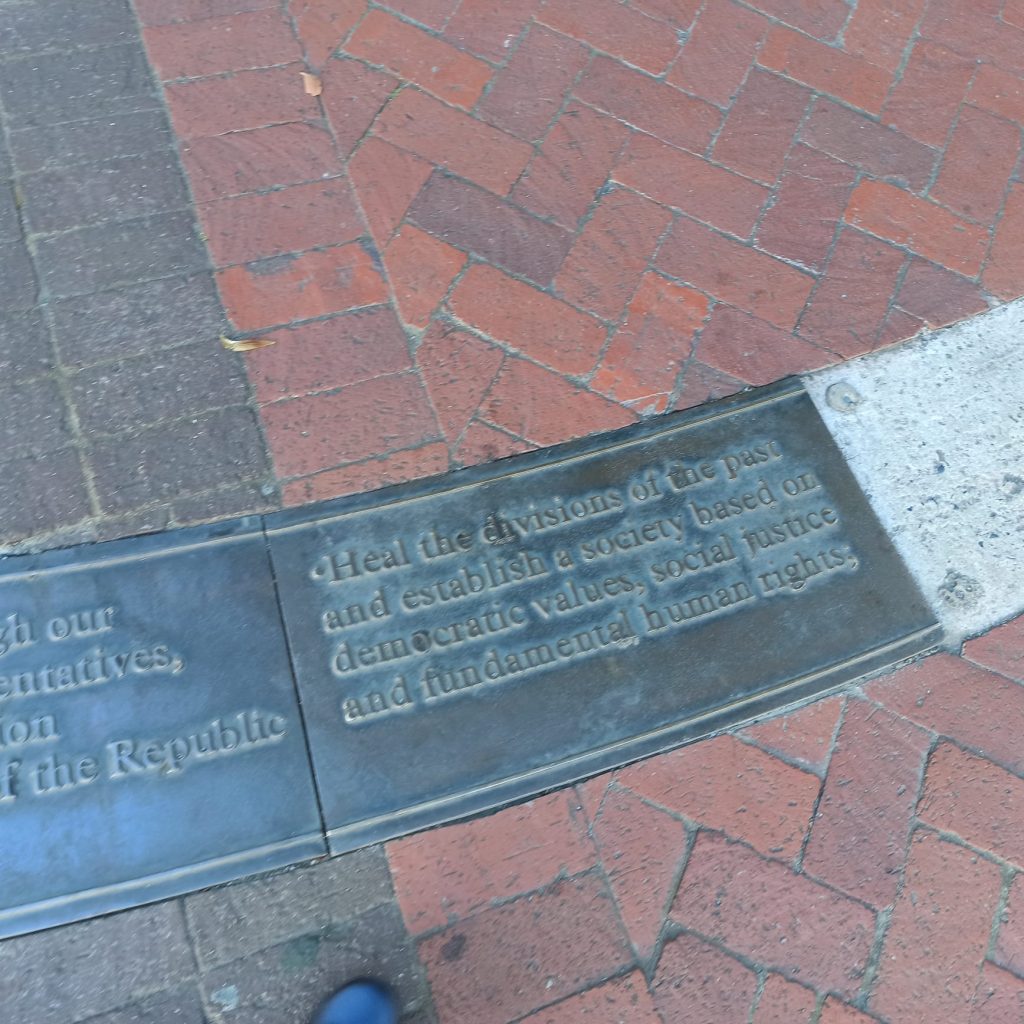
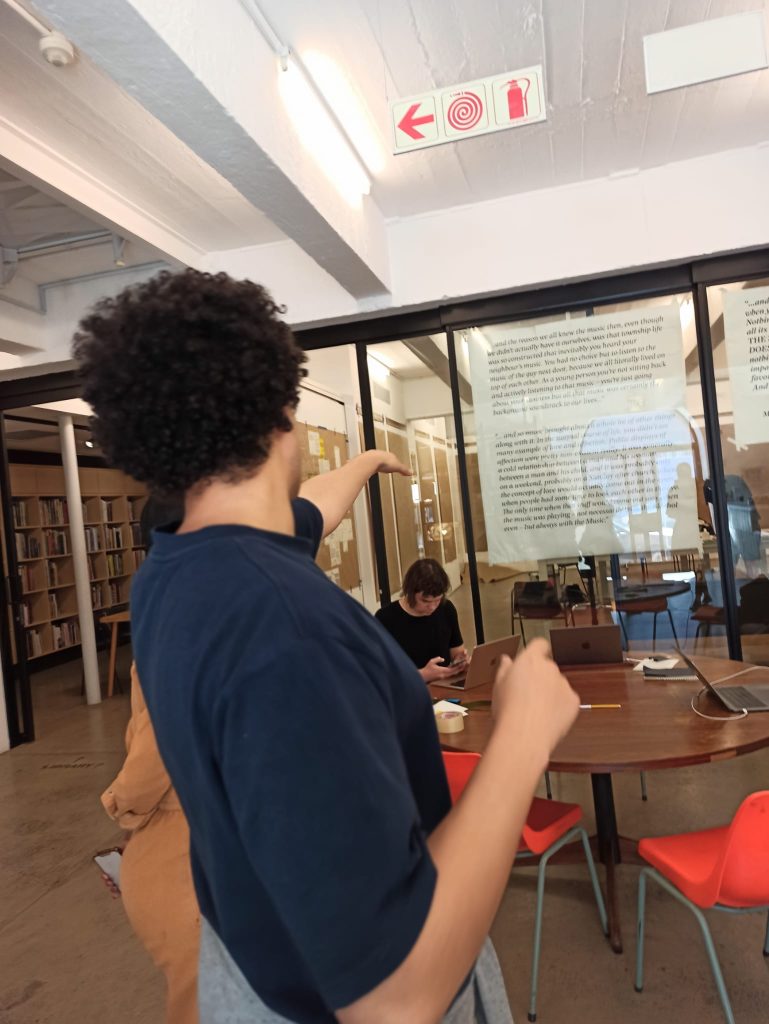
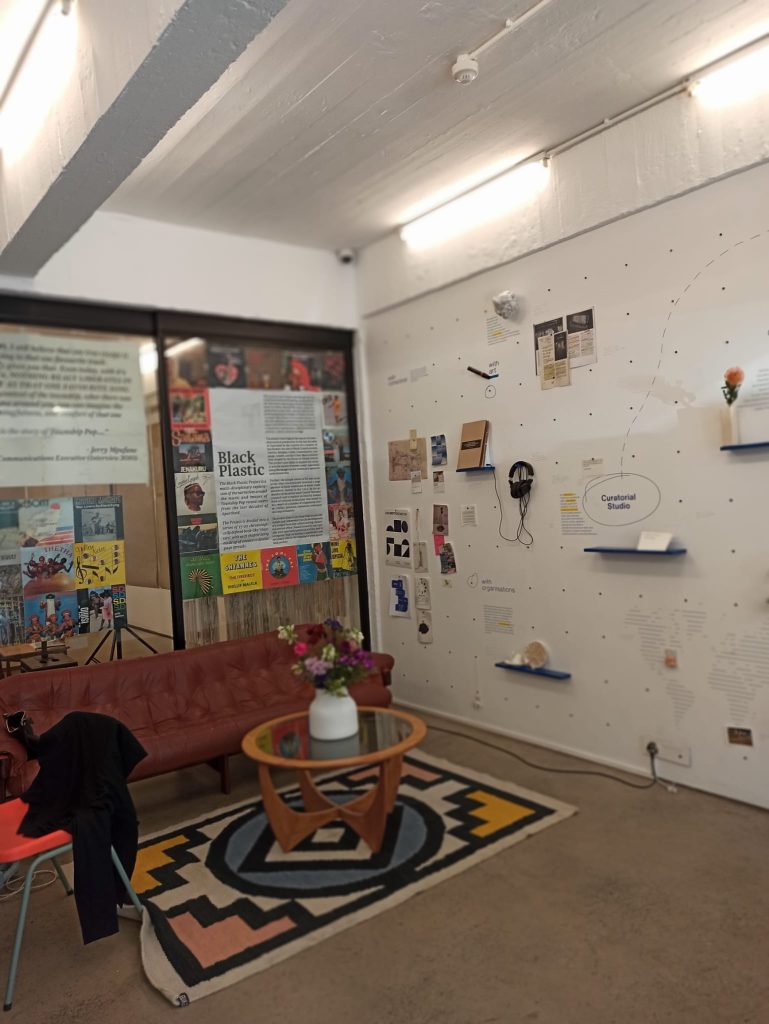
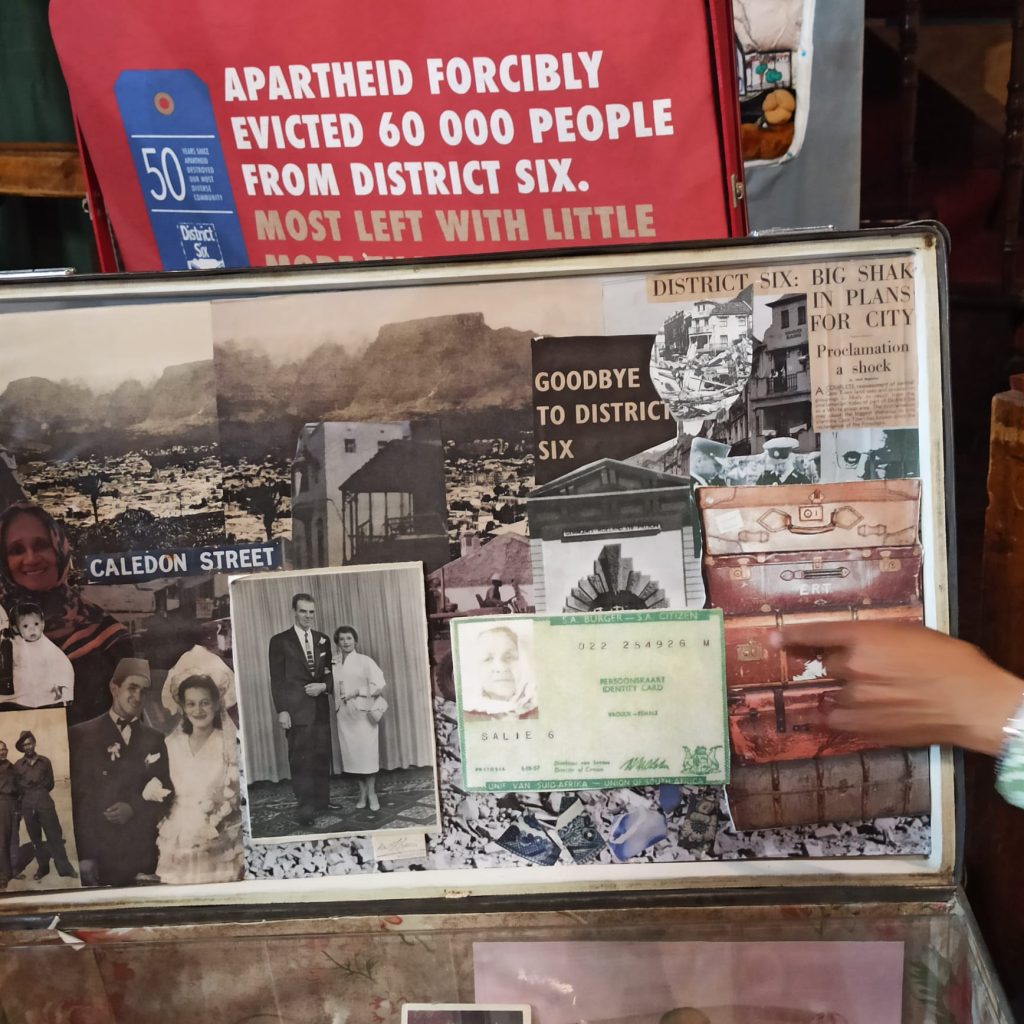
29/10/2022 CONVIVIAL WORKSHOP #1
at maiz WISSENSLABOR 22, LINZ
in cooperation with MAIZ JUGEND
By Sophie Uitz
Our first convivial workshop finally took place at the end of October in Linz, Austria with a group of eight young women with different personal migration stories. The workshop was held in collaboration with maiz Jugend, a subgroup inside maiz that works with young migrants to “create collective processes in which action options and possibilities for intervention are designed and implemented.” Most of the participants already knew each other from previous events with maiz Jugend, and the atmosphere was good from the beginning. Our research team (Marina Gržinić, Jovita Pristovšek, Saša Kesić and I) prepared an introduction to the idea of conviviality and how it can be practiced and implemented even on a small scale. We introduced some of the events and artistic works on conviviality that we have been working with over the last years as part of our research project, and learned about their own experiences and approach to art as a collective means of sharing and learning. Our main guest for the day was Viennese rap artist Esra Özmen aka EsRap, who came for the day to spend the afternoon in the workshop and give a concert in the evening. Esra Özmen shared with the group her own story of how she became a rap artist and found her way to art. She has a Master degree in fine arts and is currently pursuing a doctorate at the Academy of Fine Arts Vienna. As the child of a Turkish immigrant family, born and raised in Vienna, she knows what it’s like to live a life in Austria where migration is part of the biography. She recounted how she struggled in school, spending her first years in a class made up almost entirely of immigrant children, before her parents arranged for her to transfer to an “all-white Austrian” school where she was suddenly the standout child with a Turkish background. Having to juggle multiple languages at home, at school, and in everyday life, in the midst of an “Austrian” majority society that relentlessly excludes those who have a so-called “immigrant background,” Esra wrote down her thoughts in poetry. After sharing a recording of her poetry with a friend, she was given the opportunity to use a recording studio that had been set up in a youth center. Thank you to helpful friends, she soon got the idea to add a beat to her captivating lyrics – and she began turning her poetry into rap music. As a rap artist, she found her way to the Vienna Academy of Fine Arts, where she was able to approach art from her own unique point of view, and she continues to do so successfully and truthfully to this day.
Esra’s way of telling her story is empowering, as it does not act as a blueprint for how a young woman should integrate and assimilate into the chronically racist, majority-oriented Austrian society. Rather, it reflects on how Esra has created and continues to create her own world that is true to her and her image and ideas of herself and who she is, while confidently taking space and locating herself at the heart of Austrian society as part of it. After her captivating narration, Esra involved the women in the practice of rap by teaching them the basics and motivating them to write some lines of their own rap lyrics. The session was a great success and ended with short performances of rap songs that each participant had written.
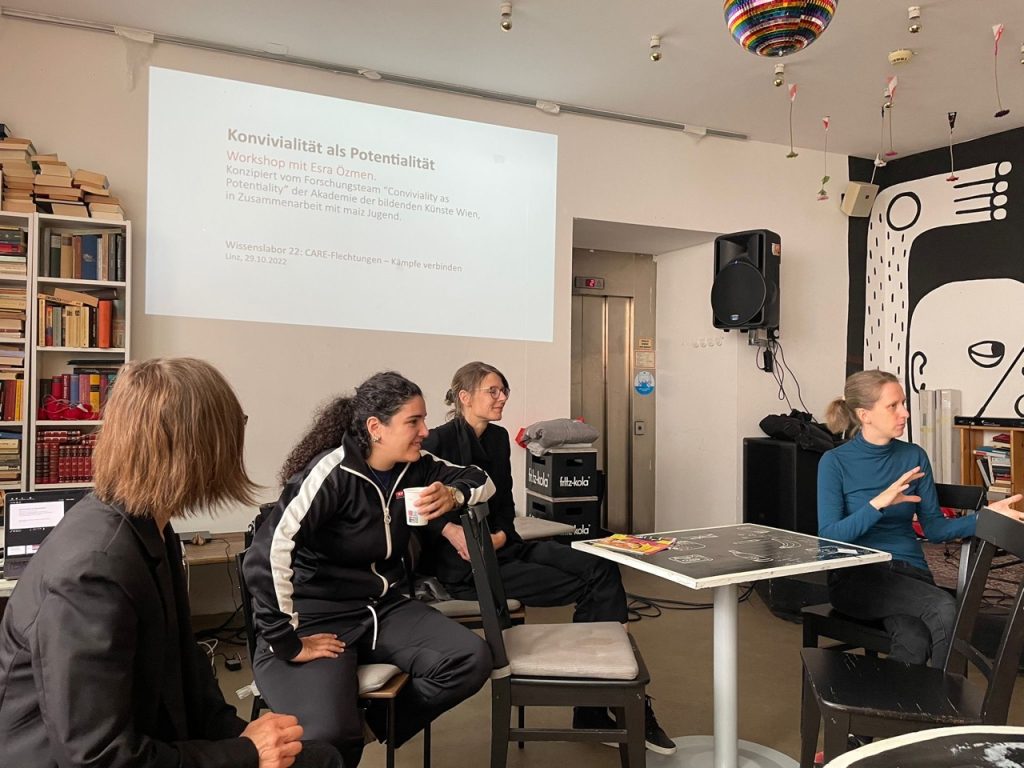
On October 29, 2022, I participated in Conviviality as Potentiality: workshop with Esra Özmen and FWF PEEK project “Conviviality as Potentiality” at Wissenslabor 22 (Care-Flechtungen – Kämpfe verbinden), in collaboration with maiz Jugend (Linz, AT). The participants – young migrant women aged 13-20 – were invited to rap together. Rapper Esra Özmen introduced them to her experiences with rapping and underlined the power of her autobiographical poetry with a spontaneous performance. In the afternoon, the workshops “Take Care of Yourself – Strategies for Collective Action”, “Connecting Struggle – Weaving Together Another World” and “Protective Mantle Against Racism” took place, and in the evening we celebrated with a concert (sugar pa and rio lectric, Enesi M., Ian, EsRap, Missex Dj Set). (S. Kesić)
18/10/2022 FILM SCREENING: UNDERSTANDING CORONA
UNIVERSITY OF INNSBRUCK / LEO KINO INNSBRUCK
By Sara Kesić
On October 18, 2022, I attended the film screening: Understanding Corona (Universität Innsbruck). As part of the Conviviality as Potentiality team, Prof. Dr. Marina Gržinić and I were invited to screen two short films at the Leo Kino in Innsbruck; the films that were produced during the time of the pandemic. As the art and cultural scene was strongly affected by the Covid-19 pandemic, the films were made under great difficulties. But through film, new spaces were created, beyond the prevailing discourses. For example, “Wearable Vocabulary” documents a June 2021 workshop in Vienna where participants discussed vocabulary against oppression and for empowerment, and “Touching Pain (Part 2)” presents the case of the Uyghur minority, which has been threatened by repression in China for years; this work talked on discrimination, fragmentation, administration, citizenship, and non-citizenship.

10/10/2022 – 16/10/2022 MUSLIM* CONTEMPORARY 2022
ACADEMY OF FINE ARTS, VIENNA
In the second week of the winter semester 2022/23, Muslim*Contemporary 2022, went on with numerous exhibitions and workshops. Taking place for the second year in a row, the goal of this multidisciplinary festival is to show, primarily through art, but also through education, the importance of Muslim communities’ participation in Austrian society, but also beyond. During the second week of October 2022, spaces for artistic exchange, empowerment, dialog and learning were created at various venues in Vienna, with the aim of negotiating important social discourses through representation. I learned that the first Muslim*Contemporary 2021 took place on the first anniversary of “Operation Luxor.” This was a violent operation by the police and state institutions in Austria against the representatives of the Muslim community in November 2020. Subsequently, many police measures were overturned by the Graz Higher Regional Court. I am also aware of an open letter written in February 2022 by Asma Aiad, Anahita Neghabat and Dr. Mireille Ngosso criticizing the attack of the Austrian People’s Party (ÖVP) on the freedom of art in the spaces of the university. (S. Kesić)
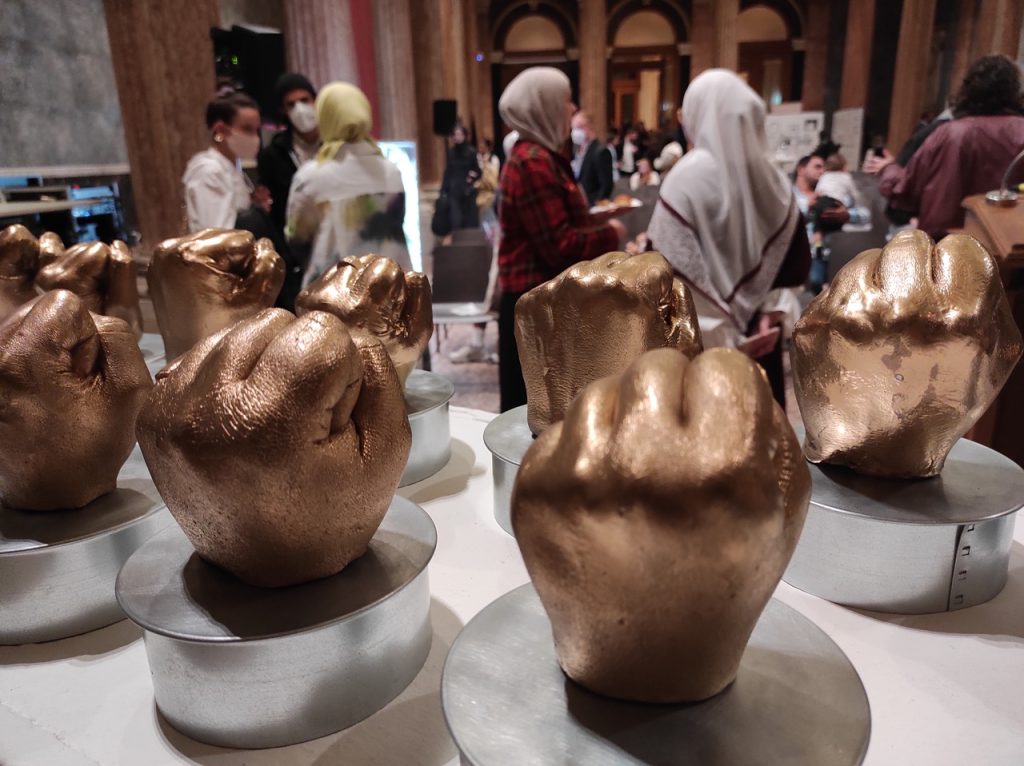
30/06/2022 – 03/07/2022 FESTIVAL OF VOCABULARIES LIFE
at Belvedere 21, VIENNA
I am overjoyed to be back in Vienna after seven years, now as a postdoctoral researcher at the Academy of Fine Arts in the Studio for Post-Conceptual Art Practices with IBK/Akbild/Univ. Prof. Dr. Marina Gržinić. Although I arrived on July 1, 2022, at the very end of the summer semester, I find the fantastic Smashing Wor(l)ds: Festival of Vocabularies Life, which I attend for three days. The highlight of the festival, Nadia Granados, presents two performances, “LA FULMINANTE” and “mi cuerpo como un detonante vivo (my body as a live trigger),” in which she depicts the horrors of life in Colombia today. On Saturday and Sunday (July 2 and 3, 2022), I observed a number of artists exhibiting and performing at Belvedere 21. They are all politically committed to “smashing the world and creating other worlds through our words.” In other words, numerous marginalized positions from all over the world present their artworks as a way to fight against discrimination and create a better world. (S. Kesić)
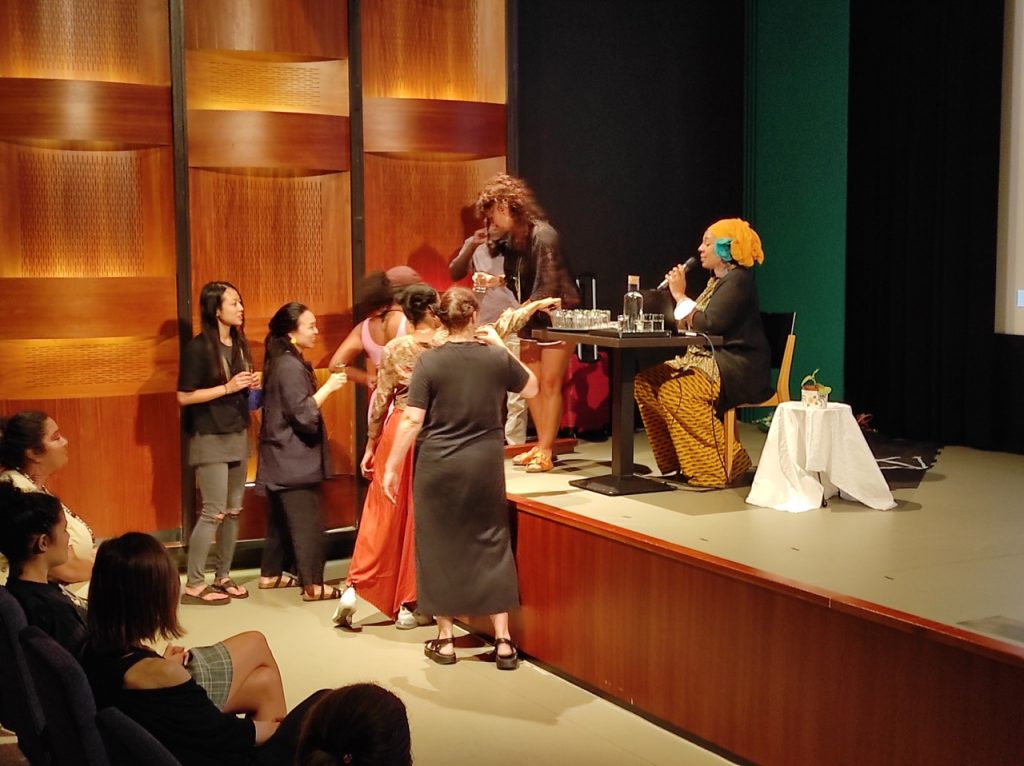
17/01/2022 – 22/01/2022
VIENNA VISUAL DIARY
RUNDGANG 2022 with PCAP class at Academy of Fine Arts Vienna
The Covid-19 pandemic that dominates the world makes every step a precaution. The measures are severe because they drastically limit the possibility of conviviality that is an anthropological concept that confronts us daily with its internal and external dividing lines, because living together is living apart with violent relations of reproduction of capital. The international institutions of art and education are strongly localized, the administration of the state, the institutions, work according to a preventive logic. Europe and the EU sort more and more according to the algorithm that in a millisecond classifies each life as valuable or not, thousands for a better or worse life. These open in front of our art pedagogical cultural practice, in different roles, from professors to researchers or simply employees in an institution or students, a deep structural demand not for what to do, but how to realize a dream of occidental emancipation. It diversifies into institutional, procedural, counting methods of management, of teaching logic, of power, which ultimately serve the nation-state interest; public institutions are beholden to the nation-state interest. (M. Grzinic)
This entry will be a visual diary. We were there together; we documented this encounter and all the works of the students of the studio PCAP (Post-conceptual art practices) under the direction of Marina Grzinic, which were presented at Rundgang 2022. Two short but powerful video diary reports that you can also see on AkBild instagram (@akbild). Feel free to share them, tell your friends about the work you or your friends did, or the work you’d like to do after seeing it. Every single student work tells of the awareness that we are enmeshed in race and/or class and/or gender inequality, that we are oppressed in various ways by institutional structures and bureaucratic processes, that we sometimes play the roles that society assigns us and expects us to play, or rather, that we reject. And every single work is looking for ways to live together in a different way, based on acceptance, recognition of differences and mutual respect. (J. Pristovšek)
After more than a year, the new PCAP student has finally arrived. The student passed the admissions test, and after the long process of obtaining visas, not to mention the maps of travel regulations and the ever-changing immigration rules, between airport regulations, paperwork, and accommodation requirements, and other permits, the project of arriving on January 21, 2022 was completed. In a few months, however, it will start again. The visa is a temporary one, a gift, so to speak, to see if the person will survive the procedures in Austria.
A raw description of a trajectory we are part in proximity: the QR code registration & PCR appointment reservation at Josef-Meinrad-Platz is made. But only after the message confirming the landing comes. The first purchase of a survival kit for Vienna follows. In between: pickup from the airport. After that, full car, but we can squeeze in with all the luggage and food. Then the accommodation. Just unloading the stuff. Then the PCR test drive at 3:00pm, where they always ask you first: Hello, have you been abroad recently? Next, work out a survival plan, research Vienna street maps, write down relevant addresses, prepare Plan B, Plan C, Plan D, and successfully make another PCR appointment reservation at Josef-Meinrad-Platz for January 27, 2022 at 12:00 PM. Next, get a new sim card… You know, the phone is your physical extension these days, an archive for your e-health history and thus a ticket to society.
And we engaged the Conviviality as Potentiality team with the student in Vienna survival workshops. At least 4 zooms, and many more calls. When you come from outside Europe, you enter a new context, a different language and customs, different power structures, different laws, regulations and institutions, different social structures and relationships. You enter a space where you do not live with the privilege of being a citizen of the nation-state. The materiality of power relates differently to your body and its movement in space, it determines your living conditions, the limits and possibilities for the present and the future. Here is the discovery: the administration in the academy that show their true face, they are supportive and practical; the info center at the AkBild, the people in the central technical department and the wonderful students who embrace beyond a basic demand the newcomer. What an energy, dedication, affectivity: awesome. On February 4, 2022, as we write the diary in retrospect, the message arrives “I am happy, with my new colleagues in the PCAP class I went for a meal, talk, and a walk. Was a fantastic day!”
(M. Grzinic and J. Pristovšek)
On conviviality in practice
Europe and the institutions invite people to come here to study, work, and live, but to what extent is the potential in these structures actually justified? Ultimately, conviviality seems impossible if there is no good will on the part of fellow human beings to think of other human beings “beyond the accidents of birth, nationality, and citizenship” (Mbembe, Necropolitics, 2019, 188). It is structurally impossible. There are multiple hierarchies and categories, intersecting and not necessarily exclusive, that govern the movements of various racialized, gendered, and classed bodies… Paradoxically, in these bureaucratic procedures, it sometimes seems as if there is no linear, straightforward logic of time as one would expect in Europe. But it is definitely a slow time. Honestly, can we really talk about conviviality if we do not practice it, consciously experience it, take care of each other, pay attention to others, and to our own ethics in the process?
(J. Pristovšek)
RUNDGANG 2022
20.1. – 23.1.2022
STUDIO FOR CONCEPTUAL ART (POST-CONCEPTUAL ART PRACTICES)
Exhibition
Akademie der bildenden Künste Wien
Lehárgasse 8, 1060 Wien, 1. OG Atelier Süd
Exhibition by the Studio for conceptual art (Post-conceptual art practices) featuring works by:
Henrie Dennis
Oke Fijal
Zora Fuhrmann
Laura Hvidtfeldt Andersen
Ali Kianmehr
Aaron Kimmig
Sebastian Konzett
Betül Seyma Küpeli
Grace Marta Latigo
Dean Maasen
Mirjana Mustra
Finn Mühl
Jonas Nieft
Valentin Pfenniger
Michelle Seidl
Adam Tománek
Timotheus Überall
Kyra Sophie Wilhelmseder
Credits:
Recording and editing by the project team Conviviality as Potentiality [FWF AR 679]
RUNDGANG 2022
20.1.2022 – 23.1.2022
STUDIO FOR CONCEPTUAL ART (POST-CONCEPTUAL ART PRACTICES)
Screenings & Events
Akademie der bildenden Künste Wien
Lehárgasse 8, 1060 Wien, 1. OG Atelier Süd
Screenings & events by the Studio for conceptual art (Post-conceptual art practices) feature works by:
Asma Aiad
Frederika Nelly Arndorf [Nathalie Ann Köbli, Arno Gitschthaler, Felix Huber]
Conviviality as Potentiality (FWF AR 679) project team [Marina Gržinić, Jovita Pristovšek, Sophie Uitz]
Felix Deiters
Oke Fijal
Benjamin Janzen
Aaron Kimmig
Finn Mühl
Özgür Sevinç
Fedor Shmelkin
Taske pop kollektiv [Saro Gottstein, Tereza Klčova et al.]
Adam Tománek
Ju Yoo
Credits:
Recording and editing by the project team Conviviality as Potentiality [FWF AR 679]
06/10/2021
ZAPATISTA JOURNEY FOR LIFE
It was a historical swing, affective and a process of learning and unlearning. On October 6, 2021 in Vienna at the Studio for Post-conceptual art practices at the Academy of Fine Arts Vienna we had an immense privilege that a group of wo/men* from National Indigenous Congress (CNI, Congreso Nacional Indígena), then of the Indigenous Government Council (CIG, Concejo Indígena de Gobierno), and representatives of the Peoples’ Front in Defense of the Land and Water of Puebla, Morelos and Tlaxcala (FPDTA, Frente de Pueblos en Defensa de la Tierra y el Agua de Puebla, Morelos y Tlaxcala), accepted our invitation to come and talk to us.
For three hours, the strong group of women* told an oral history not commonly known. We may have read mostly about the Zapatista Army of National Liberation (Ejército Zapatista de Liberación Nacional, EZLN), often referred to as the Zapatistas since 1994. When the Zapatista Army went public on January 1, 1994, it released its declaration on the day the North American Free Trade Agreement (NAFTA) went into effect. The declaration amounted to a declaration of war against the Mexican government, which they considered illegitimate.
The narratives that the representatives of the Zapatista women and men shared with us went back decades before that historic date. We listened and were asked not to take notes, to record in our memory the genealogy of the period from 1984 to 1994 in translation from Spanish to English. They told us about the history, the emotions, the material, the years, the places, the facts, the learning and unlearning, the history and story of education, the struggles of the insurgents and the good government. They delved even deeper into the violent history of the Chiapas region and told of the dispossession and exploitation of the men, women and children of the indigenous and colonized populations in the region.
The narrative was detailed to frame the actions of the insurgent Zapatista groups with a method of empowerment. In 2021, it has been 37 years of insurgent resistance that is still ongoing. We were fortunate to learn a lot, and I hope we can use that at least a little bit for our communities and societies in rotten colonial capitalist and imperialist Europe.
The stories ended with the principle of good government of cooperation and direct democracy, with levels of good government based on principles, organization and distribution of power. The emphasis of co-existence is on relationships and trust, on the distribution of power to create structures of sociability. One of the most remarkable points that still remains in my mind is that the process of learning and unlearning requires to persuade and not to defeat, so that everyone can maintain their dignity and enter into a cycle of dialog.
Thanks to Zoraida, Tina, Lorena, Zapatour, Miguel and Gerardo, the organization of this historic event was possible. (M. Gržinić)
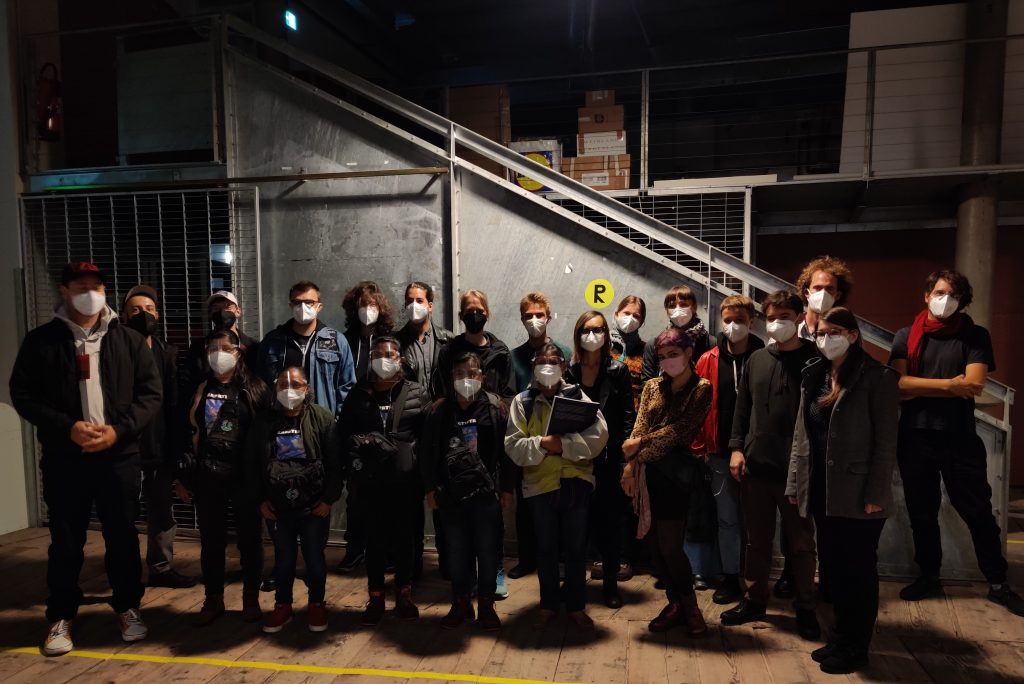
06/10/2021
ZAPATISTA JOURNEY FOR LIFE
Today, we have had the opportunity to meet with a group of six delegates from Chiapas, who accepted our invitation to the PCAP class at the Academy of Fine Arts. The Zapatista delegation of almost 200 people had landed on September 14 in Vienna. Instead of their iconic balaclavas or red kerchiefs they protect their identities with FFP2 masks. The pandemic is far from over, and yet they travelled to Europe to engage on a long-planned “Journey for Life” through the continent.
An accompanying journalist from the “medios libres”, a group of independent journalists that covers the entire journey on behalf of the Zapatistas, tells us, that they are a “movimento performativo”, and that we need to understand their visit today in this light. They are aware of the power of performance, hence the strict conditions under which they agreed to meet: that we listen to each other, escuchar, with no interference, no audio or video documentation other than our memory and recollection.
In the classroom the six delegates speak for almost two hours during which they are only interrupted by our two translators. It seems improvised at first. Who will start? What to say? How long to speak? Frequently they whisper to each other, while one by one they tell us the story of their suffering, their resistance and their still ongoing struggle. But it is not improvised at all. Each of them covers a chapter, in a seemingly linear and chronological fashion, but without making it a historic account of past events. They speak of their history as their present and their future – as our future even. And, they speak of their story collectively, adding words here and there, completing each other’s sentences at times, passing the word on and taking it back.
They tell us about the fierce oppression, violence and exploitation that their ancestors had to endure under colonial rule. The finceros, who have become an emblematic figure of colonial power, abused, raped, and enslaved them and became the immediate target of the first sparks of Zapatista resistance. When they spoke about the finceros and their regime of henchman and how they systematically dehumanised, raped, tortured and killed the native people, their eyes and voice filled up with a kind of rage that stems from memory that is not distant, but very much alive in the present. They tell us about how desperate their ancestors’ situation was, how every attempt of organizing some sort of resistance was punished severely. When a handful of people managed to clandestinely form what would later become the Zapatista Army of National Liberation, hidden in the depth of the Lacandonian jungle in Chiapas, security and the need to stay unrecognised was a major concern – and has remained so until today.
This shows also in what they describe as their core values: fellowship, criticism, self-criticism/self-reflexitivity, mutual aid, but most importantly: security. As they walk us through the events of their uprisal, the building of their self-government, their idea of a new democracy, I begin to understand how much of their work is still very much a work in progress – not just to the founding generation, but especially to the younger ones. Some of the delegates that we are meeting here must have been quite young when the Caracoles were founded in 2003. They tell us about the seven core Zapatista principles:
Obedecer y No Mandar (To Obey, Not Command)
Proponer y No Imponer (To Propose, Not Impose)
Representar y No Suplantar (To Represent, Not Supplant)
Convencer y No Vencer (To Convince, Not Conquer)
Construir y No Destruir (To Construct, Not Destroy)
Servir y No Servirse (To Serve Others, Not Serve Oneself)
Bajar y No Subir (To Work From Below, Not Seek To Rise)
It feels, as if the narration of Zapatista-ruled Chiapas was not just for us, as it was also for themselves, for their young generation in particular, of whom so many have joined this “Journey to Life”, to practice the performative power of sharing, telling, narrating to others the importance of continuing the fight. One of the more senior delegates says at one point: We have not put our weapons down. We have put them aside for now. Today, the finceros might be gone, but the oppression and the struggle against coloniality have never seized. Not in Europe, and not in Chiapas. La lucha sigue. Infrastructure projects like dams, train lines, streets are built in ways that threaten the coherence of Chiapas; paramilitary groups continue to operate against members of the EZLN, assassinate, kidnap, threaten them. Ultimately, the status of self-declared autonomy comes at a high cost when one thinks of connecting to the outside world. The delegates that came to Europe call themselves La Extemporánea, the ones without time, a title they have been given by the Mexican authorities who were reluctant to give them passports for their journey to Europe. The Zapatista government Chiapas runs their own birth registers, which the Mexican government did not want to recognise at first.
In the end they thank us for our invitation. The say they know that not all of their struggle can simply be transferred and applied elsewhere, but that we should take and use whatever part of their story works for us, empowers us, supports us in our own struggle.
Just before they leave I get the chance to talk to one of the delegates about the situation people find themselves in Europe. We talk about how life in the Western capitalist world is becoming unbearable for a lot of people, how exploitation keeps deepening, how access to basic needs such as housing, food, health care, education has become precarious or is even purposefully eroded by means of privatisation and austerity – and how, despite it all, I see no organised form of resistance forming on the horizon of our lifetime. The western centre gives people too much to die, but not enough to live. She responds, that it is better to die standing up right then to live in a crouched way.
They have to go, and I would have liked to continue the conversation. There lies a truth in what she said, a very important revolutionary sentiment that is fundamental to true solidarity and collective ways of living: that there is a future for which it is worth to die. Yet, what the oppressed and exploited people of the western centres are lacking is not the willingness to die for a better future; it is the idea of that better future itself, that has been lost. This is what we need to find again (S. Uitz).
22/09/2021
ZAPATISTA JOURNEY FOR LIFE
A historical momentum: Zapatistas* and representatives* from mexican autonomous indigenous groups are in Europe
On September 22, 2021, we were in Vienna for a historic event. A delegation from Mexico landed at the Vienna airport at 19:00. The delegation, composed mainly of women, represent the indigenous autonomous government structure in Mexico.
The group consisted of wo/men* from National Indigenous Congress (CNI, Congreso Nacional Indígena), then Indigenous Government Council (CIG, Concejo Indígena de Gobierno ) and representatives of the Peoples’ Front in Defense of the Land and Water of Puebla, Morelos and Tlaxcala (FPDTA, Frente de Pueblos en Defensa de la Tierra y el Agua de Puebla, Morelos y Tlaxcala).
The Zapatista representatives*, who had landed in Vienna a week earlier with supporters and alternative media, awaited the delegation with posters and banners (“The Tour for Life welcomes you!”) and also chanted. The group waiting for the delegation also included independent journalists who had traveled to Europe with the Zapatistas, as well as insiders from the Zapatista movement who streamed the entire event.
A delegation of Zapatista Army from National Liberation on their now incessant “Tour for Life” decided a few months ago, despite Covid-19, to reverse the colonial journey of old imperial Europe to Latin America. From Mexico they set out for Europe.
The discovery of Latin America is a colonial myth and that is why the indigenous people who lived there and did not need to be discovered called the continent Abya Yala, because Latin America is a colonial name. The tour reclaims life. Abya Yala means “land in its full maturity” in the Kuna language. The Kuna believe that there are four life cycles that have developed planet Earth and that we are now living in the last life cycle. This is a prophetic view because death as murderous destruction of the environment is closely linked to the genocidal policies, suppression of basic human rights and proxy wars of imperial and colonial neoliberal capitalist states. Death sits at many kitchen tables as precarity, racism, discrimination, deportation, it is very close, but not equally for each of us.
The delegation that landed on September 22, 2021 came to Europe to join the Zapatista “Tour for Life.” The delegates, as they state in their communiqué, belong to the Mayan people of Yucatán, Campeche and Quintana Roo; Popoluca from Veracruz; Biniza from Oaxaca; Purépecha from Michoacán; Rarámuri from Chihuahua, Otomí from Mexico City and Nahua from Jalisco, Puebla, Michoacán and Morelos. They see themselves “in this historic march of the Zapatista peoples, in which they recognize perhaps the last opportunity to propose a new course of humanity, which is the struggle for life.”
The delegation will travel across the European continent in support of and alongside the Zapatistas, as they explain in the communiqué, “to communicate to the world what is happening in their territories and in their country through the capitalist system and its deep-rooted corruption and within the system that serves money and sows death where it stands.” In contrast, the Zapatista* and indigenous delegates* want to connect with the European grassroots movement, the people and groups operating from below and to the left.
And that is why the “Tour for Life” and the representatives who have come to Europe from Mexico, as the communiqué states, “call on the peoples, the groups, the students, the workers and the organizations to listen to us in the common language in which we understand each other, without fear, without giving up and determined not to take a single step back. In other words: We fight for life.” (text and images: M. Gržinić)
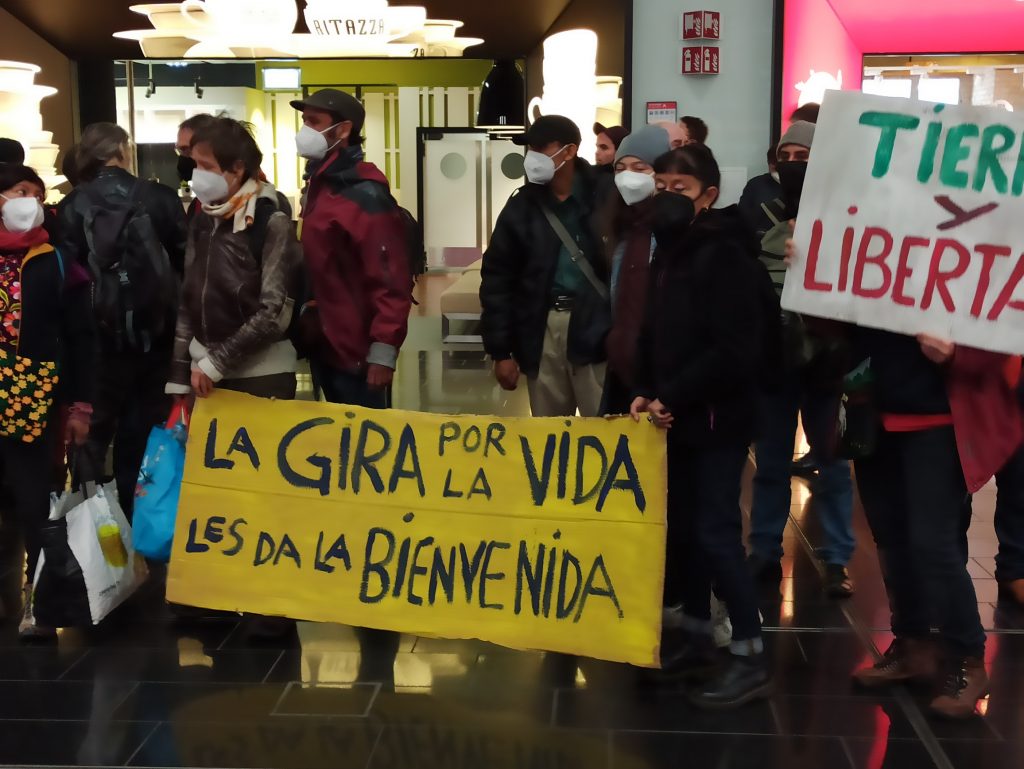
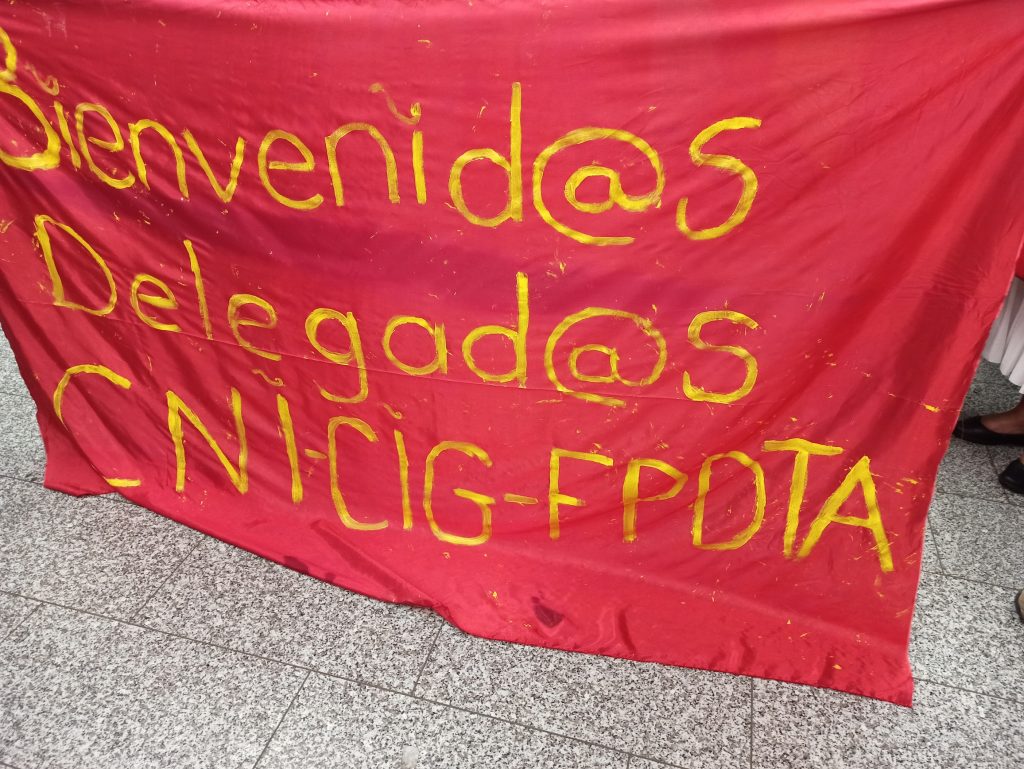
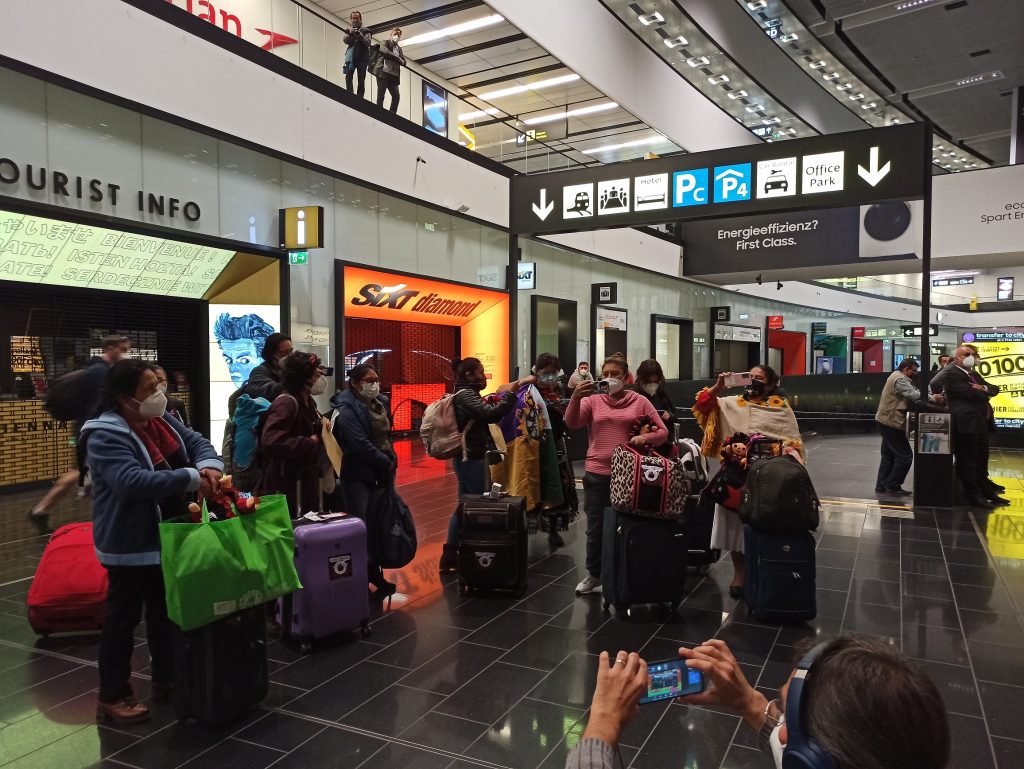
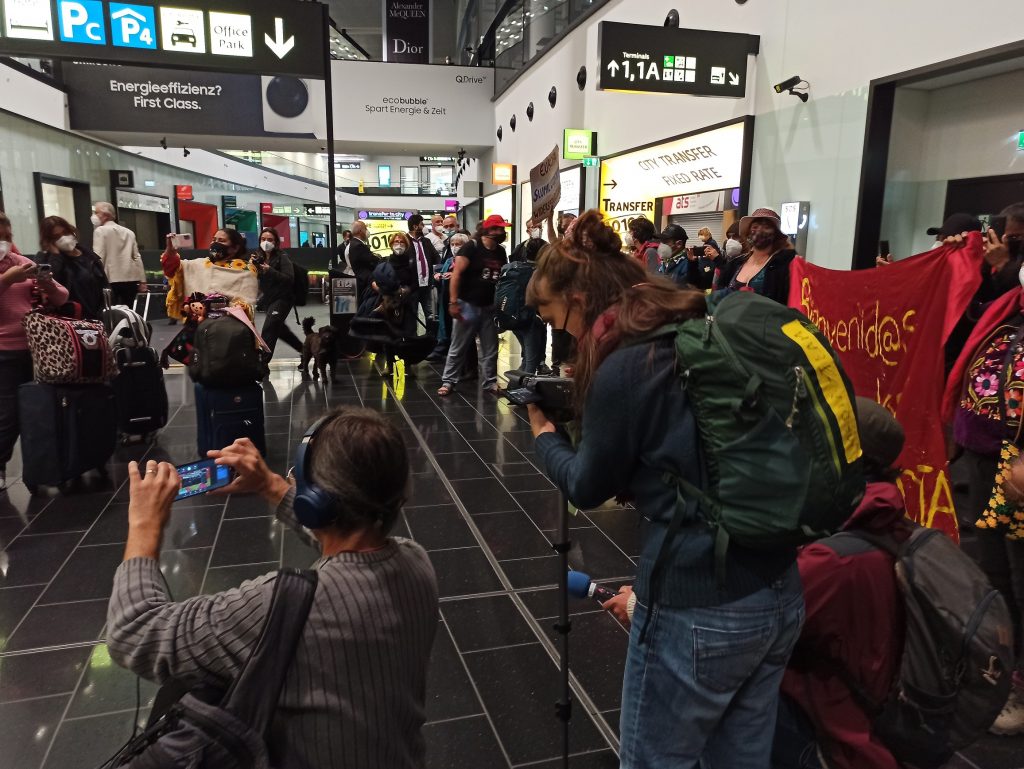
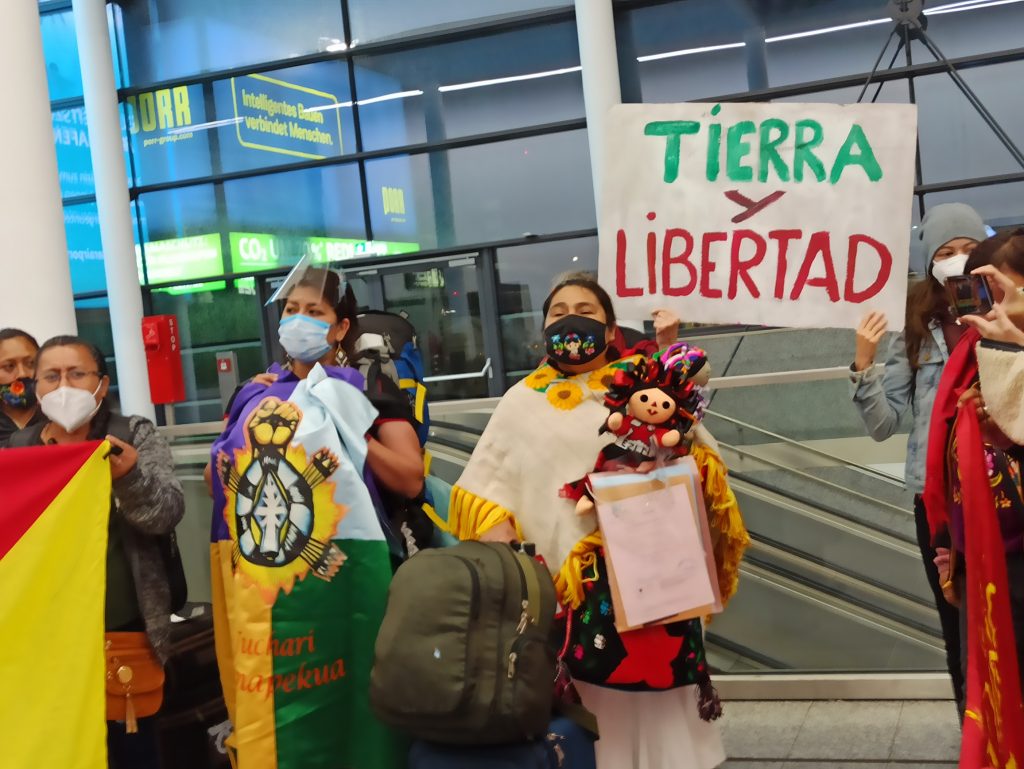
04/09/2021
KOLEKA PUTUMA IN VIENNA
Koleka Putuma‘s new performative presentation of her book of words and thoughts is an impressive work. The references are powerful and even more so her thoughts, she speaks out pages of text in the book, words and thoughts, in between calling out from graves and histories, names of powerful African women who revolutionized the African and World space.
They changed the coordinates, frames, tissues and spaces of life in South Africa. Apartheid is scrutinized, and the post-apartheid period as well put under a forensic eye. The word of Putuma is powerful, words are negotiated, we want to say something, but then we seek a word, an approach. The most powerful tool is the backspace, listening to what we have already put on paper and readjusting the meaning of the words. From abstract they become more and more historical, political, geographical, not precise at all, because words are not transparent, although we can understand and also reject their political meaning depending on where we stand. Returning to words, power is reinvention, the black queer body of Koleka Putuma, her queerness is exalted, her body defiant, and the enunciation performative, brutal, sometimes painfully direct and then soft and humorous.
Both projects of research and learning and unlearning are the basis for the in process podcast that centers on a WORLD or WORDS. (M. Gržinić)
25-27/06/2021
SMASHING WOR(L)S
A long table is set besides a small breakfast buffet. A dozen people are having coffee and bread rolls, starting their day together, catching up on the events of the previous days during the exhibition “the visibility of the invisible”, talking about todays and tomorrows program at the summercamp. While the pandemic is still going on, covid restrictions had just been reduced. The rate of infection was dropping – for now at least. I am finally vaccinated. For me, this is the first time since many months that I am joining a larger group that is not my “covid-bubble”. I have missed it so much.
My colleagues and I set up our two bags of recording equipment under a large tree at the farm-like venue and return to join the breakfast table. By the time Marissa and Marina officially start the event and welcome everyone to two days of “Smashing Wor(l)ds” it had become a hot summer day. For a whole weekend we were going to listen and talk, share and engage with fellow artists and activists on queer and anti-racist resistance in language and translation. We were going to think and learn together, listen to our stories, share moments of sadness, of rage, of laughter. We shared meals and small talk, we sat, stood and danced together. Time flew by in the company of all the many people who had come to join in this performative lab.
Everyone seemed starved for this time together. Time that was so consciously spent in the physical presence of others, not just next to each other, but with each other, recognising, negotiating, sharing and practicing our collective presence in this space. Such a moment might be a glimpse into conviviality, into the act of convivial living and learning, which is more than just being part of a group, but takes a certain intensity of encounter, one from which we can laugh away repression and discrimination, while being dead serious at the same time. (S. Uitz)
25-27/06/2021
SMASHING WOR(L)DS
The perfomative camp lab Smashing Wor(l)ds was a three-day event with a variety of Austrian grassroots groups, ARA, Queer base, Silent University Grazworkshop on Gender and Education, and the students of the studio for Postconceptual Art at IBK, Academy of Fine Arts Vienna (in conjunction with their Rundgang 2021) , which opened up the possibility to talk and listen after a long distance zoom process of doing and living.
The whole camp was a process of empowerment, learning, communication, focusing on the art and performative power of words, doing with words, building empathy on the one hand and listing the adjectives and names, pronouns and conditions that separate, disrupt, sicken and discriminate those who are produced as “the others.” (M. Gržinić)
25-27/06/2021
VISIBILITY OF THE INVISIBLE
The Visibility of the Invisible. Exhibition opening, Schillerplatz in the front of the Academy of Fine Arts Vienna, by the Studio for Post-conceptual Art /IBK/ Academy of Fine Arts Vienna, Atelierhaus.
When installing the works created by the students of the Studio for Post-Conceptual Art /IBK/ Academy of Fine Arts Vienna in a public park, the materiality of ignorance, hatred, and racist violence was visible from the beginning. We experienced a lot, some pieces were stolen, others damaged or destroyed, people protested that we were ruining the lawn and polluting the public park, and so on. A white woman with a dog openly attacked a student. It was an anti-Muslim racist attack.
We went to the police station. The officers asked if her dog had bitten us or if she had stolen anything from us while we were there to report this racist attack. No, we said, we are here to report an anti-Muslim racist attack.
Nevertheless, the exhibition was a form of coming together, a gathering of bodies with different backgrounds and experiences, practices and responses to the times we live in, that engaged with the materiality of discrimination, exclusion, exploitation, prejudice, and racialization through various artistic means with a common goal: to make this structural violence visible. Each of these works literally materialized the shift from digital captivity to the digital agency by bringing this digital violence (statistics, maps, apps, artificial language, podcasts, QR codes, and so on) into the open, transparent, into the center of public space, reclaiming the power of representation, the power to make visible the bodies subjected to this violence. It may be invisible to or internalized by the bodies that fit into the pure mold of a nation-state, but for the “others” it is always already there, packaged in public spaces, institutions, in laws, or in our daily encounters. (J. Pristovsek)
